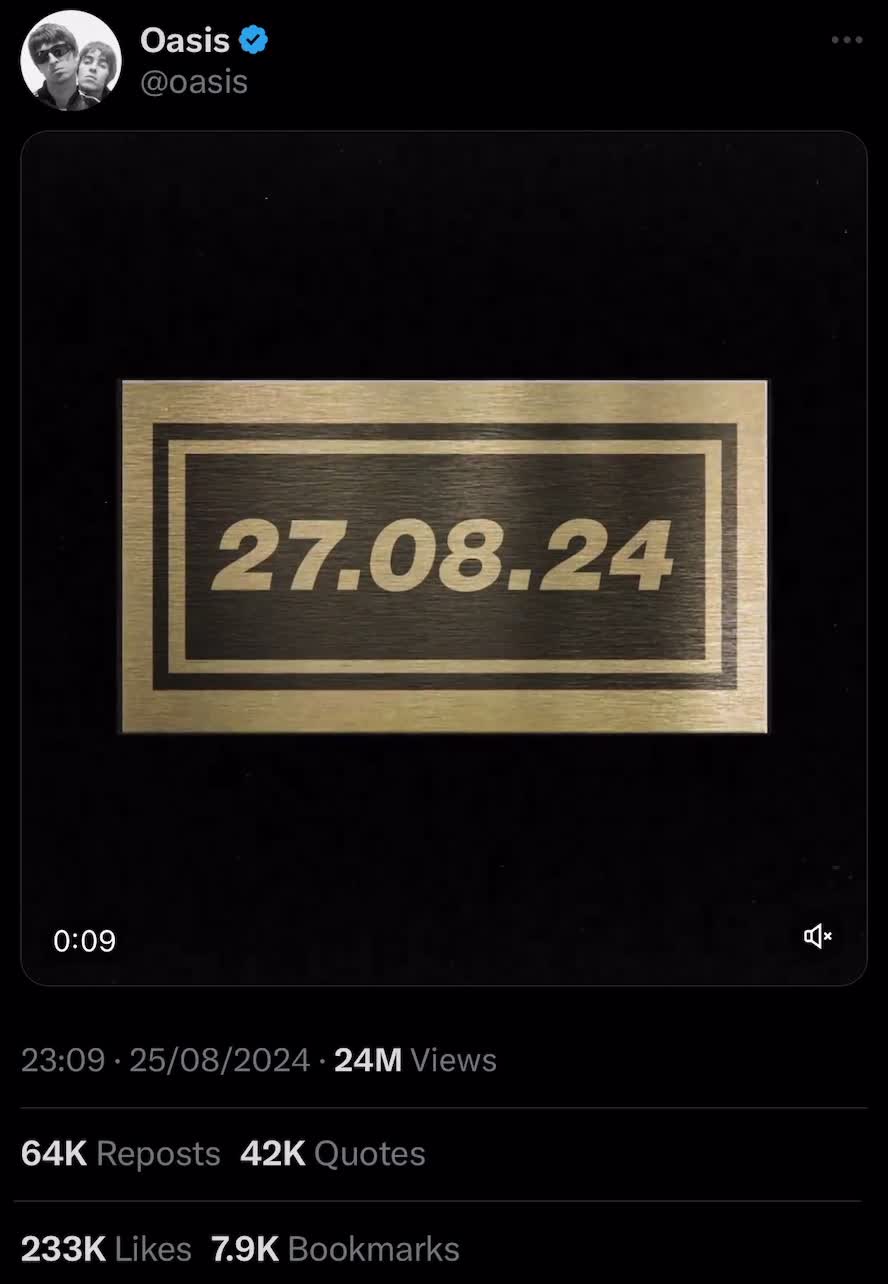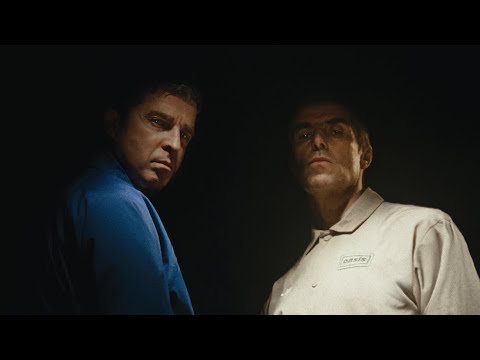A History of British Guitar Music
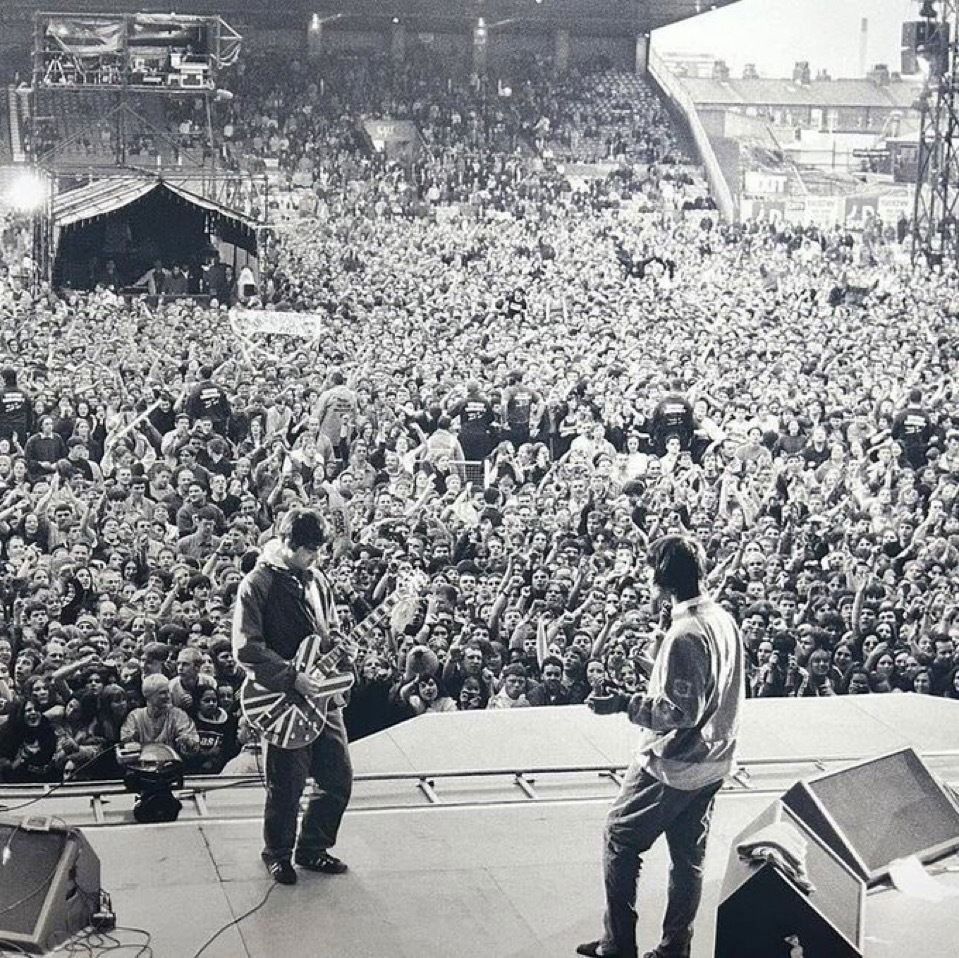
British music has never been a static artefact; it is a restless, shifting iteration of the national soul. If you look at the charts today, they are unrecognisable compared to fifty years ago, or even five years ago. Music is a living, breathing entity, constantly shedding its skin and evolving, even within genres that might seem consistent to the casual listener.
Like many others, I’ve been on a musical journey that spans over six decades. My ears first opened to the world in the 1960s, and I’ve been chasing the next great riff ever since. In this post, I want to explore how 'British Guitar Music' has transformed, adapted, and reinvented itself through the decades.
However, the story didn't end with the turn of the millennium. The 2000s saw a frantic, stylish rebirth of the scene led by the shambolic poetry of The Libertines and the art-school precision of Franz Ferdinand. This era gave us the sharp wit of Arctic Monkeys and the angular, driving rhythms of Bloc Party on albums like 'Silent Alarm', proving that the guitar was far from dead.
That momentum carried into the 2010s, a decade that saw a new generation find its voice. Bands like Blossoms and Wolf Alice brought melody and atmosphere back to the forefront, while the likes of Catfish and the Bottlemen and The Courteeners built massive, loyal followings through tireless touring and anthemic choruses. Today, in the 2020s, the evolution continues with a raw, working-class honesty. From the heart-on-sleeve storytelling of Sam Fender on 'Seventeen Going Under' to the DIY, folk-infused energy of Gerry Cinnamon, the British guitar tradition remains as vital and defiant as ever. There is so much history and rebellion to uncover; let’s dive into the sound that defined a nation.
It's All Too Much! The Swinging 60s
I’m not naïve; I know music existed long before the 1960s. However, I see this decade as a natural starting point. Culturally and musically, the 60s were pivotal. The war was over, young people had more freedom, and the world seemed to burst into technicolour. It was a time when art, culture, and society began to intertwine in ways that reshaped the modern world. Music, in particular, became a dominant force in expressing the aspirations, frustrations, and dreams of a generation.
In the 1950s, rationing was still widespread, and many people were still grappling with the physical and emotional scars of World War II. By the 60s, however, a sense of optimism had emerged. Conscription had ended, attitudes were shifting, and the mood was one of looking forward. This newfound optimism fuelled creativity, leading to an explosion of artistic expression in music, fashion, and art.
The previous generations had endured great hardships, but they seemed determined to create a brighter future for the youth of the time. Fashion began to undergo dramatic changes, with young people leading the charge and rejecting traditional norms. Women, for instance, began to adopt more liberated styles, and the iconic miniskirt emerged. Swinging London became the epicentre of this cultural shift.
The 60s were not just about rebellion but also about innovation. Music reflected this sense of possibility, breaking free from the confines of the past. Rock and roll morphed into something deeper and more experimental, folk music became a voice for social change, and genres like soul and Motown gave rise to anthems of empowerment and joy. The decade wasn’t merely a starting point for modern music; it was the birth of the contemporary world.
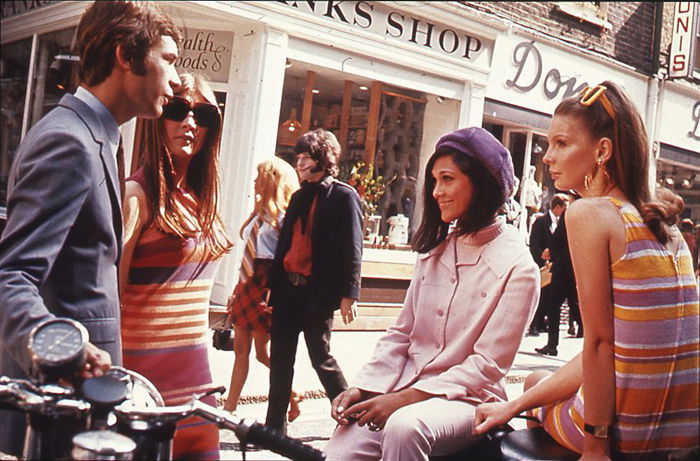
Subcultures began to emerge in the 60s, shaping youth identity and cultural expression in profound ways. Mods and Rockers formed distinct groups, defined by their fashion, the motorcycles they rode, and, of course, the music they listened to. Mods gravitated towards sharp suits, scooters, and the sounds of soul, jazz, and British beat bands like The Who and The Small Faces. At the same time, Rockers embraced leather jackets, motorcycles, and the raw energy of rock 'n' roll pioneers like Elvis Presley.
These subcultures often clashed, most famously in seaside towns like Brighton and Margate, where their rivalries culminated in publicised skirmishes. Despite their differences, both groups left an indelible mark on British culture, influencing fashion, music, and attitudes, and paving the way for future youth movements such as punk, skinheads, and New Romantics in the decades to come.
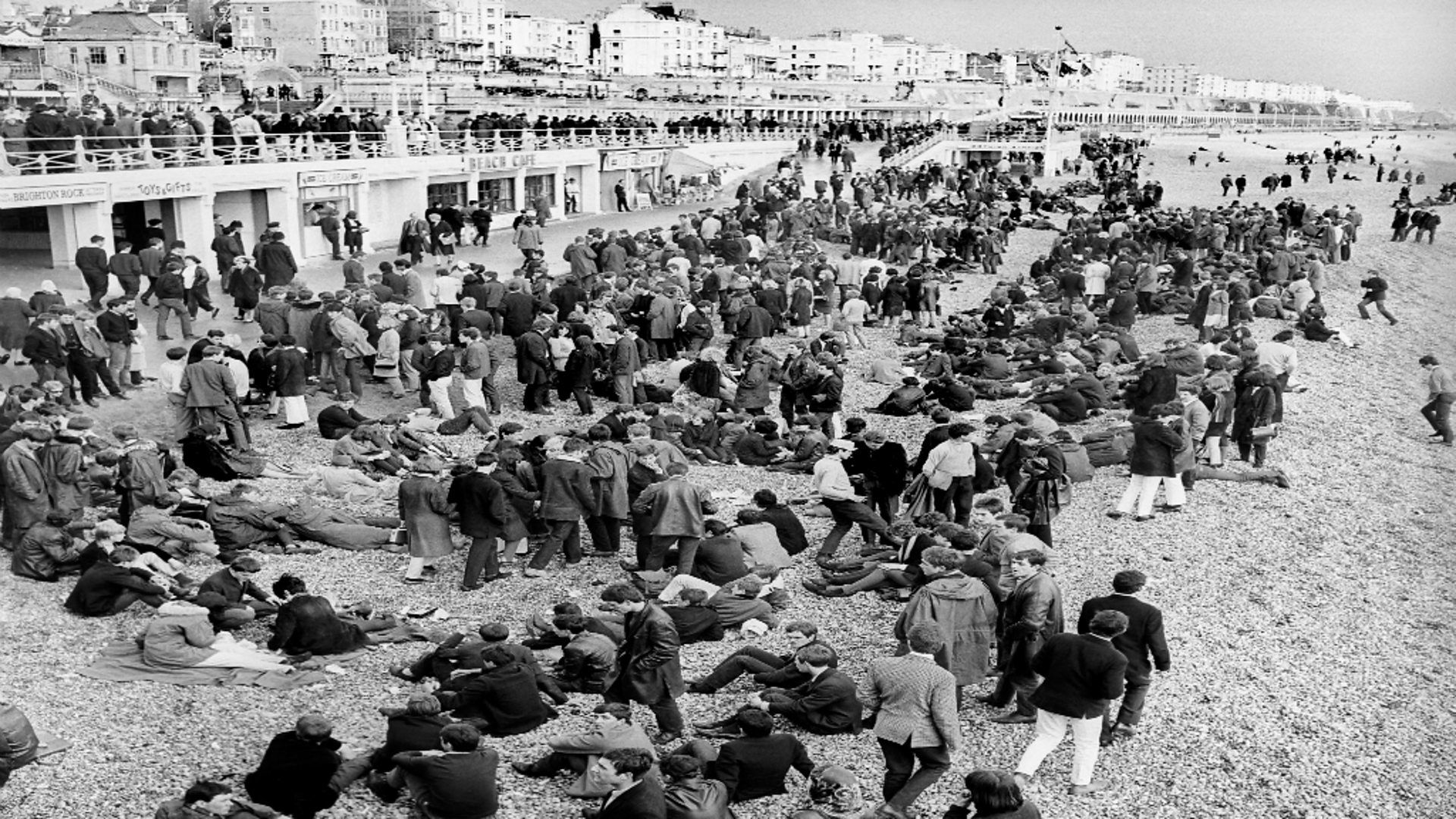
The 1960s marked a turning point in music, birthing some of the most influential artists of all time on both sides of the Atlantic. In the UK, legends like The Beatles, The Rolling Stones, The Who, Cream, Led Zeppelin, and Black Sabbath emerged. Meanwhile, America gave us icons such as Simon & Garfunkel, Jimi Hendrix, The Mamas & The Papas, Jefferson Airplane, Bob Dylan, and The Beach Boys. To name a few. Music became a cultural phenomenon. It was no longer just something played on jukeboxes; concerts grew in scale, record sales soared, and musicians were elevated to an almost godlike status.
Beatlemania was a defining feature of the 1960s: four lads from Liverpool. John Lennon, Paul McCartney, George Harrison, and Ringo Starr took the world by storm. Their fanbase adored and worshipped them, sparking a global movement that transcended music to become a cultural phenomenon. When they appeared on 'The Ed Sullivan Show' in 1964, an astonishing 73 million people tuned in. A record-breaking moment that not only cemented their status as cultural icons but also underscored the power of television in uniting audiences around the world. This event heralded the British Invasion in America, where British bands dominated the charts, and it marked the birth of modern celebrity culture, creating a blueprint for global stardom.
The Beatles’ songs from this era are a testament to their unparalleled ability to craft timeless music. Early hits like 'Love Me Do' and 'Please Please Me' captured their youthful exuberance and charm, setting the stage for a pop revolution. With 'She Loves You' and 'I Want to Hold Your Hand', they perfected the art of infectious melodies, delivering anthems that resonated with a generation hungry for optimism and joy in the wake of post-war austerity. Their knack for innovative songcraft became evident as their songwriting matured, with tracks like 'A Hard Day's Night' showcasing sophisticated chord progressions and groundbreaking use of jangly guitar riffs.
As the decade progressed, songs like 'Ticket to Ride' and 'Help!' began to reflect a deeper emotional complexity, signalling their transition from cheerful love songs to more introspective themes. The Beatles weren’t just writing catchy pop; they were pushing the boundaries of what popular music could be.
Their ability to combine innovation with accessibility ensured their dominance, not only on the charts but in shaping the very fabric of 1960s culture. Beatlemania wasn’t just about screaming fans; it was about the rise of a band that changed everything, leaving an indelible mark on music, fashion, and the global zeitgeist.
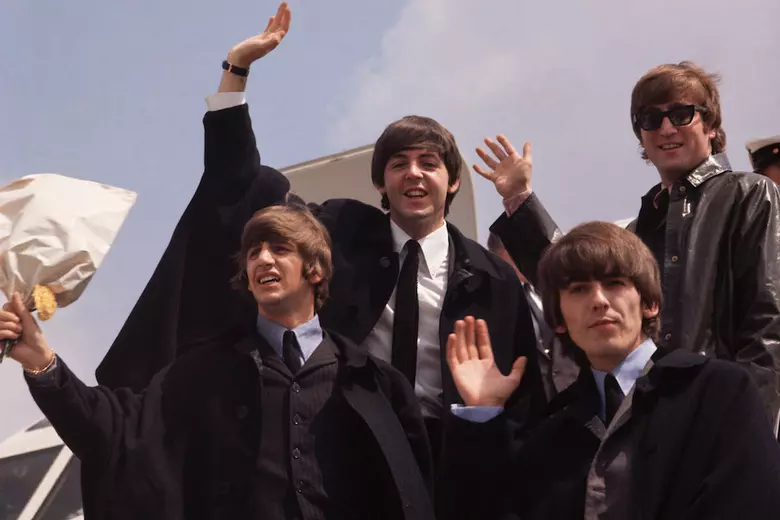
By the mid-60s, their creativity truly flourished. Songs like 'Yesterday' with its hauntingly simple arrangement, and 'Norwegian Wood', which introduced Western audiences to the sitar, hinted at their growing experimentation. 'Help!' and 'We Can Work It Out' combined introspective lyrics with irresistible hooks. At the same time, 'Drive My Car' and 'Nowhere Man' reflected a shift toward more narrative-driven and socially conscious themes.
With these songs, the bands would tour the world. The hysteria surrounding the band was unprecedented; fans camped outside hotels, mobbed airports, and screamed so loudly at concerts that the band struggled to hear themselves on stage.
However, the Beatles were more than just screaming fans and mass hysteria. By 1965, exhausted by the chaos of touring and unable to hear themselves play over the deafening crowds, they made the bold decision to abandon live performances. This shift allowed them to channel their creativity into the studio, where they revolutionised music production. They blended rock with elements of classical, Indian, and experimental music.
Albums like 'Revolver' and 'Sgt. Pepper's Lonely Hearts Club Band' hold a unique place in the evolution of modern music.
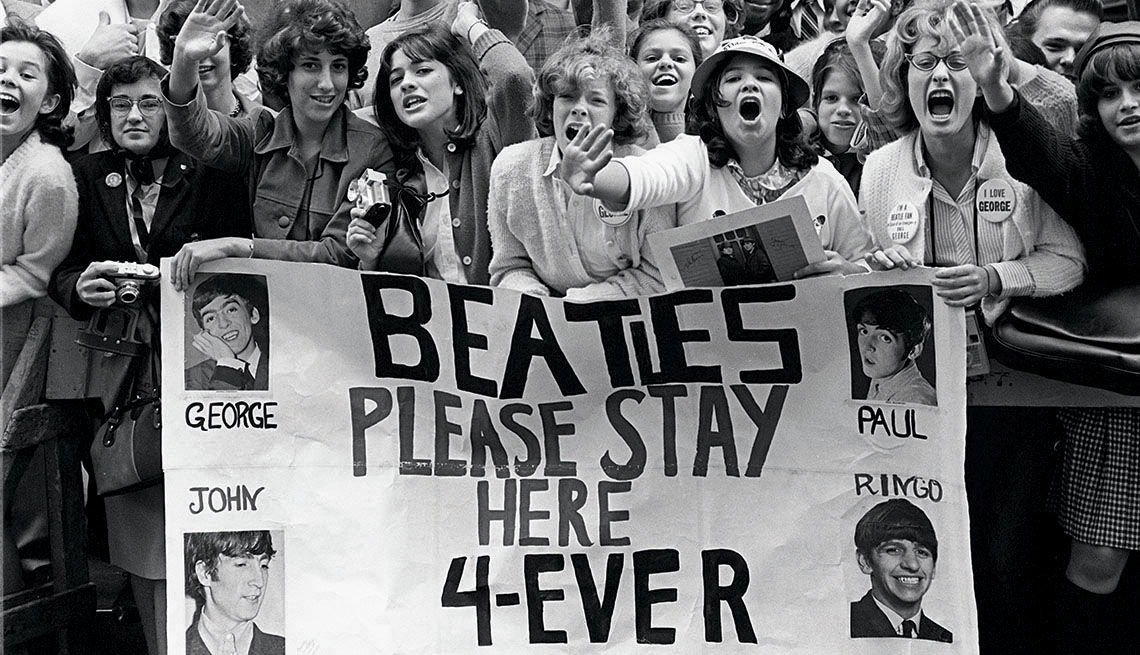
'Revolver' is often celebrated for its bold sonic experimentation, signalling a significant turning point in The Beatles' creative evolution. Tracks like 'Tomorrow Never Knows' showcased pioneering tape-loop techniques, reversed audio, and Eastern influences, drawing from Timothy Leary's psychedelic ideas and the rhythmic drones of Indian classical music. The song's hypnotic drum pattern, manipulated vocals fed through a Leslie speaker, and kaleidoscopic sound collage marked a radical departure from traditional pop structures.
Elsewhere on the album, songs like 'I'm Only Sleeping' employed reversed guitar solos to create a dreamy, surreal atmosphere, and 'Yellow Submarine' featured innovative use of sound effects and vocal manipulation. 'Eleanor Rigby' featured string octets instead of guitars, while 'I'm Only Sleeping' employed reversed guitar solos to create a dreamy, surreal atmosphere.
Working closely with producer George Martin and innovative engineer Geoff Emerick, The Beatles embraced the studio as an instrument in itself. They often recorded elements piecemeal, layered overdubs, and experimented with mic placement and tape manipulation. Their meticulous approach to sound design, treating each track as a distinct sonic world, is a testament to their musical depth. 'Revolver' wasn't just an album of songs; it was a bold exploration of what recorded music could be.
Its blend of avant-garde techniques with sharp songwriting redefined the possibilities of studio recording. It signalled the arrival of the modern, studio-based artist. The album laid the groundwork for the increasingly experimental direction the band would take and left a lasting imprint on the evolution of rock, pop, and electronic music.
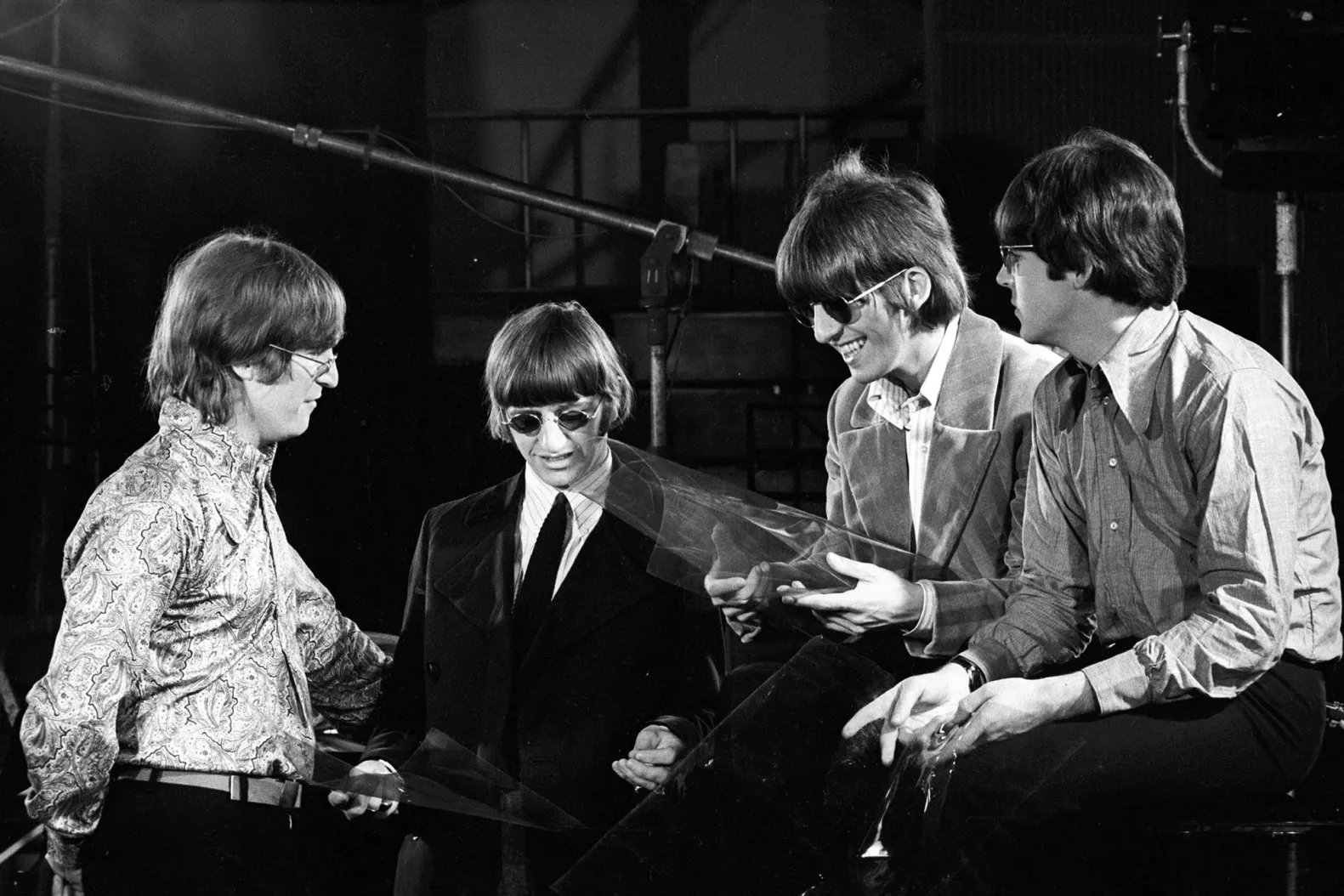
'Sgt. Peppers' took that experimentation to a grander, more theatrical level. Embracing the freedom that came with leaving the stage behind, The Beatles immersed themselves in a months-long studio journey, using multitrack recording, orchestral overdubs, and imaginative effects to build a self-contained world. Songs like 'Lucy in the Sky with Diamonds' and 'A Day in the Life' pushed the boundaries of songwriting and production, blending surreal lyricism with pioneering studio wizardry.
They used techniques such as automatic double tracking, tape speed manipulation, and layering of non-traditional instruments from harpsichords to sitars to entire orchestras, all of which contributed to the album’s kaleidoscopic sound.
The Beatles, along with producer George Martin, treated the studio as a playground for sonic exploration, meticulously sculpting textures and transitions to create something that transcended the conventional pop album. The conceptual unity of 'Sgt. Peppers' presenting the band as a fictional ensemble and framing the record as a staged performance introduced the idea of the studio LP as a fully immersive artistic statement.
It was a landmark moment not just in music but in popular culture, signalling the arrival of the album as a more serious art form and opening the door for generations of musicians to think of recording as a form of narrative and expression, not just documentation.
Following this, 'The Beatles' widely known as 'The White Album' marked a departure from the psychedelic polish of earlier works and showcased the band’s voices more starkly than ever before. Recorded during a period of growing personal tension, the sessions produced a sprawling, genre-defying double album that ranged from the acoustic fragility of 'Blackbird' to the raw energy of 'Helter Skelter'. The sheer diversity of styles reflected both their creative restlessness and their deepening divide as collaborators, yet the result was an album of astonishing range and influence.
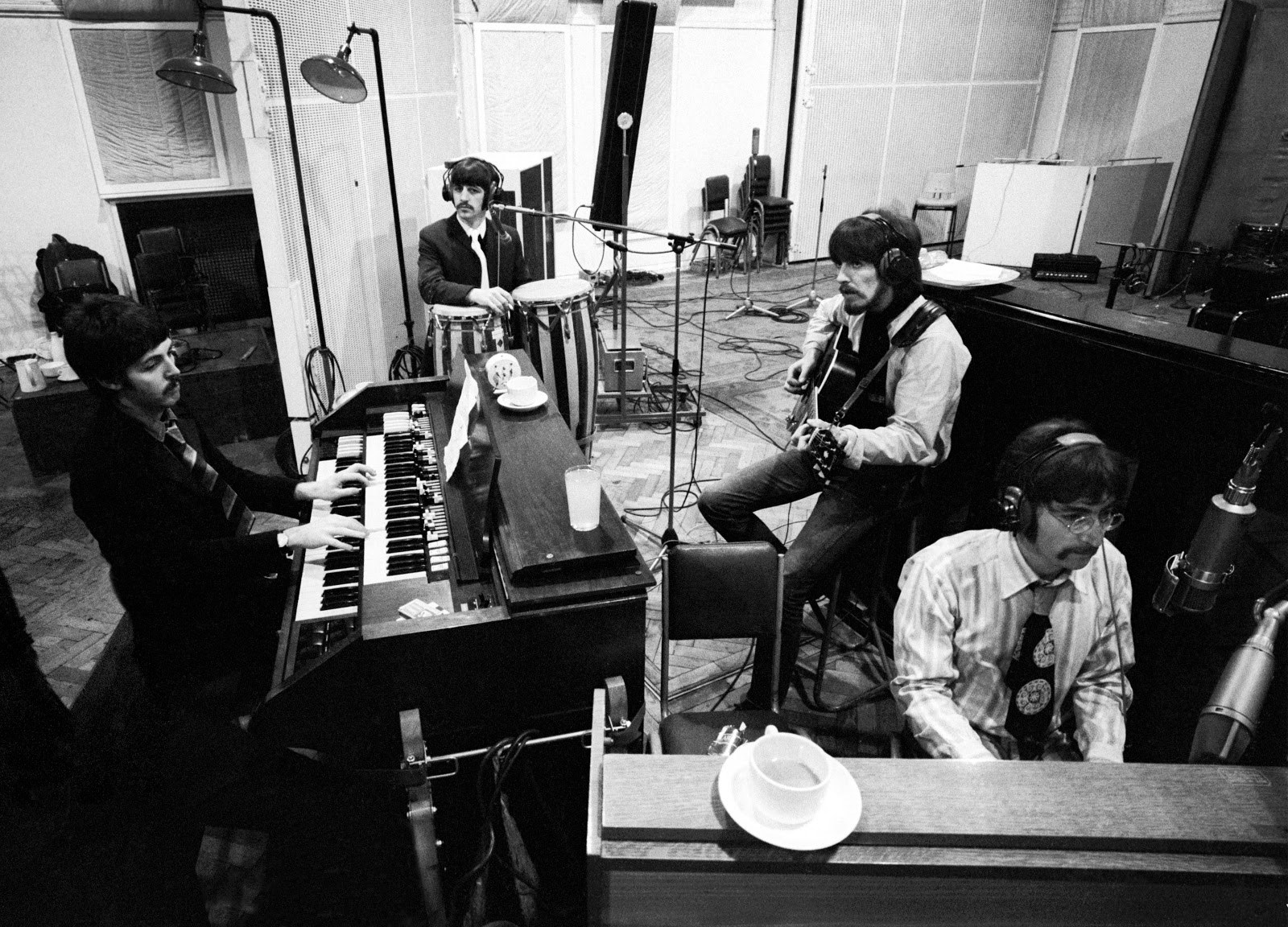
'Abbey Road', recorded shortly after, was a return to cohesion and studio sophistication. The band, aware that their time together might be coming to an end, approached the album with a sense of purpose and craft. George Harrison emerged as a major songwriting force with 'Here Comes the Sun' and 'Something', while the album’s second side featured an ambitious medley of song fragments that flowed seamlessly into one another, culminating in 'The End', a symbolic farewell from a band at the height of its powers.
Finally, 'Let It Be', shaped by the fraught and famous Get Back sessions, was an attempt to return to basics, to capture the band playing live with minimal studio trickery. However, the process revealed deep fractures in their relationships. Though the sessions were marked by creative tension, they still produced enduring songs like 'Let It Be', 'Across the Universe', and 'Get Back'. The accompanying film, and later Peter Jackson’s 'The Beatles: Get Back' documentary, revealed both the struggles and camaraderie of those final days. Despite the friction, the music remained transcendent, offering a glimpse of what still connected them beneath the surface.
The impact of The Beatles cannot be understated. They did change the world. From reshaping pop music to inspiring social and cultural movements, their influence extends far beyond the music industry. They left behind some of the best songs ever written, with timeless tracks that continue to resonate across generations. Whether through the introspective beauty of 'Eleanor Rigby', the ground-breaking sounds of 'Strawberry Fields Forever', or the universal appeal of 'Hey Jude'. The Beatles created a legacy in music that remains unmatched in its scope and significance.
Their output and legacy are unrivalled even today.
The 1960s were not just about The Beatles; countless other bands and artists played pivotal roles in shaping the music and culture of the decade. The Rolling Stones stood as one of the era's defining forces, embodying the raw energy and rebellious spirit of the time. Like The Beatles, they were innovators, creating music that not only defined the decade but transcended it. Songs such as 'You Can’t Always Get What You Want', 'Gimme Shelter', and 'Street Fighting Man' are timeless contributions that remain as impactful today as they were during the height of the 60s.
The band’s sound continually evolved throughout the decade. From their beginnings as a blues cover band, drawing heavily on American artists like Muddy Waters and Howlin’ Wolf, they transformed into cultural provocateurs and rock icons. Albums like 'Beggars Banquet' and 'Let It Bleed' showcased their ability to blend blues, rock, and folk influences into something entirely their own.
Their music often mirrored the social and political upheavals of the era, addressing themes of disillusionment, rebellion, and protest. 'Street Fighting Man' became an anthem for the countercultural movement, capturing the spirit of resistance and the desire for change. Meanwhile, 'Gimme Shelter' reflected the darkness and uncertainty of a turbulent world, with its haunting melodies and urgent, apocalyptic tone. The songs were more than just chart hits; they were cultural milestones that resonated deeply with a generation seeking expression in a time of transformation.
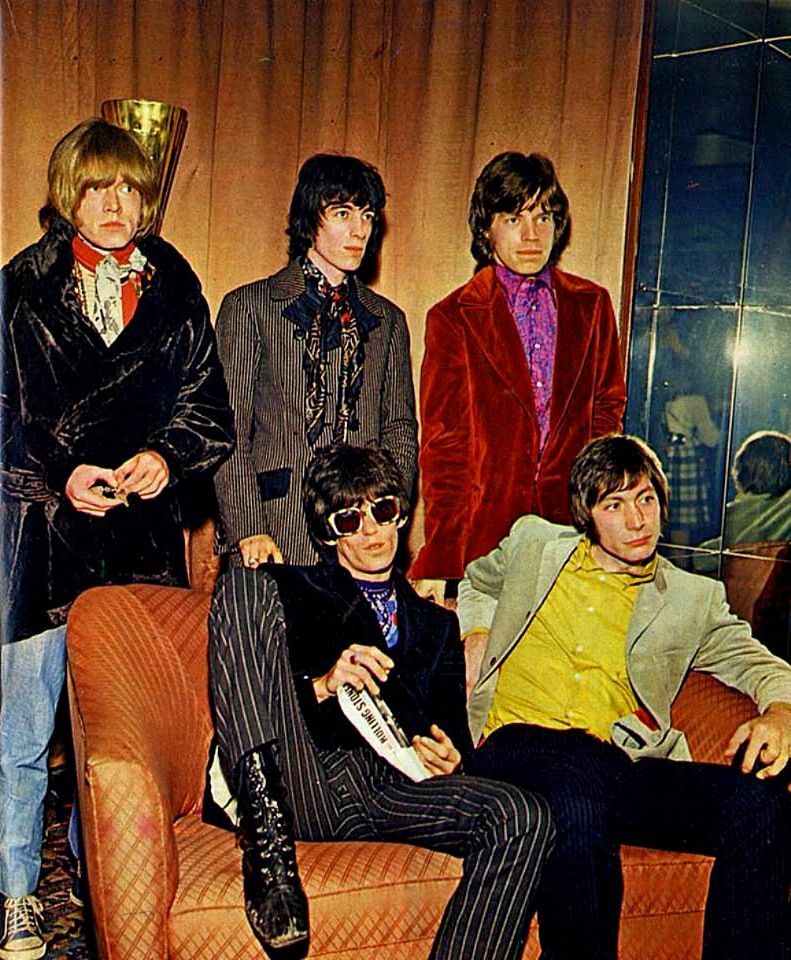
By the end of the decade, The Rolling Stones had firmly established themselves as one of the most significant and enduring bands in rock history. Their bold lyrics, edgy sound, and experimental approach to music pushed the boundaries of the genre, setting new standards for what rock could achieve. More than that, their ability to channel the zeitgeist of the 1960s, its upheavals, desires, and contradictions, was a testament to their lasting influence. With their uncompromising attitude and unrelenting creativity, The Rolling Stones didn’t just contribute to the soundtrack of the decade; they helped shape its spirit and legacy.
The Rolling Stones would continue long past the 1960s, with the band still recording and touring today. Across the following decades, they would reinvent themselves repeatedly, from the swaggering rock of the ’70s to the polished stadium anthems of the ’80s and beyond. Their longevity is unmatched; few bands have remained as culturally relevant or as consistently active. Despite lineup changes, personal struggles, and shifting musical landscapes, the core of the band, Mick Jagger’s charisma, Keith Richards’ riff-driven guitar work, and their unmistakable chemistry, has endured.
Another band emerged from London in the swinging sixties: The Who, a powerhouse quartet that carved out their own space as one of the loudest, most dynamic, and most innovative bands of the decade. Known for their high-energy performances and instrument-smashing antics, The Who epitomised the rebellious spirit of the 1960s, a defiance that resonated with the youth of the era. Their live shows were legendary, with Pete Townshend’s windmill guitar moves, Keith Moon’s frenzied drumming, and Roger Daltrey’s mic-swinging bravado creating a visceral, unforgettable experience. John Entwistle’s virtuoso bass playing provided the foundation for their explosive sound, earning him the nickname 'The Ox'.
Their early singles, such as 'I Can’t Explain' and 'My Generation', captured the angst and defiance of youth like no other. 'My Generation', with its iconic stuttered vocals and rebellious rallying cry of "hope I die before I get old", became an anthem for the 1960s counterculture. These songs weren’t just hits; they were statements, channelling the frustrations and aspirations of a generation eager to break free from societal norms.
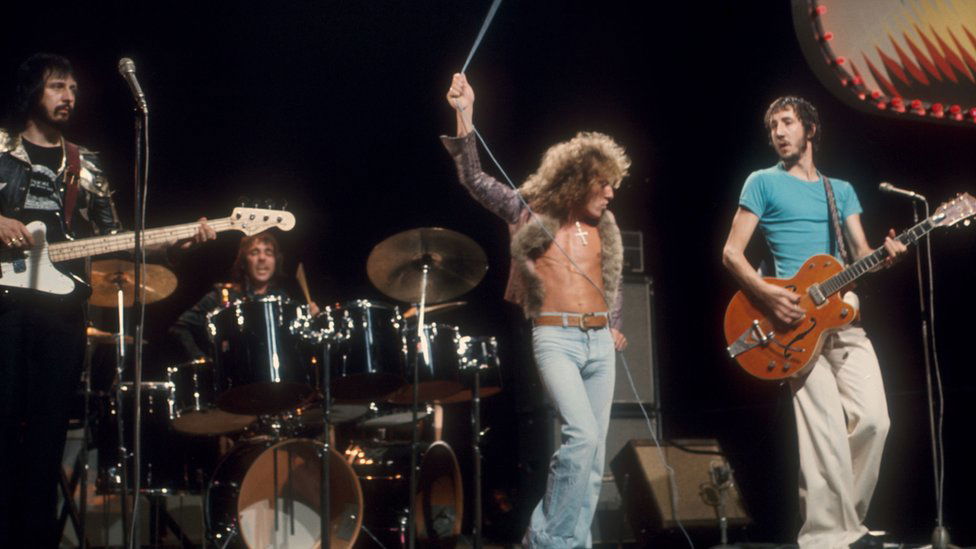
The Who’s influence on rock music extends beyond their singles. They were instrumental in pioneering the concept of the rock opera, pushing the genre to new artistic heights. Their 1969 album 'Tommy' was a revolutionary work that intertwined narrative and music to narrate the story of a 'deaf, dumb, and blind' boy who rises to become a pinball prodigy and spiritual leader.
Tracks like 'Pinball Wizard', 'The Acid Queen', and 'See Me, Feel Me' showcased The Who's unique ability to fuse rock with theatrical storytelling, pushing boundaries and proving that rock music could be as ambitious and complex as any other art form. 'Tommy' was not just a commercial success but also a cultural milestone, solidifying The Who’s status as pioneers in the rock world.
The album also marked a turning point in how rock music was perceived. No longer just a vehicle for rebellion or catchy hooks, Tommy introduced a new level of conceptual depth to popular music, opening the door for future albums to explore sophisticated themes and larger narratives.
Its live performances, particularly at Woodstock and the Isle of Wight Festival, became legendary, further blurring the line between rock concert and dramatic performance. Pete Townshend’s vision, combined with Roger Daltrey’s commanding vocals and Keith Moon’s explosive drumming, gave Tommy an emotional and sonic power that few could rival.
By the end of the decade, The Who had solidified their place as one of the most important bands of their time. They didn’t just reflect the chaos and excitement of the ’60s; they amplified it, delivering a sound and spirit that was unapologetically loud, defiant, and forward-thinking. Their contributions to music, both in terms of sheer energy and groundbreaking innovation, left an indelible mark on the decade and paved the way for the explosive evolution of rock in the years to come. Their influence can be heard in the music of countless bands that followed, from punk to progressive rock, cementing their place in music history.
And they weren’t done. As the ’70s began, The Who would continue to build on their legacy with even more ambitious projects, most notably 'Who's Next' and 'Quadrophenia', but it was 'Tommy' that proved they were capable of transforming rock into something theatrical, philosophical, and deeply human.
The 1960s were a decade when young people began to find their voice, addressing societal issues and challenging the status quo. Movements like the Civil Rights Movement in America and the anti-war protests against the Vietnam War saw young people standing up for what they believed in. Artists and bands such as The Rolling Stones and Bob Dylan provided the soundtrack for this wave of revolution. The Who's music, with its rebellious spirit and innovative sound, was a perfect reflection of this cultural and political climate.
As Bob Dylan famously sang, 'The Times They Are A-Changin’, and they truly were.
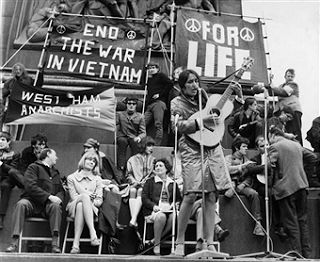
It would be impossible to talk about the 60s without addressing the role of drugs. Recreational substances like marijuana and LSD became widely used by both the public and musicians. These substances were believed to enhance creativity and alter perception, influencing the music of the era. Let's be honest, Sgt. Pepper's wasn't exactly written over cups of tea.
One of the most defining moments of the 1960s counterculture era was the Woodstock Festival in 1969. This gathering cemented itself as a cultural touchstone. Featuring some of the biggest acts of the time, including The Who and Jefferson Airplane, it drew a staggering audience of over 400,000 people. Amidst the chaos of a festival that ran drastically behind schedule, Jimi Hendrix took the stage under extraordinary circumstances.
Hendrix's performance didn't begin until early Monday morning, long after most of the crowd had departed. Only around 30,000 devoted fans remained to witness what would become one of the most iconic performances in rock history. Hendrix delivered a searing and transformative rendition of 'The Star-Spangled Banner', a moment that captured the rebellious spirit of the era, a spirit portrayed by a rejection of traditional values and a desire for social change.
Through his guitar, Hendrix conveyed both a fierce critique of the Vietnam War and a profound, complex love for America. It was an electrifying and symbolic moment, showcasing the tension, hope, and above all, the resilience of a generation seeking change. Their resilience was a testament to their determination to make a difference.
The iconic images from that festival illustrate the extent to which drug culture had permeated the era. It was a time of experimentation, particularly among young musicians who were eager to embrace it.
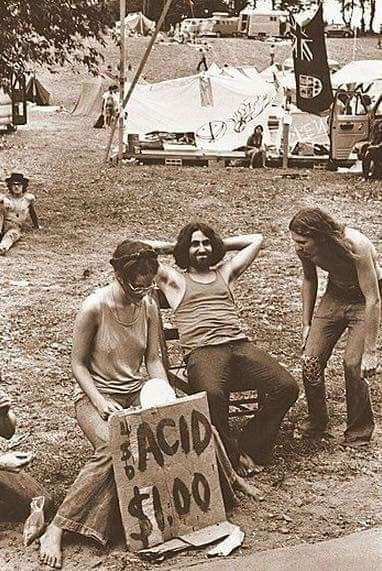
However, there was a British band that carved its own path, distinct from The Beatles and The Rolling Stones. They didn’t follow the psychedelic trend, nor did they embrace the heavy rock ethos of The Who or Led Zeppelin. Instead, they had a treasure trove of extraordinary songs, and their substance of choice? Well, it was strawberry jam.
The Kinks were a pivotal force in the music scene, celebrating their British roots in a way that set them apart and inspired many others to do the same (keep reading, and you’ll understand). Their album 'The Kinks Are the Village Green Preservation Society' is a timeless masterpiece, vastly different from most of the albums of that era. Though it was initially overlooked, history has been kind to The Kinks. Their influence reverberates through decades of British music, a testament to their enduring legacy.
Emerging from the British Invasion, their early hits, 'You Really Got Me' and 'All Day and All of the Night', are often regarded as proto-punk for their heavy riffs and primal energy, inspiring generations of rock and punk bands. These songs captured the raw spirit of youth, with Dave Davies’ distorted guitar tone paving the way for the hard rock and punk explosions to come.
By the mid-60s, The Kinks had transcended their raucous beginnings, with Ray Davies, the band’s chief songwriter, delving into more complex themes. Songs like 'A Well Respected Man' and 'Dedicated Follower of Fashion' offered a sharp critique of British society. Meanwhile, 'Sunny Afternoon' and 'Waterloo Sunset' unveiled a more introspective and melodic side. The latter, often hailed as one of the greatest songs of all time, is a tender, nostalgic portrayal of urban life in London, with its glistening melody and evocative lyrics capturing the serene beauty of everyday moments.
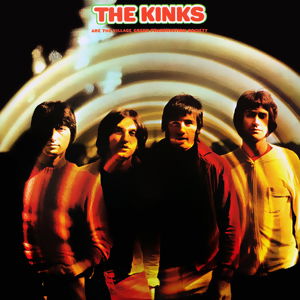
Their 1967 album 'Something Else by The Kinks' marked a turning point, blending baroque pop with sharp lyrical storytelling. It included gems like 'David Watts' and 'Death of a Clown', reflecting the band’s growing artistic ambition. But it was 1968’s 'The Kinks Are the Village Green Preservation Society' that fully crystallised their vision, a concept album steeped in nostalgia for a disappearing England. With tracks like 'Do You Remember Walter?' and 'Picture Book', it’s an intricate exploration of identity, tradition, and change, cementing the band as innovators in the concept album format.
While their peers were exploring psychedelia or cranking up the volume, The Kinks took a different route. They turned inward, creating deeply British vignettes that would go on to inspire a generation of artists, from Blur to Arctic Monkeys. In the 1960s music landscape, they were authentic originals, with their idiosyncratic, poetic, and quietly revolutionary style.
It wasn't all psychedelic masterpieces, mass gatherings of the people and protests, though. Two British bands were about to change music forever.
Led Zeppelin. Formed in 1968 in London, England, by Jimmy Page, Robert Plant, John Paul Jones, and John Bonham. They combined blues, hard rock, folk, and even eastern influences to create a sound that was both powerful and dynamic. Using each of the band's individual skills, especially Bonham's drumming and Page's guitar playing, they created textures and sounds we had never heard before, such as the iconic guitar riff in 'Whole Lotta Love' and the thunderous drumming in 'Moby Dick'. The band would really hit their peak in the following decade. However, Led Zeppelin's groundwork began in the late 60s.
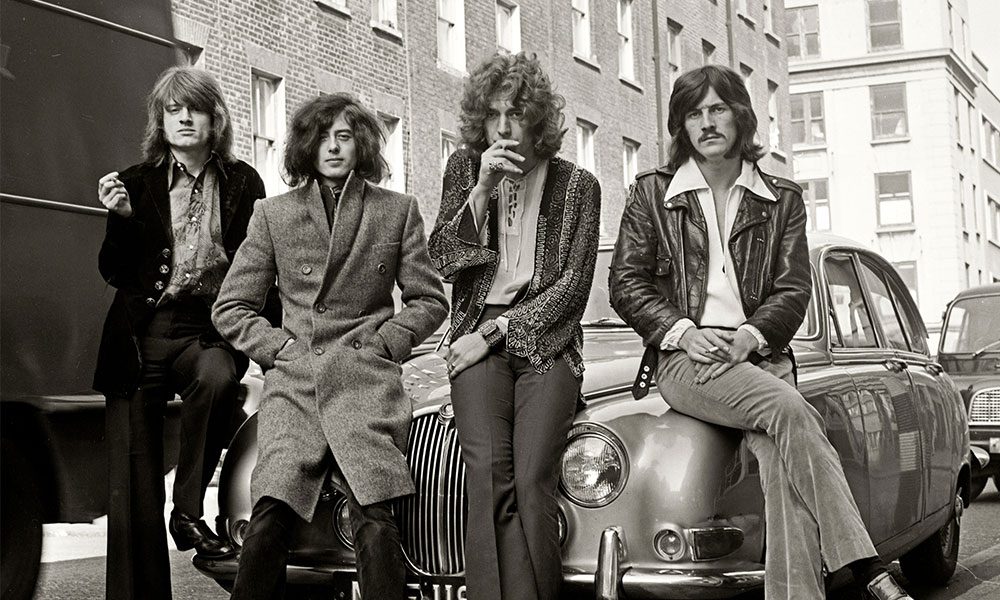
Across the pond, America would give us. Simon & Garfunkel, The Supremes, The Velvet Underground, Jefferson Aeroplane, and The Beach Boys.
Simon & Garfunkel, the voice of introspection in the 1960s, crafted songs that not only balanced folk simplicity with lyrical depth but also left an indelible mark on the American music scene. Their music, led by the haunting harmonies of Paul Simon and Art Garfunkel, often reflected the uncertainties and introspections of a rapidly changing world. Hits like 'The Sound of Silence', 'Mrs. Robinson' and 'Bridge Over Troubled Water' showcased their ability to write poignant, timeless songs that still resonate. Their partnership brought together Simon's lyrical sophistication and Garfunkel's angelic vocals, culminating in albums like 'Bookends' and 'Bridge Over Troubled Water', which became touchstones of folk-rock.
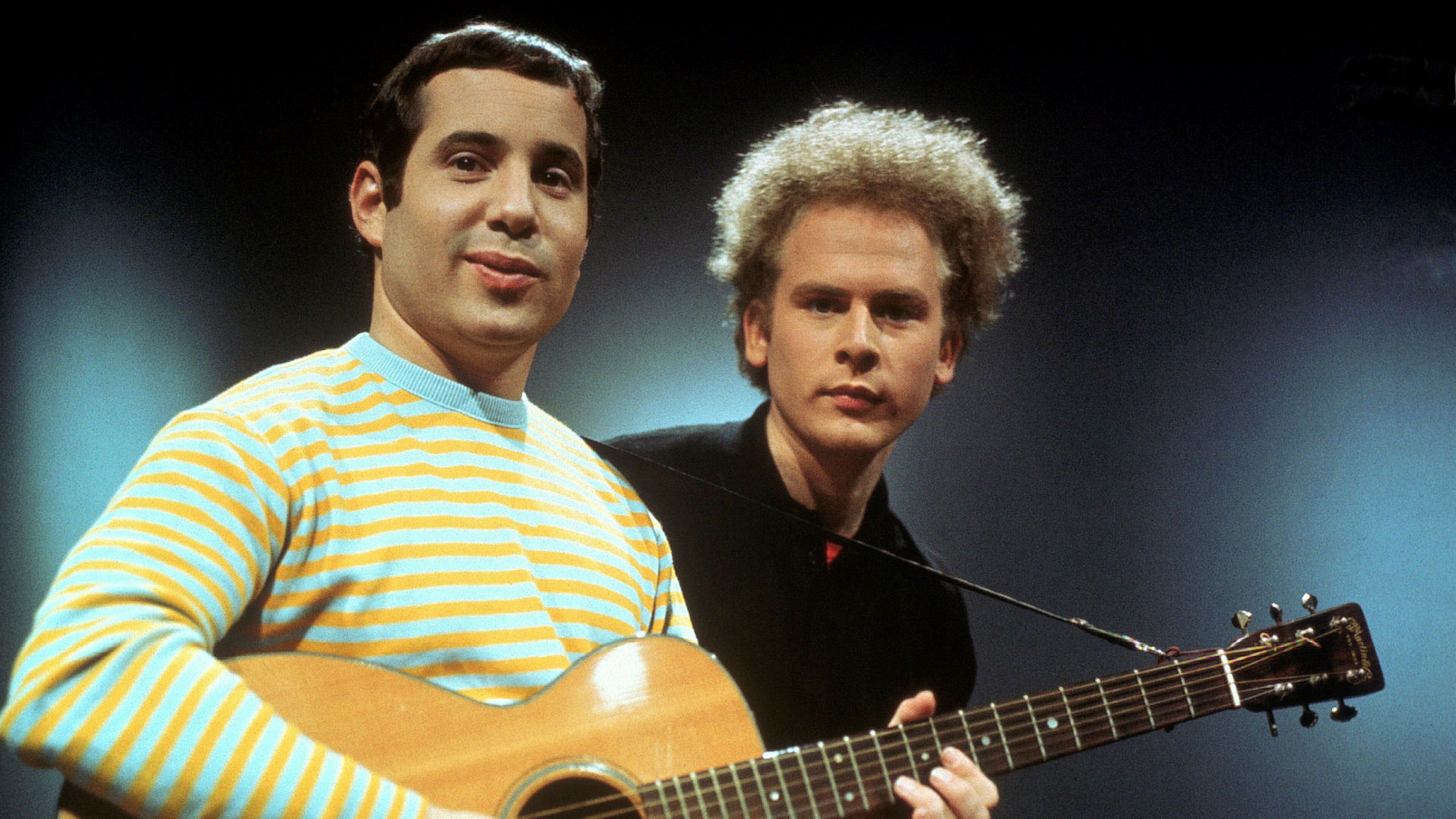
'Bookends' encapsulated themes of ageing, memory, and societal disillusionment, with tracks like 'America' and 'A Hazy Shade of Winter' offering poetic snapshots of existential searching. 'Bridge Over Troubled Water', released in 1970, was their magnum opus, a masterful blend of gospel, classical, and pop influences that formed a deeply emotional statement of comfort and resilience. Songs like 'The Boxer' and 'Cecilia' revealed both vulnerability and rhythmic experimentation, cementing their status not just as folk icons but as trailblazers of genre-blending songwriting. Their music, with its elegance, intelligence, and emotional weight, continues to inspire, standing as a timeless monument to the possibilities of the singer-songwriter era.
The Supremes were Motown's crown jewel, blending soulful vocals with impeccable pop melodies. Diana Ross, Mary Wilson, and Florence Ballard dominated the charts with hits like 'Where Did Our Love Go', 'Baby Love' and 'Stop! In the Name of Love'. They were one of the first African-American acts to achieve mainstream success, breaking barriers in a racially divided America. With their glamorous image and polished performances, The Supremes defined Motown's crossover appeal, influencing generations of female vocal groups and paving the way for broader acceptance of Black artists in mainstream pop.
The Velvet Underground, a stark contrast to mainstream '60s music, was a beacon of avant-garde art-rock. Led by Lou Reed and guided by the artistic vision of Andy Warhol, their debut album, 'The Velvet Underground & Nico', was a revelation. It fearlessly delved into taboo subjects like drug use, sexuality, and alienation. Songs like 'Heroin' and 'Venus in Furs' were raw and experimental, boldly challenging the norms of rock music.
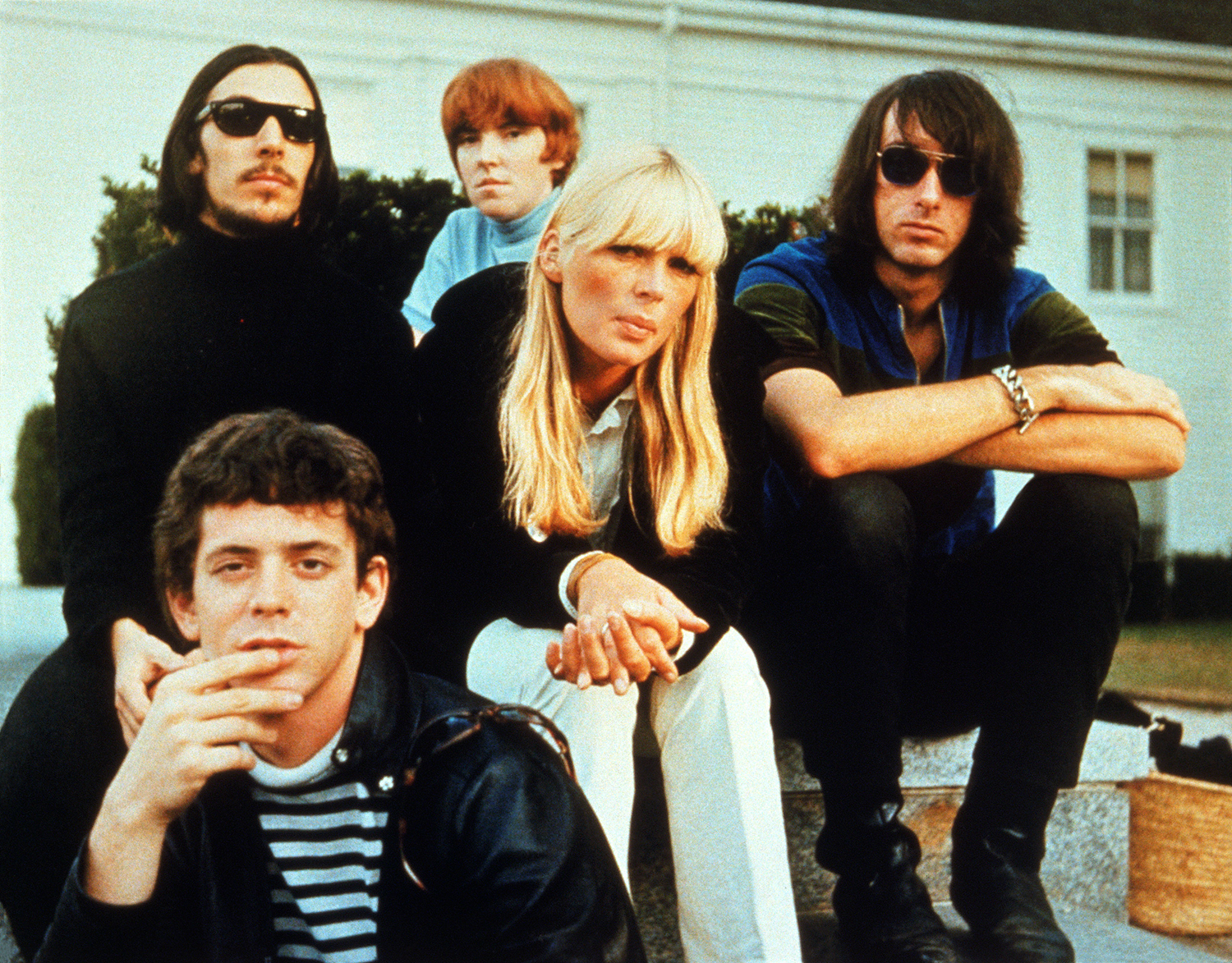
Jefferson Airplane, as pioneers of the psychedelic rock movement, crafted a unique sound that became the anthem of the counterculture revolution. Their hits, such as 'White Rabbit' and 'Somebody to Love', not only captured the spirit of the 'Summer of Love' but also showcased their blend of surreal lyricism and electrifying performances. Grace Slick’s powerful vocals and the band’s fearless embrace of experimentation were instrumental in shaping the San Francisco music scene. Their album 'Surrealistic Pillow' stands as a defining work of the era, blending folk-rock roots with mind-expanding soundscapes. Jefferson Airplane's association with major 60s music festivals, including Woodstock and Monterey Pop, further solidified their influence.
The Beach Boys captured the essence of 60s California, with songs about surfing, cars, and youthful idealism. Led by Brian Wilson, their music evolved from fun pop hits like 'Surfin’ USA' and 'I Get Around' to the groundbreaking sophistication of 'Pet Sounds'. Released in 1966, 'Pet Sounds' was a turning point not only for the band but for the landscape of popular music itself, with lush harmonies, emotional vulnerability, and innovative production techniques, including layered instrumentation, unconventional sound effects, and modular recording. Wilson created an album that redefined what pop could be.
Songs like 'God Only Knows', 'Wouldn’t It Be Nice', and 'Caroline, No' explored themes of love, loss, and longing with a depth rarely heard in mainstream music at the time. The album’s introspective tone and sonic ambition had a profound impact on artists across the globe, most notably The Beatles. Pet Sounds was a direct inspiration for 'Sgt. Pepper’s Lonely Hearts Club Band', a fact acknowledged by the Fab Four themselves. The single 'Good Vibrations', often considered a standalone masterpiece, was built on Pet Sounds’ innovations and pushed the boundaries of what a pop song could achieve.
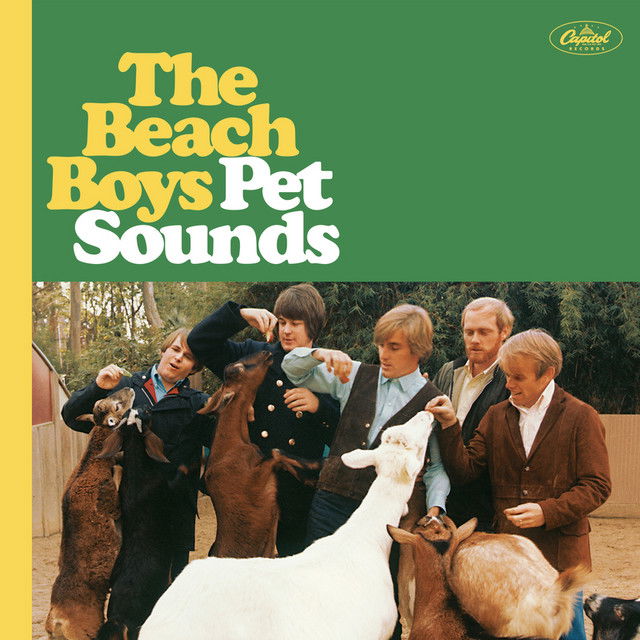
With 'Pet Sounds', The Beach Boys transitioned from being America’s teenage soundtrack to pioneers of the studio-as-instrument era, laying the foundation for generations of artists to treat pop as a more serious, expressive art form.
It wasn't just groups that had a massive impact on this decade. Bob Dylan and Neil Young were two of the 1960s' most famous sons. Dylan, in particular, would be part of one of the most important musical moments of the 20th Century, such as his performance at the Newport Folk Festival in 1965, which marked a significant shift in his musical style and was a defining moment in music history.
The 1960s saw Bob Dylan rise as a transformative figure in music, his influence reverberating far beyond the Greenwich Village folk scene. Blending poetic lyricism with the folk tradition, he became the voice of a generation, his songs capturing the essence of the civil rights and anti-war movements. Tracks like 'The Times They Are a-Changin’ and 'A Hard Rain’s a-Gonna Fall' became rallying cries for a generation seeking to redefine the world around them, demonstrating the profound impact of his music on society.
Dylan’s impact wasn’t limited to folk music. In 1965, he shocked audiences by going electric at the Newport Folk Festival, a moment that has since become one of the most mythologised turning points in music history. The reaction was immediate and intense, with some fans feeling betrayed and booing loudly. At the same time, purists decried the move as a sell-out. Folk icon Pete Seeger was famously said to have wanted to cut the cables with an axe (though this has since been debated), a reflection of just how seismic the moment felt and the depth of the division it caused.
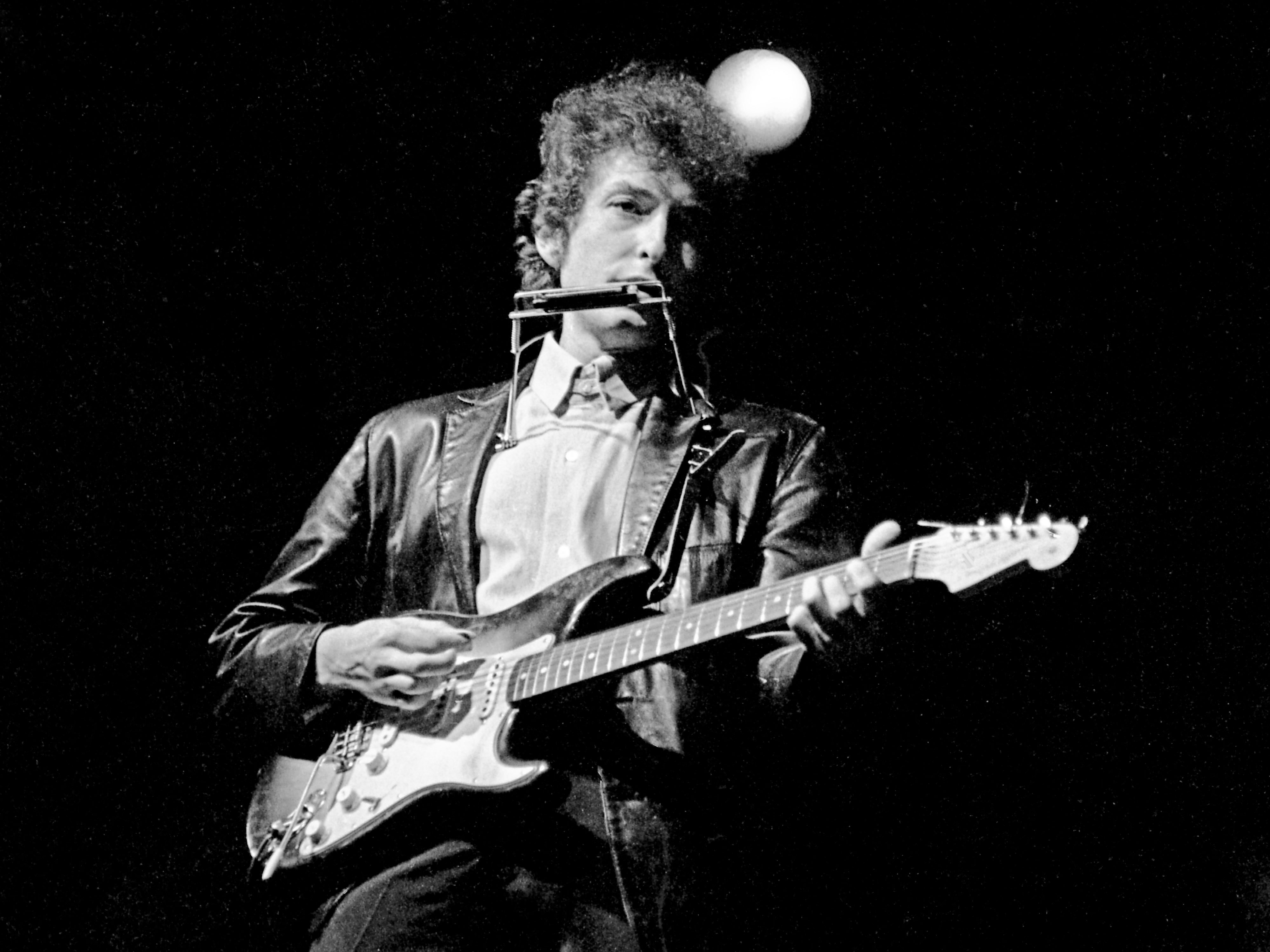
But Dylan wasn’t simply turning his back on his folk roots; he was pushing the boundaries of what popular music could be. This bold move was solidified on his 1965 album 'Highway 61 Revisited', which featured the explosive single 'Like a Rolling Stone'. With its snarling organ, six-minute run-time, and scathing lyrics, it broke every rule of radio and songwriting. Yet, it became a massive hit and redefined the possibilities of rock music.
He followed it with the sprawling double album 'Blonde on Blonde' in 1966, a landmark in lyrical complexity and sonic experimentation. Tracks like 'Visions of Johanna', 'Stuck Inside of Mobile with the Memphis Blues Again', and 'Sad Eyed Lady of the Lowlands' combined surreal poetry with a blues-infused, electric sound that felt entirely new. Dylan’s electric era didn’t just evolve his own artistry; it shattered the boundary between folk and rock, ushering in an era where lyrics could be poetic, songs could challenge norms, and popular music could carry the weight of serious art.
His decision to plug in wasn't just a stylistic choice; it was a statement of independence, a rejection of categorisation, and a signal that music could be both revolutionary and reinvention. In hindsight, Dylan's going electric wasn’t a betrayal of folk ideals; it was their evolution. And in doing so, he didn’t just reshape his own path; he altered the trajectory of modern music itself.
Neil Young’s contributions to the 1960s were equally significant, though his journey began with the iconic folk-rock group Buffalo Springfield. Formed in Los Angeles, the band released three albums, with Young playing a key role in crafting their unique blend of folk, rock, and country influences. Tracks like 'Expecting to Fly' and 'Broken Arrow' showcased Young’s introspective and experimental songwriting, hinting at the deeply personal and innovative work that would come to define his solo career.
By the end of the decade, Young began to carve out his identity as a solo artist with his debut album.
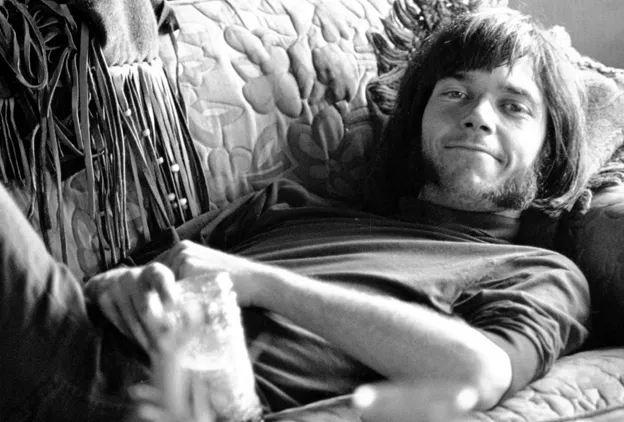
Neil Young's music would become a unique blend of tender ballads and adventurous sonic textures, setting him apart from other artists. His second release, 'Everybody Knows This Is Nowhere', where he teamed up with Crazy Horse, produced electrifying tracks like 'Cinnamon Girl' and 'Down by the River'. These songs, marked by their raw, extended guitar jams and emotive lyricism, established Young as a force in the burgeoning rock scene and laid the groundwork for his storied career in the decades to come. Young would continue with Crazy Horse into the 1970s, and would release some of his best work, including 'After the Gold Rush', 'Heart of Gold' and 'On the Beach'.
In summary, the 1960s were a decade of transformation, driven by a generation's unwavering determination to break away from the past and forge a new future filled with hope. This era, marked by rapid change, left behind a wealth of incredible records and boldly turned away from the ways of old.
As The Who so aptly put it, 'The Kids Are Alright', a sentiment that encapsulates the spirit of the 1960s and its determination to forge a new future.
If the 60s were a time of love, peace, and free spirits, with the rise of the counterculture movement, the 70s... well, the 70s were something else entirely.
We're So Pretty, Oh So Pretty
The 70s were a complex decade, with a lot happening. Disco, reggae, punk, heavy metal, new wave, psychedelia... and many of the iconic artists from the '60s never really went away.
One of the most seismic events at the dawn of the 70s was the breakup of The Beatles. As the emblematic figures of the previous decade, their dissolution was more than just a personal rift. It was a cultural earthquake that reshaped the musical landscape. Each member embarked on their own musical journey, mirroring the 70s' diverse and fragmented music scene. McCartney formed Wings with his wife Linda, George delved into various musical styles while carrying forward The Beatles' experimental spirit, and Lennon ventured to New York for a solo career alongside Yoko Ono, with results that sparked debate. And then there was Ringo. Ringo, the beloved and versatile drummer, seemed to hover between his former bandmates, always ready to lend a hand. If there's one thing to take from The Beatles' story, it's that everyone loved Ringo.
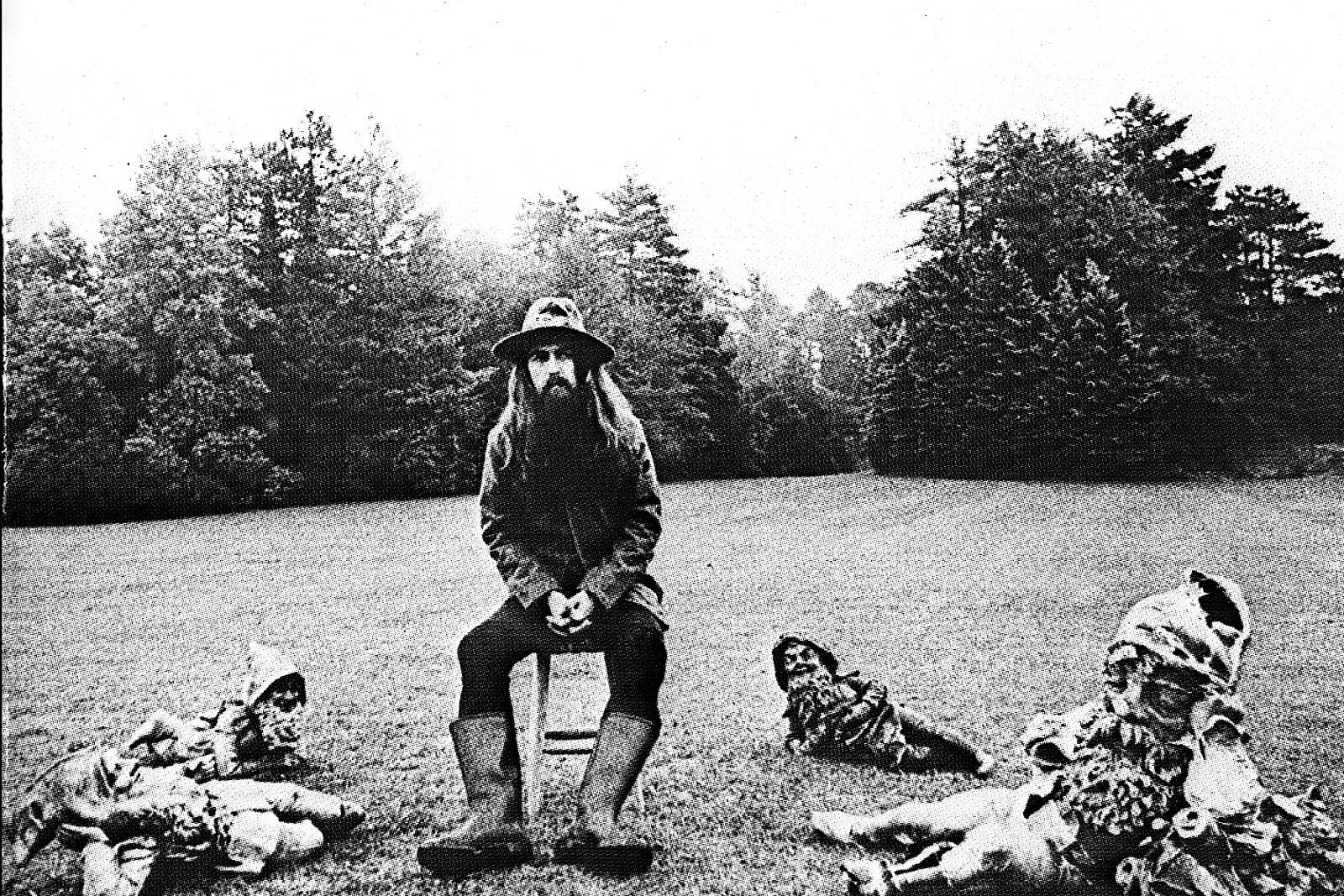
Unlike the band-dominated British music of the 60s, the 70s witnessed the emergence of extraordinary solo artists, each with their unique style and influence. David Bowie, Elton John, and Kate Bush, along with American icons like Joni Mitchell, Billy Joel, and Patti Smith, all left an indelible mark on the music industry. The 70s proved that success was no longer confined to bands, as these solo artists rose to prominence.
Bowie and Elton John, in particular, became synonymous with the 70s, crafting catalogues of brilliant songs that not only defined their era but also transcended it. They took the best elements of the 60s and expanded upon them, creating soundscapes that were innovative, provocative, and uniquely their own, leaving an indelible mark on the music of the 70s.
They each wrote landmark concept albums that would forever shape the landscape of popular music. Bowie with 'The Rise and Fall of Ziggy Stardust and the Spiders from Mars' and Elton John with 'Goodbye Yellow Brick Road'. Following in the footsteps of The Beatles, The Kinks, and The Rolling Stones, Bowie especially stood out for his ability to continually reinvent himself, a feat that not only kept audiences captivated but also ensured his relevance in an ever-changing music industry, leaving a lasting impression on the music world.
'Ziggy Stardust' propelled Bowie to unimaginable heights. The album and its accompanying alter ego, 'Ziggy', became a cultural phenomenon, blending glam rock with sci-fi themes and tackling topics like fame, alienation, and the human condition. However, in a move that would shake the very foundations of his burgeoning career, Bowie abruptly retired the Ziggy character during a performance at London’s Hammersmith Apollo in 1973. The decision to kill off 'Ziggy Stardust' stunned fans, many of whom thought it was career suicide.
But Bowie had other plans. He quickly reinvented himself, morphing into the enigmatic and cold 'Thin White Duke', a persona that reflected a darker, more detached side of his musical and personal evolution. This sudden transformation left the music world in awe, showcasing Bowie's ability to constantly surprise and intrigue his audience.
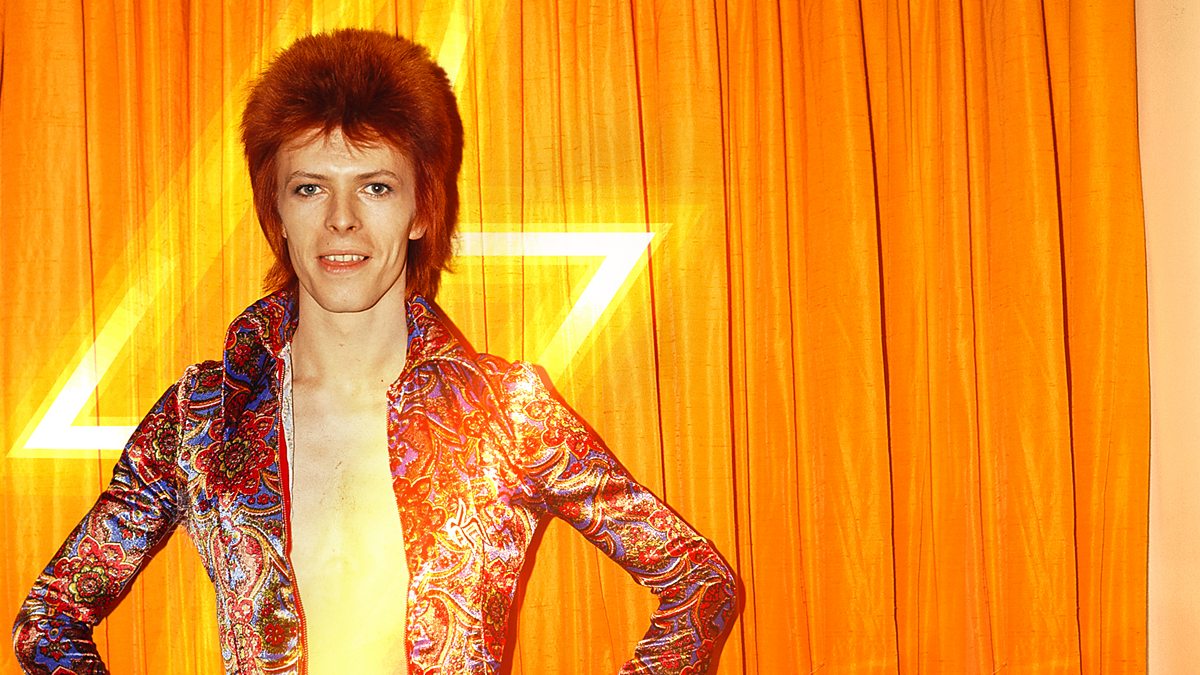
Rather than fade into obscurity, Bowie’s ability to reinvent himself again and again cemented his place in music history. Throughout the 1970s, he released a series of groundbreaking albums that continually redefined not just his own identity but the direction of popular music. After the glam-rock explosion of 'The Rise and Fall of Ziggy Stardust and the Spiders from Mars', Bowie pivoted with the soul-infused 'Young Americans' in 1975, embracing what he called "plastic soul." The album spawned the transatlantic hit 'Fame', co-written with John Lennon and guitarist Carlos Alomar, which became Bowie’s first U.S. number one single and hinted at his growing interest in American funk and soul.
In between, albums like 'Diamond Dogs' and 'Station to Station' showed his increasing ambition and theatrical flair. Introducing personas like the dystopian Halloween Jack and the cold, enigmatic Thin White Duke. These characters weren't just stage gimmicks; they were reflections of Bowie's inner world and the broader cultural anxieties of the time. His music grew darker, denser, and more introspective.
This constant reinvention reached new heights with his so-called 'Berlin Trilogy', a trio of albums recorded in the late 1970s with Brian Eno: 'Low', 'Heroes', and 'Lodger'. Fleeing to Berlin in search of personal and creative renewal after a period of drug addiction and excess in Los Angeles, Bowie immersed himself in the austere, divided city. There, alongside Eno and producer Tony Visconti, he delved into ambient music, minimalist textures, and experimental structures that broke from conventional rock.
'Low', with its fragmented instrumentals and stark emotional tone, baffled some listeners at first but would come to be seen as one of his most influential works, especially in shaping the sound of post-punk, electronic music, and even alternative rock decades later. The follow-up, 'Heroes', balanced icy experimentation with moments of soaring emotion. The title track, inspired by a couple kissing by the Berlin Wall, remains one of Bowie’s most iconic and enduring songs, a rare blend of yearning, defiance, and beauty. 'Lodger', often the most overlooked of the three, blended world music influences and satire, showing that even in experimentation, Bowie was still interested in melody, rhythm, and storytelling.
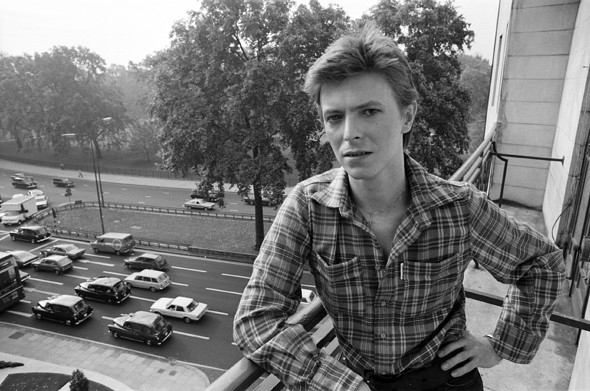
During this period, Bowie also collaborated extensively with Iggy Pop, co-writing and producing Pop's albums' The Idiot' and 'Lust for Life', helping to rejuvenate his friend's career while also influencing his own sound. Their partnership exemplified Bowie's role as not just a solo artist but a creative catalyst for others. It was a mutual exchange of energy.
Songs like 'Sound and Vision', 'Life on Mars', and 'Ashes to Ashes' captured the deepening complexity of his songwriting, layering themes of alienation, fame, and futurism with sonic innovation. 'Ashes to Ashes', in particular, recontextualised his earlier work, revisiting Major Tom from 'Space Oddity' with a darker, more introspective lens, showing that Bowie's career wasn't just about moving forward, but about looping back with new meaning.
By the close of the 1970s, Bowie had moved through glam, soul, ambient, and art rock, not only surviving the decade but dominating it on his own terms. He didn't follow trends; he created them. And in doing so, he laid the groundwork for the sonic diversity of the decades to follow.
As the 1980s began, David Bowie once again reinvented himself, this time as a slick, stylish pop icon. The release of 'Scary Monsters (and Super Creeps)' in 1980 bridged the experimental edge of his Berlin era with a more accessible sound. It featured the haunting single 'Ashes to Ashes', which reintroduced Major Tom with a dark twist. It showcased Bowie's knack for merging art rock with commercial appeal.
But it was 1983's 'Let's Dance' that catapulted Bowie into global superstardom. Produced by Nile Rodgers, the album embraced danceable funk and glossy production, delivering massive hits like 'Modern Love', 'China Girl', and the title track 'Let's Dance'. This era saw Bowie at his most commercially successful, dominant on MTV, impeccably dressed in tailored suits, and filling stadiums worldwide.
While some longtime fans felt he had strayed too far from his avant-garde roots, Bowie's ability to master the pop format without losing his signature cool further proved his versatility. He had become not just a music icon but a full-blown cultural phenomenon.
With each reinvention, Bowie proved he was far more than a fleeting pop star. He was a musical chameleon, and his genius lay in his constant evolution. His ability to not only survive but thrive in the face of continuous change showcased his unparalleled artistry and foresight. From Ziggy Stardust to the Thin White Duke and beyond, Bowie transcended eras and genres, becoming a timeless icon whose influence continues to ripple through music, art, and fashion today. His legacy is not defined by any single sound or look, but by his fearless refusal to stand still.
Elton John, like Bowie, became one of the most defining figures in 70s music. His success wasn't just due to his musical talents but also his flair for showmanship, flamboyance, and his ability to weave deeply personal and relatable themes into his work. His early 70s output, particularly with lyricist Bernie Taupin, helped shape the cultural fabric of the era. Albums like 'Goodbye Yellow Brick Road' became timeless classics, with songs like 'Bennie and the Jets', 'Goodbye Yellow Brick Road' and 'Candle in the Wind' instantly becoming anthems that have endured through the decades.
What set Elton John apart was his blend of eclectic styles. His music fused elements of rock, pop, and glam, but also drew on earlier influences like the soulful balladry of the 50s and the storytelling tradition of classic British pop. His piano playing, often virtuosic, was integral to his sound and became an unmistakable signature. The impact of his theatrical live shows, combined with his wild costumes, became a hallmark of the 70s glam rock movement. Still, unlike many of his contemporaries, Elton managed to maintain a sense of authenticity that drew people in.
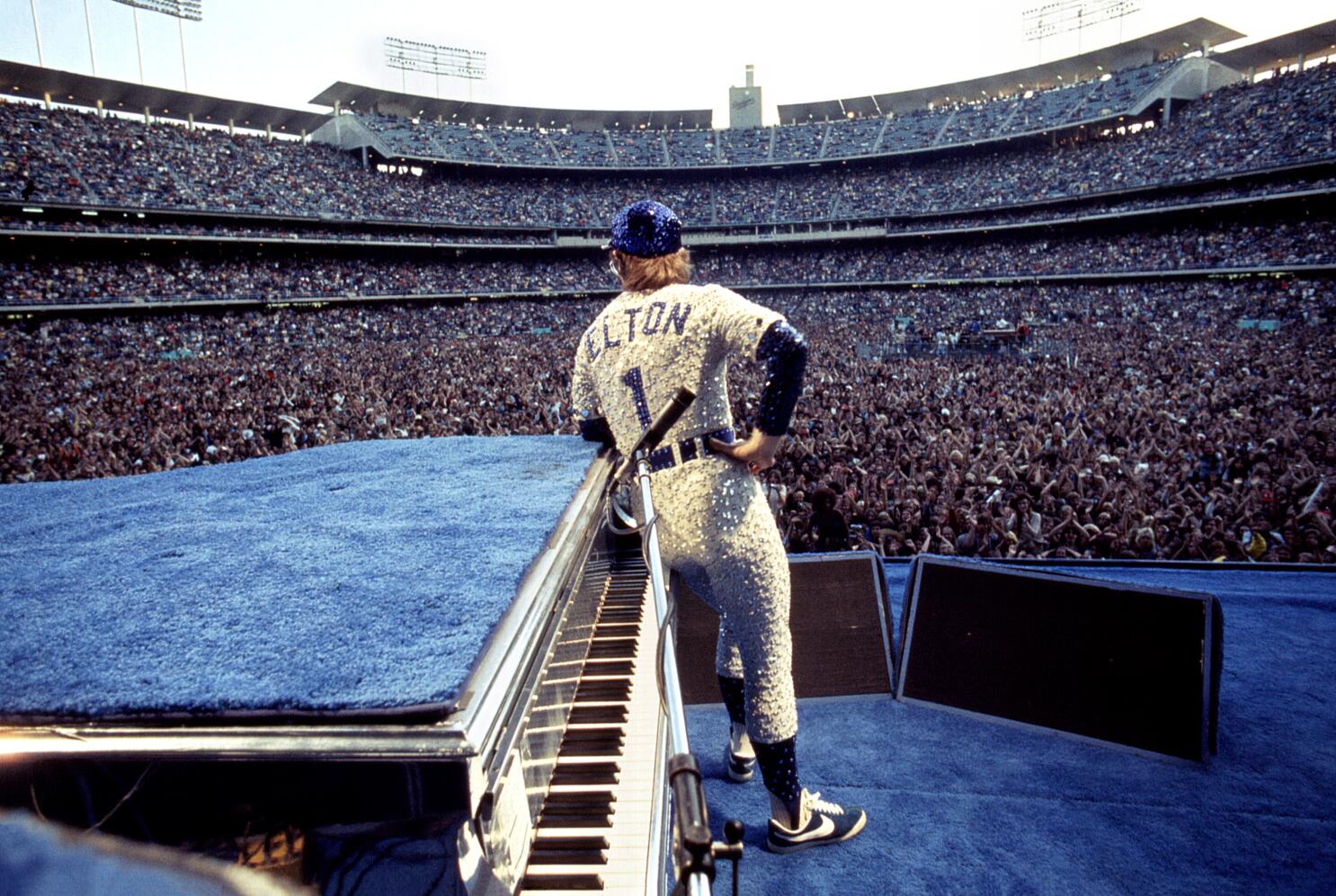
By the middle of the decade, Elton was already a massive star, and his live shows were nothing short of grandeur and flamboyance, a true reflection of his persona. One of the most iconic performances of his early career took place at Dodger Stadium in 1975, a concert that was not just a show, but a spectacle. This concert marked a significant milestone in both his career and the history of rock performances, leaving a lasting impression on all who witnessed it.
On May 29, 1975, Elton John performed at Dodger Stadium in Los Angeles, a massive venue with a capacity of over 50,000 people. The concert became one of the largest single-attended concerts of the 1970s and is often remembered as a defining moment in Elton's career. It was not just a concert; it was an extravagant spectacle that reflected the larger-than-life persona Elton had cultivated by that point. Known for his over-the-top performances, Elton donned his now-iconic Dodgers uniform, complete with rhinestones and sequins. He performed a set that featured his greatest hits up to that point, including 'Candle in the Wind', 'Your Song', 'Bennie and the Jets' and 'Saturday Night's Alright for Fighting'.
Elton John was one of the decade's biggest stars, and he was, and remains, one of the most beloved and enduring figures in pop and rock history. His influence on the music industry, with his unique blend of pop, rock, and flamboyant performances, is undeniable. His songs continue to resonate with audiences, and his influence can be seen in the work of many contemporary artists.
Kate Bush's emergence in the late 70s with 'Wuthering Heights' was a seismic shift in the music landscape. The song, released in January 1978, not only captured the essence of Emily Brontë’s gothic novel but also showcased Bush’s distinctive voice and innovative songwriting. Her haunting, ethereal vocals and dramatic delivery set her apart from anything else on the charts at the time, and the song’s success, soaring to Number One on the UK charts, catapulted her to instant stardom. What made 'Wuthering Heights' even more remarkable was that Kate was just 18 years old when she wrote, recorded, and produced the track, making her one of the youngest artists ever to achieve such critical and commercial success. This unique style and early success set the stage for her remarkable career.
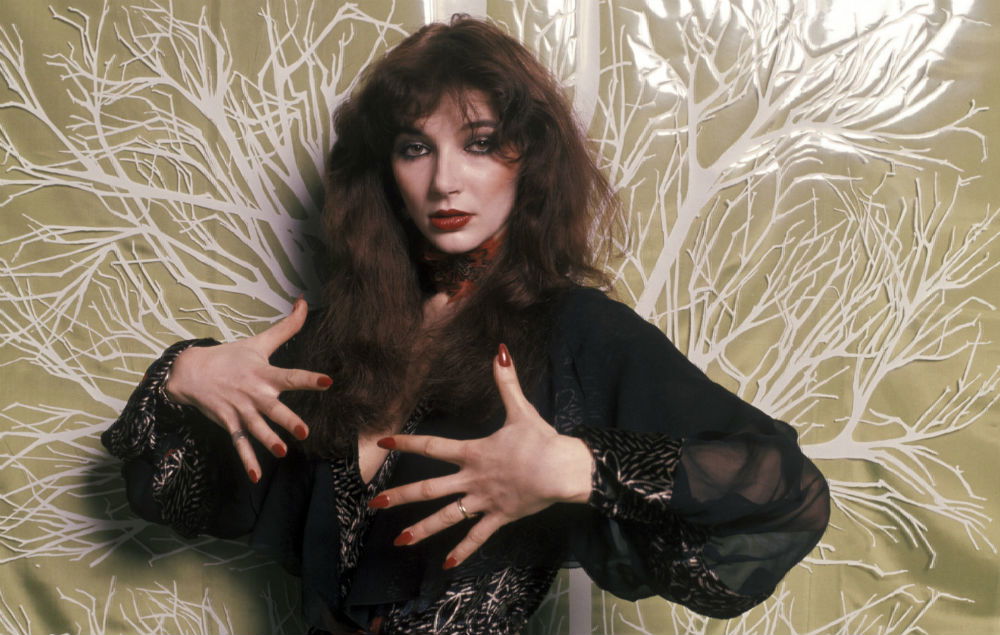
It wasn’t just The Beatles who saw members go solo. In 1975, Peter Gabriel, displaying remarkable courage, left Genesis to launch a successful solo career. His first single, 'Solsbury Hill', marked a departure from the progressive sound he was known for with Genesis. It was the beginning of a major reinvention, both in image and sound, that would continue well beyond the 70s. Gabriel wouldn’t be the only artist to reinvent himself during this time.
The '70s were dominated by some of the biggest groups in rock history. Queen, Fleetwood Mac, The Cure, The Clash, The Jam, Sex Pistols, Pink Floyd, Dire Straits, ELO, and Genesis were just a few of the notable bands making their mark. Even though one of the old guard had broken up, The Kinks and The Rolling Stones were still going strong.
If the 60s showed the world what a band was capable of, the 70s set out to prove that it wasn’t just a fluke. Bands wanted to be bigger, better, and more excessive and, believe me, they certainly tried. And many succeeded, achieving unprecedented success and leaving a lasting mark on the history of rock music.
Fleetwood Mac, a band with members from both sides of the Atlantic, found themselves in a unique situation-they were all romantically involved. Mick Fleetwood, Christine McVie, and John McVie were married, while Stevie Nicks and Lindsey Buckingham were dating. The band was in turmoil, on the brink of implosion. Yet, despite the tension and let’s face it, the enormous amount of drug taking, they managed to produce one of the greatest albums ever made. 'Rumours' was, and still is, a timeless classic and one of the best-selling records of all time. Their resilience in the face of such turmoil is awe-inspiring.
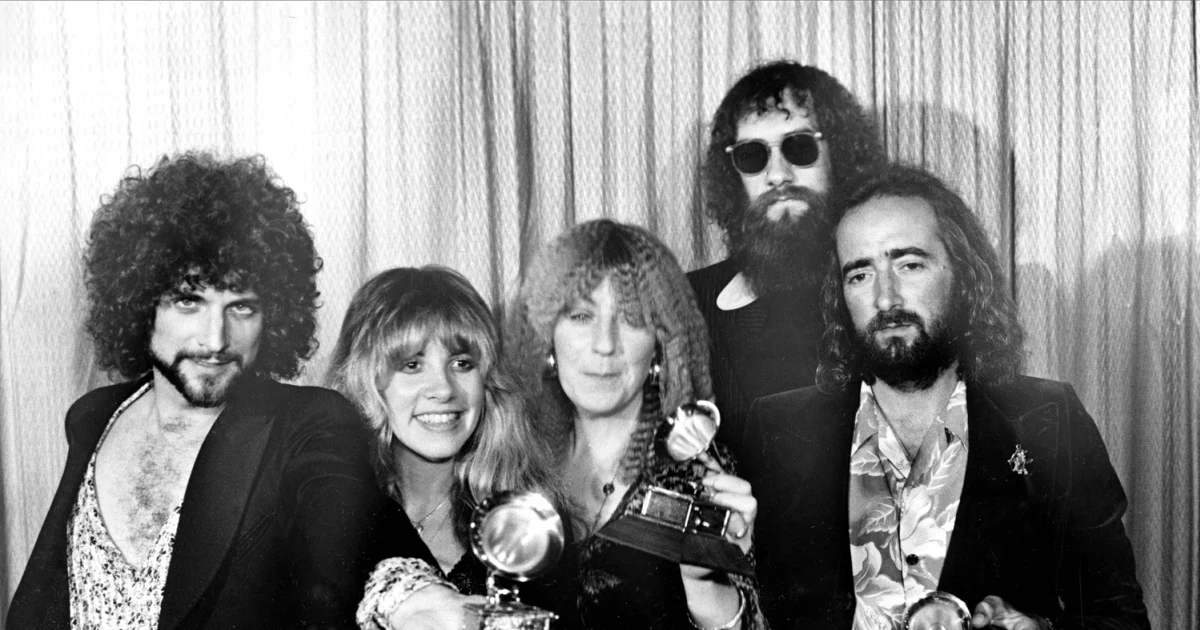
Queen were a band that took the experimental methods of the '60s and combined them with the emerging technologies of the '70s, which is a testament to human creativity. Their versatility, showcased in a string of ambitious and genre-defying albums throughout the 1970s, is truly impressive. Their 1973 debut, 'Queen', and its follow-up, 'Queen II', introduced their distinctive blend of hard rock, theatrical flair, and fantastical lyricism. By the time they released 'Sheer Heart Attack' in 1974, featuring the dazzlingly eclectic hit 'Killer Queen', they had fully hit their stride.
With 1975’s 'A Night at the Opera', Queen pushed boundaries even further, crafting a meticulously arranged and sonically adventurous record that fused rock, opera, and vaudeville. This album was significant because it ripped up the rock n roll rulebook. While 'Bohemian Rhapsody' would become its most famous track, the album as a whole was a bold statement of creative freedom. The momentum continued with 'A Day at the Races' and 'News of the World', which produced arena-shaking anthems like 'We Will Rock You' and 'We Are the Champions'.
By the end of the decade, Queen had become one of the most inventive and theatrical bands of their time. 1978’s 'Jazz' showcased their stylistic diversity with tracks like the riotous 'Bicycle Race' and the empowering 'Don't Stop Me Now'. Their ability to shift between bombastic rock, campy humour, and heartfelt balladry. All delivered with virtuosic musicianship, which set them apart in a decade bursting with innovation.
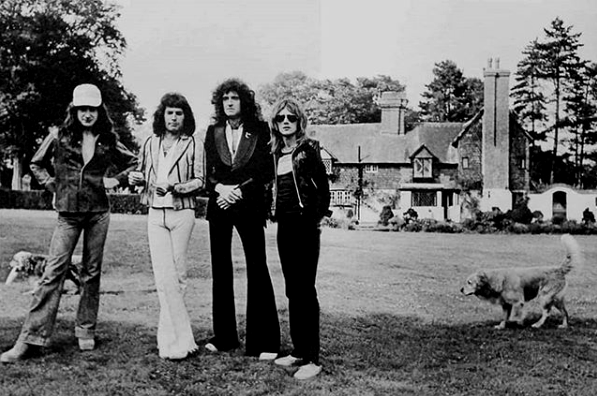
Queen's 'Bohemian Rhapsody' stands as a testament to their 70s innovative spirit. This six-minute masterpiece shattered conventions with its operatic structure, multi-layered harmonies, and genre-defying approach. Freddie Mercury, the band's charismatic frontman and the song's primary writer, envisioned 'Bohemian Rhapsody' as a 'rock opera' combining elements of classical music, hard rock, and balladry into a seamless and theatrical narrative.
The recording process for 'Bohemian Rhapsody' was as groundbreaking as the song itself. Recorded over three weeks in 1975 at several studios in the UK. The iconic operatic section alone required nearly 180 overdubs. The song's iconic piano opening was recorded on the same piano that The Beatles had used to record 'Hey Jude' and Elton John had used to record 'Goodbye Yellow Brick Road', and at the time, it was the most expensive song ever recorded. The song topped charts worldwide, staying at number one in the UK for nine weeks and becoming one of the best-selling singles of all time. Its accompanying music video, often credited as one of the first promotional videos of its kind, further solidified its iconic status.
Pink Floyd took the concept of the album to unprecedented heights, crafting immersive masterpieces that blended groundbreaking ideas with innovative instrumentation and sonic experimentation. Albums such as 'The Dark Side of the Moon', 'Wish You Were Here', 'Animals', and 'The Wall' are not only cornerstones of 1970s music but also iconic works of art that transcended the traditional boundaries of rock. Each album pushed conceptual and musical limits. From the introspective melancholy of 'Wish You Were Here' to the scathing political allegory of 'Animals', and the rock opera brilliance of 'The Wall'.
Their visual aesthetic was equally visionary. Album covers designed by the legendary Hipgnosis studio and artist Storm Thorgerson became cultural symbols in their own right. Surreal, enigmatic, and instantly recognisable. Whether it was the refracted prism on 'The Dark Side of the Moon' or the burning man handshake on 'Wish You Were Here', these images deepened the mystique and thematic resonance of the music within.
A significant part of Pink Floyd's legacy is their live performances, particularly their iconic 1972 film 'Live at Pompeii'.
Originally filmed in 1971, the concert saw Pink Floyd play to an audience of none in the ancient amphitheater of Pompeii. Aside from a small film crew, a few shirtless hippies, and some curious local kids who snuck in, it was just the band and the ghosts of history. Captured just before the band would ascend to global superstardom and sell over 45 million albums, 'Live at Pompeii' offers a snapshot of Pink Floyd at their most exploratory. It was a band still evolving carving out a new identity in the wake of founding frontman Syd Barrett’s departure, yet fully immersed in progressive experimentation.
From October 4–7, 1971, the band filmed performances of 'Echoes', 'A Saucerful of Secrets', and 'One of These Days'. While the material leaned heavily on their new album 'Meddle', Maben also insisted on including older, visually intense tracks like 'Careful With That Axe, Eugene'.
The songs were recorded live, but this wasn’t a traditional concert setup. Tracks were captured in segments; the band played to the amphitheater’s natural reverb and reviewed playbacks on headphones. The environment stripped of crowd noise, stage chatter, and ego allowed the music to breathe and evolve in haunting new ways.
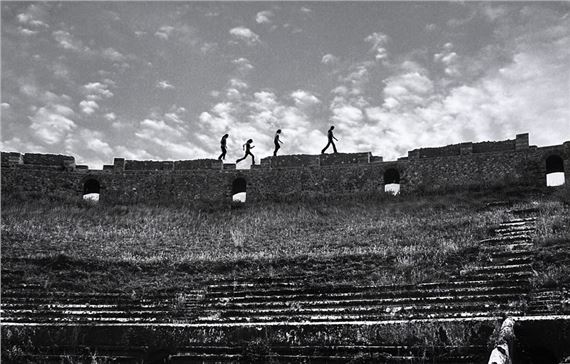
What makes Live at Pompeii brilliant and unique is that it captured a band on the brink of greatness, doing something no one had done before. The Beatles had toyed with similar ideas for 'Let It Be' concerts in ancient ruins or on ships, but ultimately ended up on a London rooftop. Pink Floyd actually did it, and while the Beatles unraveled, Floyd soared into their golden era. From there, Pink Floyd would redefine what a rock band could be. Starting with 'The Dark Side of the Moon' in 1973
'The Dark Side of the Moon' is a monumental achievement in rock history, a seamless, immersive exploration of themes such as mental health, the passage of time, mortality, conflict, and the pressures of modern life. Released in 1973, the album marked a turning point for Pink Floyd, not only in terms of commercial success but also in their artistic evolution. It pushed the boundaries of what rock music could convey, both sonically and emotionally.
The album's lush soundscapes and fluid transitions between tracks create a continuous listening experience, designed to be absorbed as a cohesive whole. Its pioneering use of studio techniques, including tape loops, analogue synthesisers, spoken word segments, and innovative sound design, contributed to its atmospheric depth and lasting influence. Tracks like 'Time', with its ticking clocks and lyrical meditation on the fleeting nature of life, and 'The Great Gig in the Sky', featuring Clare Torry's wordless, emotionally raw vocal performance, highlight the band's ability to blend profound lyrical themes with powerful musical expression.
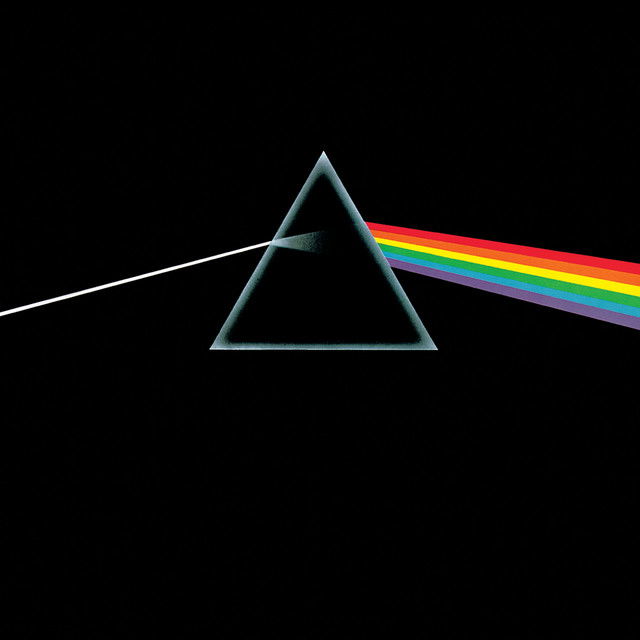
Other standout moments include the philosophical introspection of 'Us and Them', the disorienting paranoia of 'Brain Damage', and the iconic cash-register loop that opens 'Money', a biting critique of capitalism. Together, these songs form a sonic tapestry that feels both deeply personal and universally relatable.
'The Dark Side of the Moon' remains one of the best-selling and most acclaimed albums of all time, a testament to its technical brilliance, conceptual ambition, and emotional resonance. The album's technical brilliance, from its innovative use of studio effects to its seamless transitions, is a testament to Pink Floyd's musical prowess and is sure to impress any music enthusiast. It cemented Pink Floyd’s place as one of the most visionary and influential bands in music history.
'Wish You Were Here', released in 1975, stands as one of Pink Floyd’s most emotionally resonant and artistically cohesive albums. It's a poignant tribute to their estranged founding member, Syd Barrett. Deeply affected by Barrett’s mental decline and absence, the album channels a profound sense of loss and disillusionment, not just with a former bandmate, but also with the increasingly impersonal nature of the music industry. The emotional depth of 'Wish You Were Here' invites the listener to empathise with the band's personal journey.
The nine-part suite 'Shine On You Crazy Diamond' bookends the album, serving as both elegy and homage to Barrett. With its haunting synth intro, bluesy guitar lines, and evocative lyrics, it captures the fragile brilliance and tragic fate of a once-vibrant creative force. The title track, 'Wish You Were Here', is a timeless reflection on absence and longing, wrapped in acoustic simplicity and raw emotional honesty.
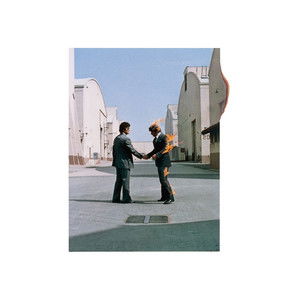
Other tracks like 'Welcome to the Machine' and 'Have a Cigar' offer scathing critiques of the music business, portraying it as a soulless machine that exploits and alienates artists. The latter, with guest vocals by Roy Harper, is especially biting in its sarcasm and cynicism.
'Wish You Were Here' deepened Pink Floyd's exploration of personal and philosophical themes, and its seamless fusion of sound design, lyrical depth, and conceptual unity further solidified their status as pioneers of progressive rock. The album has endured not only as a commercial success but as a profoundly human work, a meditation on presence, loss, and the struggle to remain authentic in an increasingly commodified world. Its emotional depth and relatable themes make it a timeless piece of art that resonates with listeners on a personal level.
The raw and politically charged 'Animals' offered a scathing critique of societal structures, drawing inspiration from George Orwell's Animal Farm. Its extended compositions and darker tone demonstrated the band's willingness to tackle complex and provocative themes. Divided into three central tracks, 'Dogs', 'Pigs (Three Different Ones)', and 'Sheep', the album painted a bleak portrait of capitalist society, where greed, control, and blind obedience defined human behaviour. 'Animals' is not just a musical masterpiece, but a powerful social commentary that remains relevant in today's world.
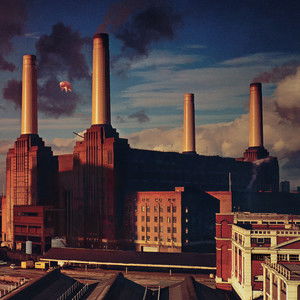
Released in 1977, 'Animals' boldly marked a departure from the more personal and atmospheric storytelling of previous records like 'Wish You Were Here', delving instead into overt political commentary. The album’s gritty sound and dense lyrical content reflected the band’s growing cynicism, especially that of Roger Waters, who had begun to take a dominant role in the group’s creative direction. Though not as commercially accessible as some of their earlier work, 'Animals' has earned a revered place in Pink Floyd’s discography for its bold vision and uncompromising message, a powerful, snarling statement amid an increasingly turbulent era.
'The Wall', a rock opera penned primarily by Roger Waters, took Pink Floyd’s conceptual ambitions to unprecedented levels. Released in 1979, the double album explored themes of abandonment, authoritarianism, psychological trauma, and the emotional barriers people build to protect themselves, symbolised by the metaphorical wall of the title. Structured as a narrative arc following the character Pink, a disillusioned rock star whose life unravels under the weight of personal and societal pressures, the album unfolds with a haunting intensity that will captivate and immerse you.
Iconic tracks like 'Another Brick in the Wall, Part 2' with its unforgettable children's chorus and anti-authoritarian message became anthems of rebellion, while 'Comfortably Numb', featuring one of David Gilmour’s most revered guitar solos, captured the numbness of emotional detachment with chilling beauty. Other standout moments, such as 'Hey You', 'Mother', and 'Run Like Hell', not only deepened the psychological complexity of the story but also showcased the band's artistic evolution, combining sonic experimentation with raw human vulnerability.
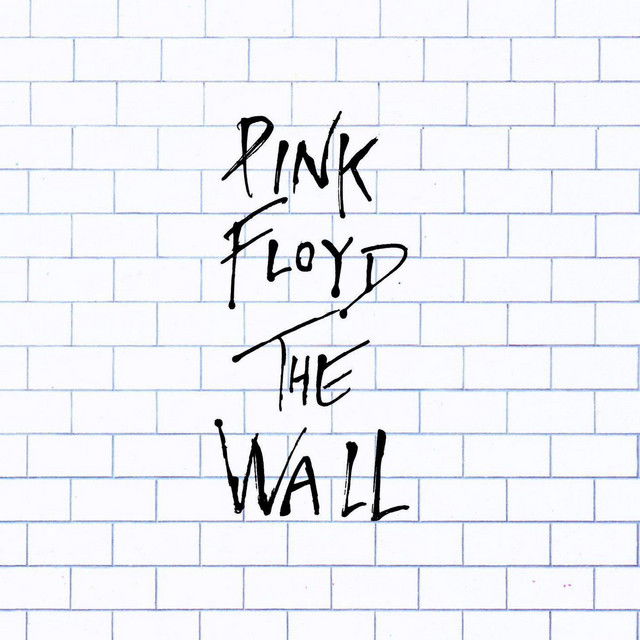
'The Wall' wasn’t just an album; it was a full-scale artistic statement. Its elaborate stage show, complete with a literal wall being built and torn down during live performances, set new standards for theatrical rock concerts. The 1982 film adaptation, directed by Alan Parker and featuring animations by Gerald Scarfe, brought the album’s narrative to life in strikingly surreal fashion, further embedding its themes into popular consciousness. Critically acclaimed and commercially massive, 'The Wall' became one of the best-selling albums of all time and remains a landmark in rock history, a bold, unflinching exploration of alienation and identity. Its influence on rock history is undeniable, shaping the future of the genre and inspiring countless artists.
Electric Light Orchestra (ELO), led by the visionary Jeff Lynne, was one of the most innovative and ambitious bands of the 1970s and '80s. Their unique sound, a grand combination of rock and classical orchestration, set them apart in the music industry. Known for their elaborate arrangements, lush melodies, and technological experimentation, ELO managed to bridge the gap between progressive rock and pop music, crafting hits that were both complex and irresistibly catchy. Albums like 'A New World Record' and 'Time' showcased their ability to merge sweeping string sections with futuristic synths and tight pop songwriting.
Lynne’s meticulous studio craftsmanship pushed the limits of what rock could sound like, creating a polished, symphonic pop-rock hybrid that still feels ahead of its time. Even as musical trends shifted, ELO’s work stood out for its ambition and melodic brilliance, cementing the band’s legacy as pioneers of genre-blending innovation.
One of ELO's most revered works, 'Out of the Blue', stands as a monumental achievement in the annals of rock music. This double album, brimming with timeless hits, serves as a masterclass in production and songwriting. Recorded during a period of intense creativity by Lynne, the album features a plethora of standout tracks. 'Mr. Blue Sky', often hailed as one of the most uplifting songs ever written, is a joyous celebration of sunny optimism, propelled by its infectious melody and orchestral flourishes.
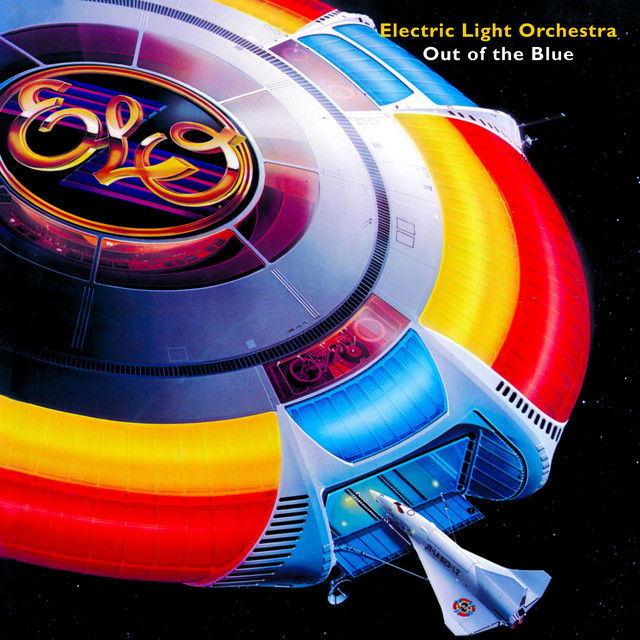
Beyond the well-known 'Mr. Blue Sky', songs like 'Turn to Stone' and 'Sweet Talkin' Woman' showcase Lynne's unique talent for creating multi-layered tracks that are both intricate and immediately captivating. The album’s production, characterised by rich harmonies, sweeping strings, and synthesiser-driven innovation, pushed the boundaries of what rock music could achieve. Out of the Blue was a commercial success, going multi-platinum and solidifying ELO’s status as one of the biggest bands of the era. It remains a testament to the ambition and creativity that defined the late 70s, a timeless record that continues to inspire and delight listeners decades later.
It's one of the very best albums of that decade, an album unfairly defined by one song. Although that song is brilliant. It has now come to represent both 'Out of the Blue' and ELO themselves, and this record proves that they had so much more to offer. One of the outstanding British records.
The 1970s were a huge decade for two bands. One from Sweden, and one from Australia. ABBA and the Bee Gees.
After their victory at the 1974 Eurovision Song Contest with 'Waterloo', the Swedish quartet released a string of albums that dominated the decade. It helped define the sound of 1970s pop. Albums like 'Arrival', featuring hits such as 'Dancing Queen', 'Money, Money, Money', and 'Knowing Me, Knowing You', showcased their unrivalled ability to craft pop perfection, catchy, emotionally resonant, and impeccably produced. 'Dancing Queen' in particular became a global anthem, earning ABBA their first and only No. 1 in the United States.
'The Album', released in 1977, further cemented their status with more sophisticated, introspective songwriting. Tracks like 'The Name of the Game' and 'Take a Chance on Me' demonstrated their growing maturity as composers and their willingness to experiment within the boundaries of pop. The group’s lyrical depth evolved, addressing themes of vulnerability, uncertainty, and the complexity of relationships. This was a significant departure from their earlier, more exuberant material, showcasing their growth and maturity as a band.
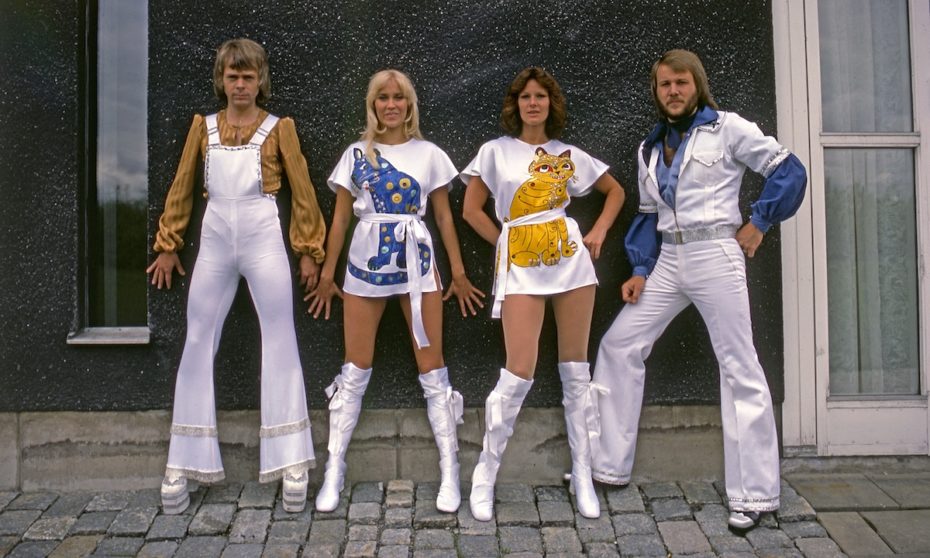
By the time 'Voulez-Vous' arrived in 1979, ABBA had fully embraced the rhythmic allure of disco. The album, a perfect blend of their melodic pop instincts and dancefloor sensibilities, gave birth to hits like 'Does Your Mother Know', 'Chiquitita', and the title track 'Voulez-Vous'. Songs like 'I Have a Dream' and 'Angeleyes' showcased the band’s emotional range, adding to their enduring appeal that still resonates with us today. With their sparkling production, seamless vocal harmonies, and polished songwriting, ABBA's music transcended language and borders, earning them massive international acclaim.
Their influence on pop music was and remains monumental. By the end of the 1970s, ABBA were not only one of the best-selling acts in the world, but they had also set a new standard for what pop music could be: emotionally intelligent, musically ambitious, and universally accessible.
The Bee Gees began their journey in the 1960s as a trio of brothers. Barry, Robin, and Maurice Gibb crafted emotive pop-rock tunes that showcased their unique vocal harmonies and poignant songwriting. Their early success came with 'Bee Gees' 1st', an album that featured hits like 'New York Mining Disaster 1941' and 'To Love Somebody', both of which displayed a knack for storytelling and emotional depth. 'Massachusetts', a chart-topping ballad, captured the melancholic beauty that became a hallmark of their early work. The album 'Horizontal' continued their rise, producing tracks like 'Words' and 'World', further solidifying their status as gifted songwriters. By the end of the 60s, albums like 'Odessa' showcased a more experimental side, with lush orchestration and ambitious arrangements. This period established the Bee Gees as versatile artists capable of blending pop, rock, and orchestral influences into a unique sound.
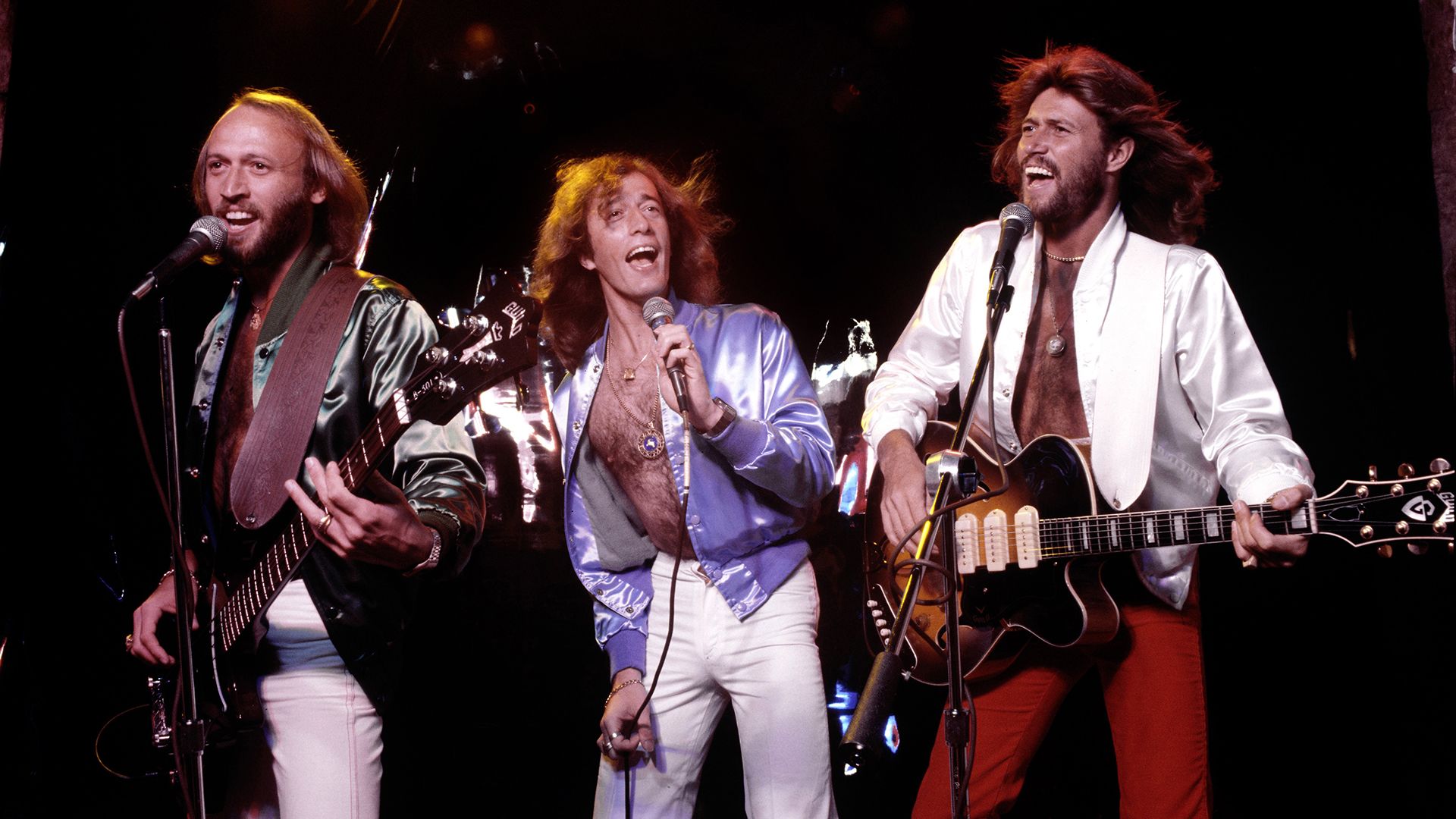
The 1970s witnessed a remarkable transformation of the Bee Gees, as they emerged as the pioneers of the disco era. This reinvention, which began with 'Main Course', saw them introduce a funkier, danceable sound with hits like 'Jive Talkin’ and 'Nights on Broadway'. Their mastery of falsetto harmonies became their signature, creating an unmistakable sound that would define the decade. However, it was the 'Saturday Night Fever' soundtrack that solidified their legendary status. Featuring iconic tracks like 'Stayin’ Alive', 'Night Fever' and 'How Deep Is Your Love', the album not only dominated the charts but also became the definitive soundtrack of the disco movement.
Beyond disco, the Bee Gees continued to showcase their songwriting brilliance. They penned hits for other artists, such as 'Emotion' for Samantha Sang and 'Islands in the Stream' for Kenny Rogers and Dolly Parton, proving their versatility and staying power. Their 1979 album 'Spirits Having Flown' marked another high point, with hits like 'Tragedy' and 'Too Much Heaven'. Throughout the decade, the Bee Gees evolved from pop storytellers into global superstars, shaping the sound of the 70s and leaving an indelible mark on music history.
Although formed in the 1960s, Black Sabbath and Led Zeppelin were at their most prolific during the 1970s. For Black Sabbath, albums such as 'Paranoid' featuring iconic tracks like 'Iron Man', 'War Pigs' and 'Master of Reality', a precursor to doom metal, firmly established the band’s dominance. Later works, including 'Sabbath Bloody Sabbath' and 'Sabotage', revealed a growing sophistication in their music, blending heavy riffs with progressive rock elements.
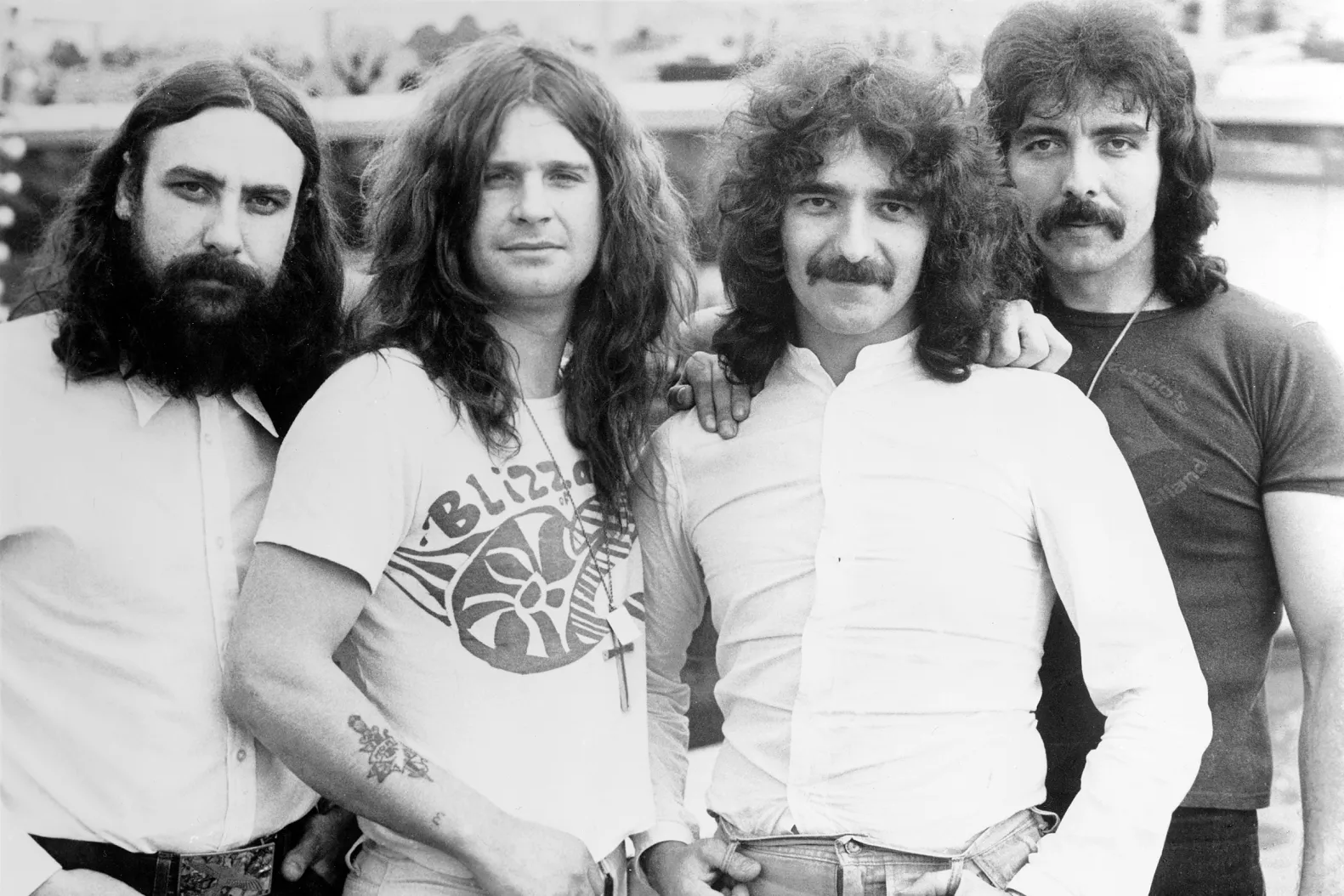
Black Sabbath epitomised the rock ’n’ roll lifestyle, surrounded by countless tales of excess and chaos. Ozzy Osbourne, the band’s frontman, became particularly synonymous with this wild behaviour. His most infamous moment came when he bit the head off a bat during a live performance. Reportedly believing it to be a prop.
However, Black Sabbath were much more than rock legends. They became a profound influence on a genre that would come to fruition in the late 1970s: punk. Sabbath’s stripped-down approach, rebellious attitude, and raw power resonated deeply with the burgeoning punk scene, leaving a lasting influence. Bands like the Sex Pistols and The Damned cited Sabbath’s relentless energy and DIY ethos as key inspirations. Despite being musically different, the punks felt an attachment to the ideas and ethos of bands like Black Sabbath.
Meanwhile, Led Zeppelin were pushing the boundaries of rock music with their genre-defying sound. Combining blues, hard rock, and folk, they crafted epic, timeless works that remain iconic to this day. Their magnum opus, 'Led Zeppelin IV', includes 'Stairway to Heaven', one of the most celebrated rock songs in history. Albums such as 'Houses of the Holy' and the double album 'Physical Graffiti' not only demonstrated the band’s versatility but also their influence on diverse music genres, blending intricate guitar work with influences ranging from funk to Eastern music.
As the 1970s drew to a close, Led Zeppelin delivered one of their most memorable performances at the Knebworth Festival in 1979. After a two-year hiatus marred by personal tragedies, including the death of Robert Plant’s son, the band returned to the stage to reclaim their throne as rock royalty. Performing to a crowd of over 200,000, they played a setlist that spanned their entire career, including fan favourites like 'Stairway to Heaven' and 'Whole Lotta Love'. The performance was a testament to the band's resilience and enduring impact on rock music.
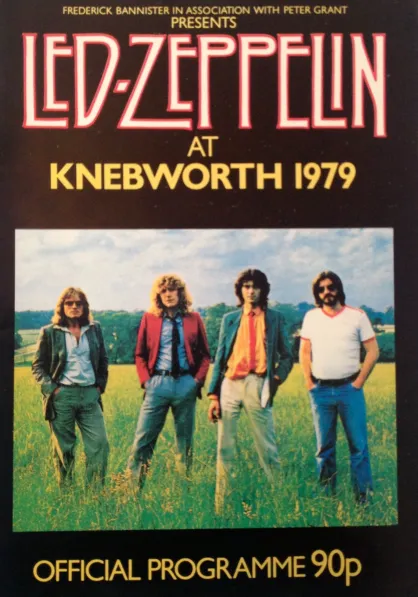
Before discussing the subsequent culturally significant musical development in Britain, it is essential to set the scene. The 1970s in Britain were a difficult time for many. In December 1973, the finance minister privately warned Prime Minister Edward Heath’s cabinet that the country faced its gravest economic crisis since the Second World War. This crisis was characterised by high inflation, rising unemployment, and a significant decline in industrial production. Strikes were widespread, and power blackouts left many in the dark. It was a bleak time, marked by soaring unemployment and scarce resources. Where the 1960s had brought young people a sense of hope, by the late 1970s, the optimism of the 'Swinging Sixties' had well and truly faded. For many, it seemed there was 'No Future.'
Punk needed to happen. It was inevitable. During these times of hardship, there was no one for young people to turn to. Music did not represent them. It was challenging to connect with the musicians of the time; a young working-class kid with no job couldn’t relate to someone like Donna Summer singing about love, or Queen singing 'We Are the Champions'. The socio-economic context of the 1970s, with its high unemployment, social unrest, and disillusionment, created a fertile ground for a new form of music that would reflect the feelings and experiences of the youth. Although those artists are great, something had to change, and something changed forever!
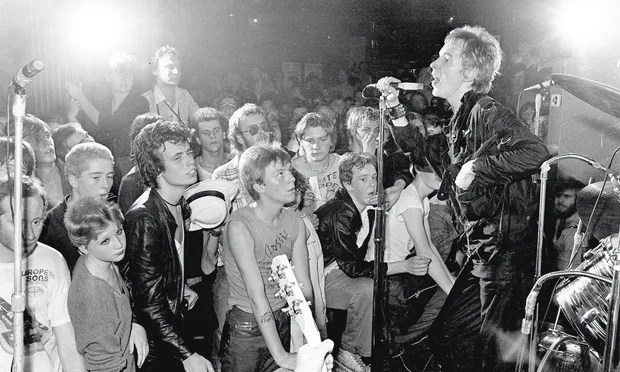
Punk, a genre unlike any other, was raw, provocative, and crude, yet possessed a unique beauty. It resonated with the disenfranchised, a sound that many initially dismissed as mere shouting and screaming. However, this period, from late 1976 to early 1978, birthed some of the most brilliant pieces of music, both singles and albums, each with a distinct sound and feel.
Although both were considered punk bands, The Clash and The Sex Pistols were utterly different in style, yet both wrote about working-class struggles. Their music, particularly 'Never Mind the Bollocks', is not just important, but influential, becoming the soundtrack of the disenfranchised youth. This album, along with iconic songs like 'God Save the Queen' and 'Anarchy in the UK', caused uproar at the time, triggering a seismic shift in youth culture and demonstrating the immense influence and power of these bands.
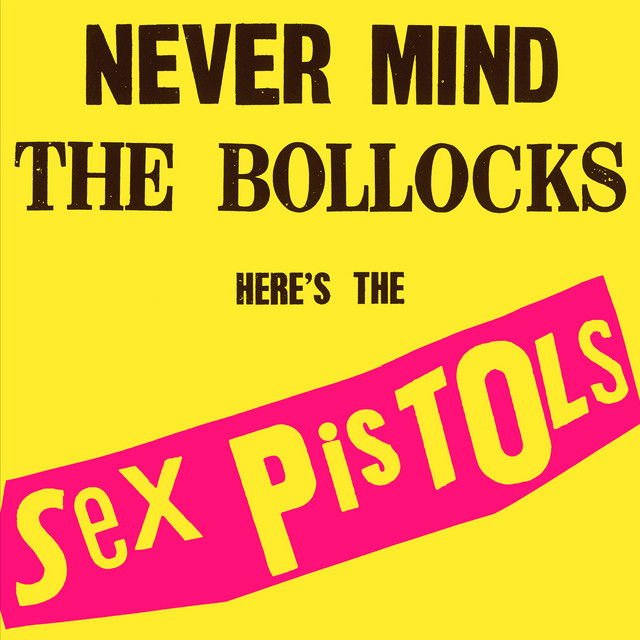
The Sex Pistols were notorious for their disregard for authority, a trait that resonated with many. This was evident in the infamous Bill Grundy incident, which turned the band into public enemy number one. All of the band and the host were intoxicated during the interview. Encouraged by Grundy, Jones said the band had 'fucking spent' its label advance, and Rotten used the word 'shit'. Grundy, who had later claimed to have been drunk, then attempted to flirt with Siouxsie Sioux, who replied that she had 'always wanted to meet' him. Grundy responded, 'Did you really? We'll meet afterwards, shall we?', prompting Jones to repeatedly swear.
Or the band's famous boat party. On 7th June 1977, the band achieved a significant milestone: they chartered a boat to perform their songs along the Thames, passing the Houses of Parliament, and mocking the planned river procession for the Queen's Silver Jubilee, a significant event in British history. However, it ended in chaos with the Police bringing a stop to the concert, and many of the band's entourage being arrested.
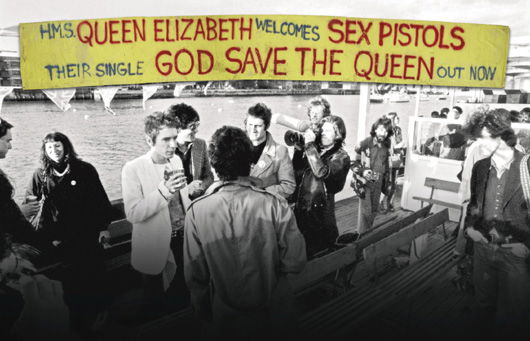
It was a time when boundaries were shattered, but the resilience of the pioneers of this scene would eventually lead to a new era and influence the decades to come, inspiring us with their enduring impact.
Bands like The Jam, The Stranglers, and The Clash didn't just move on from the punk scene; they embarked on a musical journey that embraced diverse influences, expanding their horizons and intriguing us with the complexity of their evolution. This journey not only marked a departure from the raw, gritty aesthetic of early punk but also led these bands to write some of their most celebrated and enduring songs.
With 'All Mod Cons', The Jam underwent a critical turning point, allowing Paul Weller to showcase his exceptional songwriting ability. Tracks like 'Down in the Tube Station at Midnight' and 'English Rose' revealed a depth and maturity that elevated the band beyond their punk roots. Weller was crafting anthems for a generation, capturing the struggles and aspirations of British youth with sharp lyrics and compelling melodies. Many consider All Mod Cons not just a turning point but The Jam’s most essential and cohesive album, blending punk energy with mod-inspired sophistication.
For the Clash, 'London Calling' was a monumental achievement, marking the band at their creative peak. Released in 1979, the double album saw the group transcend their punk roots, crafting a more mature and complex work that redefined their sound and broadened their appeal. The title track, 'London Calling', became an anthemic call to arms, with its ominous, apocalyptic lyrics and driving rhythm capturing the anxieties of a generation. Meanwhile, 'Train in Vain' showcased the band’s ability to deliver heartfelt, melodic songs, blending elements of pop and rock to create one of their most enduring hits.
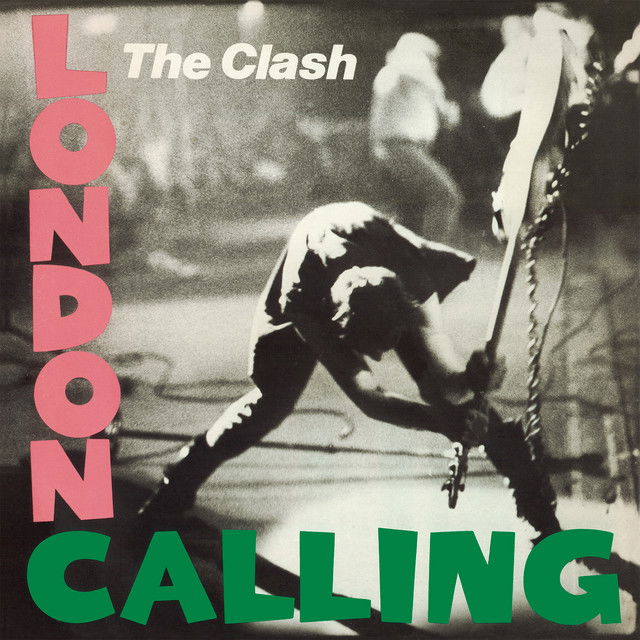
The album was a courageous statement, blending a wide array of influences, including reggae, ska, rockabilly, and even jazz. Tracks like 'The Guns of Brixton' and 'Rudie Can't Fail' revealed the band’s boldness in exploring Caribbean rhythms. At the same time, songs like 'Clampdown' and 'Spanish Bombs' demonstrated their fearless commitment to political and social commentary. They expanded on a sound that had made them famous, never afraid to explore new ideas and tackle the essential subjects at the time.
The Stranglers, too, charted a similar course, infusing their music with elements of new wave and art rock. Tracks like 'Golden Brown' and 'Strange Little Girl' were evidence of their evolution, demonstrating their ability to grow while retaining their distinctive sound, which in turn broadened their fan base.
Two American bands also took over the UK airwaves in the late 70s. Talking Heads and Blondie took the punk sound and ethos and ran with it, leaving a significant mark on the music scene. Talking Heads, led by the enigmatic David Byrne, blended punk with art rock, funk, and a touch of the avant-garde. Albums like 'More Songs About Buildings and Food' and 'Fear of Music' were critically acclaimed, producing tracks like 'Psycho Killer' and 'Life During Wartime' which showcased the band's inventive approach to music. Their innovative sound became a cornerstone of the emerging post-punk movement.
Blondie’s 'Parallel Lines' was a game-changer, becoming one of the most influential albums of the decade and catapulting the band to superstardom. It took the DIY spirit of punk and infused it with a pop sensibility, producing timeless hits like 'Heart of Glass', 'Hanging on the Telephone' and 'One Way or Another'. Blondie's pioneering role in the new wave movement, blending punk energy with disco, pop, and reggae, was a testament to the album's impact on the music scene.
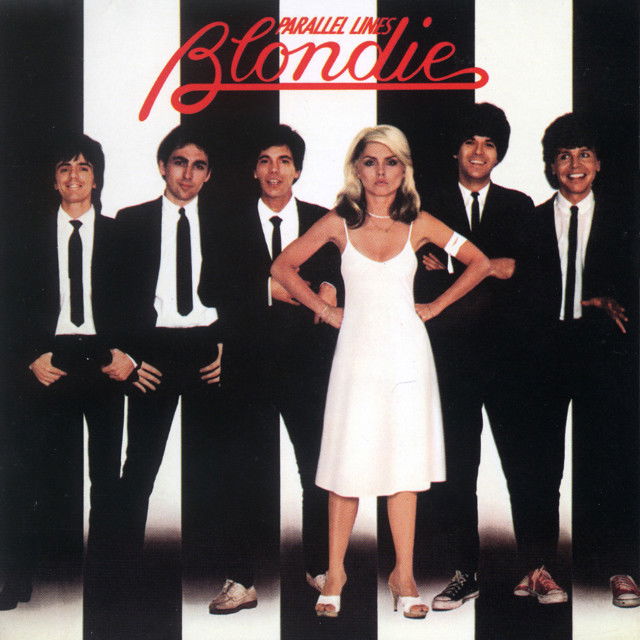
After the success of 'Parallel Lines', Blondie continued to evolve. Their 1979 follow-up, 'Eat to the Beat', showcased their range, blending rock anthems like 'Dreaming' with funk-inspired tracks like 'Atomic'. The band's ability to experiment while maintaining their mainstream appeal was unparalleled. By 1980, they further pushed the boundaries with Autoamerican, which featured 'The Tide Is High', a reggae-infused track, and 'Rapture', a groundbreaking song that brought rap into the mainstream, making it the first rap-influenced track to reach Number One on the Billboard charts.
Blondie's influence extended beyond their music. They were not just musicians, but also style icons. Debbie Harry's fashion sense set trends that are still emulated today. Their music videos were not just innovative but also visually striking, helping to shape the aesthetics of the MTV era that was just around the corner. Blondie's pioneering spirit was evident in their willingness to embrace diverse genres, from punk and disco to reggae and hip-hop. This bold approach made them pioneers in breaking down musical barriers. Their success paved the way for future artists to explore and mix genres, leaving a lasting impact on the music industry.
The influence of both bands was immense. Blondie's success helped the new wave gain mainstream acceptance, inspiring British acts such as The Cure, The Police, XTC, and even The The, who embraced the genre's fusion of punk attitude with pop accessibility. Talking Heads, on the other hand, pushed the boundaries of what post-punk could be, influencing a generation of experimental bands on both sides of the Atlantic. Together, these two bands helped define the sound of the late 70s and early 80s, bridging the gap between punk's raw immediacy and the more polished, diverse styles that followed.
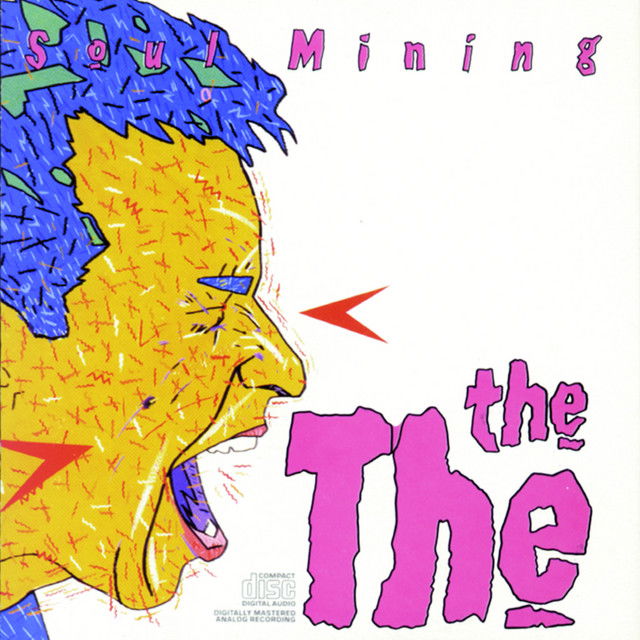
It wasn’t just about London in the 70s, though. Manchester. Well, Manchester always has so much to answer for. Buzzcocks formed in 1976, led by singer-songwriter-guitarist Pete Shelley and singer-songwriter Howard Devoto. These two would be key players in organising the now legendary Sex Pistols show at the Lesser Free Trade Hall. Despite the small audience of only 42 people, the show's influence would reverberate through the music world, making it one of the most important music events ever.
It’s incredible when you learn who was at the gig. Buzzcocks themselves were there, as well as Peter Hook, Ian Curtis, Bernard Sumner (then part of the nascent Warsaw, later Joy Division and New Order), and Mark E. Smith of The Fall fame. Tony Wilson, a Manchester TV presenter, also attended and would go on to start Factory Records, one of the most iconic independent labels, and create the legendary Hacienda nightclub (more on that later).
Even a young Morrissey was in the audience, and it’s safe to say he was not impressed. He later wrote a scathing letter to the NME expressing his disdain. More on him later.
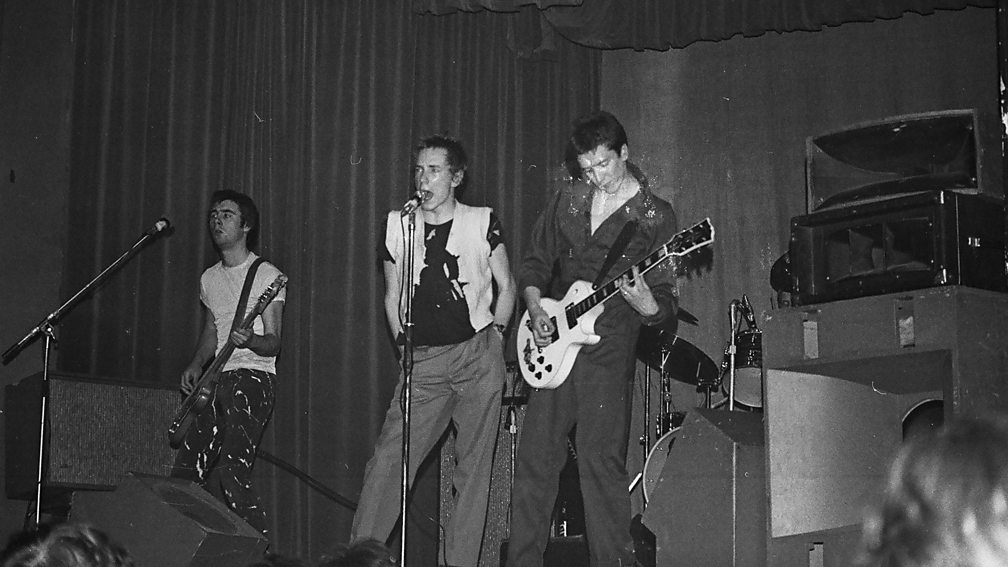
What makes this event so extraordinary is the unexpected ripple effect it caused. This seemingly insignificant, under-attended gig in a forgotten venue sparked a cultural revolution in Manchester, cementing the city as a hub for creativity and innovation. Buzzcocks themselves would go on to pioneer a unique brand of pop-punk, with hits like 'Ever Fallen in Love (With Someone You Shouldn't've)' becoming timeless anthems. Meanwhile, the seeds planted that night gave rise to Joy Division's haunting post-punk sound, The Fall’s avant-garde brilliance, and the foundations of a music scene that would dominate the 80s and beyond.
It wasn’t just the music that mattered; it was the spirit of independence. The powerful DIY ethos of punk inspired these artists not to wait for a record deal but to create and release their own music. This attitude, a testament to the power of individual creativity, would become the lifeblood of Manchester’s music scene, influencing countless bands and redefining what it meant to make music outside the mainstream. That night in 1976 was not just a concert. It was the birth of a movement.
The 70s, much like the decade before it, were a time of profound change. It was an era where anything seemed possible. Bowie shot for the stars, Queen wrote rock operas, and Joy Division helped birth the world’s first indie record label. It was a time of mass hedonism and mass hardship, which led to some of the most important music ever made. Looking back, it's a decade that continues to inspire and shape our understanding of music history.
Love Will Tear Us Apart- The 80s Part 1
I’m going to begin the 1980s exactly where I left off in the 1970s: Manchester. By this time, Joy Division had firmly established themselves as an integral part of Tony Wilson’s Factory Records and were riding the wave of creative momentum from the success of their debut album 'Unknown Pleasures'. Released in 1979, 'Unknown Pleasures' was a game-changer for the post-punk movement, with its haunting, atmospheric sound and angular, sparse production. The album showcased a remarkable mix of cold, mechanical rhythms and emotionally charged lyrics, most notably in tracks like 'Disorder', which opened the album with a sense of urgency, and the devastating 'She's Lost Control', which captured Curtis's lyrical exploration of the human condition. 'Unknown Pleasures' became a touchstone for both fans and critics, with its dark, introspective themes and minimalist sound influencing countless bands in the years to come.
By the time they began working on their second album, 'Closer', released in 1980, Joy Division was already on the brink of greater success. With songs like 'Love Will Tear Us Apart', which would become their most iconic and enduring track, and 'Isolation', which showcased their evolving sound, 'Closer' was shaping up to be another masterpiece. The album was darker, more polished, and more complex. However, it still held true to the band’s core sound, brooding and intense, yet emotionally raw. As the band prepared for their first American tour, the momentum was building for what could have been their breakout moment.
But just days before they were set to embark on that tour, tragedy struck. On May 18, 1980, Ian Curtis, the enigmatic frontman whose haunting baritone voice and intense stage presence had defined the band's identity, was found dead in his home. Curtis had long struggled with epilepsy and was deeply troubled by the idea of performing in front of American audiences, fearing how they would react to his condition. Add to that his personal struggles and the pressures of his growing fame, and it became clear that Curtis had been grappling with overwhelming darkness. His death not only marked a heartbreaking personal loss but also abruptly ended what could have been an even more influential chapter in the band's history.
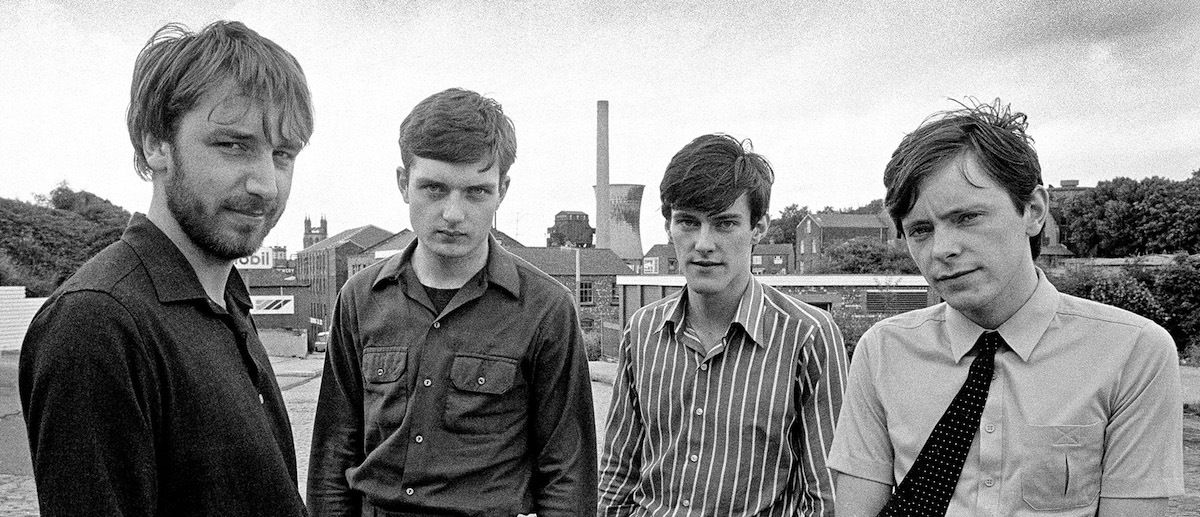
After the tragic loss of Curtis, Bernard Sumner, Peter Hook, and Stephen Morris found themselves at a crossroads. Instead of succumbing to the grief, they showed remarkable resilience. Unable to continue under the Joy Division name, they formed a new band, New Order, marking the start of one of the most influential musical journeys of the 1980s. Though the shadow of Joy Division loomed large, New Order quickly established themselves as a groundbreaking force in the music scene.
In the early years, New Order reinvented their sound, blending post-punk with electronic music to create an innovative style that would dominate the decade. Their fusion of danceable synths, infectious basslines, and introspective lyrics set them apart from their peers. But it wasn’t just their music that defined New Order. Their significant role in the rise of the Acid House movement, a cultural phenomenon that swept through the UK, was a testament to their impact on the broader cultural landscape of Manchester.
The band became deeply entwined with Factory Records, the iconic label founded by Tony Wilson, and they played a crucial role in the rise of the Hacienda nightclub, which became the epicentre of Manchester’s vibrant music scene. New Order's influence on the city's music scene was profound, making them not only key figures in the city's nightlife but also helped launch the careers of other influential artists, including graphic designer Peter Saville, whose striking artwork became synonymous with the band’s visual identity.
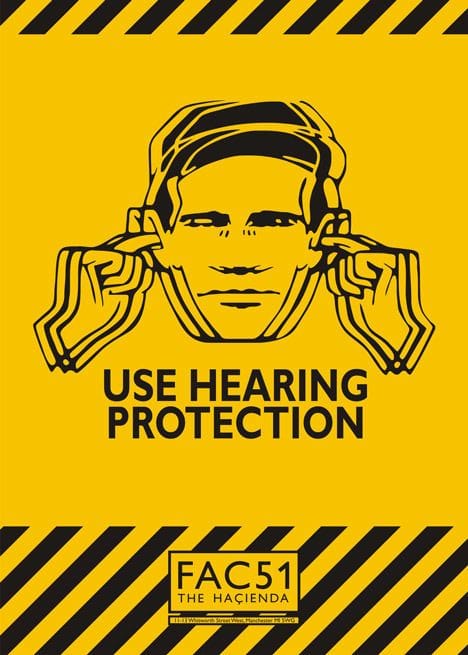
New Order’s impact on the music world was revolutionary. Their 1983 single 'Blue Monday' became a landmark release, becoming the biggest-selling 12-inch single of all time. The track’s groundbreaking blend of electronic dance music and post-punk rock elements influenced countless artists. It marked the beginning of a new era in music production. But their influence didn’t stop there.
Emerging from the ashes of Joy Division following the death of Ian Curtis, New Order forged a new sound that was both emotionally resonant and sonically adventurous. Their 1981 debut album 'Movement' still carried the weight and gloom of their post-punk roots, but it was with 1983’s 'Power, Corruption & Lies' that they found their voice. That album saw the band boldly experiment with synthesisers and drum machines, producing tracks like 'Age of Consent' and 'Your Silent Face'-songs that perfectly blended melancholy with danceable rhythms, and helped define the aesthetic of synth-driven alternative music. Their boldness in experimentation continues to inspire countless artists.
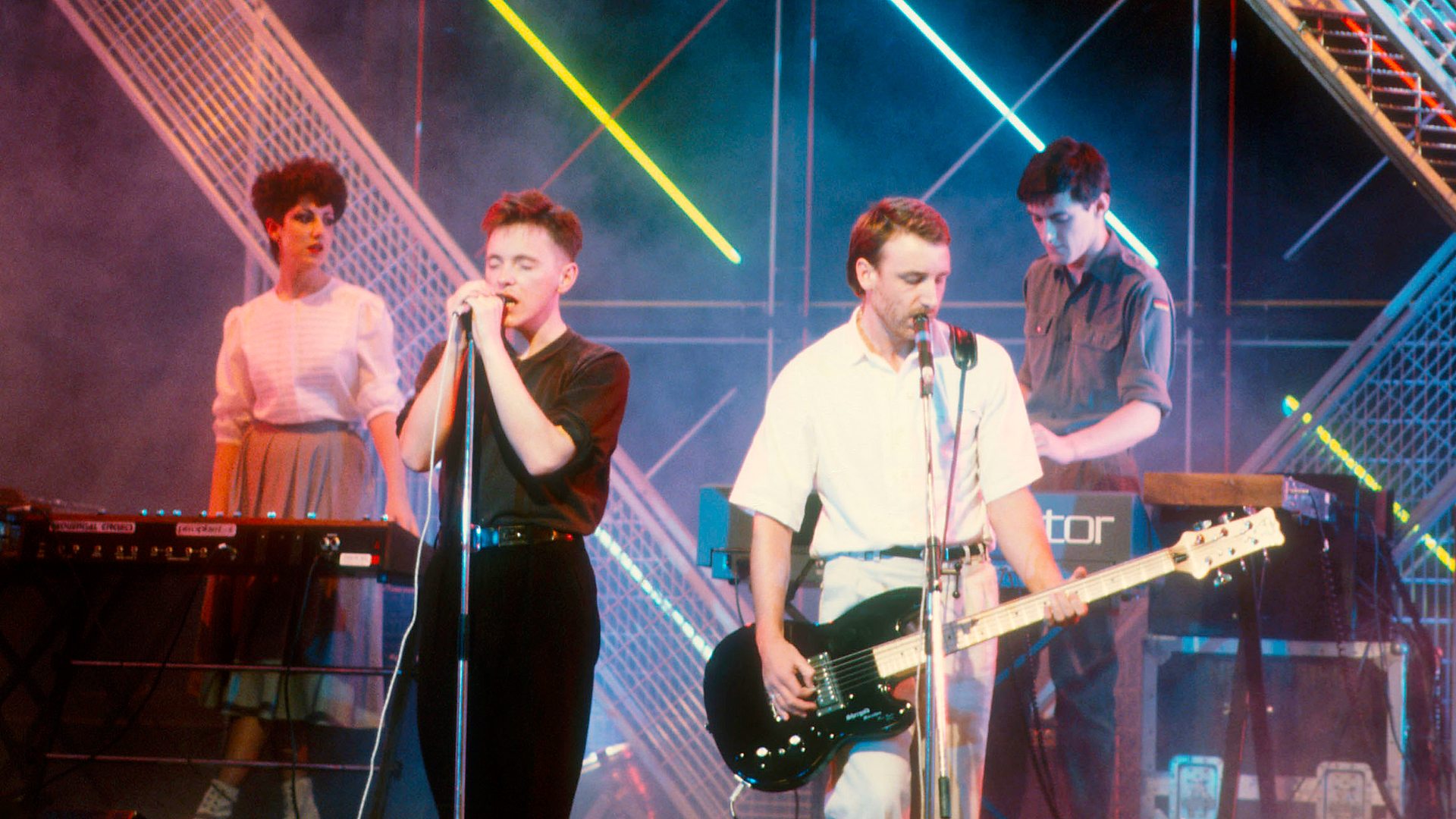
In 1985, 'Low-Life' continued this evolution, unveiling a darker, more sophisticated sound that was uniquely New Order. Tracks like 'Love Vigilantes' and 'The Perfect Kiss' struck a perfect balance between narrative depth and electronic experimentation, inviting listeners to delve into the band's musical journey. Two years later, 'Brotherhood' arrived, juxtaposing the band's guitar-based roots with the increasingly dominant electronic elements in their music. The hit single 'Bizarre Love Triangle' became one of their most enduring songs, a testament to their ability to marry wistful emotion with club-ready energy.
As key players in the Acid House movement, New Order helped shape the evolution of dance music, particularly through their 1989 album 'Technique', which fully embraced electronic beats and house music influences. Tracks like 'Fine Time' and 'Round & Round' reflected the hedonism and energy of the late-80s dancefloor. With Manchester's legendary nightclub The Haçienda, co-owned by the band as a focal point, New Order became central figures in the 'Madchester' scene. This cultural movement fused indie rock, dance music, and fashion with an unmistakably Northern swagger. The success of the movement marked Manchester as a global hub for new music and creative energy, with New Order standing at the forefront of this revolution.
But Manchester wasn't just about Factory Records; it would be remiss of me not to mention eight more musicians: Morrissey, Marr, Rourke, and Joyce. Brown, Squire, Mani, and Reni. Or, as we know them, The Smiths and The Stone Roses.
I've written a post on why I believe The Smiths to be the most important British band ever, so it's easy to see why I would write about them here. They were the first indie band to propel themselves up the charts, with their 1985 album 'Meat Is Murder' hitting the top spot. Morrissey and Marr were geniuses, two mavericks who came together to create spine-tingling music that still resonates today. The Smiths were the anti-establishment band of the 1980s. They distanced themselves from the polished pop of the era, and it's safe to say they weren't fans of disco (listen to 'Panic', with its infamous call to "burn down the disco"). Yet they also steered clear of the stadium rock bombast that dominated the decade. The Smiths carved out a unique identity, characterised by their literate, raw, melancholic, yet defiant sound, and that's a huge reason why they remain one of the most influential bands to come out of Britain.
Their self-titled debut album, 'The Smiths', released in 1984, introduced the world to their singular sound: Johnny Marr's jangling guitar riffs paired with Morrissey's arch, poetic lyrics and haunting croon. Songs like 'Still Ill' and 'Reel Around the Fountain' tackled themes of vulnerability, alienation, and desire with a stark honesty that was rare in pop at the time. The following year, 'Meat Is Murder' upped the ante politically, with tracks like 'The Headmaster Ritual' and the title track confronting authority and cruelty with fierce intensity.
In 1986, they released 'The Queen Is Dead', often considered their masterpiece. It was an album of sprawling ambition and stylistic range, from the furious rush of 'Bigmouth Strikes Again' to the tender melancholy of 'I Know It's Over' and the satirical wit of 'Frankly, Mr Shankly'. Marr's guitar work reached new heights, and Morrissey's lyrics blended bitterness and beauty in equal measure. It cemented their status not just as cult favourites, but as a truly great British band.
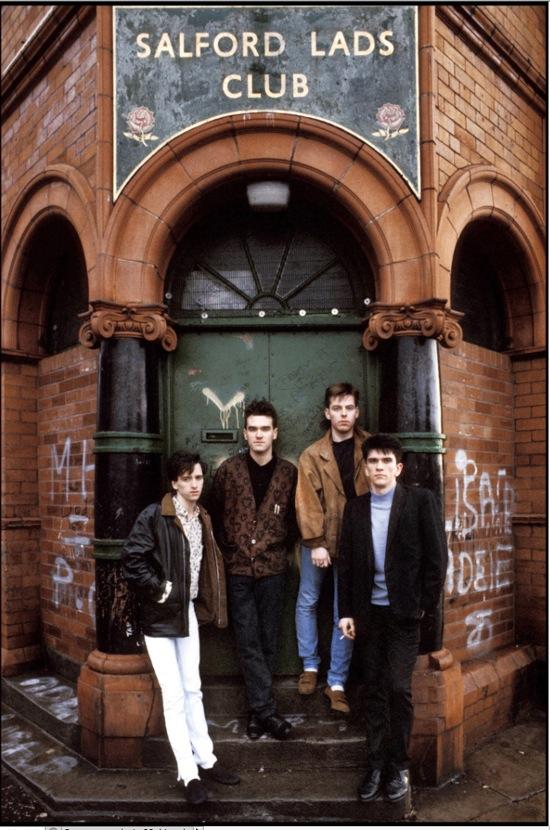
The Smiths' journey, though brief, was a bittersweet triumph. Formed in May 1982 and breaking up in June 1987, they were together for only five years. Some say The Beatles' career was short-lived, but they were together for twice as long as The Smiths, ten years. They broke up at their peak. The group's final studio album, 'Strangeways, Here We Come', released in 1987, is regarded by all four members as their finest work. It revealed a band continuing to evolve, with richer production and more expansive arrangements, as heard in tracks like 'Last Night I Dreamt That Somebody Loved Me' and 'I Started Something I Couldn't Finish'. It's the one they enjoyed making the most, a bittersweet triumph that only deepens the sense of what might have been.
The influence of The Smiths extends far beyond their five-year existence. While all four members continued to create music in various forms, it is The Smiths' legacy that remains unparalleled. Their sound continues to reverberate through Manchester's music scene and beyond. The Stone Roses and Oasis, among others, were clearly influenced by Morrissey's portrayal of a bleak yet romanticised urban England. Even more recent acts like The Courteeners and Blossoms owe a significant debt to The Smiths' unique blend of wit, gloom, and pop sensibility. In their short time together, few bands have managed to convey so much, so brilliantly.
The Stone Roses burst onto the music scene at the end of the decade, initially gaining attention with their 1987 single 'Sally Cinnamon', a melodic track that hinted at the sonic revolution to come. However, it was their 1989 self-titled debut album, 'The Stone Roses', that truly changed the game. At a time when British music was in search of a new identity, this album instilled a sense of optimism and hope in kids across the UK. It was a record that paid homage to the past, echoing the melodic sensibilities of The Byrds and The Beatles while maintaining a modern and contemporary sound.
'The Stone Roses' fused chiming guitar riffs, psychedelic textures, and loose-limbed funk rhythms with a swagger that felt both fresh and rebellious. John Squire's shimmering, effects-laden guitar work meshed effortlessly with Mani's grooving basslines and Reni's fluid, jazz-influenced drumming, creating a sound that was as intricate as it was danceable. Ian Brown's laid-back, detached vocal delivery gave the songs a dreamlike cool. At the same time, his lyrics hinted at spiritual yearning, disillusionment, and romantic idealism. Tracks like 'I Wanna Be Adored' and 'She Bangs the Drums' captured the band's hypnotic, anthemic quality, slow-burning, yet full of confidence and intent, while 'Made of Stone' and 'Waterfall' revealed a lyrical and emotional depth beneath the groove, conjuring vivid imagery of escape, reinvention, and self-belief.
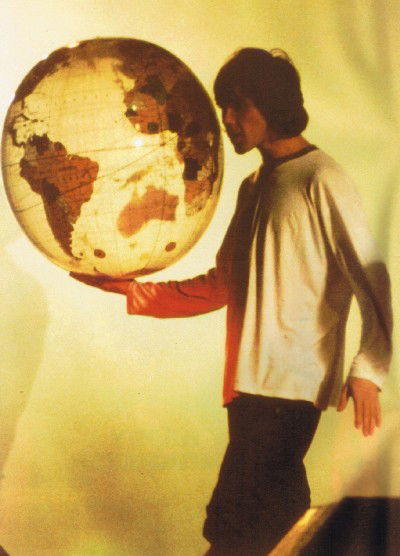
The album flowed with a sense of cohesion and purpose rarely heard on debut records, each track bleeding into the next with effortless style. The soaring chorus of 'This Is the One' hinted at their arena-sized ambition. At the same time, songs like 'Don't Stop' offered a playful, psychedelic reimagining of earlier material. The record culminated in the nearly ten-minute 'I Am the Resurrection', a bold, genre-defying closer that opened with defiant lyrics before launching into an ecstatic, instrumental coda, part rave, part jam session. That sums up the band's confidence, chemistry, and limitless potential. It wasn't just a final track; it was a statement of intent. A revolution was coming, and 'The Stone Roses' were leading it.
Released during the rise of Acid House and at the dawn of rave culture, 'The Stone Roses' was more than just an album; it was a cultural shift. Alongside the Happy Mondays, The Stone Roses helped to soundtrack a new era, one where rock and dance music collided in euphoric, life-affirming ways. Their music united disparate subcultures under the emerging banner of indie dance, creating a blueprint that countless bands would follow in the decades to come.
I found a quote that sums up the first Stone Roses album: "It remains an overwhelming statement of working-class pride." It truly does. The album remains a classic today, standing as one of the most important collections of songs ever. Its sounds and themes can still be traced through British guitar music today.
The Happy Mondays were also a key part of the Madchester scene. Unlike The Stone Roses, the Happy Mondays were signed to Factory Records, another coup by Tony Wilson. He was impressed by the band's approach to music, combining genres and quick-witted lyrics. Wilson once compared Shaun Ryder, the Happy Mondays' songwriter, to W.B. Yeats.
The Happy Mondays played a crucial role in the dramatic rise and subsequent fall of Factory Records. They are one of the most significant bands from Britain, bridging the gap between indie and dance music and blurring the lines between what a guitar band could do. Songs like 'Wrote for Luck' are both dance anthems and indie classics.
Before Factory Records' rapid decline, the Happy Mondays and The Stone Roses were the biggest bands in Britain. On November 23, 1989, both bands performed on Top of the Pops. The Stone Roses played their latest single Fools Gold. In contrast, the Happy Mondays, featuring the late, great Kirsty MacColl, performed 'Hallelujah' from their 'Madchester Rave On' EP.
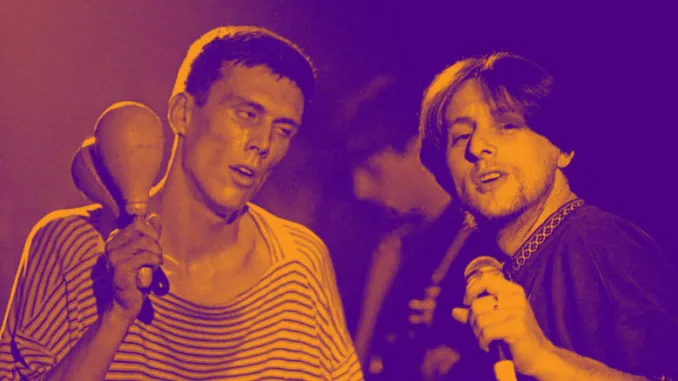
Madchester, once an underground movement, erupted into the mainstream, triggering a seismic cultural shift that reverberated across the UK. The simultaneous chart entries of The Stone Roses and Happy Mondays marked a pivotal moment for indie music. It was a cause for genuine celebration among indie fans, a feeling not experienced since The Smiths.
Amidst the dominance of Stock, Aitken, and Waterman's factory-produced pop hits and novelty acts like Jive Bunny, The Stone Roses, and Happy Mondays emerged as disruptors. Their fresh, rebellious energy resonated with a disillusioned youth, challenging and rewriting the status quo in a way not seen since The Smiths.
This was a watershed moment: the counterculture had broken through into the mainstream. Even the establishment, often slow to embrace change, couldn't ignore the seismic shift taking place. The bands didn't play the game on Top of the Pops, a popular British music chart television program. Take Ian Brown, for example, so blatant with his miming and Bez, the Mondays' Ecstasy-fuelled, loveable mascot. Both bands proved that anyone could do it. It was a call to arms for the next generation.
The influence of Madchester was not confined to the rise of The Stone Roses and Happy Mondays. The Charlatans, The Inspiral Carpets, and James all released songs influenced by this Top of the Pops performance in the following year. Even New Order, a stalwart of the music scene, was influenced by the Indie/Acid House amalgamation, as seen in their 1989 album Technique. The music landscape changed almost overnight, a testament to the lasting impact of Madchester.
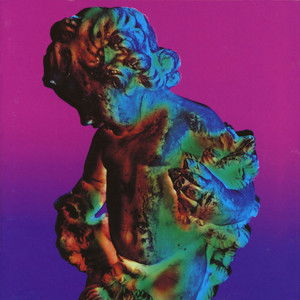
As with previous decades, this period coincided with the rise of a new drug, ecstasy. This was a vitally important component of that time. Madchester and the emergence of Acid House music in the UK might not have happened without E. The early 1980s were marked by violence, football hooliganism, and riots were rampant, and suddenly, this little pill made a seismic change overnight, catching everyone off guard. Love was in the air, and people wanted to dance. And dance they did in clubs like the Hacienda, at Happy Mondays and Stone Roses concerts, and at illegal raves in warehouses, farmers’ fields, and even aircraft hangars. It was the most critical musical shift since punk. They didn’t know it yet.
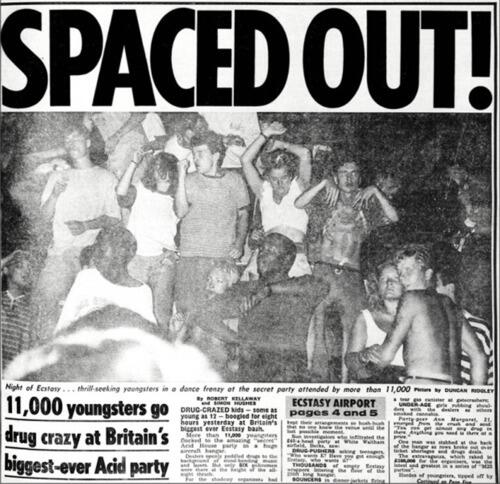
A Kind of Magic- The 80s Part 2
1980 witnessed one of the most tragic and shocking events in music history. On December 8, 1980, John Lennon, a former member of The Beatles and an enduring icon of peace and love, was brutally murdered outside his New York apartment by Mark David Chapman. Lennon was fatally shot in the archway of the Dakota Building, where he had lived with his wife, Yoko Ono, for several years.
Mark David Chapman, an American fan of The Beatles, harboured envy and resentment toward Lennon, fuelled by the singer’s lifestyle and his 1966 comment that The Beatles were "more popular than Jesus." Chapman claimed he was inspired by Holden Caulfield, the protagonist of J.D. Salinger’s novel The Catcher in the Rye. Caulfield, often described as a 'phoney-killer', despised hypocrisy. A sentiment Chapman disturbingly identified with.
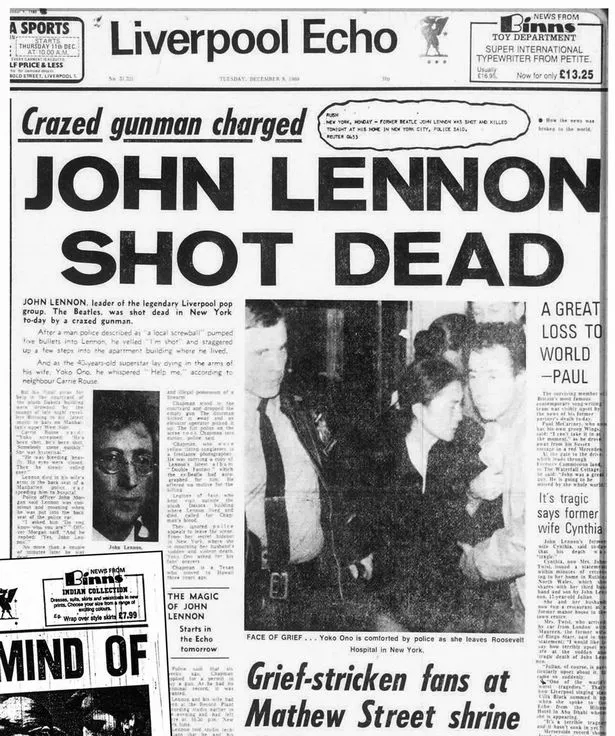
Chapman planned the killing over several months and waited for Lennon at the Dakota on the morning of December 8, 1980. Early in the evening, Chapman approached Lennon, who graciously signed a copy of his album 'Double Fantasy' before heading to a recording session at the Record Plant. Later that night, Lennon and his wife, Yoko Ono, returned to the Dakota to say goodnight to their son before heading out for an impromptu date night.
As Lennon and Ono approached the building’s entrance, Chapman fired five hollow-point bullets from a .38 Special revolver, four of which struck Lennon in the back. Lennon was rushed to Roosevelt Hospital in a police car, where he was pronounced dead on arrival at 11:15 p.m. He was just 40 years old.
Chapman remained at the scene, reading The Catcher in the Rye, until he was arrested by the police. Investigations later revealed that Chapman had considered targeting other celebrities, including David Bowie.
The news of Lennon’s murder sent shockwaves through the world of music and popular culture. While Lennon was best known as a member of the biggest band in the world, The Beatles, he was much more than that: a political activist, a father, a husband, and an extraordinary songwriter.
Tributes poured in from across the music industry, including heartfelt gestures from Lennon’s former bandmates and other musical legends.
David Bowie, who had befriended Lennon during the creation of Bowie’s U.S. #1 hit 'Fame' in 1975, paid tribute during the final show of his Serious Moonlight Tour at the Hong Kong Coliseum on December 8, 1983, the third anniversary of Lennon’s death. Bowie reflected on his last meeting with Lennon in Hong Kong and performed a moving rendition of 'Imagine'.
The depth of the tributes from Lennon’s fellow Beatles was palpable. George Harrison released the heartfelt song 'All Those Years Ago' in 1981, featuring contributions from Ringo Starr and Paul McCartney. McCartney's homage, 'Here Today', included on his 1982 album 'Tug of War', was a poignant reminder of their shared experiences.
The music community came together to honour Lennon's memory. Queen performed 'Imagine' at Wembley Arena in London the night after his death, a powerful display of unity. Freddie Mercury's 'Life Is Real (Song for Lennon)' was a heartfelt tribute, appearing on Queen’s 1982 album Hot Space. XTC's performance of The Beatles' 'Rain' in Liverpool the night following Lennon’s passing was another testament to the shared grief. David Gilmour of Pink Floyd's 'Murder', inspired by the tragedy, appeared on his 1984 album 'About Face'.
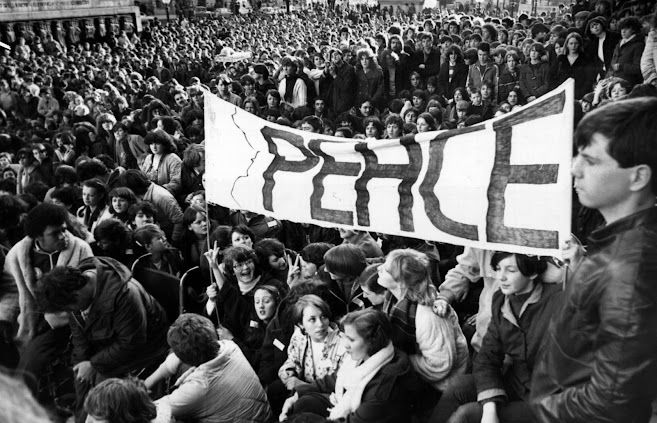
His death was unparalleled, a harrowing tragedy that stood apart from the usual narratives of rock 'n' roll excess or natural causes. Lennon was gunned down in one of the world's busiest cities by a man to whom he had shown kindness just hours earlier.
The 1980s, however, were not solely defined by loss or mourning; they were a whirlwind of cultural transformation in the music industry. This was the era when indie bands started gaining recognition, electronic music found its place in the mainstream, and rock superstars like Queen and U2 emerged. The decade was a melting pot of musical styles and influences, each contributing to the rich tapestry of 1980s music culture.
British bands and solo artists were not just huge in the 80s; they were global icons. From Duran Duran and Wham! to Queen and U2, British music was taking on the world. And it wasn't just the bands; solo artists like Bowie and George Michael were also making their mark, connecting people across the globe with their music.
Duran Duran was one of the quintessential bands of the 1980s, known for their unique blend of new wave, pop, and rock. This distinctive sound, coupled with their stylish, glamorous image, captured the spirit of the era. Formed in Birmingham in 1978, the band quickly rose to fame with their self-titled debut album in 1981, but it was their 1982 album 'Rio' that truly catapulted them to global stardom. With iconic hits like 'Hungry Like the Wolf', 'Rio' and 'Save a Prayer', Duran Duran's infectious melodies and slick production set them apart in the music scene.
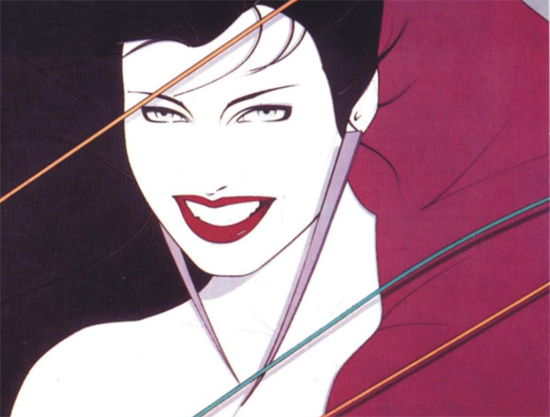
Wham! was one of the most iconic pop bands of the 1980s, known for their infectious energy and catchy, upbeat hits that helped define the decade's sound. Formed in 1981 by George Michael and Andrew Ridgeley, the duo quickly became a sensation with their distinctive blend of pop, funk, and dance music. With iconic singles like 'Club Tropicana' and 'Wake Me Up Before You Go-Go', the band cemented themselves as pop icons who, despite only being around for a short period, made a lasting impact on British popular culture.
After achieving global fame as one-half of Wham!, George Michael embarked on a solo career in the mid-1980s that would establish him as one of the decade's defining artists. His transition from a beloved pop heartthrob to a mature solo performer was not just seamless but also a testament to his growth and maturity as an artist, marked by a string of critically acclaimed and commercially successful releases.
Michael's debut solo single, 'Careless Whisper', was a global sensation, showcasing his soulful voice and sophisticated songwriting. The track, co-written with Wham! Partner Andrew Ridgeley topped charts worldwide and signalled a new level of artistry for Michael.
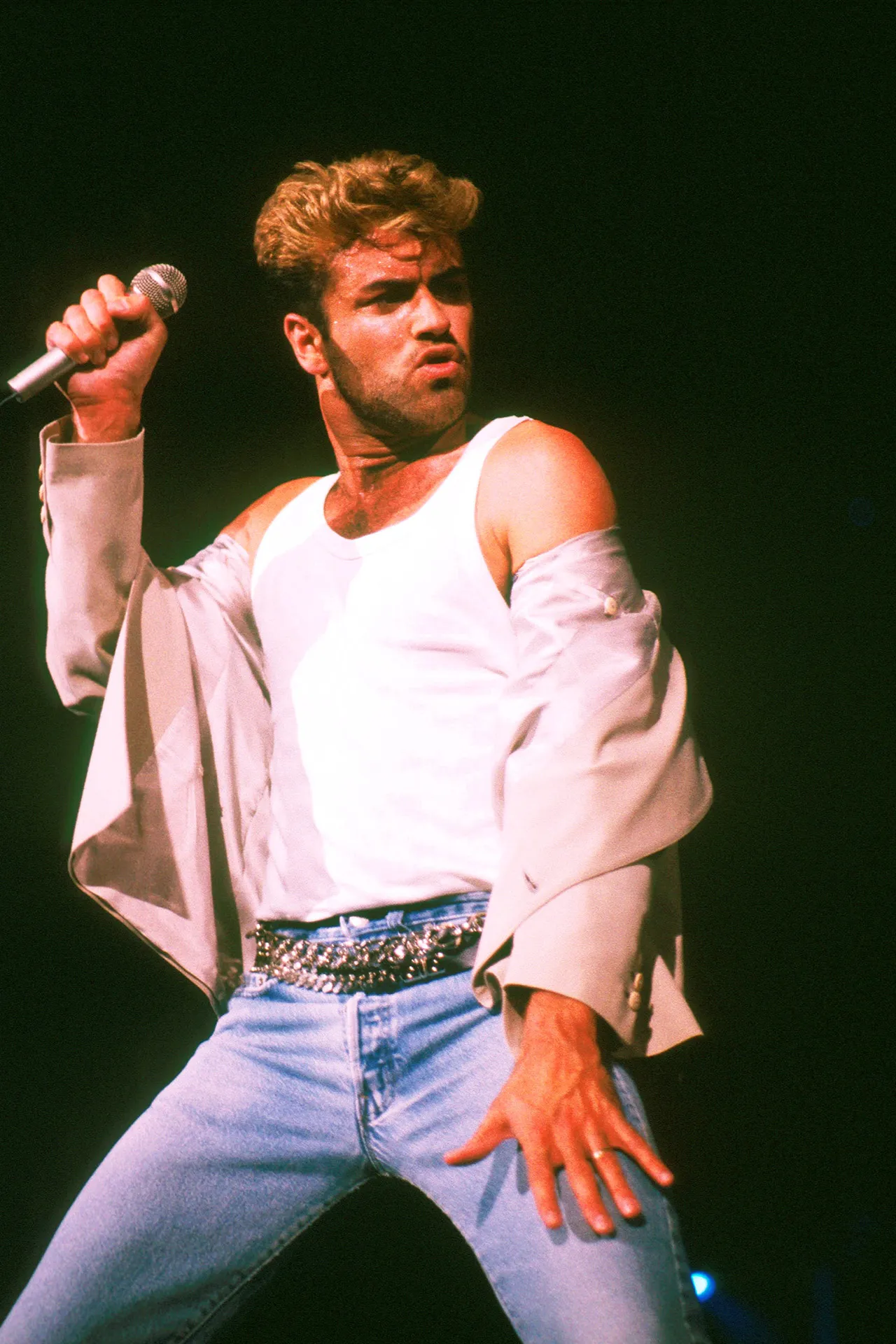
In 1987, Michael released his first solo album, 'Faith', which catapulted him into the stratosphere of pop superstardom. A masterclass in blending pop, R&B, and funk, 'Faith' included iconic hits such as the title track, 'Father Figure', 'I Want Your Sex', and 'One More Try'. The album demonstrated Michael's ability to tackle mature themes with depth and sensitivity, while also delivering irresistible hooks. 'Faith' sold over 25 million copies worldwide and earned Michael a Grammy Award for Album of the Year in 1989.
But rather than replicate the formula, Michael took a bold artistic turn with his follow-up, 'Listen Without Prejudice Vol. 1', released in 1990. More introspective and stripped-back, the album marked a deliberate move away from the overt pop stylings of 'Faith'. Opening with the haunting 'Praying for Time', Michael delivered a powerful critique of inequality and apathy, his voice filled with quiet anguish and reflection. The standout single 'Freedom!' 90' became both an anthem of self-liberation and a declaration of artistic independence, famously rejecting the image that had defined his earlier career. With lyrics that openly questioned fame and identity, it symbolised a turning point, not just for Michael, but for pop music itself.
By the end of the decade and into the early 1990s, George Michael had firmly established himself as a global icon, known not only for his chart-topping hits but also for his artistic integrity and willingness to evolve. His solo work defied expectations, blending mass appeal with introspection and laying the foundation for a legacy that continues to resonate with fans and significantly influence artists to this day, shaping the direction of pop music.
The Human League, a trailblazer in the music scene, propelled electronic music to the top of the charts with their pioneering, synth-driven sound. Their 1981 breakthrough album 'Dare' was a game-changer, featuring hits like 'Don't You Want Me', which combined cutting-edge production techniques with irresistible pop hooks. By making electronic music both accessible and commercially viable, they laid the foundation for a broader acceptance of synth-pop, enlightening the music world about the potential of this genre.
This innovation paved the way for acts like the Pet Shop Boys, who not only refined the genre but also significantly contributed to its evolution. Their sophisticated blend of electronic beats, introspective lyrics, and catchy melodies, as showcased in timeless hits like 'West End Girls' and 'It's a Sin', brought a distinctly British wit and emotional complexity to synth-pop. Their global success solidified the genre’s place in the mainstream, and their impact is something to be truly appreciated.
Their 1986 debut album, 'Please', was a critical and commercial success, pairing infectious production with sharp social commentary. Tracks like 'Opportunities (Let's Make Lots of Money)' satirised material ambition and consumerism, while 'Suburbia' painted a vivid portrait of urban unrest. The duo’s knack for irony and subtle melancholy made them stand out in a sea of glossy 80s pop.
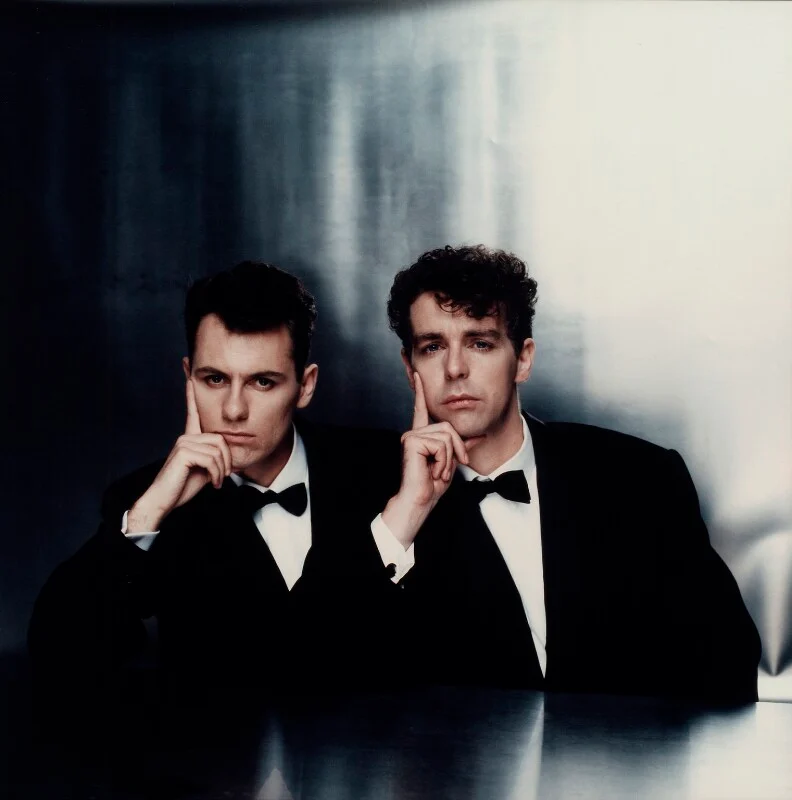
By the time they released 'Actually' in 1987, the Pet Shop Boys had further perfected their sound. 'Being Boring', from the 1990 follow-up 'Behaviour', offered a more reflective, elegiac tone, a tribute to friendship, youth, and the passage of time. Its lyrical depth and lush arrangement showcased their evolution as songwriters, proving that synth-pop could be as emotionally resonant as any rock ballad.
With their clever lyrics, stylish aesthetic, and consistently strong songwriting, the Pet Shop Boys redefined what electronic pop could be. Their music is not just intelligent and poignant, but also enduring, leaving the audience intrigued and captivated by their unique style.
Orchestral Manoeuvres in the Dark (OMD) also left an indelible mark on this era, blending lush electronic textures with thoughtful songwriting. Their 1980 hit 'Enola Gay' stood out not only for its infectious melody but also for its powerful subject matter, addressing the atomic bombing of Hiroshima. OMD continued to push boundaries with albums like Architecture & Morality, which combined experimental sounds with a sense of emotional depth rarely seen in electronic music.
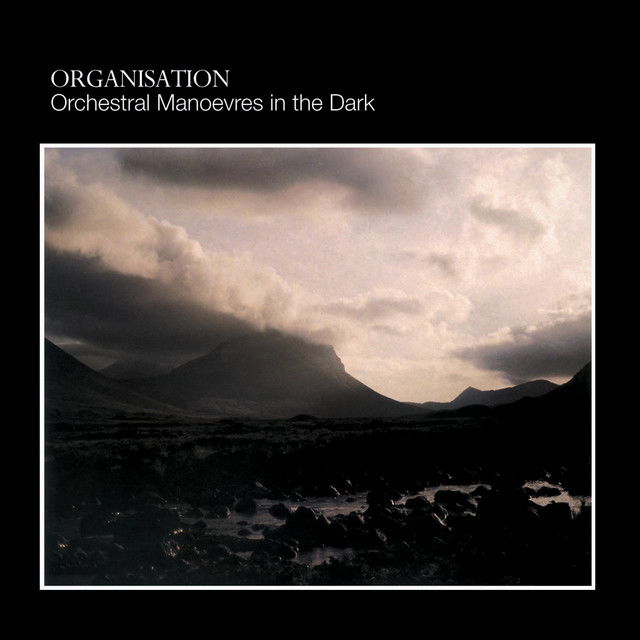
Meanwhile, the Two-Tone movement, born in the late 1970s, carried significant momentum into the early 1980s. Rooted in ska and reggae, Two-Tone blended infectious rhythms with punk's raw energy and rebellious spirit, creating a vibrant, danceable sound that was also deeply political. The movement, spearheaded by Coventry-based 2 Tone Records, founded by Jerry Dammers of The Specials, not only became a cultural phenomenon but also left an indelible mark on British society.
Bands like Madness and The Specials represented two distinct sides of Two-Tone's appeal. Madness, with their lively and often humorous take on ska, became one of the most popular British bands of the era, crafting hits like 'Baggy Trousers' and 'Our House' that balanced nostalgia with upbeat energy.
On the other hand, The Specials offered incisive social commentary, addressing issues like unemployment, racial tension, and urban decay that were prevalent in Britain during the late 1970s and early 1980s. Their 1981 hit 'Ghost Town' remains a haunting snapshot of Britain's economic struggles and growing unrest. This song topped the charts and became an enduring anthem of discontent.
Other notable bands from the Two-Tone era included The Selecter, known for their high-energy tracks like 'On My Radio' and The Beat (known as The English Beat in the U.S.), whose fusion of ska and pop produced hits such as 'Mirror in the Bathroom'. These bands were not only musically innovative but also stood as powerful symbols of unity and multiculturalism in a time of rising racial tensions in Britain, inspiring a generation with their social impact.
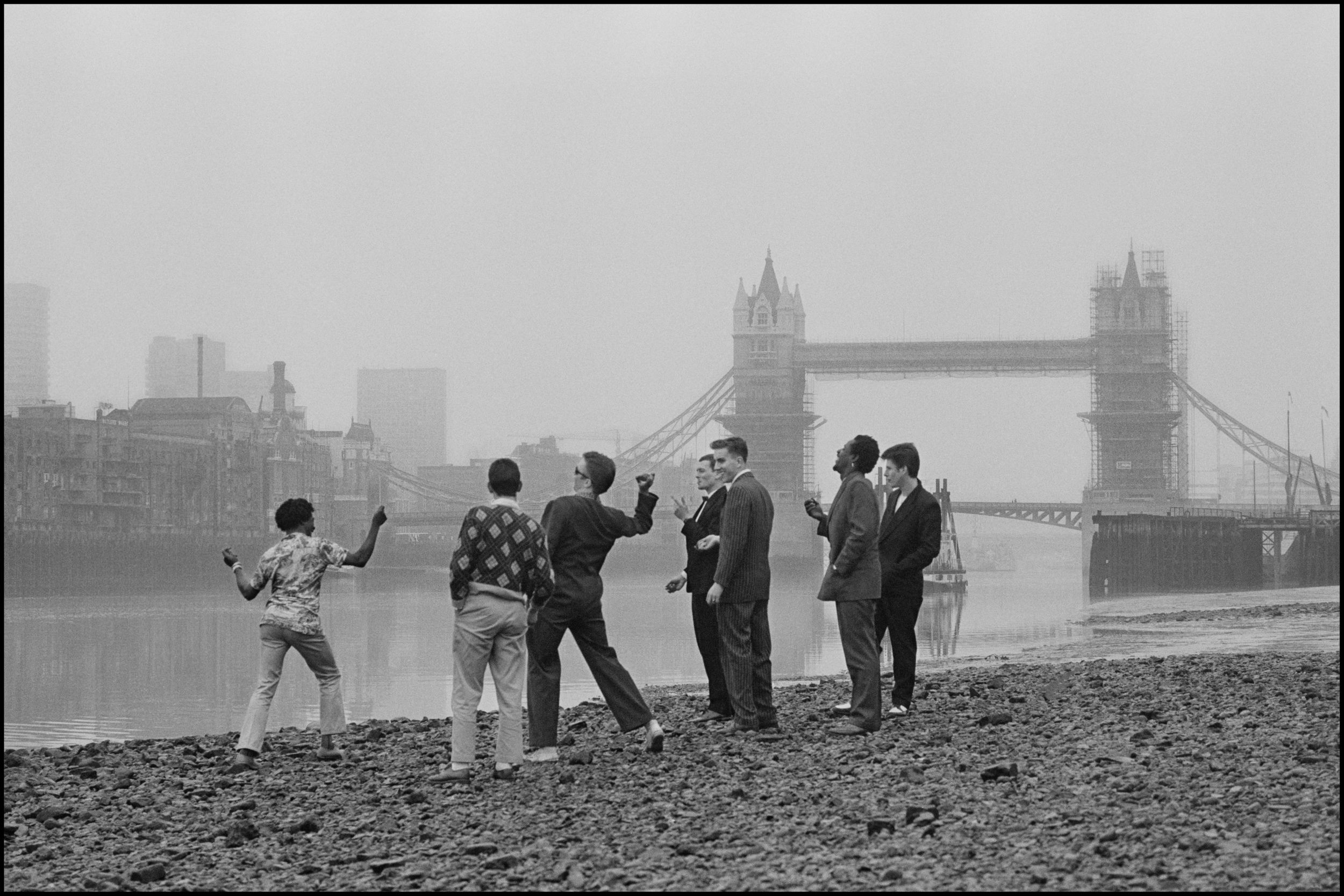
Two-Tone wasn't just a musical genre. It was a movement that challenged societal norms, blending sounds and cultures to create something genuinely unique. Its legacy, still reverberating today, can be felt in the influence it had on later genres, from Britpop to the ska-punk revival of the 1990s. This enduring influence is a testament to the power and innovation of the Two-Tone movement.
While the 1980s music scene was primarily dominated by pop, post-punk acts like The Cure made a significant impact, shaping the darker, introspective side of the decade. Their early albums, 'Seventeen Seconds' and 'Faith', were a testament to their influence, combining sparse guitar melodies with haunting atmospheres that embodied the angst and existentialism of post-punk. Tracks like 'A Forest' were a masterclass in crafting moody, hypnotic soundscapes that deeply resonated with listeners seeking an alternative to mainstream trends.
By the mid-80s, The Cure had transitioned their sound to incorporate brighter, pop-infused tracks, while still retaining their emotional depth. 'The Head on the Door' was a turning point, featuring hits like 'In Between Days' and 'Close to Me', which blended catchy melodies with introspective lyrics, appealing to a broader audience. This period marked their rise to global stardom, with frontman Robert Smith's unique voice and visual style becoming emblematic of the era.
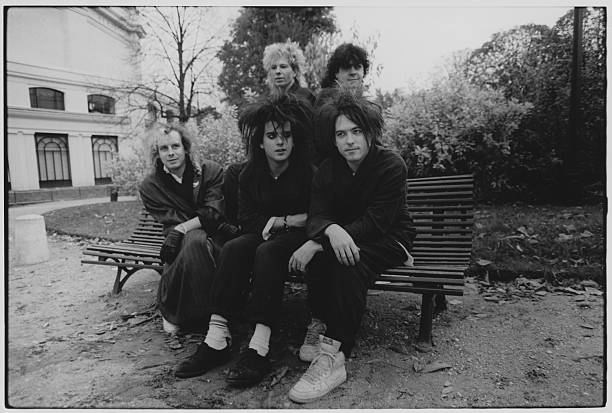
Their 1987 double album 'Kiss Me, Kiss Me, Kiss Me' further expanded their sonic palette, delivering everything from the sultry 'Just Like Heaven' to the abrasive 'The Kiss'. The band’s ability to balance experimentation with accessibility was key to their enduring appeal.
Closing out the decade, 'Disintegration' solidified The Cure’s reputation as one of the most influential bands of their generation. Tracks like 'Lullaby', 'Pictures of You' and 'Fascination Street' embraced lush, layered production and melancholic themes, leaving an indelible mark on the alternative and shoegaze scenes. The album’s emotional depth and timeless quality continue to resonate, cementing The Cure as pioneers who bridged the gap between post-punk's introspection and alternative rock's expansive ambition.
Emerging from London's late 1970s punk scene, The Police quickly set themselves apart from the three-chord urgency of their peers. Their 1978 debut, 'Outlandos d'Amour', carried the energy and attitude of punk but layered it with reggae rhythms, jazz-tinged musicianship, and sharp melodic instincts. Tracks like 'Roxanne' and 'Can't Stand Losing You' showcased their ability to write songs that were both unconventional and instantly memorable, winning them early attention in a crowded and competitive scene.
By 1979's 'Reggatta de Blanc', the band had begun refining their signature fusion of rock and reggae. The hypnotic 'Walking on the Moon' and the instrumental title track revealed a confident mastery of space and rhythm, standing in stark contrast to the dense, overproduced rock dominating the airwaves. Their lean, three-piece sound was as much about what they left out as what they played, giving their music a taut, distinctive edge.

As the new decade began, The Police were perfectly positioned to bridge the gap between the grit of punk and the accessibility of the rising new wave movement. The 1980s saw 'Zenyatta Mondatta' deliver this balance with precision, producing chart-toppers like 'Don't Stand So Close to Me' and 'De Do Do Do, De Da Da Da'. The former combined an unsettling narrative with an irresistible hook, while the latter distilled pop to its most playful, minimalist form. This mix of thought-provoking lyricism and radio-friendly appeal helped the band dominate both the UK and international charts, earning them credibility in underground circles while attracting a massive mainstream audience.
By the early '80s, The Police had become one of the defining acts of the era, navigating a music industry that was increasingly leaning toward synthesisers and heavily produced pop. Instead, they relied on the sharp interplay between Sting's melodic bass lines, Andy Summers' atmospheric guitar work, and Stewart Copeland's inventive, polyrhythmic drumming—proving that a stripped-down trio could fill stadiums without sacrificing nuance.
Their ascent reached its peak with the release of 1983's 'Synchronicity', a genre-blending tour de force that fused rock, reggae, and new wave pop into a sound that came to define the decade. The album was both sonically adventurous and emotionally charged, capturing the growing tension within the band while pushing their musical boundaries. Hits like 'Every Breath You Take' became instant classics, often mistaken for a romantic ballad. However, its obsessive lyrics and minimalist arrangement gave it a haunting, almost claustrophobic feel. 'King of Pain' reflected Sting's introspective lyricism and melancholic edge, while 'Wrapped Around Your Finger' offered a cryptic, poetic narrative backed by atmospheric instrumentation. 'Synchronicity II', with its chaotic energy and surreal imagery, further showcased their mastery of storytelling and sonic experimentation.
'Synchronicity' was not only a commercial triumph—earning Grammy Awards and topping charts worldwide—but also the creative summit of The Police's career. Yet behind the success, personal and artistic tensions between Sting, Summers, and Copeland had reached a breaking point. In 1986, at the height of their fame, they disbanded, leaving behind a compact yet influential discography that continues to inspire artists across rock, pop, and alternative genres.
Queen, U2, and Tears for Fears were three of the most prolific and influential bands of the 1980s, each leaving an indelible mark on the decade's music landscape. These bands were not only successful in terms of album sales and chart performance, but they also shaped the sound of the 1980s and beyond, influencing countless artists who followed in their wake.
U2's ascent to global stardom was a journey of distinct sound and evolution. Their early work in the 1980s, particularly their 1980 debut album, 'Boy', introduced U2's raw energy and post-punk edge. Tracks like 'I Will Follow' captured a sense of youthful urgency and spiritual yearning, driven by The Edge's unique guitar textures and Bono's impassioned vocals, setting the stage for their remarkable career in rock history.
The following year's 'October' marked a shift in U2's music towards more introspective and spiritual themes. Songs like 'Gloria', with its Latin refrain and soaring chorus, showcased the band's willingness to explore faith and doubt in equal measure, inviting listeners to a contemplative and introspective journey.
By 1983's 'War', U2 had evolved from a promising rock band to influential voices in global conversations. 'Sunday Bloody Sunday', a fierce condemnation of the violence in Northern Ireland, remains one of their most iconic and politically charged songs. 'New Year's Day' further demonstrated the band's growing confidence, weaving personal and political themes into an anthemic sound that resonated far beyond their native Ireland, inspiring and empowering listeners.
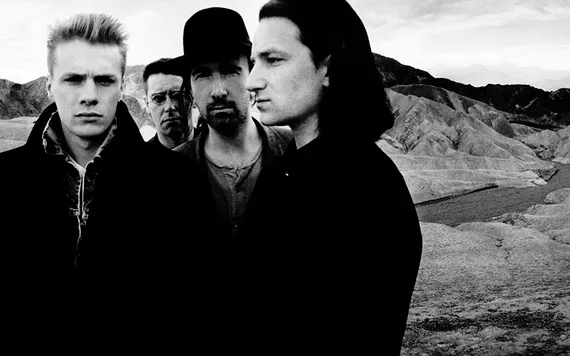
With 'The Joshua Tree', U2 not only embraced a more expansive, atmospheric sound but also solidified their place in music history. Drawing inspiration from American roots music and the spiritual and political concerns that had pervaded their earlier albums, the band crafted songs like 'Where the Streets Have No Name' that captured their yearning for transcendence. 'I Still Haven't Found What I'm Looking For' and 'With or Without You' delved into themes of longing and inner conflict. The album, a career milestone, became a cultural touchstone, resonating globally and marking U2 as one of the most influential bands of the 1980s.
While we're in Ireland, it's impossible not to delve into the unique blend of Irish folk and punk rock that is The Pogues. This band, emerging from the 1980s, is one of the most distinctive and influential, forming in 1982 and swiftly carving out a niche with their raw, unapologetic sound. Their rebellious punk spirit combined with the instrumentation and melodic sensibility of Irish folk, including tin whistles, accordions, and banjos, created a fusion that felt both raucous and timeless.
Their debut album, 'Red Roses for Me', was the beginning of a journey that captured the band's unfiltered energy and street-level poetry. Full of grit, swagger, and emotion, the record, with songs like 'Streams of Whiskey', epitomised their approach-a wild celebration of life, drink, and defiance, with Shane MacGowan invoking the ghost of Irish literary legend Brendan Behan. The album set the tone for what was to come: rowdy, heartfelt music rooted in tradition but infused with the urgency of punk.
But it was their second album, 'Rum, Sodomy & the Lash', released in 1985 and produced by Elvis Costello, that truly established The Pogues as a singular force in music. Here, the band refined their sound without losing any of their raw edge. Tracks like 'The Sick Bed of Cuchulainn' roared with mythic grandeur, while 'Sally MacLennane' delivered a bittersweet anthem of working-class life, full of pride, loss, and raucous joy. The album married traditional Irish instrumentation with razor-sharp lyricism, painting vivid portraits of outcasts, drunks, lovers, and ghosts. It felt like folklore retold in punk bars and back alleys, poetic, political, and profoundly human.
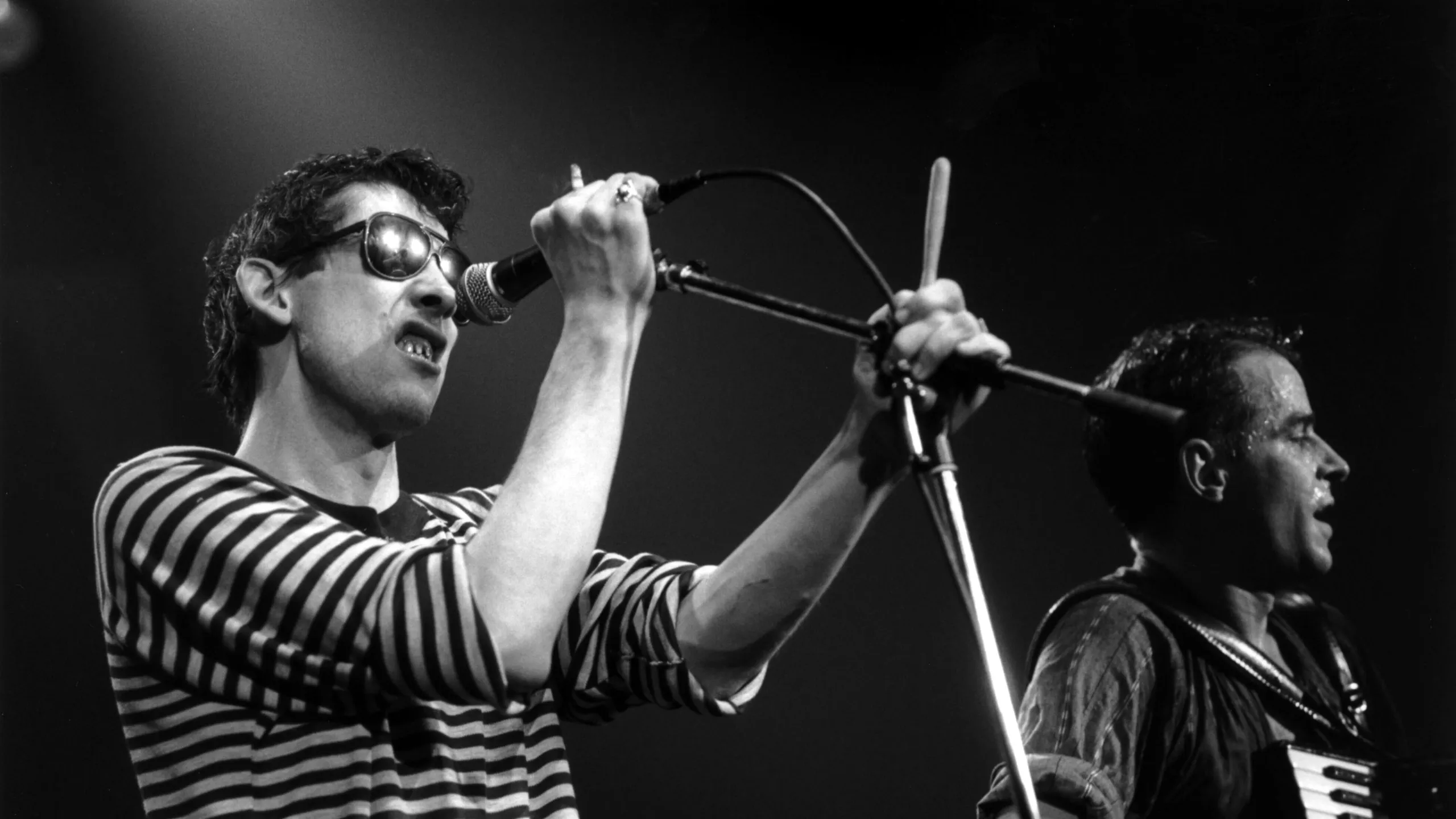
However, it was 'If I Should Fall from Grace with God' that truly solidified their place in music history. Released in 1988, the album broadened their sonic horizons, introducing global influences while maintaining their Irish soul. At its heart was 'Thousands Are Sailing', a stunning meditation on emigration and identity. Written by guitarist Phil Chevron, the song told the story of the Irish diaspora with a grace and emotional power that struck deep. Its refrain, "Where e’er we go, we celebrate / The land that made us refugees", remains one of the most poignant lines in the band’s catalogue, speaking to the longing and resilience of generations.
Of course, the album also featured 'Fairytale of New York', a duet with Kirsty MacColl that has become a modern Christmas classic. Raw, romantic, and heartbreakingly honest, it encapsulated the beauty and brutality of love and survival.
The band's songs are truly timeless, hauntingly beautiful affairs. They tackle a range of subjects from immigration, working class life, hardship, turmoil, racism, violence, yet with a sense of hope and optimism littered throughout. Shane MacGowan is one of the most underrated songwriters of this era. With their unique blend of punk rock and Irish folk traditions, The Pogues played an essential role in shaping the sound of the 1980s, leaving a legacy that continues to influence artists to this day.
Meanwhile, Tears For Fears were one of the most underrated British bands of the 1980s, though their impact was enormous. For a brief period, much like The Police, they were one of the biggest bands in the world. Their 1985 album 'Songs From the Big Chair' remains one of the most iconic and essential albums of the decade. The record, which featured massive hits like 'Shout' and 'Everybody Wants to Rule the World', was a perfect fusion of pop, rock, and new wave, driven by emotionally charged lyrics and masterful production. The album encapsulated the essence of the 80s in its combination of synthesisers, big choruses, and socially conscious themes. As a result, Tears For Fears enjoyed a level of success that few British bands could match during that period. In terms of single output, 'Songs From the Big Chair' stands toe-to-toe with some of the best British albums ever made, rivalling the likes of The Police or even The Beatles in terms of its sheer quality and cultural impact. Their sound, a unique blend of introspection and accessibility, helped them carve out a space as one of the decade's defining bands, even if they didn't always receive the recognition they deserved in the broader pop culture narrative. Their influence on the music industry, particularly in the 80s, cannot be overstated.
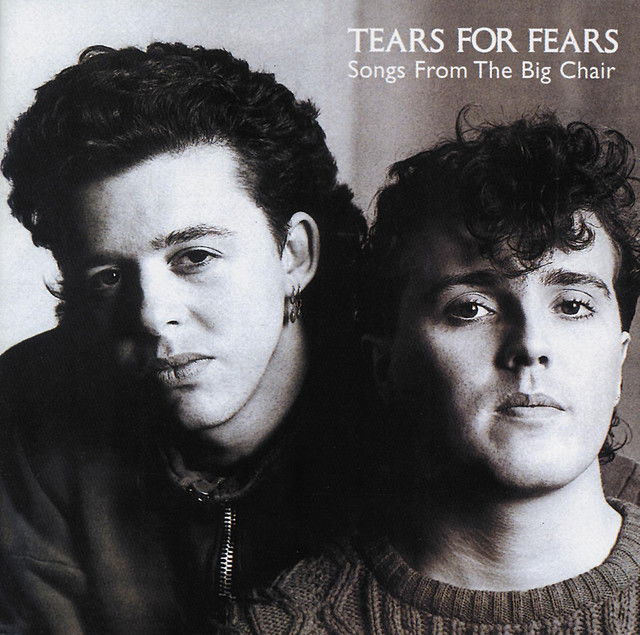
Their debut, 1983's 'The Hurting', had already laid the groundwork for their later triumphs. Darker and more introspective than much of the synth-pop emerging at the time, the album delved into themes of childhood trauma, isolation, and emotional struggle, reflecting Roland Orzabal and Curt Smith's interest in primal therapy and psychological exploration. Songs like 'Mad World' and 'Pale Shelter' paired haunting lyrics with lush yet economical production, creating a sound that was both intimate and cinematic. 'The Hurting' was a commercial success in the UK, topping the charts and solidifying Tears for Fears' place in the music industry. It gave Tears For Fears a distinctive voice in a crowded new wave scene—one that was more concerned with emotional depth than mere dancefloor appeal.
By the decade's end, 1989's 'The Seeds of Love' showcased yet another reinvention, drawing on Beatles-esque psychedelia, soul, and jazz influences. Tracks like 'Sowing the Seeds of Love' and 'Woman in Chains' proved that the band's ambitions extended far beyond the polished pop of the mid-80s. Across the decade, from the brooding minimalism of 'The Hurting' to the widescreen anthems of 'Songs From the Big Chair' and the expansive experimentation of 'The Seeds of Love', Tears For Fears demonstrated a rare combination of commercial savvy and artistic restlessness, cementing their place among the most versatile and enduring British acts of their era.
Before I talk about Queen, it's only right to talk about the 13th of July, 1985, Live Aid. Two concerts took place simultaneously: one at Wembley Stadium in London and the other at John F. Kennedy Stadium in Philadelphia.
The seeds for Live Aid were planted the previous year, when Bob Geldof of The Boomtown Rats and Midge Ure of Ultravox united British and Irish musicians for a one-off charity single to help combat the famine in Ethiopia. The result, 'Do They Know It's Christmas?', released in December 1984, became a cultural phenomenon. It wasn't just a hit record—it was a powerful tool that demonstrated what music could achieve when artists came together for a common cause. Selling over three million copies in the UK alone, the single raised over £8 million (around £25 million today) for famine relief, funding food supplies, medical aid, and infrastructure projects in Ethiopia. Just as importantly, it thrust the crisis into the forefront of public consciousness, transforming it from a distant news item into a global humanitarian priority.
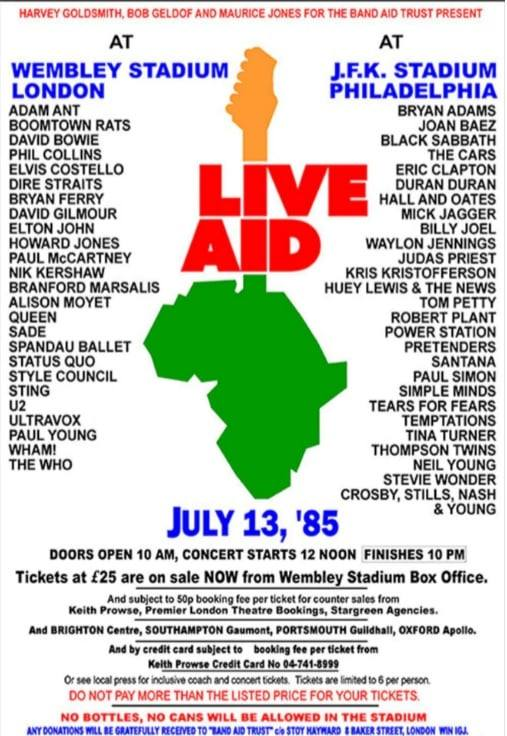
Live Aid took that same spirit and amplified it to unprecedented levels. The concerts brought together the most prominent artists in the world for a single day of music, broadcast live to a global audience. It was the first time a benefit event had been attempted on such a massive scale, and the logistics alone were staggering. State-of-the-art satellite technology allowed performances from two continents to be linked in real time, creating one of the largest television broadcasts in history. An estimated 1.9 billion people, almost 40 per cent of the world's population, tuned in across 150 nations, witnessing a lineup that included everyone from David Bowie and U2 to Elton John, Paul McCartney, and The Who.
By the end of the event, Live Aid had raised an estimated £150 million for famine relief, but its legacy went beyond the numbers. It proved that popular music could mobilise resources and attention on a scale previously unimaginable. It set the blueprint for future benefit concerts and charity singles. Still, none would quite capture the collective spirit and urgency of that summer day in 1985.
Queen faced challenges in the 1980s. Despite the release of strong albums like The Game, featuring iconic hits such as Another One Bites the Dust, they also produced some less successful work, such as Hot Space. However, their collaboration with David Bowie on Under Pressure in 1981 became a defining moment of the decade. Having firmly established themselves in the 1970s with classics like 'Bohemian Rhapsody' and 'Killer Queen', Queen's musical experimentation in the 80s reflected their unwavering desire to evolve. These bold shifts in style weren’t always embraced by their long-time fans, and the band's direction was sometimes met with mixed reactions.
By the time of Live Aid in 1985, rumours of a potential breakup were circulating. But at 6:41 pm on July 13, 1985, Queen took the stage at Wembley Stadium and delivered a performance that would go down in history. Their five-song set, anchored by Freddie Mercury’s electrifying energy and his iconic call-and-response chant of Aaaaaay-o, quickly became legendary. This performance, later dubbed 'The Note Heard Round the World', captivated an audience of 72,000 fans in the stadium and over a billion viewers worldwide. In those 20 minutes, Queen not only silenced any doubts about their relevance and commitment to their craft but also left an indelible mark on music history. Live Aid became a defining moment in their career, proving that Queen were far from over. In 1986, they followed up with The Magic Tour, which included two unforgettable nights at Wembley. Live Aid solidified Queen’s place in music history, marking one of the most critical and triumphant moments of their career.
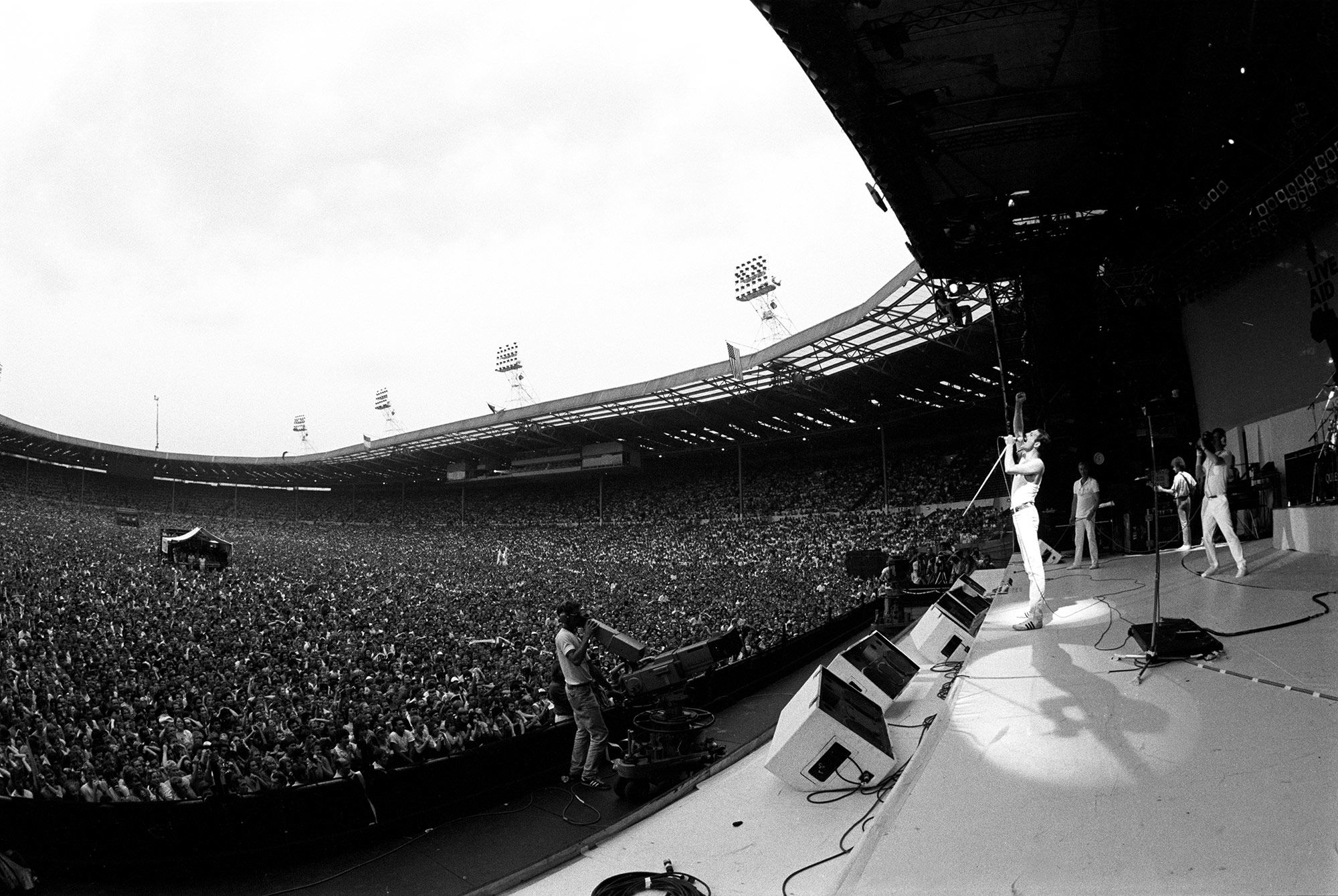
Among the other artists who played Live Aid, U2 seized the opportunity to introduce themselves to a global audience in a way that would solidify their place as one of the biggest bands of the era. Bono's performance of 'Bad' remains one of the most memorable moments of the event. The band played the track with such raw emotion and intensity that it left an indelible mark on everyone watching, inspiring a generation of music enthusiasts. During the 12-minute rendition, Bono famously leapt off the stage into the crowd, bringing the audience into the performance in an electrifying moment of connection. It was a display of the band's ability to engage with their audience on a deeply personal level. It marked the moment U2 fully arrived on the global stage, making it one of the standout performances of Live Aid and a defining moment in the band's career.
Dire Straits played Live Aid, riding high on the success of 1985's 'Brothers in Arms', an album that had already made a significant impact on the music industry. The performance saw them play two songs: 'Money for Nothing' with Sting, who sang backing vocals on the album version, and their 1978 classic 'Sultans of Swing'.
However, the band could not hang around and soak up the rest of the acts. The band were booked in at another gig, across the road. A tour date at Wembley Arena, to a sold-out crowd of die-hard Dire Straits fans. It was one of many sell-out shows at the venue, and was a testament to how good the band were.
The album marked a turning point not only for the band but also for music in general. It was one of the first albums to be fully recorded and mixed digitally, a significant milestone that enlightened the music industry. This digital approach made it ideally suited to the new music format, the compact disc (CD). By the end of the decade, Brothers in Arms had sold more than 30 million copies globally, with a significant portion of those sales coming from CD sales. This was a turning point for CD sales, proving that the new format could compete with and eventually surpass vinyl in terms of commercial success.
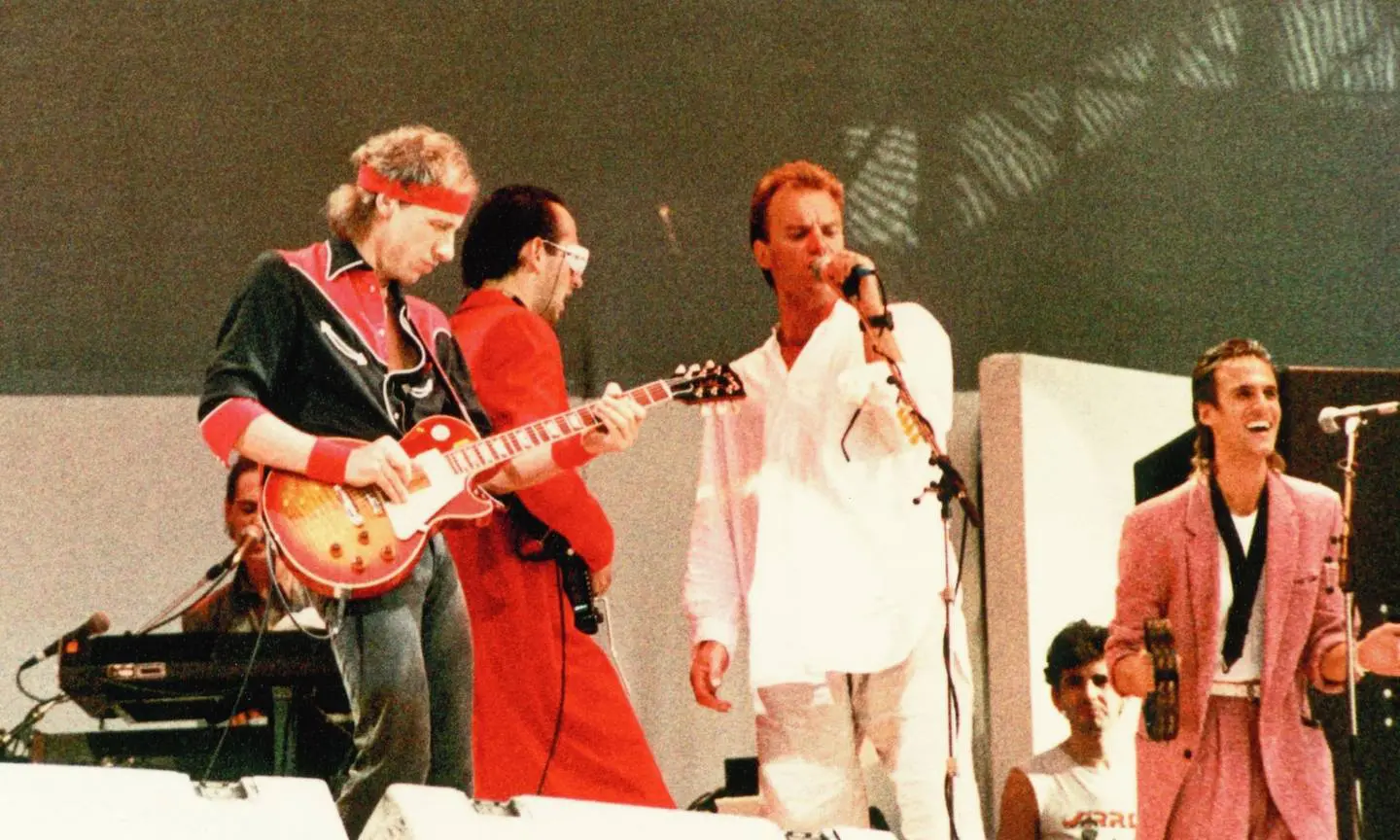
David Bowie, riding high on the success of 1983’s 'Let’s Dance', followed Queen with a stunning Live Aid performance that further solidified his reputation as one of the most outstanding live performers of all time. His set was a masterclass in stage presence and emotional connection, culminating in a powerful rendition of the 1977 classic 'Heroes'. As he sang the iconic line, "We can be heroes, just for one day," the crowd erupted in a euphoric sing-along, a moment witnessed by an estimated 1.9 billion people around the world. It was more than just a performance; it was a unifying moment that captured the spirit of the day and underscored Bowie’s unique ability to make the grand feel personal, connecting with every one of his fans.
For Bowie, this brief but brilliant set was arguably the high point of the decade. This moment encapsulated his singular talent for reinvention and connection. It showcased his unique ability to blend artistry, showmanship, and sincerity, reminding audiences of his enduring cultural significance.
However, after Live Aid, Bowie’s artistic direction began to shift. He embarked on the ambitious Glass Spider Tour in 1987, a theatrical spectacle of monumental scale, filled with elaborate sets, dancers, and multimedia elements. While visually bold, the tour received mixed reviews, with some critics suggesting the scale and concept overwhelmed the music. That same year saw the release of 'Never Let Me Down', an album that, despite solid commercial performance, was widely seen as lacking the innovation and edge that had defined his earlier work. Though it contained moments of introspection and ambition, many fans and critics felt it fell short of his usual standards.
In 1989, he formed the band Tin Machine, an experimental project that marked another shift in his musical approach. While Tin Machine garnered some attention, it was a departure from the mainstream success of his previous work, and the collaboration received a diverse range of reactions, from enthusiastic support to critical scepticism.

On the other side of the Atlantic, Duran Duran played to the Philadelphia crowd, showcasing their unique brand of synth-pop to American audiences. Phil Collins pulled off the impressive feat of performing at both Wembley and John F. Kennedy Stadium, cementing his place as arguably the most prominent solo artist of the decade. Elton John delivered a collection of his greatest hits, solidifying his status as one of the most enduring stars in music.
Live Aid proved that the old guard of rock and pop stars from previous decades were still around and bigger than ever. It also became the blueprint for future global charity concerts, and it was clear this was just the beginning of such monumental musical events.
One British band that had a monumental decade in the 1980s was Genesis. Formed in 1967 at Charterhouse School, a prestigious public school in Surrey, the band was initially led by the charismatic and theatrical Peter Gabriel. In their early years, Genesis were defined by a complex, ambitious approach to progressive rock. Albums such as 'Foxtrot' and 'Selling England by the Pound' established them as key figures in the genre, blending intricate musicianship with surreal, often mythic storytelling. Tracks like 'Supper’s Ready', a 23-minute opus of shifting moods and fantastical imagery, demonstrated their flair for epic compositions. At the same time, songs like 'I Know What I Like (In Your Wardrobe)' hinted at their emerging ability to craft quirky, accessible singles within their sprawling sonic landscapes.
Their 1974 concept album 'The Lamb Lies Down on Broadway' marked both the creative zenith and the end of an era. A surreal double LP that followed the journey of Rael, a disaffected New York youth, the album was as theatrical as it was musically adventurous. Songs such as 'In the Cage', 'The Carpet Crawlers', and the title track displayed the band’s willingness to push narrative and sonic boundaries. However, internal tensions during the tour led to Gabriel’s departure from the band in 1975.
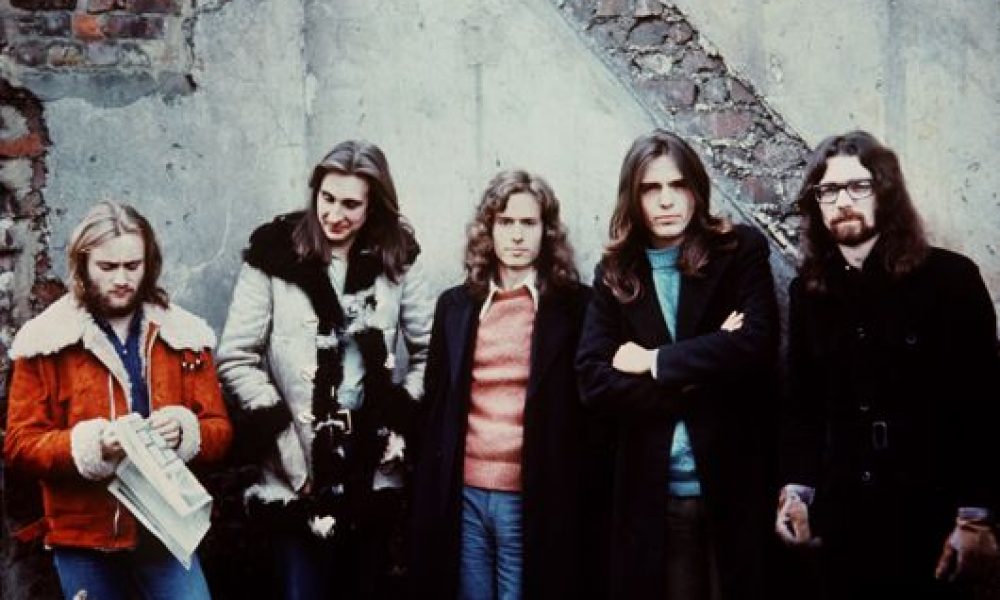
Rather than falter, Genesis regrouped, with drummer Phil Collins stepping up as lead vocalist. This transition would prove remarkably successful. Their next album, 'A Trick of the Tail', retained the band’s core progressive identity while offering a warmer, more melodic sound. It was well-received by fans and critics alike, with tracks like 'Ripples' and the title song demonstrating a new emotional accessibility.
That momentum continued with 'Wind & Wuthering' later the same year, an album tinged with romantic melancholy and atmospheric grandeur. Songs such as 'One for the Vine' and 'Afterglow' kept the progressive flame burning, but with a growing emphasis on texture and mood over extended instrumental complexity. The departure of guitarist Steve Hackett after this release would mark the end of the classic prog era, but it also cleared the way for a tighter trio format.
Gabriel’s departure in 1975 could have signalled the end of the band’s reign. Instead, it marked the beginning of a remarkable reinvention. Phil Collins, originally the band’s drummer, stepped into the role of lead vocalist and brought a more direct, emotionally resonant quality to their sound. With Collins at the front, Genesis began a gradual evolution from their progressive roots toward a more streamlined, radio-friendly style, setting the stage for their massive success in the following decade.
By the 1980s, Genesis had undergone a dramatic transformation, embracing a more pop-oriented sound that propelled them to superstardom. Albums like 'Duke' and 'Abacab' saw the band experimenting with more concise, radio-friendly tracks, while still retaining some of the complexity that marked their earlier work. Their commercial peak came with 'Invisible Touch', a record filled with chart-topping hits such as 'Invisible Touch', ' Land of Confusion' and 'Throwing It All Away'. This era saw Genesis sell out stadiums worldwide, becoming one of the most successful bands of the decade.
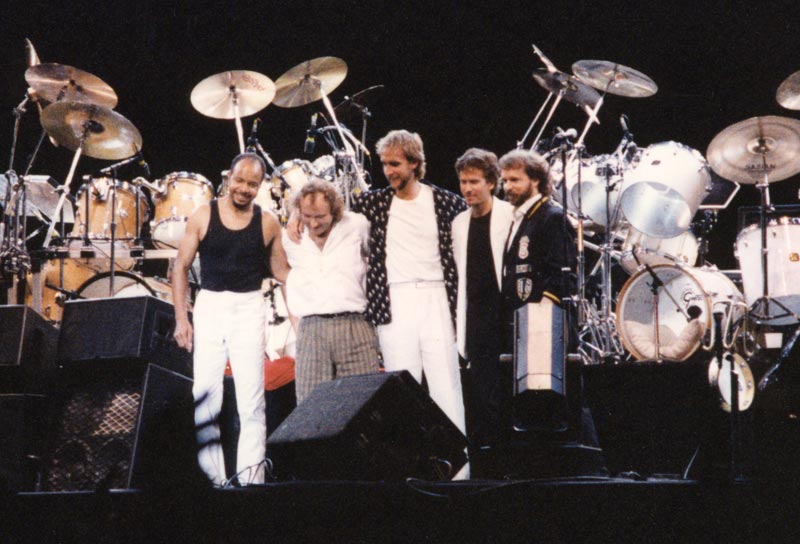
A year after Queen delivered their legendary performance at Wembley, Genesis followed suit, playing to equally massive crowds and cementing their place among the elite of stadium rock. In July 1987, the band sold out four consecutive nights at Wembley Stadium as part of their 'Invisible Touch' world tour, a staggering achievement that drew over 300,000 fans in total. The run of shows was a high point not only for Genesis but for 1980s live music in general, showcasing the band’s transformation from progressive rock pioneers into a slick, chart-topping powerhouse.
The Wembley shows featured an ambitious setlist that spanned their career, from early prog epics like 'Los Endos' and 'In the Cage' to mainstream hits such as 'Invisible Touch', 'Land of Confusion', and 'Tonight, Tonight, Tonight'. With Phil Collins front and centre, equally charismatic as a vocalist and a showman, the band delivered high-energy performances, backed by dazzling light displays, elaborate staging, and pristine musicianship.
The concerts were recorded and later released as 'Genesis Live at Wembley Stadium', capturing the band at their commercial and creative peak. The production values were cutting-edge for the time, with multi-camera coverage and a crystal-clear audio mix that showcased just how tight and dynamic the band had become. For fans and critics alike, the Wembley gigs confirmed Genesis’s status not just as a studio force, but as one of the most successful and polished live acts of the decade.
While Genesis flourished as a group, Phil Collins and Peter Gabriel also achieved remarkable success in their solo careers. Collins became one of the most successful solo artists of the decade alongside George Michael. With hits like 'In the Air Tonight, 'Against All Odds, ' and 'Another Day in Paradise. ' His pop sensibilities and emotive voice won him fans across the globe, and his solo career paralleled Genesis’ meteoric rise during this period.
Gabriel, meanwhile, would go on to establish himself as one of the most innovative and influential artists of his generation. Blending elements of rock, pop, and world music with his distinctive voice and a fearless commitment to artistic experimentation, he carved out a singular path that continually defied convention.
Gabriel’s self-titled debut album, often referred to as 'Car', introduced audiences to his unique artistic vision. Featuring the breakout single 'Solsbury Hill', a deeply personal and poetic reflection on his decision to leave Genesis. The album immediately set him apart. Its mix of introspection, sophisticated arrangements, and unconventional structures marked Gabriel as a compelling solo force.
His second album, 'Scratch', continued to push boundaries, diving further into experimental territory with a raw, edgy sound that challenged expectations. Tracks like 'On the Air' and 'DIY' captured a sense of urgency and restlessness, blending post-punk energy with progressive textures. The album leaned heavily into angular arrangements and dense production, reflecting Gabriel’s interest in technological innovation and psychological introspection. While it received mixed reviews at the time, 'Scratch' was a bold statement, uncompromising and unafraid to be abrasive, laying the necessary groundwork for what was to come.
However, it was his third self-titled release, 'Melt', that truly marked a turning point in his career, both artistically and thematically. Abandoning traditional song structures and rock tropes, Gabriel embraced a darker, more atmospheric sound, working with producer Steve Lillywhite and engineer Hugh Padgham to pioneer gated reverb drum effects that would go on to define an entire era of production.
'Melt' struck a remarkable balance between sonic innovation and emotional resonance. The politically charged 'Biko', a powerful elegy for South African anti-apartheid activist Steve Biko, signalled Gabriel’s emergence as a socially conscious artist unafraid to confront injustice. The track’s stark, anthemic rhythm and minimalist arrangement lent it a haunting, almost ritualistic power.
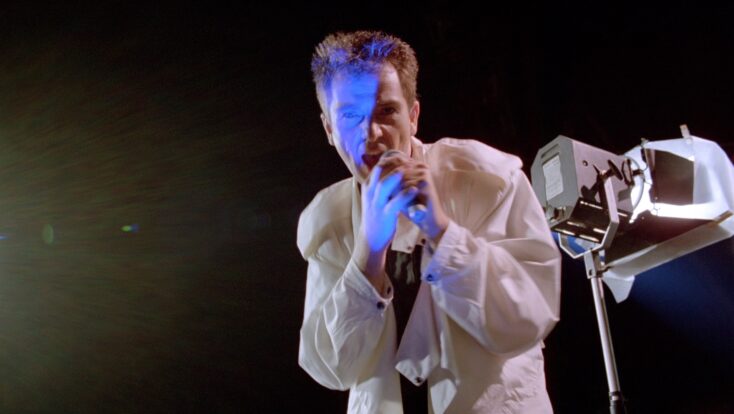
Elsewhere, 'Games Without Frontiers' offered a surreal, satirical take on global politics, with Kate Bush’s ghostly backing vocals adding to its uneasy, dreamlike tone. 'Intruder' opened the album with menacing intensity, delving into themes of invasion and voyeurism. At the same time, 'Family Snapshot' shifted dramatically from quiet introspection to cinematic climax, exploring the psyche of a political assassin with chilling empathy.
Throughout 'Melt', Gabriel explored paranoia, identity, and alienation with a newfound clarity and confidence. The album’s sonic palette, rich with synthesisers, manipulated textures, and percussive innovation, felt years ahead of its time. Widely regarded as his first true masterpiece, 'Melt' redefined what a solo artist could achieve in the post-punk era and established Gabriel as one of the most daring and visionary musicians of his generation.
Gabriel’s fourth album, 'Security', cemented his reputation as a pioneer in blending cutting-edge production with global influences. Tracks like 'Shock the Monkey' fused electronic textures with tribal rhythms, capturing both primal urgency and technological sophistication.
Around this time, Gabriel founded Real World Records, a label dedicated to championing artists from across the globe. His deepening engagement with world music would become a defining feature of his work, as he collaborated with musicians from Africa, Asia, and the Middle East, infusing his sound with a broad, multicultural palette.
Gabriel would launch WOMAD (World of Music, Arts and Dance) in 1980. Alongside Thomas Brooman, Bob Hooton, Mark Kidel, Stephen Pritchard, Martin Elbourne and Jonathan Arthur. The first WOMAD festival was held two years later, in 1982. Held in Shepton Mallet, Gabriel managed to attract Don Cherry, The Beat, Drummers of Burundi, Echo & The Bunnymen, Imrat Khan, Prince Nico Mbarga, Peter Hammill, Simple Minds, Suns of Arqa, The Chieftains and Ekome National Dance Company, founded by Barrington, Angie, Pauline and Lorna Anderson, the pioneering African arts company in the UK amongst others performing. Peter Gabriel's performance included a dynamic inclusion of the Ekome National Dance Company, fusing live African Drums on Gabriel's track 'The Rhythm of the Heat'.
Despite this, the company and Gabriel himself faced financial ruin. There were several reasons, including poor weather, a national rail strike affecting transport to the venue, and a lack of publicity and understanding surrounding the world music event, that led to poor ticket sales. The venture left Gabriel in considerable financial hardship with debts as high as £200,000, and he received "a lot of nasty phone calls and a death threat.
The dire situation was helped when Gabriel's manager, Tony Smith, who also managed Genesis, suggested a one-off reunion concert as a benefit to raise funds for Gabriel. Genesis were on the road with the Three Sides Live tour at this time, and therefore had the necessary staging and equipment to put on the show. The tour finished with three nights at London's Hammersmith Odeon between 28–30 September, during which the band rehearsed a revised setlist with Gabriel. Steve Hackett, who was recording in Brazil, got the invite to perform and quickly flew to London to join the band in Hammersmith for rehearsals, flying mostly overnight. He was keen to have done more with the band, but was asked to only play on the two encores.'I Know What I Like (In Your Wardrobe)' and 'The Knife.'
Due to the overall lack of preparation, everyone involved was holding their breath. Plus, Gabriel acknowledged his bandmates' "generous" gesture, but wasn’t exactly thrilled about retracing his steps. "Having tried for seven years to get away from the image of being ex-Genesis, there's obviously a certain amount of stepping back," he told NME ahead of the concert. "I don't think they would choose at this point to work with me … [but] I’m very grateful and I'm intending to enjoy myself."
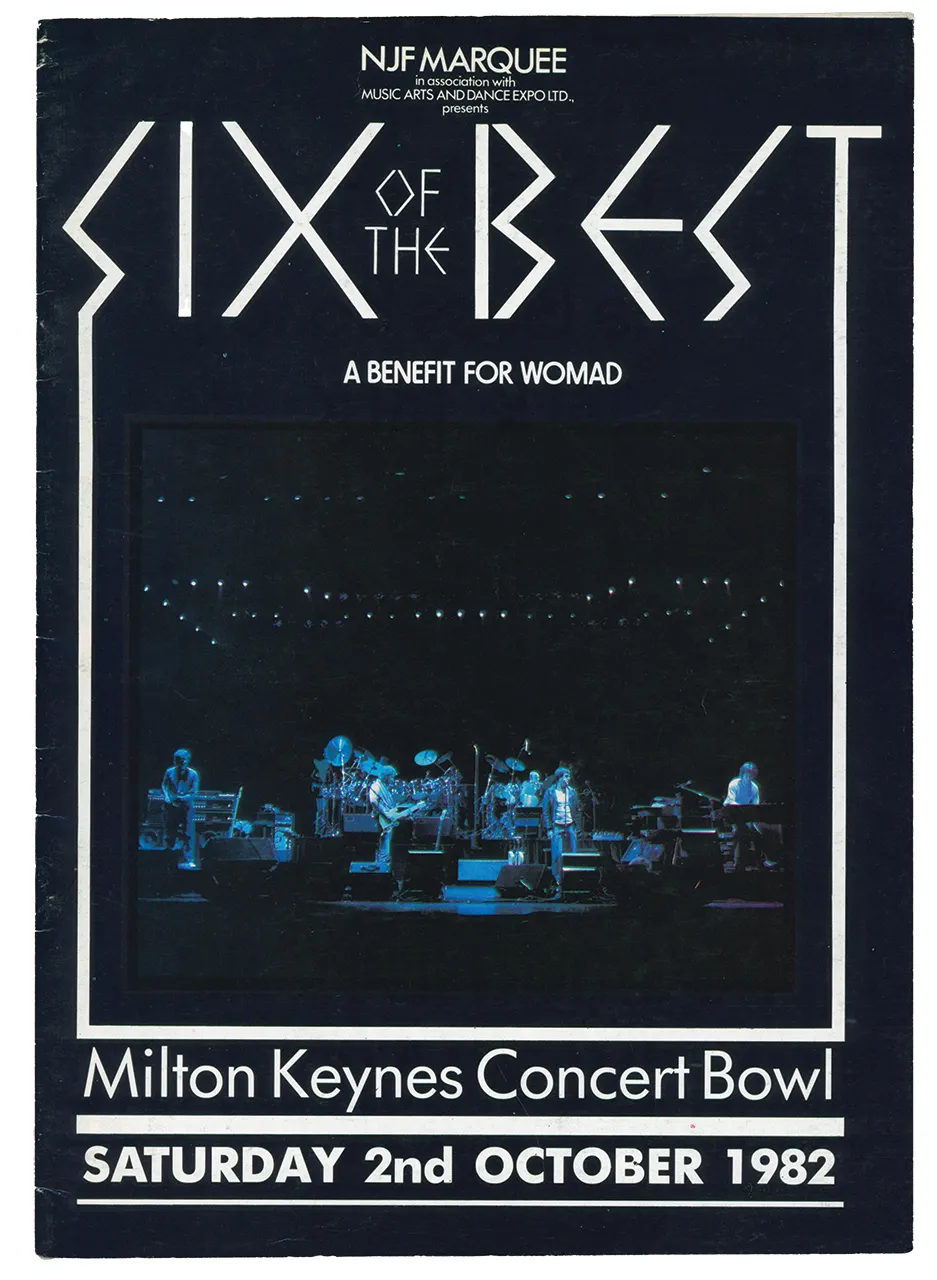
The show took place on 2 October, which was also Rutherford's 32nd birthday, to an estimated 40,000 people. Tickets were sold at £9 for advance purchases and £10 for people arriving on the day. The show opened with fellow Charisma Records artists John Martyn, The Blues Band, and Talk Talk; the latter were faced with a hostile reaction from the crowd and cans and bottles were thrown towards the stage during their set. Genesis was introduced by Jonathan King, who named the band in 1967 and supervised the recording of their first album.
Gabriel entered the stage in a coffin carried to the stage by four pallbearers, a stunt that was not known by the group prior to the show. Returning to the stage as Rael, his character from 'The Lamb Lies Down on Broadway'
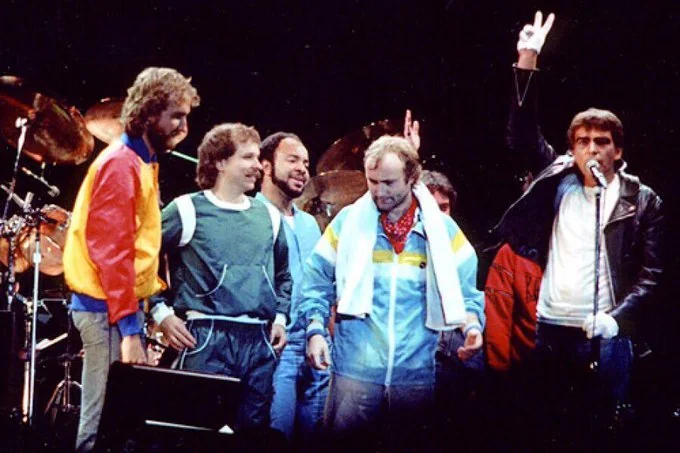
Following a portion of the epic "Dancing With the Moonlit Knight," which transitioned smoothly into the fan-favourite ballad "The Carpet Crawlers," the band was interrupted by fans singing "Happy Birthday" to Rutherford, who turned 32 that day. After acknowledging the moment, Gabriel turned his attention toward the odd circumstances that brought them together.
"Some of you are maybe wondering what we’re doing here," he said. "Actually, this is a sequence from a previous event by the name of WOMAD. … The result of this was that it was a great event, and it lost a pile of money. But I’m very lucky to have a group of people to support these ideals. … And in return for your cash, we will try to give you what we think you would like of this combination."
It's the most unique concert in the history of Genesis, drawing one of their biggest crowds and featuring a set of the band's best work with Gabriel, including the full 23-minute version of 'Suppers Ready'. The band also played a take of Gabriel's 'Solsbury Hill' and a version of the 1980 single 'Turn It on Again' with Gabriel on drums.
Despite the nature of the show, it was not professionally recorded or filmed. Some fan bootlegs of the show have since been released. Gabriel never reunited with Genesis again.
His fifth studio album, 'So', released in 1986, brought Gabriel unprecedented commercial success without compromising his artistic integrity. The album featured some of his most iconic work, including 'Sledgehammer', a funk-infused, horn-driven hit bursting with energy and soul, powered by an unforgettable music video that revolutionised the medium with its stop-motion animation and surreal visuals. It remains one of the most acclaimed videos of all time, winning a record nine MTV Video Music Awards in 1987.
'Don’t Give Up', a poignant duet with Kate Bush, tackled themes of despair, economic hardship, and resilience. Gabriel’s solemn verses were balanced by Bush’s comforting and angelic chorus, creating a profoundly moving dialogue between vulnerability and hope. 'In Your Eyes', an emotionally resonant centrepiece of the album, blended African rhythms with lyrical intimacy. Its enduring appeal was further cemented when it featured memorably in the 1989 film Say Anything, becoming a touchstone of romantic expression and a mainstay of Gabriel’s live shows.
Other standout tracks included 'Red Rain', an emotionally intense opener that combined vivid, almost apocalyptic imagery with cinematic production, and 'Big Time', a biting satire of ambition and materialism, driven by a propulsive groove and vibrant brass. The album as a whole represented a perfect synthesis of Gabriel’s artistic ambitions and his ability to craft music that was both sonically adventurous and widely accessible.
'So' achieved multi-platinum status and earned critical acclaim across the board, charting globally and garnering multiple Grammy nominations. This global success not only solidified Gabriel’s place as a visionary artist but also as a significant figure in mainstream pop music, demonstrating his ability to reach and resonate with audiences on a massive scale.
Kate Bush reinforced herself as one of the most important artists of the 1980s. 'Hounds of Love', released in 1985, is widely regarded as her masterpiece and one of the most influential albums of the 1980s. The album marked a significant shift in both her sound and her approach to music. Drawing on a combination of progressive rock, art pop, and electronic music. With songs like 'Cloudbusting', a song that blends poetic lyricism with deeply cinematic imagery. The track tells the story of Kate Bush's childhood experiences, inspired by the relationship between psychologist Wilhelm Reich and his son Peter. Reich, who was known for his controversial theories on human energy, spent time experimenting with a machine he believed could manipulate the weather. Bush, in her song, weaves a narrative about her father's struggles and the complex bond between them. The lush orchestration, combined with the emotional weight of the lyrics, creates a haunting atmosphere.
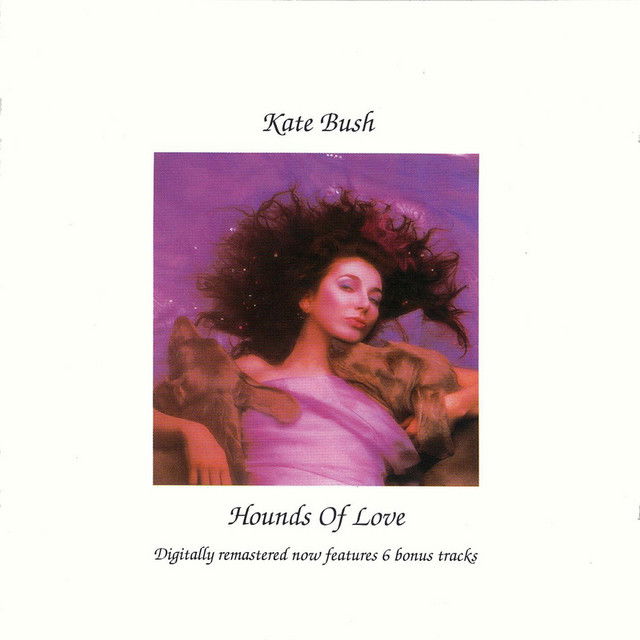
The album's title track, 'Hounds of Love', has become Bush's most iconic song, with its driving rhythm and catchy melodies. But more than just a catchy tune, the song is a profound exploration of complex emotions, reflecting the album’s deep introspection. The title track captures both a sense of liberation and a subtle anxiety, with Bush exploring the fear of vulnerability, the longing for emotional connection, and the complexities of love. The song’s upbeat tempo and catchy hook contrast with the more profound, more experimental moments of the album, showcasing Bush’s ability to blend pop sensibilities with introspective themes. The track's influence was further solidified when The Futureheads covered 'Hounds of Love' in 2004, delivering a stripped-down, frantic version that further established the song’s enduring appeal across various genres.
Perhaps the most enduring song from Hounds of Love is 'Running Up That Hill (A Deal with God)', which has had a profound cultural impact. Its resurgence, especially with its use in Stranger Things in 2022, has brought it back to the forefront of popular culture. The song actually reached Number One in the UK in 2022, due to the power of Stranger Things. It’s a track that has become woven into the fabric of pop culture. Its journey from a 1985 release to a chart-topping hit in 2022 is a testament to Bush’s enduring artistic legacy and her significant influence on the music scene.
Across the pond, R.E.M. emerged as one of the most influential and innovative bands of the 1980s, redefining alternative rock and becoming pioneers of the indie music scene. Formed in Athens, Georgia, in 1980, the band's sound was shaped by an eclectic mix of influences—post-punk, folk, and jangle pop—creating a distinct style that set them apart from the mainstream. At the heart of R.E.M.'s early success was their enigmatic, emotionally resonant sound, led by Michael Stipe's cryptic lyrics and unmistakable voice, Peter Buck's chiming guitar, Mike Mills' melodic basslines, and Bill Berry's steady, understated drumming.
Their debut single, 'Radio Free Europe', released in 1981 and later re-recorded for their 1983 debut album 'Murmur', announced the arrival of something fresh and different. 'Murmur' earned critical acclaim for its atmospheric production and subtle hooks, with tracks like 'Talk About the Passion' and 'Perfect Circle' further cementing their reputation as the thinking listener's rock band. 1984's 'Reckoning' maintained its momentum with songs such as 'So. Central Rain (I'm Sorry) showcases a balance of catchy melodies and elusive meaning that became their trademark.
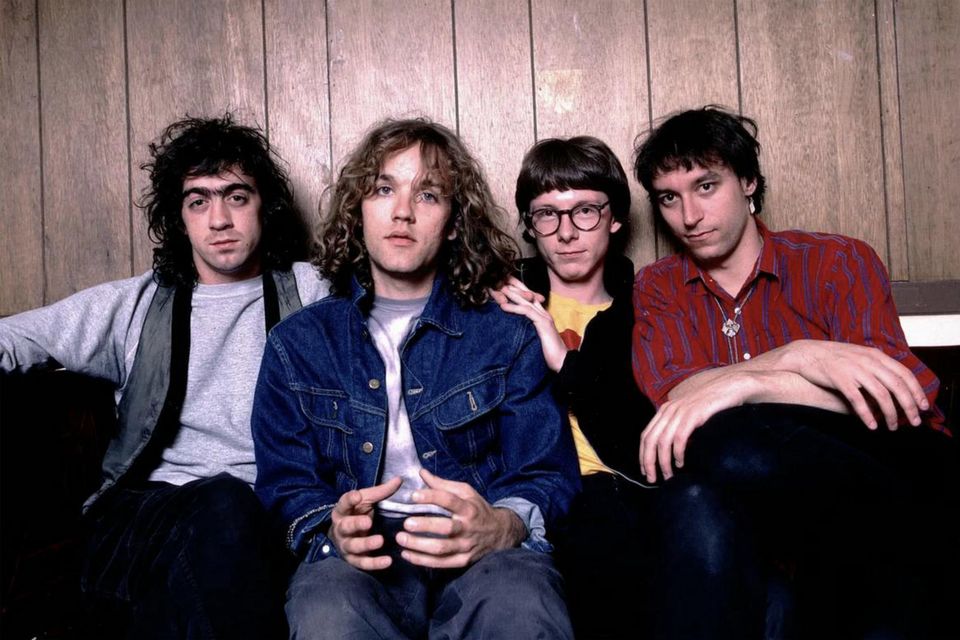
As the decade progressed, R.E.M. began edging closer to the mainstream without losing their artistic edge. 'The One I Love', from 1987's 'Document', became their first major hit, a deceptively dark song wrapped in an anthemic rock arrangement. The same album also featured 'It's the End of the World as We Know It (And I Feel Fine)', a breathless, rapid-fire lyrical stream that became one of their most recognisable songs. By the release of 1988's 'Green', they were ready to experiment further. The politically charged 'Orange Crush'—addressing the Vietnam War and its lingering effects—stood out as one of their most powerful singles, combining driving rhythms with pointed commentary. The album's blend of jangle pop, folk rock, and arena-ready choruses made it their most accessible work yet, bridging their indie credibility with broader radio appeal.
The 1990s brought R.E.M. their greatest commercial success. 1991's 'Out of Time' propelled them to global stardom with 'Losing My Religion', a haunting ballad built around a mandolin riff that became one of the decade's defining songs. The album also delivered the buoyant 'Shiny Happy People' and the introspective 'Near Wild Heaven', showing the band's remarkable range. Just a year later, 'Automatic for the People' took a more sombre, reflective turn, producing timeless tracks such as 'Everybody Hurts', an anthem of solace for those in pain, and 'Man on the Moon', a whimsical yet poignant tribute to comedian Andy Kaufman.
By the time 1994's 'Monster' arrived, R.E.M. shifted gears yet again, embracing a grittier, distortion-heavy rock sound with singles like 'What's the Frequency, Kenneth?'. This constant reinvention across the '80s and '90s ensured their longevity. It cemented their legacy, not just as a cornerstone of alternative rock, but as one of the most consistently inventive and emotionally resonant bands in modern music history.
R.E.M.’s 1995 Monster Tour was one of the decade’s most memorable and dynamic concert runs, marked by both tragedy and triumph. After drummer Bill Berry suffered a brain aneurysm on stage in March, the band paused the tour for two months to recover, resuming with a triumphant performance in May at California’s Shoreline Amphitheatre. The tour showcased R.E.M.’s new, raw, distortion-heavy sound from the Monster album, drawing massive crowds across the U.S., Europe, and the UK. The lineup of opening acts reflected the vibrant alternative scene of the mid-'90s. In the U.S., Sonic Youth and Luscious Jackson opened several shows, while in Europe and Britain, the bill featured emerging and established talents like Radiohead, Blur, Sleeper, Oasis and The Cranberries.
Prince, a versatile artist, emerged in the late 1970s and swiftly became one of the most innovative and influential figures of the 1980s. His unique sound, a blend of funk, R&B, rock, pop, and new wave, showcased his musical diversity and set him apart as another of America's poster boys of the 1980s.
The 1980s saw Prince release a series of groundbreaking albums that would define his legacy. 'Dirty Mind' introduced his distinctive sound and fearless, often explicit lyrics, blending funk, rock, and new wave. However, it was '1999' that truly put him in the mainstream spotlight. The album’s blend of pop sensibilities, electronic funk, and deeply personal lyrics, with songs like 'Little Red Corvette' and '1999', not only garnered wide commercial success and critical acclaim but also became an anthem for a generation, capturing both the excesses and anxieties of the time.
But it was 'Purple Rain' that catapulted Prince to an unprecedented level of fame. The album, which gave the world some of his most iconic tracks ('When Doves Cry', 'Let's Go Crazy', 'Purple Rain'), also marked his foray into film. The accompanying movie of the same name cemented his status as a multifaceted artist. 'Purple Rain' was not just a critical and commercial success, but it also won multiple Grammy Awards, solidifying Prince as a generational talent and influencing the music industry for years to come.
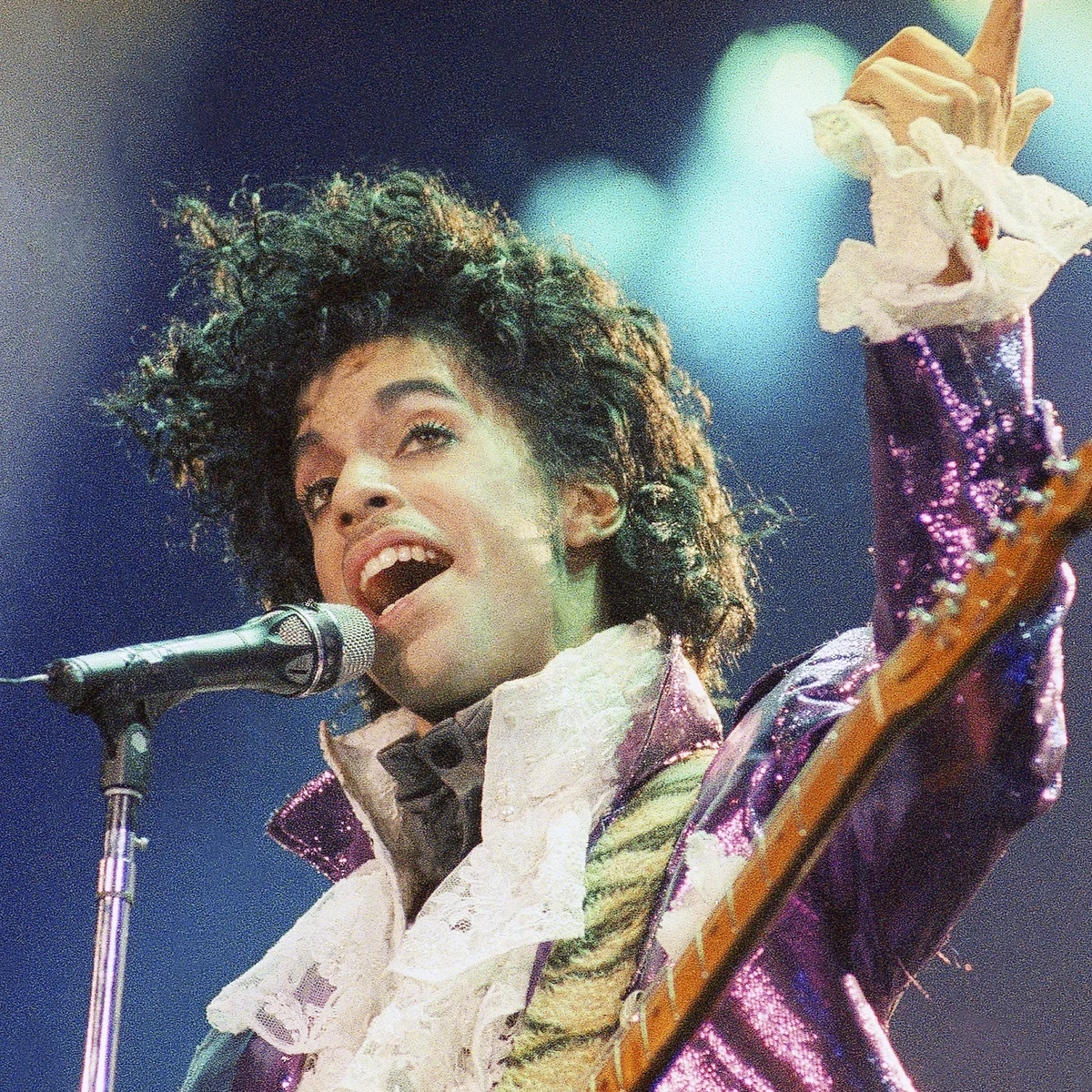
Later in the decade, Prince adopted a more laid-back, pop-infused sound, as seen in tracks like 'Raspberry Beret', which carried a nostalgic, retro vibe. The song tells the story of a young love centred around a girl with a raspberry beret, a symbol of youth and innocence. Its lyrics paint a vivid picture of small-town life and romantic longing, all set to an infectious groove that captures the essence of carefree youth.
Then, in 1987, came 'Sign o' the Times', one of Prince's most iconic and critically acclaimed songs. This track marked a sharp departure from his previous, more elaborate productions, showcasing a minimalist sound dominated by drum machines, synthesisers, and a subtle bassline. It was a bold, experimental shift that set the stage for his artistic evolution.
Lyrically, 'Sign o' the Times' reflected the disillusionment and anxiety of the 1980s, addressing themes of political unrest, social decay, and personal crisis. With references to drug addiction, poverty, and the AIDS epidemic, it captured the growing unease of the era. Despite its heavy subject matter, the song was delivered with an infectious energy, blending funk, rock, and new wave influences, making it a haunting yet captivating anthem for a turbulent time.
Throughout the 80s, Prince was also known for his enigmatic persona, self-production, and unparalleled musicianship. His ability to write, produce, and perform virtually every instrument on his albums made him a genuine one-man band, setting him apart from many of his peers. His 80s output defined the era, influencing countless artists across genres and leaving an indelible mark on pop, funk, and rock music.
It wasn't just British and American bands dominating the 1980s. Hailing from Sydney, Australia, INXS emerged as one of the most iconic bands of the 1980s, offering a unique blend of rock, new wave, and funk that captivated global audiences. Fronted by the charismatic Michael Hutchence, whose sultry vocals and magnetic stage presence became a hallmark of their identity, the band developed a reputation for crafting infectious, danceable rock with a sharp edge.
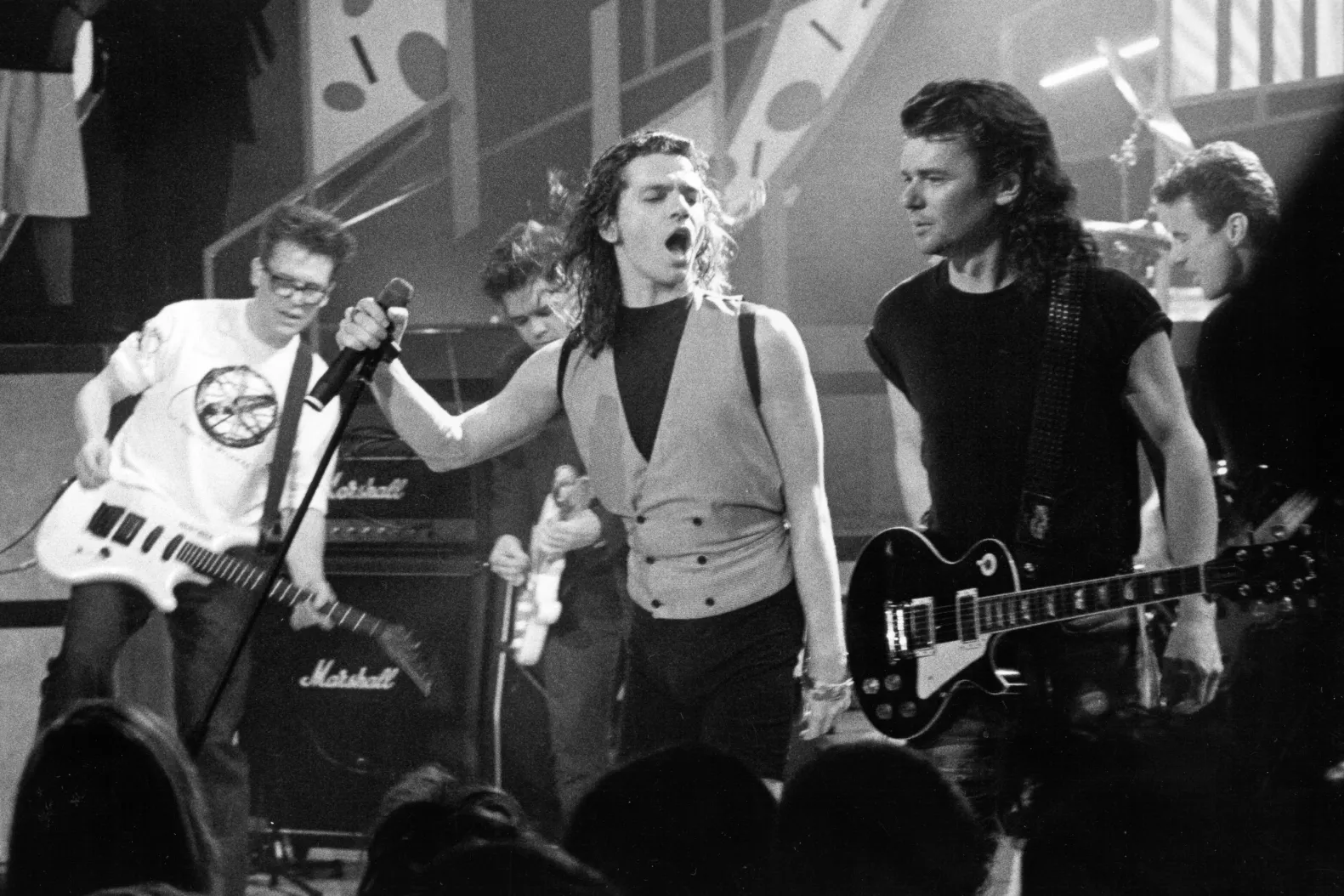
INXS soared to the peak of their success with 'Kick', a landmark album that became a defining moment of 1980s music. 'Kick' birthed a series of international hits, including 'Need You Tonight', 'New Sensation', 'Devil Inside' and 'Never Tear Us Apart'. The album, a seamless blend of rock, pop, and funk, exuded an effortless cool. Simultaneously, Hutchence’s seductive charisma propelled them to the status of superstars. 'Kick' achieved multi-platinum status in numerous countries, a testament to INXS’s global appeal and their place as one of the most successful bands of the decade.
The band's repertoire included some of the very best songs of the decade, such as 'Need You Tonight', which topped the U.S. Billboard Hot 100. Another standout was 'Never Tear Us Apart': A sweeping ballad with orchestral strings, this song not only displayed the band’s emotional depth but also remains one of their most beloved tracks. As a band, they were brilliant musicians with one of the most unique and charismatic frontmen the world has ever seen.
Wall's Come Tumbling Down- The 80s Part 3
The 1980s were a decade of political change, marked by the election of Margaret Thatcher as the UK’s Prime Minister in 1979. She remained in power throughout the decade, becoming one of the most polarising figures in British history. The emergence of 'Thatcherism', combined with high unemployment and widespread poverty, fuelled a wave of politically charged music.
In the early 1980s, Paul Weller, alongside his bandmates in The Jam, emerged not only as leading figures in British music but also as some of the most vocal critics of Margaret Thatcher’s government. Their role as social critics was pivotal, using their platform to channel the anger, disillusionment, and unrest felt by many, especially within working-class communities. The Jam’s songs became anthems of resistance against the era’s economic policies and social inequalities, enlightening the public about the issues at hand. Their lyrics tackled the erosion of traditional industries, rising unemployment, and the growing sense of alienation that defined life for many Britons under Thatcher’s rule.
The Jam’s 1980s albums 'Sound Affects' (1980) and 'The Gift' (1982) are regarded as classics of British rock, showcasing the band’s sharp songwriting and evolving sound. 'Sound Affects' featured hits like 'Going Underground' and 'Start!'. At the same time, 'The Gift' included tracks such as 'Town Called Malice' and 'Beat Surrender', which became anthems for a generation grappling with social upheaval. These records not only reflected the political and social climate but also pushed the boundaries of punk and mod revival music with sophisticated arrangements and production.
Many of the band’s most enduring songs reflect this sharp social commentary. 'Going Underground' stands as an iconic anthem of defiance, critiquing political apathy and the bleak realities of British society while capturing the frustration of a generation that felt ignored and betrayed. 'Town Called Malice', one of their most beloved tracks, juxtaposes an upbeat, Motown-inspired groove with a stark critique of the decline of working-class communities and the despair bred by economic stagnation. Beyond their hits, album tracks like 'Smithers Jones', 'Just Who Is the 5 O’Clock Hero?', and 'Strange Town' delve deep into themes of alienation, job insecurity, and financial hardship. Yet, they also celebrate the resilience and spirit of everyday working-class heroes, inspiring the audience with their music.
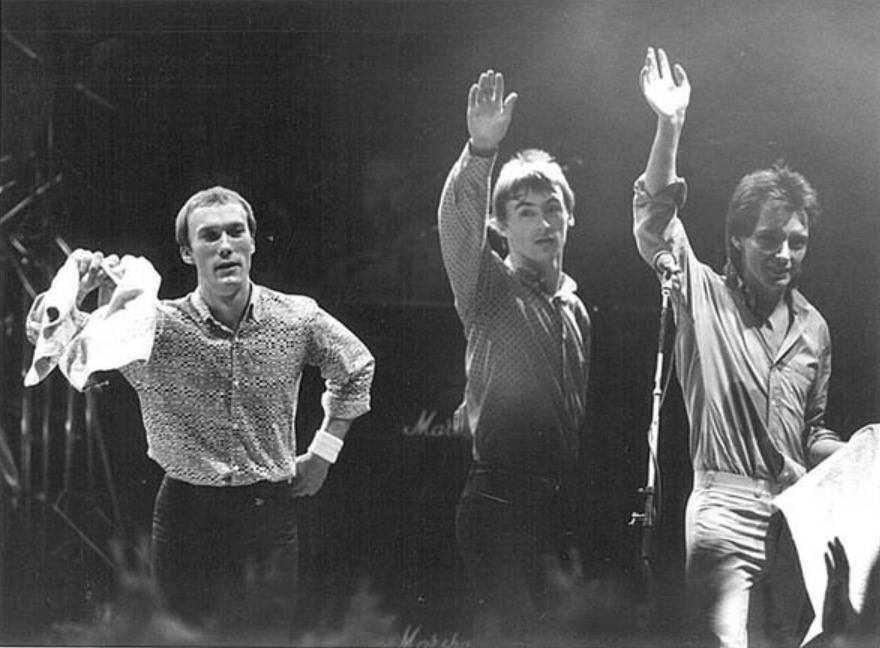
The Jam’s unique ability to blend energetic punk and mod revival sounds with sharp, thoughtful social commentary and Weller’s distinctive, poetic lyrical voice secured their place as Britain’s biggest band of the early ’80s. Their musical style and cultural impact were significant, offering a unique blend that resonated with the frustrations of ordinary people while providing a sense of hope and solidarity through their music. Their commercial success mirrored their cultural impact: in just five years, The Jam released 18 singles, with four reaching Number One and nine entering the Top 10, dominating the British charts and airwaves like few bands before or since.
After the breakup of The Jam in 1982, Weller formed The Style Council. This band was a departure from the rock genre, further expanding his political and social commentary. The Style Council's sound was a rich tapestry, incorporating elements of soul, jazz, and funk, creating a more sophisticated and diverse sound. Yet, it still maintained a strong focus on issues of social and economic injustice, showcasing Weller's musical evolution and commitment to his message.
With songs like 'Walls Come Tumbling Down', Weller's impact was profound. This track, as the title suggests, was a powerful metaphor for the collapse of oppressive systems. It is one of Weller's most direct calls for revolution, urging people to break down societal barriers and fight for change. Its influence continues to inspire and motivate those who hear it.
Paul Weller’s role as the voice of political and social unrest in the 1980s was undeniable. As frontman of The Jam and later The Style Council, Weller became the face of a musical movement that aligned itself with the frustrations and struggles of the working class. His ability to blend political commentary with popular music made him a significant figure in both the music and cultural landscape of the time, particularly during the era of Margaret Thatcher’s Conservative government, a time marked by significant social and economic changes and widespread political unrest.
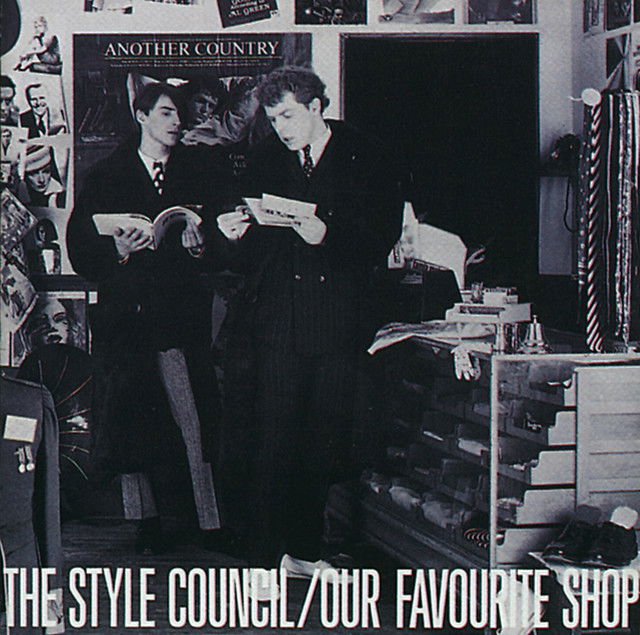
In addition to his music, Weller became actively involved in Red Wedge, a collective of musicians fronted by Billy Bragg and featuring artists such as Kirsty MacColl and The The. Red Wedge was established to rally young voters and campaign against Thatcher’s government in the lead-up to the 1987 general election. Their mission was clear: to inspire change and help oust Thatcher from power. While Red Wedge ultimately did not achieve its goal of removing Thatcher, it played a significant role in uniting politically conscious artists and raising awareness about the social issues of the time.
The Specials, a British ska band formed in 1977, perfectly captured the state of the UK in the early 1980s with their iconic track' Ghost Town'. The haunting nature of the melody was deliberate, designed to evoke a sense of impending doom that mirrored the bleak atmosphere of the time. The country was gripped by high unemployment, poverty, and widespread social unrest, and 'Ghost Town' became the soundtrack of this turmoil.
The line' Government leaving the youth on the shelf' is particularly poignant. It's a direct criticism of the government's failure to provide opportunities for the younger generation, which was a major issue at the time. This line highlights the frustration and disillusionment of a generation that felt abandoned. With no opportunities and little hope for the future, many young people saw unrest and violence as the only way to make their voices heard. It seemed as though this eruption of frustration was the only method to attract the attention of those in power.
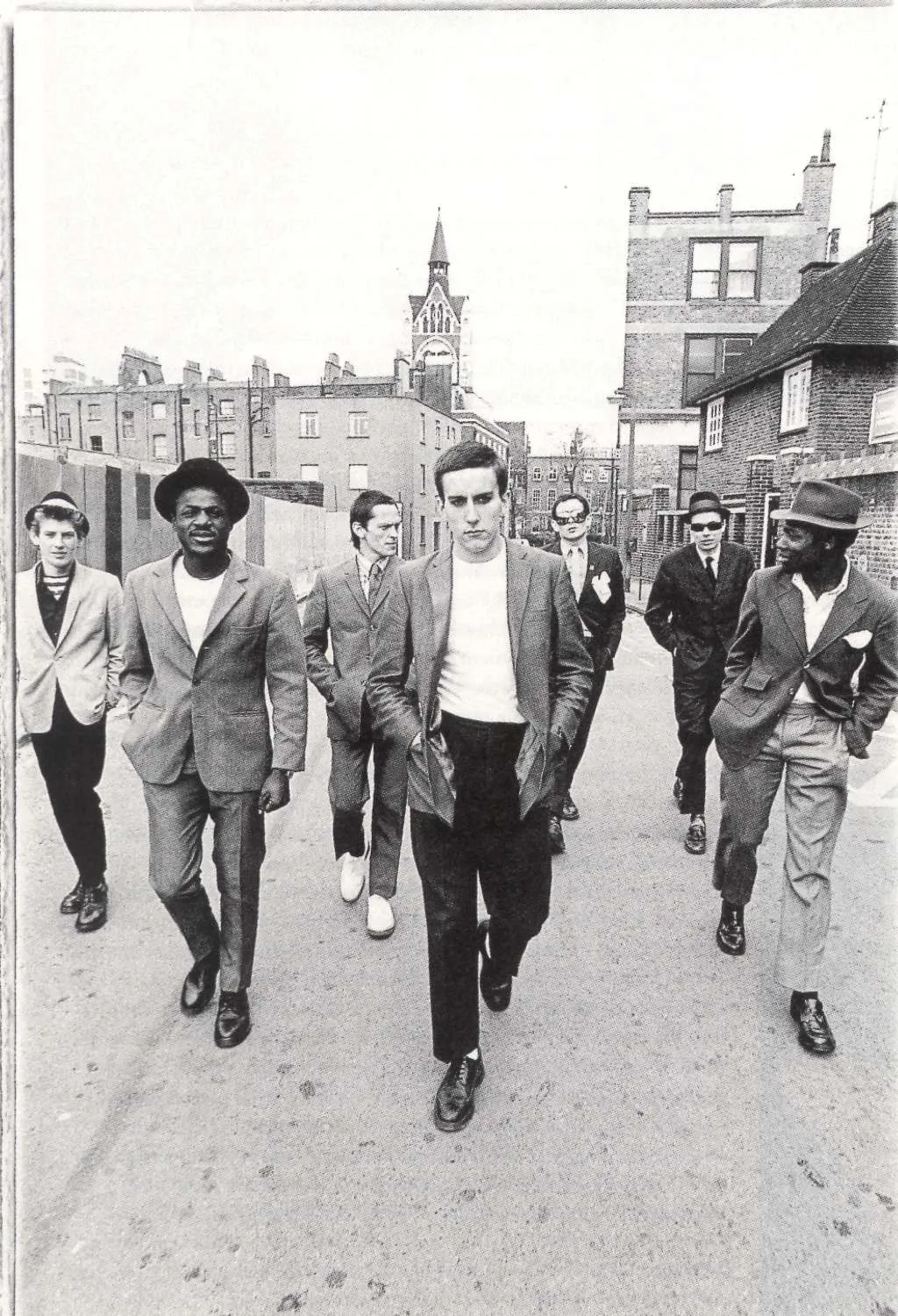
'Ghost Town' remains a powerful reminder of the struggles of that era, a timeless piece of social commentary that still resonates today, connecting us to the past and its influence on our present circumstances. Written in 1981, Ghost Town highlighted the deteriorating conditions facing the British working class throughout the 1980s. From the devastating 1984 Miners’ Strike to the heartbreaking events of 1989, when Liverpool fans were wrongly blamed by Margaret Thatcher’s government and the right-wing media for the deaths of 97 innocent people at Hillsborough, the decade was defined by hardship and division. Discontent simmered across the nation, fuelling a collective desire for change, uniting the people's voice in a call for a better future.
This growing unrest was mirrored in the music and culture of the time. Paul Weller’s politically charged songs gave voice to the frustrations of the disillusioned. At the same time, countercultures such as the Madchester scene and the emerging rave movement offered young people outlets for rebellion and hope. As they sought to carve out their own spaces in a society that seemed indifferent to their struggles, music, culture, and activism became powerful forms of resistance, inspiring change and hope.
One particularly poignant moment occurred in 1987 in front of the Reichstag in West Berlin. David Bowie, on his Glass Spider Tour, performed Heroes, a song he had written in the city a decade earlier. In a gesture of solidarity, he addressed the people of East Berlin, saying, “We send our best wishes to all of our friends who are on the other side of the wall.” His words sparked a mass movement, with over 200 East Berliners rushing towards the Berlin Wall, resulting in arrests and beatings.
Demonstrations broke out, adding to the growing acts of civil unrest that would eventually lead to the fall of the Wall in 1989. Some reports suggest that the speakers were positioned so the performance could be heard in East Berlin, and that the emotional power of Bowie’s performance played a small but significant part in the momentum towards the Wall’s collapse
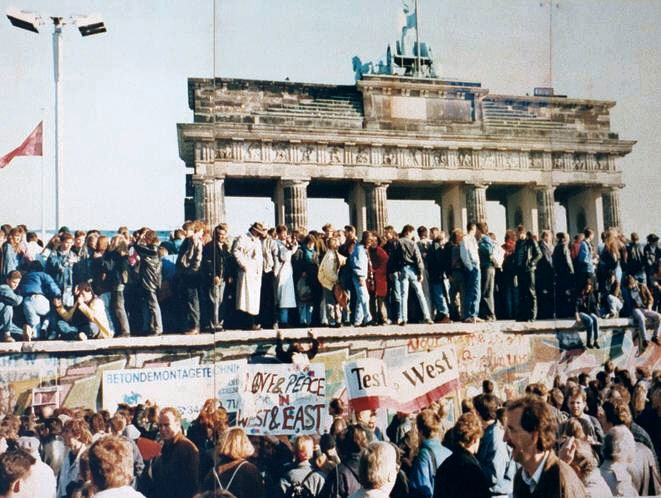
Globally, the 1980s also saw signs of progress and transformation. In 1989, the fall of communism across Eastern Europe culminated in the collapse of the Berlin Wall, a historic moment that symbolised the triumph of the human spirit and the will of the people. This monumental event sparked hope for a fractured world, marking the end of an era.
For many, the fall of the Wall represented not just the end of one chapter, but the dawn of another. The 1990s would follow, bringing with them a new wave of possibilities and change.
The fall of the Berlin Wall marked the start of a new era for the world and the end of totalitarian rule in Eastern Europe. The Iron Curtain began to crumble, giving way to the birth of the modern world as we know it. Not only was it the most significant event of the 1980s, but it also stands as one of the most critical moments in modern history.
In the words of The Stone Roses: “The past was yours, the future’s mine.”
Load Up on Guns, Bring Your Friends- The 90s Part 1
With that title, you might expect me to transport you across the pond to Seattle to talk about Grunge and don't worry, we'll get there. But first, let's stay in England and journey somewhere far less glamorous than the Pacific Northwest. Welcome to Widnes, and the 27th of May, 1990.
The Stone Roses played Spike Island, marking the pinnacle of the Madchester movement as it crossed over into the 90s. Riding high on the success of their self-titled debut album and the single 'One Love', the band performed for 30,000 fans at a chemical plant on the banks of the River Mersey. They wanted to embrace the counterculture of rave and challenge traditional rock 'n' roll norms, so Spike Island became their venue of choice.
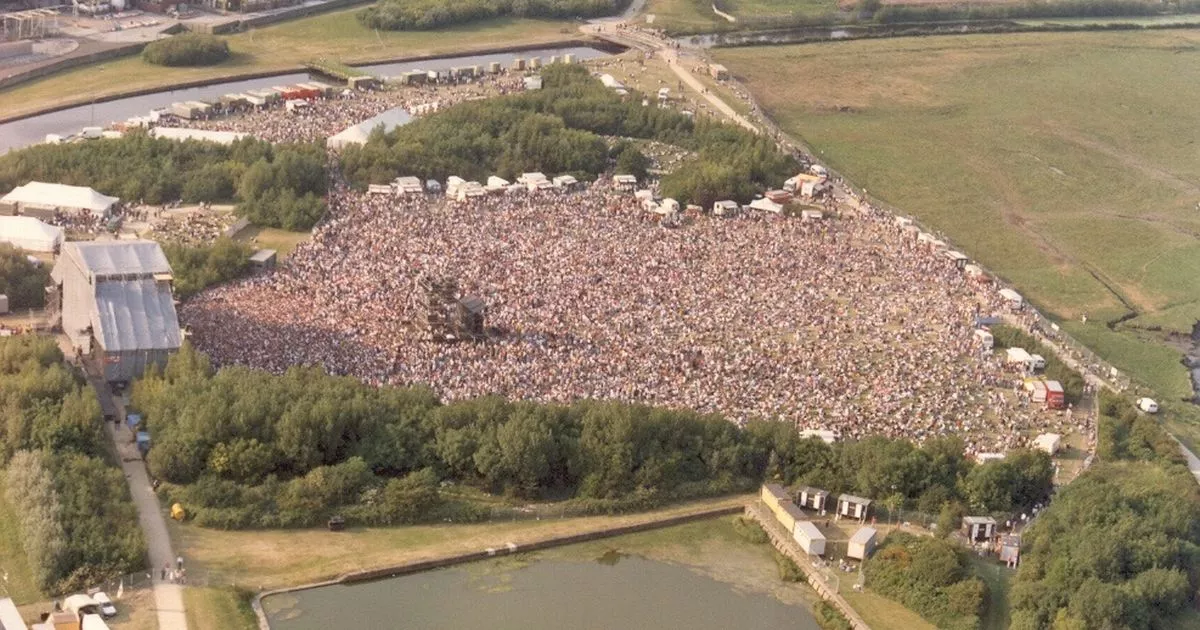
The gig itself wasn’t particularly remarkable. Many attendees complained of poor sound quality, lacklustre support acts, and inadequate food and drink facilities. Yet the cultural significance of Spike Island cannot be overstated. The event symbolised a unification of subcultures: indie kids, ravers, and goths. Everyone was welcome at this celebration. It was where rock met rave, and they shared a euphoric group hug on an industrial island between Manchester and Liverpool.
The Stone Roses were a band with self-belief like no one else before. A bridge between the past and the future, between ’60s psychedelia and the burgeoning acid house scene. They had arrived at the fag end of Thatcherism, the vanguard of a new sound, a new style and, in ecstasy, a new drug. Ian Brown spoke of killing the Queen and becoming bigger than The Beatles. For a brief moment, both seemed within the realms of possibility. However, we now know it was not meant to be.
Liverpool was also home to The La's, a band that released one of the most beloved albums of the 1990s and then vanished almost as quickly as they arrived. Their self-titled debut album, released in October 1990, drew on influences ranging from The Beatles to Burt Bacharach to craft a stunning collection of melodic guitar pop. It had a raw, timeless quality that felt both nostalgic and fresh. However, the album’s release was clouded by internal turmoil and creative clashes with producers, leading reclusive frontman Lee Mavers to famously disown the finished product, claiming it didn’t reflect his original vision.
Despite this, The La’s remains a cult classic. Songs like 'Looking Glass' captured a sense of wide-eyed wonder and yearning, while the shimmering 'There She Goes' became an enduring anthem, simple, perfect, and impossibly catchy. Its influence would echo throughout the Britpop movement and beyond, often cited as a prototype for the jangly, emotionally resonant guitar pop that followed. The track’s delicate balance of melancholy and hope helped it transcend its era, finding new generations of fans through films, commercials, and covers by numerous artists.
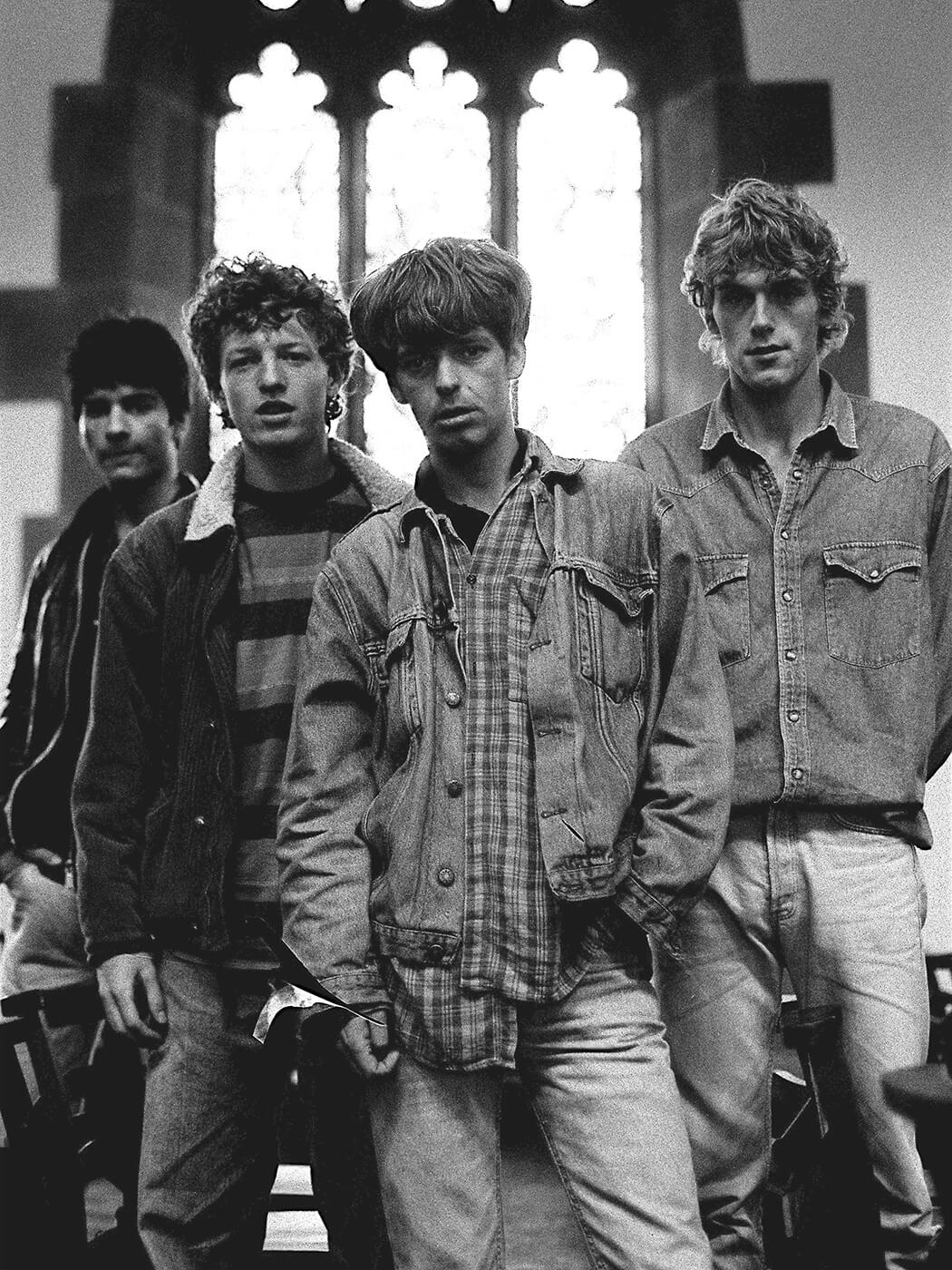
The most fascinating and frustrating aspect of The La’s legacy is that some of their finest work never saw an official release. To hear it, fans have had to hunt down grainy live recordings, studio outtakes, or bootlegs. These rough, unfinished tracks only deepen the mystique around the band, hinting at the brilliance that might have been had Mavers ever completed the definitive version of the album he heard in his head. The ongoing debate over the “lost” La’s album, combined with Mavers’s notorious perfectionism and reclusiveness, has turned the band into a symbol of both creative genius and artistic frustration, a legend of British rock whose potential remains tantalisingly out of reach.
At the start of the 90s, British guitar music wasn’t in the best shape. Madchester was fading, though 1990 and 1991 produced some memorable tracks from the scene, like 'Step On' by Happy Mondays, 'Sit Down' by James, and 'This is How it Feels' by Inspiral Carpets. Beyond these, however, the rest of the country seemed to be in a musical lull. Blur had formed and released their debut album, 'Leisure', but it failed to make much of an impact.
Something needed to change, and it was about to.
Before that change, it's worth pausing to reflect on a monumental moment in 1991: the loss of Freddie Mercury, the legendary frontman of Queen. His passing shocked not only music fans but also the nation as a whole. The rock legend had only told the world 24 hours before that he had AIDS. Although there had been rumours for years, Mercury had always denied them. Most famously, in October 1986, two months after what would be the final Queen performance. British newspapers, The News of the World and The Sun, reported that Mercury had his blood tested for HIV/AIDS at a Harley Street clinic, but he was quoted as saying he was "perfectly fit and healthy"
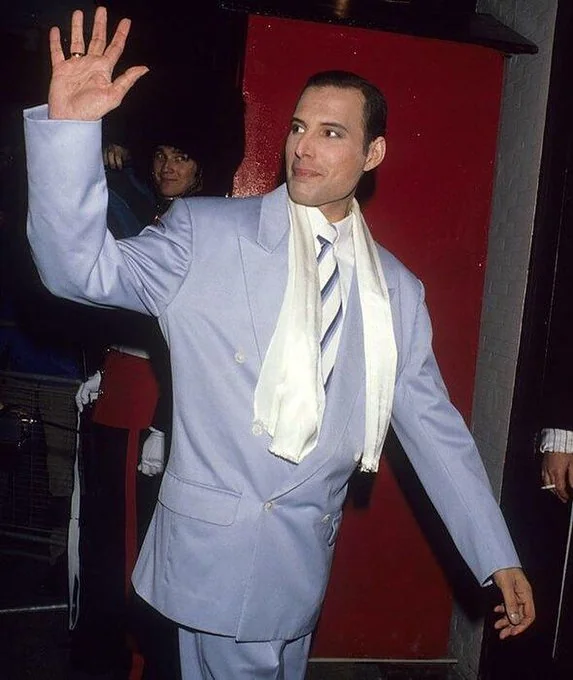
On 22 November 1991, Mercury called Queen's manager Jim Beach to his Kensington home to prepare a public statement, which was released the following day. The statement read.
"Following the enormous conjecture in the press over the last two weeks, I wish to confirm that I have tested HIV positive and have AIDS. I felt it was correct to keep this information private to date to protect the privacy of those around me. However, the time has come now for my friends and fans around the world to know the truth. I hope that everyone will join with me, my doctors and all those worldwide in the fight against this terrible disease. My privacy has always been very special to me, and I am famous for my lack of interviews. Please understand this policy will continue."
On the evening of 24 November 1991, about 24 hours after issuing the statement, Mercury died at the age of 45 at his home in Kensington.
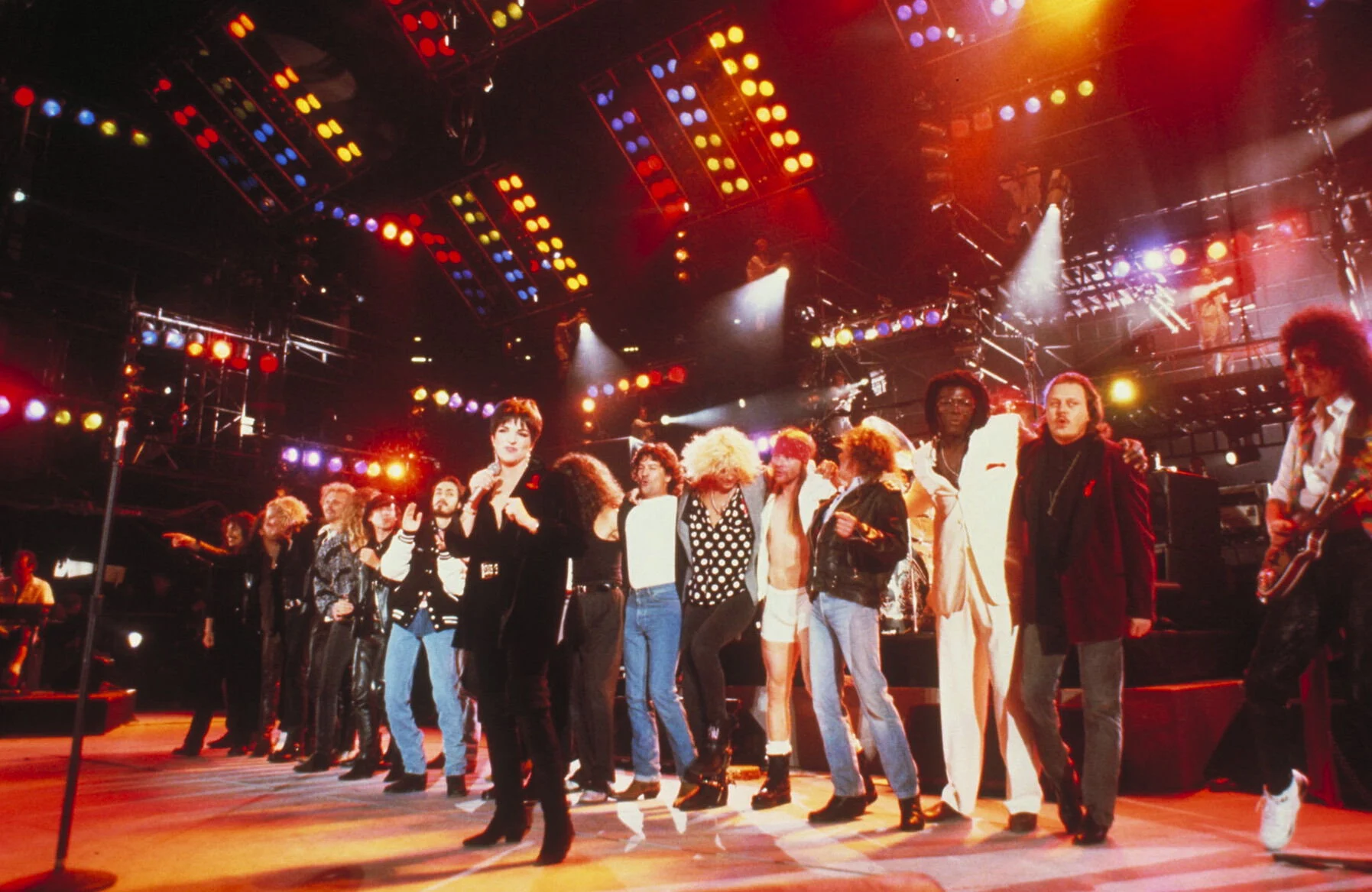
Queen, along with their management, came together to organise a tribute concert for Freddie, both to celebrate his life and legacy, but also to raise money for research into AIDs and spread awareness about the disease. In the 1992 BRIT Awards ceremony, May and Taylor announced plans for the concert. When tickets finally went on sale, all 72,000 tickets sold out in just three hours, even though no performers were announced apart from the remaining members of Queen.
The band managed to draft in more than a few friends for the concert. David Bowie, George Michael, Seal, Roger Daltrey, Annie Lennox, Lisa Stansfield, Mott the Hoople, Guns N' Roses, Black Sabbath and Elton John all took to the stage that day.
Mercury was more than a rock star; he was an inspirational figure, celebrated for his extraordinary talent, charisma, and his role in breaking down barriers as an openly gay man in the public eye. His legacy would resonate for decades to come.
Meanwhile, across the Atlantic, Nirvana. Kurt Cobain, Krist Novoselic, and Dave Grohl were about to change the landscape of music forever. After making their debut with Bleach in 1989, the 90s saw Nirvana explode onto the global stage. Their 1991 album, 'Nevermind', not only launched Grunge into the mainstream but also became one of the best-selling albums of all time. Tracks like 'Smells Like Teen Spirit', 'Something in the Way' and 'In Bloom' captured the angst and alienation of a generation. Nirvana quickly became the biggest band in the world, headlining Reading Festival in 1992 and releasing their final album, 'In Utero', in 1993. Cobain's tragic death in April 1994 marked one of the most significant and heartbreaking moments in 90s music history. In November 1994, Nirvana released their first live album, 'MTV Unplugged in New York'.
It was part of the cable television series MTV Unplugged and features a mostly acoustic performance. It was recorded at Sony Music Studios in Hell's Kitchen, Manhattan, on November 18, 1993. Originally aired on December 16, 1993, the band decided to release the performance to meet the demand for Nirvana material. MTV had been airing the performance repeatedly following Cobain's death.
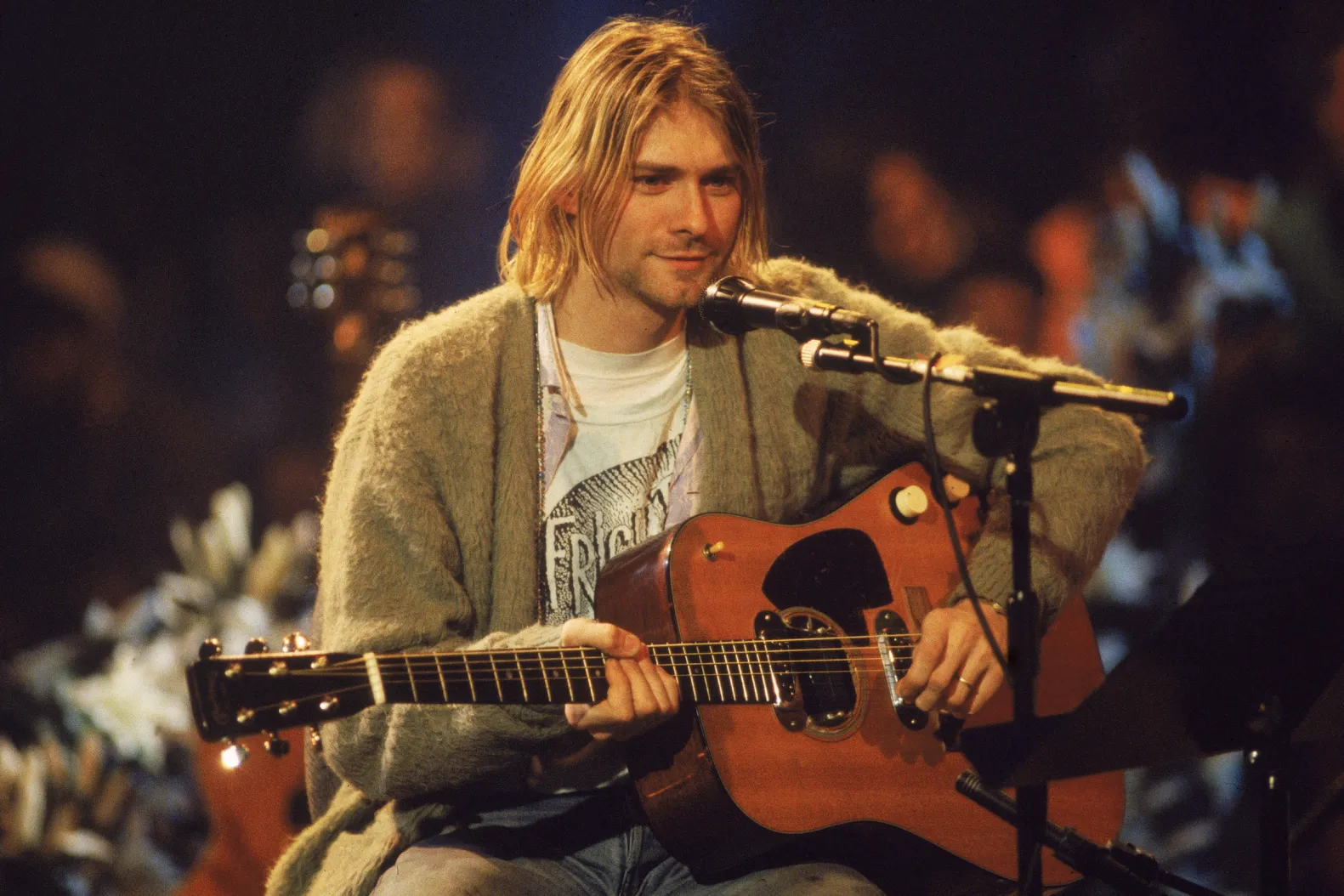
Nirvana filmed the entire performance of 14 songs in a single take. It included one song from their debut 'Bleach', four from their second album 'Nevermind', three from the recently released 'In Utero', and six covers, including 'The Man Who Sold the World' originally by David Bowie.
The album, despite being released after Cobain's death, is a must-listen for Nirvana fans and one of the most important albums of the 1990s.
Grunge's rise had an enormous impact, but it also led to a wave of copycat bands. While Nirvana's influence was undeniable, the flood of imitators in the early '90s resulted in a lot of uninspired music. It was a strange time for rock, but not all was bleak. Many bands began to experiment with new sounds, blending rock with dance music. Primal Scream's 1991 masterpiece 'Screamadelica' was a shining example of this, fusing rock riffs with euphoric beats. Tracks like 'Loaded' bridged the gap between genres, continuing the legacy of The Stone Roses and uniting rock and rave culture.
The early 90s also saw standout dance tracks making waves across the UK charts. Saint Etienne’s dreamy, melancholic cover of Neil Young’s 'Only Love Can Break Your Heart' captured the era’s blend of indie sensibility and electronic textures. At the same time, The Shamen’s chart-topping 'Ebeneezer Goode' became a controversial yet undeniable anthem of the rave culture and carefree, hedonistic spirit that defined the time.
These tracks not only dominated clubs and airwaves but also reflected a generation eager to escape the austerity and uncertainty of the late ’80s through euphoric dance music and communal experiences.
Amid the dance-driven landscape of the late 1980s and early 1990s, a new and distinctly British sound was quietly taking shape: shoegaze. Named for the performers’ tendency to stare down at their effects pedals during live shows, shoegaze focused on lush, immersive soundscapes built from swirling guitars, ethereal vocals, and layers of distortion and delay. The result was a dense, enveloping sound that prioritised mood and texture over traditional song structures. Bands such as Cocteau Twins, My Bloody Valentine, Slowdive, and Ride became pioneers of this approach, crafting music that felt both deeply personal and sonically expansive.
Cocteau Twins emerged in the early 1980s as one of the most sonically distinctive and influential bands to precede the shoegaze movement. Their albums 'Treasure' (1984) and 'Heaven or Las Vegas' (1990) introduced a dreamlike fusion of voice and instrumentation that blurred the line between the two. Elizabeth Fraser’s soaring, often wordless vocals became emotional instruments in themselves, while Robin Guthrie’s shimmering guitar textures built lush, atmospheric worlds that would later define the shoegaze aesthetic. Although typically categorised as dream pop or ethereal wave, Cocteau Twins’ focus on texture, mood, and abstraction resonated deeply with the next generation of British musicians.
Their influence extended far beyond their contemporaries, shaping the sonic language of artists such as Slowdive, Lush, and The Sundays. Through innovative use of reverb, delay, and unconventional vocal phrasing, Cocteau Twins helped pave the way for the introspective, atmospheric soundscapes that would define much of 1990s alternative music.
My Bloody Valentine’s 1991 album 'Loveless' is often regarded as the defining shoegaze record, a groundbreaking exploration of noise, melody, and emotion. With its dense walls of distortion, pitch-bending guitars, and whispered vocals, the album created a sound that was chaotic yet profoundly beautiful. Kevin Shields, the band’s frontman and principal sonic architect, spent years refining its tone, employing unorthodox recording methods such as tremolo arm manipulation and extensive layering to achieve its signature, dreamlike texture. The meticulous process, which reportedly involved dozens of studios and a near-mythic budget, became legendary in itself.
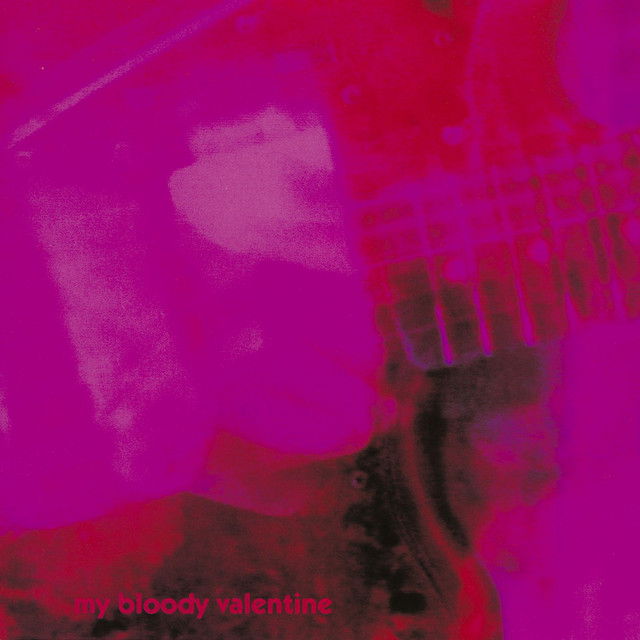
Although 'Loveless' was not an immediate commercial success, it gradually achieved cult status, its influence rippling across genres. Its fusion of noise and melody inspired generations of artists in alternative rock, ambient, electronic, and even metal scenes. Radiohead, Sigur Rós, and M83 have all cited it as a major influence, and its production style continues to echo in modern acts exploring texture and atmosphere. More than three decades later, 'Loveless' remains a touchstone for musicians and critics alike, a record that redefined what a guitar could sound like and what recorded emotion could feel like.
Slowdive offered a more melodic and dreamlike counterpart with their 1993 album 'Souvlaki'. Tracks like 'Alison' and 'When the Sun Hits' captured an emotional intimacy and wistfulness that resonated deeply with listeners. Produced in part by Brian Eno, the album infused ambient influences into its layered guitars and reverb-drenched vocals, creating music that felt both weightless and emotionally grounded. The interplay between Neil Halstead’s murmured vocals and Rachel Goswell’s ethereal harmonies lent 'Souvlaki' a haunting tenderness that set Slowdive apart from their peers.
Initially overshadowed by the rise of grunge and Britpop, 'Souvlaki' received mixed reviews upon release. Yet over time, it came to be hailed as a masterpiece, a defining statement of shoegaze’s beauty and emotional depth.
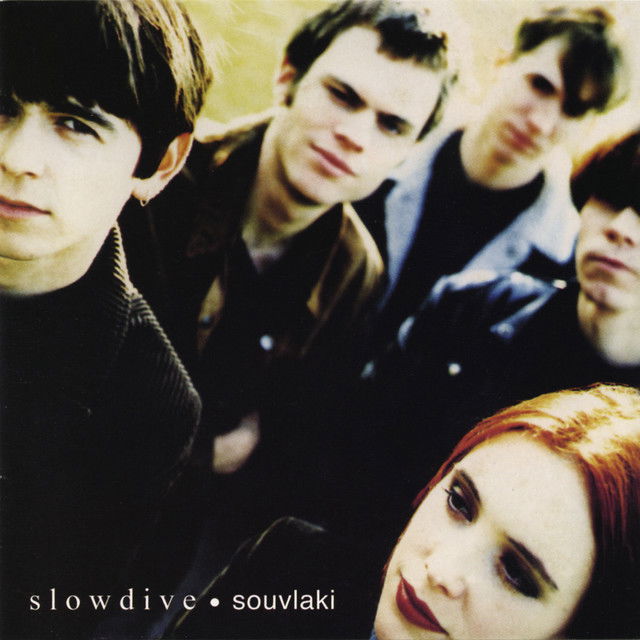
Ride, formed in Oxford in 1988, helped bring shoegaze into the public eye through their fusion of melody and distortion. Their debut album, 'Nowhere' (1990), is often cited as one of the genre’s quintessential releases, combining chiming guitars, surging feedback, and youthful energy. Songs such as 'Vapour Trail' and 'Dreams Burn Down' captured both the introspection and anthemic power that characterised early shoegaze. While My Bloody Valentine leaned toward abstraction and Slowdive toward ambience, Ride occupied a middle ground balancing pop hooks with waves of sound that felt both euphoric and melancholic. Their follow-up, 'Going Blank Again' (1992), expanded this vision with brighter, more expansive songwriting that hinted at the Britpop movement to come.
Though Ride disbanded in the mid-1990s, their later reunion reaffirmed their lasting influence and underscored their vital role in shaping the sound and spirit of British alternative music.
Soon, everything was about to change. The British music scene was poised for a massive shake-up.
We're All Part of the Masterplan- The 90s Part 2
By 1993, the tide was beginning to turn. Grunge, once the dominant force in music, was on the decline. The charts were saturated with American bands trying and failing to recapture the raw energy of Nirvana, and audiences were growing weary.
They craved something new, something closer to home. And like the proverbial London buses, when the wait felt interminable, two arrived at once.
First came Suede, with their electrifying self-titled debut album. Suede were everything Nirvana wasn’t: glamorous, romantic, and dripping with a distinctly British charm. Their music, with its swirling psychedelic guitars and Morrissey-esque lyrical wit, felt like a direct counterpoint to the angst-ridden grunge that had dominated the airwaves. Suede offered a sound and style that embraced beauty, decadence, and raw emotion. A breath of fresh air for a generation searching for something different.
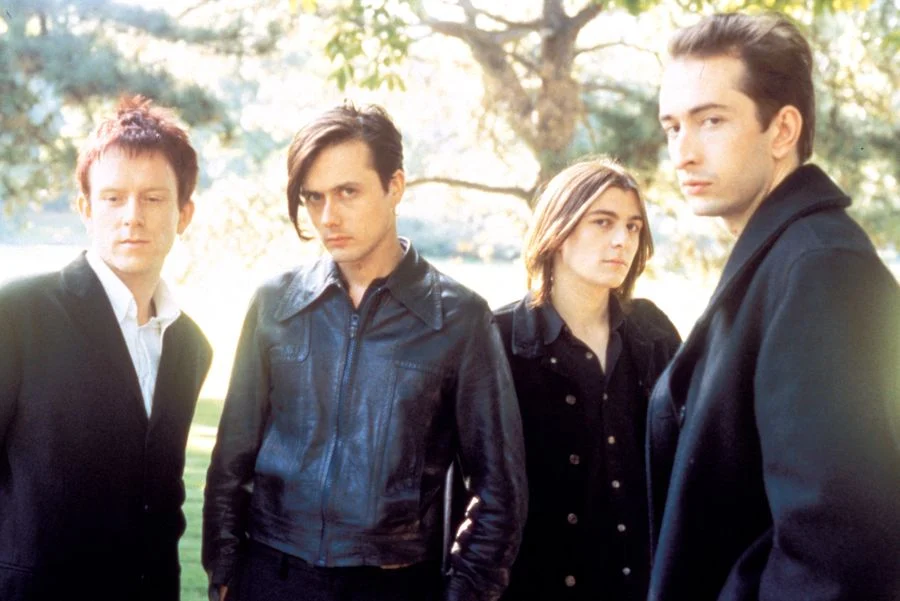
Hot on their heels was Blur, who released 'Modern Life is Rubbish that same year. It was a statement album, signalling a deliberate shift away from the American influences of their debut Leisure toward a sound steeped in quintessentially British observations. Blur captured the mundane and magical in equal measure, painting vivid portraits of everyday life in the UK.
Together, Suede and Blur set the stage for a seismic shift in British music. They represented a bold departure from the grunge-dominated early '90s. They signalled the dawn of something fresh, vibrant, and uniquely British. A cultural movement that would soon take over the airwaves and define the decade.
Blur were quintessentially British, drawing influence from the iconic artists of previous decades, including The Jam, The Kinks, and, of course, The Smiths. Their music often grappled with the decline of British culture, while still embracing the uniquely British essence that defined their sound. 'Modern Life is Rubbish' became one of the most essential albums of the 90s, marking a pivotal moment in Blur's evolution. It was a reinvention, transforming Blur from their early 'baggy' beginnings as an Essex-based outfit into one of the most influential British bands of all time.
This album, along with Suede's debut, became the catalyst for a new musical movement: Britpop. By 1994, Britpop was primed to explode, capturing the hearts and imaginations of a generation with its mixture of catchy melodies, sharp wit, and national pride. The seeds for one of the most vibrant cultural revolutions in modern British music had been sown.
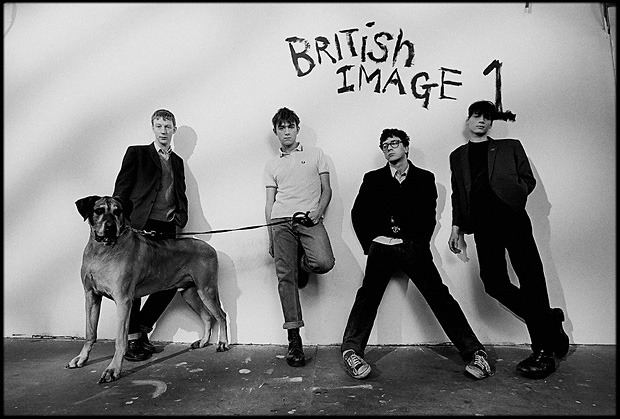
1994 saw two pivotal bands join the Britpop scene: Oasis from Manchester and Pulp from Sheffield. Oasis released 'Definitely Maybe' in August, while Pulp unveiled 'His 'n' Hers' earlier in the year, in April. 'His 'n' Hers' showcased Pulp's sharp lyrical wit and observational storytelling, zeroing in on the mundane, awkward, and often absurd aspects of everyday life, particularly love and lust. This approach set them apart from their peers and secured their place in the Britpop pantheon.
Songs like 'Do You Remember the First Time?' tackled sexual awakening and romantic nostalgia with a mix of raw honesty and theatrical flair. At the same time, 'Lipgloss' explored heartbreak and self-image through a lens of biting sarcasm. 'Babies', initially released in 1992, but featured here as a standout track, perfectly captured the voyeuristic confusion of adolescent curiosity. Meanwhile, 'She's a Lady' flipped gender expectations with deadpan humour, and 'Pink Glove' offered a moody, almost sinister twist on jealousy and desire.
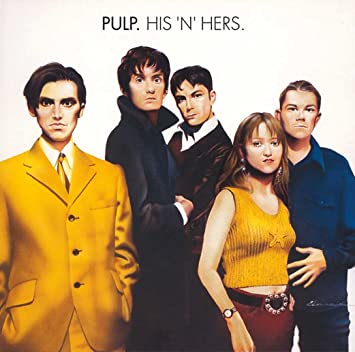
The album was rich with lush synths, infectious hooks, and Jarvis Cocker’s unmistakable vocal delivery, part croon, part confession. 'His 'n' Hers' didn’t just hint at Pulp’s potential; it announced them as a singular voice in the Britpop movement.
Meanwhile, Blur and Suede were still leading the charge, each carving out their own distinctive sounds. Blur released the iconic Parklife, an album that would cement their place at the forefront of Britpop. At the same time, Suede chose a different path with 'Dog Man Star', distancing themselves from the traditional Britpop label with a darker, more gothic approach. The album's moody atmosphere, cinematic instrumentation, and Brett Anderson’s haunting vocals made it a stark contrast to the upbeat anthems of their peers.
'Parklife' and 'Definitely Maybe' stand not only as two of the most essential Britpop albums, but as defining albums of the era. Oasis and Blur were propelled to superstardom, dominating the charts and securing their places in the cultural zeitgeist. And this was just the beginning.
It’s impossible to talk about these albums without spotlighting the songs that made them unforgettable. Blur delivered classics like 'Girls & Boys', a sharp take on 18–30 holidays; 'Parklife', a witty commentary on British life; and 'This Is a Low', a poetic love letter to the shipping forecast. They also showcased their range with tracks like 'End of a Century', which captured a quiet nostalgia for simpler times.
Oasis, meanwhile, opened 'Definitely Maybe' with 'Rock 'n' Roll Star', a bold statement of intent that set the tone for the entire album. 'Shakermaker', with its infectious melody and unmistakable riff, revealed the band’s knack for blending gritty rock with catchy hooks. 'Live Forever', one of their most anthemic tracks, distilled the hope and defiance of youth, while 'Supersonic' hit hard with its raw energy and Liam Gallagher’s unmistakable vocals.
Both albums became pillars of Britpop, defining a generation and shaping the sound of a decade.
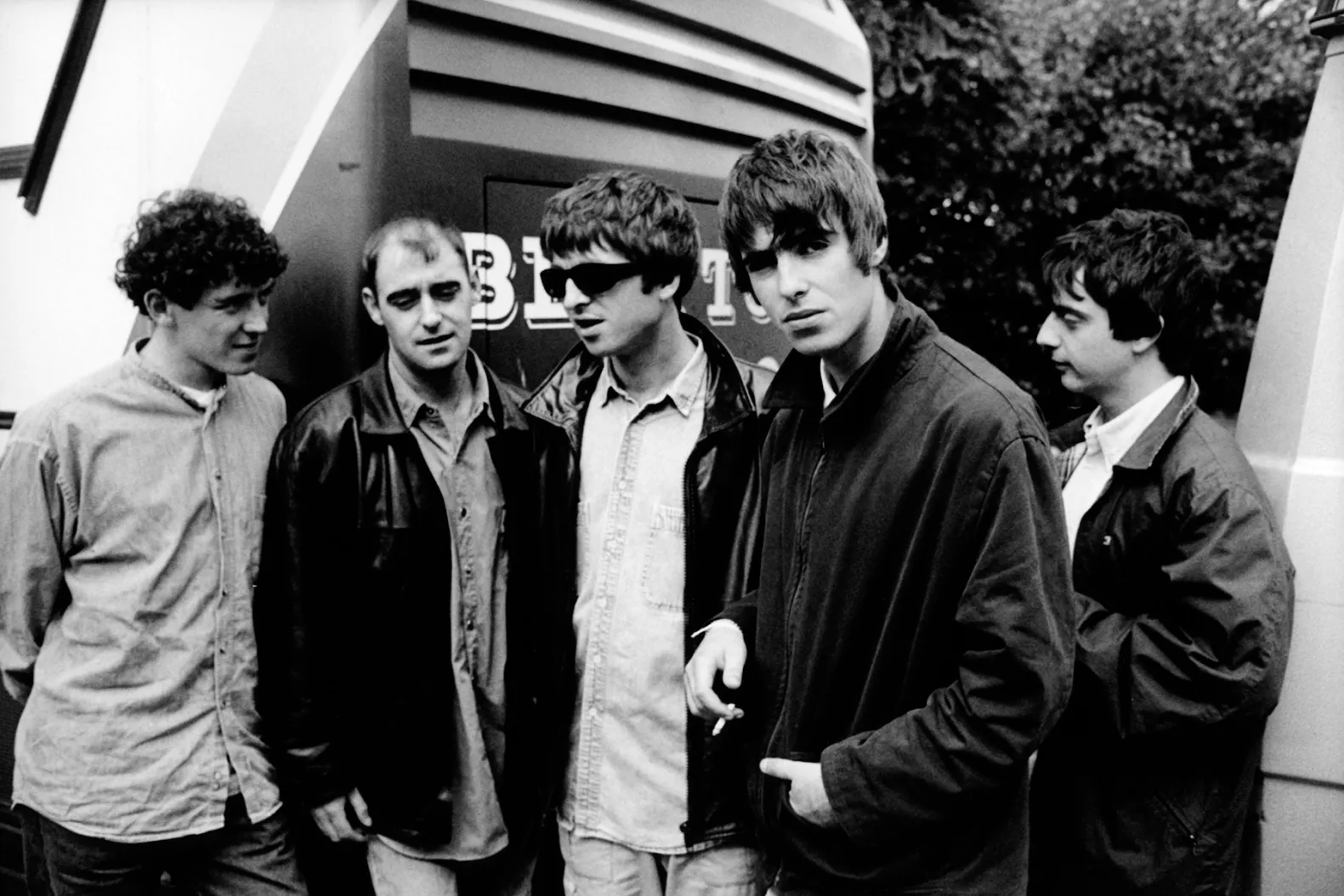
Pulp, 1995, was Pulp’s year. They took on Blur, Oasis, and even The Stone Roses, and came out on top.
Suede would take a step back in 1995 in terms of studio releases, but the big three, Oasis, Blur, and Pulp, each dropped iconic albums. Oasis released the global smash hit 'What's the Story (Morning Glory)', Pulp unveiled the brilliant and beautiful 'Different Class', and Blur completed their life trilogy with 'The Great Escape'.
Oasis delivered hit after hit in 1995, releasing 'Some Might Say', 'Wonderwall', 'Don't Look Back in Anger', and 'Roll With It' all within the same year. And the b-sides were just as remarkable, 'Acquiesce', 'The Masterplan', 'Rockin’ Chair', to name a few. During this era, it felt like everything Noel Gallagher touched turned to gold. He could do no wrong, and his songwriting helped propel Oasis to global superstardom. The release of 'What's the Story (Morning Glory)' cemented their status as the biggest band in the world and remains, to this day, one of the most celebrated British albums of all time.
Blur were riding high off the success of 'Parklife', sweeping up at the Brit Awards in 1995 and winning four! However, many saw their next album, 'The Great Escape', as a disappointment, including some members of the band. Damon famously called it a "mess." Despite this, although not as strong as the previous two albums, it still contained some of Blur's most beloved tracks, including the Number One single 'Country House' and the brilliant 'The Universal'.
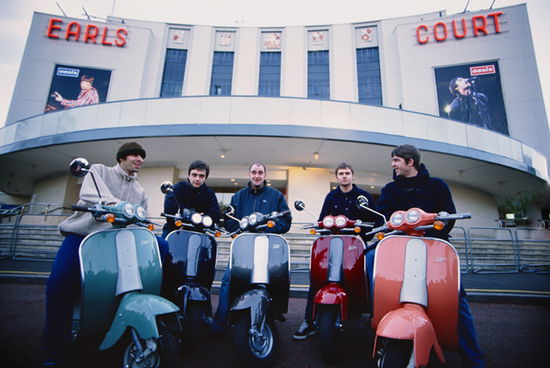
Pulp released 'Different Class' in 1995, which, in my opinion, is the album that defines Britpop. Witty, dark, beautiful, ironic, the very nature of the album is quintessentially British. Songs like 'Disco 2000', 'Sorted For E's and Whizz', and 'Mis-Shapes' could not be more British. The band takes the mundane and sometimes the frightening and transforms them into brilliant, catchy pop songs. The album’s crown jewel is 'Common People'. The song captures society’s fascination with the working class and 'class tourism' where the wealthy try to appropriate aspects of working-class life as some aesthetic. It’s a phenomenon that still exists today. Pulp managed to encapsulate the British class system in a single song, and to me, that’s quite extraordinary. I can only name a few songs that have had such a cultural impact on British society. A remarkable piece of music.
In 1995, to top off the success of a brilliant album, Pulp were the ‘super subs’ at Glastonbury, replacing The Stone Roses after John Squire broke his collarbone. It was a career-defining set for the band, and they more than filled the void left by The Stone Roses. It remains one of the best Glastonbury sets of all time. I told you Pulp won in 1995, but I’m not finished yet.
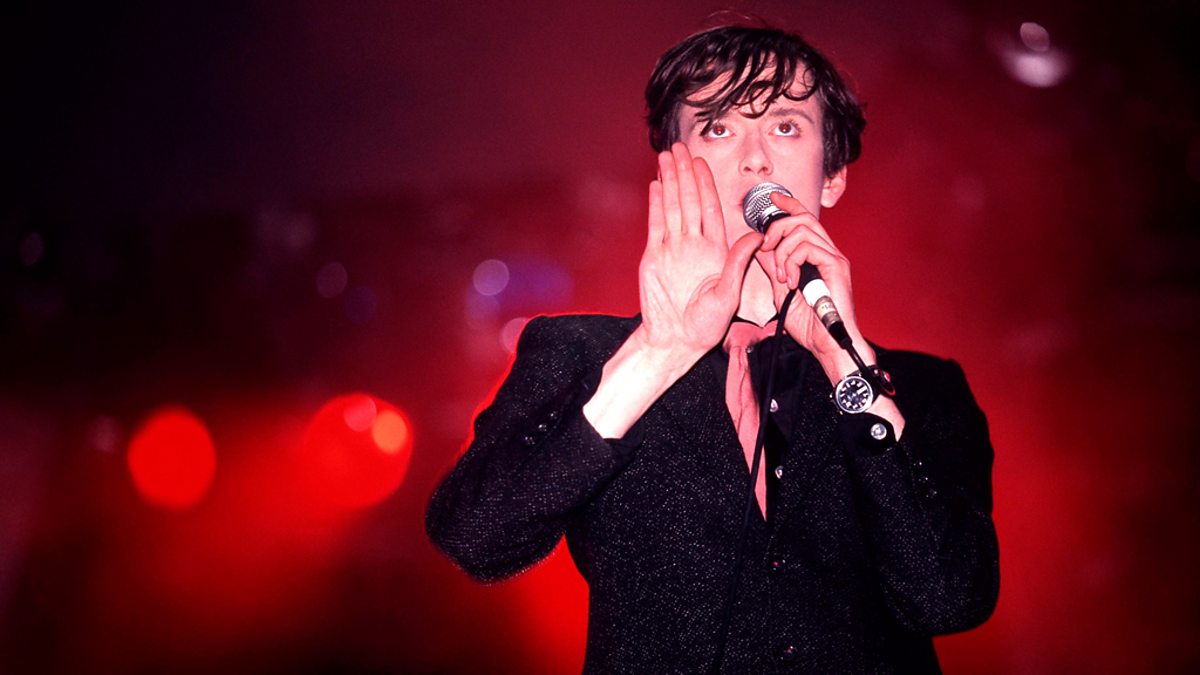
It wasn’t just the men writing Britpop anthems. Justine Frischmann’s Elastica and Louise Wener’s Sleeper contributed some of the era’s best songs and most defining moments. Elastica’s 1995 self-titled debut album delivered a razor-sharp blend of punk energy and Britpop attitude. Tracks like 'Connection', 'Waking Up', and 'Never Here' crackled with urgency and swagger, drawing on post-punk influences like Wire and The Stranglers. The album captured the spirit of the time, youthful, rebellious, and stylish. It went on to become the fastest-selling debut album in UK history at the time. Elastica weren’t just riding the Britpop wave; they were shaping it.
Frischmann, a central figure in the Britpop scene, was also known for her high-profile relationship with Blur’s Damon Albarn. The couple became something of a power duo in the mid-1990s, often appearing together in the music press and symbolising the cultural crossover between bands. But Justine was far more than a famous girlfriend. Elastica’s music and attitude embodied the punkier, art-school edge of Britpop, and her presence challenged the male-dominated narrative that often framed the genre.
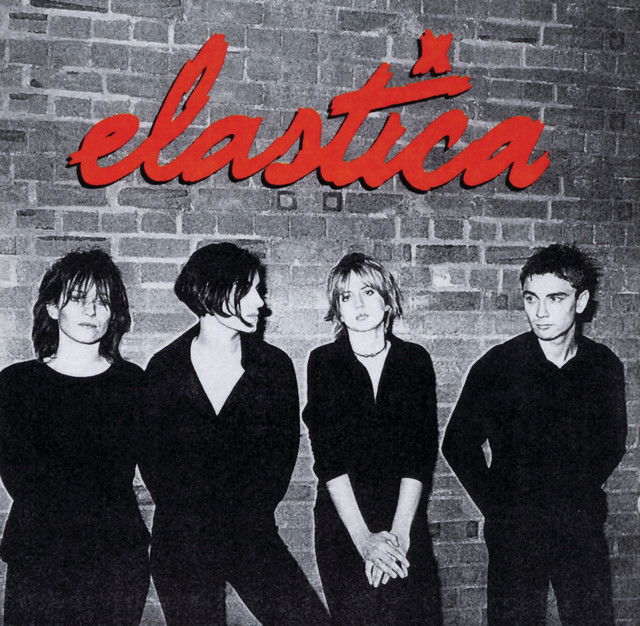
Sleeper, fronted by the sharp and witty Louise Werner, also carved out their own distinct space. Their debut album 'Smart', released in 1995, featured the standout hit 'Inbetweener', a song that captured the everyday suburban malaise of 1990s Britain with a brilliant hook and infectious chorus. Werner’s songwriting mixed wry observation with catchy pop sensibility. The band followed up with strong albums like 'The It Girl' (1996), featuring hits such as 'Sale of the Century' and 'Statuesque', and 'Pleased to Meet You' (1997), which included 'She's a Good Girl' and 'Romeo Me'.
Both Elastica and Sleeper represented a crucial counterbalance in a Britpop landscape often dominated by the laddish bravado of bands like Oasis and Blur. They brought sharp intelligence, style, and a feminist edge to the scene, proving that Britpop wasn’t just about blokeish swagger; it had room for sharp-tongued, coolly confident women, too.
One band that wanted to distance themselves from Britpop, however, were Oxford rockers Radiohead. In 1995, they released their second album, 'The Bends', following the breakout success of their 1993 single 'Creep'. This album proved the band were no one-hit wonders, delivering two of their most beloved songs, 'High & Dry' and 'Fake Plastic Trees'. With its sweeping melodies, melancholic introspection, and atmospheric guitar work, 'The Bends' marked a significant shift in tone from the swagger and irony of Britpop.
While much of the Britpop movement celebrated Britishness with a knowing smirk, drawing from glam, mod, and punk to soundtrack a lad-heavy culture revival. Radiohead seemed entirely uninterested in nostalgia. 'The Bends' dealt with anxiety, identity, technology, and alienation, themes that were far more universal and emotionally raw. Tracks like 'Just', with its snarling guitars and cryptic spite, and the haunting closer 'Street Spirit (Fade Out)' signalled a band reaching for something more profound than chart-topping hooks. Even the anthemic title track was undercut by unease and disconnection.
Critically acclaimed, 'The Bends' was a slow-burning success that grew in stature with each passing year. It set Radiohead apart not just musically, but philosophically; they weren’t part of the Britpop party; they were standing outside, quietly dismantling it. This is not the last you’ll hear of Radiohead in this post, either…
During the Britpop explosion of the ’90s, British bands from all corners of the UK were contributing their own distinct sounds, each adding a unique flavour to the vibrant music scene. While London and Manchester often grabbed the headlines, other cities were producing bands that would leave a lasting impact on the era.
Shed Seven, hailing from York, brought their energetic, guitar-driven indie rock to the forefront. With their raw, earnest sound, they quickly became one of the key players in the Britpop scene. Their hit 'Chasing Rainbows' encapsulated the spirit of the time. This anthemic, jangly rock track balanced catchy hooks with introspective lyrics. Other notable tracks like 'Going for Gold' and 'On Standby' showcased the band’s knack for soaring choruses and tight, melodic guitar work. Known for their high-energy live shows and an almost cult-like following, Shed Seven stood out for their sincerity and skilful attitude in a scene often dominated by irony and swagger. They may not have always been media darlings. Still, their music connected deeply with fans across the UK, helping to define the emotional core of mid-’90s indie rock.
Cast, formed by John Power of The La’s fame, brought a melodic, anthemic style to the Liverpool scene that set them apart from many of their Britpop peers. Power, having played bass in The La’s during their brief but influential run, brought a strong sense of pop craft and guitar-driven energy to his new project. Cast’s sound was instantly recognisable. Bright, chiming guitars, buoyant rhythms, and lyrics that straddled the line between optimism and introspection.
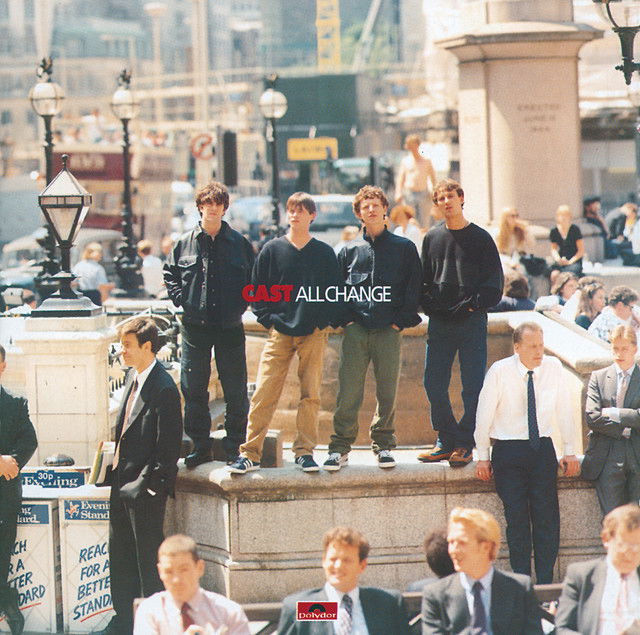
Their debut album, 'All Change', released in 1995, was a breath of fresh air brimming with wide-eyed energy and a feel-good spirit that connected immediately with listeners. Tracks like 'Alright', 'Finetime', and 'Walkaway' became Britpop staples, combining infectious choruses with an emotional sincerity that struck a chord with the youth of the time. The album became the fastest-selling debut in Polydor’s history. This remarkable achievement underscored just how deeply Cast’s music resonated with the mid-'90s audience.
While Cast’s music was undeniably rooted in traditional rock and 1960s pop influences, echoing the jangly guitars of The Byrds and the melodic instincts of The Beatles, it never felt like simple nostalgia. Their songs were filled with a sense of momentum and forward motion, reflecting the hope and contradictions of a generation growing up under the cultural shadow of Britpop. John Power’s songwriting was the heart of the band: reflective yet accessible, often poetic, and always delivered with sincerity and conviction.
Their 1997 follow-up album, 'Mother Nature Calls', continued their chart success and creative momentum. Singles like 'Guiding Star', 'Free Me', and 'Live the Dream' showed a band growing more confident and expansive in sound, incorporating richer instrumentation and a slightly more mature tone. The album built on their reputation for crafting rousing, emotionally grounded anthems, further cementing their place in the Britpop canon. Though they may not have had the tabloid presence of some of their contemporaries, Cast’s music left a lasting impression.
From Birmingham, Ocean Colour Scene became synonymous with the Britpop movement's more laid-back, soulful side. Their sound was heavily influenced by 1960s rock, Motown soul, and mod culture, and they built a devoted fanbase with their hook-heavy melodies, sharp musicianship, and reflective, poetic lyrics. Their breakthrough came with the swaggering debut single 'The Riverboat Song', which quickly became a standout hit, helped in no small part by its prominent use on TFI Friday, a show at the heart of Britpop-era culture. With its bluesy riff and driving rhythm, the track introduced audiences to a band that felt timeless yet modern.
Their 1996 album 'Moseley Shoals' became a defining release of the era, filled with enduring tracks like 'The Day We Caught the Train', 'You've Got It Bad', and 'The Circle'. It showcased their versatility from anthemic sing-alongs to introspective ballads. It solidified their place as one of the genre’s most consistent acts. The album struck a perfect balance between retro influences and contemporary flair, drawing from the soulful grooves of the '60s while tapping into the introspection and emotional honesty that defined so much of '90s alternative rock.
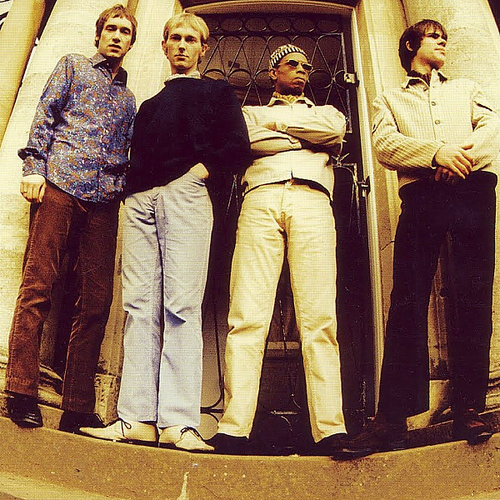
'Moseley Shoals' wasn’t just a commercial success; it became a cultural touchstone. Its warm, analogue production and heartfelt lyrics stood in contrast to the flashier, irony-soaked singles dominating the charts at the time. Steve Cradock’s shimmering guitar work and Simon Fowler’s expressive vocals gave the band a signature sound that felt both classic and immediate. The album went on to achieve multi-platinum status in the UK and remains a beloved record for fans of the era.
The band’s follow-up album, 'Marchin’ Already', even knocked Oasis’s 'Be Here Now' off the top of the UK Albums Chart in 1997, a remarkable feat at the height of Britpop mania, and a testament to Ocean Colour Scene’s commercial strength and enduring appeal. While many bands struggled to maintain momentum after initial success, Ocean Colour Scene proved they were no mere footnote to the movement. 'Marchin’ Already' featured standout tracks like 'Hundred Mile High City', which paired gritty guitar riffs with raw energy and became a fan favourite, partly due to its inclusion on the Lock, Stock and Two Smoking Barrels soundtrack.
Other singles like 'Better Day' and 'Travellers Tune' revealed a band continuing to evolve without abandoning their core sound, blending soul, rock, and a distinctly British storytelling style. The album refined and expanded on the sound they had crafted with 'Moseley Shoals', adding more layers of grit and confidence while maintaining the emotional core that made their songs resonate.
Toppling a juggernaut like Oasis at their commercial peak was no small achievement. It showed that Ocean Colour Scene had built a loyal following and carved out their own space in the Britpop landscape, one that valued musicianship, authenticity, and emotional depth over tabloid drama. 'Marchin’ Already' didn’t just sustain their success; it elevated their status as one of the scene’s most quietly influential acts.
Ocean Colour Scene were often seen as the thinking fan’s Britpop band, more organic, grounded, and rooted in a deeper musical tradition than some of their flashier contemporaries. Their mix of folk-rock textures, soulful vocals, and mod aesthetics gave them a distinct identity, and their music resonated with audiences looking for something both nostalgic and sincere. Though they may not have courted the same level of tabloid attention as some of their peers, their influence and staying power in British rock cannot be overstated.
Ocean Colour Scene had two main champions in the 1990s, Oasis, as we've already mentioned and Paul Weller.
After the dissolution of The Style Council, Paul Weller re-emerged in the early 90s by stripping away the polished soul-pop of the previous decade and returning to his soulful, guitar-driven roots. His self-titled debut, 'Paul Weller', served as a vital bridge, blending classic British rock with a "Mod-soul" sensibility. The lead single, 'Into Tomorrow', was a definitive statement of intent, signalling his return with a gritty, psychedelic edge that proved he was far from a spent force. This period saw Weller reclaiming his title as "The Modfather," finding inspiration in the organic sounds of the late 60s and early 70s while maintaining a contemporary, urgent energy.
Released in 1993, 'Wild Wood' was the moment Paul Weller found his "rural soul." While his debut was a tentative step away from the fallout of The Style Council, 'Wild Wood' felt like a man walking into the forest to find himself. It is often described as "pastoral" because of its organic, earthy production—aided significantly by Brendan Lynch. You can hear the heavy influence of Traffic and Nick Drake in the title track 'Wild Wood', which uses sun-drenched acoustic guitars to mask a certain urban weariness.
The album isn't all quiet contemplation, though. Tracks like 'Hung Up' and 'Sunflower' introduced a heavy, fuzzy guitar tone that became his solo trademark, while '5th Season' delved into jazz-rock territories. The inclusion of Steve Cradock (Ocean Colour Scene) on guitar and Steve White on drums gave the record a locked-in, muscular feel that proved Weller was back.
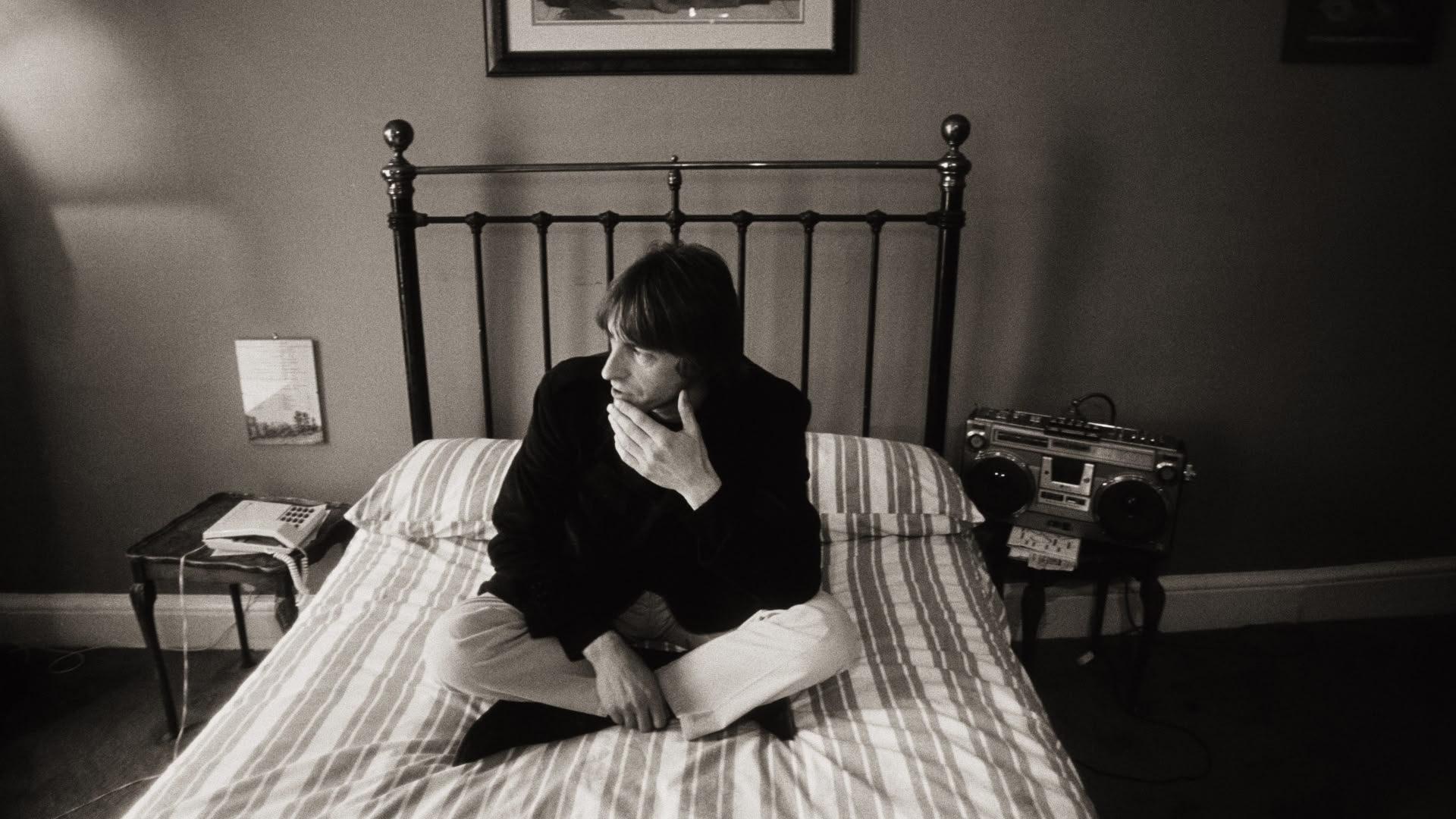
If 'Wild Wood' was the retreat to the country, 'Stanley Road' (1995) was the triumphant return to the streets. Named after the road he grew up on in Woking, the album is a masterpiece of autobiographical soul-rock. It feels more "expensive" and expansive than its predecessor, largely due to the confidence Weller had regained. 'The Changing Man' didn't just borrow a riff from ELO; it redefined Weller as a restless artist who refused to stay stagnant.
The album is famous for its high-profile collaborations that signalled his status as the "Modfather" of the Britpop generation. Noel Gallagher provided acoustic guitar on the swampy, voodoo-inflected cover of Dr John’s 'I Walk on Gilded Splinters', while the legendary Steve Winwood lent his distinctive piano and Hammond organ to 'Woodcutter’s Son' and 'Pink on White Walls'. Perhaps the album's most enduring legacy is its emotional range, moving from the heavy, brooding menace of 'Porcelain Gods' to the tender, timeless soul of 'You Do Something to Me' and 'Broken Stones'. It remains the definitive statement of his solo career
Even the psychedelic rockers The Verve, after struggling in the early '90s, found their footing with 'A Northern Soul'. With Key tracks like 'This Is Music', 'On Your Own', and 'A Northern Soul', the band itself exemplifies this shift. 'This Is Music' served as a statement of intent with its soaring guitars, hypnotic rhythms, and layered vocals from Richard Ashcroft. The song's powerful dynamics and sprawling structure hinted at the band's increasing ambition and scope. 'On Your Own' echoed a sense of isolation, with melancholic lyrics wrapped in a heavy, cascading sound, showcasing their growth as a band capable of capturing the essence of human vulnerability. The title track, 'A Northern Soul', was a prime example of Ashcroft's emotionally charged lyricism, full of yearning and introspection. At the same time, the instrumental work, especially the sweeping strings, added a layer of grandeur that set the album apart.

This influx of talent from all corners of the UK demonstrated the widespread influence of Britpop and the rich diversity of the British music scene in the 1990s, with every region contributing to the cultural fabric of the era.
1996 was the year Britpop hit its peak, and dance music made a return. British culture was at the forefront. The Spice Girls introduced us to 'Girl Power', Danny Boyle gave us the film of the decade, 'Trainspotting', and Oasis headlined at Knebworth.
What Oasis achieved in the two years between the release of 'Definitely Maybe' and their iconic Knebworth shows is nothing short of astonishing. In the span of just two albums, the band crafted some of the most enduring and celebrated songs in the history of British rock. Tracks like 'Live Forever', 'Slide Away', 'Rock 'n' Roll Star', 'Champagne Supernova', 'Some Might Say' and 'Don't Look Back in Anger' not only defined an era, but also solidified Oasis as one of the most important bands of the 1990s.
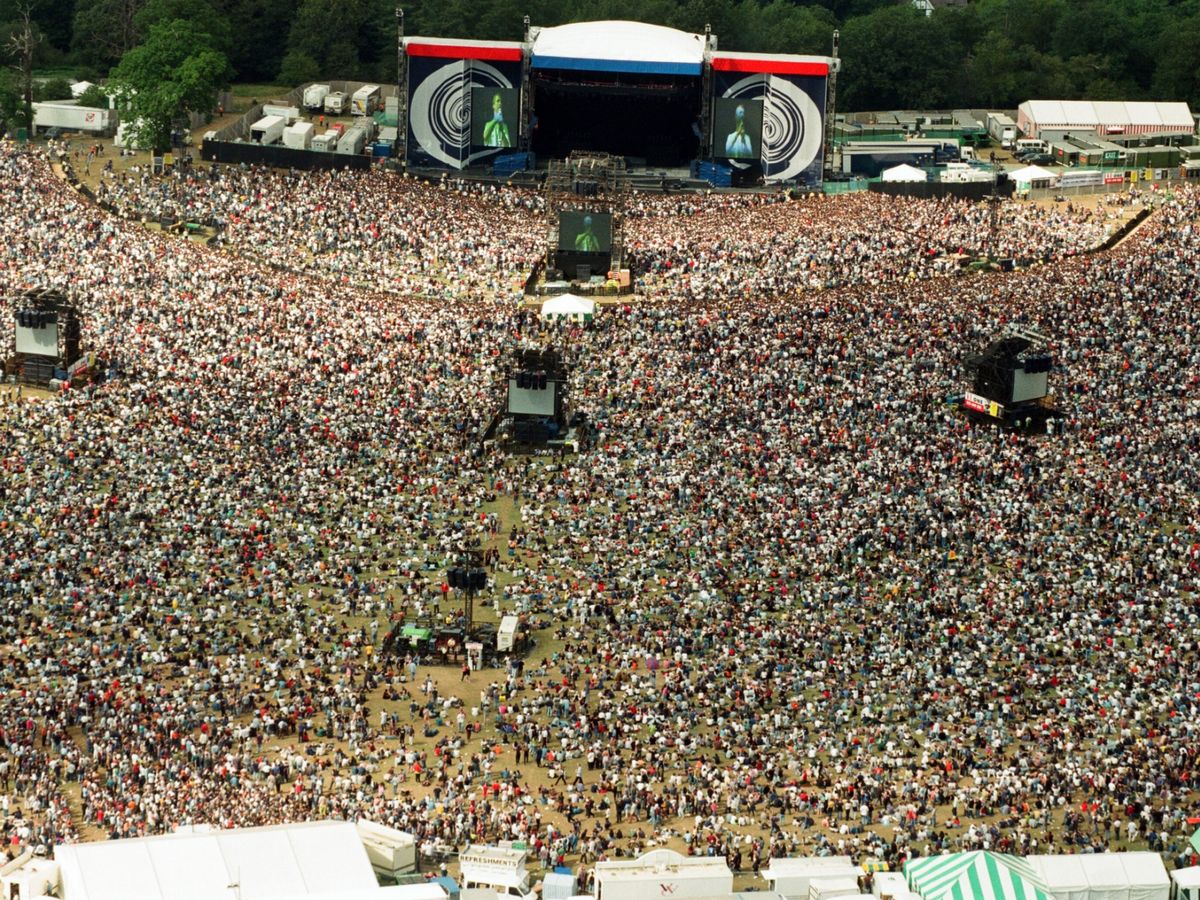
Oasis had an unparalleled ability to create b-sides that could have easily been hits in their own right. Songs like 'Talk Tonight', 'Half the World Away', 'Listen Up', 'Acquiesce', and 'Going Nowhere' were tucked away as bonus tracks on singles. Yet, many of these tracks are now considered among the band's best work. These b-sides were often as well-crafted and impactful as the main album tracks, showing that Oasis didn’t just rely on their singles to define their legacy. They were producing a full-bodied catalogue of unforgettable music.
Their Knebworth gigs in 1996, attended by over 250,000 people, were the culmination of this explosive period. By that point, Oasis had become more than just a band; they had ascended to cultural icons. The sheer volume of remarkable music they had released in such a short time was unprecedented, and Knebworth solidified their place in rock history as one of the most important British bands of all time. The momentum they gained in those two years is unparalleled and speaks to the unrelenting creativity and drive that defined Oasis at their peak. It also helped show the world just how good British music was. Oasis were accompanied by a collection of huge bands at Knebworth. The Prodigy, Manic Street Preachers, Ocean Colour Scene, The Chemical Brothers, The Bootleg Beatles, The Charlatans, Kula Shaker, Cast, and Dreadzone all shared the stage with the band across the weekend.
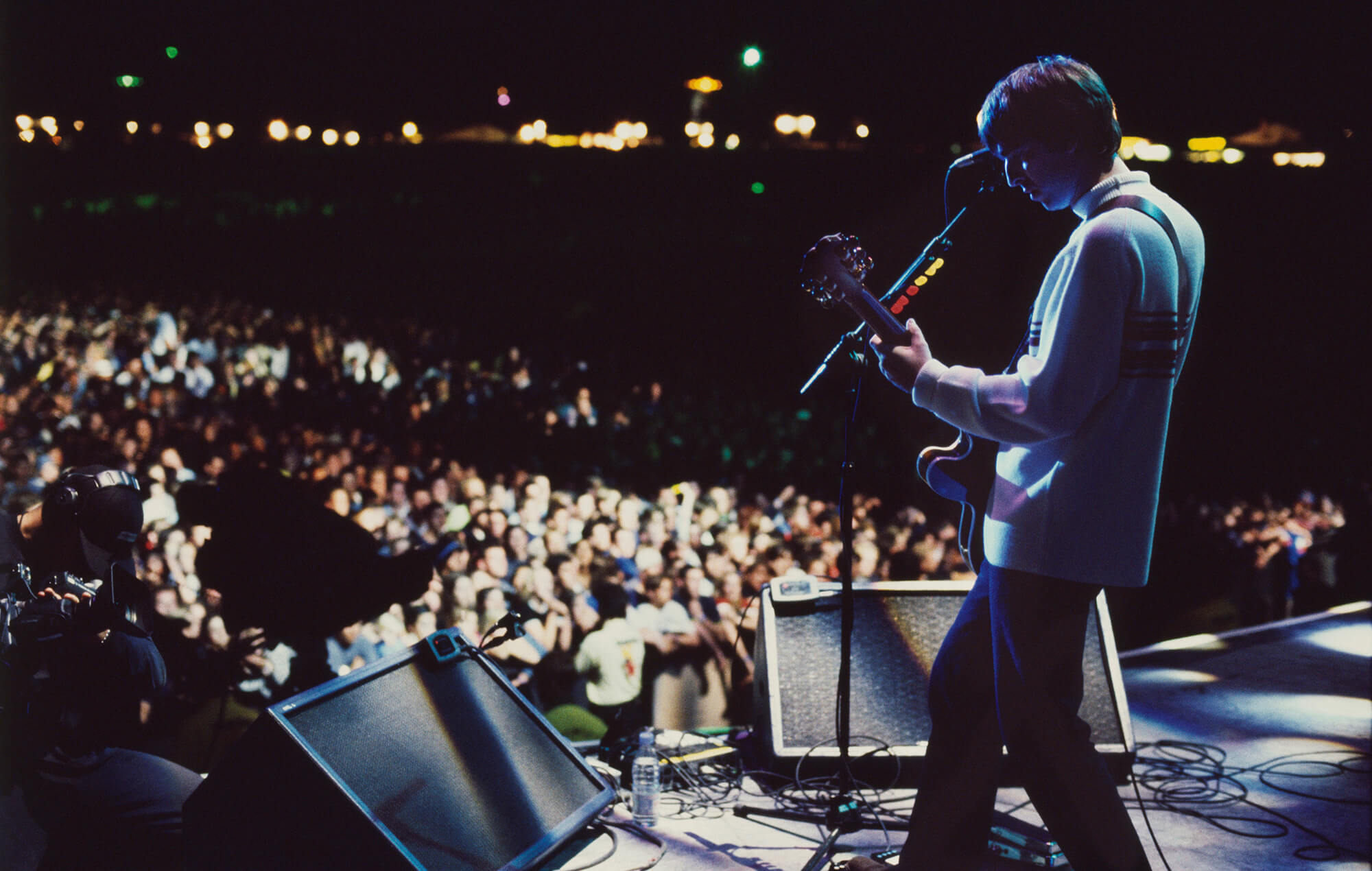
Noel Gallagher has described the event in recent years as "the last great gathering before the birth of the internet."
It was the definitive moment of 90s guitar music in Britain.
The Chemical Brothers helped bring dance music to the masses with hits like 'Setting Sun' and 'Block Rockin’ Beats'. Big Beat culture was born, and soon The Prodigy, Massive Attack, and Underworld would capitalise on it. Dance music was no longer confined to subcultures; it was about to go mainstream. It was an exhilarating time for British music.
Meanwhile, 'A Design for Life' by the Manic Street Preachers soared to the Number One spot on the UK charts, marking a monumental achievement for the band in the wake of the mysterious disappearance of their guitarist and lyricist, Richey Edwards. The song’s success was not only a testament to the band's resilience but also a reflection of their powerful, politically charged vision. A working-class anthem wrapped in strings and steel. At the time, even the band itself believed such a feat was impossible without Richey, whose absence had left a gaping creative and emotional void.
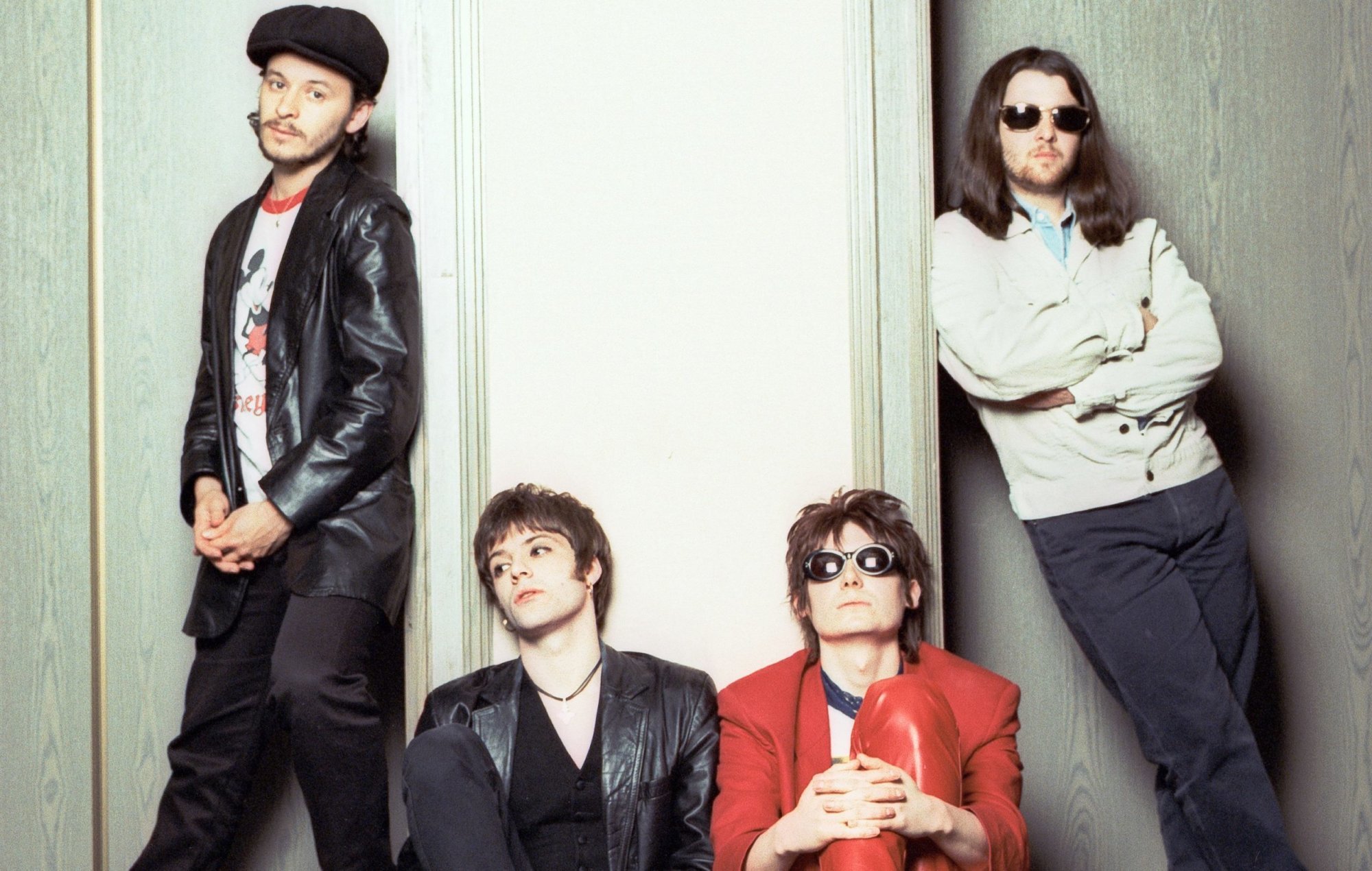
Richey Edwards vanished on February 1, 1995, just before the band was due to fly to the United States for a promotional tour. His car was later found abandoned near the Severn Bridge, a location tragically known for suicides. Though declared legally dead in 2008, no conclusive evidence ever emerged regarding his fate. His disappearance cast a long shadow over the band and their fans, a haunting absence that continues to echo through their music and mythology.
Before the chart success and radio anthems, the Manic Street Preachers had emerged from the South Wales valleys like a Molotov cocktail lobbed at the British music scene. Their early sound was a confrontational fusion of glam, punk, and hard rock, equal parts Guns N' Roses, The Clash, and Public Enemy, with a manifesto to match. They wore eyeliner and feather boas, scrawled political slogans on their clothes, and spoke in quotes from Camus and Marx. From the very beginning, they were a band with ideas, dangerous ones.
Their debut album, 'Generation Terrorists' (1992), was a sprawling, chaotic, and fiercely intelligent record that combined razor-sharp riffs with essays-in-waiting. Songs like 'Nat West-Barclays-Midlands-Lloyds' and 'You Love Us' blended nihilism with a yearning for meaning, delivered with ferocious energy and intellectual firepower. They famously claimed they would sell 16 million copies, an impossible boast that captured their ambition and self-awareness.
That uncompromising spirit deepened with 'Gold Against the Soul' (1993). It reached its bleakest and most brilliant expression on 'The Holy Bible' (1994). Primarily written by Richey, the album was a harrowing look at war, body image, capitalism, and self-destruction. His lyrics, dense, fragmented, and often painfully personal, were matched by the album's stark, minimalist production and unflinching tone. It was as much a psychological document as a rock record.
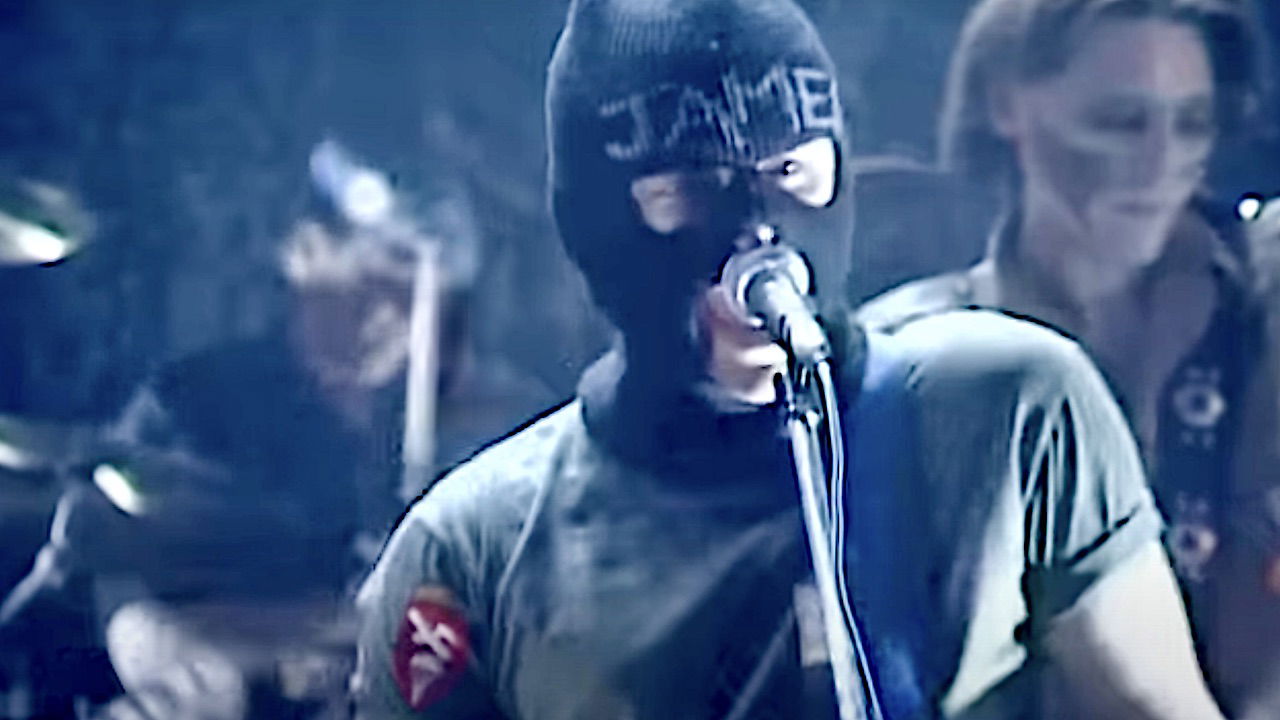
One of the most memorable performances from this era came in 1994 on Top of the Pops, where the band performed 'Faster' dressed in balaclavas and military gear. The BBC received a flurry of complaints, but for the Manics, the provocation was deliberate, a reaction against the sanitised, soulless mainstream. It was a band on the brink, both creatively and emotionally.
In this context, 'A Design for Life' felt like a resurrection. Released in 1996 as the lead single from their comeback album 'Everything Must Go', it signalled a new era, less confrontational, perhaps, but no less passionate or principled. The barbed edges were softened, but the core remained intact. And with it, the Manic Street Preachers proved they could survive the unthinkable and still speak for those who felt unheard.
The band would go on to have two further number one singles: the shimmering, melancholic 'If You Tolerate This Your Children Will Be Next' in 1998, and the poppier 'The Masses Against the Classes' in 2000, the latter famously deleted from sale the day after release, yet it still topped the charts. For a band that had been so anti-establishment, it's incredible that they would top the charts three times.
1996 was a truly fantastic year. British music was riding high. The rest of the world didn’t really get a look in, especially in the UK. Not in terms of guitar music, anyway. America would rule the hip-hop airwaves, however.
Britain was undergoing a massive change in the 90s. Music, politics, art, film, science, everything was evolving. Knebworth, Girl Power, New Labour, Dolly the Sheep, and the emergence of the internet. Even football came home, with a football song hitting the top of the charts three times in the 90s. New Order's 'World in Motion' in 1990, 'Three Lions' in 1996, and 'Three Lions '98' in 1998. Music and football transcended; they helped bring English football out of the dark ages of hooliganism and into the modern world. The Premier League was born, and football would never be the same.
Popularised by the Spice Girls, 'Girl Power' symbolised female empowerment, independence, and solidarity, resonating with young women across the country. Comprised of five distinct personalities. Sporty, Scary, Baby, Ginger, and Posh. The group broke the mould of traditional girl bands by celebrating individuality and diversity. Their debut single, 'Wannabe', released in 1996, became an instant global sensation, topping charts in 37 countries and establishing the Spice Girls as international icons.
Their debut album, 'Spice', was a global phenomenon, selling over 23 million copies worldwide and becoming the best-selling album by a girl group in history. It topped charts in more than 17 countries, including the UK and the US, and spawned an unbroken string of hits, including 'Wannabe', ' Say You’ll Be There', '2 Become 1' and 'Who Do You Think You Are'. In the UK, all four singles from Spice went to Number One, a record-breaking feat for a debut album.
Their follow-up album, Spiceworld (1997), continued their dominance. The album debuted at Number One in the UK. It reached the Top 3 in the US, eventually selling over 14 million copies globally. Its lead single, 'Spice Up Your Life', became an instant anthem, while 'Too Much' and 'Stop' further cemented their chart success. Notably, 'Stop' was the only Spice Girls single to narrowly miss the Number One spot in the UK, peaking at Number Two.
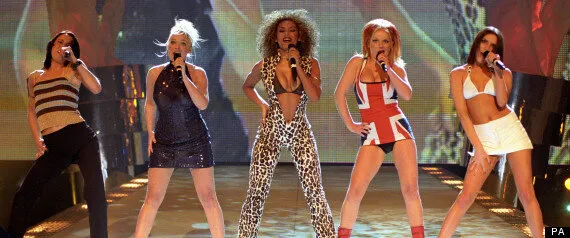
Girl Power was more than just a catchy slogan. It was a rallying cry for gender equality and self-expression, and it played a key role in reshaping societal norms. The Spice Girls embodied this new wave of feminism, with their bold personalities, diverse identities, and unapologetic confidence.
It was a time of possibility. Everything seemed achievable, and it wasn’t an elitist club. Everyone was invited to this party, no matter class, colour, or creed. It was a time of hope and optimism, where everyone was represented.
It was a time of significant change. The young were being listened to. Celebrity culture was born; the tabloids were about to take over. Musicians, supermodels, and sports stars would grace the front pages as much as the back. The Channel Tunnel connected us to Europe, and Britain was ready to take on the world again, this time with guitars, paintbrushes, and footballs. Not rifles and bayonets.
But it would have to come to an end...
Death of the Party- The 90s Part 3
"The death of the party came as no surprise". Blur would utter those famous words in 1997, and they were right in more ways than one. Britpop was over. It had peaked the year before with Oasis at Knebworth, the movement had reached the top of the mountain, and now anyone with an acoustic guitar and a bucket hat was treated as the second coming of Christ.
With their self-titled fifth album, Blur would distance themselves from Britpop in dramatic fashion, influenced more by American music. The shift was in part due to a letter from the band’s guitarist that uttered these famous words: "I wanted to scare people again..." It saw the band move away from the British social commentary that had defined their previous three albums, leading them to write songs like 'Beetlebum', the band’s second number-one single, and 'Song 2', which carried a grunge-like sound. This marked the beginning of the end for Britpop and perhaps Blur’s most important album.
Blur would release one more album before the decade was out. '13' was released in 1999 and saw them build on what they had learned from their self-titled album, but with a much more personal approach. 'Coffee & TV' saw Graham sing about his struggle with alcohol addiction, while 'Tender' and 'No Distance Left to Run' are two of the band’s finest songs. Damon Albarn looked inward, coming to terms with the end of both his relationship with Justine Frischmann and the close of the decade itself.
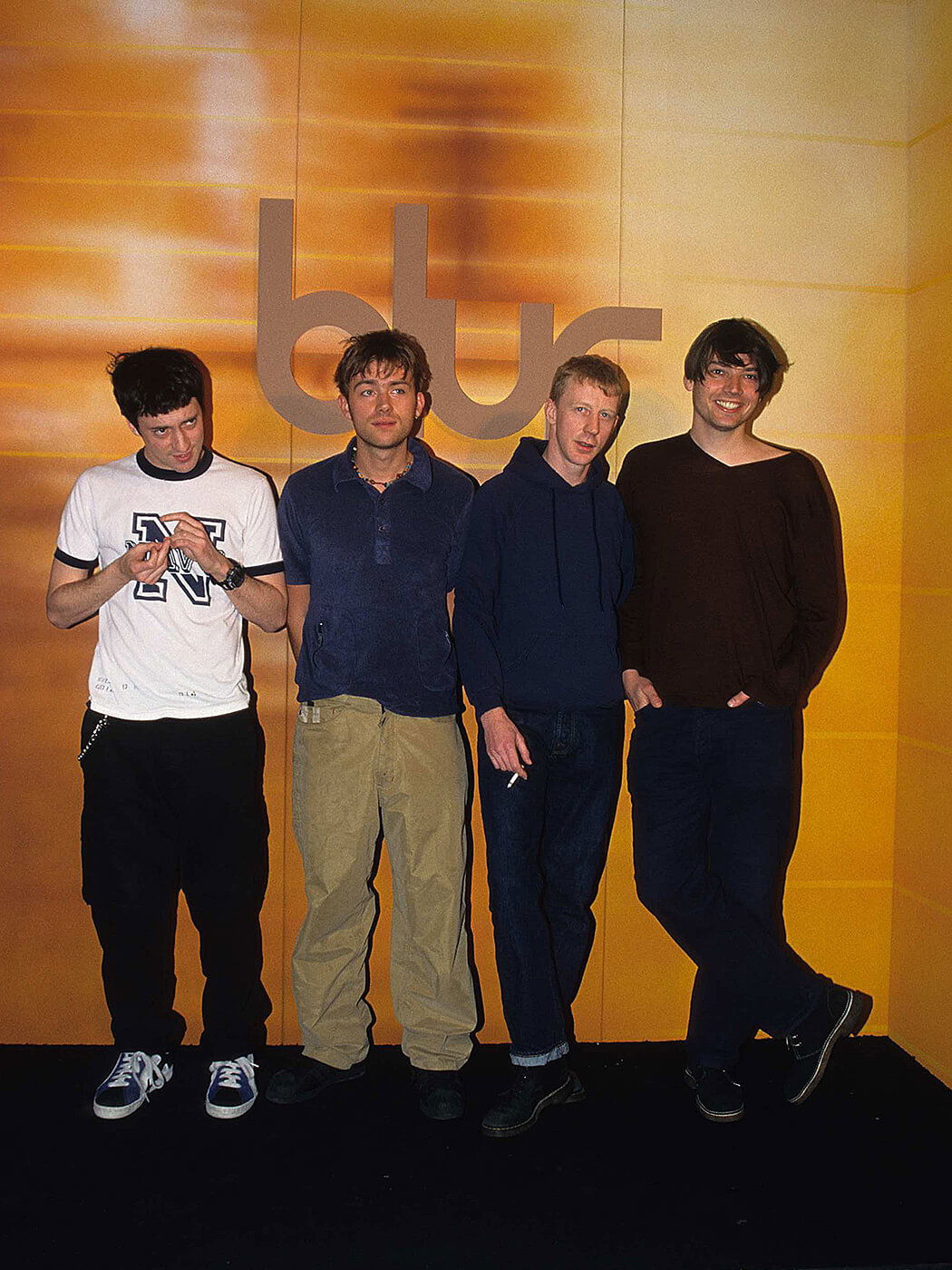
Oasis would also release an album in 1997, and they should have listened to Blur and left the party. Still riding high from the success of Knebworth and their third number-one single, 'D'You Know What I Mean?', they released 'Be Here Now'. It was supposed to be the record that made them bigger than The Beatles, the one that solidified them as the biggest band in the world. It wasn't.
While the album has some good songs, it is overproduced, overindulgent, and far too long. Tracks like 'My Big Mouth', 'Magic Pie', and 'I Hope, I Think, I Know' show flashes of brilliance but are buried under layers of bloated production and endless guitar overdubs. 'All Around the World' clocks in at nearly ten minutes, complete with multiple key changes and a full-blown orchestral outro. Even 'Stand By Me', a fan favourite, feels weighed down by its excess. It was the sound of a band that, let’s face it, didn’t really care. They were the biggest band in the world, and they acted like it. 'Be Here Now' feels like the sound of five people on cocaine. Sorry, Oasis fans, but it’s true.
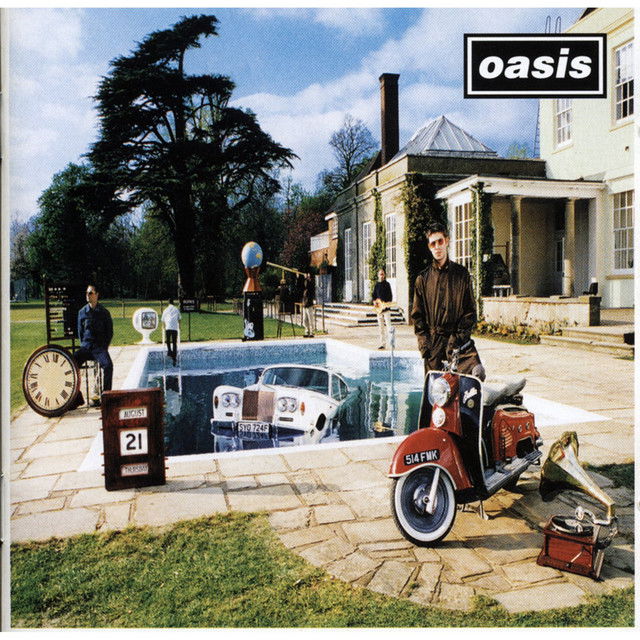
At the time, the album was met with near-universal critical acclaim. Reviewers hailed it as a masterpiece before the dust had even settled. Q magazine gave it five stars, and the NME declared it "a brave and beautiful album." But time hasn’t been kind. Even Noel Gallagher now famously hates it, calling it "the sound of five men in the studio, on coke, not giving a fuck” and admitting they should have released the B-sides instead.
Oasis now considers the album a flop, but it became the fastest-selling British album ever upon release, eventually selling over eight million copies. An eight-million-selling flop. If anything, 'Be Here Now' stands as a fascinating snapshot of peak Britpop excess when ego, hype, and success collided in a way that only Oasis could deliver.
One band that didn’t get it wrong in 1997 was The Verve. After years of near-misses, internal turmoil, and disputes with their label and among themselves, they managed to reunite and create one of the best records of the decade, 'Urban Hymns', released in September of '97. It wasn’t just a comeback; it was a reinvention. The album showed the world that The Verve were not just a Northern indie band; they were a force to be reckoned with, and Richard Ashcroft was one of his generation's finest songwriters/
Just look at the tracklist and what’s on it: 'Bitter Sweet Symphony', 'The Drugs Don't Work', 'Lucky Man', and 'Sonnet' were the singles. That run of singles rivals any other band of the '90s, not just in quality, but in emotional weight and cultural impact. 'Bitter Sweet Symphony' with its iconic string sample and existential lyrics became an anthem of the era, while 'The Drugs Don't Work' reached number one and remains one of the most devastatingly beautiful songs about grief and addiction ever written. 'Lucky Man' captured a quieter, contented sense of euphoria, and 'Sonnet' wrapped all of Ashcroft’s lyrical romanticism into a swelling, timeless ballad.
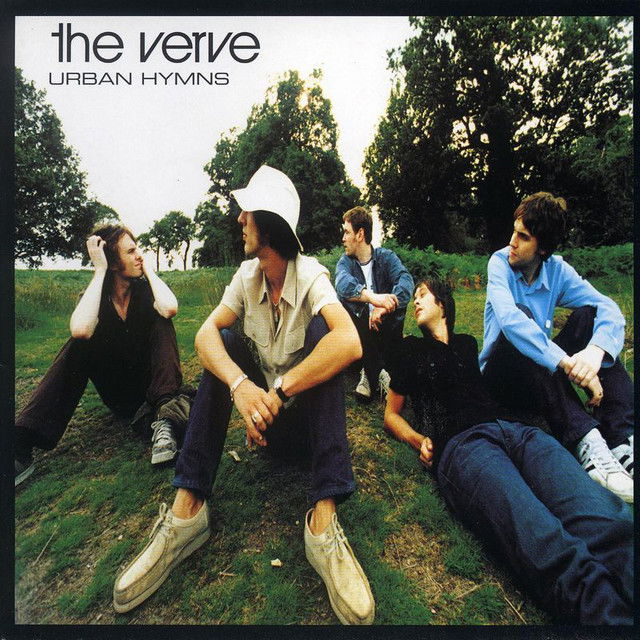
Beyond the hits, the album had incredible depth. Tracks like 'Weeping Willow', 'Velvet Morning', and 'Catching the Butterfly' revealed a band that could seamlessly blend psychedelic textures with Britpop sensibilities. 'Urban Hymns' wasn’t just a collection of songs; it felt like a statement, a culmination of everything The Verve had been trying to say since their debut.
Sadly, the unity didn’t last. The band split again in spring 1999, plagued by the same personal tensions that had haunted them throughout their career. It’s a shame because 'Urban Hymns' gave a glimpse of a band on the cusp of their very peak.

However, before the breakup, the band would get their moment in the sun. On May 24th 1998, The Verve would take to the stage at Haigh Hall, a stately mansion and parkland in Wigan, the band's hometown. In front of a crowd of 35,000 people.
Celebrating 'Urban Hymns', the band played the whole album as well as three tracks from its predecessor 'A Northern Soul'. Although their peak was short-lived, The Verve wrote and recorded some of the most iconic songs of that decade.
Remember when I said you hadn't heard the last of Radiohead? Well, they also released an album in 1997, OK Computer. The album is often regarded by critics as one of the best albums of all time, and the band has been hailed as saviours of modern music. I disagree with both of those statements. However, I cannot deny that OK Computer is an excellent album. It featured songs like 'Karma Police', 'No Surprises', and 'Paranoid Android'. These are complex and intricate pieces of music in their own right.
Along with Blur and The Verve, Radiohead wanted to move away from the Britpop formula that had defined the previous years, and they did so with significant effect. OK Computer marked a shift towards a more experimental and atmospheric sound, incorporating electronic elements and layered textures that challenged conventional rock norms. This bold evolution not only expanded the band's artistic boundaries but also influenced countless artists who followed.
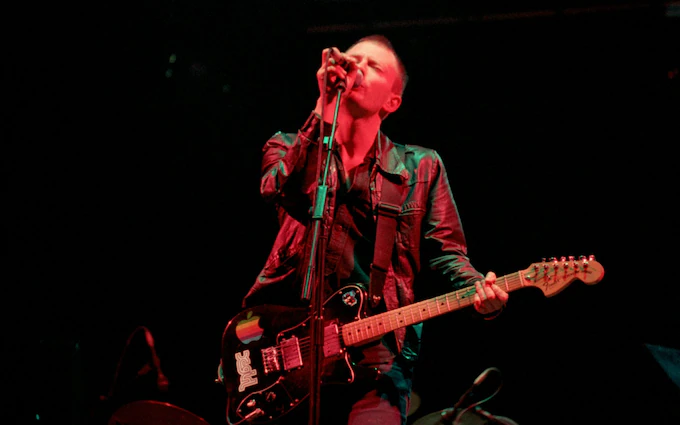
In 1997, Radiohead would also headline Glastonbury, and according to festival hosts Michael and Emily Eavis, they gave the best performance the festival had ever seen. Their set was noted for its intensity and emotional depth, captivating an audience of thousands and solidifying their reputation as one of the most innovative live acts of the era. This performance is often remembered as a defining moment in Glastonbury history, showcasing Radiohead's ability to connect with listeners on a profound level beyond the studio recordings.
Whilst in England, bands were reinventing themselves, across the border in Wales, one band was just getting started. Stereophonics released 'Word Gets Around' in August 1997, a debut album that captured the essence of small-town life with its gritty yet beautiful storytelling. The album spoke to the trials and tribulations of everyday existence, touching on themes of love, loss, and personal reflection. Featuring standout tracks like 'Local Boy in the Photograph', 'Looks Like Chaplin' and 'A Thousand Trees', it marked the beginning of a journey for the band, offering a raw and heartfelt approach to both songwriting and music. While it may not have been experimental, 'Word Gets Around' remains a brilliant collection of songs that introduced the world to Stereophonics' distinctive style: emotive rock with a strong sense of place and character.
This wouldn’t be the only album they released in the ‘90s. In 1999, 'Performance & Cocktails' saw the band take a more refined approach, experimenting with new sounds and maturing as a group. The album is widely regarded as a career-defining moment, showcasing their ability to blend rock, blues, and anthemic ballads. Tracks like 'Pick a Part That’s New', ' Just Looking', and 'The Bartender & the Thief' became fan favourites and are often considered some of the best rock songs of the decade. While Britpop may have faded into the background by this point, the post-Britpop era still had a handful of gems, and Stereophonics were undeniably one of the standout bands to emerge from this transition.
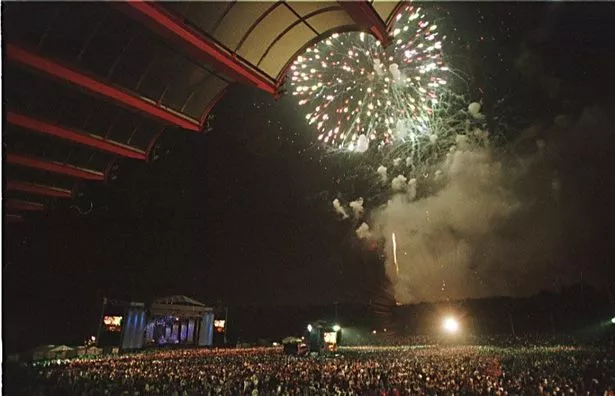
A particularly notable moment in the band's early years came with their iconic performance at Morfa Stadium in Swansea in 1999. This gig was a milestone for Stereophonics, as they performed in front of a hometown crowd, cementing their place as one of Wales’ most beloved bands. The sheer energy and passion of that night reflected the connection they had with their audience and the pride they felt as representatives of their small-town roots. The performance showcased the band’s evolution from a promising new act to a powerhouse of the UK rock scene, and it remains a defining moment in their early career.
1999 also saw two of the most underrated bands of the '90s release two of the most underrated albums of the decade. Travis released 'The Man Who', marking a significant change in sound for them and a shift in pace as the decade came to a close. It was a collection of acoustic masterpieces, with 'Why Does It Always Rain on Me?' as its centrepiece, a sombre and reflective track that captured a deep sense of melancholy and hope. The album as a whole showcased Travis’s ability to blend heartfelt lyrics with melodic simplicity, standing out amid the more bombastic Britpop and alternative rock sounds dominating the era.
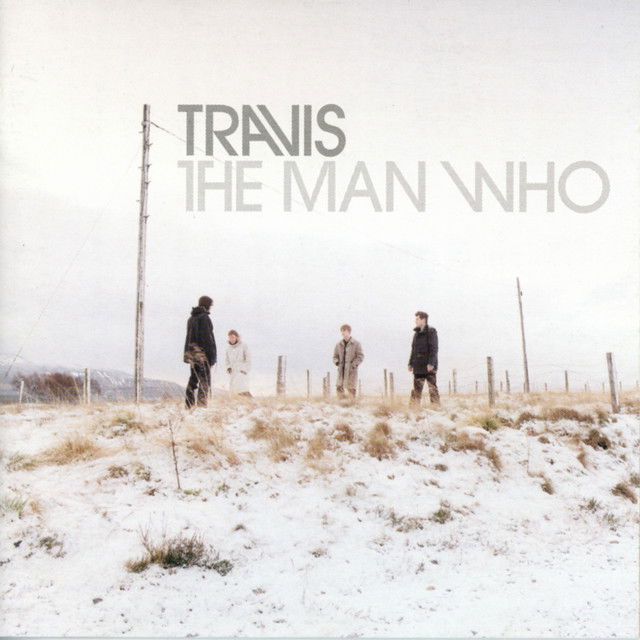
'The Man Who' didn’t just mark a turning point for Travis; it quietly influenced a wave of post-Britpop acts that embraced vulnerability and emotional honesty in their songwriting. Its understated charm and introspective mood made it a slow-burn classic, gaining more recognition over time despite flying somewhat under the mainstream radar upon release.
Shack also released 'HMS Fable', an album I often call “the greatest record no one has ever heard”, a work as tragic as it is beautiful. Released in 1999, 'HMS Fable' arrived just as the Britpop wave had crashed, not as a hangover from the party, but as a sobering, poetic reflection on the years that had passed. Where so many albums of the era glorified excess and bravado, this was the antidote: an honest portrait of drug use, stripped of glamour and filled instead with heartbreak, resilience, and soul.
Michael Head’s songwriting on 'HMS Fable' is rich, layered, and deeply personal. Tracks like 'Comedy', 'Natalie's Party', and 'Lend Some Dough' shimmer with a melancholy beauty and lyrical honesty. The production is lush but never overbearing, giving space for the melodies and Head’s storytelling to breathe. 'Pull Together' rises as a soaring anthem of redemption and friendship. At the same time, 'Beautiful' lives up to its name, a delicate, aching masterpiece.
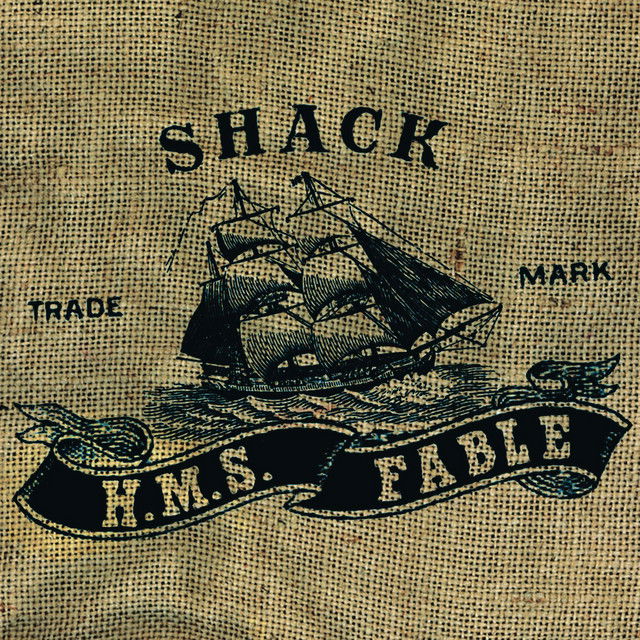
The tragedy of 'HMS Fable' lies in its obscurity. Despite its brilliance, it never reached the audience it deserved. Shack had long been a band haunted by misfortune, label collapses, addiction, and bad timing. But here, they delivered something timeless.
Of course, 'HMS Fable' wasn’t Shack’s first excellent record. Before it came 'Waterpistol', a lost classic recorded in 1991 but not released until 1995 due to a series of almost farcical setbacks. Shortly after the album’s completion, the studio burned down, taking most of the master tapes with it. By sheer luck, a DAT copy survived, saved by producer Chris Allison, who had taken it on holiday. But by the time it resurfaced, Shack’s label had folded, and the band had already split.
When it finally appeared in 1995, 'Waterpistol' slipped into cult status, unsupported by any real promotion. And yet, it’s the sound of a band on the cusp of something remarkable, jangly, melodic guitar pop drenched in Scouse melancholy and hard-earned wisdom. Michael Head’s songwriting is poetic yet grounded, sincere and full of depth. Tracks like 'Mood of the Morning', 'Undecided', and the brilliant opener 'Sgt. Major' carry an emotional rawness, softened by shimmering arrangements. Songs like 'Mr. Appointment' and 'I Know You Well' reveal the band’s ability to weave hope and heartbreak into the same breath.
Rooted in pain and loss, 'HMS Fable' nonetheless overflows with hope, beauty, and humanity. It stands quietly in the shadows of more celebrated Britpop albums. Still, for those who discover it, it becomes something cherished, something sacred. It felt like the perfect curtain call for a chaotic decade. The credits roll. It’s over.
However, this section isn’t quite finished yet. I know it’s called Death of a Party, but in this part of the decade, dance music was gearing up to hit the mass market in a way that few had anticipated. The Prodigy had already begun laying the groundwork in the early ’90s with their debut album, ‘Experience’ (1992), which captured the raw energy of the rave scene with tracks like 'Out of Space' and 'Charly'. This album was pivotal in bringing the underground breakbeat and rave culture to a broader audience, blending pulsating beats with punk attitude.
Their follow-up, ‘Music for the Jilted Generation’ (1994), elevated them even further, showcasing a darker, more aggressive sound that combined hardcore techno, breakbeat, and punk influences. Tracks like 'Voodoo People' and 'No Good (Start the Dance)' became anthems not only in clubs but on alternative radio stations as well. This album was a critical and commercial success that helped establish The Prodigy as pioneers of the big beat genre, setting them apart from many contemporaries in the electronic scene.
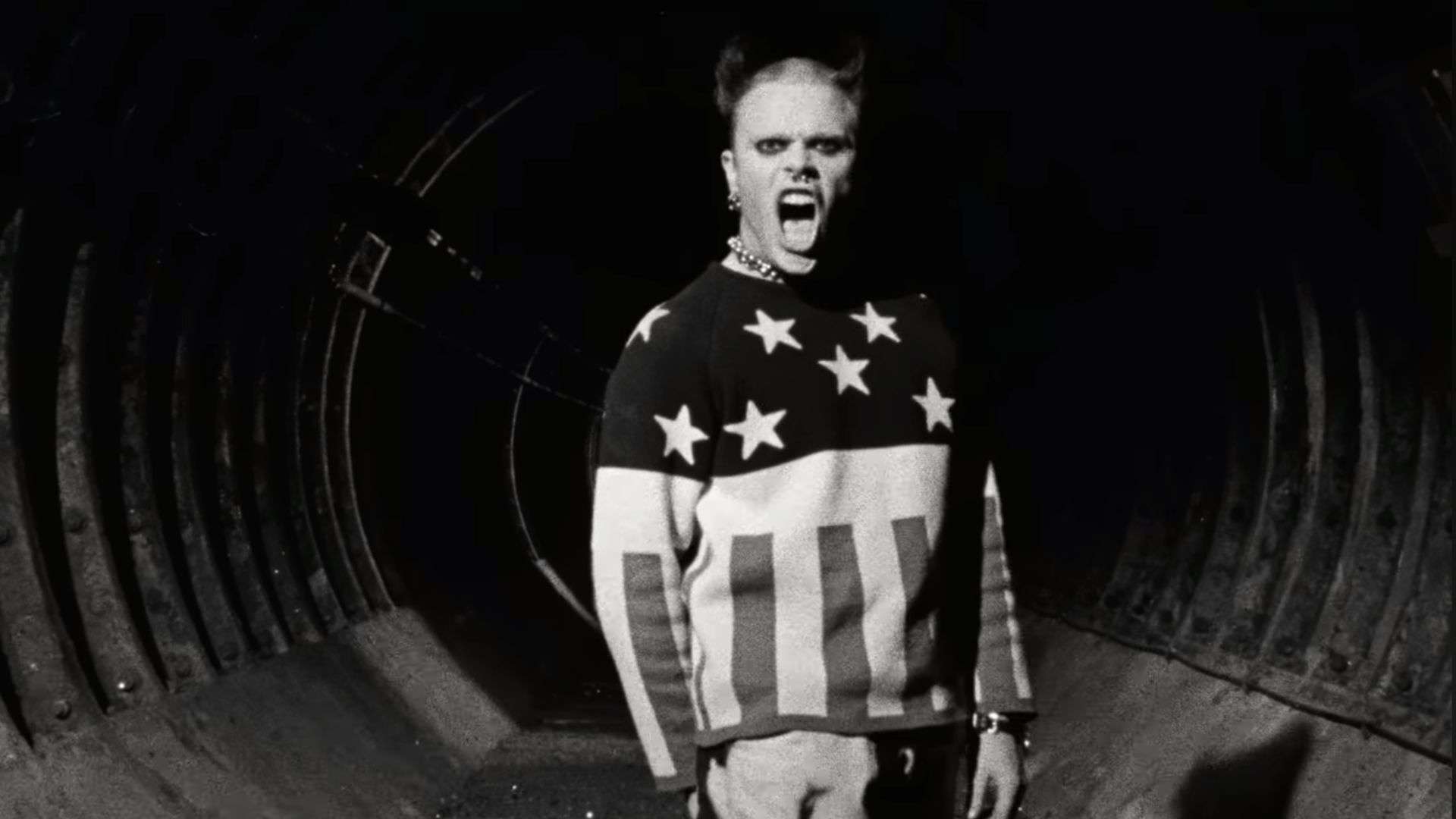
Then in 1997, The Prodigy released ‘The Fat of the Land’, complete with iconic singles like 'Breathe' and 'Firestarter'. This album marked a new dawn for dance music. No longer confined to warehouse raves and dark nightclubs, its new home was at the very top of the charts. With its high-octane energy and rebellious attitude, ‘The Fat of the Land’ pushed electronic music into mainstream consciousness with an aggressive edge that set them apart, influencing a generation and dominating festivals worldwide.
That same year, The Chemical Brothers dropped ‘Dig Your Own Hole’, an album that merged modern dance beats with 1960s psychedelia to create a hybrid no one expected, but that worked brilliantly. 'Setting Sun', the ’90s answer to ‘Tomorrow Never Knows’, featured a haunting vocal from Noel Gallagher and soared to the top spot on the charts. At the same time, 'Block Rockin’ Beats' became a dancefloor classic. This album firmly cemented The Chemical Brothers as one of the most important British dance acts ever.
In 1999, ‘Surrender’ followed up on that success, with 'Hey Boy Hey Girl' reinforcing the band’s status as key players of the ’90s dance scene. The album also featured another Noel Gallagher collaboration on 'Let Forever Be', highlighting the ongoing crossover between Britpop and electronic music.
Dance music in the ’90s became accessible to virtually anyone, and even Norman Cook, the bass player from The Housemartins, decided to join the party under a new name. Fatboy Slim released ‘You’ve Come a Long Way, Baby’ in 1998, an album whose impact on British music and the global dance scene was impossible to predict. As a cornerstone of the Big Beat movement, it blended infectious beats, clever sampling, and a party-ready attitude that resonated with audiences worldwide.
With its unique mix of humour, innovation, and undeniable grooves, ‘You’ve Come a Long Way, Baby’ captured the zeitgeist of late-’90s music culture perfectly. The album produced three top-ten UK singles: 'The Rockafeller Skank', 'Gangster Tripping', and the Number One hit 'Praise You', which remains one of the best British dance songs of all time. That iconic piano loop paired with the heartfelt choir intro on 'Praise You' is instantly recognisable, making it a timeless anthem of the era. The album itself reached Number One on the UK Albums Chart. It achieved multi-platinum status, becoming one of the defining albums of the decade. Norman Cook, under his Fatboy Slim moniker, didn’t just make beats; he changed British music forever.
While British guitar bands began reinventing themselves, the DJs just wanted us to dance. And dance we did!
I can’t talk about the ’90s and not mention Robbie Williams; he was ever-present throughout almost the entire decade. With his band Take That, he was part of a pop powerhouse that dominated the charts with a string of hit singles like 'Never Forget', 'Back for Good', and 'Everything Changes'. Take That were easily the biggest boy band of the ’90s, and it was Robbie Williams and Gary Barlow who were the driving forces behind their success. In 1995, Robbie made the shocking decision to leave the band. Fans were stunned. Why would he walk away from one of the biggest groups in the world? Well, to go solo, of course.
Robbie would release three albums in the ’90s: 'Life Thru a Lens', 'I’ve Been Expecting You', and 'The Ego Has Landed'. These albums contained a collection of singles that, in my opinion, far surpassed the success of Take That. Tracks like 'Lazy Days', 'Angels', 'Feel', 'Millennium', and 'Strong' became anthems in their own right, defining a new era in British pop music. Britain needed a new star after Britpop. Blur had headed to America, Oasis had gone to their drug dealers, The Verve couldn’t hold it together, and Pulp, well, Pulp had released a masterpiece in 'This Is Hardcore' but never aimed to be the biggest band in the world. So, in stepped Robbie...
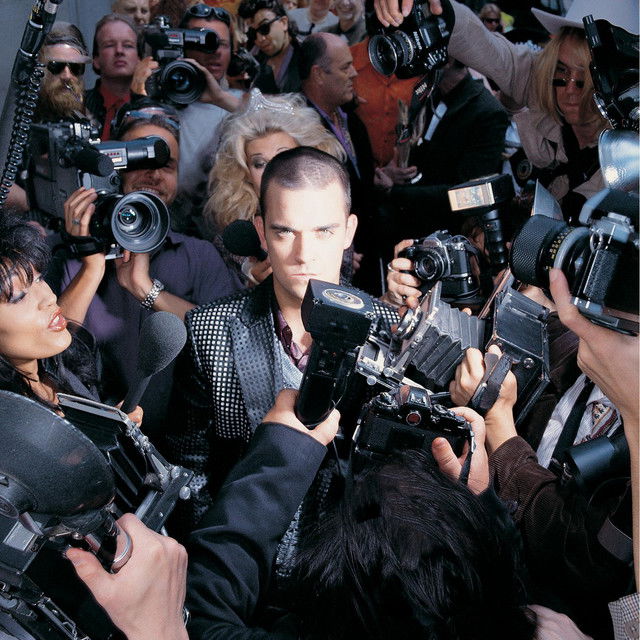
His success didn’t just plateau at the end of the ’90s. In fact, he became even bigger in the early 2000s. Albums like 'Sing When You’re Winning' (2000) and 'Escapology' (2002) continued to solidify his status as one of Britain’s biggest solo stars. His charismatic stage presence and knack for crafting catchy, heartfelt pop-rock songs won over millions more fans.
One of the crowning achievements of Robbie’s career came in 2003 when he played three sold-out nights at Knebworth, a venue known for hosting some of the biggest names in music history. Selling out Knebworth not once, but three times, was a statement that Robbie Williams was no longer just a former boy band member or solo pop act; he was a bona fide British music legend.
The 90s, eh? What a mad decade. We've been everywhere from Liverpool to Seattle, watched movements grow and disappear, seen political parties change, countries form, bands break up, and witnessed the birth of celebrity culture. The world had changed, and there was no looking back now.
Look at the Stars... Look How they Shine for You- The 00s Part 1
2000 not only marked the start of a new decade, but also the beginning of a new century and a new millennium. The world was changing, with the internet now a significant part of life. However, no one could comprehend just how much it would reshape everything. It would be quite the decade for Britain, in both good and bad ways. Music, too, would go through many changes; bands would emerge in ways previously unimaginable, the children of Britpop would begin to release albums, and Britain would have a few competitors for "band of the decade."
Let's start at the beginning. In July 2000, a new British band would release their debut album. 'Parachutes' would be the first of four albums from Coldplay in this decade. The album took the sounds of Travis's 'The Man Who' and developed them further. It was met with acclaim from both fans and critics, going on to become one of the cornerstone records of that 'Post-Britpop' genre. It's an excellent album, and gave us songs like 'Yellow' and 'Shiver', two of the band's best tracks and some of the best songs of the decade.
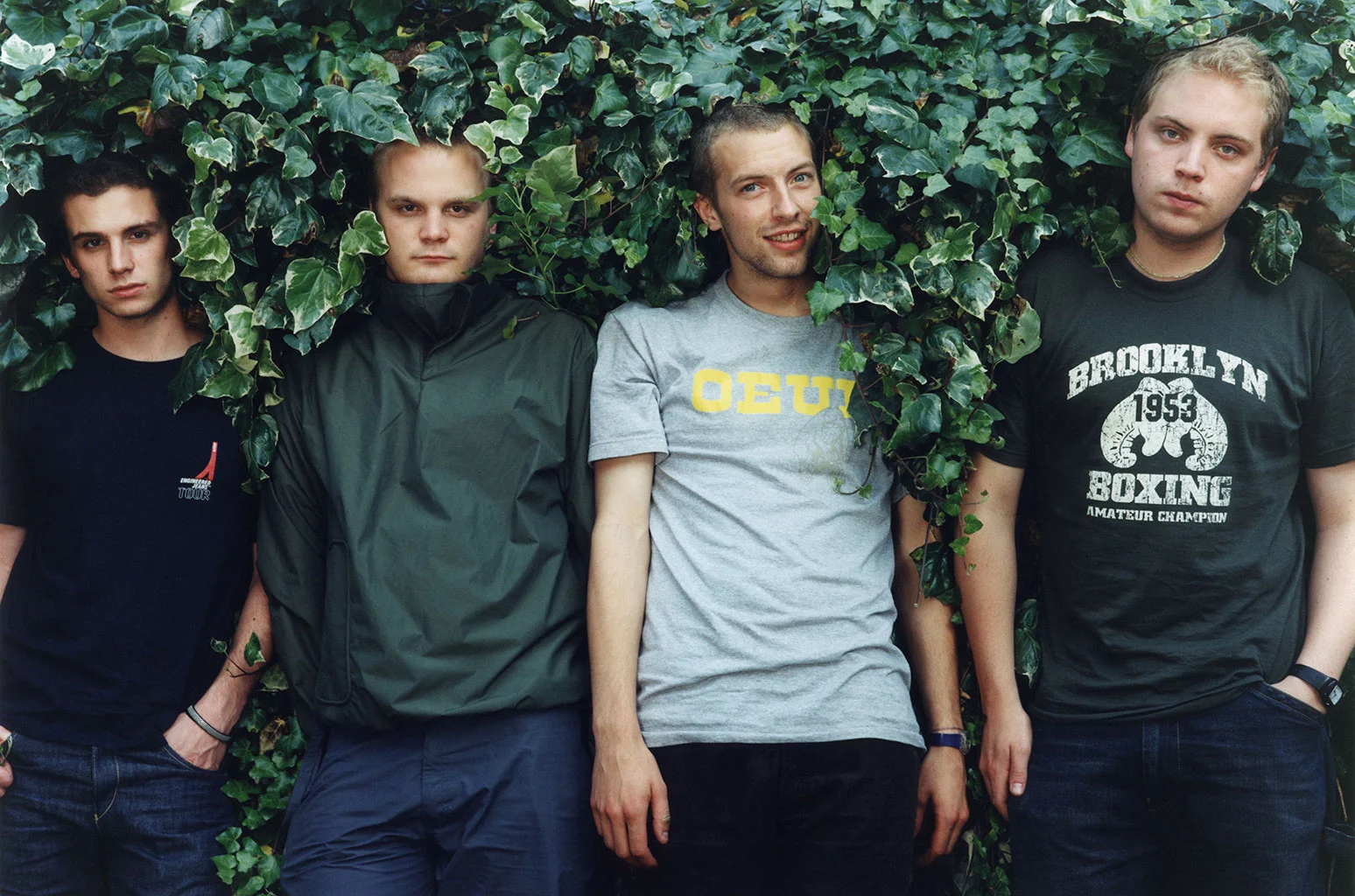
Oasis would also release a record in 2000, 'Standing on the Shoulder of Giants', their fourth album. It was the last album to feature founding members Paul "Guigsy" McGuigan and Paul "Bonehead" Arthurs. The album marked a transitional period for the band, both personally and musically. Noel Gallagher wrote most of the songs while coming off cocaine, which brought a rawer, more introspective edge to some tracks.
Musically, the album saw Oasis experimenting more with electronic textures, loops, and layered production than on their previous work, moving slightly away from the anthemic Britpop guitar sound that had defined the 90s. Tracks like 'Gas Panic!' demonstrated a darker, almost cinematic side of the band, with its brooding atmosphere, swelling strings, and introspective lyrics that explore fear, mortality, and the fragility of human relationships. It’s a sprawling track that shows Noel Gallagher pushing beyond the standard rock song structure, creating something both haunting and deeply emotional. Equally noteworthy is the criminally underrated 'Roll It Over', a track that balances a hypnotic, mid-tempo groove with the kind of melodic hooks that remind fans why Oasis were capable of crafting such infectious tunes even in a more experimental setting.
However, the album also had its weaker moments, with songs like 'I Can See a Liar' and 'Put Yer Money Where Yer Mouth Is' not aging as gracefully, lacking the depth and emotional resonance of the stronger tracks. Overall, these highs and lows made 'Standing on the Shoulder of Giants' an uneven snapshot of Oasis at a crossroads.
Blur frontman Damon Albarn had a very different plan for the 2000s. He formed Gorillaz, an English virtual band, in 1998 with his friend Jamie Hewlett. This was something that had never been done before, and it saw Damon depart from Britpop sounds, instead embracing influences from hip-hop, world music, and punk. It was a genre-bending mix that would become one of the most successful musical projects of the decade. 'Clint Eastwood' was the band’s first single, reaching Number 5 in the UK charts. What had initially started as a joke quickly became something much bigger. Gorillaz would go on to have a string of hits throughout the 00s, with their self-titled debut album in 2001 marking the start of it all.
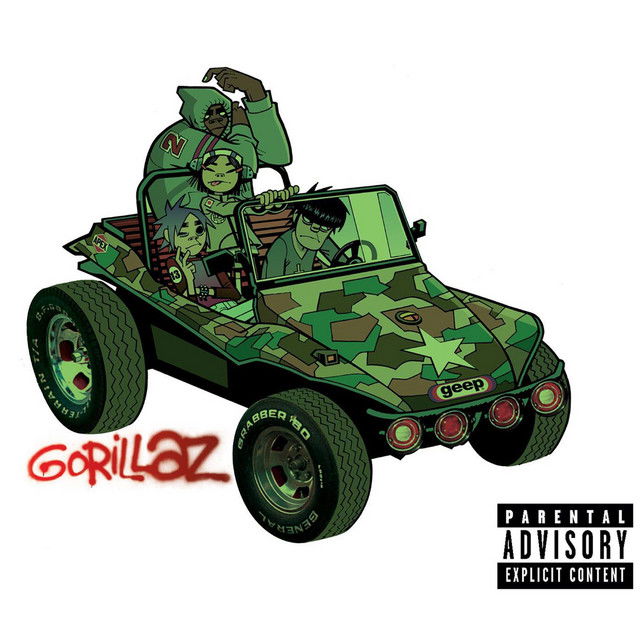
The album 'Gorillaz' was a bold experiment in sound and concept, blending electronic beats, dub, hip-hop, and alternative rock with Albarn’s melodic sensibilities. Tracks like '19-2000' and 'Tomorrow Comes Today' showcased the band’s ability to fuse catchy hooks with unconventional production, while collaborations with artists like Del the Funky Homosapien added a fresh, genre-crossing edge. The album’s visual component was equally revolutionary, with the animated band members serving as a narrative and artistic vehicle, giving the project a unique identity that set it apart from anything else on the charts at the time.
Critics received the record with widespread acclaim, praising its innovative approach and the seamless blending of genres. Many highlighted Albarn’s songwriting and the album’s adventurous production as evidence that pop music could still be bold and experimental. Some reviewers noted that while the virtual band concept was unconventional, it perfectly complemented the music, creating an immersive experience that was both playful and thought-provoking. Commercially, it performed well too, cementing Gorillaz as a serious artistic force rather than just a novelty act.
American bands had some success in the early part of the decade, just as they had at the end of the 90s. Korn, Queens of the Stone Age, and Linkin Park all released albums that made an impact on the UK charts, with varying degrees of success. Linkin Park's debut album would age remarkably well.
In contrast, the others, in my opinion, didn’t stand the test of time as firmly. This period of guitar music is awful; the world needed a new band or scene to drag guitar music away from the gimmicks.
One American band was poised to revolutionise everything and propel guitar music into 'The Modern Age.' Julian Casablancas, Nick Valensi, Albert Hammond Jr., Nikolai Fraiture, and Fabrizio Moretti, better known as The Strokes, released their debut 'Is This It' in August 2001, following the success of their EP 'The Modern Age'. They didn’t know it at the time, and in fact, no one did, but Is This It would become the catalyst for change and one of the most important albums of the decade. An album that would reinvent the guitar scene both in America and Britain, influencing bands on both sides of the Atlantic. The White Stripes and Yeah Yeah Yeahs were the first to ride the wave that The Strokes had created. The White Stripes would strip things back to basics, delivering brilliantly catchy guitar albums, while Karen O’s Yeah Yeah Yeahs would craft intricate pieces of guitar pop. 'Maps' remains one of the best songs of the decade.
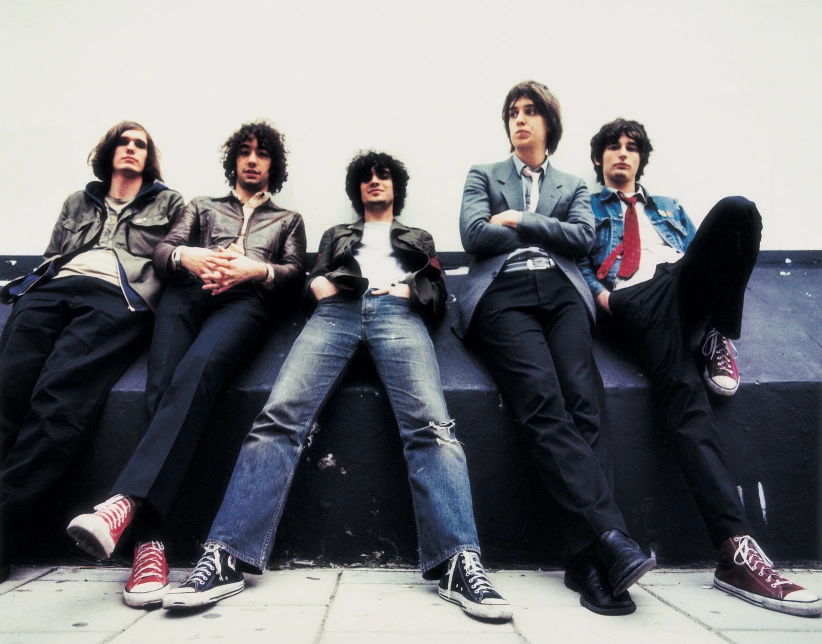
Kings of Leon would also be influenced by The Strokes, even earning the nickname 'The Southern Strokes'. They took The Strokes' approach to making music, tight, catchy riffs and raw, energetic performances, and added a heavier, darker, and more menacing tone to their songs. 'California Waiting' from their debut album 'Youth & Young Manhood' serves as a prime example, blending Southern grit with urgent, edgy guitar lines and Caleb Followill’s distinctive, soulful vocals. The album as a whole captures a raw, youthful energy that felt both familiar and refreshingly different from the Nu Metal and Pop Punk that was dominating the early 2000s.
Their follow-up, 'Aha Shake Heartbreak', built on this foundation while exploring more dynamic song structures and anthemic choruses, with tracks like 'The Bucket' and 'Four Kicks' showcasing the band’s ability to balance aggression with melody. Both albums would go on to become two of the most essential rock releases of the decade, defining Kings of Leon’s early sound and establishing them as a band capable of shaping the era’s rock landscape.
These 'Kings of the Rodeo' would play a massive part in 00s rock music throughout the decade, making an impact on both sides of the pond.
Guitar music in America had changed. Nu Metal, Pop Punk and Grunge were old news. The Strokes had sparked a new movement, reinventing guitar music just when it needed it.
Meanwhile, in England....
Did You See the Stylish Kids in the Riot? The 00s Part 2
The Libertines entered the fray in 2002, and just like The Strokes had in 2001, they caused quite the scene. 'What a Waster' was the band’s first single and would break the Top 40 with ease. NME called them "The best new band in Britain," and the hype began. The chemistry between Pete Doherty and Carl Barat is what made The Libertines brilliant. It was a fractured friendship that was always on the edge of spilling over, but that was part of the appeal.
The band would release 'Up the Bracket' in 2002, propelling them to stratospheric heights. The songs were brilliant pieces of music, and in The Libertines' story, it’s sometimes easy to forget that. Yes, it was chaos, but songs like 'Time For Heroes', 'I Get Along', ' Boys in the Band' and ' The Good Old Days ' are some of the best songs by a British band ever. It was always a circus with the band, though chaos seemed to find them. Doherty’s drug use had significantly increased (he was using both crack cocaine and heroin by this time), which led to his relationship with the rest of the band deteriorating.
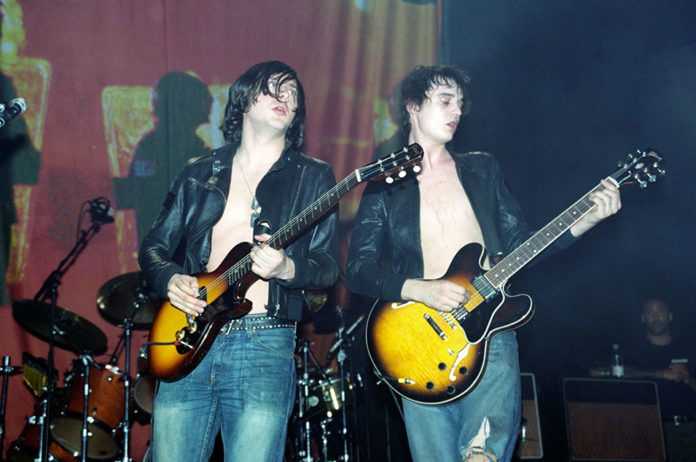
The band would release another album in 2004, 'The Libertines', but the problems continued. Doherty’s addiction was still ever-present, and fallouts with record producers and in-fighting meant it was a recipe for disaster. Even so, it was a recipe for disaster that produced some of their best songs: 'Can’t Stand Me Now', the perfect summary of Carl and Pete’s friendship, 'What Katie Did', ' Music When the Lights Go Out' and 'What Became of the Likely Lads.'
'Don’t Look Back Into the Sun' was recorded in 2003 and released as a standalone single, receiving critical acclaim. It showcased just what the band could do, and to date, it’s still the most popular Libertines song. Their story is a real shame because they were a band that had so much and threw it all away.
We have learned a lot throughout this post, but the main lesson is: when one band disappears, others are waiting in the wings... but more on that later.
Whilst The Libertines had been causing chaos, Coldplay released 'A Rush of Blood to the Head', a pivotal album that marked a significant evolution from their debut, 'Parachutes.' Expanding their sound with grander arrangements and deeper emotional resonance, the album positioned Coldplay as a band with far-reaching ambition. Tracks like 'Clocks' and 'Politik'saw them drawing inspiration from the experimental brilliance of Radiohead and the sweeping anthems of Blur, rather than the gentler stylings of Travis. The result was a much more expansive and cinematic listen, balancing intricate musicianship with Chris Martin’s introspective lyrics.
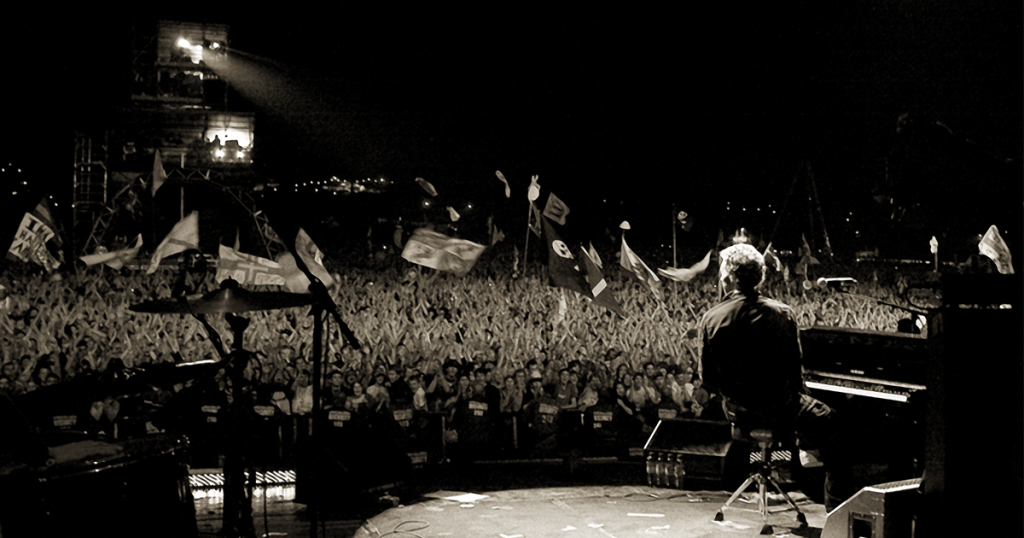
The album was a critical and commercial triumph, earning widespread acclaim and several awards, including the Grammy for Best Alternative Music Album. It launched Coldplay into the global spotlight, solidifying their status as one of the most important bands of the early 2000s. With 'A Rush of Blood to the Head', they gained the momentum needed to take on their first Glastonbury headline slot in 2002
They would headline for the first time, alongside the band I am about to mention next.
Stereophonics released 'Just Enough Education to Perform' in 2001, marking a subtle but significant reinvention of their sound. Coming off the back of the gritty, guitar-driven energy that defined their late ’90s output, this album introduced a more reflective, mature tone. It moved away from the heavier rock of their earlier records. It leaned into acoustic textures and more intimate songwriting, showcasing a band that wasn’t afraid to evolve.
Tracks like 'Have a Nice Day' and 'Handbags & Gladrags' became defining songs of the era, the former, an upbeat, sarcastic take on commercial culture, and the latter, a soulful Rod Stewart cover that revealed a more tender, melancholic side of the band. These songs resonated widely, gaining heavy radio rotation and helping to push the album into mainstream consciousness.
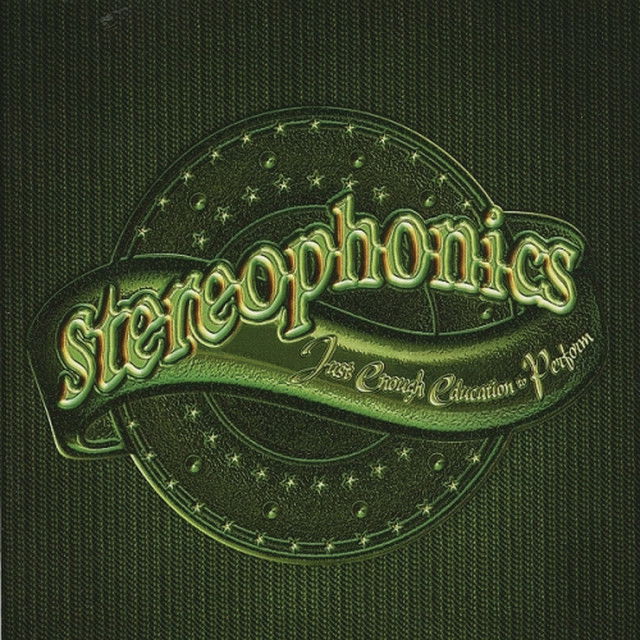
Lyrically, frontman Kelly Jones took a step forward as a songwriter. The tracks on 'Just Enough Education to Perform' were introspective, observational, and often emotionally raw, eschewing some of the pub-rock swagger of previous records for a more nuanced approach. Songs like 'Mr Writer' aimed at the media with simmering frustration. At the same time, 'Step on My Old Size Nines' leaned into a rootsy, folky charm that highlighted the band’s versatility.
Commercially, the album was a juggernaut. It became the Stereophonics’ best-selling release, staying in the UK charts for over 100 weeks and propelling them to headliner status at major festivals. It also cemented their place as one of Britain’s most dependable rock acts, capable of delivering both hits and heartfelt songwriting.
'Just Enough Education to Perform' wasn’t a drastic reinvention, but rather a careful recalibration of a record that found the band hitting a creative stride by refining rather than overhauling their sound. It laid the groundwork for their future evolution. It solidified their status as one of the UK’s most enduring and successful bands of the 2000s.
Another band worth highlighting from this period is Liverpool’s The Coral, one of the most underappreciated acts of the 2000s. What set The Coral apart was their refusal to be boxed into a single genre or sound. A trait that continues to define their timeless appeal. Instead, they built a diverse catalogue of brilliant songs that defied easy categorisation.
Their early releases feature standout tracks like the irresistibly catchy 'Dreaming of You,' the psychedelic masterpiece 'Goodbye, ' and the shimmering acoustic gem 'In the Morning.' These songs showcased their ability to blend influences from 60s psychedelia, indie rock, folk, and even sea shanties into something uniquely their own.
Remarkably, when The Coral released their self-titled debut album in 2002, they were barely out of their teens. James Skelly, the band’s frontman and primary songwriter, was just 18, a testament to their precocious talent. The album was met with critical acclaim and marked the beginning of a career that would see the band remain ever-present throughout the decade and beyond.
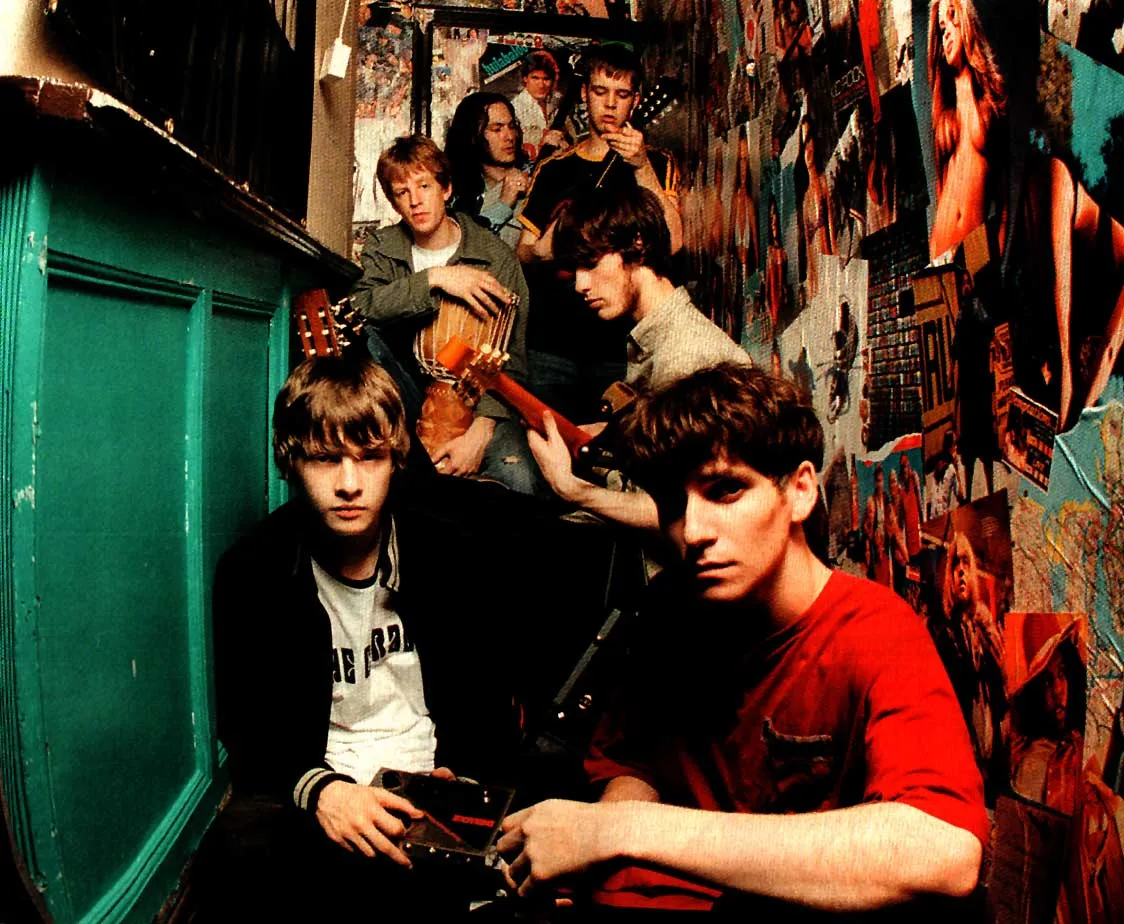
After their self-titled debut album in 2002, which earned them a Mercury Prize nomination, The Coral quickly followed up with 'Magic and Medicine' in 2003.
This sophomore effort saw the band refine their sound, delivering a more polished and cohesive record while retaining their signature blend of psychedelia, folk, and indie rock. Tracks like 'Pass It On' and 'Don't Think You're the First' became instant fan favourites, and the album topped the UK Albums Chart, cementing their place as one of Britain's most exciting new bands. In 2004, The Cora released 'The Invisible Invasion', produced by Geoff Barrow of Portishead. This album balanced introspection with their signature whimsical charm, producing standout tracks like 'In the Morning' and 'Something Inside of Me' It received critical acclaim for its maturity and the band's continued evolution.
The Coral have continued into the 2010s and 2020s. Despite losing Bill Ryder-Jones in 2008, they have continued to write, record, and perform. Their later work includes albums such as 'Butterfly House', which showcased a more polished psychedelic sound, and 'Distance Inbetween', featuring a darker, heavier tone. In 2021, they released 'Coral Island', a critically acclaimed concept album filled with nostalgic seaside imagery and standout tracks like 'Lover Undiscovered' and 'Faceless Angel'. The band followed this with 'Sea of Mirrors' and 'Holy Joe's Coral Island Medicine Show' in 2023, further cementing their place as one of Britain's most enduring and creative indie rock bands.
It is also worth mentioning The Streets in this post. 2002 saw Mike Skinner release 'Original Pirate Material', an album he famously recorded in a cupboard in his London bedroom. A rap album that drew influences from house music, UK garage, indie, and hip-hop, it created a genre-bending soundscape that was unlike anything we had heard before, at least not from British artists. The album’s raw, honest storytelling painted vivid pictures of everyday life, with tracks like 'Has It Come to This?' and 'Weak Become Heroes' capturing the grit, humour, and melancholy of urban Britain in the early 2000s.
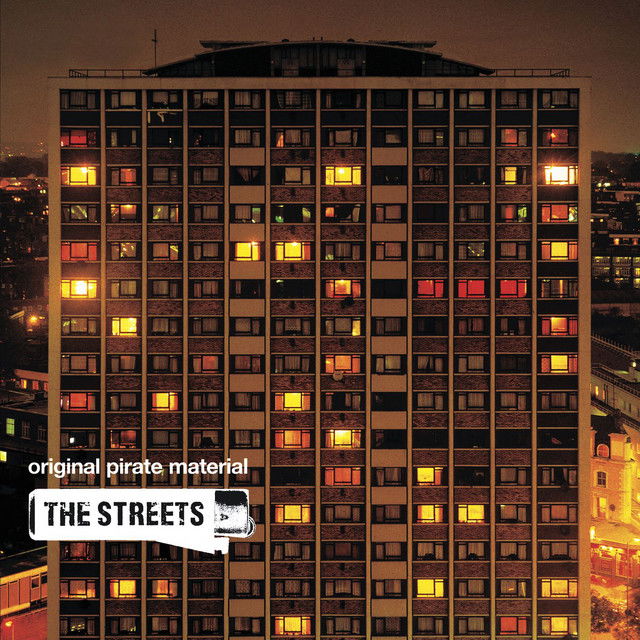
In 2004, The Streets released their second album, 'A Grand Don’t Come for Free', a concept record that solidified Mike Skinner’s reputation as one of Britain’s most unique and innovative storytellers. The album told the story of a young man’s tumultuous journey throughout a summer, blending humour, heartbreak, and introspection into a narrative that was as relatable as it was compelling. From losing £1,000 in cash to navigating the complexities of love and friendship, Skinner turned everyday moments into gripping, poetic drama. The Streets proved that garage and rap could be vehicles for profound storytelling, creating an album that remains one of the most iconic and innovative releases of the 2000s.
Skinner's conversational delivery and self-deprecating wit made him relatable to a broad audience. At the same time, his sharp observations on nightlife, relationships, and social issues added depth and authenticity. 'Original Pirate Material' wasn't just an album; it was a cultural statement, giving a voice to a generation and putting British rap and garage firmly on the map. Its impact rippled far beyond its release year, inspiring countless artists and reshaping perceptions of what UK music could achieve.
It was a good time for British music, but it was about to get a whole lot better. Several bands were waiting in the wings, all of which wanted to take on the world...
And take on the world, they would.
Ich heiße Superfantastisch The 00s Part 3
2004... the year I started primary school. It would also be the start for two major British bands, Kasabian and Franz Ferdinand. It would also see The Streets hit Number One, and Arcade Fire would release one of the classic albums of the decade. Oh, and 'Mr. Brightside' would come out.
In the early 2000s, Busted burst onto the UK music scene with a blend of pop-punk energy, cheeky lyrics, and catchy guitar hooks that appealed to a new generation of fans. Their debut self-titled album, 'Busted', released in 2002, featured infectious hits like 'What I Go to School For', 'Year 3000', and 'You Said No', all of which stormed the UK charts and helped redefine the sound of British teen pop. Their follow-up album, 'A Present for Everyone', delivered even more success with tracks like 'Crashed the Wedding' and 'Air Hostess', solidifying their status as one of the UK's most beloved boy bands of the era. Though their run was relatively short-lived before their 2005 breakup, their influence on the British pop landscape was undeniable. Busted brought guitar-driven pop back to the charts at a time dominated by polished vocal groups, and their blend of humour, hooks, and youthful swagger helped pave the way for a new era of pop-rock bands.
McFly emerged in the wake of Busted's success, but quickly carved out a strong identity of their own. Their 2004 debut album' Room on the 3rd Floor' debuted at Number One on the UK Albums Chart, making them the youngest band since The Beatles to achieve that feat. The album featured hits like '5 Colours in Her Hair', 'Obviously', and the title track, which blended catchy pop melodies with a sunny, surf-rock twist. McFly's success continued with albums like 'Wonderland' and 'Motion in the Ocean', spawning chart-toppers such as 'All About You', 'I'll Be OK', and 'Star Girl'. Their cheeky charm, tight musicianship, and crossover appeal made them a staple on UK radio and television, earning them a loyal fan base that has endured well beyond their teen-pop beginnings.

Franz Ferdinand's debut album is one of the most underrated albums of the 00s, and it always gets overlooked. It is a collection of 11 brilliant songs, and it received critical acclaim, and rightfully so. It is an absolute classic. There is not one weak track on the album. They could make each song unique in its own right, blending angular guitar riffs, danceable rhythms, and sharp, intelligent lyrics. Tracks like 'Take Me Out' became instant anthems, showcasing the band's knack for infectious hooks and unforgettable melodies. At the same time, 'Dark of the Matinée' and 'Michael' brought a sense of drama and energy that set them apart from their contemporaries.
Britain may have found its 'Libertines' replacement, but Franz Ferdinand wasn't just a successor. They were innovators, blending art-rock ambition with pop accessibility in a way that felt both fresh and timeless. The album wasn't just a debut; it was a manifesto, and it firmly cemented Franz Ferdinand as one of the defining bands of the mid-2000s.
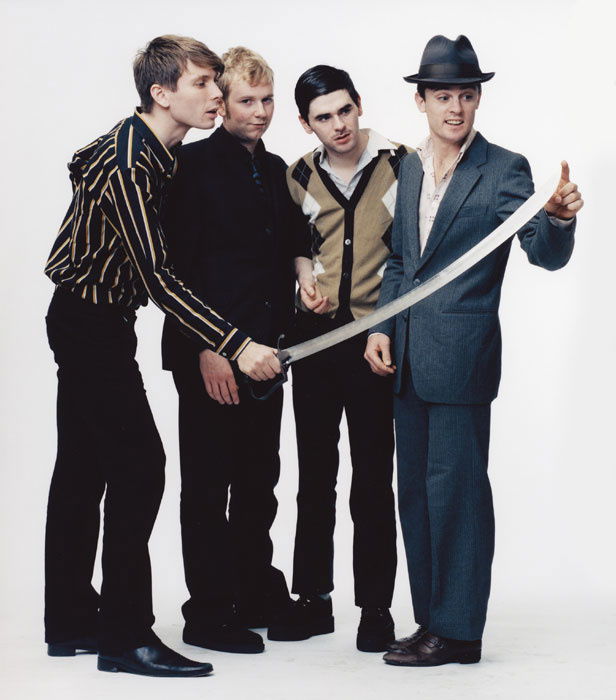
What made the record even more compelling was its sense of confidence and style; it knew exactly what it wanted to be. Songs like 'Darts of Pleasure' and 'Come on Home' demonstrated a band with both attitude and sophistication, drawing influence from post-punk icons like Talking Heads and Gang of Four without ever sounding derivative. The production was tight, the pacing was flawless, and the charisma of frontman Alex Kapranos gave the whole album a theatrical edge. In hindsight, 'Franz Ferdinand' wasn’t just one of the best debuts of the decade; it was one of the most complete, and it still holds up just as firmly today.
After the massive success of their debut, Franz Ferdinand faced the daunting task of following up on an instant classic, and they rose to the challenge. Their second album, 'You Could Have It So Much Better', released in 2005, showed they weren’t content to repeat the formula. It was louder, more direct, and more emotionally charged. Tracks like 'Do You Want To', 'Walk Away', and 'The Fallen' retained the band’s sharp wit and rhythmic drive but introduced a broader palette, more romanticism, more drama, and more bite. The album debuted at Number One in the UK and proved that Franz Ferdinand weren’t a one-album wonder.
By the time they released 'Tonight: Franz Ferdinand' in 2009, the band had shifted direction again. Drenched in synths and influenced by dub and dancehall, the record embraced a darker, late-night aesthetic. Songs like 'Ulysses' and 'No You Girls' were still danceable. However, there was a woozy, restless energy underneath that showed the band was still evolving creatively. Though not as universally praised as their earlier work, it highlighted their willingness to take risks and explore new sonic territory.
Over the next decade, the band’s momentum slowed slightly, but they remained creatively active. 2013’s 'Right Thoughts, Right Words, Right Action' saw them returning to a more guitar-driven sound with a playful, self-aware edge. In 2018, they released 'Always Ascending', which leaned further into polished synth-pop, once again reinventing their sound with mixed but intriguing results. That same year also marked a lineup change, with founding guitarist Nick McCarthy departing the band.
In 2004, Kasabian would release their self-titled debut album, embracing rock riffs combined with electronic synths. It was rock meeting rave once again, with the band's attitude reminiscent of The Libertines and Oasis, while incorporating the experimental spirit of artists like The Chemical Brothers and, dare I say, Blur. 'Club Foot' became their first hit. This crossover track could be heard at indie discos or football stadiums, appealing to both music lovers and sports fans alike.
The album marked the arrival of a band that wasn’t just about swagger; they had the ambition and sound to back it up. With tracks like 'L.S.F.', 'Processed Beats', and 'Reason Is Treason', Kasabian carved out a unique space in the UK scene. Their mix of psychedelia, electronics, and lad-rock energy set them apart from their peers and won them a fiercely loyal following.
Their second album, 'Empire', built on that momentum. The title track became a defining anthem, grandiose, rebellious, and impossible to ignore. The album showcased a growing maturity in their songwriting, with tracks like 'Shoot the Runner' and 'Me Plus One' blending glam influences with their trademark aggression. It was a bold step forward that solidified their place as festival mainstays.
2009’s 'West Ryder Pauper Lunatic Asylum' marked a creative peak. Widely regarded as their most ambitious and critically acclaimed work, it saw Kasabian fully embrace their experimental side. From the haunting 'Where Did All the Love Go?' to the explosive 'Underdog' and the psychedelic sprawl of 'Fire, the album pushed boundaries while maintaining its mass appeal. It was strange, confident, and entirely their own, earning a Mercury Prize nomination and elevating them from indie heroes to one of the biggest bands in Britain.
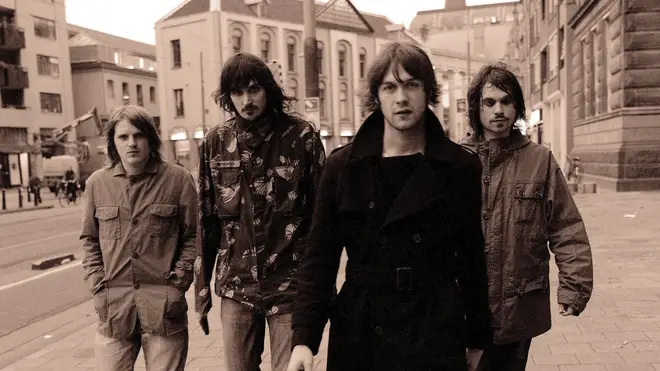
That same year, Kasabian were chosen to support Oasis on what would turn out to be the Gallagher brothers’ final tour together. Playing huge venues alongside their idols felt like a passing of the torch, with Kasabian embodying much of the same swagger, ambition, and working-class appeal that made Oasis a phenomenon. The band thrived in the stadium environment, winning over massive crowds with their commanding stage presence and relentless energy. Supporting Oasis wasn't just a career milestone; it was a symbolic moment that confirmed Kasabian’s arrival at the top tier of British rock. When Oasis imploded later that summer, it was clear that Kasabian were now leading the charge for a new era of UK guitar music.
Across the pond, Arcade Fire’s debut album 'Funeral' was a seismic moment in 21st-century indie rock. Named in response to several band members losing close family during its creation, the album was anything but bleak; instead, it brimmed with catharsis, communal energy, and emotional urgency. Songs like 'Wake Up', 'Rebellion (Lies)', 'Neighbourhood #1 (Tunnels)', and 'Crown of Love' offered a sweeping, orchestral take on rock music that felt both deeply personal and spiritually universal. The band’s fusion of baroque instrumentation, soaring choruses, and raw, often trembling vocals stood in stark contrast to the post-punk and garage rock revival dominating indie at the time.
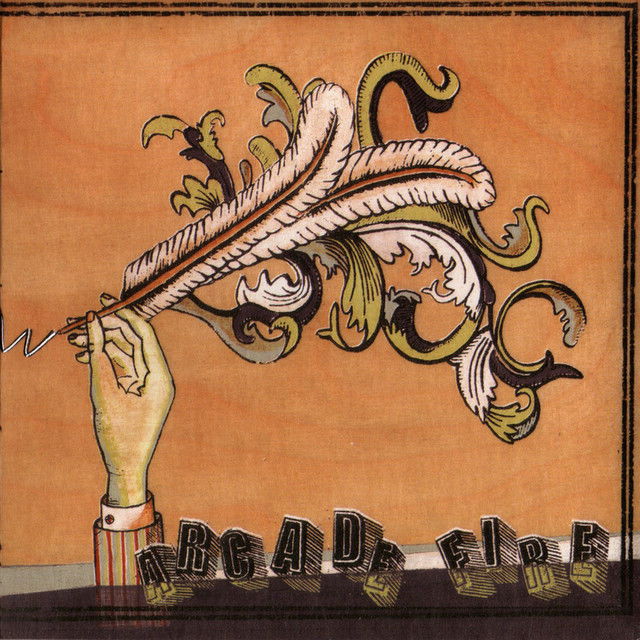
'Funeral' arrived with relatively little fanfare but quickly gained a passionate following, thanks in large part to critical acclaim and electrifying live performances. It resonated with a generation hungry for something more sincere and emotionally textured, becoming a touchstone for the new wave of indie that followed. The album’s influence is still felt today in the sounds of bands that strive to marry grandeur with vulnerability. Widely considered one of the greatest debut albums of all time, 'Funeral' is a landmark release that helped redefine what indie rock could be.
The Killers would also release their debut album 'Hot Fuss' in 2004, a record that would not only define the mid-2000s indie rock revival but also launch the Las Vegas band onto the global stage. Taking their name from a fictional band featured in the music video for New Order’s 'Crystal', The Killers immediately positioned themselves within a lineage of stylish, synth-tinged post-punk and new wave. That influence coursed through 'Hot Fuss', which combined shimmering synths, angular guitar riffs, and Brandon Flowers’ theatrical vocal delivery to create a sound that was at once nostalgic and undeniably fresh.
The album was packed with instant classics. 'Mr. Brightside, a tale of jealousy and heartbreak delivered with relentless urgency, became a generational anthem and, remarkably, has never left the UK Top 100 since its release. 'Somebody Told Me' mixed dancefloor rhythms with cryptic lyrics and brash confidence, while 'All These Things That I've Done' added gospel-tinged grandeur with its unforgettable “I’ve got soul but I’m not a soldier” refrain. Even the deeper cuts, like 'Jenny Was a Friend of Mine' and 'Andy, You’re a Star', showed a band with a flair for storytelling and a distinct aesthetic that blended the glitz of their Las Vegas roots with the grit of British indie.
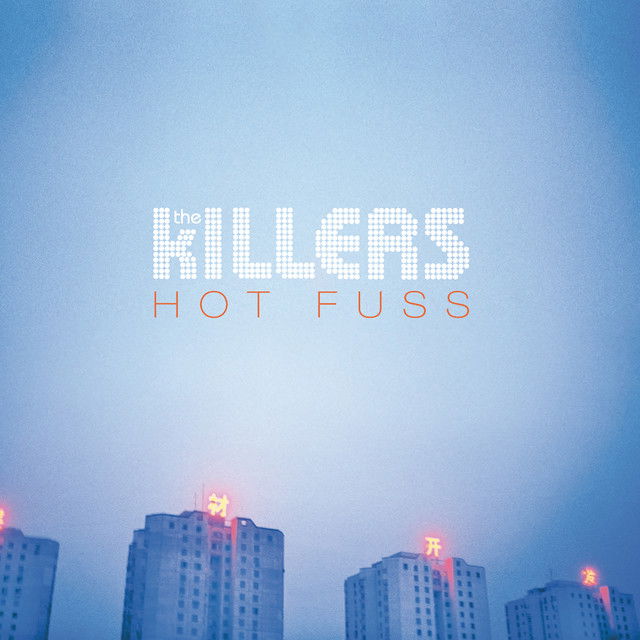
'Hot Fuss' was a critical and commercial triumph, earning Grammy nominations and multi-platinum status, while helping to reignite interest in guitar-driven rock on both sides of the Atlantic. The album’s polished yet emotionally raw sound captured a moment in time, balancing heartache, glamour, and youthful desperation in a way that resonated with a global audience. It marked the beginning of one of the most enduring careers in 21st-century rock, and for many, it remains The Killers’ definitive statement.
Gorillaz returned in 2005, continuing their experimental streak with Demon Days, which featured two of their most well-received songs: 'Feel Good Inc' and the Shaun Ryder collaboration 'DARE'. By this time, Gorillaz had become one of Britain’s most beloved acts, especially in America.
Produced by Danger Mouse, Demon Days pushed the boundaries of what a virtual band could achieve, blending hip-hop, dub, alt-rock, and electronic elements into a dark, dystopian concept album that felt eerily relevant. Tracks like 'Kids with Guns', 'El Mañana', and 'Dirty Harry' showed off Damon Albarn’s songwriting depth and the group’s ability to shift seamlessly between sounds and moods. 'Demon Days' confirmed Gorillaz as not just a novelty project but a serious musical force, capable of crafting some of the most inventive pop of the 21st century.
Kaiser Chiefs followed in 2005 with their debut album 'Employment', another excellent British indie record and one of the defining releases of the mid-2000s guitar revival. Produced by Stephen Street, who had previously worked with Blur and The Smiths. The album blended punky energy with catchy, Britpop-inspired melodies and a distinctly northern sense of humour. While they didn’t have the experimental edge of Kasabian or the same number of standout tracks as Franz Ferdinand, songs like 'I Predict a Riot' and 'Oh My God' became instant anthems, capturing the chaos, charm, and mundanity of British youth culture with remarkable accuracy.
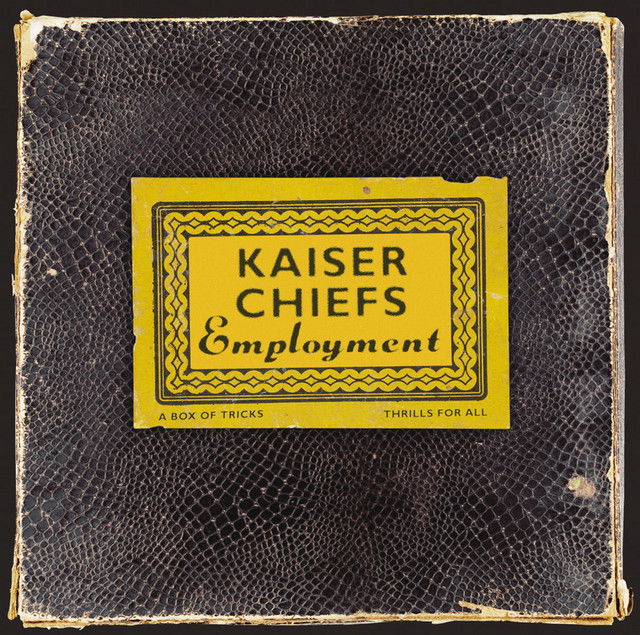
But 'Employment' was more than just a two-hit album. Tracks like 'Everyday I Love You Less and Less', 'Modern Way' and 'Na Na Na Na Naa' helped establish the band’s identity: sardonic, accessible, and irresistibly catchy. The lyrics were sharp and observational, with Ricky Wilson’s charismatic delivery bringing a theatrical flair to even the most mundane topics. The album was rooted in the sounds of British pop history, nodding to The Jam, Madness, and Blur, while still feeling fresh and immediate. It was one of those rare records that managed to be both fun and culturally resonant, landing Mercury Prize and Brit Award nominations, and becoming one of the best-selling UK albums of the year. In short, 'Employment' wasn’t just a strong debut; it was a cultural moment.
The same year, Bloc Party released 'Silent Alarm', an album that, while sometimes overshadowed in mainstream retrospectives, stands as one of the most influential and genre-defining records of the 2000s indie rock movement. Where many of their contemporaries leaned heavily on Britpop nostalgia or garage rock revivalism, Bloc Party broke new ground by fusing angular post-punk riffs, emotionally charged vocals, and elements of dance and electronic music. The result was a sound that was urgent, cerebral, and strikingly fresh 'Silent Alarm' wasn’t just another indie album; it was a declaration of artistic intent.
Upon its release in early 2005, 'Silent Alarm' was both a critical and commercial triumph. It sold rapidly, going Gold in the UK within 24 hours, and was later shortlisted for the Mercury Prize. Songs like 'Helicopter' and 'Banquet' quickly became underground anthems, defined by frenetic guitar work, pounding drums courtesy of Matt Tong’s propulsive style, and Kele Okereke’s distinctive vocal delivery. 'Helicopter', in particular, felt like a lightning bolt, restless, politically charged, and full of sharp energy that perfectly captured the disillusionment and anxiety of a new generation.
But 'Silent Alarm' was more than just its singles. Tracks like 'This Modern Love' and 'Blue Light' introduced a more vulnerable and reflective tone, with shimmering guitars and melancholic lyrics that revealed the band’s emotional depth. Meanwhile, 'Like Eating Glass' opened the album with an explosion of rhythm and tension, immediately signalling that Bloc Party were doing things differently. The production, handled by Paul Epworth, played a key role in shaping the album’s dynamic contrasts, blending icy atmospherics with visceral impact.
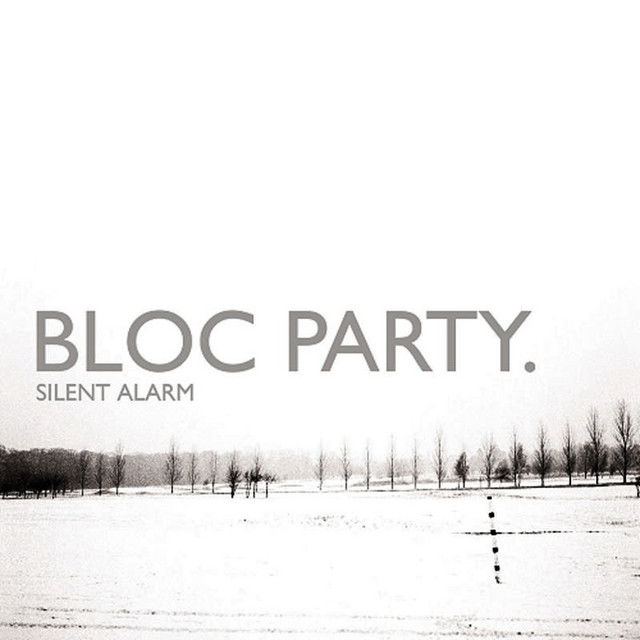
What made 'Silent Alarm' so special was its refusal to stay in one lane. It married the visceral energy of punk with the melodic sophistication of new wave. Then it pushed it further with flourishes drawn from dance, electronica, and even shoegaze. Bloc Party managed to sound simultaneously post-modern and emotionally sincere, which gave the album a unique and lasting resonance.
In 2005, Stereophonics released their fifth studio album, 'Language. Sex. Violence. Other.', a record that marked a crucial turning point in the band’s career. After the mixed reception of their previous two albums, this release saw the Welsh rockers sharpen their sound and rediscover their edge. While still rooted in the band's trademark blend of gritty rock and melodic hooks, the album introduced a more modern, punchier aesthetic, with tighter arrangements, cleaner production, and a darker overall tone. It was their most commercially successful album in years, fuelled mainly by the breakout single 'Dakota'.
In retrospect, 'Silent Alarm' helped set the stage for a new kind of indie rock, one that wasn’t afraid to challenge genre boundaries or wear its emotions on its sleeve. It remains a landmark release, an album that didn’t just reflect the sound of mid-2000s Britain, but helped to shape it.
'Dakota', with its shimmering guitars, soaring chorus, and driving rhythm, became the band’s first and to date, only UK Number One single. Written during a tour with David Bowie, the song was heavily inspired by advice Bowie had given to frontman Kelly Jones: to focus less on over-complication and more on emotional clarity and simplicity in songwriting. The result was a sleek, anthemic track that captured the band’s evolution perfectly and remains one of their signature songs. Its wide appeal helped introduce Stereophonics to a broader, even international, audience, and it quickly became a staple of indie and alt-rock playlists across the 2000s.
Beyond 'Dakota', the album offered several other standout moments. Tracks like 'Superman' and 'Devil' explored darker lyrical themes and showcased a more experimental, brooding atmosphere, with layered production and a cinematic flair. Meanwhile, 'Doorman' and 'Brother' delivered gritty riffs and a raw energy reminiscent of their early work, proving the band could still hit hard when needed. Jones’ vocals were more dynamic than ever, ranging from introspective murmur to full-throated roar.
Critics welcomed 'Language. Sex. Violence. Other', as a return to form, praising its urgency and cohesion. The album debuted at Number One on the UK Albums Chart. It helped re-establish Stereophonics as one of the UK’s most reliable rock acts. It was a statement of intent, proof that the band could evolve with the times without sacrificing the core of what made them great in the first place.
But the biggest British band of the 00s was yet to come...
Anticipation has a Habit to Set You Up for Disappointment: The 00s Part 4
Arctic Monkeys, a band that redefined promotion, formed in Sheffield in 2002. The band, consisting of Alex Turner, Matt Helders, and Andy Nicholson, who met at high school, before Jamie Cook joined as a fourth member, began their journey by gigging around the city and recording early demos. These demos, burned onto CDs, were distributed at their shows, showcasing their grassroots approach. This approach led to the creation of the now-legendary 'Beneath the Boardwalk' EP, a collection of raw early demos that were passed from hand to hand and uploaded by fans to forums and file-sharing sites. At a time when MySpace was becoming the new word-of-mouth, Arctic Monkeys became one of the first bands to harness the power of the internet to build a devoted following, a feat achieved without any traditional promotion.
By June 2005, they were signed to Domino Records. This independent label would give them the creative freedom they craved, and their debut single, 'I Bet You Look Good on the Dancefloor', recorded at Chapel Studios in Lincolnshire, was released on October 17, 2005. It went straight to No. 1 on the UK Singles Chart, a staggering achievement for a band with virtually no mainstream media coverage. Their second single, 'When the Sun Goes Down', followed in January 2006 and also debuted at No. 1, cementing the band's status as a cultural phenomenon.
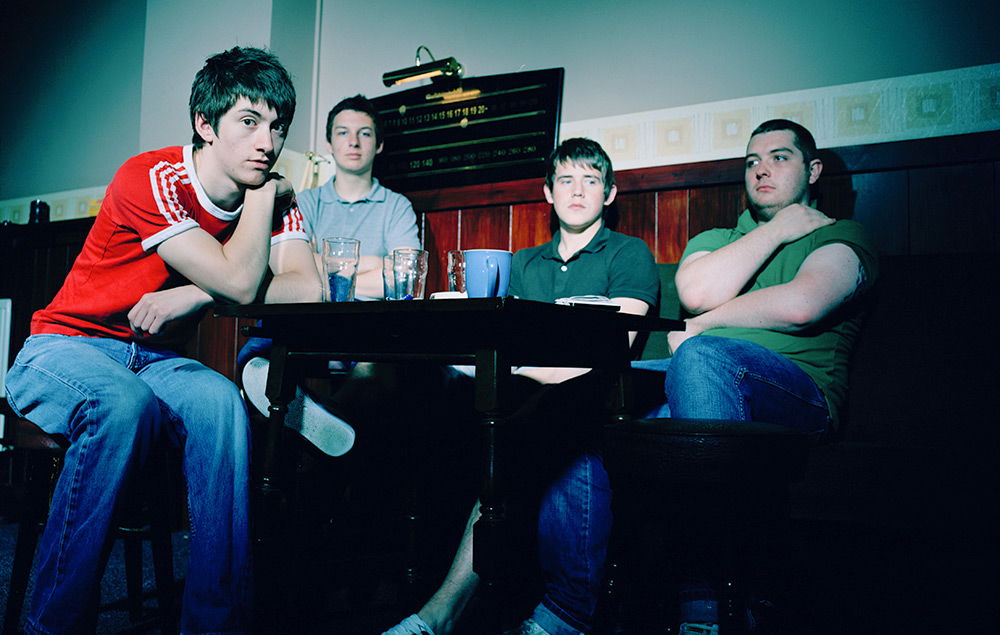
The momentum only grew when they released their debut album 'Whatever People Say I Am, That's What I'm Not' on January 23, 2006. It became the fastest-selling debut album in UK chart history, selling over 360,000 copies in its first week. Packed with lyrical snapshots of Northern nightlife, pub culture, teenage bravado, and disillusionment, the album was an instant classic. Its impact on the music industry was profound, inspiring a new wave of British rock and influencing countless artists. Songs like 'Fake Tales of San Francisco', 'A Certain Romance', and 'Mardy Bum' revealed a band wise beyond their years, with Alex Turner's observational lyricism already setting him apart as a truly distinctive voice in British music.
The NME summed it up perfectly: "Essentially this is a stripped-down, punk rock record with every touchstone of Great British Music covered: The Britishness of The Kinks, the melodic nous of The Beatles, the sneer of The Sex Pistols, the wit of The Smiths, the groove of The Stone Roses, the anthems of Oasis, the clatter of The Libertines." And yet, for all their influences, Arctic Monkeys sounded like no one else. They captured the voice of a generation not by trying to be profound, but by being sharp, funny, honest, and impossibly cool. Their unique sound, a blend of these influences, is what sets them apart and keeps their audience intrigued and curious.
The album won the 2006 Mercury Prize for Best Album. It scooped multiple BRIT Awards, including Best British Breakthrough Act and Best British Album. But despite the media frenzy, the band remained grounded, famously declining to appear in their own music videos and often avoiding the press altogether. Their meteoric rise was matched by their refusal to play the fame game, a decision that resonated with their fanbase, making them feel more connected and appreciative of the band's authenticity.
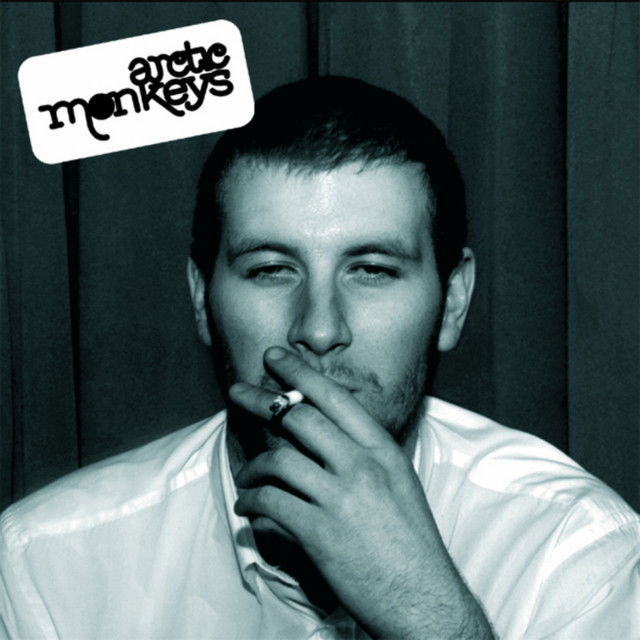
Britain had found its new northern band destined to take on the world. They had already rewritten the rulebook on how to break through in the digital age, and the wildest thing was, they were just getting started.
2007 saw Arctic Monkeys release their eagerly awaited second album, 'Favourite Worst Nightmare', a record that not only showcased their growth as musicians but also delivered another absolute classic. It was arguably the most anticipated sophomore album since The Stone Roses' Second Coming, and unlike that famously troubled follow-up, Arctic Monkeys rose to the occasion without missing a beat. The album’s twelve tracks demonstrated a band evolving rapidly, more confident, sharper, and willing to push their sound in exciting new directions, proving beyond doubt that they were not a one-album wonder but a band constantly evolving and pushing boundaries in rock music.
The album opened with ‘Brianstorm’, a fierce, adrenaline-fuelled burst of energy that hit the airwaves like a lightning bolt, making it clear the band meant business. The track’s explosive drums and stinging guitar riffs set the tone for an album that was both raw and meticulously crafted. Meanwhile, ‘Fluorescent Adolescence’ stood out for its clever, bittersweet storytelling, perfectly wrapped around one of Alex Turner’s catchiest riffs, capturing the confusion and nostalgia of youth with razor-sharp wit, a feeling that resonates with listeners of all ages.
Then there’s ‘505’, a slow-building, emotionally charged ballad that would go on to become one of the band’s most beloved and vital songs, a moment of vulnerability and atmosphere that contrasted beautifully with the album’s more frenetic moments. Its haunting melody and evocative lyrics have cemented it as a fan favourite and live staple for years to come.
2007 was also a landmark year live for Arctic Monkeys, as they played the iconic Glastonbury Pyramid Stage for the first time. Their headline-worthy performance not only electrified the festival but also solidified their position as one of the defining British bands of their generation. The success of 'Favourite Worst Nightmare' proved they were no flash in the pan.
It wasn’t just Arctic Monkeys releasing albums that year, though. Reverend & the Makers, also hailing from Sheffield and clearly inspired by the Arctic Monkeys’ meteoric success, released 'The State of Things' in 2007. The album built on the gritty indie rock foundations laid by their peers but added an electronic sheen that gave the sound a fresh, modern edge. Frontman Jon McClure’s songwriting showed a new level of maturity and social awareness, offering sharp, insightful commentary on both his hometown and broader issues affecting Britain at the time, from economic struggles to cultural identity. Tracks like ‘Heavyweight Champion of the World’ became anthems for a new generation looking for something raw yet reflective.
Following the success of 'The State of Things', Reverend & the Makers continued to evolve their sound across several more albums. In 2009, they released 'A French Kiss in the Chaos', which leaned further into political and social themes, wrapped in a blend of indie rock and electronic textures. The album showcased McClure’s growth as a lyricist and his commitment to addressing contemporary issues with wit and urgency.
In 2012, they released '@Reverend Makers', an album that continued to push their sound toward a more dance and electronic direction, featuring upbeat rhythms and synth-heavy arrangements. The album reflected McClure’s willingness to experiment and evolve, blending indie rock with modern electronic production to varying degrees of success.
'ThirtyTwo', released in 2014, marked a return to a more rock-oriented sound but still retained electronic influences. It was a mature record that reflected on personal growth and societal change, with McClure’s lyrics becoming increasingly introspective.
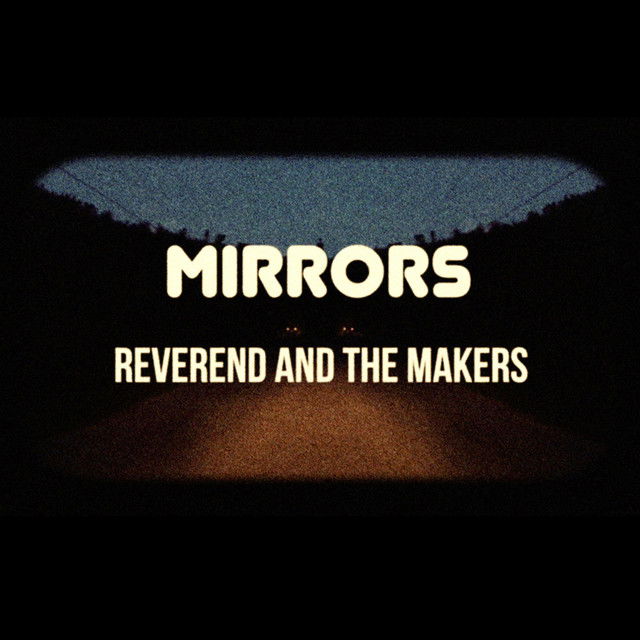
Then, in 2015, the band released 'Mirrors', an album that saw the band at their most ambitious. This album is the band's masterpiece, a series of perfect pop songs, acting like a soundtrack for a film that has yet to be filmed. It's the sound of a band looking forward. Psychedelia, soundtrack, jazz, classic neo-fifties Billy Fury style ballads, sitars, beat anthems, bubblegum and wonky weirdness are threaded in with songs of pure guitar pop brilliance. Everything great about British pop is in this record, the hope and melancholia, the fuck the rain optimism and the sadness dripping from the city centres, but also the beauty in the grime and the knack for melodic genius and scope of ambition of the kitchen sink drama.
The band’s fifth album, 'The Death of a King', came out in 2017 and was noted for picking up where its predecessor left off. Reverend & the Makers have become adept at mastering new sounds, and this album seems to embrace so many genres from the post-Oasis indie to electropop, Eastern Influences, and into The Beatles. It's a melting pot of ideas and sounds, and it really works. Many of the tracks would fit in seamlessly on the playlist of your average Arctic Monkeys fan. In contrast, the more experimental tracks blend genres with an inventiveness not usually expected of a decade-old indie band.
Moving into the next decade, Reverend & the Makers embraced a whole host of new influences on 'Heatwave in the Cold North' from acoustic nostalgic bangers like 'A Letter to My 21 Year Old Self' and the soulful title track. Throughout their career, Reverend & the Makers have been a distinctive and evolving force in British indie music, blending sharp social commentary with infectious melodies, maintaining a loyal fanbase, and standing as a key part of Sheffield’s vibrant music scene.
In 2007, Bloc Party released their highly anticipated follow-up to 'Silent Alarm,' 'A Weekend in the City, ' an album that marked a significant shift in the band's sound. While 'Silent Alarm' was defined by its urgency and high energy, 'A Weekend in the City' saw the band exploring darker, more introspective themes. The album delved into concepts of alienation, hedonism, and disillusionment, set against the backdrop of a rapidly changing urban landscape. This shift was reflected in the album’s more subdued mood, lush, atmospheric instrumentation, and a focus on emotional depth, signalling a departure from the more straightforward indie rock sound of its predecessor.
'Waiting for the 7:18' showcased this blend of electronic and organic elements, with its haunting keyboards and yearning lyrics capturing the feeling of stagnation and lost opportunities that pervaded much of the album. Meanwhile, 'I Still Remember' and 'On' harkened back to the anthemic, guitar-driven sound of 'Silent Alarm', yet with a more reflective tone.

With more politically charged songs like 'Hunting for Witches', Bloc Party moved away from the sound fans had heard on 'Silent Alarm'. On this album, the band aimed to comment more on the world they were living in, specifically the growing sense of fear and paranoia that permeated the early 2000s, particularly in the aftermath of global events like the 9/11 attacks and the Iraq War. 'A Weekend in the City' serves as a poignant reflection of the social and political issues that defined the early 2000s, making it a nostalgic journey for many listeners.
Klaxons burst onto the scene in 2007 with their debut album 'Myths of the Near Future', a record that defied easy categorisation. At their core, they were a rock band. Still, their sound was deeply infused with the frenetic energy and textures of 80s and 90s dance music, rave culture, and new wave, creating a fresh hybrid that stood out in the indie landscape. The album’s title, inspired by a 1930s sci-fi novel by J.G. Ballard, hinted at the band’s fascination with futurism and myth. These themes ran through their lyrics and sonic experimentation.
Tracks like ‘Golden Skans’ and ‘Atlantis to Interzone’ combined shimmering synths, jagged guitar riffs, and driving rhythms with frontman Jamie Reynolds’ distinctive vocals, crafting anthems that were simultaneously dancefloor-ready and indie rock staples. Their brilliant cover of the 90s rave classic ‘Not Over Yet’ further showcased their ability to bridge eras and genres, injecting a new urgency into a beloved dance track.
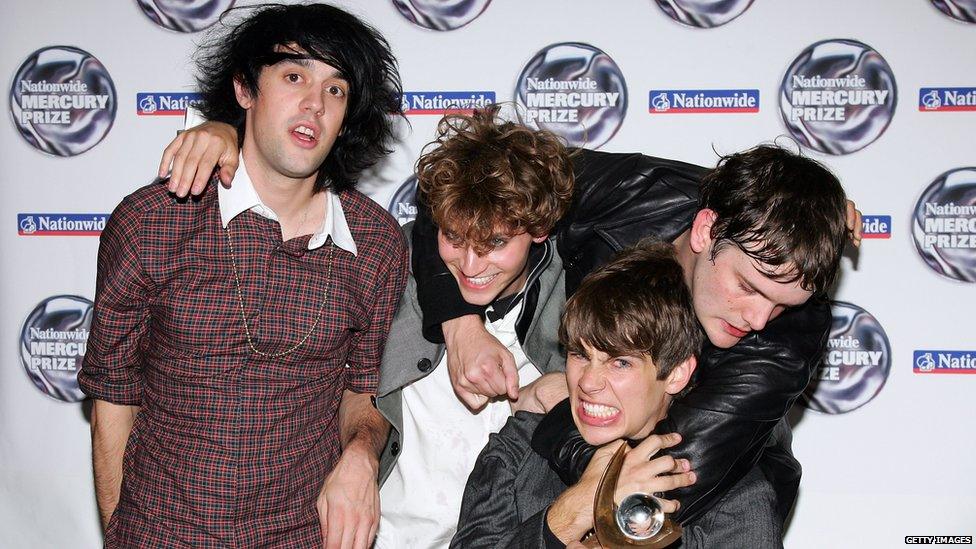
'Myths of the Near Future' was a critical and commercial success, earning the band widespread acclaim for its bold innovation and infectious energy. It was a defining record of the late 2000s, capturing the spirit of a generation eager to blend rock’s rawness with electronic music’s pulsating rhythms. The album’s success culminated in Klaxons winning the prestigious Mercury Prize in 2008, cementing their status as pioneers of the then-emerging 'new rave' movement.
Beyond its immediate impact, the album’s adventurous spirit influenced a wave of bands willing to experiment with electronic elements within rock frameworks, helping to reshape the sound of British indie music. The eclectic mix of psychedelic rock, dance beats, and futuristic themes made 'Myths of the Near Future' a landmark release, one that remains a vibrant snapshot of a moment when genres blurred and new musical possibilities emerged.
The Enemy's debut album, 'We'll Live and Die in These Towns', released in 2007, is a poignant reflection of the struggles and frustrations of working-class life in a small Midlands town. The band, drawing influence from the social commentary of The Jam and the anthemic swagger of Oasis, skillfully brings to life the feelings of stagnation, ambition, and the yearning for something greater that are all too familiar to many.
The title track, 'We'll Live and Die in These Towns', is a brilliant portrayal of the monotony and disillusionment of small-town life. With its biting lyrics and jangly guitars, it evokes the same sense of bleakness and frustration found in The Jam’s 'That’s Entertainment.' It’s a song that paints a vivid picture of life in a town where ambition often feels crushed by the daily grind, yet still carries a sense of pride in the struggle. 'Away from Here' follows suit with a more visceral, snarling tone, capturing the angst of wanting to escape the confines of the town and create something better for yourself.
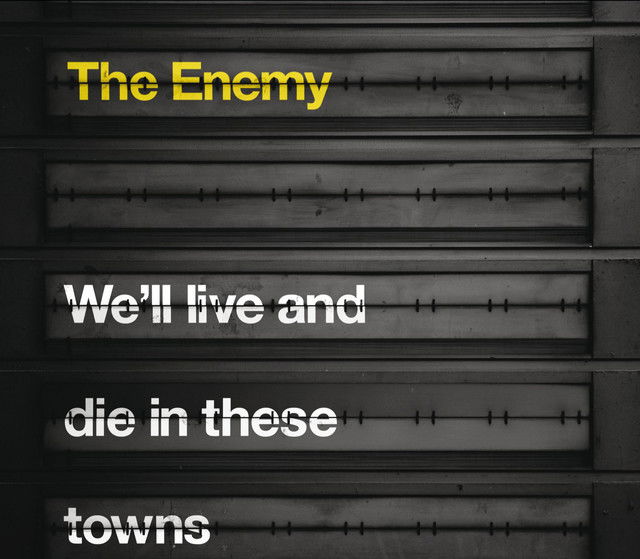
‘This Song is About You’ is another of these slower affairs. It builds into something quite special, an anthem for every man. If ‘We Live & Die in These Towns’ talks about the place, ‘This Song is About You’ is about the people. All of them. The hometown heroes and villains, the people the band would leave behind. It's another brilliant snapshot into working-class life, and perhaps the band's crowning moment, inspiring and uplifting the listener.
One of the most underrated debuts of that era.
Kaiser Chiefs capitalised on the momentum of their debut with their 2007 follow-up 'Yours Truly, Angry Mob', which gave them their biggest hit to date with 'Ruby'. It showcased a more polished sound while keeping their sharp observational lyrics intact. Although critical reception was mixed, the album’s commercial success confirmed Kaiser Chiefs as one of the defining bands of the mid-2000s indie boom. Subsequent releases like 'Off with Their Heads' and 'The Future Is Medieval' saw them experiment with different approaches, including interactive album formats and more synth-driven production. While they never quite recaptured the lightning-in-a-bottle impact of 'Employment', Kaiser Chiefs maintained a strong live presence. They continued to evolve stylistically, proving themselves as more than just a one-album wonder.
Courteeners, five friends from Middleton, released their debut album 'St. Jude' in 2008, not just as a musical offering, but as a shared experience with their audience. The album, brimming with energy and reflecting the joys and struggles of growing up, connected deeply with a generation of young listeners. The band’s raw, unpolished energy and relatable lyrics resonated with those navigating the same turbulent period of their lives, creating a sense of belonging and shared experience.
Tracks like the ferocious 'Cavorting' and the anthemic 'Not Nineteen Forever' became instant fan favourites, with their infectious choruses and sing-along potential. 'Not Nineteen Forever' in particular became an anthem of youthful rebellion and nostalgia, perfectly encapsulating the feeling of wanting to hold onto youth despite the inevitable march of time.
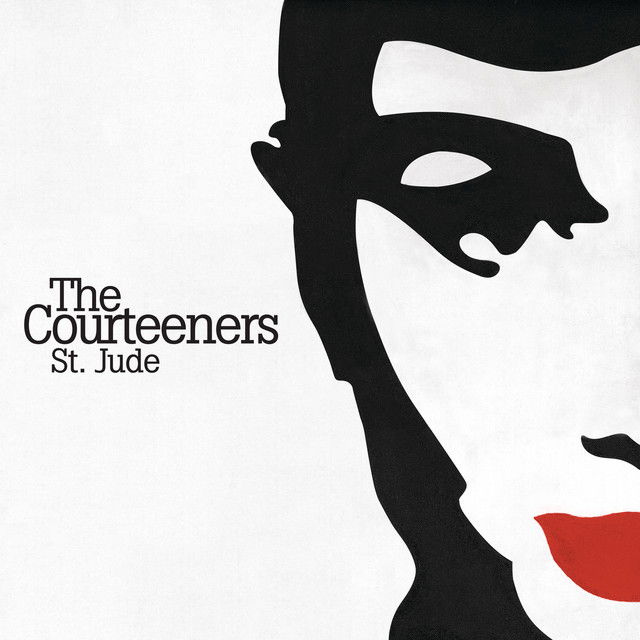
The success of 'St. Jude' marked Courteeners as one of the most significant bands of the time, able to tap into the energy of British youth culture. Their sound, both nostalgic and forward-thinking, resonated deeply with a generation, becoming anthems that still hold cultural significance. 'St. Jude' is a powerful declaration from a band that perfectly encapsulated the joys, frustrations, and disillusionments of youth, leaving an indelible mark on British music culture.
The Wombats released 'A Guide to Love, Loss & Depression' in 2007, a record that was ironically one of the most fun and infectious albums of the decade. Despite the heavy themes of love, heartbreak, and the struggles of growing up, the band managed to infuse the album with an upbeat, high-energy sound that made it a quintessential part of the UK indie scene. The Wombats' unique sound, characterised by catchy melodies and witty lyrics, set them apart in the indie music scene.
Songs like 'Let’s Dance to Joy Division' and 'Moving to New York' are instant anthems. Their infectious choruses and tongue-in-cheek lyrics have become staples of indie clubs across the UK, and they are sure to get you on your feet and dancing. 'Let’s Dance to Joy Division' was written about a drunken night out experienced by lead singer Matthew Murphy at Le Bateau, a nightclub in the band's home city of Liverpool, during which he and his then-girlfriend danced on a table to 'Love Will Tear Us Apart' by Joy Division. The lyrics examine the irony of dancing happily to a famously sad song.
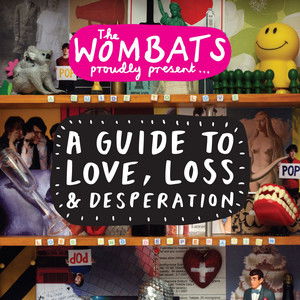
The Wombats kept it fun on this record, and that's why all these years later it still resonates. Its songs are catchy, and it blurs the line between joy and melancholy so well. One of the best debuts of recent memory.
Across the pond, MGMT followed Klaxons' approach with the release of 'Oracular Spectacular', an album that defined a pivotal moment in the indie and electronic music scenes. Featuring brilliant indie dance anthems like 'Kids' and 'Time to Pretend', the album blended psychedelic rock with electronic pop in a way that was both refreshing and groundbreaking. 'Kids' became an instant classic, with its soaring chorus and evocative lyrics about the loss of innocence; at the same time 'Time to Pretend' offered a satirical, almost nihilistic view of fame and the excesses of youth. Both tracks captured the imagination of both American and UK audiences, becoming anthems for a generation grappling with growing up in an increasingly complex world.
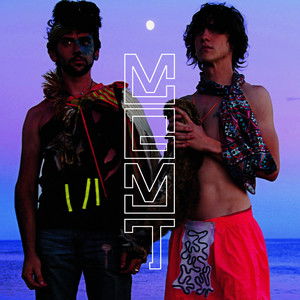
MGMT's 'Oracular Spectacular' is a testament to the band's ability to transcend time and genre. The album's blend of retro influences with futuristic sounds gives it a timeless quality that continues to appeal to listeners across genres. Its eclectic mix of dreamy synths, shimmering guitar riffs, and quirky melodies made it a standout in the indie landscape of the late 2000s, earning both critical acclaim and commercial success.
The Killers returned in 2006 with their second album. Following the massive success of 'Hot Fuss', The Killers took a bold creative turn with their second album, 'Sam’s Town', released in 2006. Named after a real-life casino in their native Las Vegas, the album was a sprawling, ambitious attempt to break free from the glamorous, synth-heavy sound that had defined their debut. Instead, 'Sam’s Town' embraced heartland rock influences, channelling the grandeur and grit of American artists like Bruce Springsteen, while retaining the band's theatrical flair and lyrical introspection.
Where 'Hot Fuss' looked outward with tales of nightlife and jealousy, 'Sam’s Town' turned inward, full of Americana imagery, desert romanticism, and spiritual yearning. It was a record about identity, place, and ambition, both a love letter to and a reckoning with the band’s roots.
As 'Hot Fuss' had done two years previously, the album gave The Killers some of their most well-loved songs. Songs like 'When You Were Young' captured the tension between youthful dreams and adult disillusionment, becoming one of the band’s most iconic singles with its thunderous riff and cinematic storytelling.'Read My Mind' stood out as perhaps the album’s most enduring track. This shimmering, heartfelt ballad combined emotional vulnerability with sweeping melodies. It was a quieter triumph that revealed the depth of Brandon Flowers’ songwriting.
It saw the band taking a different approach, it allowed the world to see their ambition and also to see just how good a songwriter Brandon Flowers really is. In more recent years, it has been seen as arguably the band's best work and the most important album that they have ever made.
Now, I wouldn’t be doing 7-year-old Jack or even 23-year-old Jack justice if I didn’t mention MIKA. In 2007, 'Grace Kelly', his No. 1 single, was everywhere, and it’s still a timeless piece of pop. At 7, I just thought it was a catchy tune, but at 23, I can genuinely appreciate how brilliant MIKA was. Those songs are pop masterpieces, and his debut album 'Life in Cartoon Motion' is a unique, genre-blending collection of excellent tracks that continue to stand out in the pop music landscape.
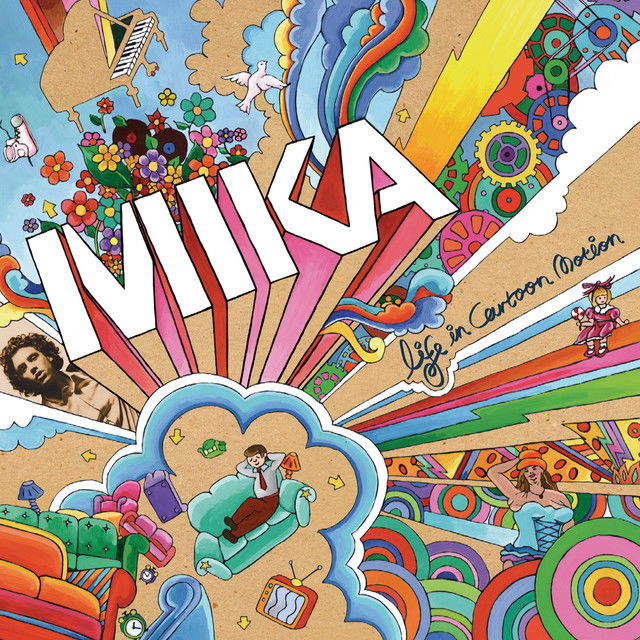
Alongside MIKA, the Scissor Sisters were crafting some of the most intriguing pop music of the 2000s. Their sound, a daring fusion of glam rock, disco, and camp theatrics, was as captivating as their bold aesthetic. Their self-titled debut album, featuring hits like 'Take Your Mama', 'Laura', and 'Comfortably Numb' (a disco-infused Pink Floyd cover), was a breath of fresh air, flamboyant, fearless, and above all, fun.
While the Scissor Sisters' popularity in the U.S. was moderate, the UK fully embraced them. Their debut album became the best-selling album in the UK in 2004, a significant achievement for a band that proudly defied convention. They continued to build on this success with 'I Don't Feel Like Dancin', a collaboration with Elton John that became a massive hit, topping the UK Singles Chart and becoming one of the defining pop songs of the decade. Its infectious melody and tongue-in-cheek melancholy perfectly captured the band’s unique blend of euphoria and introspection.
The Scissor Sisters were more than just a band; they were a celebration of diversity. Their music was not just an escape, but also a powerful statement. In an era when pop music often felt sterile and manufactured, they injected the charts with a much-needed dose of colour, character, and charisma, a presence that is sorely missed today.
2007 even saw a rather unexpected reunion, a one-off gig that sent shockwaves through the music world. Led Zeppelin had parted ways back in 1980 following the tragic death of their legendary drummer, John Bonham. After that heartbreaking loss, each member, Robert Plant, Jimmy Page, and John Paul Jones, went their separate ways, focusing on solo projects and various collaborations. For decades, fans and critics alike doubted the band would ever come together again. The idea of Led Zeppelin reuniting seemed almost impossible, given the weight of history and the loss that had ended their original run.
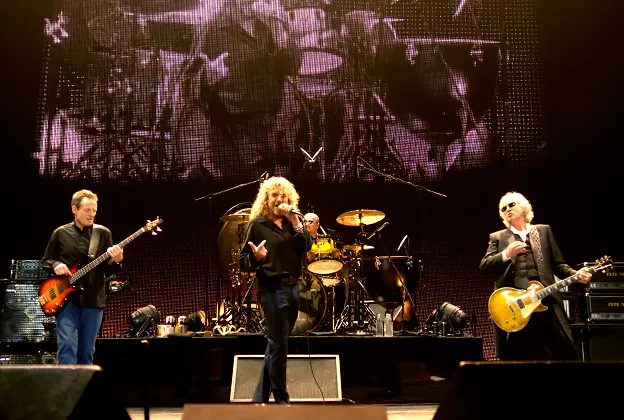
But over a quarter-century later, the hopes and dreams of every Zeppelin fan were finally realised when the band reunited at London’s O2 Arena in December 2007. The concert was a monumental event, not only for its historical significance but also for its emotional resonance. Adding to the poignancy, Bonham’s son, Jason Bonham, took his late father’s place behind the drum kit, delivering a powerful and heartfelt performance that honoured his father’s legacy. The show was met with overwhelming enthusiasm, proving that even after decades apart and tragedy, the magic of Led Zeppelin remained undiminished. This reunion was a celebration of their enduring influence and a testament to the timeless power of their music.
I couldn’t not talk about Amy Winehouse in this section. She released one of the most important and influential albums of the decade in 2006, 'Back to Black', an album that showcased the true genius of her artistry. 'Back to Black' is a powerful, timeless record, featuring songs like ‘Back to Black’, ‘Rehab’, and ‘Tears Dry on Their Own’ that highlight Amy’s unmistakable voice and her unmatched ability to blend soul, jazz, and Motown influences into something deeply personal and distinctly her own.
Running a concise and focused 35 minutes with no filler, the album captured Amy at the absolute peak of her powers, both vocally and emotionally. It’s raw yet polished, intimate yet grand, and resonates with a haunting honesty that few records achieve. 'Back to Black' not only redefined contemporary soul but also opened doors for many artists who were a little bit different, paving the way for the likes of Lana Del Rey, Lady Gaga, and Florence Welch, all of whom have cited Amy as a profound influence on their work. Her fearless authenticity and genre-defying sound reshaped the musical landscape and inspired a generation to embrace individuality.
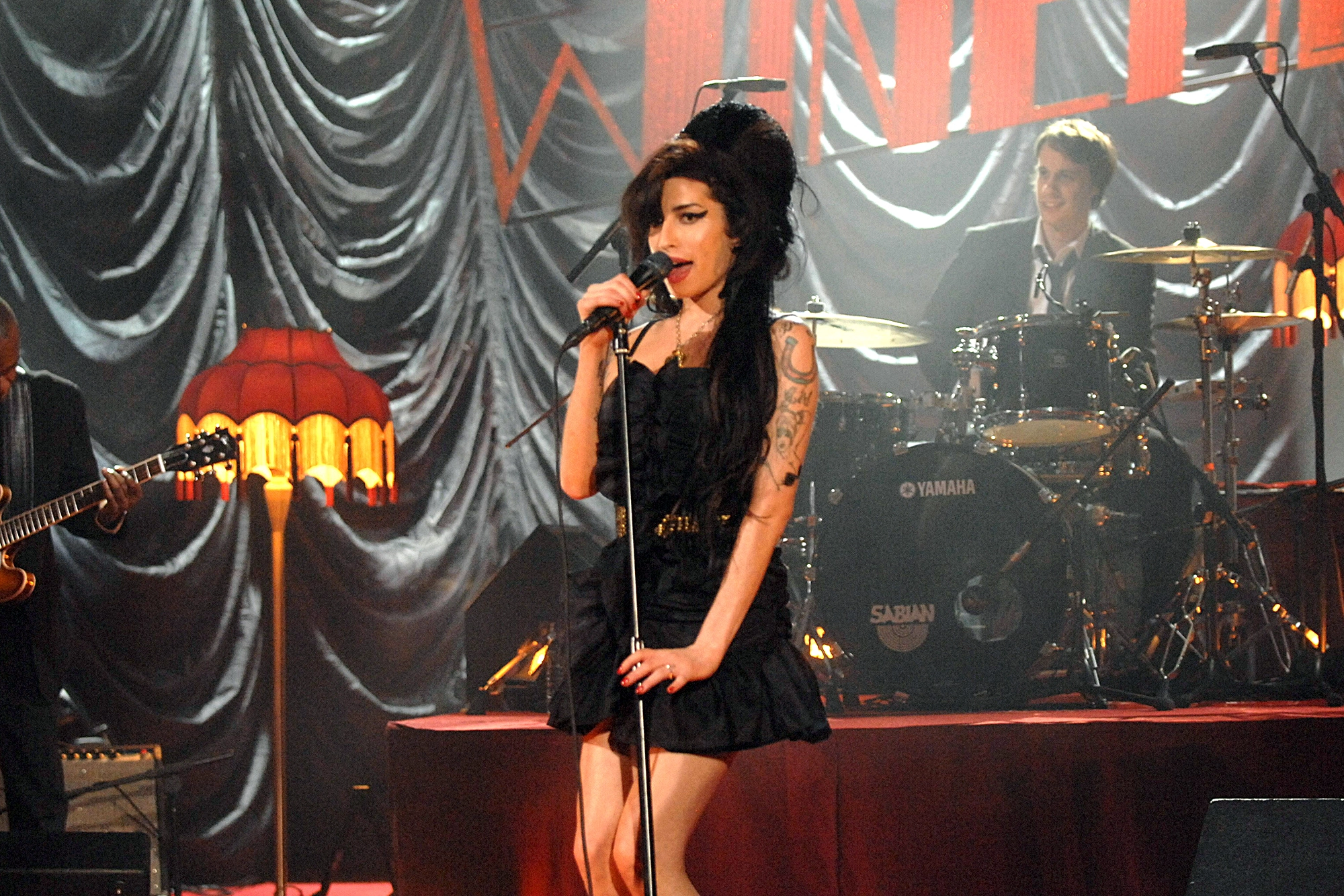
Upon its release, 'Back to Black' sold over 3.5 million copies worldwide and earned Amy a staggering five Grammy Awards, including Best New Artist and Record of the Year, cementing her place as one of the most important British artists in music history. Beyond commercial success, her impact is cultural and enduring, with 'Back to Black' remaining a touchstone for artists and fans alike. Amy Winehouse’s legacy is a testament to how artistry, vulnerability, and soul can combine to create something truly unforgettable.
I Used to Rule the World- The 00s Part 5
'Don't Panic', Coldplay fans, I haven't forgotten about them. 2008 saw Coldplay release their fourth album, 'Viva La Vida or Death and All His Friends', following 'X&Y', an album that received mixed reviews despite giving us hits like 'Fix You' and 'Speed of Sound'.
2005 was a year of feverish anticipation for Coldplay fans, as the highly anticipated 'X&Y' was about to drop. This album, following the global success of 'A Rush of Blood to the Head', solidified Coldplay's status as a stadium-filling band. The sonic landscape of 'X&Y' was expansive, filled with atmospheric production layers of synths, echoing guitars, and soaring choruses designed to fill massive venues. Tracks like 'Talk', which sampled Kraftwerk’s 'Computer Love', showcased the band's willingness to experiment with electronic textures, while songs like 'The Hardest Part' and 'Swallowed in the Sea' delved into their signature emotional depth.
However, 'X&Y' was not without its detractors. Some critics felt it was overly polished and safe, lacking the rawness and emotional immediacy of its predecessors. There was a sense that Coldplay might be following a formula. Despite this, the album was a commercial juggernaut; it became the best-selling album of 2005 worldwide and confirmed the band’s place in the upper echelons of 21st-century rock.
Then, in 2008, Coldplay took a bold step with 'Viva La Vida or Death and All His Friends'. The band teamed up with legendary producer Brian Eno to create a more experimental sound. With songs like 'Strawberry Swing' and 'Lovers in Japan', two of the most unique tracks in Coldplay's catalogue, the album veered into uncharted territory, thrilling fans and critics alike.
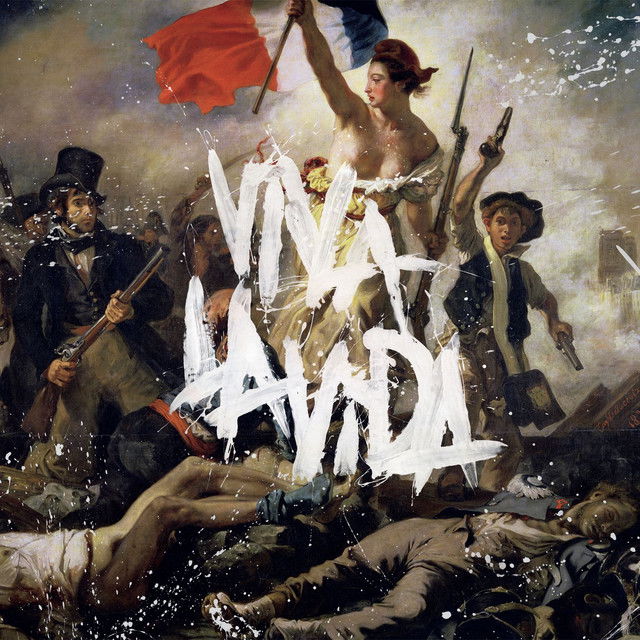
Ironically, despite the experimental approach, the album produced Coldplay's first Number One single, 'Viva La Vida', a colossal stadium anthem built around strings and military-like drums. This is the last great Coldplay album, as the following decades saw them transition into becoming the biggest band in the world, though musically, they started to lose some of their earlier magic.
Subsequent albums like 'Mylo Xyloto', which included tracks like 'Paradise' and 'Every Teardrop Is a Waterfall', leaned heavily into pop and electronic influences, marking a significant departure from the experimental sound of 'Viva La Vida or Death and All His Friends'. Later releases such as 'Ghost Stories', 'A Head Full of Dreams' and 'Music of the Spheres' continued to find commercial success, but for many longtime fans, the spark of the early 2000s albums like 'Parachutes' and 'A Rush of Blood to the Head' felt increasingly distant. I found myself losing interest.
Kings of Leon's commitment to their music was evident in their 2009 UK smash hit album 'Only by the Night', featuring 'Closer', 'Use Somebody', and the unlikely Number One hit 'Sex on Fire'. A song loved by fans but initially disliked by the band, it had originally been written as a joke, and now it’s their most famous track. Despite this, it's still a great song, and perfect for the live environment, where its anthemic quality shines brightest.
The album marked a significant departure from the raw, gritty Southern garage rock of their earlier records like 'Youth and Young Manhood' and 'Aha Shake Heartbreak'. Those albums were full of scuzzy guitar riffs, Caleb Followill’s whiskey-soaked drawl, and a sense of untamed chaos that made the band cult favourites in the US and breakout stars in the UK. By contrast, 'Only by the Night' embraced a far more polished, expansive, and arena-ready sound. The production was slicker, the hooks more refined, and the choruses clearly built to echo across stadiums. This shift in sound, while attracting a new, larger audience, also led to a sense of alienation among some longtime fans and indie purists.
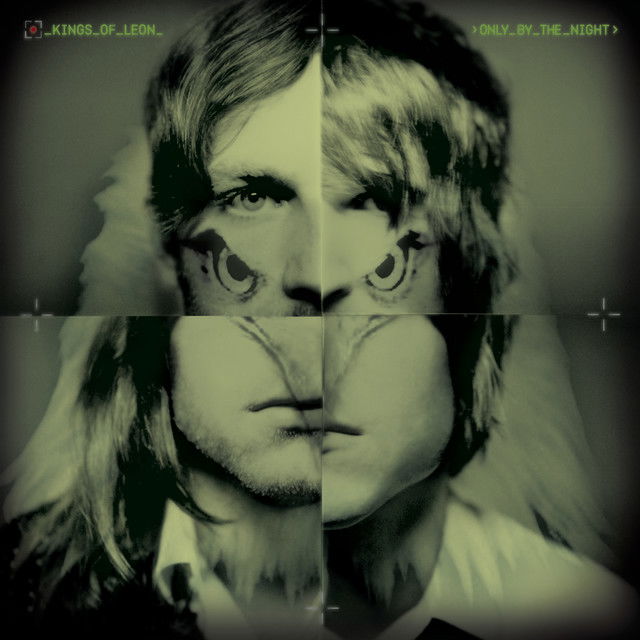
Tracks like 'Use Somebody' and 'Revelry' showcased a more emotional, introspective side of the band, highlighting their versatility in layering atmospheric textures over sing-along melodies. Even the moody opener 'Closer', with its haunting bass line and reverb-heavy vocals, hinted at a band deliberately stepping away from their earlier rawness to create something more cinematic.
This evolution brought them massive mainstream success, catapulting Kings of Leon to global stardom. But it also alienated some longtime fans and indie purists. Johnny Borrell of Razorlight famously called 'Sex on Fire' "the apex, death, and afterlife of landfill indie all in one go." 'Landfill indie' refers to a specific era of indie music that was characterised by a lack of originality and a focus on commercial success, a trend that 'Sex on Fire' seemed to epitomise for some critics.
2009 would also see Arctic Monkeys leave the UK and step into the desert, literally and figuratively, to record their third album, 'Humbug'. Recruiting Josh Homme of Queens of the Stone Age to sit in the producer’s chair alongside James Ford, the band crafted an album that was a bold departure from their earlier work. Gone were the rapid-fire lyrics, kitchen-sink realism, and frantic guitar riffs of 'Whatever People Say I Am, That's What I'm Not' and 'Favourite Worst Nightmare'. Instead, 'Humbug' introduced a darker, slower-burning, and more psychedelic sound that caught many fans and critics off guard.
To the shock of many, 'Humbug' would become the most critical album the band ever made. As NME put it, "No longer were they just the biggest fish in the indie pond, they were rock stars." The record marked the moment Arctic Monkeys outgrew the post-Libertines lad-rock scene and began carving out their own unique musical identity.
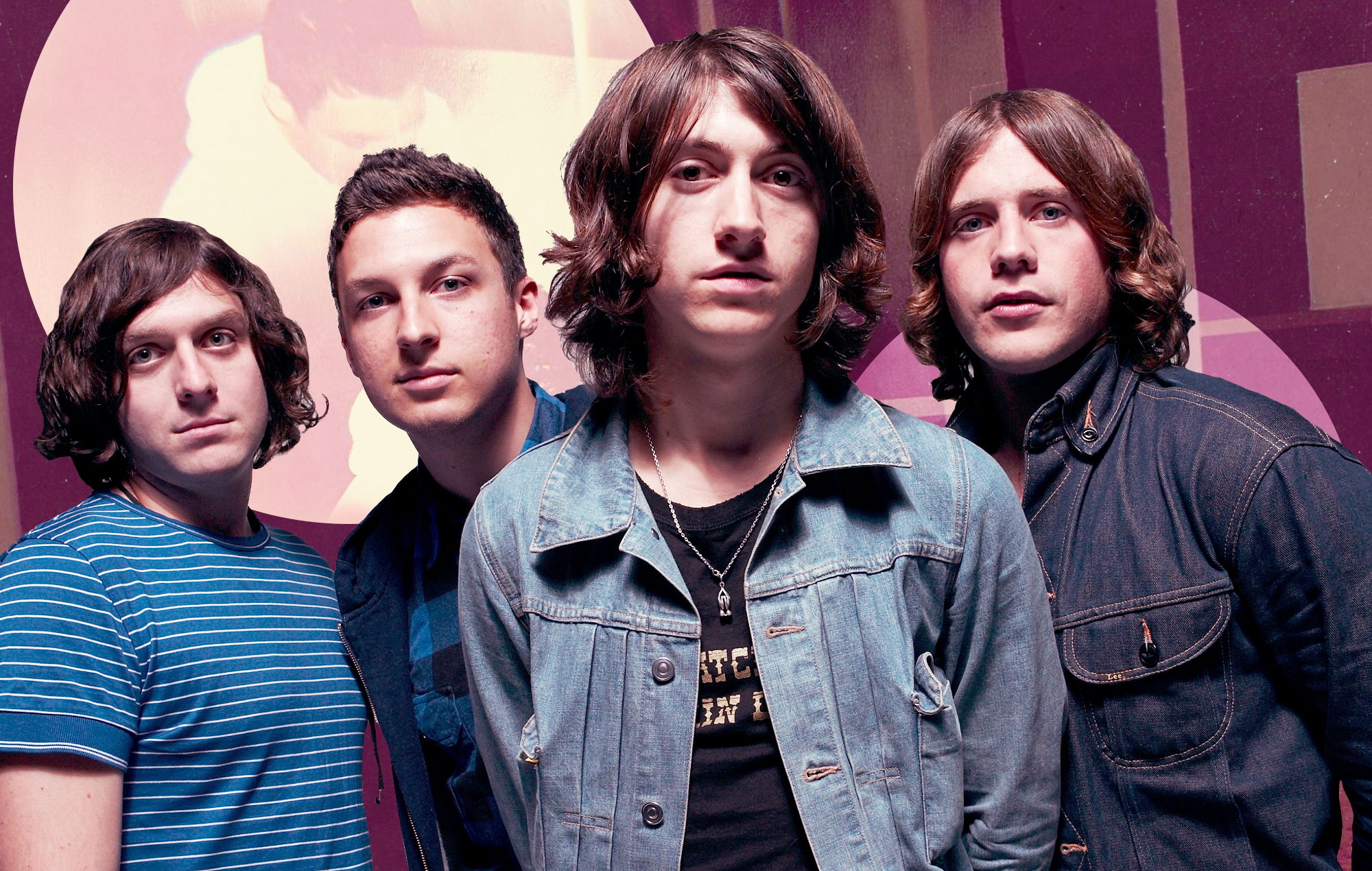
Musically, 'Humbug' was full of brooding tones, desert-rock textures, and haunting guitar work; tracks like 'Dance Little Liar' and 'Pretty Visitors' dripped with menace and mystique. The influence of Josh Homme is especially evident in the album's mood and weight. Yet it was also a moment of immense growth for Alex Turner as a songwriter. Lyrically, 'Humbug' is among the band’s richest and most poetic. Songs like 'Secret Door', 'Crying Lightning', and the beautifully off-kilter 'Cornerstone' showcase Turner at his surreal, narrative-driven best.
'Humbug' proved to be a crucial turning point. The album became the catalyst for Arctic Monkeys' evolution throughout the 2010s, paving the way for the suave, swaggering rock of 'AM' and the conceptual, lounge-laden world of 'Tranquillity Base Hotel & Casino'.
The Killers released 'Day & Age' in 2009, an album that saw them take into consideration everything they had done before, as well as all of their influences. Produced by Stuart Price (known for his work with Madonna and New Order), the album leaned heavily into electronic textures, rhythmic experimentation, and surreal lyrical themes, marking yet another reinvention for the band.
At the centre of the record was the lead single 'Human', a track that perfectly captured the album’s ethos: existential, enigmatic, and danceable. Built around a pulsating synth line, soaring chorus, and a now-infamous lyrical hook, “Are we human, or are we dancer?” the song became both a massive hit and a source of endless debate. The phrase, inspired by a Hunter S. Thompson quote (“America is raising a generation of dancers”), mystified listeners and critics alike. But beneath its cryptic wording lay a deeper question about identity, conformity, and what it means to truly live.
Among the bold sonic experiments of 'Day & Age', one track stood out for its emotional weight and storytelling depth: 'A Dustland Fairytale'. While much of the album was defined by glittering synths, dance beats, and surreal lyricism, this song felt like a spiritual callback to the heartland storytelling of 'Sam’s Town'. Still, it filtered through a more dreamlike, reflective lens.
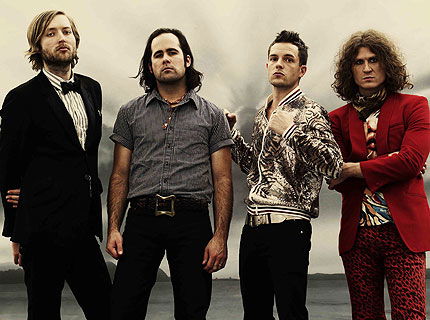
'A Dustland Fairytale' is one of Brandon Flowers' most personal and poignant compositions. Written about his parents, particularly his mother's battle with cancer, the song weaves autobiography into myth, blending real-life tragedy with fable-like imagery. Characters like "Cinderella" and "the Devil" symbolise innocence, hardship, and the complex beauty of long-term love. It's a tale of youth, devotion, and quiet heroism, ordinary people made epic through the lens of memory and imagination.
Critics were mixed on the record, but fans seemed to lap up the songs. The songs on this record, 'Human', 'Spaceman', and 'A Dustland Fairytale', have become mainstays in the setlist and some of the band's most loved songs. The band were and still aren't afraid to stand still, and there's something to admire in that.
Florence & the Machine burst onto the scene in 2009 with 'Lungs', a debut album that quickly established Florence Welch as one of the most compelling new voices in British music. Picking up where Amy Winehouse had left off with 'Back to Black', Lungs combined raw emotional power with theatrical, sweeping arrangements that felt both timeless and fresh. The album is a brilliant collection of songs, featuring standout tracks like the euphoric 'Dog Days Are Over', the soulful, soaring cover of 'You Got the Love', and the urgent, anthem-like 'Rabbit Heart (Raise It Up)'. Across the record, Florence's voice soars with a unique blend of vulnerability and strength, channelling the daring artistry of icons like Kate Bush and the pop sophistication of Annie Lennox, all while carving out her own distinct identity.
But 'Lungs' is more than just a pop record; it's a dramatic, almost cinematic journey through themes of love, pain, redemption, and self-discovery, wrapped in lush instrumentation that ranges from harps and tribal drums to crashing percussion and haunting strings. The production amplifies Florence's larger-than-life presence, creating an atmosphere that's both intimate and epic.

The album’s impact was immediate and lasting, earning critical acclaim and commercial success, and marking Florence & the Machine as a defining act of the 2010s. It’s a debut that not only captured the spirit of its time but also set the stage for Florence’s continued evolution as an artist unafraid to push boundaries. And rest assured, this is far from the last you’ll hear of Florence Welch; her voice and vision would continue to shape the musical landscape for years to come, inspiring awe and admiration in all who hear her.
The year 2009 was a peculiar and pivotal one for Britpop. This genre had dominated the 90s but was fading into history by the new decade. Blur, one of the scene’s flagship bands, had effectively disbanded six years earlier after the release of 'Think Tank' in 2003 and the departure of their iconic guitarist Graham Coxon. While 'Think Tank' was by no means a poor album, Coxon’s absence was deeply felt; his distinctive guitar work and chemistry with Damon Albarn had always been a crucial part of Blur’s sound. Following the split, the band members scattered into different creative directions: Damon Albarn dove headfirst into the eclectic worlds of Gorillaz and The Good, The Bad & The Queen; Coxon embarked on a solo career that showcased his versatility and depth; bassist Alex James swapped the music scene for the countryside, becoming a farmer; and drummer Dave Rowntree turned his attention to politics.
So imagine the shock and excitement in 2009 when the announcement came: Blur was reuniting, with Graham Coxon back in the fold. The band was set to headline the prestigious Glastonbury Festival and play a series of massive gigs in London’s Hyde Park. For fans who had watched the band drift apart during the early 2000s, this news felt almost too good to be true. Long-standing tensions that had once fractured the group, particularly between Albarn and Coxon, appeared to have thawed, and the original lineup was finally back together, ready to reclaim their place in the spotlight.
The Hyde Park shows were a triumphant return, drawing thousands of fans who sang along passionately to classics like ‘Girls & Boys’, ‘Song 2’, ‘Parklife’, and ‘This Is a Low’. But it was more than just a greatest hits set; the band sounded tighter, more focused, and emotionally charged in a way that suggested they still had stories left to tell. There was a palpable sense of reinvigoration. Blur was not just revisiting the past but reigniting their creative spark, and the audience was right there with them, feeling every note and lyric.
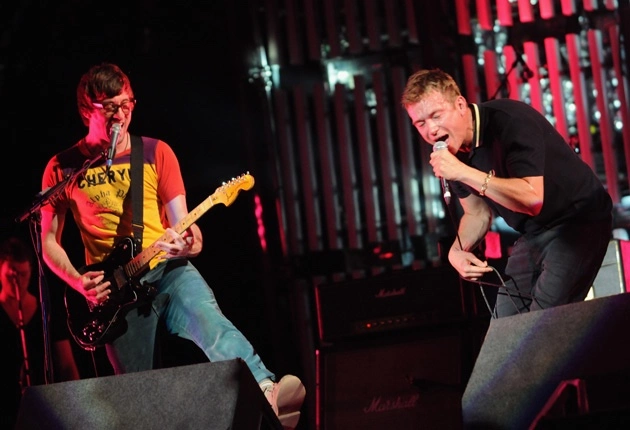
Their Glastonbury headline performance was equally iconic, closing the festival with a raw and deeply emotional set. During the haunting rendition of ‘Tender’, Damon Albarn was visibly moved to tears, a moment that resonated deeply with both the audience and critics alike. It was a powerful reminder of the emotional depth behind Blur’s catalogue and underscored that their reunion was more than a nostalgic cash-in; it was a genuine reconnection, fuelled by passion and mutual respect. Blur had returned not just to perform, but to heal old wounds and prove that their music and their bond still mattered.
Meanwhile, Oasis were still plodding along. After dominating the 90s Britpop scene, the band faced the challenge of maintaining relevance in a musical landscape that was rapidly evolving. The early 2000s saw Oasis releasing a string of albums that attempted to keep their signature flame alive, but with diminishing returns. Their 2000 album, 'Standing on the Shoulder of Giants', marked a significant turning point. It was the band’s first record without founding members Paul “Bonehead” Arthurs and Paul “Guigsy” McGuigan, whose departures left a noticeable void in the band’s dynamic. Musically, the album ventured into more experimental territory, embracing psychedelic textures and electronic flourishes that were a departure from their previous straightforward rock sound. While the brooding single ‘Go Let It Out’ provided a glimpse of their old swagger, the album as a whole received mixed reviews. Critics and fans alike noted that it lacked the raw energy and anthem-like confidence that had defined Oasis’s peak years, leaving many feeling that the band was struggling to find its new identity.
In 2002, 'Heathen Chemistry' followed, and with it came a conscious effort to return to the roots of the classic Oasis sound. This album felt like a reset, a back-to-basics approach that focused on tight, guitar-driven rock songs designed to reignite the spark of their earlier work. Tracks like ‘Little By Little’ and ‘Stop Crying Your Heart Out’ became instant crowd favourites, both achieving Top 10 status in the UK charts and reinforcing Oasis’s knack for crafting emotionally resonant, singalong anthems. Notably, Heathen Chemistry also marked a subtle shift in band dynamics, with Liam Gallagher stepping up as a songwriter and contributing more than on previous records. This diversification added new textures and perspectives, but while the album was solid, it didn’t quite recapture the full magic or cultural impact of their 90s heyday.
Then came 'Don't Believe the Truth' in 2005, widely regarded by many critics and fans as a welcome return to form for the band. This record felt more cohesive, with songwriting contributions spread more evenly across the band, including Gem Archer and Andy Bell, adding fresh energy and ideas. The album delivered memorable hits like ‘Lyla’ and ‘The Importance of Being Idle’, both of which soared to Number One on the charts and reminded listeners of Oasis’s unparalleled ability to write massive, hook-laden rock anthems that could fill stadiums. Beyond the bombast, songs like ‘Let There Be Love’ revealed a more introspective and softer side to the band, showing growth and maturity in their sound. For a moment, it seemed Oasis might reclaim their spot at the forefront of British rock.
However, despite these flashes of brilliance, they were no longer the same band they had been in the 90s. The Britpop wave that had catapulted Oasis to global superstardom had long since crested and receded. With musical tastes shifting toward indie rock, garage revival, and electronic-infused genres, Oasis increasingly felt like relics of a bygone era. The internal turmoil that had plagued the band throughout their career was now impossible to ignore, exacerbated by a revolving door of band members, particularly drummers. While replacements like Gem Archer and Andy Bell were technically accomplished musicians, the intangible chemistry that had fuelled Oasis’s explosive rise was fading. The raw, chaotic energy that Noel and Liam’s brotherly rivalry once ignited was now more of a powder keg waiting to blow, and the magic that had once been effortless was growing harder to summon.
Their final studio album, 'Dig Out Your Soul', released in 2008, saw Oasis embracing a heavier, more psychedelic rock sound reminiscent of classic late-60s and early-70s influences. Tracks like ‘The Shock of the Lightning’ had muscular riffs and an urgency that suggested the band still had fire in their belly. However, the album suffered from a lack of cohesion, with sprawling jams and experimental stretches that didn’t always land with listeners or critics. More tellingly, by this point, the growing tensions between Noel and Liam Gallagher had reached a breaking point, making it difficult for the band to function as a unified creative force. The world tour that followed was marred by public spats and backstage conflicts, culminating in the inevitable implosion of the band. Dig Out Your Soul stands as a testament to Oasis’s enduring ambition, but also as the swan song of a band unravelling under the weight of its own contradictions.
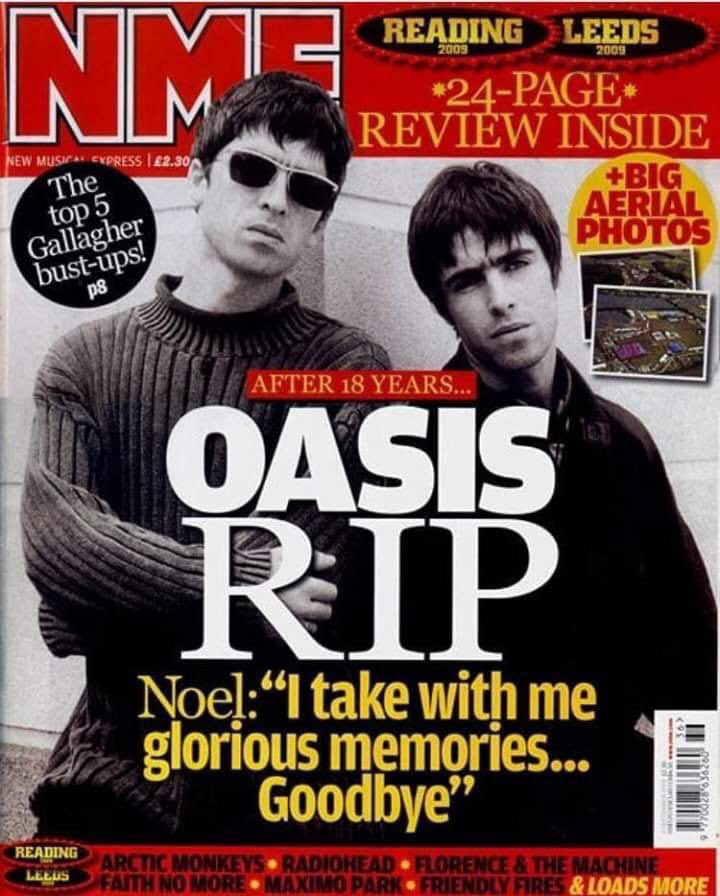
It all came to a dramatic and bitter end on August 28th, 2009, in the heart of Paris. The city, often dubbed the “City of Love,” ironically became the backdrop for one of the most infamous collapses in rock history. Tensions between Noel and Liam Gallagher, long simmering beneath the surface, finally boiled over backstage in a chaotic and surreal altercation. Reports speak of a smashed guitar, flying objects, including bizarrely a plum and heated words exchanged in a volatile atmosphere.
That night, Noel made the irrevocable decision to walk away from Oasis for good. What had once been a band capable of defining a generation, packing out legendary venues like Knebworth with effortless ease, was no more. The breakup marked the end of an era. Oasis, with all its triumphs and tumult, was finished, leaving behind a legacy both monumental and deeply complicated.
So that brings the 00s to an end. Blur were back, Oasis were gone. Coldplay were ruling the world, Arctic Monkeys were huge yet divisive, and Florence and Amy were ready to take on the world. Every major UK city had a band. Who knew what was going to happen next?
What You Know. The 10s Part 1
The 2010s were quite the decade for the UK, with everything from London 2012 to Brexit. It was a decade of highs and lows. The world would also lose some musical icons in this decade, but more on that later.
In the early stages of the decade, Britain was experiencing turmoil. A coalition government was in power, and rioting was sparked in 2011. This is one of the first news stories I remember; it was quite a hostile time. The unrest highlighted deep social and economic divisions that had been simmering beneath the surface for years. Entire communities were left grappling with questions about opportunity, inequality, and representation. Against this backdrop, the British public turned to cultural moments for unity, the spectacle of the London 2012 Olympic Games, which temporarily lifted the national mood and projected an image of optimism to the world.
Yet even as Britain celebrated sporting triumphs and cultural milestones, there was an undercurrent of uncertainty. Political debates over austerity measures, immigration, and the country’s place in the European Union set the stage for the historic Brexit referendum in 2016. By the end of the decade, the nation had experienced both unprecedented global attention and deep internal division, and these tensions would inevitably echo through its music, art, and cultural expression.
Music was going through a weird time, too, especially guitar music.
Of course, it was still present, and some of the old guard were still around.
In 2011, Arctic Monkeys unveiled their fourth album, 'Suck It & See', a record that marked a significant shift from the shadowy, brooding textures of 'Humbug'. This new creation was warmer, more confident, and far more refined. It was a moment of clarity, less experimental perhaps, but more focused, more melodically assured, and undeniably more fun in places. The breezy charm of the album was a delightful surprise, a testament to the band's evolution without sacrificing depth or intelligence.
Controversial opinion here: this album is my personal favourite by the band. There's something timeless about it, a certain balance between swagger and vulnerability that hits just right. Alex Turner's lyrics on this record are some of the best he has ever written, witty, wistful, and wrapped in a romanticism that's both sincere and slightly tongue-in-cheek.
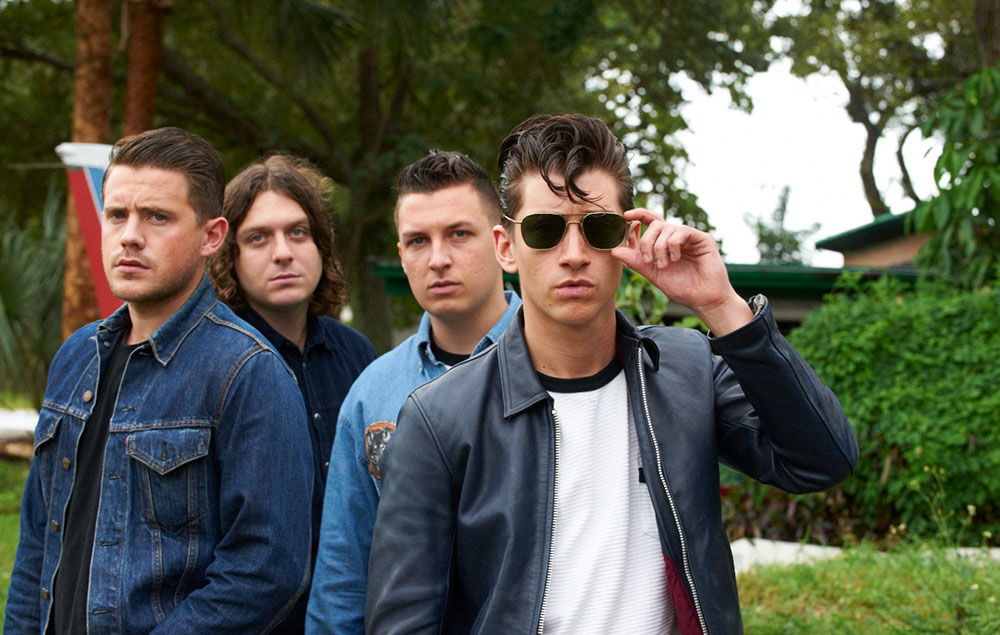
Tracks like 'Reckless Serenade' and 'Love Is a Laserquest' are perfect examples of this lyrical sweet spot, Turner’s poetic sensibilities on full display, mixing kitchen-sink realism with aching introspection. 'The Hellcat Spangled Shalalala' walks the line between cryptic and carefree, its title alone a testament to the band’s playful surrealism. And then there’s 'That’s Where You’re Wrong', the album’s closer, which drifts away in a dreamy haze of chiming guitars and melancholic grace, a gentle goodbye that lingers long after the final note.
One of the album’s most memorable and enigmatic moments comes early on with 'Don't Sit Down 'Cause I've Moved Your Chair', a track that channels the darker energy of 'Humbug' but filters it through a more playful, absurdist lens. The song, delivered with a knowing sneer, feels like a tongue-in-cheek ode to danger, mischief, and warped British humour. Turner’s lyrics read like a list of surreal, half-serious warnings, imbuing the track with a kind of strange charisma that’s hard to pin down. It’s gritty and swaggering, yet still self-aware, serving as a perfect bridge between the darker experimentation of the past and the more melodic sensibilities of the rest of the record. While the album as a whole leans toward romance and reflection, 'Don't Sit Down…' is a playful reminder that Arctic Monkeys never lost their edge or their sense of humour.
There’s a romantic, almost cinematic quality that runs through the entire record, not just in the lyrics, but in its overall atmosphere. The production is lush yet restrained, nostalgic without ever sounding retro or derivative. It’s an album that embraces emotion without slipping into melodrama, and shows a band entirely comfortable in their own skin, less concerned with being cool, and more interested in crafting something beautiful. In hindsight, 'Suck It & See' may be one of the most underrated moments in Arctic Monkeys’ discography. Still, for me, it’s their most complete and quietly brilliant work.
Foals would release a second album right at the beginning of the decade, 'Total Life Forever' in 2010, following on from their debut 'Antidotes' which had arrived in 2008. It saw the band shift in sound, always challenging themselves to make something different. Foals sounded like no other band, and this was a trend they would keep up throughout the decade. They were here to stay.
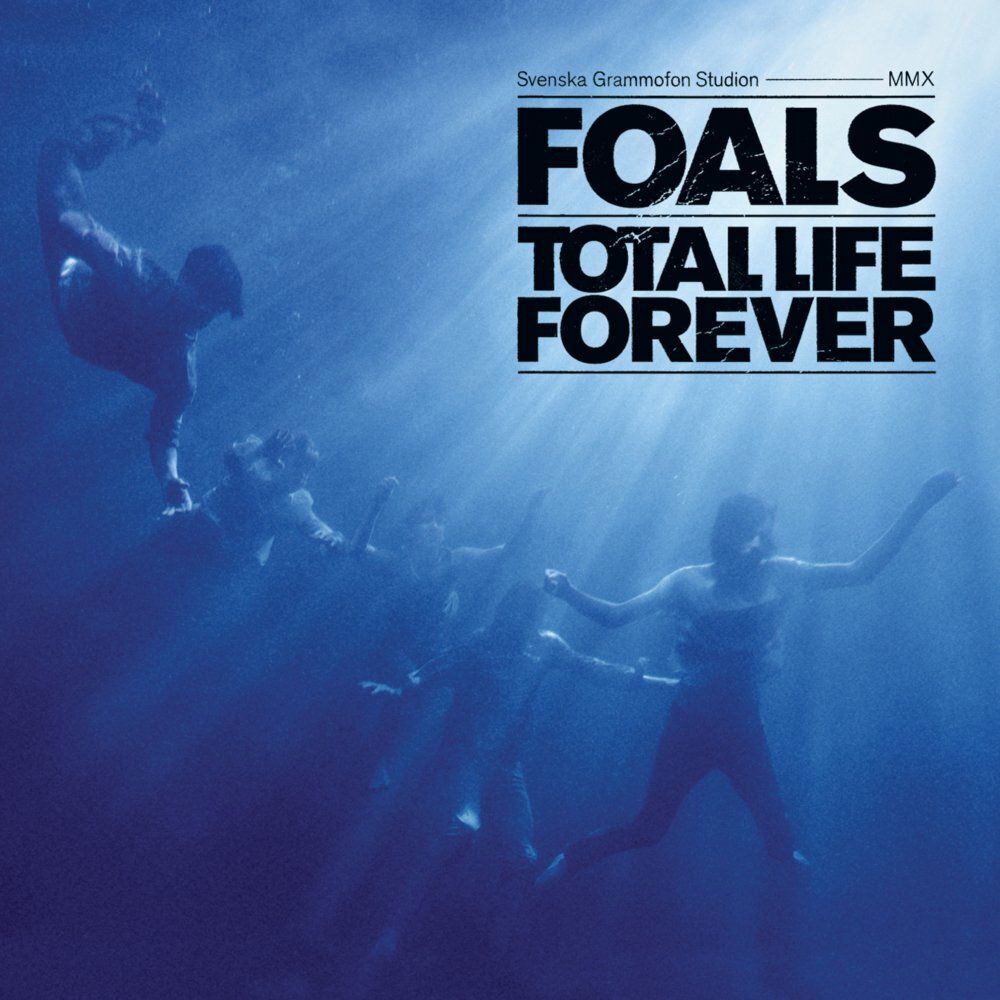
With 'Total Life Forever', Foals moved away from the jittery math-rock of their debut. They embraced a more expansive, atmospheric sound. Tracks like 'Spanish Sahara' showcased their ability to build emotional intensity through slow-burning arrangements and haunting melodies. At the same time, songs like 'Blue Blood' and 'This Orient' proved they could still deliver tight, inventive rhythms. The album marked a creative leap forward and earned them a Mercury Prize nomination, cementing their reputation as one of the UK's most exciting and forward-thinking bands.
Kasabian, riding high on the successes of 'West Ryder Pauper Lunatic Asylum' and the singles 'Underdog' and 'Fire,' released 'Velociraptor' with a boldness that intrigued their fans. The album, featuring the singles 'Days Are Forgotten,' 'Goodbye Kiss,' and 'Switchblade Smiles,' Was a testament to the band's confidence and their willingness to experiment. They combined rock riffs with danceable synths, a daring move that paid off. This album, along with the band's previous record, would propel them up the charts and onto higher and higher festival bills. Arenas, too, were calling their name, and they wouldn't look back.
In 2010, Gorillaz returned with 'Plastic Beach', a vibrant, ambitious concept album that painted a surreal, synthetic vision of a polluted paradise. It was a record deeply rooted in environmental concerns, consumerism, and digital alienation, all delivered through a kaleidoscope of genres. With 'Plastic Beach', Damon Albarn expanded the Gorillaz universe even further, impressively bringing in an eclectic cast of collaborators including Snoop Dogg, Lou Reed, Bobby Womack, De La Soul, Mos Def, and The Fall’s Mark E. Smith. The album blended orchestral grandeur with electronic textures, Middle Eastern flourishes, and funk-infused beats. Tracks like 'On Melancholy Hill', 'Stylo', and 'Empire Ants' showcased the emotional and sonic range Albarn was capable of, confirming Gorillaz as one of the most visionary projects in modern music.
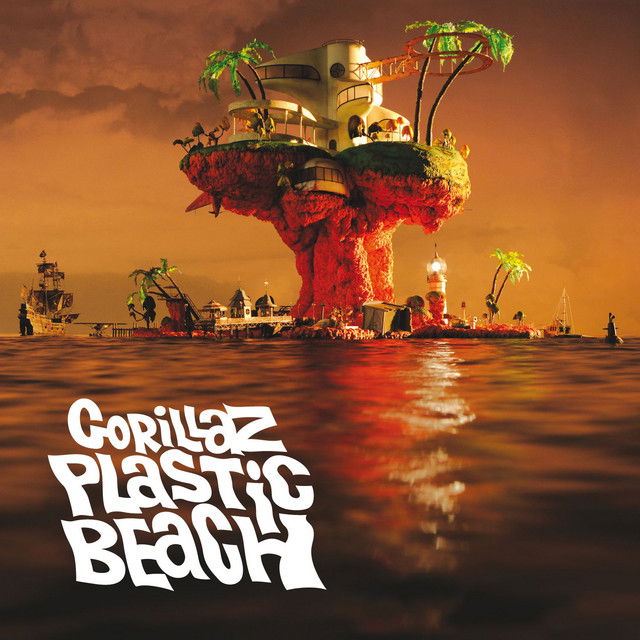
In a significant move, Albarn took Gorillaz to the Pyramid Stage at Glastonbury in the same year, headlining the iconic festival just one year after doing so with Blur in 2009. This bold decision underscored the contrast between his two iconic bands. The Gorillaz set, though less crowd-pleasing than Blur’s nostalgic sing-along the previous year, was a sprawling multimedia experience. It featured video backdrops, animations, and a rotating lineup of guest performers. Albarn, along with guest musicians, brought a live band that included an all-star lineup featuring former members of The Clash: Mick Jones and Paul Simonon.
Following the breakup of Oasis in 2009, both Noel and Liam Gallagher embarked on their own musical journeys. Noel was the first to return in 2011 with Noel Gallagher’s High Flying Birds, a self-titled debut that marked a confident and triumphant start to his solo career. The album, drawing from a blend of shelved Oasis-era material and fresh compositions, was a critical and commercial success, certified 2x Platinum in the UK. It served as a powerful reminder of Noel’s pivotal role in shaping the sound and spirit of the Britpop era.
Noel Gallagher's High Flying Birds was compelling due to its seamless balance between evolution and familiarity, a rare achievement for any artist emerging from the shadow of such a towering legacy. Tracks like ‘If I Had a Gun…’ and ‘(Stranded On) The Wrong Beach’ carried the melancholic grandeur, sweeping melodies, and lyrical introspection that long-time Oasis fans had come to cherish. These songs felt like natural continuations of Noel’s work in the late Oasis years, echoing the emotional weight of tracks like ‘Stop Crying Your Heart Out’ or ‘The Importance of Being Idle’, but with a more refined and mature touch. They showcased his ability to write songs that felt both intimate and expansive, personal yet stadium-ready.
Yet there was also a clear sense of forward motion woven throughout the album. Songs such as ‘AKA… What a Life!’ and ‘Dream On’ introduced a fresh sonic palette, incorporating piano-driven grooves, textured arrangements, and subtle electronic flourishes that hinted at a new artistic direction. The former, in particular, pulsed with a hypnotic, almost danceable rhythm that was worlds away from the strummed ballads and rock stompers of Oasis. These moments didn’t feel like departures for the sake of reinvention, but rather natural progressions of an artist unafraid to evolve, but careful not to alienate the core of what made his music resonate in the first place. By blending the familiar with the unexpected, Noel managed to both honour his past and chart a new creative path, setting the tone for the adventurous solo career that would follow.
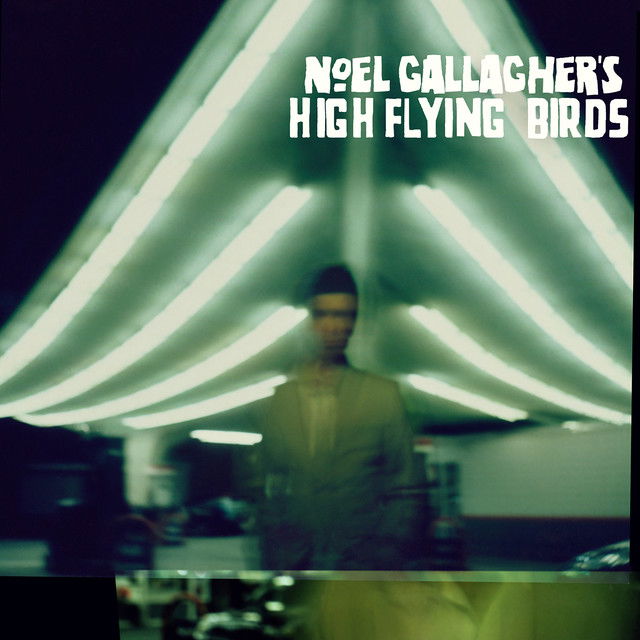
The debut proved that Noel didn’t need the Oasis name or his famously combative brother to write anthems or fill arenas. It was the start of a solo chapter defined by a delicate balancing act: innovating just enough to stay artistically fresh, while still delivering the emotional weight and melodic punch that defined his legacy. The boldest experimentation would come in later albums, but here, Noel laid a foundation rooted in both reinvention and reverence.
Liam's post-Oasis venture came in the form of a new band, Beady Eye. While it certainly had its moments, the project struggled to reach the towering heights of his former group. Joined by fellow ex-Oasis members Chris Sharrock, Andy Bell, and Gem Archer, the band had pedigree but lacked a central songwriting figure like Noel. Instead, the writing duties were shared around, which made for a less cohesive sound but one that still produced flashes of brilliance.
Their debut album, 'Different Gear, Still Speeding', was raw and energetic, clearly aiming to recapture the spirit of early Oasis while updating it for a new decade. Tracks like ‘Four Letter Word’ and ‘The Roller’ hinted at what could have been, while deeper cuts such as ‘Kill for a Dream’ and ‘The Beat Goes On’ showed a more introspective, melodic side. ‘The Beat Goes On’ in particular stood out for its wistful tone and dreamy 60s feel, complete with a nod to Pink Floyd’s The Dark Side of the Moon. It was clear that Liam hadn’t lost his voice or presence; what was missing was the sharp songwriting focus that made Oasis records so compelling.
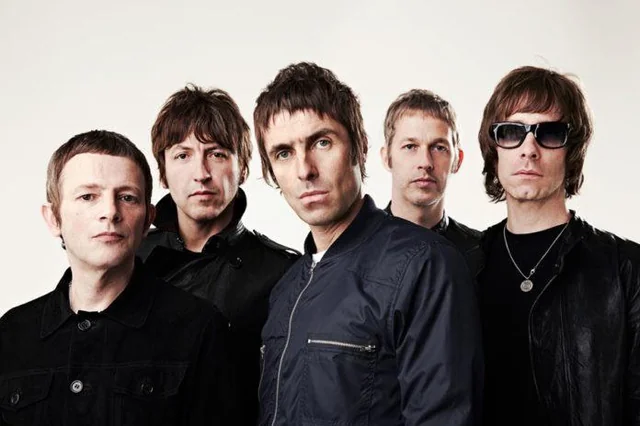
Their second album, 'BE', boldly ventured into experimental territory under the guidance of Dave Sitek from TV on the Radio. Tracks like ‘Flick of the Finger’ and ‘Soul Love’ unveiled a band daring to forge a unique identity, delving into unexplored textures and sonic concepts. ‘Flick of the Finger,’ with its revolutionary spoken-word outro and daring horns, stood out as a pinnacle of Beady Eye’s audacious creativity.
Despite these creative efforts, Beady Eye never quite captured the imagination of the wider public. Commercial performance was modest, and by 2014, the band had quietly disbanded.
Kings of Leon unveiled 'Come Around Sundown' in 2010, a record that signalled a stylistic departure from the raw, garage-rock bite of their early days, often referred to as the “Southern Strokes” era, towards a more expansive, atmospheric sound. Following the monumental success of 2008’s 'Only by the Night', which propelled them into global stadium status with hits like 'Sex on Fire' and 'Use Somebody', the band was no longer just an indie favourite; they were determined to become one of the biggest rock bands in the world. 'Come Around Sundown' was both a continuation and a recalibration, sonically rich, emotionally intricate, and more textured than anything they’d done before.
This album features some of the most underrated and sophisticated work of their career. 'Radioactive', the lead single, blends gospel-tinged backing vocals with an instantly infectious riff, capturing both the band's Southern heritage and their evolving arena-ready sound. Its celebratory tone and soaring chorus made it an immediate standout. Meanwhile, 'Pyro' is one of the album’s deepest cuts, lyrically introspective and musically restrained, it showcases Caleb Followill’s ability to craft haunting narratives about inner conflict and disillusionment, wrapped in a slow-burning build of guitar and emotion.
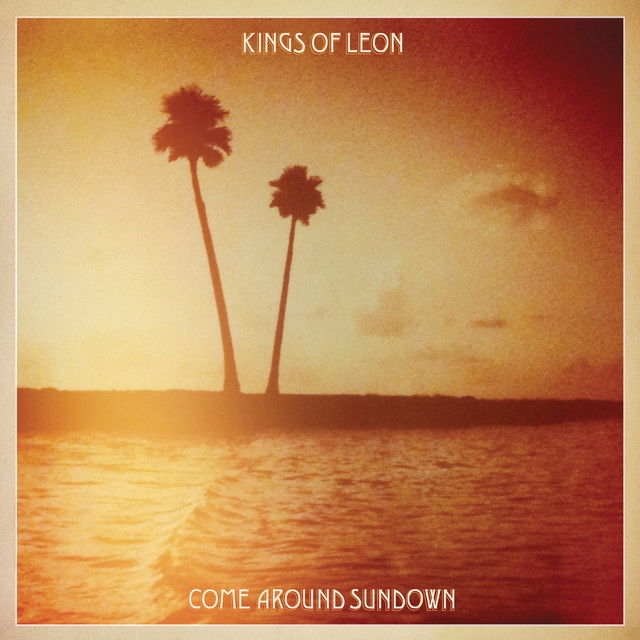
While 'Come Around Sundown' didn’t quite receive the critical acclaim or chart-topping dominance of its predecessor, it was a more nuanced and mature record, subtle where 'Only by the Night' was explosive. It showed a band grappling with their newfound fame, experimenting with space and sound, and refusing to remake the album that made them stars.
Foster the People would release 'Pumped Up Kicks' in 2011, which would give them a rather unlikely hit. A catchy sing-along pop song about a school shooting, it juxtaposed its dark, unsettling lyrics with an upbeat, almost carefree melody. The track became a cultural phenomenon, topping charts worldwide and sparking countless debates about its subject matter.
The Killers would return with 'Battle Born'. This marked a new chapter for the band. A reflective, emotionally charged record that embraced vulnerability, resilience, and the vast American landscape both sonically and thematically. The album took its name from the motto on the Nevada state flag, a tribute to the band's roots in Las Vegas and their identity as fighters forged in the desert. After the grand experimentation of 'Day & Age', 'Battle Born' found the band returning to more grounded, guitar-driven rock but with the polish and emotional depth of a band that had now seen nearly a decade of international fame, pressure, and personal transformation.
It did garner the same levels of success as the band's first three albums. However, it still gave fans 'Miss Atomic Bomb', 'Runaways' and 'The Way it Was'. Harking back to the storytelling of 'Sam's Town' and with the Springsteen-esque narrative songwriting, this record still has some great songs on it.
Following the success of their debut, The Wombats returned in 2011 with 'This Modern Glitch', a more synth-heavy, polished affair that still retained their signature wit. Singles like 'Tokyo (Vampires & Wolves)' and 'Jump Into the Fog' signalled a maturing sound, exploring themes of anxiety, identity, and escapism while still being incredibly danceable. The album balanced darkness with playfulness, and tracks like 'Techno Fan' and '1996' captured a sense of youthful nostalgia and uncertainty about the future. Their third album, 'Glitterbug', further pushed into pop territory with tracks like 'Greek Tragedy' becoming fan favourites and finding new life years later thanks to viral success on platforms like TikTok. The album showed the band fully embracing big synths, festival-ready choruses, and introspective lyrics, solidifying their ability to evolve with the times without losing their core identity. With 'Glitterbug', The Wombats proved they weren’t just a flash-in-the-pan indie act from the late 2000s; they were here to stay, adapting their sound while still speaking to the chaos and confusion of growing up.
Tame Impala would release 'Lonerism' in 2012, an album that looked back to The Beatles' psychedelic era, particularly drawing inspiration from ‘Tomorrow Never Knows.’ Using that song as a blueprint, Kevin Parker would craft an album about isolation and loneliness. Ironically, Lonerism would be the album that launched Tame Impala to the world, with songs like ‘Elephant’ and ‘Feels Like We Only Go Backwards’ becoming two of the most essential rock songs of the decade. Lonerism is a classic album, and it’s not even Tame Impala’s best. That was still to come.
What made 'Lonerism' so special wasn’t just its retro flair or lush, synth-drenched production; it was Parker’s ability to turn introversion into something widescreen and universal. Tracks like ‘Mind Mischief’, ‘Music to Walk Home By’, and ‘Why Won’t They Talk to Me?’ took the internal monologue of a loner and made it feel cinematic. The album flowed like one continuous dream, bending genres with ease: psych-rock, synth-pop, prog, and even hints of French electronic music à la Air and Daft Punk.
And at the centre of it all was Kevin Parker, the solitary genius meticulously building a world from his bedroom studio. 'Lonerism' managed to sound both expansive and deeply personal, its themes of disconnection and yearning amplified by swirling melodies and walls of fuzzed-out sound. It was the soundtrack to a generation who were learning to live more online than in real life, solitary, introspective, but still searching for beauty.
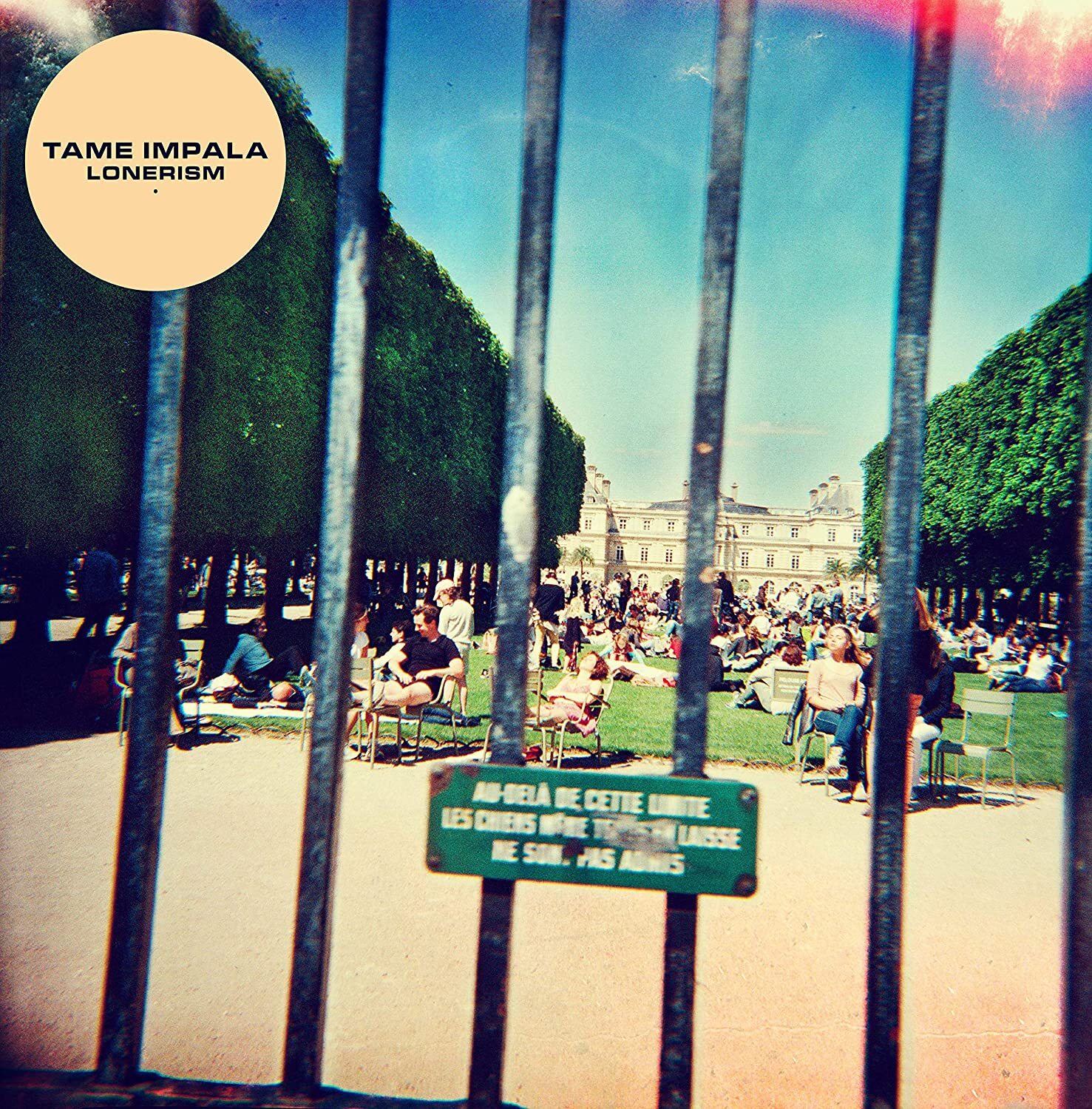
The acclaim wasn’t just critical either. The album broke through to the mainstream in a way that few psychedelic records had in years. Its influence spread far beyond rock circles, with artists from Rihanna to Travis Scott citing Parker’s sound as a major inspiration. Lonerism didn’t just revive psychedelia; it redefined what modern rock could be.
It was a major step forward not only for Tame Impala but for alternative music itself. And, remarkably, Kevin Parker was just getting started.
Two Door Cinema Club burst onto the scene in 2010 with' Tourist History', a debut album that would go on to define a generation of indie fans and soundtrack countless nights in sticky-floored clubs. From the jangly urgency of ‘Undercover Martyn’ to the euphoric crescendo of ‘What You Know’, the album was a masterclass in danceable indie-pop. Blending post-punk guitar riffs with crisp, electronic production, the band carved out a sound that was distinctly theirs, upbeat, bright, and impossible not to move to.
Almost every track feels like a single, a rare feat that helped cement the band as festival regulars across the globe. ‘Something Good Can Work’ and ‘This Is the Life’ in particular felt tailor-made for summer stages and late-night sing-alongs. Tourist History didn’t just launch Two Door Cinema Club into the spotlight; it became a cornerstone of early 2010s indie music, capturing the youthful optimism and sonic vibrancy of a scene that was rapidly evolving. It was the kind of album that made you fall in love with indie all over again and made you want to dance while doing it.
The following year, The Vaccines would deliver a different kind of energy with their 2011 debut, 'What Did You Expect from The Vaccines?'. Where Two Door leaned into polish and precision, The Vaccines offered urgency, attitude, and a no-frills approach that felt like a shot in the arm for British guitar music. The album was fast, fierce, and full of conviction, packed with short, punchy songs that didn’t waste a second.
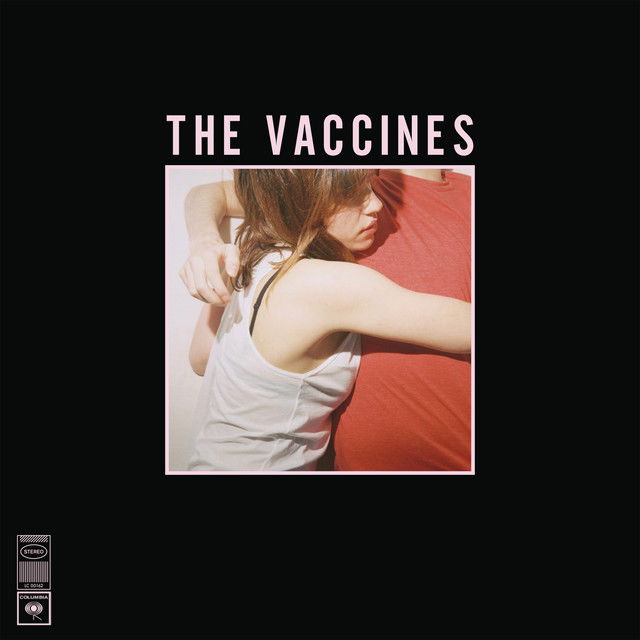
Tracks like ‘If You Wanna’, ‘Wreckin’ Bar (Ra Ra Ra)’, and ‘Post Break-Up Sex’ were instant anthems, built on choppy riffs and choruses meant to be shouted back at the stage. Their unique blend of humour, heartbreak, and a hint of swagger made them stand out from the crowd. As Clash Magazine put it in 2021, every track was “an intense celebration of what makes pop music so good.” The album didn’t set out to reinvent the wheel; it didn’t need to. It reminded listeners of the visceral thrill of a great pop song: something simple, something loud, something that hits you in the chest.
But what really made What Did You Expect from The Vaccines? so special was its timing. Arriving at a point when indie music had started to feel overly polished or self-serious, The Vaccines brought back a sense of urgency and fun. Songs like ‘Blow It Up’ and ‘Nørgaard’ felt ripped straight from a punk zine, barely two minutes long but bursting with life. Even the slower moments, like ‘All in White’, carried a weight that hinted at a deeper emotional core beneath the leather jackets and ripped jeans.
After nearly two decades of silence following their split in 1996, The Stone Roses shocked the music world in 2011 by announcing their highly anticipated reunion. This marked the beginning of a series of triumphant returns that reignited the band’s legendary status and reminded everyone why they were such a vital part of British music history. The emotional resonance of their reunion was palpable, connecting fans across generations and reigniting the passion for their music.
It was a debut that didn’t overthink, didn’t overstay, and didn’t overcomplicate. It delivered hit after hit with confidence and charm. For many, The Vaccines felt like the return of something. Their debut had a profound impact on the indie music scene, inspiring a new wave of artists and bringing back a sense of nostalgia for the raw, urgent sound of early indie.
The Stone Roses kicked off their reunion with a series of concerts that culminated in three sold-out shows at Heaton Park in Manchester in June 2012. These concerts, attended by over 220,000 fans, were more than just gigs; they were cultural events, emotional homecomings for both the band and their fans. The crowd, spanning generations, sang every word back as if no time had passed. The setlists were packed with beloved classics like ‘I Wanna Be Adored’, ‘She Bangs the Drums’, ‘Waterfall’, ‘Fools Gold’, and ‘This Is the One’. Each song felt like a celebration of the band’s legacy, delivered with a fire and tightness that many doubted they could still summon.
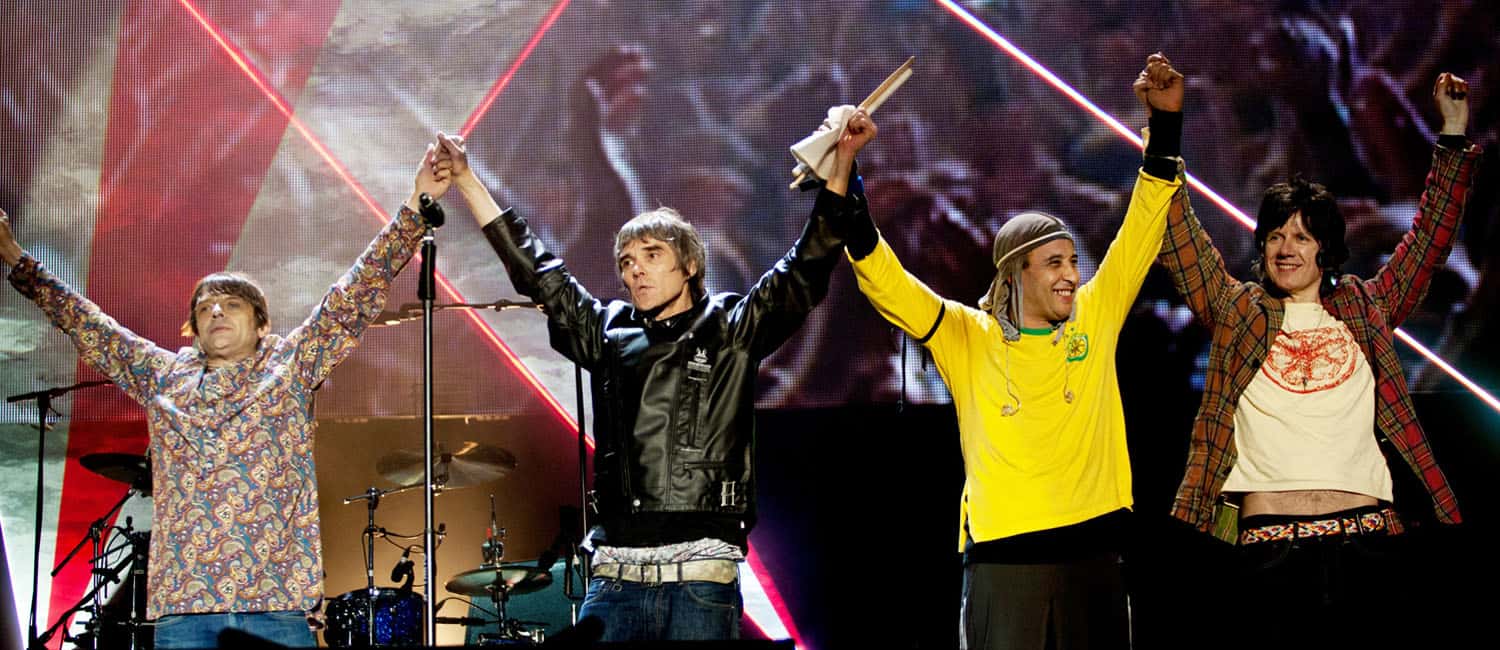
Heaton Park saw the band supported by a whole host of support bands, including Primal Scream, The Vaccines, and Beady Eye. The Manchester shows were not the only shows on that tour, though. Opening with an intimate gig in Warrington, the band played in Barcelona, Amsterdam, Hultsfred, Aarhus, Lyon, Dublin, Lisbon, Milan, before heading to Asia, playing in Singapore, Hong Kong, and many more.
The tour was not just about the band's performances, but also about the exciting collaborations that took place. The Isle of Wight and V Festival headlines were just the beginning. The tour culminated in huge shows at London's Finsbury Park and Glasgow Green, each with its own unique lineup of guest performers. Glasgow was treated to the likes of Primal Scream, Jake Bugg, and The View, while London was graced by Courteeners, Dizzee Rascal, Rudimental, Miles Kane, Public Image LTD, and Johnny Marr.
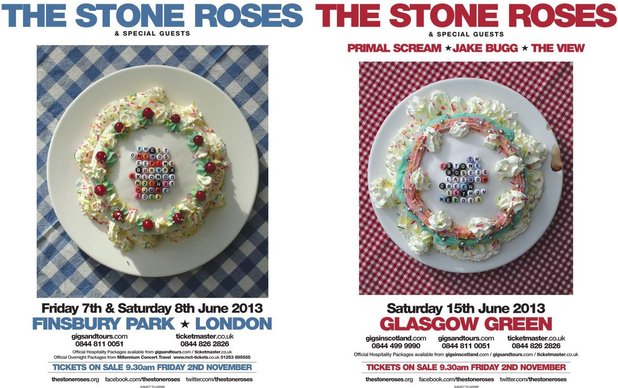
This isn't the last time we're hearing from Ian, John, Mani and Reni, though.
2011 would also see Britain lose one of its brightest musical sparks. Amy Winehouse tragically passed away at the age of 27, a shocking loss for both the music world and the public. Amy had the world at her feet, and her untimely death left a massive void in British music. Her death sent shockwaves through the industry, as many saw her as one of the last true, untamed talents of her generation. Despite her short career, Amy's influence continues to resonate, inspiring countless artists in various genres. Her passing highlighted the pressures of fame and the demons that often accompany it, especially for young artists thrust into the spotlight.
Amy’s music, raw, deeply personal, and timeless, became her legacy. 'Back to Black', released in 2006, is widely considered one of the greatest British albums of all time. Tracks like ‘Rehab’, ‘Love Is a Losing Game’, and ‘Tears Dry on Their Own’ blended soul, jazz, Motown and confessional songwriting in a way that hadn’t been done before or since. She brought vulnerability to the forefront and did so without artifice. Her voice, powerful and aching, felt like it carried generations of pain and beauty.
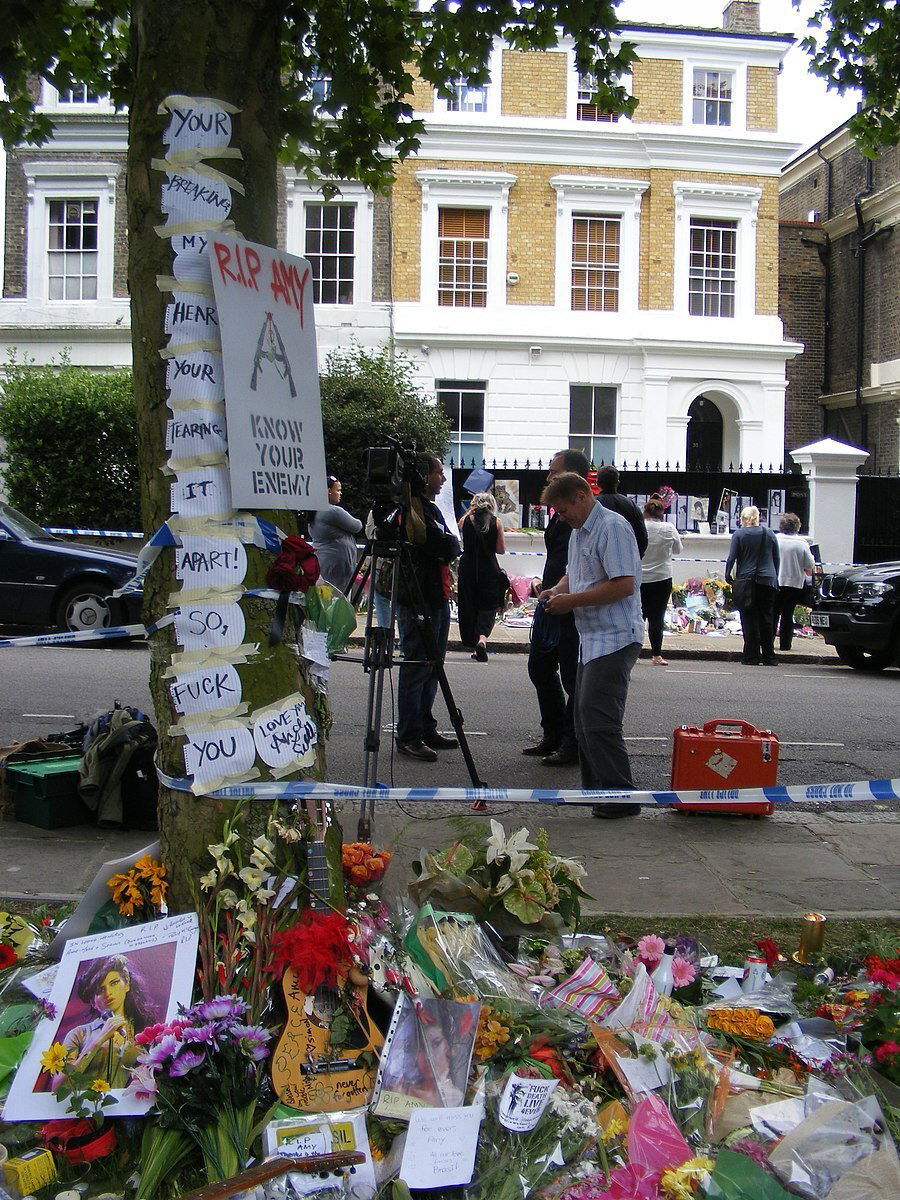
Even years after her death, Amy remains a reference point for authenticity in music. Artists like Adele, Billie Eilish, and Arlo Parks have all spoken about her influence. Tributes continue to pour in from across the world, not only honouring her sound but also the bravery with which she shared her story. In the wake of her passing, conversations around mental health, addiction, and the treatment of female artists by the media became more prominent conversations that her life and death helped to catalyse. Amy Winehouse may be gone, but her impact is indelible.
Something big is about to happen, though. A new rock revolution is about to begin.
R U Mine?- The 10s Part 2
2013 saw arguably the most important band of the decade release the most essential album of the decade. AM arrived in September, and with it came the definitive moment Arctic Monkeys stopped being "just a band" and truly became artists. Not a rock band. Not an indie band. Just artists. Think Bowie, The Beatles, Stevie Wonder, Bob Dylan, AM marked their arrival into that realm. It was an album that pulled from a broad palette of influences, the slick riffs of 70s hard rock, the lyrical tightness and attitude of 90s hip-hop, the velvet swagger of soul, and a cinematic polish that felt impossibly cool. It was the sound of a band reinventing itself, not out of desperation, but because they could.
None of it would have been possible without the transformative detour into the California desert during the Humbug era. This trip saw the band open their minds and horizons. But AM wasn't Humbug's darker sibling; it was something sleeker, sharper, and far more ambitious. Gone were the grimy streets of Sheffield and the pint-fuelled tales of the Northern night. In their place came nocturnal stories of obsession and allure, of after-hours loneliness and magnetic desire. AM was Arctic Monkeys in leather and sunglasses, cruising through LA in the dead of night, soundtracking a generation's growing pains with velvet riffs and whispered truths.
Their decision to headline Glastonbury's Pyramid Stage in June 2013, just two months before AM's release, was a bold move. They played three virtually brand new songs, 'Do I Wanna Know?', 'Mad Sounds' and 'R U Mine?' to a crowd of thousands and a television audience of millions. This audacious performance built anticipation and excitement for the album's release, leaving the audience eager for more.

But it wasn’t just the new material that made the performance unforgettable. They treated the crowd to a set that perfectly balanced evolution and nostalgia. There was a raucous, stripped-down version of ‘Mardy Bum’, performed acoustically, a quiet reminder of their Sheffield roots, and a rare festival moment of intimacy. ‘A Certain Romance’ brought the emotional climax, the song that arguably started it all, played like a love letter to the fans who’d been there since the beginning. And then there was ‘505’, performed with Miles Kane onstage, just as they had done in 2007.
They also tore through fan favourites like ‘Brianstorm’, ‘Dancing Shoes’, ‘Crying Lightning’, and ‘I Bet You Look Good on the Dancefloor’, each delivered with a new kind of swagger. Gone was the wiry, frenetic energy of their early gigs; this was a band in complete control, exuding style and confidence, with Turner’s greased-back hair and leather jacket cementing the aesthetic of the AM era. That night, they became the biggest band in the world.
'AM' didn’t just elevate Arctic Monkeys; it inspired a cultural shift. It brought guitar music back into the conversation during a time when pop, EDM, and hip-hop dominated the charts. It was an album that made rock relevant again without needing to shout about it. It quietly smouldered its way into teenage bedrooms, pre-drinks playlists, and late-night walks. For many of us, this was the first band that genuinely felt like ours, a group we discovered at the perfect moment, when music was starting to mean everything. They weren’t just soundtracking our youth; they were defining it.
The ripple effects of AM were enormous. Bands like Royal Blood, Catfish and the Bottlemen, and even The 1975 owe something to the doors that Arctic Monkeys kicked back open. They made guitar bands cool again. But more than that, they proved that reinvention was possible, that evolution was essential, and that British guitar music still had new stories to tell. The old guard hadn't gone away either.
Foals would continue to evolve with each subsequent release, refusing to stay in one place creatively. In 2013, they released 'Holy Fire', a breakthrough both commercially and artistically. It struck a powerful balance between danceable grooves and heavier rock textures. Lead single 'Inhaler' was a bruising, riff-heavy anthem that announced a more aggressive side to the band. At the same time, 'My Number' became one of their biggest hits. This euphoric, funk-driven indie banger filled dance floors and festival fields alike. The album also featured deeper cuts like 'Milk & Black Spiders', a slow-building, emotionally rich track that exemplified the band’s ability to craft atmosphere and grandeur without losing their edge. 'Holy Fire' cemented Foals' reputation as a top-tier live act and set the stage for even bolder work.
Then, in 2015, came 'What Went Down', perhaps their most intense and visceral album to date. The title track opened the album with a thunderous roar, showcasing frontman Yannis Philippakis’s raw vocal power and the band’s muscular instrumentation. But alongside the fury were moments of beauty and introspection, such as 'Mountain at My Gates', an explosive yet melodic anthem and 'Give It All', a slow-burning ballad full of ache and restraint. The album closed with 'A Knife in the Ocean', an emotional epic that unfolded with cinematic depth, layering Foals’ signature guitar textures over melancholic lyrics and a tidal wave of sound. The track remains one of their most powerful closers, showing their ability to balance the intimate with the expansive. 'What Went Down' saw Foals embracing a darker, more primal identity, pulling it off with complete confidence.
Following the success of 'AM', guitar music was undeniably back in the mainstream, and 2014 saw the emergence of two powerhouse debut albums that would shape the sound of rock for years to come. Royal Blood and Catfish and the Bottlemen both burst onto the scene, each in their own way reviving the spirit of guitar-driven music but with a modern twist.
Royal Blood took the riff-heavy foundation laid by AM and pushed it to its raw, primal limits. Where Arctic Monkeys leaned into swagger and groove, Royal Blood went straight for the jugular. Mike Kerr and Ben Thatcher, as a two-piece, created a colossal sound that felt almost impossible to believe came from just bass and drums. Their 2014 self-titled debut album was loud, bold, and unapologetically aggressive, a full-frontal assault of distorted bass riffs, thunderous drumming, and no-nonsense songwriting. It felt like rock music being stripped down to its bare essentials and then cranked to maximum volume.
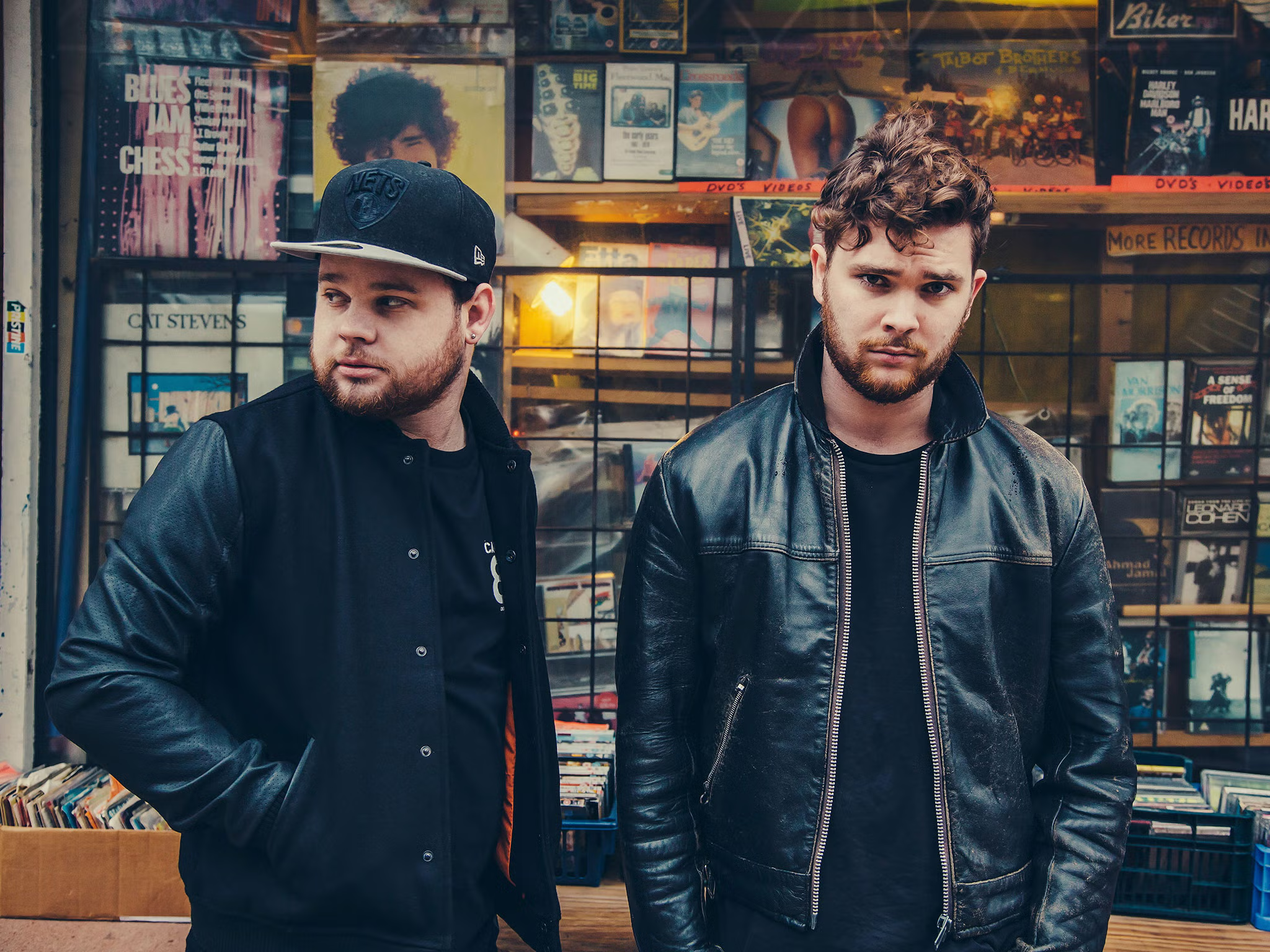
From the opening notes of ‘Out of the Black’, it was clear that Royal Blood weren’t interested in subtlety; they wanted to rattle your bones. The record charged through with relentless energy, barely letting up. ‘Little Monster’, ‘Figure It Out’, and ‘Come On Over’ became instant festival staples, their riffs tailor-made for massive crowds and raised fists. ‘Ten Tonne Skeleton’ in particular stood out, dark, brooding, and thunderous; it showed that the band could shift gears and build tension without losing their edge.
Despite the stripped-down setup, the band never felt limited. Kerr’s innovative bass rig allowed him to split his signal into both bass and guitar amps, giving their music the bite of a power trio even though there were only two of them onstage. And Ben Thatcher’s drumming gave everything the foundation it needed, tight, muscular, and constantly propelling things forward with controlled chaos.
The debut wasn’t just a success; it was a statement. It went straight to No.1 in the UK and earned them critical acclaim, major festival slots, and comparisons to everyone from Queens of the Stone Age to The White Stripes. But more importantly, it reasserted that rock music could still be exciting, heavy, and relevant in a decade dominated by pop, electronic, and indie sounds. In an era where rock was often written off as dead or stagnant, Royal Blood felt vital, a band bringing back volume and danger without ever sounding retro or nostalgic.
This album didn’t just announce Royal Blood as a band to watch; it reenergised the British rock scene entirely. Their rise felt like proof that a new generation still had time for riffs, and that heaviness and hooks could still go hand in hand.
The debut wasn’t just a success; it was a statement. It went straight to No.1 in the UK and earned them critical acclaim, major festival slots, and comparisons to everyone from Queens of the Stone Age to The White Stripes. But more importantly, it reasserted that rock music could still be exciting, heavy, and relevant in a decade dominated by pop, electronic, and indie sounds. In an era where rock was often written off as dead or stagnant, Royal Blood felt vital, a band bringing back volume and danger without ever sounding retro or nostalgic.
On the other hand, Catfish and the Bottlemen took a more classic approach to guitar-driven music, delivering a debut album packed with youthful exuberance and raw, unfiltered energy. The Balcony, with its infectious hooks and straightforward, emotionally-charged lyrics, was an album about young love, lust, and the messy, exhilarating moments that come with being in your twenties. The critics may have been harsh on it, calling it derivative or formulaic. Still, fans connected with it on a visceral level. Its unpretentious nature, lack of irony, and absolute sincerity felt like a breath of fresh air at a time when much of indie music was becoming more introspective or experimental. 'The Balcony' was not trying to be clever; it just wanted to be loud, honest, and play in front of as many people as possible.
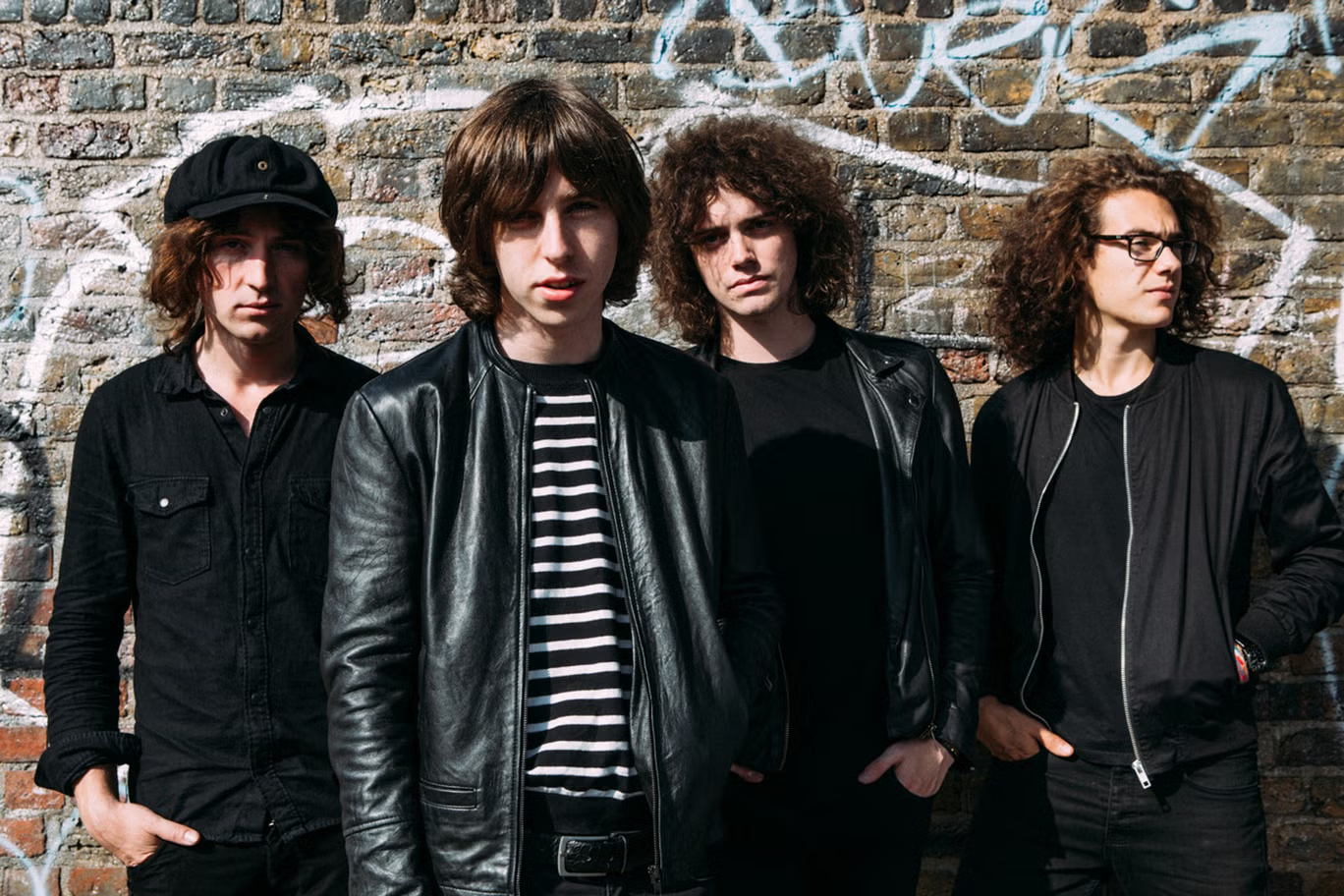
For many, this album was their introduction to guitar music, a gateway to a genre they hadn’t explored before. These were songs made for long nights with friends, for shouting from car windows and singing back at festival stages. Tracks like ‘Kathleen’, ‘Homesick’, and ‘Cocoon’ captured that specific kind of reckless optimism that comes with being young and wide-eyed. The band’s frontman, Van McCann, had a knack for writing lyrics that felt like diary entries, simple but relatable, urgent but not overthought. Even songs like ‘26’, ‘Hourglass’, or ‘Fallout’ revealed a softer, more introspective side beneath the surface, hinting that there was more going on behind the band's lad-rock exterior.
Live, these songs truly came to life. Catfish built their reputation on high-energy gigs and a relentless touring schedule, and The Balcony was the fuel that powered them. From tiny clubs to packed festival tents, fans screamed every lyric like their lives depended on it. The sense of connection between band and audience, between strangers in the crowd, was electric. It’s easy to forget just how dominant they became in the mid-2010s, especially in the UK, where their gigs became rites of passage for a whole generation of indie fans.
While the band's direction may have shifted in the years that followed, the 11 songs on The Balcony remain some of the most iconic indie anthems of the decade. The album didn’t reinvent the wheel, and it wasn’t trying to. What it did was speak directly to a generation, capturing the emotional highs and lows of youth in a way that felt immediate, authentic, and thrilling. It was a snapshot of a moment, and for many, an unforgettable first love with guitar music. The Balcony's impact on indie music cannot be overstated, as it resonated with a generation and left an indelible mark on the music scene.
In 2013, a Manchester band released a self-titled debut album that would redefine their career and the music landscape of the decade. The 1975's debut album was a bold, genre-defying collection that showcased the band's versatility and vision. From the dark, gothic tones of 'Robbers' to the upbeat indie dance of 'Chocolate', the album effortlessly blended a wide range of influences, including 80s synth-pop, R&B, rock, and electronic. Tracks like 'The City' brought a punchy, infectious indie edge, while 'Sex' introduced a more provocative, sultry side of the band's sound, further showing their dynamic range. The 1975’s ability to mix styles with such ease was a testament to their unique sound, and their debut album caught the attention of both critics and fans. It wasn't just a pop record. It was a sonic exploration that pushed the boundaries of what pop music could be in the modern era.

The album’s success set the stage for a remarkable decade for the band. 'The 1975' was the first of three albums they would release during the 2010s, each one marking a new step in their evolution. While the debut was a monumental moment for the band and solidified their place in the alternative and mainstream scenes, it stands as the weakest of the three, not because of any lack of quality, but because the albums that followed would push their sound even further.
Stereophonics released one of the most ambitious and critically acclaimed albums of their career in 2013 with 'Graffiti on the Train'. Marking a bold departure from their earlier, more guitar-driven Brit-rock roots, the album embraced a cinematic, expansive sound that revealed a band unafraid to evolve. Inspired by a screenplay written by frontman Kelly Jones, the project unfolded like a film in sonic form, dark, dramatic, and emotionally layered. Strings swelled alongside moody guitars and atmospheric textures, giving songs like 'Violins and Tambourines' and 'Roll the Dice' a haunting, widescreen quality. The title track, 'Graffiti on the Train', painted a vivid narrative of youth, love, and escape. At the same time, 'Indian Summer' stood out as a commercial and critical highlight, balancing wistful lyricism with a soaring chorus that became a late-era classic for the band.
The album was widely considered a creative rejuvenation and a turning point, proof that Stereophonics could age gracefully while still taking artistic risks. For many fans and critics, it was a return to form that recalled the ambition of earlier works like 'Performance and Cocktails', but with the emotional depth and polish of a band that had grown both musically and thematically.
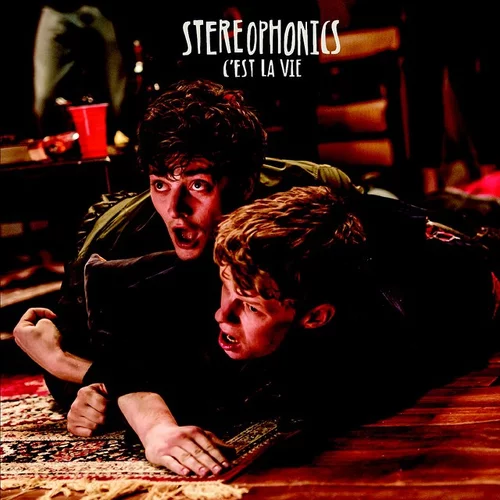
Building on this resurgence, the band returned in 2015 with 'Keep the Village Alive', which solidified their place at the forefront of British rock. The album debuted at number one on the UK Albums Chart, underscoring the band's continued relevance nearly two decades into their career. It featured 'C'est La Vie', a swaggering, high-energy opener that captured the band's classic grit with a modern edge, and 'I Wanna Get Lost With You', a sweeping, emotionally-charged track that quickly became a fan favourite. Other highlights like 'Song for the Summer' and 'White Lies' demonstrated their ability to blend introspection with anthemic power, crafting songs that resonated both on record and in stadiums.
Together, 'Graffiti on the Train' and 'Keep the Village Alive' marked a significant creative era for Stereophonics, one that not only reinvigorated their sound but also reasserted their status as one of the UK's most consistent and evolving rock acts. This period reminded the music world that Stereophonics were far from a legacy band. They were still writing their story, and doing so with renewed purpose and artistic ambition.
2015 also saw the release of Noel Gallagher's second solo album and two debut albums from two brilliant British bands. Liverpool's Circa Waves would release 'Young Chasers', a vibrant, hook-laden indie pop record that captured the carefree energy of youth with infectious ease.
Sitting comfortably alongside contemporaries like The Vaccines and Catfish and the Bottlemen, 'Young Chasers' felt tailor-made for warm summer evenings, festival sing-alongs, and packed indie club nights. It was a throwback to the golden age of mid-2000s indie, yet it felt fresh and immediate.
The title track 'Young Chasers', with its driving tempo and earnest delivery, sets the tone for an album full of adrenaline-fuelled optimism and melodic charm. 'T-Shirt Weather' quickly became the band's defining anthem. This sun-soaked, nostalgia-drenched single perfectly captured the carefree spirit of adolescence and summer romance. It wasn't just a standout track for Circa Waves, but an emblem of the indie resurgence of the time: joyous, accessible, and bursting with energy.
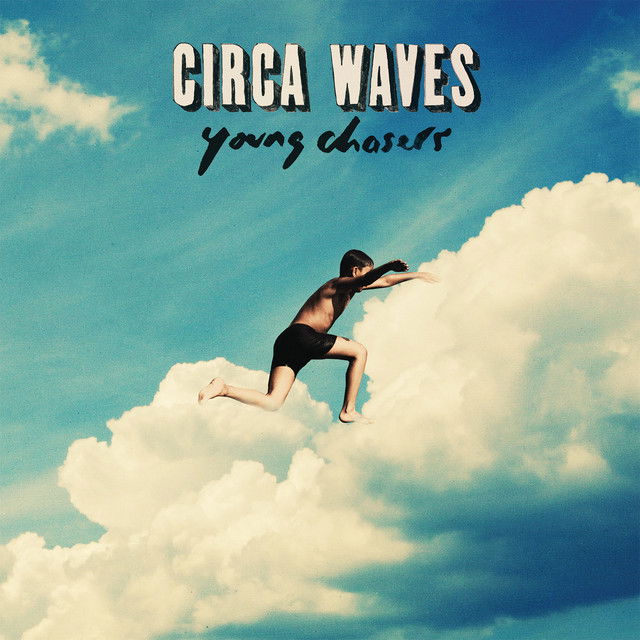
At the heart of 'Young Chasers' lies 'T-Shirt Weather', a track that instantly struck a chord with fans and quickly became an indie anthem of the 2010s. Bursting with jangly guitars, upbeat rhythms, and a chorus that begged to be shouted in unison, it perfectly captured the rush of youthful nostalgia. With lyrics that reminisced about the simple joy of carefree days, "I remember t-shirt weather / I remember some days we were singing our lungs out", the song tapped into a universal longing for freedom, friendship, and endless summers.
'T-Shirt Weather' not only defined Circa Waves' early success but also cemented itself as a staple of the decade's indie scene.
Other highlights included 'Stuck in My Teeth', which paired sharp guitar riffs with lyrical anxiety, and 'Fossils', a more introspective moment that hinted at the band's ability to go beyond just breezy bangers. Across the album, frontman Kieran Shudall's knack for melody and relatable storytelling helped elevate Circa Waves above many of their peers, earning them a dedicated following and strong radio support.
Wolf Alice released 'My Love is Cool', a genre-defining record that seamlessly blended grunge, indie, rock, and even touches of folk and country, crafting one of the most essential albums of the decade. The album was a masterclass in versatility, with tracks like the dreamy 'Bros', the hauntingly powerful 'Silk', and the explosive anthem 'Moaning Lisa Smile'. Each song showcased the band's ability to switch moods effortlessly, making the record feel both cohesive and diverse.
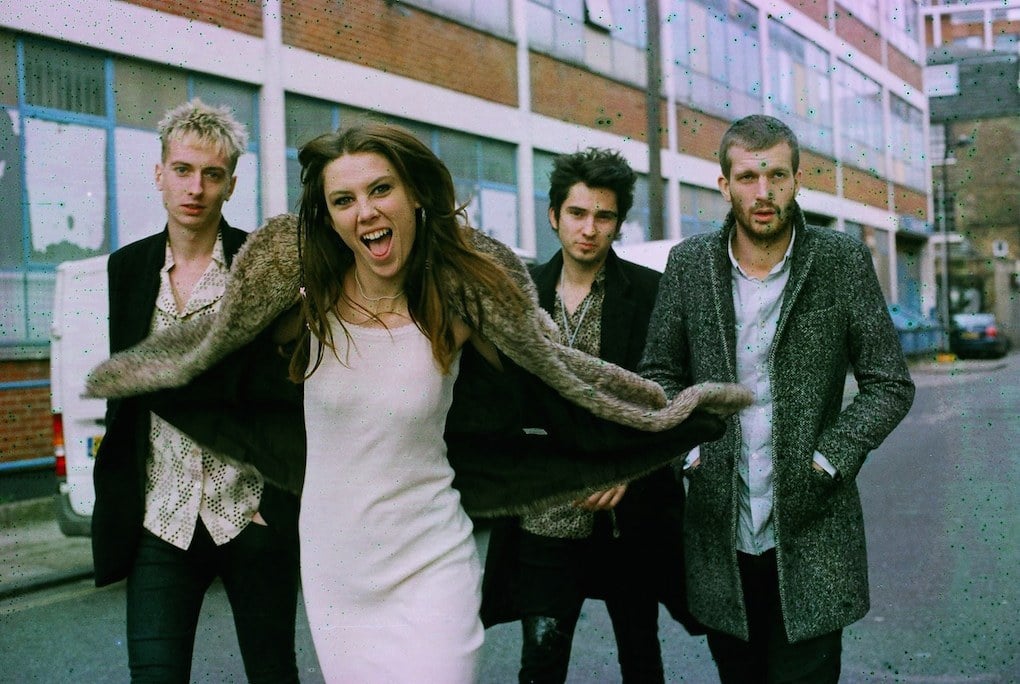
Frontwoman Ellie Rowsell's evocative vocals, paired with the band's dynamic instrumentation, crafted a sound that was not just fresh but uniquely resonant. From the hushed intimacy of 'Turn to Dust' to the snarling aggression of 'Giant Peach', the album took listeners on a captivating emotional journey. Wolf Alice's debut album, a rare gem, managed to balance subtlety with chaos, beauty with noise, showing a level of depth and range that few debut albums achieve.
'My Love is Cool' wasn't just a debut; it was a statement. It not only announced Wolf Alice's arrival but also solidified them as one of the most innovative bands of their generation. The album, a masterpiece, garnered widespread critical acclaim and was even nominated for the prestigious Mercury Prize in 2016.
Following the breakthrough of 'Lungs', Florence & the Machine returned in 2011 with their sophomore album, 'Ceremonials'. This record deepened the band's signature blend of dramatic, baroque pop with a darker, more atmospheric edge, showcasing a clear evolution from their debut. Songs like 'Shake It Out', 'What the Water Gave Me', and 'Never Let Me Go' highlighted Florence Welch's soaring vocals against a backdrop of grandiose strings, pounding drums, and gospel-inspired choruses. 'Ceremonials' was both expansive and intensely emotional, a powerful exploration of themes like redemption, mortality, and spiritual yearning. The album received widespread critical acclaim and cemented Florence's reputation as a fearless, visionary artist capable of marrying raw emotion with cinematic production.
Then, in May 2015, Florence & the Machine unveiled their highly anticipated third album, 'How Big, How Blue, How Beautiful'. Marking a sonic evolution, the album saw Florence embracing a more stripped-back, raw sound while still retaining the emotional intensity and grandeur fans had come to expect. Tracks like 'What Kind of Man' and the title track highlighted a newfound sense of vulnerability and introspection, paired with crisp, anthemic instrumentation that felt both intimate and expansive. The record, a journey of personal growth, balanced powerful anthems with quieter moments, reflecting a more nuanced emotional palette.
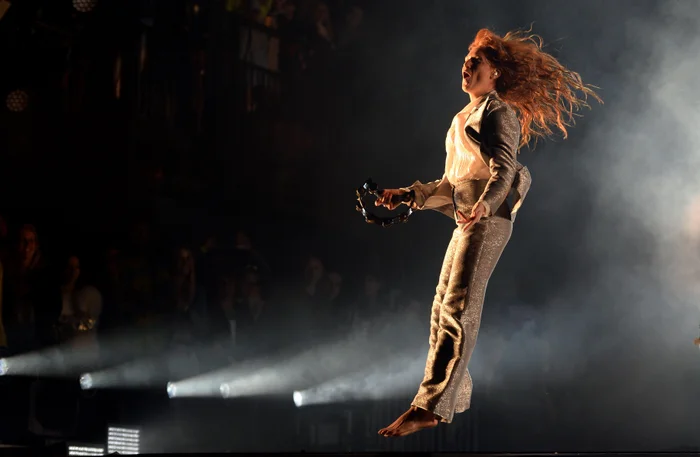
Just a month after the release of 'How Big, How Blue, How Beautiful', Florence headlined the legendary Glastonbury Festival in June 2015, delivering one of the most memorable performances of the weekend. She stepped in as a late replacement for the Foo Fighters, who had to pull out due to Dave Grohl’s injury, and Florence rose to the occasion with remarkable poise and energy. Her set was a commanding showcase of both new material and beloved classics, blending theatricality with raw passion. One standout moment was her powerful cover of the Foo Fighters’ anthem ‘Times Like These’, which she transformed with her own ethereal style, turning it into a soaring, emotionally charged highlight that resonated deeply with the crowd. The Glastonbury headline not only affirmed her status as one of Britain’s most compelling live performers but also underscored her continuing evolution as an artist who effortlessly bridges the gap between indie rock, pop, and soul. Through these albums and performances, Florence & the Machine solidified their place as a defining force in modern music.
Noel Gallagher, meanwhile, decided to break free from the shadow of Oasis, embarking on a journey of experimentation that redefined his career. With ‘Chasing Yesterday’ in 2015, he began to pull away from the anthemic, stadium-ready formula that had made Oasis a global phenomenon. Instead, he leaned into a more introspective, textured sound. One that allowed space for nuance, atmosphere, and a bit of unpredictability.
This was the first album Noel produced himself, and that autonomy is felt throughout the record. There’s a looseness to the arrangements, a willingness to let songs breathe. Tracks like ‘Riverman’, with its haunting saxophone solo and meandering structure, evoke a late-night, jazzy cool that wouldn’t have been out of place on a Pink Floyd B-side. ‘The Right Stuff’ plays like a cosmic jam session, full of smoky ambience and hypnotic rhythm, far removed from the blunt rock ‘n’ roll swagger of ‘Definitely Maybe’.
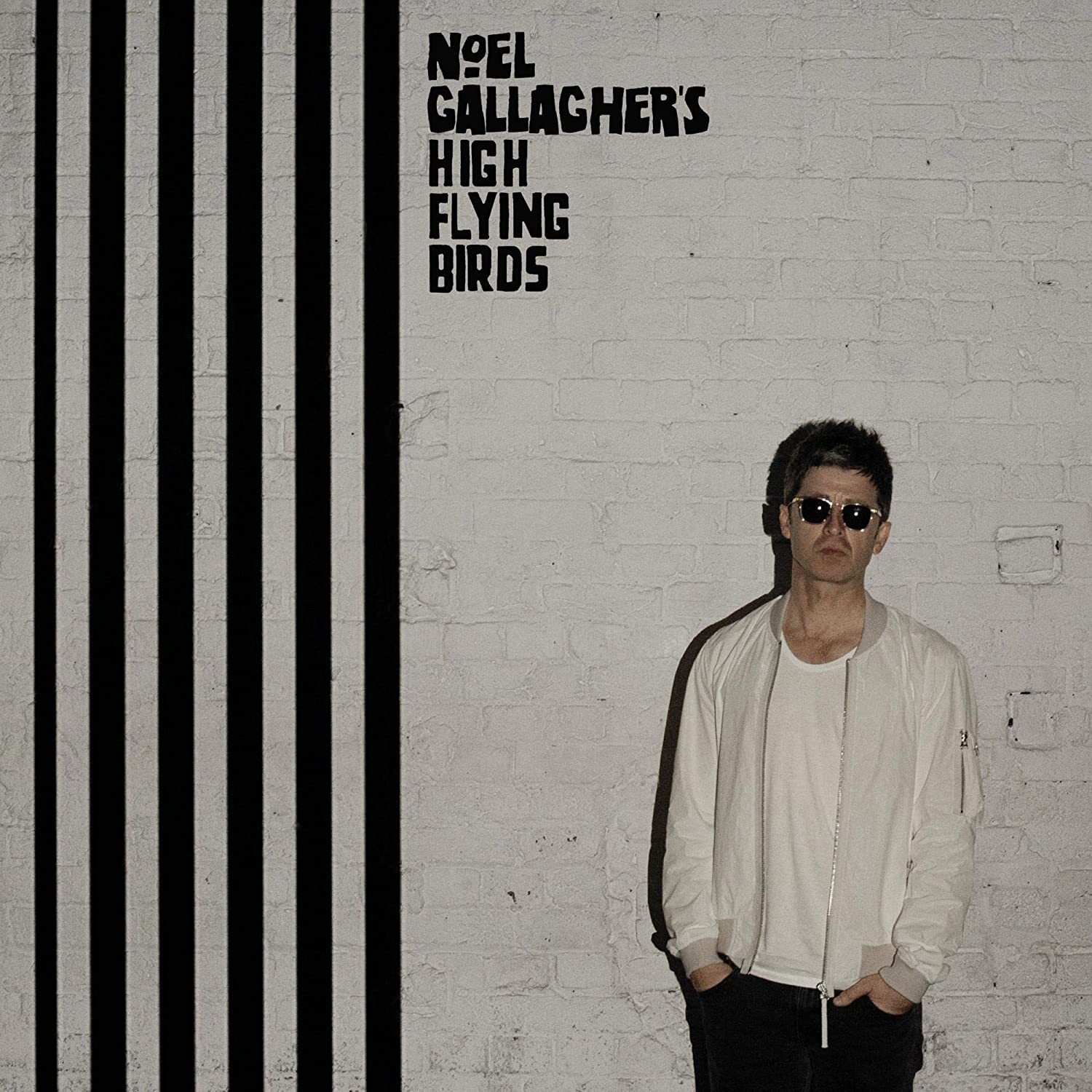
Yet, while he was clearly embracing new influences, psychedelia, soul, and even a touch of krautrock, the record still carried Noel’s unmistakable songwriting voice. Melodically rich tracks like ‘In the Heat of the Moment’ and ‘You Know We Can’t Go Back’ retained enough familiarity to keep long-time fans on board. However, Noel's songwriting seemed to be evolving, becoming more reflective and less interested in bravado, which leaves the audience intrigued and excited about his future work.
‘Chasing Yesterday’ not only solidified Noel Gallagher's place as a solo artist but also hinted at his growing ambition to push boundaries, setting the stage for the more radical experimentation of his next album, ‘Who Built the Moon?’. This album is a significant milestone in Noel's career, and its influence is something that the audience can appreciate and respect.
Tame Impala released 'Currents' in 2015, and this album made Kevin Parker a pop star. Yes, a pop star, not a rock star. 'Currents' isn’t just a brilliant album, it’s one of the best pop records of the last 20 years, a bold and dazzling pivot that redefined what Tame Impala could be. Featuring standout tracks like 'The Less I Know the Better', 'Eventually', 'Let It Happen', and 'New Person, Same Old Mistakes', the record saw Parker entirely abandon the fuzz-drenched, Beatles-inspired psych-rock of 'Innerspeaker' and 'Lonerism' and lean instead into sleek production, R&B grooves, and disco-funk swagger.
The influences here were clear and proudly worn: Daft Punk, Michael Jackson, Prince, and even Kylie Minogue. Parker wasn't interested in being boxed in by genre; he wanted a seat at the table with pop’s elite. And after 'Currents', it’s safe to say he earned that seat. The album struck a chord with fans across the spectrum, indie heads, festival goers, pop purists, and hip-hop artists alike (so much so that Rihanna covered 'New Person, Same Old Mistakes' on 'ANTI' in 2016).
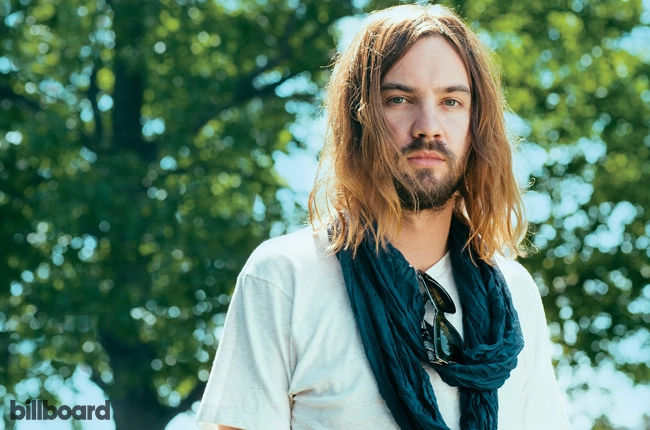
What made 'Currents' so special was Parker’s uncanny ability to blend the kaleidoscopic textures of psychedelic music with chart-ready songwriting, lyrical vulnerability, and pristine studio craftsmanship. Alongside Arctic Monkeys’ 'AM', 'Currents' stands as one of the defining albums of the 2010s: not just in indie or rock, but in pop music as a whole. It broke boundaries, influenced a new wave of genre-fluid artists, and confirmed Kevin Parker’s place as one of the most visionary producers of his generation.
Another standout Australian group, DMA’s, released their debut album 'Hills End' in 2015 and quickly found themselves embraced by the UK, where their sound felt like a homecoming. The album’s breakout track, 'Delete', became a slow-burning anthem, its stripped-back vulnerability and yearning chorus struck a chord with listeners and soon echoed across festival fields. Songs like 'Lay Down' and 'In the Moment' channelled the swagger and wall-of-sound dynamics of Britpop’s golden era, drawing clear lines to bands like Oasis and The Verve, yet delivered with a freshness that made them feel immediate and personal. Each track on 'Hills End' blended jangly guitars, melancholic lyrics, and soaring melodies, evoking a sense of nostalgia while forging something new. The band’s ability to craft songs that felt both familiar and vital helped them connect deeply with British audiences, turning them from promising newcomers into staples of the UK indie circuit.
One thing I feel obliged to mention when talking about this period is Birmingham's mini guitar revolution. Being from near Birmingham, I saw this happen on the fringes, and even if it never quite broke out nationally in a significant way, it felt vital and full of promise at the time. Bands like Peace, Swim Deep, Jaws, and Superfood released records between 2013 and 2015, carving out a sun-drenched, DIY-spirited indie scene that gave the Midlands a fresh musical identity.
Peace led the charge, gaining the most traction with their blend of glam, grunge, and infectious choruses. Tracks like ‘Follow Baby’, ‘Lovesick’, and ‘Lost on Me’ turned heads with their swagger and romantic charm, pairing festival-sized hooks with a real sense of style and confidence. Their debut album 'In Love' was a statement of intent full of optimism, charisma, and sun-drenched indie bangers that immediately earned them a devoted fanbase. It was bold, glossy, and unafraid to be both heartfelt and euphoric. Songs like ‘California Daze’ and ‘Wraith’ showed off their softer, dreamier side, while ‘Delicious’ closed the album in a woozy, kaleidoscopic haze. In Love felt like a greatest hits before the band had even made their mark. A debut full of confidence and colour that perfectly captured the sound of young adulthood.
They doubled down with 'Happy People', an album that showcased a band refining their craft. The edges were sleeker, the songwriting sharper, and the production tighter. While it kept the big, bright melodies of its predecessor, there was more bite under the surface. Tracks like ‘Money’ tackled materialism and modern detachment with a wink. ‘I’m a Girl’ is a cheeky androgynous anthem built around sharp guitar work and a thumping beat. ‘Gen Strange’ became a fan favourite, balancing grunge riffs with a pop sensibility that few bands of their generation could pull off so effortlessly. Even deeper cuts like ‘Perfect Skin’ and ‘Someday’ revealed a band unafraid to be both melancholic and grandiose, cementing Peace as something more than just another indie hopeful; they had vision, versatility, and plenty of ambition.
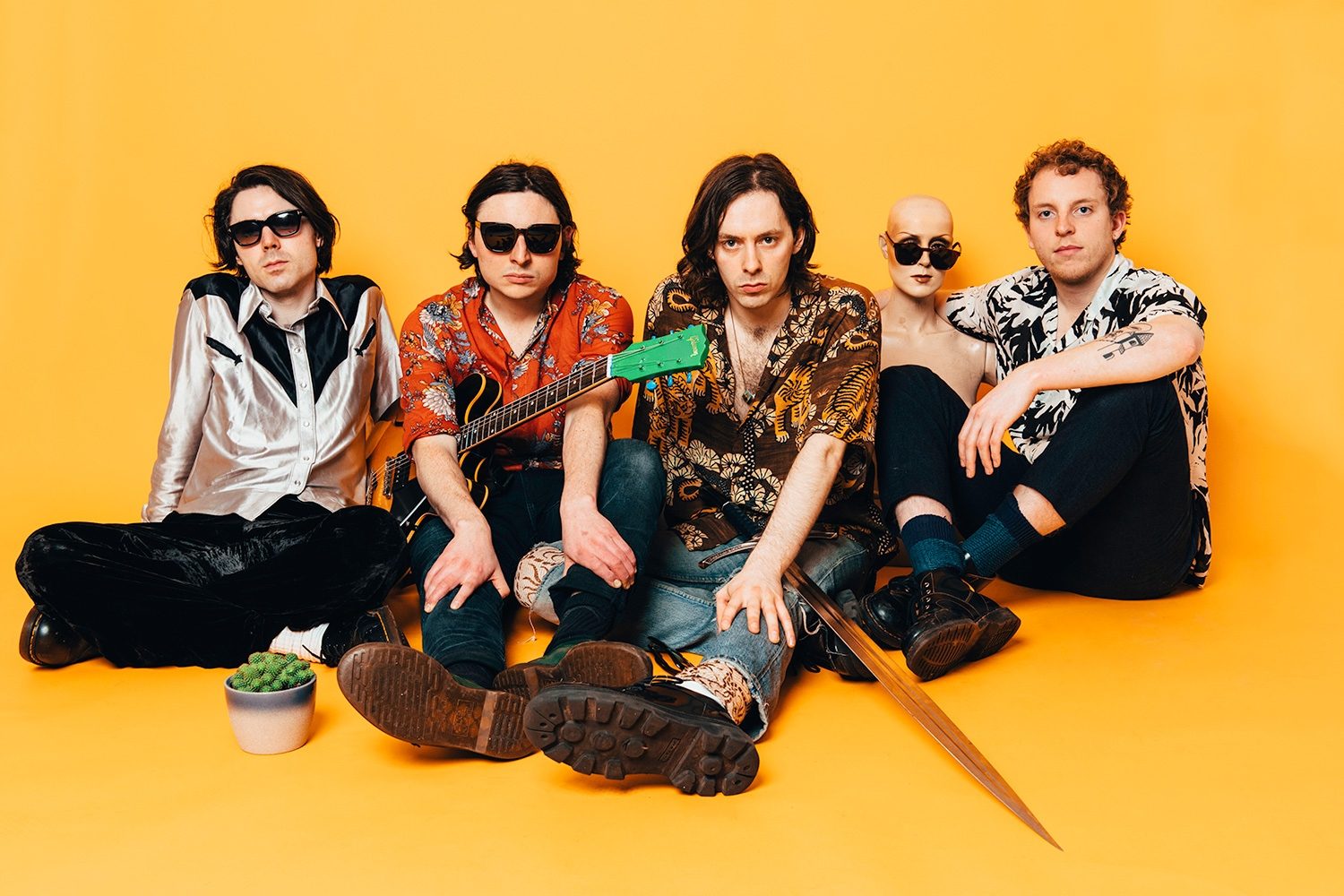
While the B-Town moment eventually lost momentum, Peace continued to evolve. In 2018, they released 'Kindness Is the New Rock and Roll', a record that traded youthful hedonism for introspection. It was more grounded, heartfelt, and spiritually mature, with standout moments like 'Power', 'You Don't Walk Away From Love', and 'From Under Liquid Glass' addressing issues like mental health and vulnerability with surprising emotional clarity. Though less commercially visible than their debut era, Kindness… felt like a band growing up gracefully, stepping away from the spotlight without losing their creative spark.
Then came a quiet period until 2023, when Peace made a surprise return with Utopia. Released without much industry noise or fanfare, the album was a rebirth of sorts: looser, more soulful, and made entirely on their own terms. It saw the Koisser brothers strip Peace down to its core, after losing two members and rebuilding something freer and more expressive. Tracks like 'Happy Cars', 'Masterpiece', and 'Good Jeans' didn't chase trends or past glories; instead, they reflected a band deeply at Peace (no pun intended) with who they'd become. Happy Cars, in particular, was a highlight: a shimmering, low-slung groove that explored contentment in everyday life. Masterpiece was self-aware and sweet, a knowing nod to their past while revelling in the beauty of reinvention. With Utopia, Peace didn't try to reclaim their old title as indie's next big thing; they made music that felt true to who they were now. And in doing so, they quietly created one of their most satisfying and authentic works to date.
Jaws, meanwhile, added a moodier, more introspective sound to the mix. Their debut, 'Be Slowly', was full of woozy guitar tones and emotional vulnerability, with standouts like 'Think Too Much, Feel Too Little' and 'Right in Front of Me'. While they may have flown more under the radar than their B-Town peers, they quietly carved out a devoted following. Their music felt honest and emotionally grounded, offering a raw and comforting sound for fans seeking more than just upbeat indie hits. Over time, Jaws leaned even further into atmospheric textures and introspective lyricism, as heard on their later releases like 'The Ceiling', proving they were in it for the long haul and willing to evolve with each album.
Swim Deep brought a more psychedelic, dreamy approach to the B-Town scene. Early tracks like 'Honey' and 'King City' were indie anthems for romantics and misfits, drenched in wide-eyed wonder and jangly, reverb-heavy guitars. Their breakout moment came with 'She Changes the Weather,' a shimmering, melancholic slow-burner that captured a kind of adolescent beauty and longing few bands could emulate. It was cinematic, stirring, and utterly unforgettable, the type of song that could transport you somewhere entirely different.
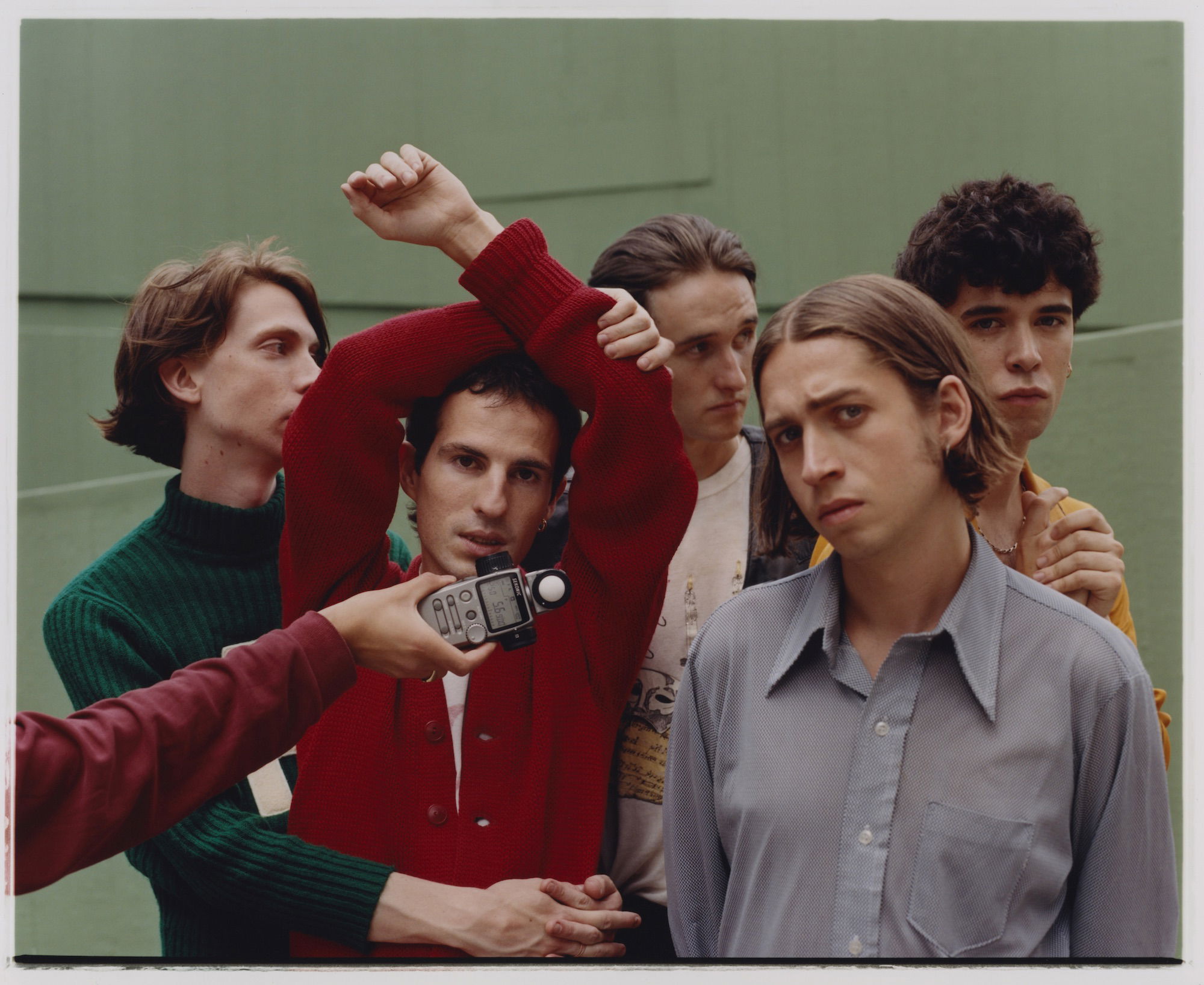
Their 2015 second album, ‘Mothers’, marked a daring shift. It ditched the sunny nostalgia of their debut in favour of bold experimentation. Tracks like ‘Namaste’ and ‘To My Brother’ leaned into krautrock rhythms, gospel choirs, and even acid house influences. It was divisive but undeniably creative, a record that proved they weren’t afraid to evolve, even if it meant leaving part of their audience behind.
After a period of relative quiet and lineup changes, Swim Deep returned in 2019 with ‘Emerald Classics’, a record that felt like both a return to earth and a look inward. Named after their favourite Birmingham pub, the album swapped out the eccentricity of Mothers for something more grounded and emotionally resonant. Songs like ‘Sail Away, Say Goodbye’ and ‘To Feel Good’ (which samples a gospel reading of ‘Be My Vision’) showcased a band that had matured without losing their romantic streak. It felt like a love letter to resilience, community, and making peace with growing older.
Then, in 2023, they followed up with ‘There’s a Big Star Outside’, their most personal and stripped-back record to date. It saw Swim Deep at their most introspective, trading in genre experimentation for emotional clarity. Tracks like ‘How Many Love Songs Have Died in Vegas?’ and ‘Very Heaven’ were gently devastating, filled with tender lyricism and atmospheric warmth. The album didn’t try to recapture their early youth; it embraced where they are now. Quietly, Swim Deep have become one of the most consistently interesting bands to emerge from the B-Town scene, weathering changes in trend and taste while continuing to write songs with heart, care, and depth.
Superfood, meanwhile, were the scene’s wildcard genre-defying and endlessly creative. Their debut ‘Don’t Say That’ mixed indie rock, Britpop, and weird psychedelia into something uniquely their own. Tracks like ‘TV’ and ‘Melting’ had an infectious, off-kilter charm that made the band feel exciting and unpredictable. They weren’t trying to fit into a sound; they were too busy playing with it. By the time they released their second record, ‘Bambino’, they had taken a complete left turn into a funky, sample-driven world reminiscent of Beck, Gorillaz, or even late-Blur. Songs like ‘Where’s the Bass Amp?’ and ‘I Can’t See’ burst with life and colour, embracing chaos and groove with open arms. Though their time as a band was relatively short, Superfood left behind one of the most eclectic and fun discographies of the B-Town era.
Blossoms would release one of my favourite albums ever in 2016 with their self-titled debut. It came out at a formative time for me, right as we started going to gigs. ‘Charlemagne’ became a radio favourite and an anthem destined for festival fields for years to come. The album as a whole is a classic, seeing the band dive into pop influences from throughout the decades, from The Beatles to ABBA. Their sound, mixing indie with infectious pop hooks, set the stage for Blossoms to take their place among the top British bands of the decade.
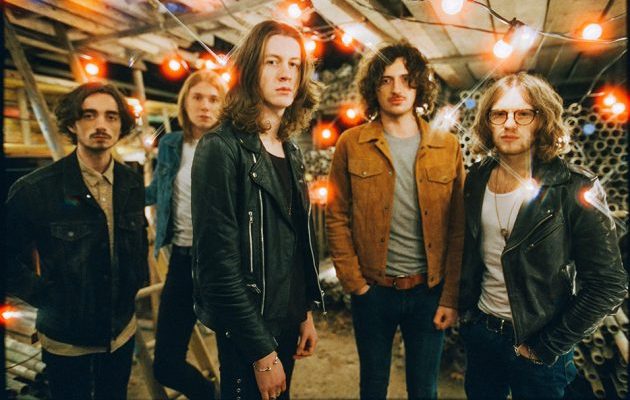
Every track on ‘Blossoms’ feels carefully crafted, from the shimmering synths of ‘At Most a Kiss’ to the heartache-laced ‘Honey Sweet’. ‘Getaway’ offered a dose of longing wrapped in a smooth groove. At the same time, ‘My Favourite Room’ stripped things back, allowing frontman Tom Ogden’s voice and lyrical vulnerability to shine. The production was polished, the songwriting tight, and the mood, a perfect balance of retro cool and modern charm. This was an album that understood nostalgia but didn’t rely on it, delivering something both familiar and refreshingly new. It’s one of those rare debut records that feels fully formed, confident, and timeless.
Thematically, the album explored romance, heartbreak, and obsession, but always with a wry sense of humour and self-awareness. There’s a northern soul to their storytelling, rooted in Stockport but with ambitions far beyond. Songs like ‘Blow’ and ‘Texia’ hint at something darker lurking beneath the sugary surface, giving the album depth and nuance. They wore their influences on their sleeves, bits of synthpop, 60s psychedelia, and Britpop. Still, they channelled them into something that felt entirely their own.
Commercially, ‘Blossoms’ was a breakout success, debuting at Number One on the UK Albums Chart and earning them a Mercury Prize nomination. But more than that, it arrived at a time when the British indie scene felt like it needed a new face. It remains one of the defining UK debuts of the decade.
Sticking in Manchester, following a massive summer in 2015 which saw the band play at the Isle of Wight Festival, Glastonbury, T in the Park and their first performance at Heaton Park. Courteeners headed into the studio to record their fifth studio album, 'Mapping the Rendezvous', which was then released in October 2016.
The album received mixed reviews as the band experimented with different ideas and sounds. From the string-laden whimsy of ‘De La Salle’ to the LCD Soundsystem indebted 'No One Will Ever Replace Us'. I think this album has some of the band's most significant moments on it. 'No One Will Ever Replace Us' is a career highlight and has become a live staple. 'The 17th' is one of the best songs Fray has ever written, but the album also includes some forgettable tracks. 'Kitchen' tries something new, and, in my opinion, doesn't quite hit the mark. 'Not for Tomorrow' doesn't really go anywhere. It's a genuine mixed bag. When it's good, it's excellent, but when it's not so good, well...
In the same year, The 1975 would release their second album 'I Like It When You Sleep, for You Are So Beautiful Yet So Unaware of It'.
The album was not just a sonic reinvention, but also a testament to The 1975's refusal to be pigeonhole. It was a lyrical journey, with each song delivering sharp, ironic, and emotionally charged narratives that resonated with listeners.
The lead single, ‘Love Me’, kicked things off with a flamboyant burst of funk and satire poking fun at celebrity culture with a glam-rock wink and a heavy dose of irony. Following that, ‘Ugh!’ delivered a jittery, confessional account of cocaine addiction, wrapped in slick production and laced with Healy’s trademark self-aware charm. Then came ‘The Ballad of Me and My Brain’, chaotic, jagged, and theatrical. In under three minutes, the track spirals through a surreal, spoken-word meditation on identity loss, fame-induced dissociation, and mental health, delivered with a breathless urgency. ‘The Sound’ was perhaps the album’s most unabashed pop moment: bright, euphoric, and outrageously catchy, complete with a music video that cheekily clapped back at the band’s critics in real time.
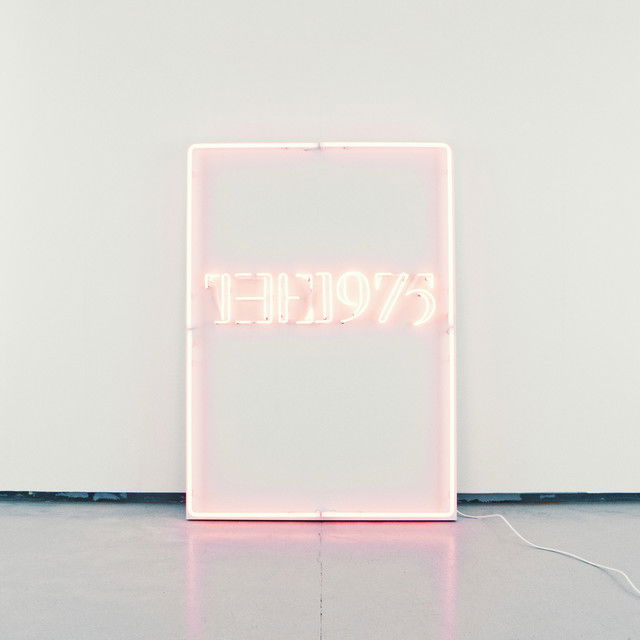
But alongside the flash and fun, the album held deep emotional weight. ‘Nana’ is one of Matty Healy’s most vulnerable moments, a stripped-back ballad about the death of his grandmother, filled with touching simplicity and unflinching honesty. It wasn't the first time Matty would open up on this record.
‘Somebody Else’ became an instant fan favourite, a slow-burning heartbreak anthem that captured the painful paradox of jealousy and detachment after a breakup. It remains one of their most beloved and enduring tracks. ‘She Lays Down’ closes the album with just Healy’s voice and an acoustic guitar. It’s haunting in its simplicity and devastating in its content. The song is about his mother’s struggle with postnatal depression after he was born.
2016 would also see two of the most significant musical events of the decade, and two of the saddest as well...
I’m A Blackstar. The 10s Part 3
January 2016 marked the departure of one of the most versatile and timeless musical icons, David Bowie. His passing at the age of 69 was a profound loss, not just for the music industry but for the entire planet. We bid farewell to our 'Starman'. Bowie was a rare breed of artist who defied the constraints of time and genre. His music was not bound by any era, and just when it seemed like he might fade into the background, he would always return with something fresh and exciting, a testament to his timeless and versatile influence.
Before his death, Bowie released two of his best works. In 2013, he gifted us ‘The Next Day,’ an album that was critically acclaimed and commercially successful, giving us songs like 'Where Are We Now?' and 'Valentine's Day'. These tracks marked a return after a long absence and reminded the world of his genius. But his final gift, ‘Blackstar,’ released just two days before his passing, was a critically acclaimed and commercially successful album that would become an eerie and fitting swan song. The album, dark and sombre, seemed to predict what was to come. With tracks like 'Lazarus' and the title track, it feels like Bowie had somehow captured the essence of his journey and the inevitability of his passing, all while still challenging musical conventions. It is a true highlight of his discography and a testament to his legacy.
The world feels a little less vibrant without the presence of this great man. We are forever grateful for the music, David. His legacy will continue to inspire, and your music will always be a part of us. He will forever be remembered as one of the greatest to ever do it.
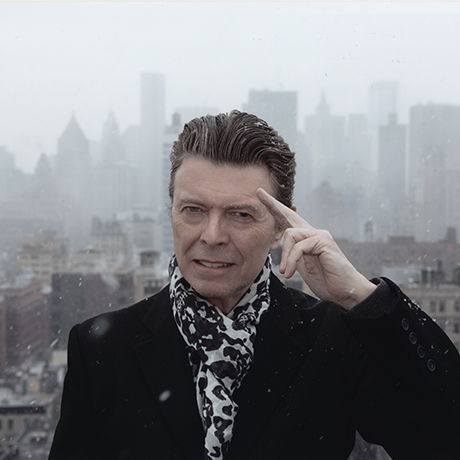
Another musical icon would come to pass in April of 2016. Prince passed away at the age of 57, leaving behind a legacy that could never be confined to a single genre. He was a man who constantly pushed boundaries, blending funk, rock, pop, and R&B in a way that was entirely his own. He wrote one of the most defining albums of the '80s, ‘Purple Rain,’ and delivered some of the best party anthems ever. As Elton John famously said, “Prince was the greatest performer I have ever seen, and a true genius.” His death marked the loss of an artist whose impact on music and culture will never be replicated.
Two of the very best had come to pass, and sadly, they weren’t the only musical deaths that year.
On 13th February 2016, the world lost River Reeves, Tomas Lowe, Kris Leonard, and Jack Dakin of Viola Beach, along with their manager Craig Tarry. The band was on their first European tour, filled with the kind of hope and excitement only a young band on the rise can have, ready to take on the world. Everything I’ve ever heard about these five lads paints a clear picture: they were full of warmth, drive, and a deep, genuine love for music. Friends, families, fellow musicians, promoters, and radio DJs all echoed the same sentiment: they were kind-hearted, hardworking, and had an enormous future ahead of them.
Though Viola Beach are no longer with us, their legacy lives on through the music they left behind. Their self-titled debut album, released posthumously in July 2016, features nine sparkling tracks that showcase the promise and joy the band carried with them. It’s a vibrant collection of indie-pop, brimming with jangly guitar riffs, sun-drenched melodies, and lyrics that blend wit, charm, and emotion. Songs like ‘Swings & Waterslides’ and ‘Boys That Sing’ captured the imagination of a generation and quickly became beloved anthems.
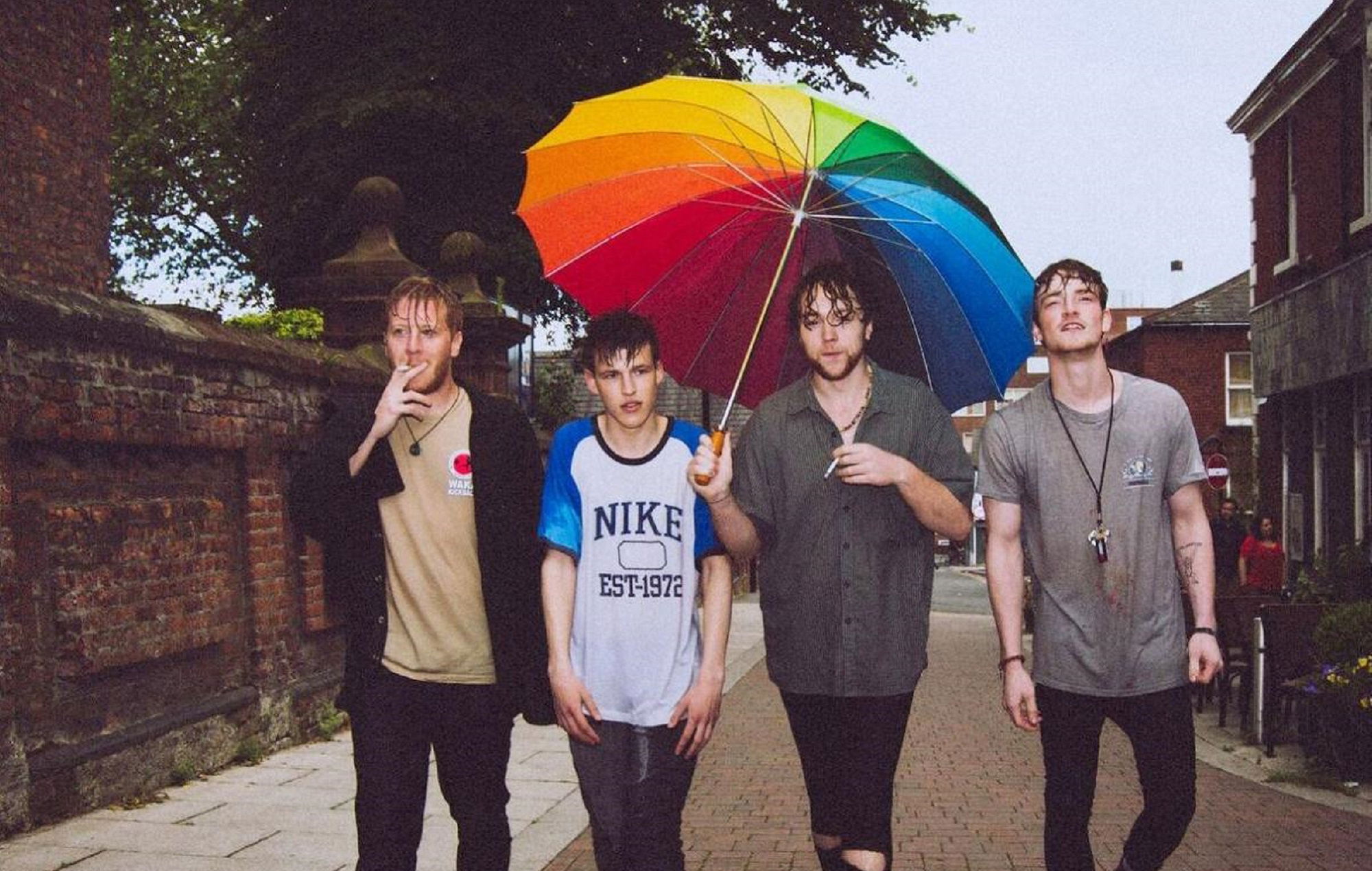
The album reached number one on the UK Albums Chart, a bittersweet but fitting tribute to the band’s talent. Listening to it now, it feels less like a memorial and more like a celebration: of youth, of music, of friendship, and of the spirit of five people who were doing what they loved. Viola Beach didn’t get to finish their journey, but their music continues to inspire and connect. Their story is one of heartbreaking loss, yes, but also one of joy, unity, and the enduring power of music to keep memories alive.
In 2016, The Stone Roses returned, and this was a little different to the previous reunion three years earlier, though. The band released new music for the first time in over two decades. 'All For One' and 'Beautiful Thing'. These tracks showcased a modernised version of the band’s signature sound, anthemic, guitar-driven, and laced with their trademark swagger.
That summer, the band embarked on a string of high-profile shows that proved their enduring popularity and deep connection with their audience. Standout performances included headlining sets at T in the Park in Scotland, Madison Square Garden in New York, and marquee shows at Manchester’s Etihad Stadium. The Manchester gigs, in particular, were symbolic of a triumphant homecoming that cemented their legacy in the city’s musical history.
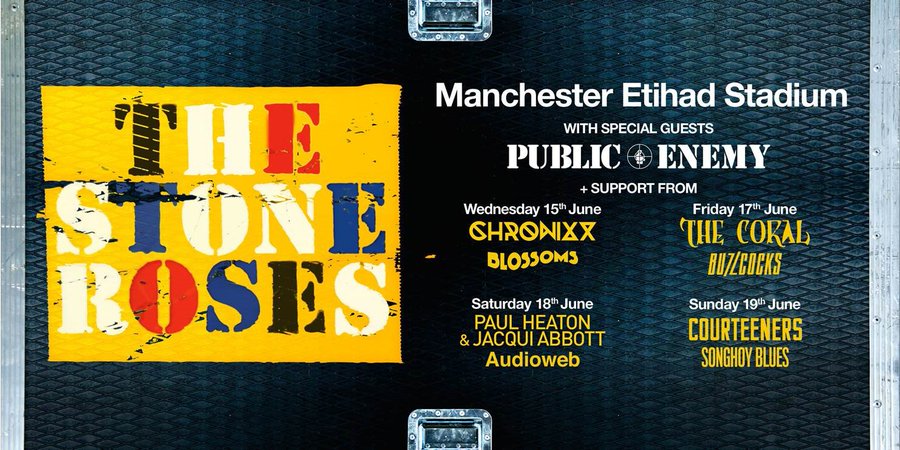
Support for the Etihad gigs, saw Manchester legends Buzzcocks, indie upstarts Blossoms, among The Coral, Courteeners and Public Enemy. These gigs were huge, monumental affairs, and the band weren't finished with them.
The band continued the tour into 2017; however, speculation was mounting that this latest chapter in The Stone Roses' story might be their last. With huge shows at Wembley Stadium, Dublin's Marlay Park and Glasgow's Hampden Park. It was some of the band's biggest concerts to date; however, in typical Stone Roses fashion, it came to a rather abrupt end.

At the band's gig at Hampden Park, Ian Brown, the lead vocalist, uttered these now-famous words. “Don’t be sad it’s over, be happy that it happened”. This was seen as a poignant moment, hinting at a possible end to the band's journey.
Despite the fans' speculations about the band's future, no official statement has been made. The Stone Roses, known for their resilience, have not performed together since Saturday, 24th June 2017. Their unique approach to challenges sets them apart in the music industry.
In 2016, The Last Shadow Puppets made a triumphant return with their long-awaited second album, ‘Everything You’ve Come to Expect’, eight years after their baroque-pop debut, ‘The Age of the Understatement’. Despite the individual successes of Arctic Monkeys and Miles Kane, the duo's chemistry remained as electric as ever, reassuring fans of their enduring partnership.
‘The Age of the Understatement’, released in 2008, was a bold and unexpected debut from Alex Turner and Miles Kane, two frontmen stepping away from their main projects to indulge in something far more cinematic and stylised. The album was steeped in 1960s orchestral pop influences, drawing heavily from the likes of Scott Walker, David Axelrod, and early James Bond soundtracks. It was dramatic, tightly arranged, and intentionally nostalgic. Yet, it felt fresh and urgent thanks to the youthful energy both brought to the project.
From the galloping opener and title track ‘The Age of the Understatement’, the album set a tone of sweeping strings, tremolo guitars, and dark romanticism. Tracks like ‘Standing Next to Me’ and ‘My Mistakes Were Made for You’ balanced vintage charm with sharp lyricism; Turner’s poetic prowess already fully bloomed. At the same time, Kane’s guitar work added swagger and punch.
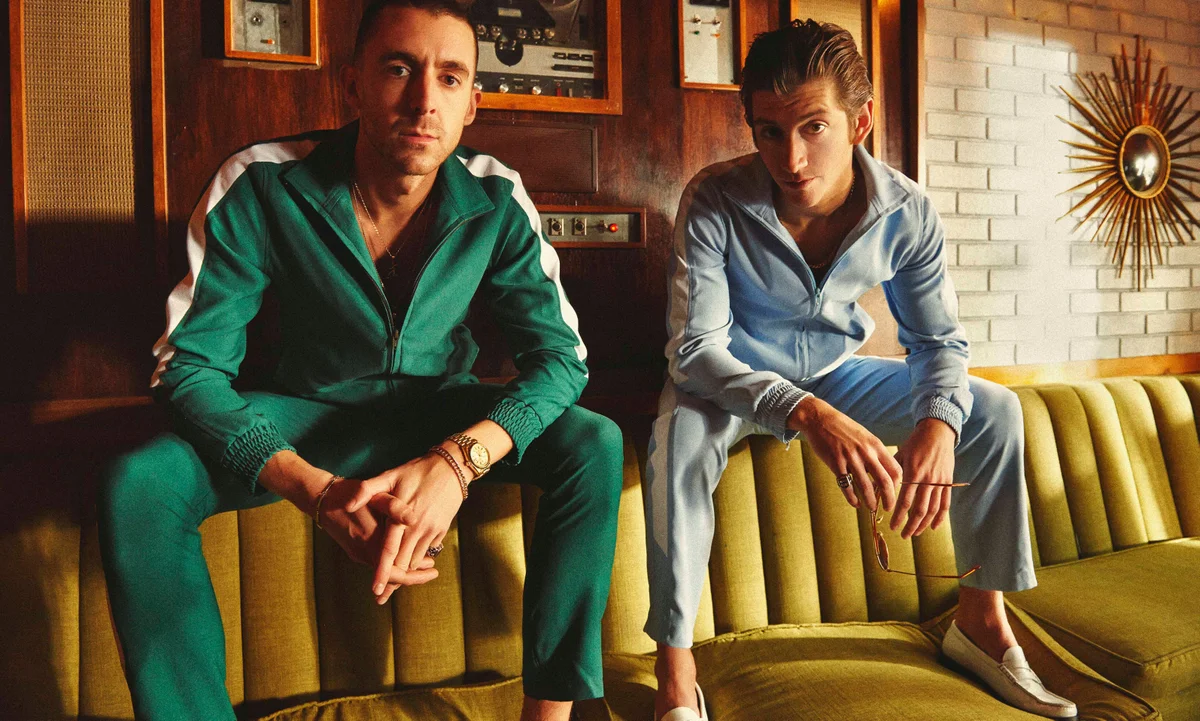
‘Everything You’ve Come to Expect’ was a swaggering, sometimes surreal record that combined lush orchestration with sleazy lyricism and a warped sense of humour. Tracks like ‘Bad Habits’ exploded with raw energy. In contrast, the title track and ‘Sweet Dreams, TN’ showed off Alex Turner’s ever-evolving lyrical wit, full of vivid imagery and theatrical flair.
The album was less immediate than their debut, but arguably more interesting, messier, sexier, and drenched in a kind of vintage Californian excess. Where the debut had the urgency of two young artists paying tribute to their heroes, the second album exuded the confidence of two men entirely in control of their aesthetic, bolder, weirder, and more indulgent. Songs like ‘Aviation’ and ‘Miracle Aligner’ oozed style and mystery, blending eerie strings with cryptic, seductive lyrics. Turner’s delivery was more theatrical than ever, channelling a kind of crooning lounge-lizard persona. At the same time, Kane brought a brash rock ’n’ roll bite that balanced the drama.
2017 would see British bands release some highly anticipated second albums. Wolf Alice would release the masterpiece ‘Visions of A Life,’ an album that, for many, would surpass their debut, ‘My Love is Cool.’ This album marked a band in complete ascendancy, showcasing the immense talent of one of this generation’s most underrated songwriters, Ellie Rowsell. The record would be adored by critics, earning multiple nominations for Album of the Year.
The album was a rollercoaster in the best way, with every track exploring a different sonic texture. From the ferocious punk energy of ‘Yuk Foo’ to the dreamy, cinematic build of ‘Heavenward’, the record captured the chaos and beauty of growing up, falling apart, and piecing yourself back together.

‘Don’t Delete the Kisses’ became a standout moment. This lovestruck, synth-drenched anthem channelled raw vulnerability through Rowsell’s spoken-word verses and shimmering choruses. It was a modern love song for a generation raised online. ‘Beautifully Unconventional’ leaned into glam-pop swagger, celebrating individuality with playful flair, while deeper cuts like ‘Planet Hunter’ and ‘St. Purple & Green' showcased the band’s ability to craft eerie, atmospheric beauty.
The title track, ‘Visions of a Life’, closed the album with sprawling ambition. This shapeshifting epic moved through styles and moods like a mini-album within the album. The whole project was a statement of creative independence and artistic courage. It rightfully won the Mercury Prize in 2018, cementing Wolf Alice not just as leaders of the UK rock scene but as one of the most adventurous and emotionally resonant bands of the decade.
Royal Blood would also release their second album, ‘How Did We Get So Dark’, a more polished and mature record than their debut. Yet, it still retained the raw power and ferocity that made them a standout rock act. The album firmly proved that Royal Blood were not just a one-hit wonder or a gimmick; they were here to stay. With tracks like ‘Lights Out’, ‘I Only Lie When I Love You’, and the title track ‘How Did We Get So Dark’, they cemented themselves as rock giants.
The record's success saw the band make an almost unprecedented leap from sweaty club shows to headlining arena tours in just a few short years. Their sound was thunderous and stripped-down, driven by just bass and drums, and translated shockingly well to massive venues, where the sheer volume and energy of their live show captivated huge crowds. They landed a prime spot on the Pyramid Stage at Glastonbury. They hit the road with rock royalty, supporting the Foo Fighters on stadium dates around the world.

Their rise felt refreshing and old-school at the same time: no gimmicks, no frills, just two musicians making an ungodly amount of noise. ‘How Did We Get So Dark’ proved they weren’t just riding a wave; they were at the forefront of modern rock music. Royal Blood had quickly become one of the UK’s biggest and most reliable rock exports of the decade, with their unique sound and powerful performances setting them apart from their peers.
Circa Waves also unveiled their second album, ‘Different Creatures’, a significantly darker and more introspective record than their debut. In my view, it is one of the most underappreciated albums of the decade. This album truly showcased the emotional depth of frontman Kieran Shuddall’s songwriting, with standout tracks like ‘Fire That Burns’, ‘Crying Shame’, and the poignant ‘Old Friends’. It marked a courageous progression for the band, delving into deeper emotional and lyrical themes. Circa Waves proved they were not just another indie band. They were maturing and evolving.
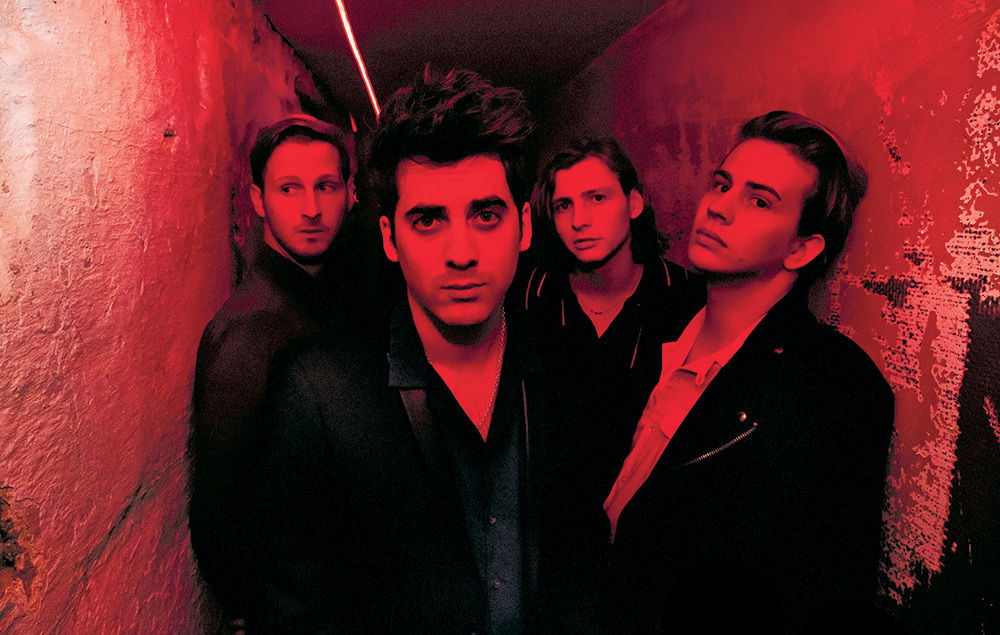
The sonic shift on ‘Different Creatures’ was immediately noticeable; gone were the sun-soaked festival anthems of ‘Young Chasers’, replaced by fuzzier guitars, more driving rhythms, and a lyrical weight that revealed a band unafraid to dig deeper. ‘Goodbye’ opened the album with a sense of urgency. At the same time, ‘A Night on the Broken Tiles’ captured a raw vulnerability rarely seen in their earlier work. The title track itself was a bold, dynamic moment that felt like a mission statement, a signal of intent to be taken more seriously. It's one of the most underrated albums of that era.
In 2017, Kasabian would release one of their career highlights with 'For Crying Out Loud.' The album, which includes standout singles like 'You’re in Love with a Psycho,' 'Ill Ray (The King),' and 'Bless This Acid House,' is often considered by fans and critics alike to be the band’s best work, and I’m inclined to agree. It has a real summery feel about it, with infectious melodies, clever lyrics, and brilliant instrumentation that makes it a true standout in their discography. Kasabian showed they were still at the top of their game, crafting an album full of energy and memorable hooks. In my opinion, this is the last great Kasabian album.
Before this, the band would celebrate one of the best summers by playing two sold-out nights at the King Power Stadium. Home of their beloved Leicester City, to celebrate the Foxes' famous Premier League win. Kasabian were used to playing the big stages now, having headlined Glastonbury two years previously, following the success of the album '48:13'. This saw the band embrace a more chaotic, unpredictable, and totally committed approach to pushing their boundaries. Tracks like 'Eez-eh' divided fans with its tongue-in-cheek lyrics and electro-pop vibe, but others like 'Bumblebeee' and 'Stevie' still packed the kind of punch Kasabian were known for.
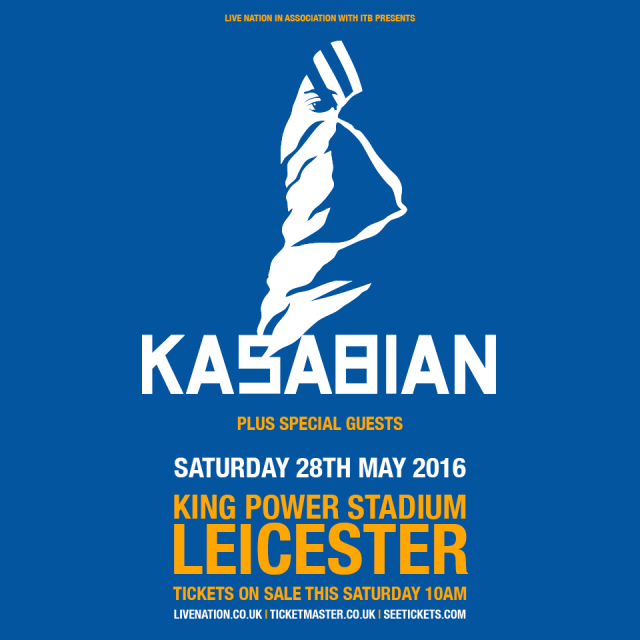
The King Power shows were a celebration not only of the band but also of the city of Leicester, a town where, in that year, the 'Underdog' won. This 'Underdog' victory refers to Leicester City Football Club's unexpected triumph in the Premier League, a feat achieved at odds of 5000-1. Kasabian, being from Leicester, wanted to celebrate this historic event, which was a testament to the city's spirit and resilience.
It was a show that saw them dig out some old classics. ‘Doberman’ from 2006’s ‘Empire’ got a brief outing as an acoustic ballad, and towards the end of the set, ‘Stuntman’ was lapped up by the King Power faithful. A look to the future with a then-new track, 'Put Your Life on It', getting its first run out. Noel Fielding returned in his iconic role as 'Vlad the Impaler', a character known for his flamboyant and theatrical persona, adding a unique element to the show. The unofficial anthem for the Premier League, 'Fire', was played at the home of the Premier League winners, further adding to the celebratory atmosphere.
The Killers, in 2017, unveiled ‘Wonderful Wonderful,’ a testament to their versatility. The album featured well-received tracks like ‘The Man’ and ‘Run for Cover,’ both of which were hailed as some of the year’s best indie songs. However, it was 'Tyson vs Douglas' that truly stood out for me. This hidden gem in the band’s discography, with its gritty storytelling and raw emotion, showcased a side of the band that was less polished but equally compelling.
'Wonderful Wonderful' marked a triumphant return to form for The Killers. The album was a testament to their ability to evolve while staying true to their roots. It delivered anthemic tracks and a darker, more introspective tone that ran through parts of the record. This balance of bombast and intimacy allowed The Killers to reconnect with their core sound while venturing into new emotional territory. It was a reassuring reminder to fans of why The Killers continue to be one of the most compelling bands in modern rock.
In 2017, Gerry Cinnamon released ‘Erratic Cinematic,’ a raw and heartfelt collection of songs that captured the gritty essence of working-class life in Glasgow. The album earned him a small yet devoted following, with tracks like ‘Sometimes’ and ‘Belter’ quickly becoming anthems among his fans. Initially, the album didn’t make a significant impact beyond his local scene, but things changed dramatically in 2018.
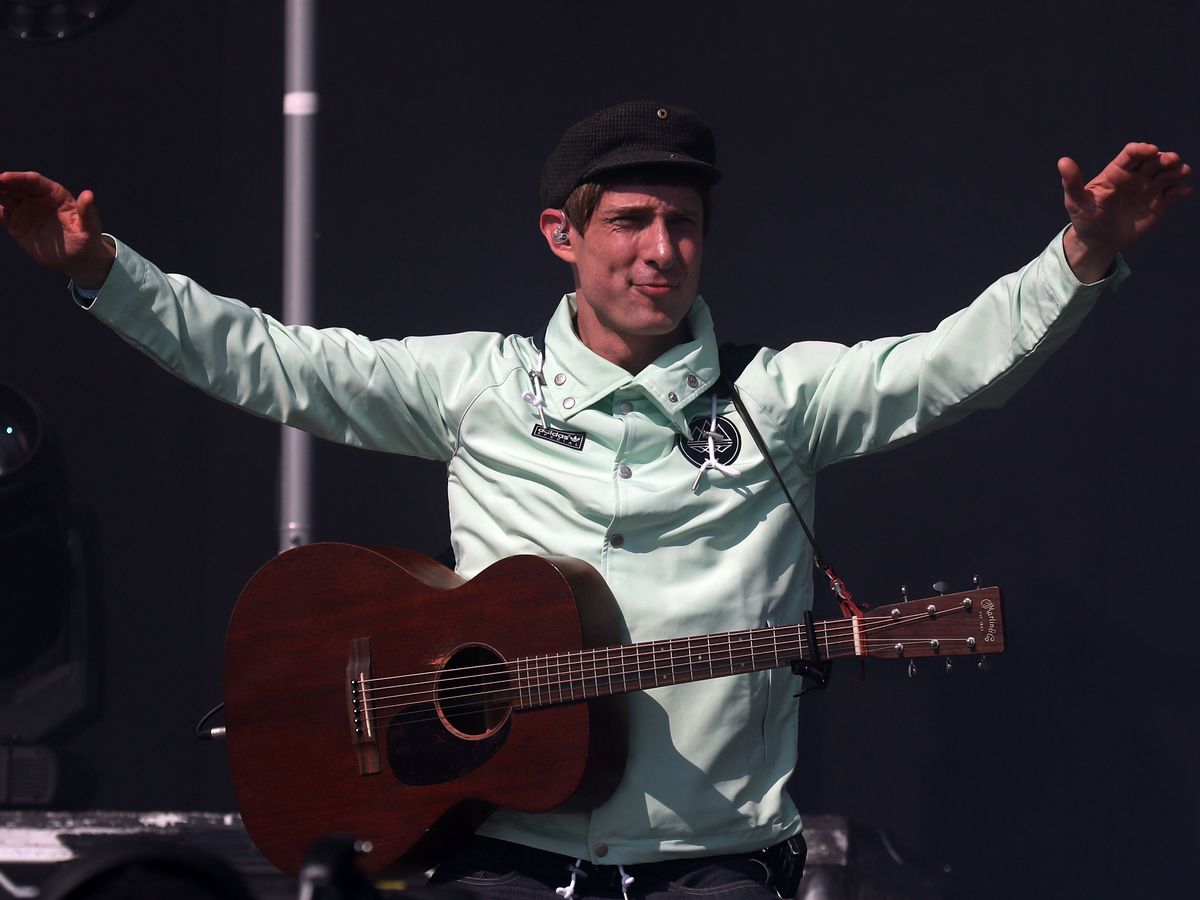
After a standout appearance at TRNSMT Festival, where Gerry played a 45-minute set to a massive crowd that the BBC later broadcast, he won over not only the audience but also many fellow musicians. His authentic storytelling and commanding stage presence marked him as a rising star. Soon after, The Courteeners invited him to join their tour, further expanding his reach, while Liam Gallagher himself publicly praised Gerry’s music, helping to cement his growing reputation. Gerry Cinnamon had arrived as a voice for everyday people, delivering relatable, no-nonsense songs that resonated far beyond Glasgow. His lyrics, reflecting the experiences of the common man, were striking a chord with listeners worldwide. The world was starting to take notice, and it was clear this was just the beginning of his journey.
And now, let's turn our attention to a significant event: the return of Liam Gallagher. Three years after the disbandment of Beady Eye, he made a triumphant comeback with a solo album, ‘As You Were’. This album was not just a commercial success, but also an artistic triumph. It topped the charts, achieved Platinum status, and most importantly, it reminded the world why Liam Gallagher was and still is one of British music’s most compelling leads.
Unlike Beady Eye, which had struggled to find its unique sound, ‘As You Were’ struck a perfect balance between nostalgia and reinvention. Liam Gallagher, in collaboration with top-tier songwriters like Greg Kurstin and Andrew Wyatt, crafted a record that played to his strengths without sounding like a mere echo of the past. The result was a confident, swaggering collection of modern rock songs that still bore the unmistakable mark of Liam Gallagher.
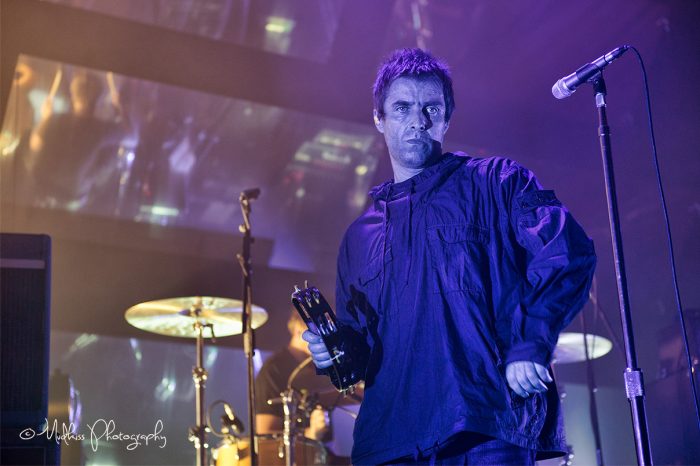
The album took a surprising turn, spanning a wide emotional and sonic range, from the stomping glam rock of ‘Greedy Soul’ to the aching, Lennon-esque ballad ‘For What It’s Worth’, which saw Liam at his most reflective and vulnerable. Tracks like ‘Wall of Glass’ exploded with attitude and immediacy, instantly earning their place in Liam’s live setlists and giving him his first true solo anthem. Meanwhile, songs like ‘Chinatown’ showed a softer, more psychedelic side, hinting at the depth and versatility behind the bravado.
‘As You Were’ wasn’t just a successful solo debut. It was a statement. Liam Gallagher didn’t just survive the post-Oasis wilderness; he roared back into relevance. The fans came back in droves, the arenas sold out, and critics, once sceptical, were forced to take notice. It was the start of a remarkable second act in a career that many had counted out. And, as we’ll see, this was only the beginning.
Meanwhile, Noel Gallagher also released an album in 2017: ‘Who Built the Moon?’, a bold, technicolour reinvention that marked the most radical departure of his career to date. This album was not just a change; it was a seismic shift. Gone was the image of the stoic songwriter hunched over an acoustic guitar; in his place stood a reinvented artist, embracing psychedelic flourishes, electronic textures, and vibrant, left-field production choices.
Produced by David Holmes, ‘Who Built the Moon?’ took listeners on a whirlwind journey through glam, psych-pop, krautrock, and dance. It was a sonic risk, brash, surreal, and at times bewildering, which earned it a divisive reception. Some fans were thrilled by the transformation; others, steeped in Oasis nostalgia, weren’t quite sure what to make of it. But whether loved or loathed, it was impossible to ignore, sparking heated debates and discussions.
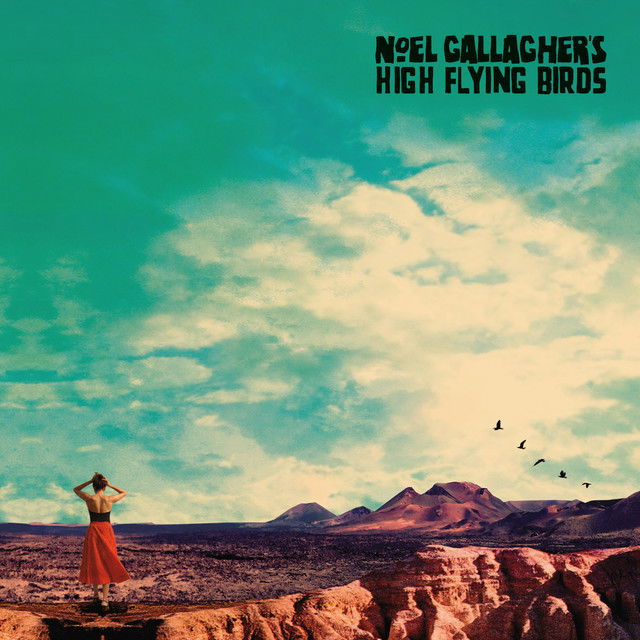
For all the experimentation, the album still delivered moments of pop brilliance. ‘Holy Mountain’ is a euphoric, horn-driven romp that channels glam-era Bowie via The Rubettes pure, joyous nonsense in the best way possible. ‘She Taught Me How to Fly’ shimmered with an irresistible post-punk groove, like Blondie jamming with New Order, while ‘Keep On Reaching’ and ‘If Love Is the Law’ added depth with soulful backing vocals and cinematic scope.
The record was Noel throwing caution to the wind, proving he wasn’t interested in resting on the laurels of his past. While ‘Chasing Yesterday’ had been a logical step forward, ‘Who Built the Moon?’ was a leap into the unknown. And although it confused some longtime fans, it showed that Noel still had creative fire and the guts to challenge expectations. In hindsight, it may well stand as one of the most daring and underappreciated chapters in his post-Oasis career.
Following the release of ‘Who Built the Moon?’, Noel Gallagher continued his adventurous streak with a trio of bold and eclectic EPs: ‘Black Star Dancing’, ‘This Is the Place’, and ‘Blue Moon Rising’. These records saw Noel diving headfirst into experimental territory, fully embracing disco grooves, synth-led arrangements, and cosmic textures that stood in stark contrast to the Britpop sound he once helped define. Tracks like ‘Black Star Dancing’ fused Bowie-esque funk with dancefloor swagger, while ‘This Is the Place’ felt like a love letter to Manchester’s iconic club culture full of baggy beats, swirling effects, and post-rave psychedelia. ‘Blue Moon Rising’ offered perhaps the sleekest, most nocturnal cut of them all, moody, pulsing, and perfectly suited for late-night escapism.
These EPs felt like Noel stretching his creative legs with real freedom and confidence, untethered from the expectations of full album cycles or the weight of legacy. While many fans might have expected a return to acoustic anthems, Noel doubled down on reinvention. Yet amid the experimentation, there were moments of deep reflection. Tracks like ‘Sail On’ and ‘A Dream Is All I Need to Get By’ offered stripped-back beauty that echoed the melodic, melancholic charm of his earlier songwriting. And then there was ‘Come On Outside’, a long-lost Oasis track finally given its due. With its soaring chorus and lyrical bite, it served as a nostalgic but potent reminder of what made Noel a songwriting force in the first place. There really was something for everyone.
The city of Manchester, along with the rest of the world, rallied together around one thing: music.
Watch this powerful moment here- mourners gathered in Manchester, singing 'Don’t Look Back in Anger' by Oasis, a song that became a symbol of hope, love, and defiance.
In the days that followed, the One Love Manchester concert was organised, a significant event that saw Ariana Grande unite artists at Old Trafford Cricket Ground in Manchester on June 4, 2017. With the help of Simon Moran, Melvin Benn and Scooter Braun, Ariana managed to get an all-star bill which included Justin Bieber, the Black Eyed Peas, Coldplay, Miley Cyrus, Mac Miller, Marcus Mumford, Niall Horan, Little Mix, Katy Perry, Take That, Imogen Heap, Victoria Monét, Pharrell Williams, Robbie Williams and Liam Gallagher. This event was a powerful symbol of resilience and unity in the face of tragedy.
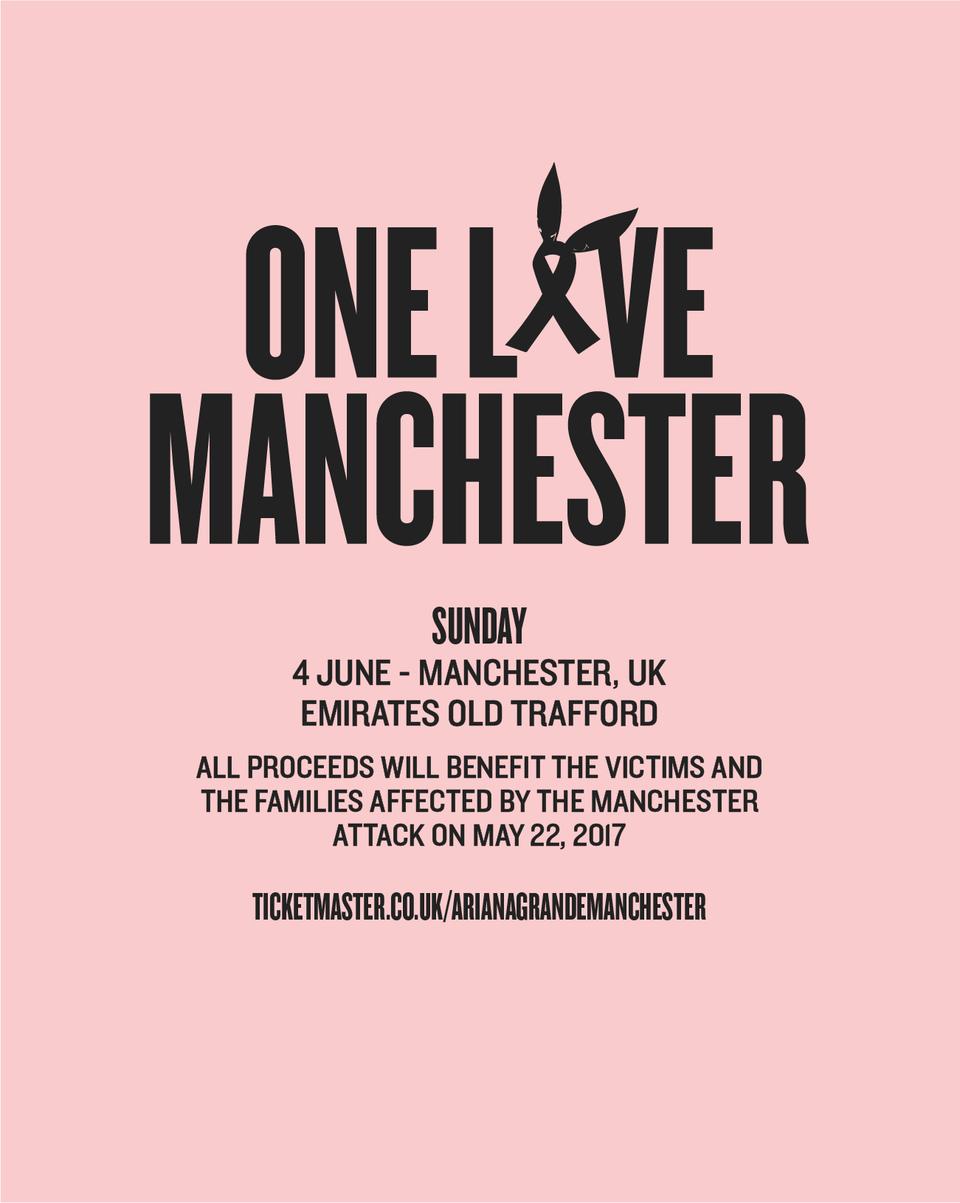
During the concert, the British Red Cross received a staggering £2.35 million in donations for the We Love Manchester Emergency Fund. By the next day, the British Red Cross announced it had received more than £10 million since the attack. These funds have already made a significant difference in the lives of those affected. Grande also donated all proceeds to the fund from a re-release of her single 'One Last Time' and a live audio version of 'Somewhere Over the Rainbow' that she performed during the concert.
The concert, a global event, was attended by 55,000 people and broadcast on TV and Radio stations across the UK, including on the BBC. It is also broadcast in 38 countries across the globe, showcasing the widespread support and solidarity for Manchester.
The We Are Manchester concert, a significant event in the city's recovery, was organised to reopen the arena, following the repairs caused by the bomb. Headlined by Noel Gallagher's High Flying Birds and featuring Manchester legends Courteeners, indie upstarts Blossoms, alongside others, it was a powerful symbol of the city's resilience and unity. It was a chance for the city to celebrate its rich musical history, as well as raise funds for the families and those who were affected by the attack.
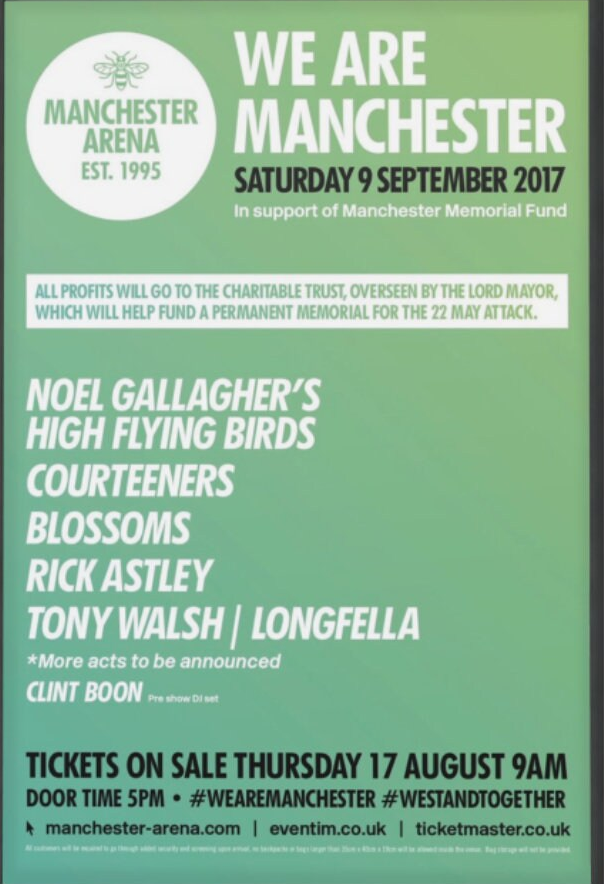
In times of profound grief and loss, it was music that gave people strength. It provided a space for defiance against the hatred that caused the pain. Music, in its purest form, was and always will be a profound source of healing, offering comfort and soothing the soul. It showed the world just how vital music is in moments of crisis, and it will forever remain a beacon of light in the darkest of times.
Cool Like You- The 10s Part 4
2018 was quite the year for guitar music. It saw debut albums from Tom Grennan and Fontaines D.C., and The 1975 would release what many critics called this generation's OK Computer, as claimed by NME. Arctic Monkeys, on the other hand, would release an album that divided their fan base in half.
Blossoms released the brilliant 'Cool Like You', proving they were far more than a fleeting success; they were a band built to last. This album marked a significant shift in their sound, embracing shimmering synths and heavy 80s influences while still holding on to their gift for crafting effortlessly catchy indie pop. Every track could've been a single, with standouts like 'I Can't Stand It', 'There's a Reason Why (I Never Returned Your Calls)', and 'How Long Will This Last' leading the charge. Even deeper cuts like 'Lying Again' and 'Stranger Still' showcased just how confident and consistent the band had become in their songwriting.
The album kicks off with 'There's a Reason Why (I Never Returned Your Calls)', a bright, punchy opener driven by infectious synths and a soaring chorus. It's danceable, melodramatic, and tailor-made for the live stage. The kind of song that practically demands to be screamed back in a packed venue. From the first note, it made one thing clear: Blossoms weren't afraid to go full pop, and that boldness defines the record.
'I Can't Stand It' sits at the emotional core of the album. Written in the aftermath of heartbreak, it blends vulnerability with grandeur, a song steeped in sadness but dressed in a vast, irresistible hook. Frontman Tom Ogden has a rare talent for turning pain into something cinematic, and this track is a perfect example of heartbreak turned into art.
Some critics saw the album's polish and pop sensibility as a departure, but that misses the point entirely. 'Cool Like You' wasn't a compromise; it was a celebration of melody, synths, and perfectly structured pop songs. This was Blossoms' evolution, not abandonment of their roots.
Though often overlooked in their catalogue, 'Cool Like You' proved to be a significant turning point for Blossoms. It gave them the momentum to play bigger stages, sell out headline tours, and even command football stadium crowds.
In June 2019, Blossoms played a massive, sold-out show at Stockport's Edgeley Park to celebrate the album, a true homecoming for the band. The night was bursting with colour and energy, with the band stepping out on stage in eye-catching multi-coloured suits that perfectly matched the vibrant, synth-heavy sound of 'Cool Like You'. It was a bold, fun fashion choice that set the tone for the evening and reflected the band's playful yet polished new identity.
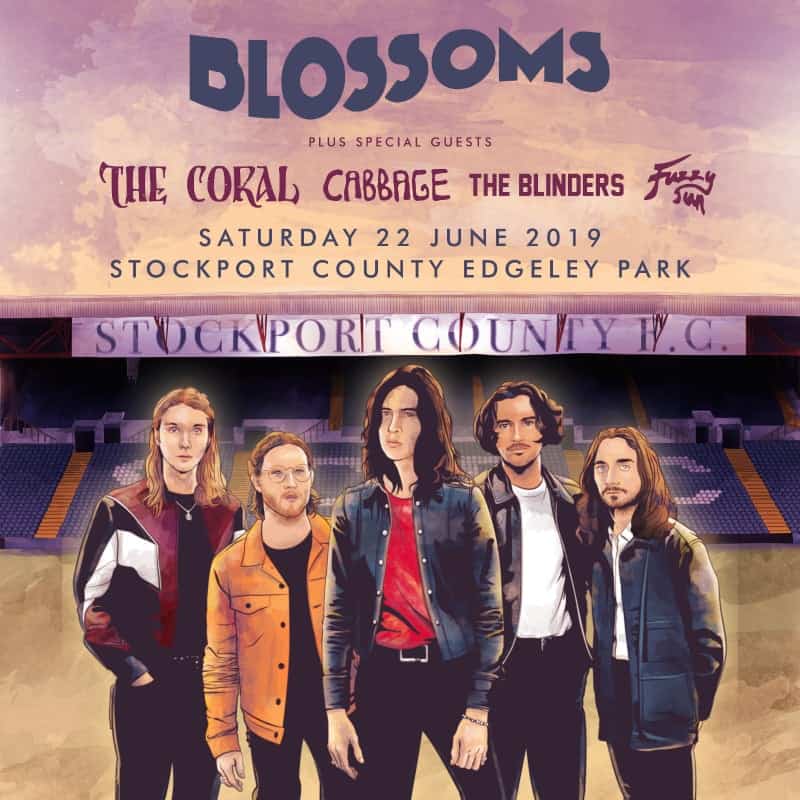
The gig also featured support from some excellent local acts, adding to the sense of community and making it feel like a real celebration of the North's music scene. The crowd was buzzing with anticipation as fans, many of whom had followed Blossoms from their earliest days, packed the stadium to witness this landmark moment. The homecoming vibe was unmistakable, a band returning to their roots but doing so on their own terms, now fully confident and commanding.
Blossoms’ set that night was a captivating blend of catchy indie-pop and heartfelt emotion. They opened with a powerful rendition of ‘At Most a Kiss’, immediately setting an upbeat and infectious tone that had the crowd captivated from the first note. As they transitioned into fan favourites like ‘I Can’t Stand It’ and ‘Cool Like You’, the emotional connection only deepened, with everyone singing along to the shimmering synths and irresistible hooks.
Midway through the set, they slowed things down beautifully with tracks like ‘Honey Sweet’ and ‘Stranger Still’, showcasing their ability to craft introspective and poignant moments amid the anthems. The nods to their influences came with covers like ‘Between the Eyes’ fused with New Order’s ‘Blue Monday’ and the tender Oasis tribute in ‘You’re Gorgeous’, combined with ‘Half the World Away’ moments that felt like a heartfelt conversation between the band and their fans.
As the night built to a crescendo, songs like ‘There’s a Reason Why (I Never Returned Your Calls)’ and the triumphant closer ‘Charlemagne’ had the crowd fully immersed, singing back every word with unbridled passion. The setlist was a perfect balance of new material and beloved tracks, reflecting Blossoms’ growth while keeping the connection with their audience firmly intact.
While we’re on the subject of big gigs, it’s worth mentioning Courteeners at Heaton Park, which also took place in 2019. The band had been flying under the radar for years, but their fan base adored them. In their hometown of Manchester, they were regarded as one of the city’s great bands. The Heaton Park show was a landmark moment, with 50,000 tickets sold for the second time in two years. They had achieved the same feat two years earlier when they performed at Lancashire County Cricket Club, a venue usually reserved for the likes of Arctic Monkeys, Oasis, and Radiohead.
The night also featured support from Manchester legends James, along with the rising stars DMA’s and Pale Waves, who perfectly warmed up the crowd and set the tone for what was to come. The energy was palpable from the very first act, building up to the Courteeners taking the stage.
During the show, Liam Fray spoke candidly during ‘Here Come the Young Men’: “Manchester, you probably don’t know [but] we’ve had a bit of a difficult year as a band individually,” he said. “But we aren’t individuals in this band because we’re a team.” This moment of honesty resonated deeply with the audience, highlighting the band’s resilience and tight bond, inspiring a sense of connection and unity among the fans.
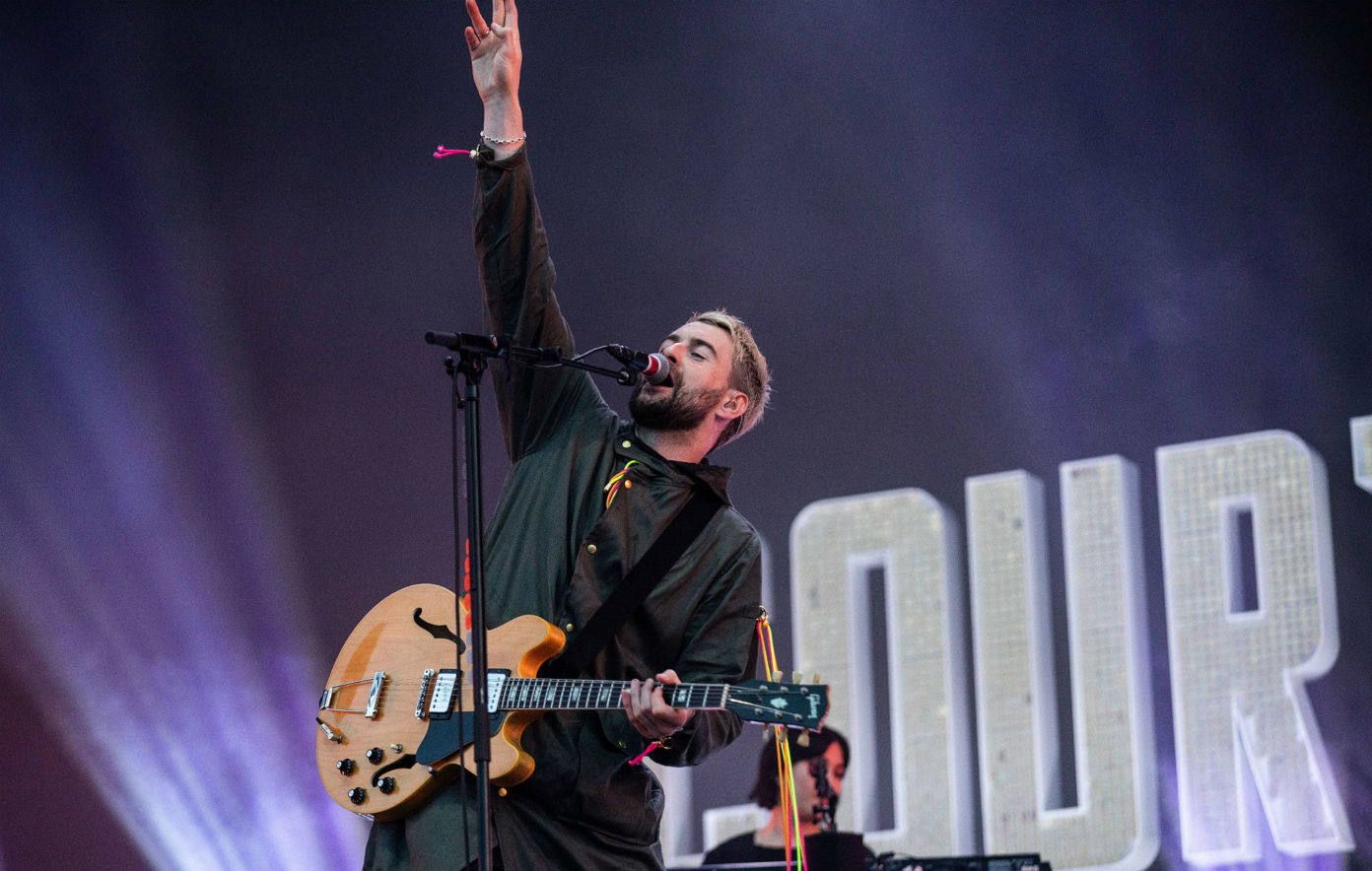
The Courteeners’ setlist at Heaton Park was a masterclass in both nostalgia and energy, perfectly balancing fan favourites with some deeper cuts. They opened with the anthemic ‘Are You in Love With a Notion?’ and followed up with ‘Acrylic’ and the emotional ‘No One Will Ever Replace Us’. Tracks like ‘Summer’ and ‘Take Over the World’ kept the momentum soaring, while ‘Better Man’ and ‘Bide Your Time’ showcased the band’s songwriting depth.
Midway through, songs like ‘Van der Graaff’, ‘Lose Control’, and ‘Small Bones’ fired up the crowd, building towards a powerful finish. The band closed with iconic tracks including ‘Here Come the Young Men’, where Liam’s heartfelt words resonated deeply, followed by the anthemic ‘Not Nineteen Forever’ and the singalong crowd-pleaser ‘What Took You So Long?’.
This setlist perfectly encapsulated the Courteeners’ journey, blending their biggest hits with newer material, giving fans a complete, unforgettable experience that celebrated their rise as one of Manchester’s defining bands.
This gig was proof of how far the Courteeners had come. They'd become one of the UK’s biggest bands, and they had done it on their own terms, without the need for mainstream hype. Their success was built on a loyal following and a strong connection with their fans, and Heaton Park was a celebration of that journey. It was an unforgettable moment for both the band and their devoted crowd.
The Vaccines released ‘Combat Sports’ in 2018, a much heavier album than their previous efforts and a real return to form. A short, snappy indie record with some killer singles, it saw the band reinvent themselves while keeping their energetic, catchy style intact. The standout track, ‘I Can’t Quit’, became a fan favourite and showed the band at their best, bold, confident, and unapologetically loud. Despite suffering from some internal issues that resulted in a lineup change (most notably the departure of drummer Pete Robertson), ‘Combat Sports’ emerged stronger for it. The album marked a turning point for the band and is easily some of their best work to date. A hidden gem of the year.
What made ‘Combat Sports’ land so well was the context of what came before. After the massive success of their debut, The Vaccines released ‘Come of Age’ in 2012, a darker, more mature album that reached No.1 in the UK and showcased their willingness to evolve beyond the fast-paced indie anthems they were known for. Then came ‘English Graffiti’ in 2015, an ambitious, stylistically experimental record that leaned into synths, production effects, and a more modern, Americanised sound. While ‘English Graffiti’ had its moments (‘Dream Lover’ and ‘Minimal Affection’ stood out), it divided fans and critics alike, leaving the band in a bit of an identity crisis.
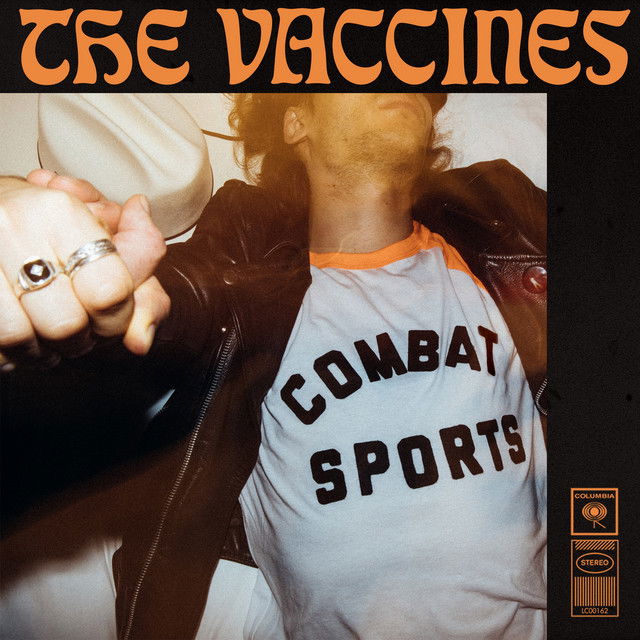
What made ‘Combat Sports’ so refreshing was the band's journey. It felt like The Vaccines had rediscovered who they were, taking the raw energy of their early days and combining it with the experience and grit they’d picked up over the years. The hooks were back, the guitars were front and centre, and there was a real edge to the songwriting that had perhaps dulled during their more polished phase. It wasn’t just a comeback; it was a band proving they still had something to say, and the fire to back it up.
Tom Grennan's 'Lightning Matches' is a testament to his versatility. Released in 2018, it was one of the year’s best pop records, a breakthrough for one of Britain’s best new voices. A real crossover album that transcended genres, Tom's music was often compared to Jamie T, Amy Winehouse, and even John Newman, appealing to both Radio 1 and Radio X listeners. The songs on the album range from the upbeat 'Found What I've Been Looking For' to the sombre 'Something in the Water', showcasing Tom’s versatility and emotional depth. He truly covered it all, from joy to heartbreak, and proved himself as a significant new talent in pop.
Beyond the critical acclaim, 'Lightning Matches' also connected deeply with fans, with its gritty honesty, like in the raw and confessional 'Barbed Wire', and soulful delivery, as heard in the heartfelt 'Royal Highness', striking a chord among a broad audience. Tracks like 'Barbed Wire' and 'Royal Highness' brought swagger and energy, while songs such as 'Aboard' revealed a more introspective and vulnerable side. The album’s raw lyricism and powerful vocals marked Grennan as a storyteller with real substance, capable of navigating the highs and lows of life with authenticity and style. It laid the foundation for a career that promised longevity and continued artistic evolution.
DMA's released their second album, 'For Now', in 2018, building on the success of their debut with a sharper, more confident sound that solidified their place in the modern Britpop revival. While 'Hills End' had introduced them as torchbearers of ‘90s UK indie, drawing frequent comparisons to Oasis and The Verve, 'For Now' showed a band beginning to stretch their sound beyond nostalgia. The production was cleaner, the songwriting more dynamic, and the emotional core deeper.
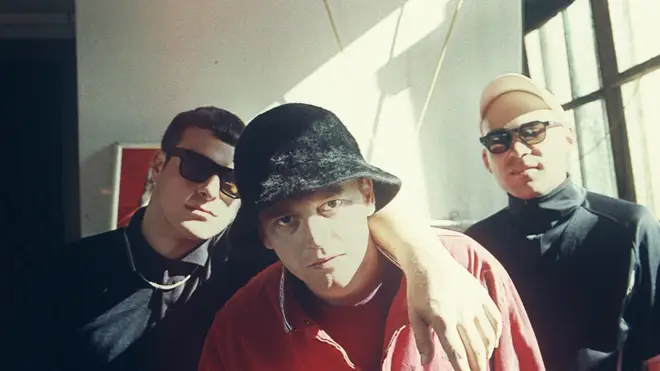
The album, 'For Now', not only hinted at a subtle evolution but also deepened the band's connection with their fans. With touches of shoegaze, dream-pop, and tighter, more electronic-influenced production, the album set the stage for the more experimental direction they'd fully embrace on later records. Lyrically, the album was introspective, dealing with themes of change, uncertainty, and longing, but always delivered with an emotional intensity that resonated deeply with fans, making them feel like an integral part of the band's journey.
The album was not just a musical success, but also a testament to the band's journey. Critically, 'For Now' was well-received, further solidifying DMA’s as one of Australia’s most successful musical exports of the decade. Their rise in the UK was particularly meteoric, leading to bigger stages, larger crowds, and an increasing reputation as a formidable live act. This journey from a small band to a global success story is sure to inspire many aspiring musicians.
2018 also saw the emergence of a unique band from Ireland: Fontaines D.C. Their debut album, ‘Dogrel’, was aptly described by NME as “a debut album that offers both a storyteller’s narrative voice and a snarling new vision of youthful disillusionment.” It’s a true punk masterpiece, blending raw, urgent energy with poetic lyricism and a deep sense of place. Imagine punk meets The Pogues, and you’re halfway there. Grian Chatten’s thick Dublin accent cuts through every track with clarity and intent, lending authenticity to their tales of city life, working-class struggles, and existential angst. Their unique blend of punk and storytelling is sure to intrigue and captivate any music enthusiast.
Tracks like ‘Big’, ‘Too Real’, and ‘Boys in the Better Land’ crackled with intensity, short, sharp bursts of defiance that recalled post-punk greats like The Fall or Joy Division, but with a distinctly Irish identity. Meanwhile, songs like ‘Television Screens’ and ‘Roy’s Tune’ revealed a more introspective, almost literary side, with their lyrics drawing comparisons to writers like James Joyce as much as punk frontmen. The band's use of vivid imagery and complex narratives in these songs is reminiscent of Joyce's literary style, adding a unique dimension to their music. The result was a debut that felt both familiar and entirely new, politically conscious, emotionally charged, and brimming with conviction.
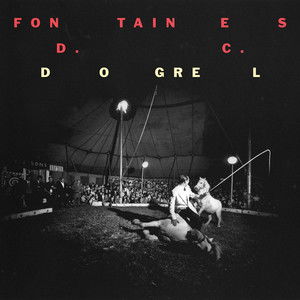
Fontaines D.C. quickly established themselves as one of the most exciting bands of the year, and ‘Dogrel’ marked only the beginning of their ascent. It was more than just a promising debut. It was the sound of a band carving out their place in modern music with guts, heart, and unmistakable purpose.
What truly set them apart was their refusal to dilute their identity. Every lyric, every accent, every clang of guitar rang out with authenticity. They weren’t interested in trend-hopping or chasing radio play; they were building their own world, rooted in Dublin’s streets, shaped by poetry, post-punk, and political unease. The album felt urgent, like a dispatch from a disillusioned generation with no interest in playing nice.
And it paid off. ‘Dogrel’ was shortlisted for the Mercury Prize and ended up on countless album-of-the-year lists, proving that substance still matters in an era of polish and algorithms. It set the stage for their following chapters, where they’d go on to evolve their sound without losing the fire that made their debut so vital. ‘Dogrel’ wasn’t just the start of something; it was a statement of intent, and Fontaines D.C. were only getting started.
The 1975 released ‘A Brief Inquiry into Online Relationships’ in 2018, marking a turning point for the band; it was more than just an album - it was a cultural statement. The NME described the record as "the millennial answer to 'OK Computer'."
The band fully leaned into their ambition, pairing heartfelt vulnerability with genre-hopping experimentation, all while maintaining their pop sensibilities.
One of the most powerful moments on the record comes with ‘Love It If We Made It’, a furious, stream-of-consciousness track that channels societal chaos through bold, unfiltered lyrics. With references to Trump, Kanye, the refugee crisis, and Black Lives Matter, it captures the overwhelming noise of the modern world while somehow clinging to hope. Matty Healy delivers each line with desperation and conviction, and the track’s cathartic chorus "Modernity has failed us" feels like both a cry for help and a call to arms. It’s one of the band’s finest achievements, both lyrically and emotionally.
Give Yourself a Try’ opens the album with frenetic energy, pairing a spiky, distorted guitar riff heavily inspired by Joy Division’s ‘Disorder’ with raw reflections on self-worth, ageing, and therapy. It’s a bold nod to post-punk’s emotional starkness, reimagined through The 1975’s glossy, hyper-modern lens. Healy’s lyrics are anxious, funny, and cutting, as seen in lines like “I found a grey hair in one of my zoots.” The song captures the confusion and self-awareness of your late twenties in a way few others do. It sets the tone for an album that is deeply personal while still being socially observant, finding the overlap between internal struggles and the broader cultural moment. It’s Healy at his most direct, questioning, and ultimately human.
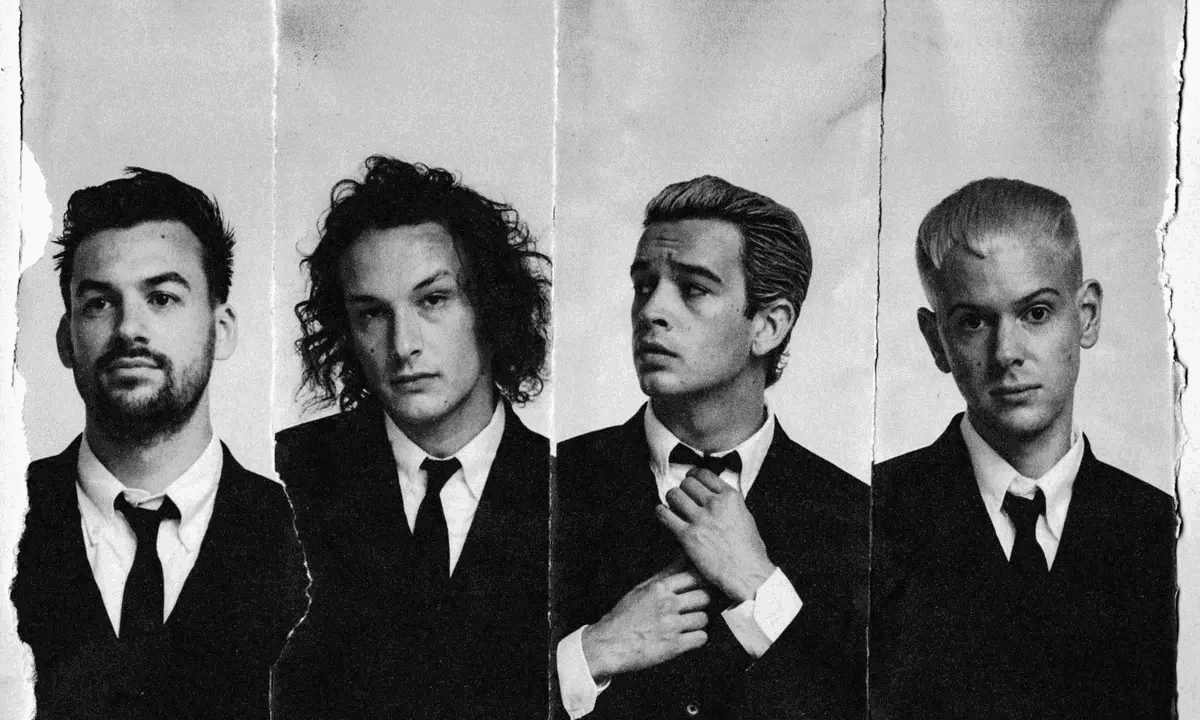
‘It’s Not Living (If It’s Not With You)’ is a song that resonates with pure joy on the surface, all shimmering synths and bright 80s pop sparkle. However, beneath this shiny veneer lies a profound and heartbreaking exploration of heroin addiction. Healy's ability to mask his vulnerability behind euphoric melodies creates a jarring but effective contrast, making the track all the more poignant and inviting the audience to empathise with his struggle.
‘I Always Wanna Die (Sometimes)’ closes the album with cinematic grandeur. This sweeping, Britpop-inspired ballad evokes the melancholic majesty of Oasis’s ‘Champagne Supernova’ or Radiohead’s ‘No Surprises’. Complete with strings and a towering chorus, it’s a stirring reflection on depression. However, it also carries a message of resilience, ending the record on a note of fragile hope that the audience can hold on to.
Meanwhile, ‘TOOTIMETOOTIMETOOTIME’ brings a refreshing levity and irresistible charm. Its bouncing tropical beat, Auto-Tuned vocals, and tongue-in-cheek lyrics tackle digital-age romance and miscommunication with a playful wink. Light, playful, and endlessly catchy, it showed The 1975’s knack for blending pop accessibility with clever songwriting, one of many reasons 'A Brief Inquiry into Online Relationships' became a defining album of its era.
Each of these songs contributes to the album’s broader message, how we navigate love, loss, addiction, and identity in a world increasingly mediated by screens. ‘A Brief Inquiry into Online Relationships’, a critically acclaimed album that explored the complexities of modern relationships in the digital age, proved that The 1975 weren’t just another indie-pop band; they were shaping the conversation, blurring the lines between pop, politics, and personal pain.
Arctic Monkeys released 'Tranquillity Base Hotel & Casino', a polarising album that marked a striking departure from their previous work. Five years after the massive success of AM, fans were eagerly anticipating what Alex Turner and his bandmates would deliver next. What they received, however, was an album that left many confused and, for some, disappointed. The album's departure from their previous sound, the complexity of its themes, and the experimental nature of the music were some of the reasons for this polarising reception. Tranquillity Base Hotel & Casino was nothing like the energetic rock sound of AM or the gritty indie vibe of their earlier albums; instead, it was a bold, concept-driven project set in a lunar hotel for retired rock stars.
For many fans, the album was a shock to the system. Expecting something more familiar, they were confronted with a sound that was quieter, more introspective, and at times, even alienating. The once raucous Sheffield rockers had transformed into a band uninterested in following the expectations of their fanbase. The bold, unconventional direction of 'Tranquillity Base Hotel & Casino' revealed that Arctic Monkeys were no longer the indie darlings of the mid-2000s, nor the same band that had stormed the charts with AM just a few years earlier. It was clear that they were evolving, not only musically but conceptually, and the album's experimental nature divided their once fiercely loyal following.
Ultimately, the album proved that Arctic Monkeys were no longer interested in pleasing their audience with familiar sounds or commercial expectations. Instead, the album marked a definitive turning point, as the band carved out a unique, genre-defying path. By choosing to follow their creative instincts rather than conforming to fan expectations, they reaffirmed their status as one of the most innovative and unpredictable acts in modern music. Whether or not the album found universal acclaim, it was clear that Arctic Monkeys had moved beyond the realm of indie rock icons, evolving into a band whose vision was driven solely by their own artistic desires.
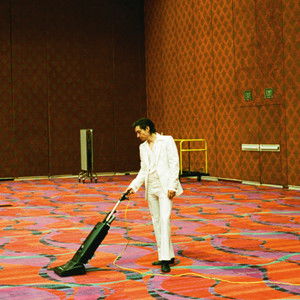
In 2018, 'Beautiful People Will Ruin Your Life' showcased a more atmospheric, almost psychedelic tone, with a tighter focus on songwriting and emotional depth. Tracks like 'Lemon to a Knife Fight' and 'Turn' blended lush instrumentation with introspective lyrics, marking a subtle shift in The Wombats' sound while still delivering the hooks fans had come to love. The album struck a balance between melancholy and melody, embracing a dreamier sonic palette that felt like a natural progression for a band now well into their second decade.
Before we bring the decade to an end, I need to talk about two artists. One male, one female. One British, one American. They are two of the most prominent artists in the world, even now in 2023.
Harry Styles first entered the public consciousness 12 years ago on the British TV show' X Factor', where he, along with his bandmates Louis, Niall, Zayn, and Liam, became part of One Direction. After their success on the show, the band became the biggest boy band in the world. However, in 2016, One Direction went on hiatus, allowing its members to pursue solo projects. Harry Styles' solo career has been nothing short of extraordinary, and let's be real here, he's definitely done the best out of the band. With three number-one albums, two number-one singles, and seven top ten singles, his journey has been meteoric.
On the other side of the Atlantic, Taylor Swift became the most prominent artist in the world at the end of the last decade with the release of 'Reputation' and 'Lover'. She fully embraced pop and synths, moving away from her country roots and securing her place as the world's biggest pop star. But her reign as a pure pop sensation wouldn't last. In the following decade, she reinvented herself yet again, embracing her country roots alongside an indie/alternative sound. Even the world's biggest pop stars were picking up guitars. Taylor Swift's ability to evolve musically shows her versatility and ability to stay relevant, no matter the genre.

2019! I had forgotten about you. It was a fantastic year for music. Tame Impala was back after four years away, Stereophonics would release another classic, Liam's second solo album, not one but two Foals albums, and a certain Mr Sam Fender would rear his head.
Let's talk about Catfish & the Bottlemen. This year, they dropped ‘The Balance’, their third and, for now, final album. With hit singles like ‘Longshot’ and ‘Fluctuate’, this record was a turning point in their career. Their anthemic, no-frills indie rock catapulted them to the top of festival lineups. They headlined TRNSMT, Reading & Leeds, and NBHD Weekender, a testament to their growing influence and the power of ‘The Balance’.
'The Balance' didn’t reinvent the wheel musically, but that’s part of its allure. It's quintessentially Catfish & the Bottlemen: tight, hook-laden, stadium-ready indie rock with driving guitars and sing-along choruses. While some critics may have desired more evolution, fans embraced the familiarity. Tracks like ‘Encore’ and ‘2all’ carry that signature sound forward, delivering exactly what longtime listeners adore: heartfelt lyrics wrapped in raw energy.
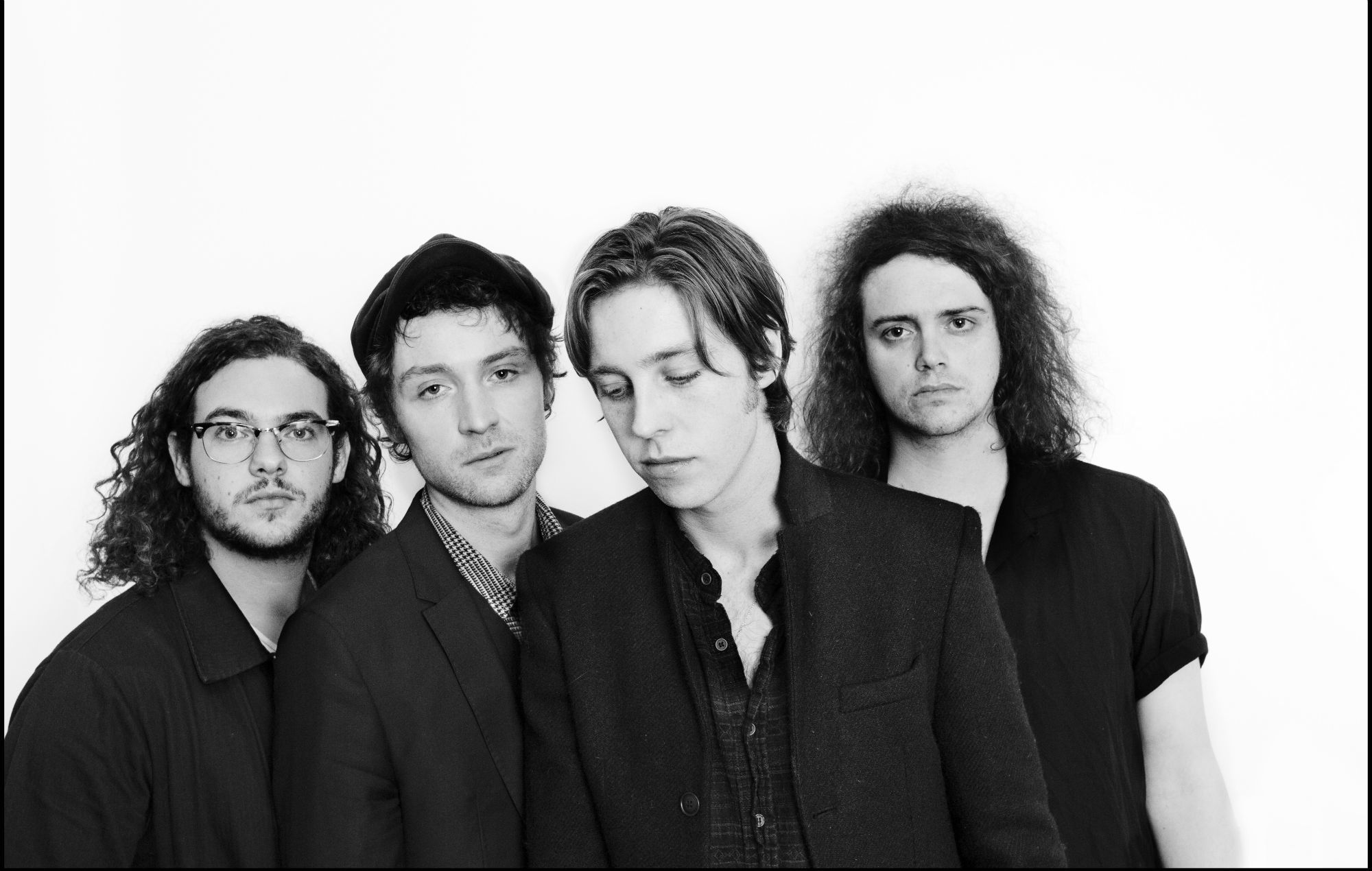
What makes 'The Balance' even more significant in hindsight is that it ended up being the final release before the band's extended silence. It would also be the last time they played live, stepping away from the spotlight at what seemed like their peak. For a band that had quickly risen from sweaty club gigs to arena and festival headliners, it felt like an abrupt pause. Rumours swirled, but the silence only added to the mystery.
Stereophonics would strip things back on their 11th album, 'Kind', slowing down the pace and letting Kelly Jones' storytelling do the heavy lifting. Moving away from the anthemic rock of previous releases, the album leaned heavily into acoustic instrumentation, raw vocals, and lyrical vulnerability. It was a bold change in direction for a band so often associated with arena-ready choruses and swaggering riffs, but it paid off. 'Kind' was well received by both fans and critics. It gave us some of the band's most cherished modern songs, including 'Fly Like an Eagle', 'Make Friends with the Morning', and 'Hungover for You', all of which have become fan favourites and regulars in their live sets.
What made 'Kind' stand out was its sincerity. The stripped-back production gave space for Kelly's voice and lyrics to truly shine, and the songs felt confessional, honest, and deeply human. It reflected a more mature band, one willing to slow things down and embrace imperfection. There was no need for gloss or bombast here; 'Kind' was about emotion, reflection, and a sense of grounding. Tracks like 'Bust This Town' and 'Stitches' added to the album's introspective depth, capturing the quiet struggles and redemptive moments that come with age, growth, and life outside the spotlight.
It was fascinating to see the band take this more vulnerable approach, and it truly worked. In many ways, 'Kind' became a career highlight not because it was the loudest or the boldest, but because it was perhaps the most human. It reminded long-time fans of the heart and soul that's always been at the core of Stereophonics' music.
Liam Gallagher would pick up right where he left off with 'Why Me? Why Not?', his second solo album, was released in 2019. Building on the winning formula that made ‘As You Were’ such a triumphant comeback, Liam once again leaned into classic rock influences, anthemic choruses, and sharp songwriting, and it paid off, exciting fans and critics alike about his continued musical journey.
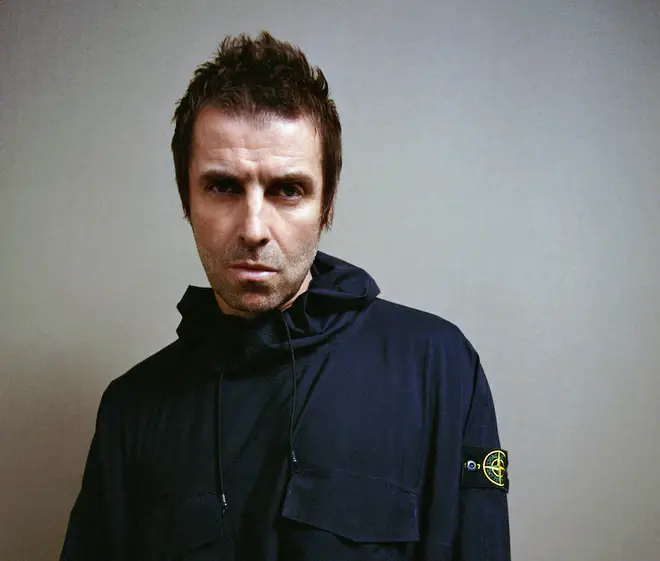
This time around, there was a deeper emotional core running through the record. Tracks like ‘Once’ revealed a side of Liam that fans had rarely seen: nostalgic, honest, and even a little vulnerable. With lines like “You only get to do it once,” it felt like he was coming to terms with his past: the rise, the fall, and everything in between. This personal growth and introspection made 'Once' one of his most beloved solo tracks for a reason, resonating with fans on a deeper level.
Similarly, ‘One of Us’ felt like a letter to his brother Noel, a yearning for reconciliation wrapped in a stomping, sing-along groove. It wasn’t just a highlight musically; it stirred something emotionally, hinting at regrets and unfinished business between two of the most iconic siblings in British music. The emotional depth of 'One of Us' is sure to move and make the audience reflect on the complexities of human relationships.
And then there’s ‘Halo’. Look, no album’s perfect, and while ‘Halo’ aimed for a kind of Beatlesy fuzz-rock charm, it missed the mark for some listeners (myself included). This acknowledgement of the mixed reception of 'Halo' validates the audience's diverse opinions and adds to the richness of the music discourse. But it’s a rare misstep in an otherwise strong record.
‘Why Me? Why Not?' proved that Liam’s return to music wasn’t a fluke. It solidified his place not just as a Britpop icon but as a relevant, compelling solo artist in his own right. With two major albums under his belt and massive solo shows to match, he’d stepped out from the shadows of the Oasis legacy.
When it comes to groups, Foals definitely took the crown in 2019. That year, they achieved something rare: they released not just one, but two career-defining records, ‘Everything Not Saved Will Be Lost – Part 1’ and ‘Part 2’. These companion albums represented the band’s most ambitious and accomplished work to date, released just six months apart, Part 1 in March, and Part 2 in October.
The dual-album concept wasn’t just a gimmick; it was a creative necessity. The material Foals had crafted during the sessions was too expansive, too diverse, and too emotionally weighty to be contained in a single LP. Together, the two records reflect a world teetering on the edge politically, environmentally, and emotionally. It’s a theme Foals captured with cinematic clarity.

Part 1 feels like the slow-burning realisation that everything is falling apart. Songs like ‘On the Luna’ blend upbeat rhythms with anxious, surreal lyrics, while ‘Syrups’ sinks into a hazy, apocalyptic atmosphere. The euphoric ‘In Degrees’ pulses with dancefloor energy, while still asking the question of how we let things slip so far. The album ends with ‘I’m Done With the World (And It’s Done With Me)’, a haunting closer that embodies resignation and reflection.
If Part 1 is the realisation of collapse, Part 2 is the fightback. It’s more aggressive, muscular, and unrelenting, an album designed for stadiums and revolutions alike. ‘The Runner’ and ‘Black Bull’ are explosive, rallying cries that find the band embracing a heavier, more feral sound. ‘10,000 Feet’ and ‘Into the Surf’ show the band’s mastery of atmosphere, balancing weight with fragility. There’s fury in these tracks, but also a deep, beating heart.
But for Foals, it was the ultimate triumph. They captured the chaos of modern life without sounding overindulgent or detached. Instead, they drew us in, made us dance, made us think, and made us feel. The Everything Not Saved era didn’t just showcase a band at the peak of its powers; it showed a band still growing, still challenging itself, and still speaking to the present moment in ways few others could.
Sam Fender, the Geordie Springsteen, would release his debut album ‘Hypersonic Missiles’ in 2019, a powerful, passionate record that captured the anger, hope, and heartbreak of Britain’s forgotten towns. It was the sound of a young man staring down the contradictions of modern life, and it instantly established Sam as one of the most vital voices in contemporary British rock. The emotional depth of this album is a testament to Fender's ability to connect with his audience on a profound level.
‘Hypersonic Missiles’ is a rallying cry, but it’s also a confession. Fender emerged not just as a songwriter with sharp observational skills, but as someone unafraid to lay bare his own vulnerabilities. The record gave a voice to the silenced and the ignored: the working class, the disenfranchised, the lost. Its themes ranged from social inequality and toxic masculinity to suicide, economic stagnation, and the suffocating weight of expectation in post-industrial Britain. Fender's courage in addressing these issues head-on is truly inspiring.

Tracks like ‘Leave Fast’ resonate deeply with many listeners, capturing the tug-of-war between hometown pride and the yearning to break free. With poignant lyrics like "An old man told me to leave fast or stay forever," The song encapsulates the bittersweet love for one's roots and the compelling desire to explore beyond.
‘Dead Boys’ emerged as a cultural milestone, sparking crucial conversations about men’s mental health, male suicide, and emotional suppression. It wasn’t just a song; it was a seismic cultural event. Its quiet, haunting, and devastating melody echoed a truth that many had felt but few had dared to voice.
The title track ‘Hypersonic Missiles’ opens the album with bombast and sarcasm, mocking the media's obsession with chaos while calling out the complacency of the powerful. Elsewhere, ‘The Borders’ arguably one of the album’s most emotionally raw moments, explores fractured male friendship and the legacy of childhood trauma, giving the record an intimate and deeply human core.
What makes ‘Hypersonic Missiles’ so important is that it feels lived-in. These are not abstract ideas or borrowed sentiments. They are experiences, stitched into the DNA of every line Fender sings. He gave a voice to a generation that often feels unheard, and in doing so, revived the political power of rock music.
So that brings us to the end of the 2010s. Quite the decade. A decade in which the world changed a lot, and unfortunately, not always for the better. For me, it was also the decade I became a teenager and witnessed these changes firsthand. Amidst the turmoil and transformation, a narrative often pushed by critics emerged: that guitar music was dead.
But here's the truth: that narrative couldn’t have been further from reality. Guitar music didn't die; it evolved, adapted, and thrived in new and unexpected ways. We saw bands like Tame Impala, Wolf Alice, The 1975, and Fontaines DC redefine what guitar-driven music could sound like. From the psychedelic undertones of Tame Impala's 'Currents' to the post-punk energy of Fontaines DC’s 'Dogrel', guitar music remained vital, innovative, and alive in the 2010s.
The decade also gave rise to solo artists like Sam Fender, Liam Gallagher, and Harry Styles, all of whom embraced guitars while pushing boundaries. The sound of guitars may have changed, but it was very much alive, whether it was blended with pop, psychedelia, electronic elements, or indie rock.
The critics might have predicted the death of guitar music, but the artists proved them wrong. Guitar music may have evolved, but it never left us. And in that evolution, it found new ways to connect, to provoke, and to inspire. Fittingly so for a decade that saw the world change in ways we never expected. Guitar music is alive, and it's here to stay.
Seventeen Going Under- The 20s Part 1
So that brings us to the 2020s. The decade we are currently in will undoubtedly be remembered for a global pandemic that brought the world to a halt. Even though we are only three years into it, this decade has already been memorable for many reasons, including the release of some truly incredible albums. Bands worldwide have continued to thrive, and guitar music has found a new life.
The 1975 released ‘Notes on a Conditional Form’ in 2020 after a slight delay, a delay that only added to the anticipation surrounding the follow-up to their critically acclaimed ‘A Brief Inquiry into Online Relationships’. What we got was not just an album, but a testament to their commitment to their craft. A sprawling, 22-track opus that defied expectation and refused to be boxed in. It was messy, inconsistent, and at times polarising, but it was also brave, inventive, and unlike anything else released that year.
From the ambient opener ‘The 1975’ featuring climate activist Greta Thunberg, to the heavy punk energy of ‘People’, to the soft introspection of ‘The Birthday Party’, this was an album that genre-hopped without apology. One minute it was glitchy garage (‘Yeah I Know’), the next it was orchestral beauty (‘The End (Music for Cars)’), and then suddenly you’re in full-blown Americana territory with ‘Roadkill’. Matty Healy and the band, with their unique sound, pushed themselves creatively, embracing chaos and vulnerability in equal measure.
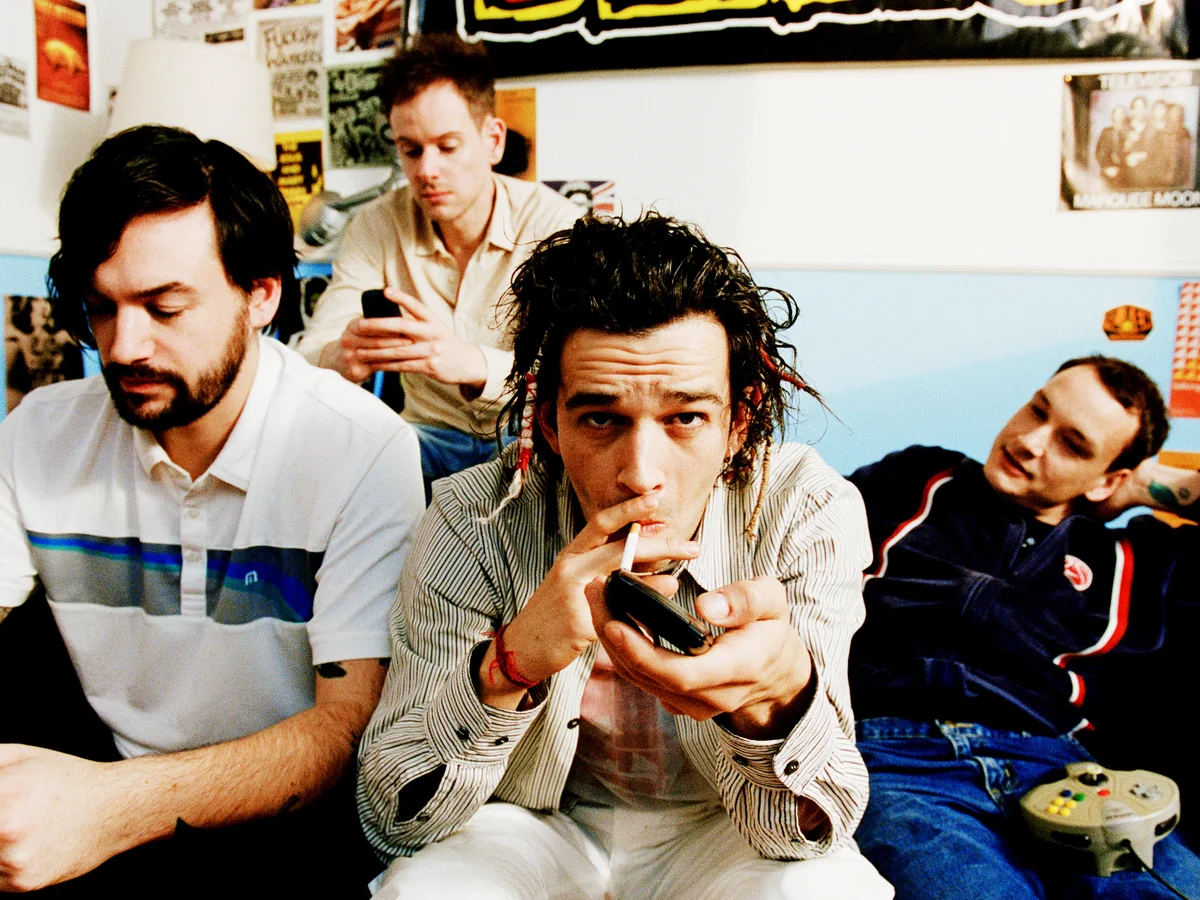
Despite its length and ambition, there were standout moments of real intimacy and clarity. Songs like ‘If You’re Too Shy (Let Me Know)’ reminded fans that The 1975 can still write the perfect indie-pop banger, while ‘Guys’ served as a simple, heartfelt tribute to the band's friendship and shared history.
‘Notes on a Conditional Form’ may not be their most cohesive record, but in many ways, it’s their most revealing. It captures the band in transition, searching, evolving, and daring to let their guard down.
Courteeners made a courageous and invigorating return in 2020 with 'More. Again. Forever.', an album that marked a daring evolution in both sound and substance. After more than a decade of indie anthems and working-class poetry, this record showcased a band not content with resting on past glories. Instead, they fearlessly embraced a more experimental palette, inspiring listeners with their boldness.
The opening track, 'Heart Attack', immediately set the tone as an urgent, synth-driven song that felt closer to New Order than the Britpop grit of their early albums. It was clear from the outset: this was Courteeners stepping out of their comfort zone and doing so with purpose. That ambition continued with 'Heavy Jacket', a swaggering, LCD Soundsystem-inspired anthem driven by pulsating basslines, snappy percussion, and a dancefloor sensibility that made it one of their most infectious tracks to date. It was as much about attitude as it was about reinvention.
Then came 'Better Man', arguably one of the most quietly powerful moments on the record. With echoes of R.E.M. in its jangling guitars and introspective tone, the track saw Fray reflect on masculinity, redemption, and the pursuit of self-improvement. Its sincerity struck a chord with longtime fans and newcomers alike, revealing a depth and vulnerability that elevated the album far beyond its genre conventions.
But the emotional centrepiece of 'More. Again. Forever.' was undoubtedly 'Hanging Off Your Cloud'. Sparse and cinematic, the song saw Liam Fray at his most poetic, delivering one of his finest vocal performances to date. Built around delicate piano chords and swelling strings, the track was a tender, elegiac tribute to loss, memory, and hope. It was a stark contrast to the album’s more bombastic moments, and its quiet power lingered long after the final note. In many ways, it felt like a new high watermark for the band’s songwriting.
Critically, the album was widely praised as one of the Courteeners’ most mature and cohesive works. It found them in a rare creative sweet spot, embracing growth without abandoning the grit and passion that had earned them a loyal fanbase. 'More. Again. Forever.' wasn’t just a sonic departure; it was a resolute statement of intent. It confirmed that Courteeners were not merely survivors of the 2000s indie wave; they were artists still pushing forward, evolving, and still very much in the conversation. Their commitment to growth is something to be proud of.
Sadly, the pandemic prevented them from properly touring it. However, they still managed to give it a memorable send-off with an unforgettable Old Trafford Cricket Ground show. This event, which featured performances from Johnny Marr, Blossoms, and The Big Moon, was a testament to the power of live music and the spirit of unity that still exists in the music community, even in challenging times. The pandemic, while a hindrance, also provided a unique backdrop for the album's release, influencing its reception and the band's creative process.
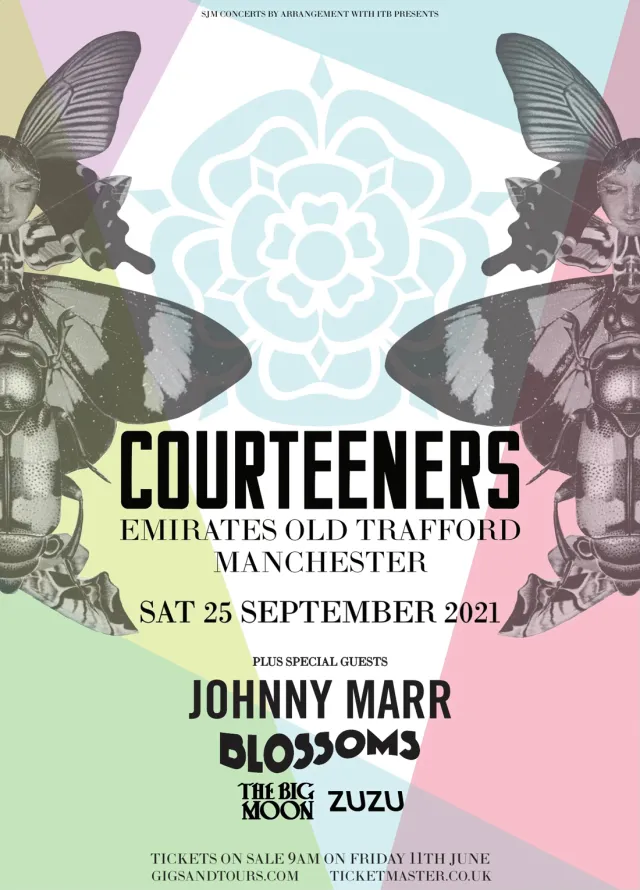
Speaking of Blossoms, they too released an album in 2020, 'Foolish Loving Spaces', a record that many fans and critics alike consider their best to date. It was an album brimming with confidence, colour, and ambition, taking everything the band had refined on 'Cool Like You' and their self-titled debut and elevating it to dazzling new heights. Where their earlier work had already established them as masters of melodic indie-pop, 'Foolish Loving Spaces' saw them fully embrace their love of pop theatrics, vintage flair, and unashamed romanticism. This romanticism in the album's theme and lyrics is sure to strike a chord with the listener's heart, making it a deeply emotional experience.
Drawing influence from the glossy funk of the late '70s, the polished pop of the '80s, and the anthemic choruses of '90s Britpop, the album sounded like a greatest hits collection from a parallel universe where pop music never forgot how to be joyful. The album's joyful nature is infectious, spreading positivity and uplifting the listener's spirits. Yet, despite these retro flourishes, the record felt thoroughly modern, every groove, synth, and chorus engineered for the streaming era, without ever losing its heart.
The opener 'If You Think This Is Real Life' immediately launches the listener into Blossoms' technicolour world with its buoyant rhythm, shimmering keys, and irresistibly catchy chorus. It's a pure dancefloor filler, nodding to Nile Rodgers and Let’s Dance-era Bowie, but with Blossoms' unmistakable charm. Meanwhile, 'Oh No (I Think I’m In Love)' was a highlight not just of the album, but arguably of the band's entire catalogue. This sweeping, euphoric love song is perfect for the live setting, making it a must-listen for fans of live music.
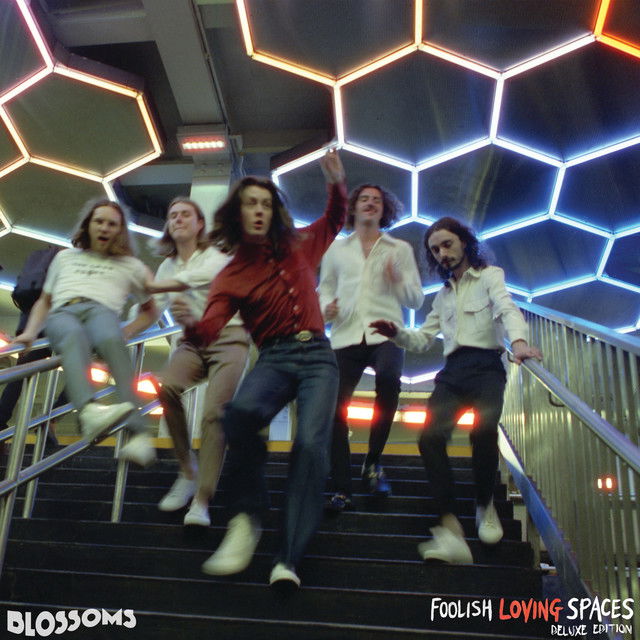
On the softer side, 'My Vacant Days' provided a moment of emotional stillness. This stripped-back acoustic ballad let Tom Ogden’s tender songwriting shine through. With its raw honesty and delicate arrangement, it served as a reminder that beneath all the polish and pop sheen, Blossoms still knew how to hit straight at the heart. Elsewhere, tracks like 'Your Girlfriend' played with Talking Heads-style irony and quirk, a style characterised by its offbeat and unconventional approach, blending funk guitars and storytelling lyrics into something both witty and addictive.
Lyrically, 'Foolish Loving Spaces' delved deep into the emotional landscape of love, exploring the highs, lows, and in-betweens with a raw and unapologetic honesty. It was an album that resonated with the universal experience of feeling everything all at once: infatuation, heartbreak, nostalgia, and hope. The rich and glossy production never overshadowed the emotional cores of the songs, allowing them to connect with the listener on a profound level.
Ultimately, 'Foolish Loving Spaces' was more than just an evolution; it was a statement. It confirmed Blossoms as one of the UK’s most consistent and creative pop-rock bands.
Circa Waves made a bold and resonant statement in 2020 with their ambitious double album 'Sad Happy'. Released in two halves across the year, the album was a conceptually and emotionally rich exploration of the contradictions of modern life. It was an era defined by both overstimulation and isolation, joy and anxiety. As described by NME, it was a “contemplative, conflicted” reflection of the times, and it allowed the band to fully showcase the duality at the core of their evolving sound.
The 'Happy' side of 'Sad Happy' was a burst of energy and immediacy, a stark contrast to the 'Sad' side. It featured big, bright indie-pop hooks and sun-drenched festival-ready anthems that first put Circa Waves on the map. 'Jacqueline' kicked things off with shimmering guitars and a swaggering groove, capturing a kind of playful escapism. 'Move to San Francisco' offered nostalgic romanticism with a dreamy West Coast aesthetic. At the same time, the infectious 'Call Your Name' stood out as one of the band’s strongest tracks to date, channelling their earlier 'Young Chasers' era with a renewed sense of confidence and clarity. These songs were sharply crafted, full of life, and purposefully placed to contrast the record’s darker second half, keeping the listener engaged and intrigued.
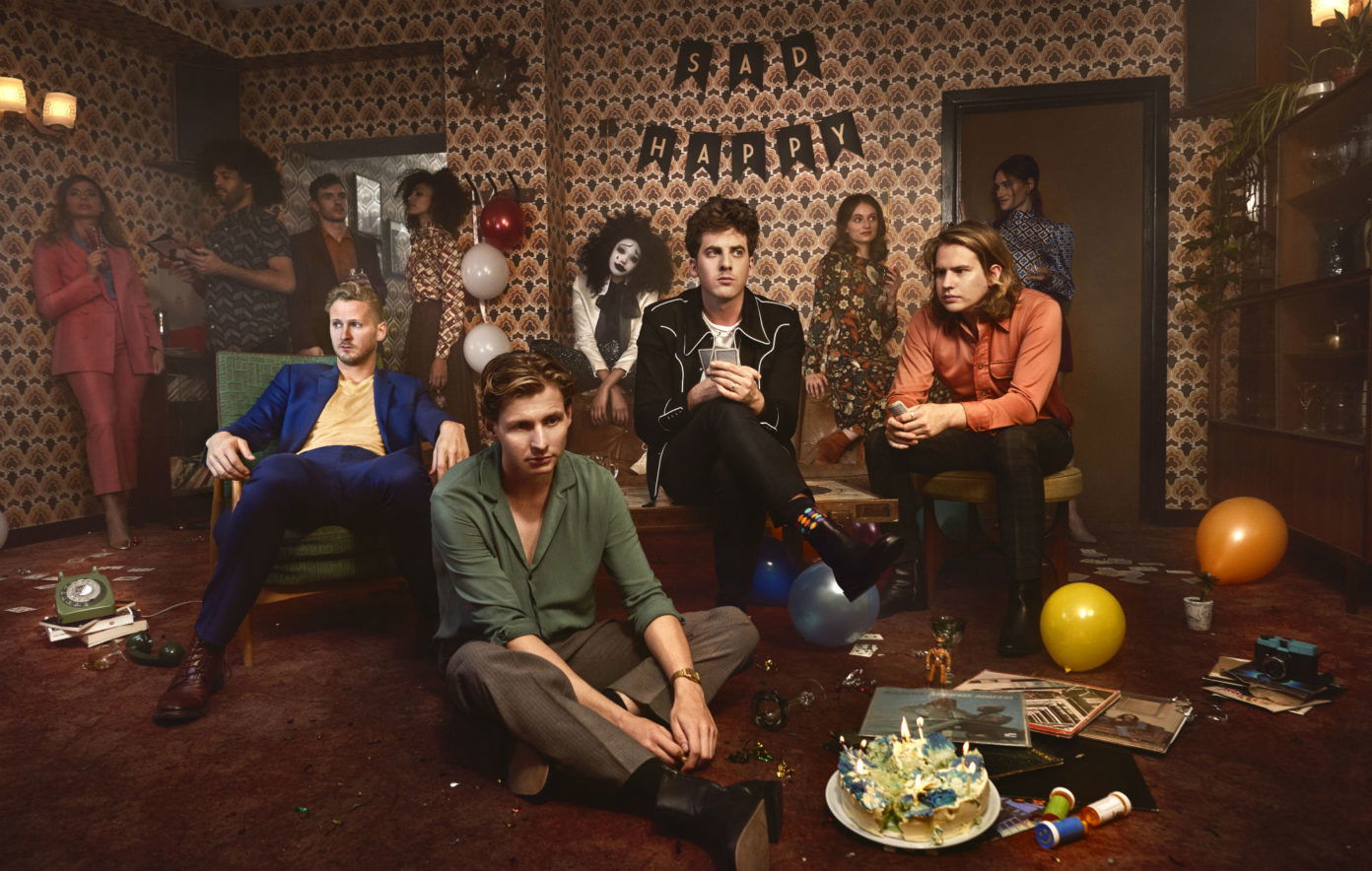
On the 'Sad' side, Circa Waves delved into more experimental textures, embracing synths, atmospheric keys, and heavier, moodier guitar tones. This was not just a sonic shift, but an emotional one, revealing a band that was more introspective and vulnerable. They fearlessly grappled with mental health, existential dread, and personal loss, creating a deeply intimate and sincere space. 'Hope There’s a Heaven' was a standout, aching and poignant; it dealt with mortality and faith with delicate restraint. The layered instrumentation and restrained vocal delivery further emphasised the emotional depth of the album. Other tracks like 'Sympathy' and 'Train to Lime Street' continued this exploration of uncertainty and emotional fatigue, wrapped in a hazy, textured soundscape.
'Sad Happy' was not only some of Circa Waves' best work, it was one of the best albums of that era, a bold move, full of emotional range, musical experimentation and brilliant storytelling.
Another band from Liverpool, Red Rum Club, released their second album, ‘The Hollow of Humdrum’, in 2020. It followed hot on the heels of their brilliant 2019 debut ‘Matador’, a record that introduced the world to their signature mix of mariachi brass, indie swagger, and cinematic romanticism. While ‘Matador’ established their sound and earned them a loyal following, ‘The Hollow of Humdrum’ not only cemented their place as one of the most exciting bands in British guitar music but also showcased their significant growth and musical evolution.
On this sophomore effort, the band honed their songwriting, delivering a collection of catchy, groovy, and infectious indie-pop anthems that feel made for long summer nights and festival sing-alongs. Songs like ‘Eleanor’ and ‘Ballerino’ build on the charm of ‘Matador’, offering up brass-soaked choruses and melodies that stick with you after the first listen. There’s a cinematic, escapist quality to their music, the kind that transports you elsewhere, if only for a few minutes. It’s the kind of record you can throw on when you need a lift, and it will instantly improve your mood, leaving you feeling uplifted and energised.
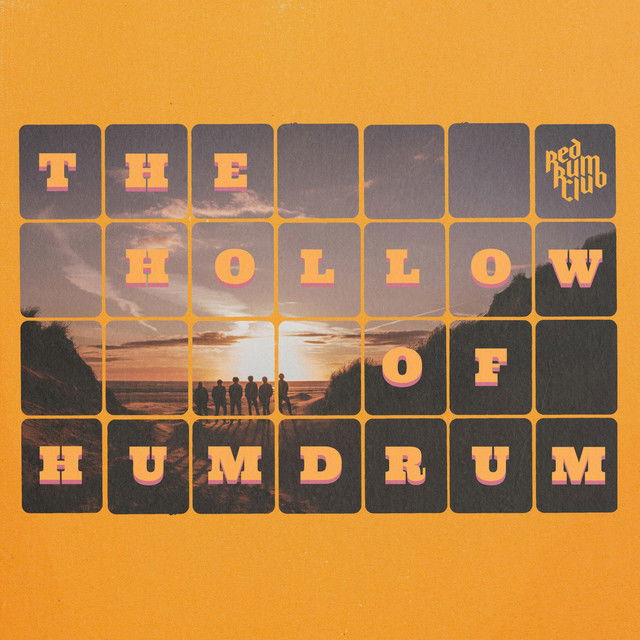
Red Rum Club's unique charm lies in their ability to strike a perfect balance between showmanship and sincerity. They have mastered the art of creating a vibrant atmosphere, yet beneath the surface, their music resonates with genuine emotion. ‘The Hollow of Humdrum’ may not be a revolutionary piece, but it’s a confident, joyous leap forward from a band that truly understands their identity and strengths.
Gerry Cinnamon's ‘The Bonny’, released in 2020, marked a significant shift from his breakthrough debut, ‘Erratic Cinematic’. While the first album captured the raw energy of a street poet with an acoustic guitar and a loop pedal, ‘The Bonny’ revealed a more expansive and ambitious side of Gerry. It showcased his growth from a word-of-mouth phenomenon to a serious songwriter with a profound message.
From the outset, it’s clear that ‘The Bonny’ was made with bigger stages and broader horizons in mind. Tracks like ‘Canter’ are pure lightning anthemic and defiant, the kind of song built to echo out across fields and stadiums. ‘Where We’re Going’ follows in a similar vein, pairing optimism with melancholy in a way that only Gerry seems to master. These tracks became staples of his electric live shows, igniting crowds with their sing-along potential and rhythmic urgency.
But beyond the big hitters, ‘The Bonny’ dives deeper into introspection and atmosphere. ‘Dark Days’ is one of Gerry’s most haunting songs to date, a sparse, echoing track that feels both vulnerable and eerily prophetic, especially when listened to in the context of the lockdown era it was released into. Meanwhile, ‘Roll the Credits’ and ‘Six String Gun’ show a more mature artist at work, experimenting with stripped-back arrangements, layered vocals, and darker lyrical territory. There’s a quiet intensity to these songs, a sense of looking inward that contrasts with the outward fire of his earlier material.
‘The Bonny’ was a strong and defiant second album. While some of its tracks hit harder live than in the studio, that’s part of its charm. Gerry’s music has always been about the communal experience. But this record also proved that behind the chants and choruses, there’s a serious songwriter with emotional depth, sonic vision, and a voice entirely his own.
HAIM released one of the best albums of 2020, ‘Women in Music Pt. III’, a record that quickly became one of my all-time favourites. In simple terms, this is a brilliant collection of songs that perfectly blends indie, pop, rock, and even garage influences, but to reduce it to genres doesn’t quite capture the magic. This is a deeply personal, sharply written, and sonically adventurous album that proves HAIM are in a league of their own.
From the hazy, sax-laced opener ‘Los Angeles’, a track about feeling disconnected from a place you’re supposed to call home, to the charmingly low-key closer ‘Summer Girl’, which channels Lou Reed via sun-drenched melancholia, every song feels like it belongs exactly where it is. The album flows with ease, yet each track stands confidently on its own.
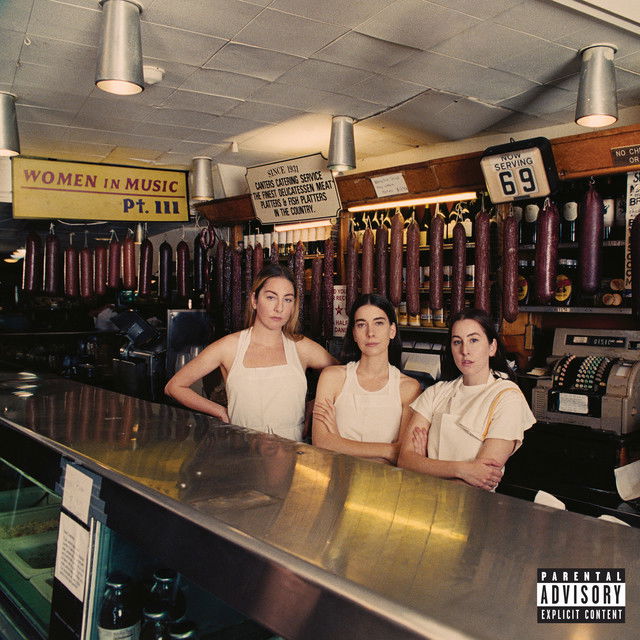
What makes ‘Women in Music Pt. III’ so impressive is how it balances vulnerability with strength. Songs like ‘I Know Alone’ and ‘Now I’m In It’ explore depression, isolation, and the weight of mental health struggles. Still, they do so with such lyrical honesty and emotional nuance, wrapped in beats and hooks that somehow make even the heaviest themes danceable. That contrast is where the album lives: it aches, but it also grooves.
There’s an undeniable energy in ‘The Steps’, a track that captures the frustration of not being heard, and it hits like a punch to the gut and a call to arms at once. It’s HAIM at their most raw and defiant. Then you have ‘Gasoline’, a slinky, slow-burning standout that explores lust, burnout, and emotional exhaustion.
Lyrically, this is HAIM at their most open. The trio of sisters Danielle, Este, and Alana lay everything bare. The death of loved ones, the complexities of womanhood in the music industry, and the highs and lows of love and identity. The title itself is a tongue-in-cheek jab at how often they’ve been reduced to just "women in music" as if their talent needed a qualifier.
‘Women in Music Pt. III' was a defining moment for HAIM. It showcased their growth not just as musicians but as storytellers, risk-takers, and artists unafraid to break the mould. Despite being one of the most critically acclaimed records of the year, it still feels underrated.
DMAs released 'The Glow' and took a bold creative leap forward. Where their earlier records leaned heavily into Britpop and indie rock nostalgia, 'The Glow' introduced a far more modern, expansive palette, embracing electronic textures, dance beats, and a more atmospheric, experimental edge. Produced by Stuart Price (best known for his work with The Killers, Madonna, and New Order), the album marked a significant turning point: the sound of a band growing beyond their roots and carving out a more contemporary identity.
At the heart of the album is 'Silver', an emotional centrepiece and arguably one of the finest songs of DMA’s career. With shimmering guitars, soaring vocals, and a stadium-sized chorus, 'Silver' captures the aching romanticism that the band does so well but with a clarity and polish that elevates it beyond their earlier work. Tommy O'Dell’s voice is in full flight here, riding a wave of melancholy and euphoria, delivering lines that feel both intimate and anthemic. It’s the kind of track that solidified their appeal as a festival favourite while also showing a maturity in their songwriting.
'Life Is a Game of Changing' marked one of the band’s most dramatic sonic shifts. A propulsive, synth-heavy track with pulsing beats and trance-inspired rhythms, it’s more New Order than Noel Gallagher, yet it never feels like a gimmick. The song is both danceable and reflective, built around themes of impermanence and personal evolution. It was a statement track, signalling that DMAs were no longer content with merely reviving the past. They were reshaping it, bringing their influences into a modern, almost club-ready context. It surprised longtime fans and won the band new admirers, especially in Europe.
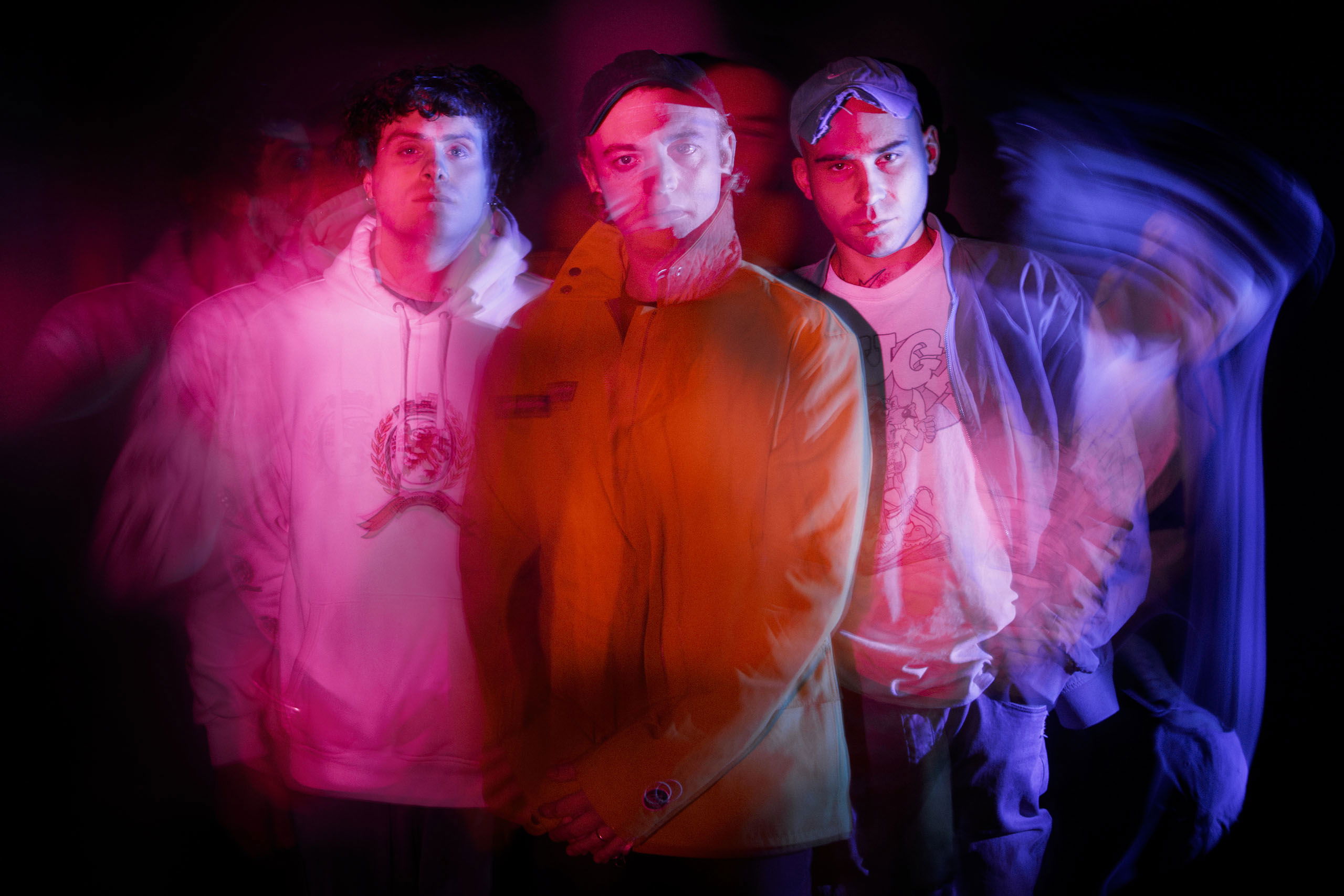
'The Glow' was a masterful balancing act, a unique fusion of electronic ambition and indie-rock heart. This blend, which DMA's expertly crafted, proved that they were more than just revivalists. The album, particularly acclaimed in the UK and Australia, was a confident reinvention. It was the moment when DMAs stepped out of the shadow of their influences and began to carve a legacy of their own.
Undoubtedly, the most significant event of 2020 was the pandemic, which brought the world to a standstill. Lockdowns were enforced, and we all had to adapt to new rules and restrictions. Social distancing, the rule of six, these were the new norms. But as we move forward, we can look back and appreciate the resilience we showed during those times. And hey, who misses having to buy a pizza to get a pint?
Before everything changed, two significant things happened within just a couple of days. I turned 20, and the day before, on February 14, 2020, Tame Impala released ‘The Slow Rush’ after a five-year hiatus, a period that left fans eagerly anticipating new music. It felt like a gift dropped from another world, the last moment of calm before the storm. And fittingly, the album itself was obsessed with time: how it moves, how it slips away, and how it changes us.
With 'The Slow Rush', Kevin Parker continued his evolution, taking another step away from the psychedelic guitars that defined earlier Tame Impala records. Instead, he embraced lush, synth-heavy soundscapes and crisp, pop-leaning production. This wasn’t a sellout, but a bold step in his artistry, a testament to his trust in his instincts. The DNA of Tame Impala was still there: dreamy textures, hypnotic rhythms, introspective lyrics. But ‘The Slow Rush’ was smoother, more refined, and in many ways, more personal than anything he had done before.
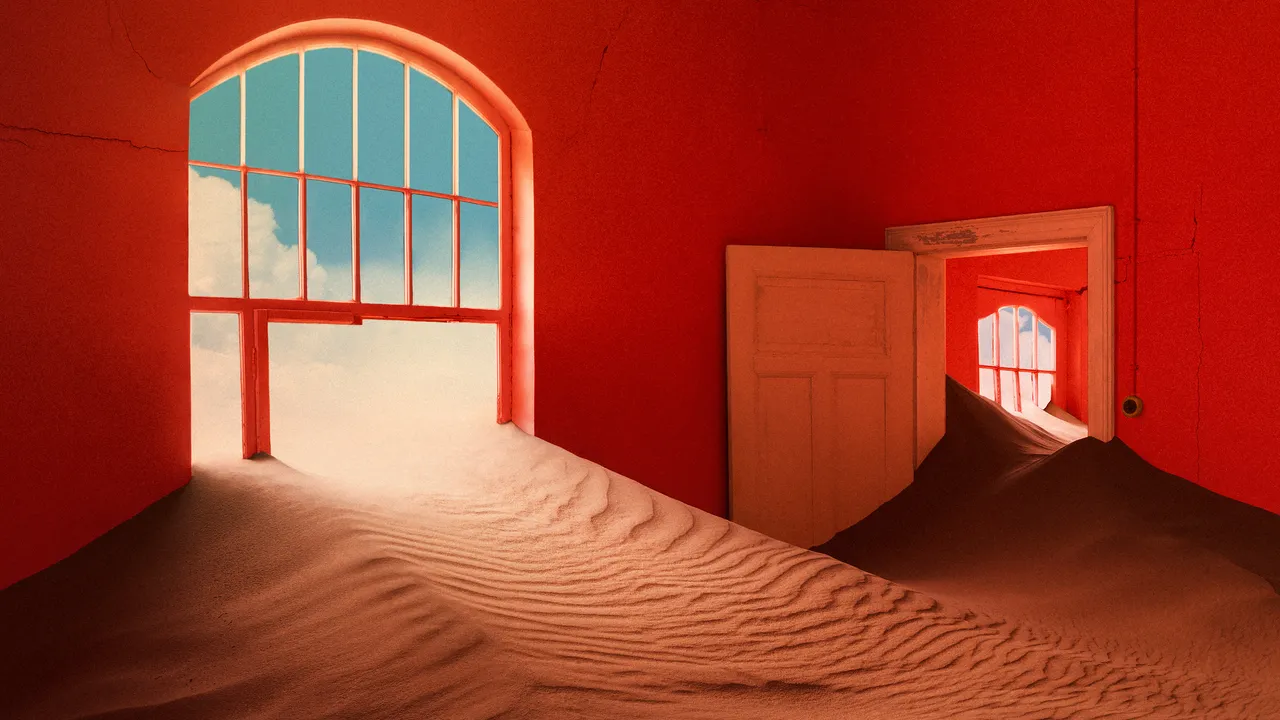
‘It Might Be Time’ stands out as one of Kevin’s most revealing moments, both musically and lyrically. With a distorted, off-kilter groove and siren-like keys, it’s a song about ageing, fading relevance, and the creeping fear that your best days might be behind you. “You ain't as young as you used to be / You’re slowly giving up,” he sings, not in defeat, but in honest reflection. It’s a moment of vulnerability disguised as a dance track.
Then there’s ‘Posthumous Forgiveness’, a slow-burning epic that takes us on a journey through Kevin’s complicated relationship with his late father. It's easily one of the most emotional pieces in his catalogue. The track begins with anger and resentment, a raw expression of his pain, before transforming into a mournful, bittersweet acceptance. It’s intimate and raw, like reading someone’s diary through a haze of synth and reverb.
Other tracks like ‘Lost in Yesterday’ offer a glossier, funkier exterior, but even they are laced with lyrical depth. That one in particular deals with the danger of nostalgia and the idea of becoming trapped by your past. “If it calls you, embrace it / If it haunts you, face it,” he sings, turning self-help mantras into dance-floor anthems. It's a message that resonates with anyone who's ever felt the pull of the past.
‘The Slow Rush’ was perfectly titled. It captured the strange, elastic sense of time we all experienced in the years that followed. It was the soundtrack to uncertainty, to standing still while everything kept moving. In hindsight, it almost feels prophetic like Kevin Parker had tapped into something just beneath the surface, something the rest of the world was about to feel too.
2021! A year of comebacks, and live music was back after a long hiatus. The anticipation for this return was palpable, and it didn't disappoint. Two British bands made their return with albums: Royal Blood and Wolf Alice. Inhaler made their debut, Noel Gallagher released new music, and Sam Fender dropped a masterpiece.
Wolf Alice released the album of the year in June 2021, ‘Blue Weekend’, a stunning, genre-defying body of work that found the band operating at the peak of their creative powers. If their Mercury Prize-winning ‘Visions of a Life’ proved they could do anything, ‘Blue Weekend’ showed they could do it all at once and better than anyone else. This record didn’t just confirm their status as one of Britain’s best bands; it elevated them into a league of their own.
Opening with the breathtaking ‘The Beach’, the album immediately draws you into a cinematic world. It’s a slow-burning, atmospheric track that builds to a shimmering, euphoric crescendo and its reprise, ‘The Beach II’, closes the album like a mirror image, bringing the listener full circle. It’s storytelling through sound and space, tied together with emotional precision.
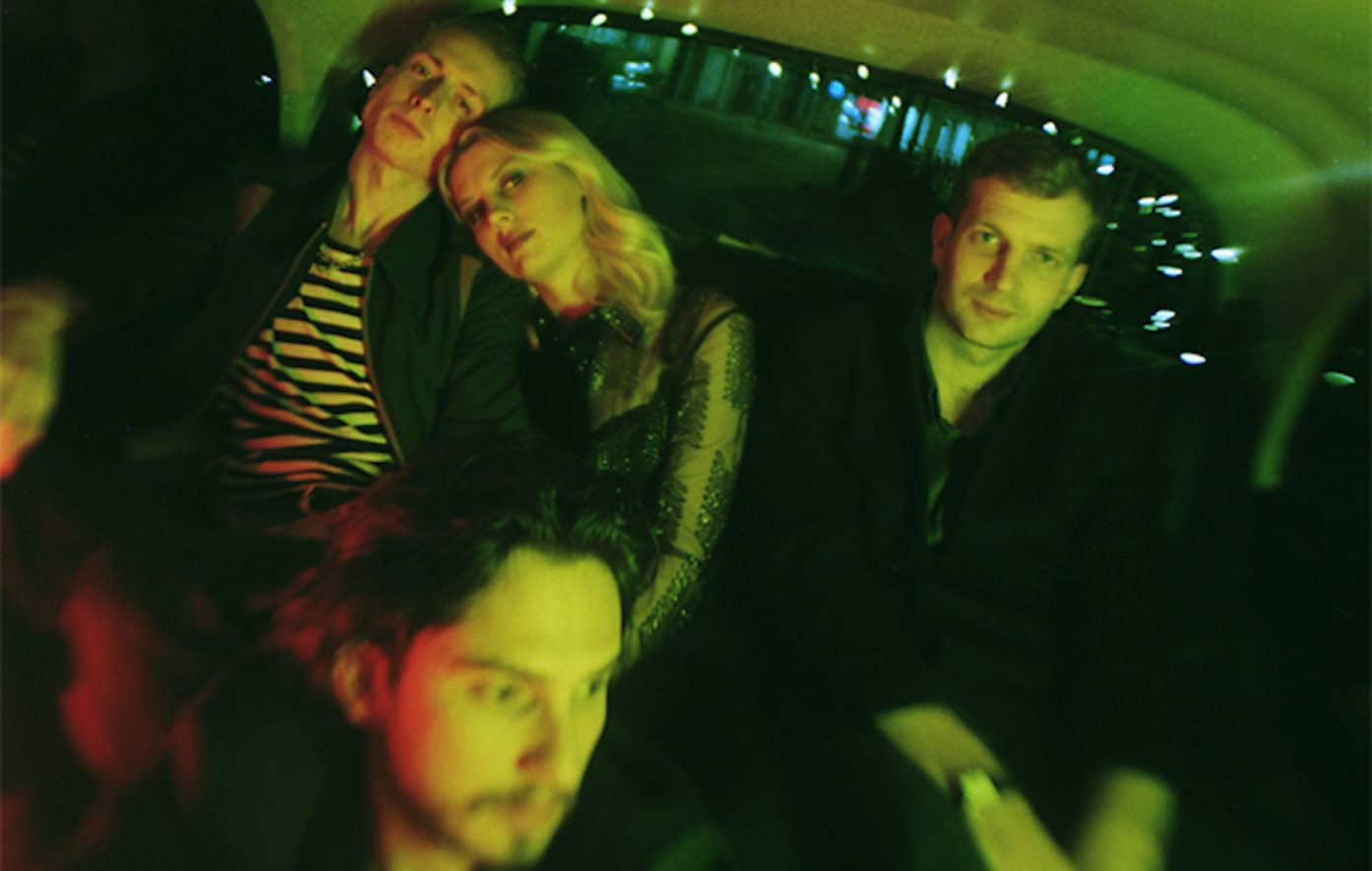
In between, you experience the emotional depth that makes Wolf Alice's music so unique. ‘Smile’ snarls with defiance and swagger, a grungy, bass-driven anthem where Ellie Rowsell’s vocals shift effortlessly from breathy calm to explosive fury. Then there’s ‘Play the Greatest Hits’, a two-minute punk riot that practically tears through the speakers, reminding you that they haven’t lost an ounce of raw power.
But it’s not all distortion and edge. Tracks like ‘Safe From Heartbreak (if you never fall in love)’ and ‘No Hard Feelings’ offer restraint and clarity, beautifully constructed moments of softness that ache with vulnerability. These are quiet songs that still carry emotional weight, and their simplicity is part of what makes them so devastating.
Then there’s ‘The Last Man on Earth’, a haunting, piano-led masterpiece. It’s as gorgeous as it is scathing, delivering a quietly furious takedown of ego and emotional detachment. Rowsell’s vocals here are otherworldly, drifting above a sparse arrangement that slowly swells into something orchestral and transcendent. It’s not just one of the best Wolf Alice songs, it’s one of the best songs of the decade.
In my opinion, ‘Blue Weekend’ isn’t just the best British album of 2021, it’s one of the most important British albums ever made. Ambitious, heartfelt, fearless, it’s the sound of a band who know exactly who they are, and aren’t afraid to show it.
Royal Blood, tired of being labelled the 'saviours of rock music,' found themselves at a creative crossroads after frontman Mike Kerr quit drinking. The solution? Reinvention. And they did just that with ‘Typhoons’, their 2021 album that took Royal Blood from the dive bar to the dancefloor without sacrificing an ounce of power. This was a band reborn, bold, sleek, and unafraid to experiment.
This was a band reborn, bold, sleek, and unafraid to experiment. ‘Typhoons’ doesn’t abandon their signature sound: Ben Thatcher’s thunderous drums still hit with precision and weight, and Kerr’s distorted bass remains a force of nature. But everything around it evolved. The production is sharper, the grooves tighter, and the funk and disco influences, think Daft Punk, Justice, or even Queens of the Stone Age’s more danceable moments, give the album a pulse that never lets up.
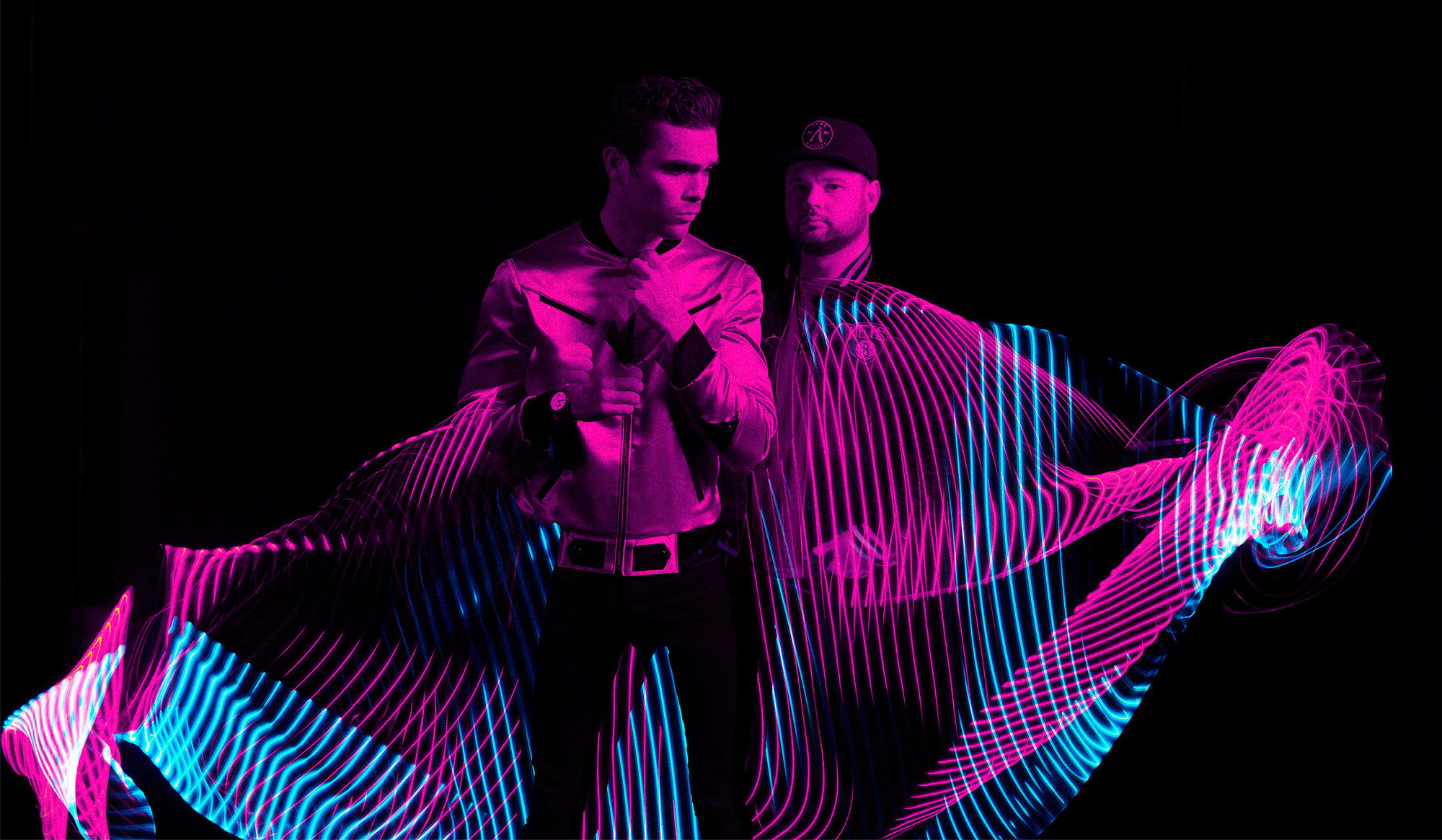
Songs like the title track ‘Typhoons’ and ‘Trouble’s Coming’ are pure adrenaline, driven by infectious rhythms and razor-sharp hooks. You can feel the influence of Kerr’s personal transformation woven into the lyrics; it’s introspective but never self-indulgent. There’s a profound emotional weight beneath the swagger, particularly on tracks like ‘Limbo’ and ‘Boilermaker’, which grapple with addiction, identity, and starting over.
‘Typhoons’ was a pivotal moment for Royal Blood, a daring leap forward that showcased their versatility as dynamic songwriters, not just riff merchants. It’s guitar music that invites you to dance, cry, and scream along. It’s still unmistakably Royal Blood, but with a richer palette, more confidence, and deeper honesty. By transcending the expectations of 'saving rock,' they may have achieved something even more significant: they saved themselves.
Red Rum Club also returned with their third album in three years. 'How to Steal the World' was the band's most confident and self-assured record to date. The horns were even more sweeping, the choruses even bigger, and the mood more polished without losing their signature swagger. Songs like 'Nightcalling' and 'Vibrate' were tailor-made for late-night drives and festival fields, pure escapist indie-pop with a dramatic, almost Bond-like flair. Lyrically, they explored themes of love, ambition, and the thrill of chasing dreams, wrapping it all in their signature Merseyside-meets-Mariachi energy.

At its core, the album is a celebration of big dreams and bold moves of chasing something beyond the mundane, even if you know it might all fall apart. It's both a love letter to escapism and a reflection of a band becoming masters of their own sound.
Inhaler released their debut album ‘It Won’t Always Be Like This’ in 2021, and while they didn’t reinvent the wheel, they didn’t need to. What they delivered was a confident, hook-laden introduction to a band with the charm, ambition, and sound to become a staple of the modern indie scene. It’s a record that embraces its influences, The Killers, U2, and early 2000s indie. It channels them into something that feels refreshingly youthful and optimistic.
The title track, ‘It Won’t Always Be Like This,’ stands tall as one of the best indie songs of the year. Written during the early stages of the band’s career and later re-recorded for the album, it took on a whole new meaning in the context of the pandemic. Its driving bassline, soaring chorus, and message of hope made it a timely anthem for a world craving optimism. It captured that universal feeling of wanting to break free from uncertainty, and the way it builds to a euphoric climax makes it tailor-made for festival sing-alongs.
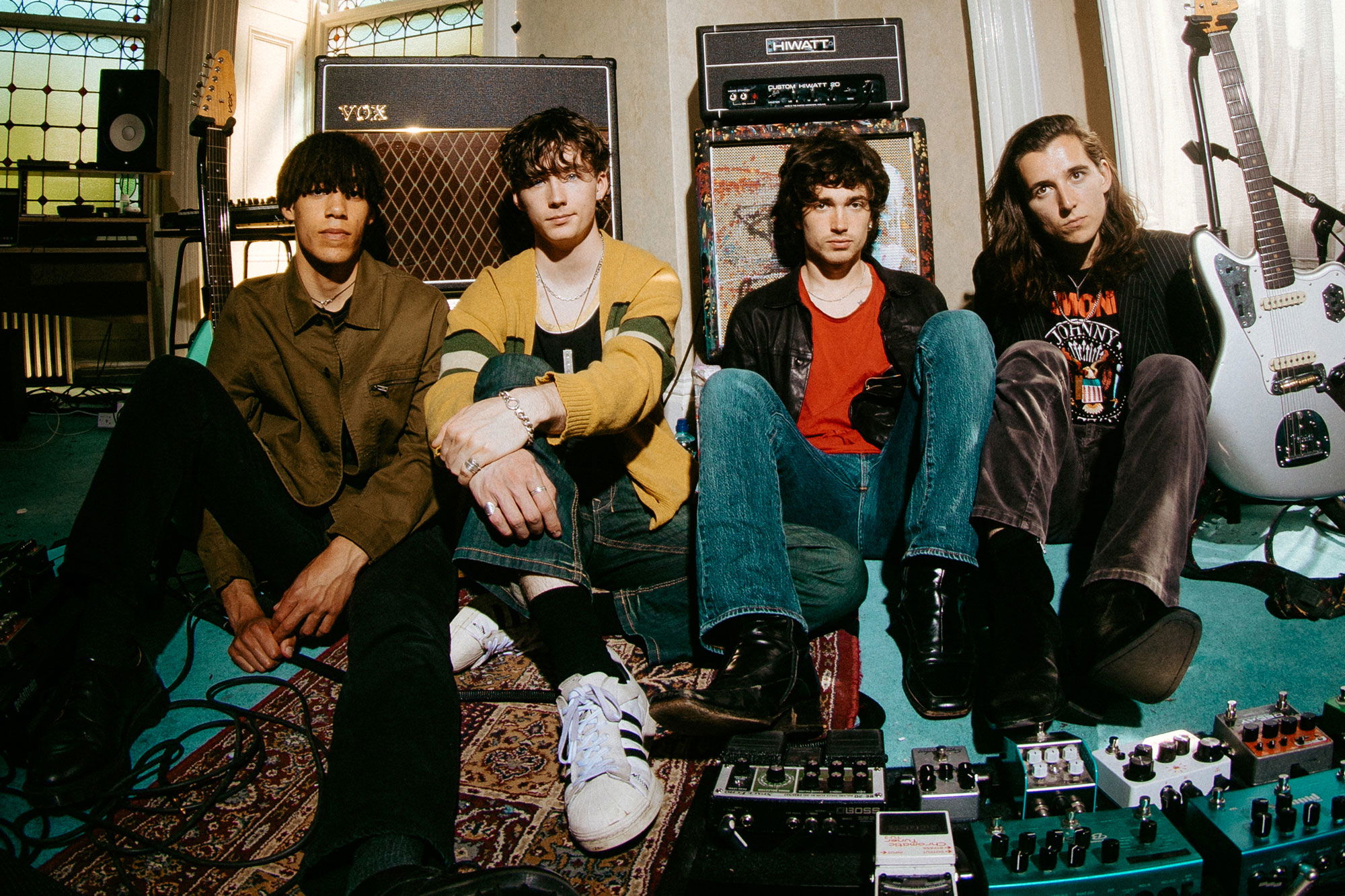
But the album had more than just one moment. ‘Cheer Up Baby’ is a standout, combining jangly guitars with vulnerability and warmth. ‘My Honest Face’ delivers the kind of swagger you’d expect from a band with a rock pedigree. Frontman Elijah Hewson may be Bono’s son. Still, he brings his own voice and presence to the table. There’s confidence without arrogance, and the band never leans too hard on their lineage.
One of the most intriguing moments comes with ‘Who’s Your Money On? (Plastic House)’. Clocking in at over six minutes, it’s the album’s most expansive and ambitious track. Opening with moody textures and building slowly, it not only showcases the band’s potential for depth and atmosphere but also keeps you on the edge of your seat. The song unfolds patiently, pulling you in with every layer, and proves that Inhaler aren't just interested in three-minute indie bangers; they’re here to explore, evolve, and experiment.
At its core, ‘It Won’t Always Be Like This’ is an album about growing pains, about trying to stay hopeful when everything feels uncertain. It’s the sound of four young men learning how to channel their experiences into something bigger than themselves, and in doing so, they’ve created a debut full of energy, promise, and most importantly, emotional honesty that resonates with all of us.
Following the success of 'Lightning Matches', Tom Grennan, a rising star in the British music scene, returned in 2021 with 'Evering Road', an album that marked a bold step forward in both sound and storytelling. Named after the London street where he lived and experienced a transformative breakup, 'Evering Road' was a deeply personal body of work that leaned into emotional vulnerability while expanding his sonic palette. The album showcased a more polished, stadium-ready sound, blending gospel influences, punchy pop hooks, and soulful ballads.
Songs like 'Little Bit of Love' and 'Something Better' became anthems, full of raw feeling and explosive choruses that cemented Tom's place on mainstream radio. 'This Is the Place' opened the record with urgency and heartache, while deeper cuts like 'Don't Break the Heart' and 'Make My Mind Up' exposed a softer, more reflective side. What set 'Evering Road' apart was its spiritual and redemptive thread, most evident in the gospel-tinged 'Amen', where Grennan wrestled with regret and self-forgiveness.
The title track, ‘Seventeen Going Under’, quickly became an anthem for a generation. A thunderous guitar-driven confessional, it captures the moment a teenager becomes aware of the world’s weight, bills unpaid, parents trying their best, and the rage of feeling powerless. But beneath the anger, there's love. The line “I was far too scared to hit him / But I would hit him in a heartbeat now” is already iconic, raw, unforgettable, and painfully relatable. It’s one of the finest portrayals of working-class life ever put to music.
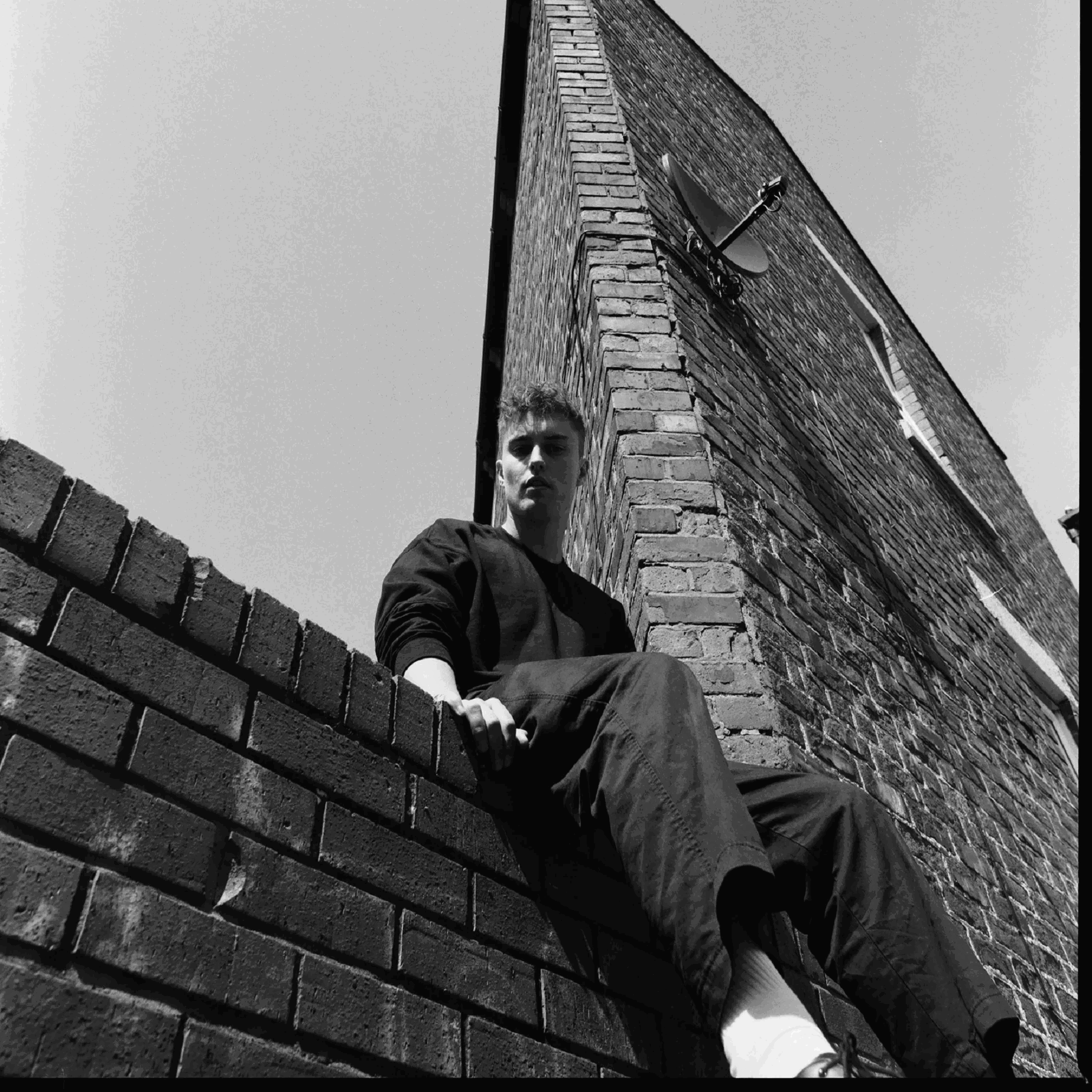
But the album doesn't just rage outward; it reflects inward. ‘Spit of You’ is a gut-punch of a song about fathers and sons, about what is said, and what so often is left unsaid, and the quiet understanding that grows between generations. It’s tender and understated, showing a vulnerability that many artists shy away from.
Then there's ‘The Dying Light’, the emotional climax of the record, a grand, Springsteen-esque ballad that serves as a follow-up to ‘Dead Boys’ from his debut. It's a song about survival, about not giving up even when everything inside you is screaming to let go. With its sweeping strings and cinematic build, it feels like a lifeline thrown out to anyone who’s ever felt on the edge. The dedication “For Mam and Dad and all my pals. For all the ones who didn’t make the night” says everything.
Where ‘Hypersonic Missiles’ introduced us to a lad with something to say, ‘Seventeen Going Under’ shows an artist who has truly found his voice. He’s still kicking out at the world, but now with the awareness that the world kicks back hard. And through that pain, he finds meaning, healing, and hope. It's a journey we can all relate to, a testament to the artist's growth and resilience.
This is more than just a great album. It’s a time capsule of youth, class, and survival, a narrative that we all play a part in. A reminder that vulnerability is strength. And proof that guitar music still has stories to tell that matter.
2022 would see a return of the old guard in more ways than one, and also the release of one of the best British debuts in years.
Let’s start with that debut. Wunderhorse released their album ‘Cub’ in October 2022, and it was one of those rare records that seemed to appear from nowhere and instantly leave a mark. Before that, I hadn’t even heard of him, like many others. I discovered him almost by accident, but the moment I listened to ‘Cub’, I was utterly blown away. It’s not just a promising debut; it’s a rock masterpiece that feels both deeply personal and sonically expansive.
What makes ‘Cub’ so striking is how it effortlessly blends a wide range of genres, including grunge, punk, shoegaze, Britpop, indie, and even touches of folk, yet it never feels disjointed or overthought. It’s raw, but never sloppy. Polished, but never sterile. There’s a real emotional weight behind every song, a sense of lived experience. It’s the sound of someone digging through the past to try and make sense of the present.
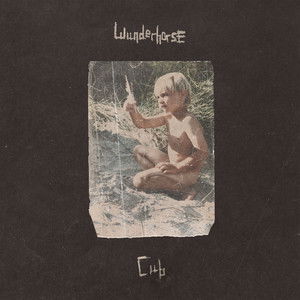
Lyrically, it’s an album that delves deep into the human experience, exploring self-reckoning, addiction, recovery, heartbreak, and the journey of growing up. The emotional depth of the tracks is palpable, particularly in ‘Teal’, where the verses simmer with raw emotion before erupting into distorted, shoegazy swells. Similarly, ‘Leader of the Pack’ resonates like a lost 90s alt-rock anthem, brimming with frustration and tenderness in equal measure. And then there's ‘Butterflies’, a gentle, melancholic piece that floats on a guitar line filled with vulnerability.
This is not just another record. It's an experience that demands your full attention, one that reveals more with every listen. It’s not background music. It's a journey, and if you give it the attention it deserves, it rewards you in spades. ‘Cub’ is not just a debut, it's a statement, one of the most important British rock debuts in years.
My first encounter with Wunderhorse was on a Fontaines D.C. poster, and it feels only right to mention them next. Fontaines D.C. would release their third album, ‘Skinty Fia’, in 2022, a bold, transformative record that marked a significant departure from their raw punk roots. It was a turning point for the band, both sonically and thematically, showing a maturity and ambition that placed them firmly among the most important bands of their generation.
Written as a kind of love letter to Ireland, but a complicated, conflicted one, ‘Skinty Fia’ explores themes of displacement, heritage, and identity with a haunting sense of atmosphere. The title itself, an old Irish expression meaning “the damnation of the deer,” speaks to the album’s meditation on cultural erosion and the fading of tradition in modernity.
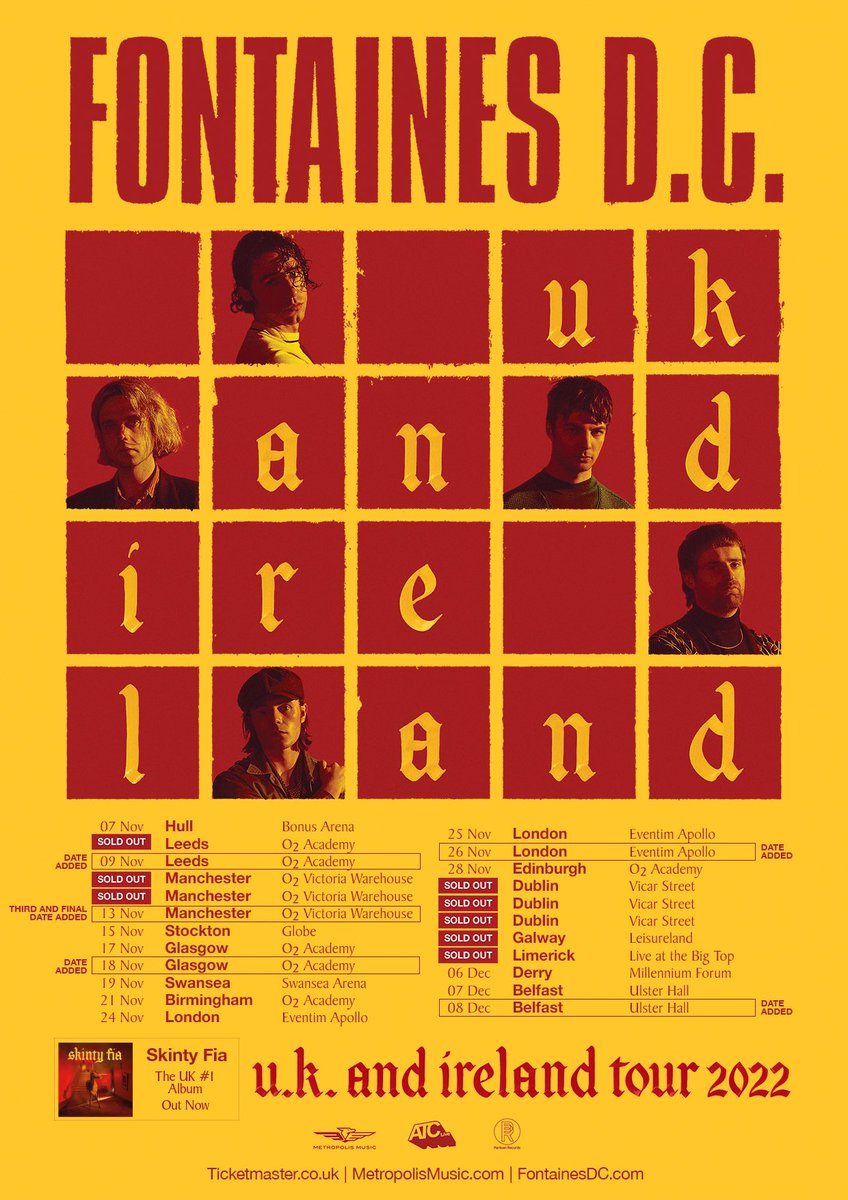
I Love You’ is a clear standout, where frontman Grian Chatten channels the anger, guilt, and helplessness of watching his homeland struggle from afar. The track builds from quiet introspection into a ferocious outburst, reflecting Ireland’s political disillusionment and the emotional toll of exile. It’s one of the most potent songs they’ve written, raw, sincere, and beautifully devastating.
But ‘Skinty Fia’ is full of gems. The opener ‘In ár gCroíthe go deo’ (“In our hearts forever”) sets the tone with a choral repetition that’s both mournful and hypnotic, a tribute to Irish identity that’s felt rather than shouted. ‘Roman Holiday’ drips with woozy, late-night paranoia, while the title track is a gothic fever dream of distortion and dread. ‘Jackie Down the Line’ adds a strange pop sheen to their introspection, proving that Fontaines can be accessible without losing their bite.
What makes ‘Skinty Fia’ so compelling is how it expands the band’s sound without abandoning their core intensity. Shoegaze textures, post-punk rhythms, and poetic lyrics collide to create a sound that’s unmistakably theirs. It’s the sound of a band evolving, not because they need to keep up, but because they have something more profound to say.
Blossoms would release their fourth album, ‘Ribbon Around the Bomb’, which saw the band mature and deliver some of their most accomplished work to date. It marked a new chapter for the Stockport five-piece, introspective, ambitious, and sonically refined. But don’t think for a second they lost their sense of fun or knack for a catchy hook. This album is Blossoms' evolving, not changing beyond recognition.
Songs like ‘Visions’ see the band turning inward, questioning legacy, purpose, and their place in the world, with a gentle melancholy that floats rather than weighs down. It’s clear they’ve grown, both lyrically and musically. But the beauty of ‘Ribbon Around the Bomb’ is in how it balances this maturity with the band’s signature warmth and playfulness.
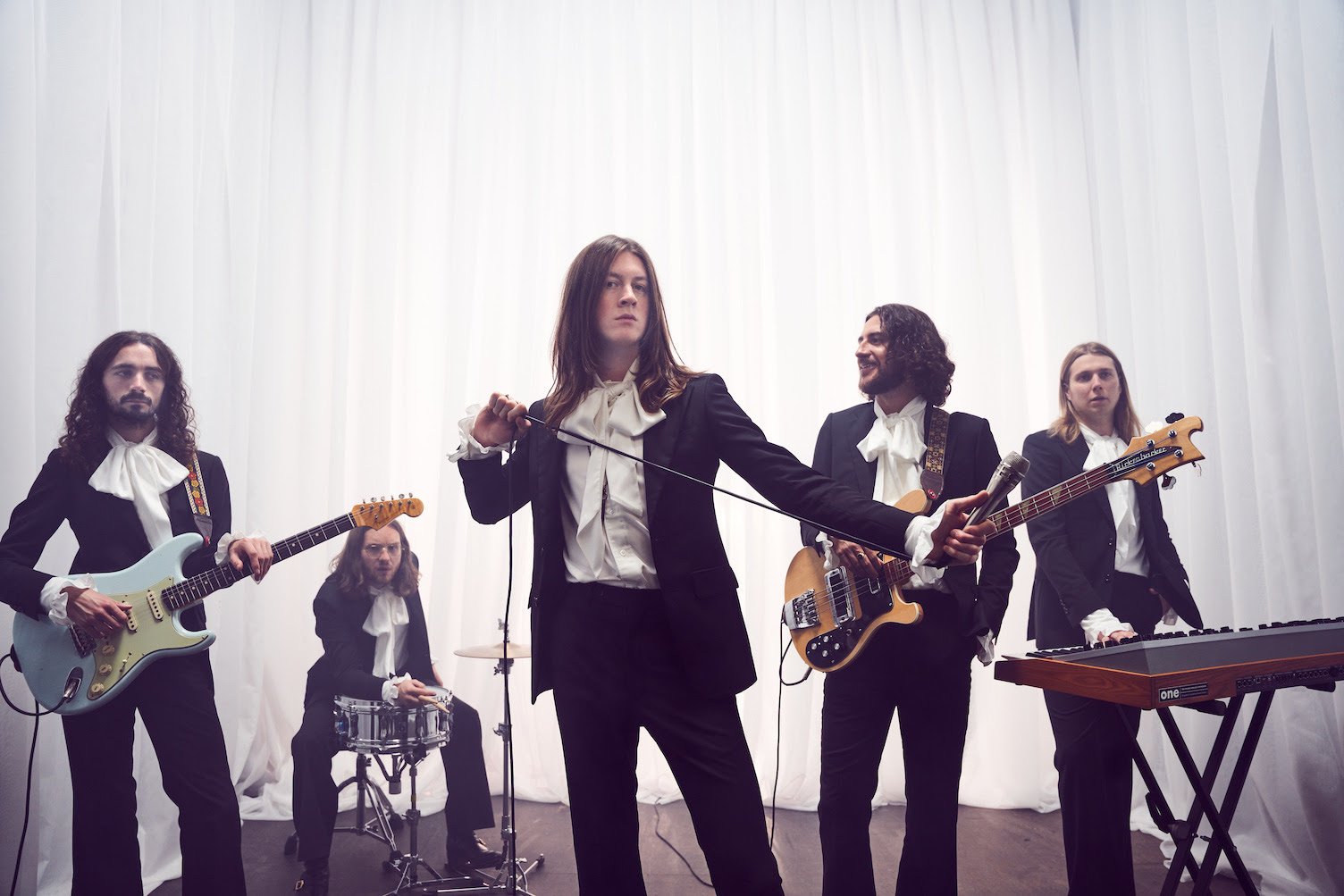
Nowhere is this more evident than on 'The Sulking Poet', a clear standout that channels Paul Simon's whimsical lyricism and rhythmic charm. With its crisp handclaps, bouncy guitar lines, and Tom Ogden's knowingly light delivery, it captures a sense of youthful naivety while cleverly embracing self-awareness. It's a love letter to being young, uncertain, and creatively restless, and it's one of the band's finest moments to date.
The title track 'Ribbon Around the Bomb' sets the tone early, cinematic, poetic, and quietly powerful. At the same time, 'Ode to NYC' is pure shimmering nostalgia, a glittering nod to big-city dreams and vintage synth-pop. 'Care For' adds a hazy, psychedelic glow, and 'Everything About You' sways with classic Blossoms romanticism, aching with understated emotion.
What this album does so well is hold two truths at once: the growing pains of adulthood and the enduring joy of creating music with your best mates. It's thoughtful without being heavy, playful without being throwaway. With 'Ribbon Around the Bomb', Blossoms didn't reinvent themselves; they refined who they already were, stepping into a more mature space without ever losing the spark that made them special in the first place.
The Wombats proved they were still going strong with 'Fix Yourself, Not the World', which debuted at Number One on the UK Albums Chart, further evidence that The Wombats weren't just a nostalgia act, but a band continually evolving. With tracks like 'If You Ever Leave, I'm Coming With You' and 'Ready for the High', the album leaned into themes of self-reflection and resilience, delivered through tightly produced, genre-blending indie pop. The record was written remotely, with each member contributing from different parts of the world during the pandemic, showcasing not just their adaptability but also the strength of their creative chemistry. Songs like 'Everything I Love Is Going to Die' balanced existential anxiety with upbeat rhythms, a hallmark of their ability to explore darker emotions through an energetic, accessible lens. Even after years in the game, The Wombats demonstrated their ability to adapt, connect, and surprise. Remaining relevant while never losing their identity. It was a triumphant reminder that the band's knack for blending emotional honesty with dancefloor-ready anthems hadn't waned; it had only sharpened.
Jamie T would make a triumphant comeback with 'The Theory of Whatever', and we had definitely missed him. The first single, 'The Old Style Raiders', reminded us of just how important Jamie T was to the scene, and it also became one of his best tracks to date. The album was a welcome return for fans, showcasing Jamie doing what he does best: writing great songs. The record saw him explore new sounds and genres, all with great success. He not only survived the indie scene but also proved he was still a vital and relevant voice. Let's hope he doesn't leave it so long next time, Jamie!
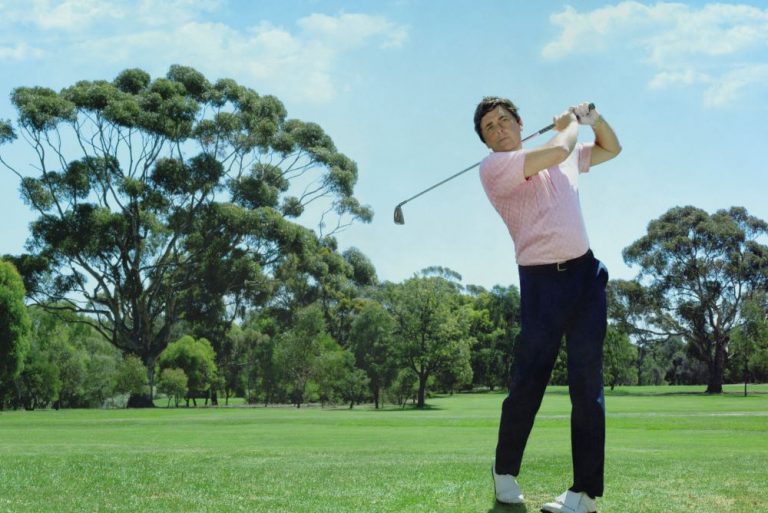
Stereophonics had initially planned to release a greatest hits album to mark their 25th anniversary in 2022. But during the process of digging through old material for bonus tracks, they stumbled upon a treasure trove of new songs. Uncovering tracks like ‘Forever’, a sweeping, emotional ode to escapism and unconditional love, made frontman Kelly Jones reconsider the idea entirely. Instead of looking back, the band turned their focus forward, pouring that energy into creating a brand-new album. The result was ‘Oochya!’, a record that feels like a greatest hits album of new songs.
Spanning the emotional and sonic spectrum of the Stereophonics catalogue, ‘Oochya!’ is a celebration of everything the band does best: storytelling, melody, grit, and heart. It’s an album that distils 25 years of experience into one dynamic, confident, and wide-ranging record. Tracks like ‘Do Ya Feel My Love?’ channel that familiar Stereophonics swagger, blending soaring guitars with a hook that feels instantly classic. It's one of the finest songs they’ve ever released.
Elsewhere, ‘Right Place Right Time’ showcases the band’s reflective side, offering a wistful look at fate, timing, and how life can change in an instant. ‘Running Round My Brain’ delivers a darker, more psych-rock edge, while ‘Hanging On Your Hinges’ kicks the album off with a jolt of raw, rock ’n’ roll energy, reminding us just how tight and explosive they are as a live band.
What’s most impressive about ‘Oochya!’ is how vital it sounds. This doesn’t feel like a band trying to recapture former glory or make a safe, late-career victory lap. Instead, it’s bold, loud, and full of intent, a reminder that Stereophonics are still evolving, still passionate, and still writing some of the best music of their career. The album doesn’t just revisit past sounds; it refreshes them. It’s got the crunch of ‘Language. Sex. Violence. Other?’, the melody of ‘Performance and Cocktails’, and the emotional maturity of ‘Graffiti on the Train’, all wrapped in a modern polish.
Liam Gallagher released ‘C’Mon You Know’ in 2022, his third solo studio album and arguably his most experimental to date. While it may not be his strongest record overall, it showed that Liam wasn’t content to coast on nostalgia. Tracks like ‘Moscow Rules’, co-written with Ezra Koenig of Vampire Weekend, took an unexpectedly brooding, atmospheric turn, while ‘I’m Free’ offered a strange, almost psychedelic groove that left fans divided. The album felt like a restless attempt to push boundaries, sometimes landing, sometimes not, but you couldn’t fault him for trying something different.
Even if the album itself didn’t resonate with everyone, 2022 was still nothing short of monumental for Liam and Stereophonics. In fact, it may well have been one of the best years of their lives. Stereophonics celebrated their 25th anniversary with the release of 'Oochya!' and Liam played two unforgettable nights at the Etihad Stadium, home of his beloved Manchester City, in front of tens of thousands of adoring fans. And, as if that wasn’t enough, he returned to Knebworth for two historic shows not in 1996, but in 2022. A full-circle moment that not only paid tribute to Oasis' legendary past but also proved just how far Liam had come on his own.
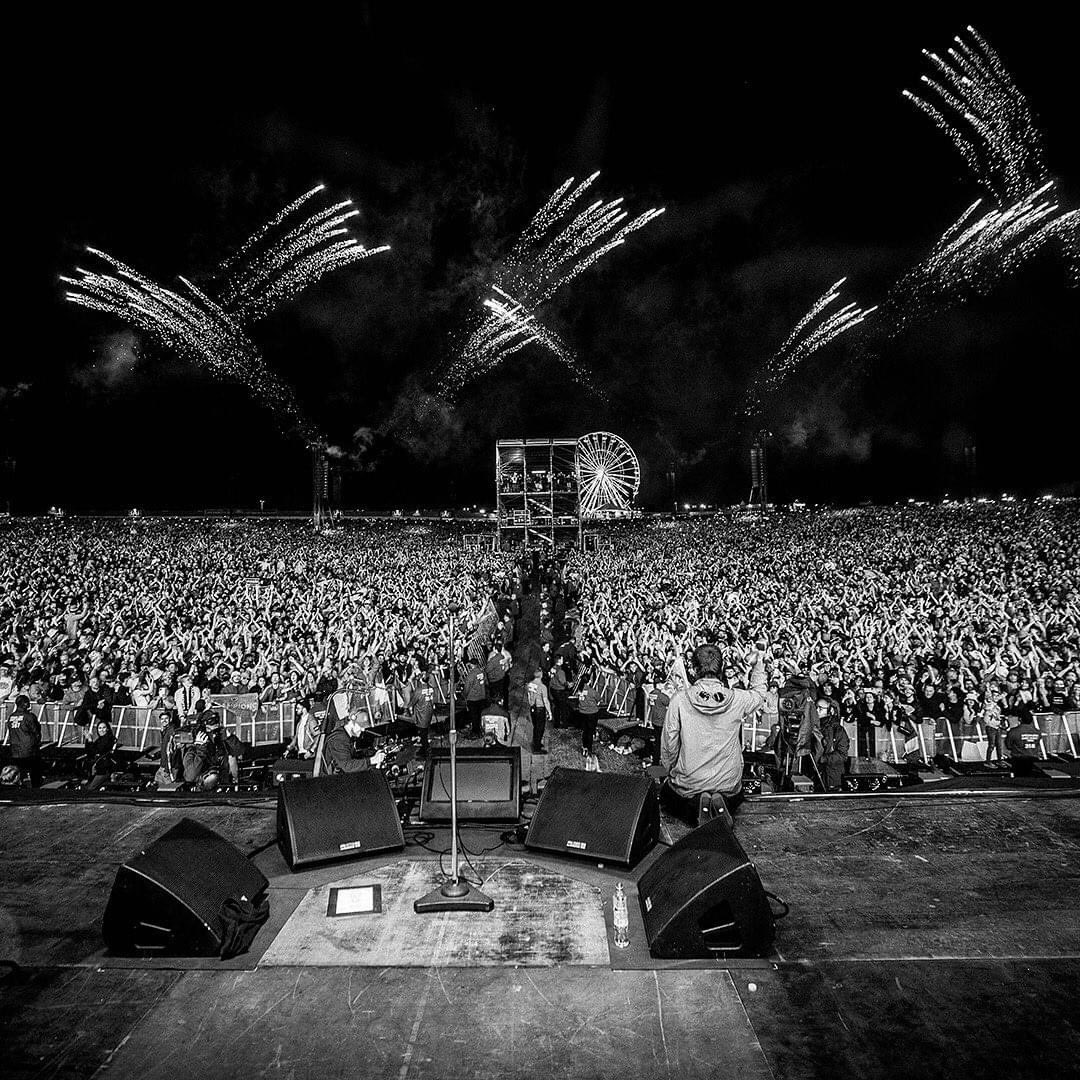
What made Liam Gallagher's solo success even more remarkable was his independence. He achieved it entirely on his own terms, without an Oasis reunion or help from his brother. It was just Liam, his band, and an army of fans who adore him for who he is now. He stepped out from the shadow of Oasis, away from constant comparisons to Noel, and proved that he was more than a voice from the past. He captured the hearts of a new generation of teenagers, all while holding onto the loyal fans who’d been with him since the '90s.
On stage, Liam remains a force of nature. His voice may be weathered, but it still carries the same swagger and soul that made him iconic in the first place. Whether he’s belting out solo hits like ‘Wall of Glass’ or resurrecting Oasis classics like ‘Rock 'n' Roll Star’ and ‘Slide Away’, there's a sense of timelessness in the air. 2022 reminded us that while albums may come and go, Liam Gallagher live is a different beast entirely, a rock star in the truest sense.
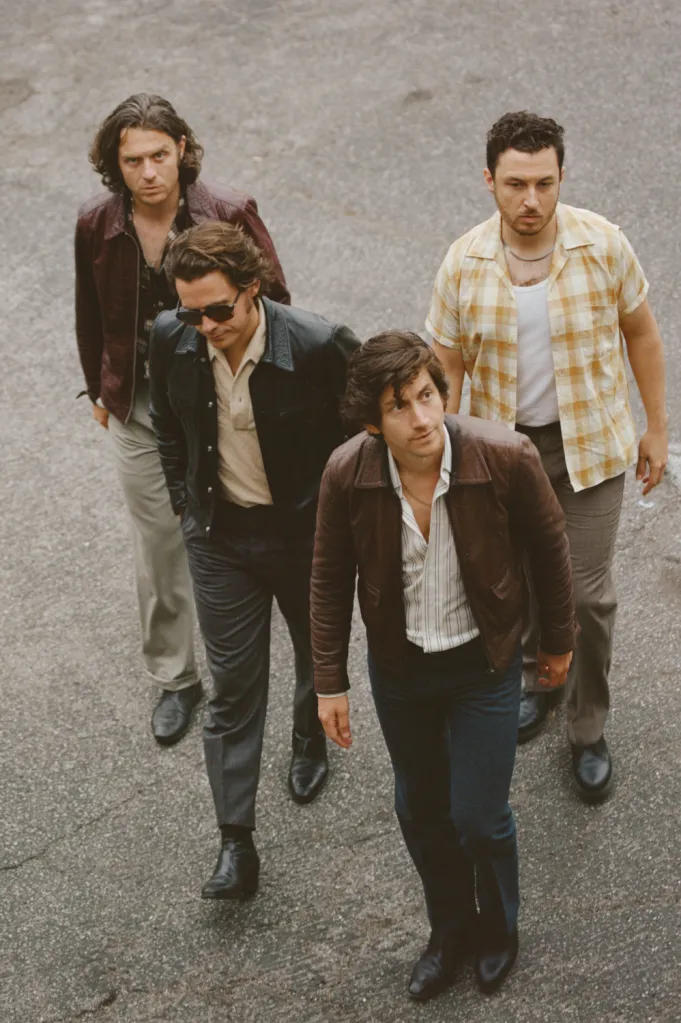
Notably, the rest of the band were not sidelined. Matt Helders’ drumming adapted beautifully to the slower, more restrained tempo, offering precision and subtlety rather than bombast. Jamie Cook’s guitar lines became more textural and atmospheric. At the same time, Nick O’Malley’s bass added warmth and depth to the orchestrated soundscape. As a unit, they sounded more confident than ever in this new artistic direction.
Highlights like ‘There’d Better Be a Mirrorball’ and ‘Body Paint’ rank among the most affecting and sophisticated tracks Arctic Monkeys have released, blending heartbreak and grandeur in equal measure. ‘Sculptures of Anything Goes’ and the title track further revealed a darker, noir-inspired edge, rich with tension and drama. Of course, the shift in tone and pace divided fans. However, the tour for this record would see the band play their biggest shows to date.
In 2023, Arctic Monkeys embarked on a world tour in support of The Car, with a significant UK stadium run and massive dates across Europe and North America. Kicking off at Bristol’s Ashton Gate and finishing in Glasgow, the UK leg included triumphant homecoming shows at Sheffield’s Hillsborough Park and a sold-out trio at London’s Emirates Stadium each night, supported by high-energy openers The Hives and The Mysterines. Across spring, Europe welcomed the band at venues like Berlin’s Mercedes‑Benz Arena and Paris’s Accor Arena, with Irish indie-rockers Inhaler joining as support. Their autumn North American tour saw Dublin’s post-punk darlings Fontaines D.C. open each night.
However, The 1975's musical journey has not been stagnant. They have evolved from their experimental roots, as seen in their genre-defying, career-defining albums ‘Notes on a Conditional Form’ and ‘A Brief Inquiry into Online Relationships’. These albums, which delved into serious topics, also showcased the band's sense of humour. This humour is a key element in their latest offering, a straight-up pop album in 2022. Think Peter Gabriel, Bruce Springsteen, and even Hall & Oates. It’s an excellent pop record with clever, humorous lyrics, LCD Soundsystem references, and a couple of love songs mixed in. It’s a strong contender for album of the year!
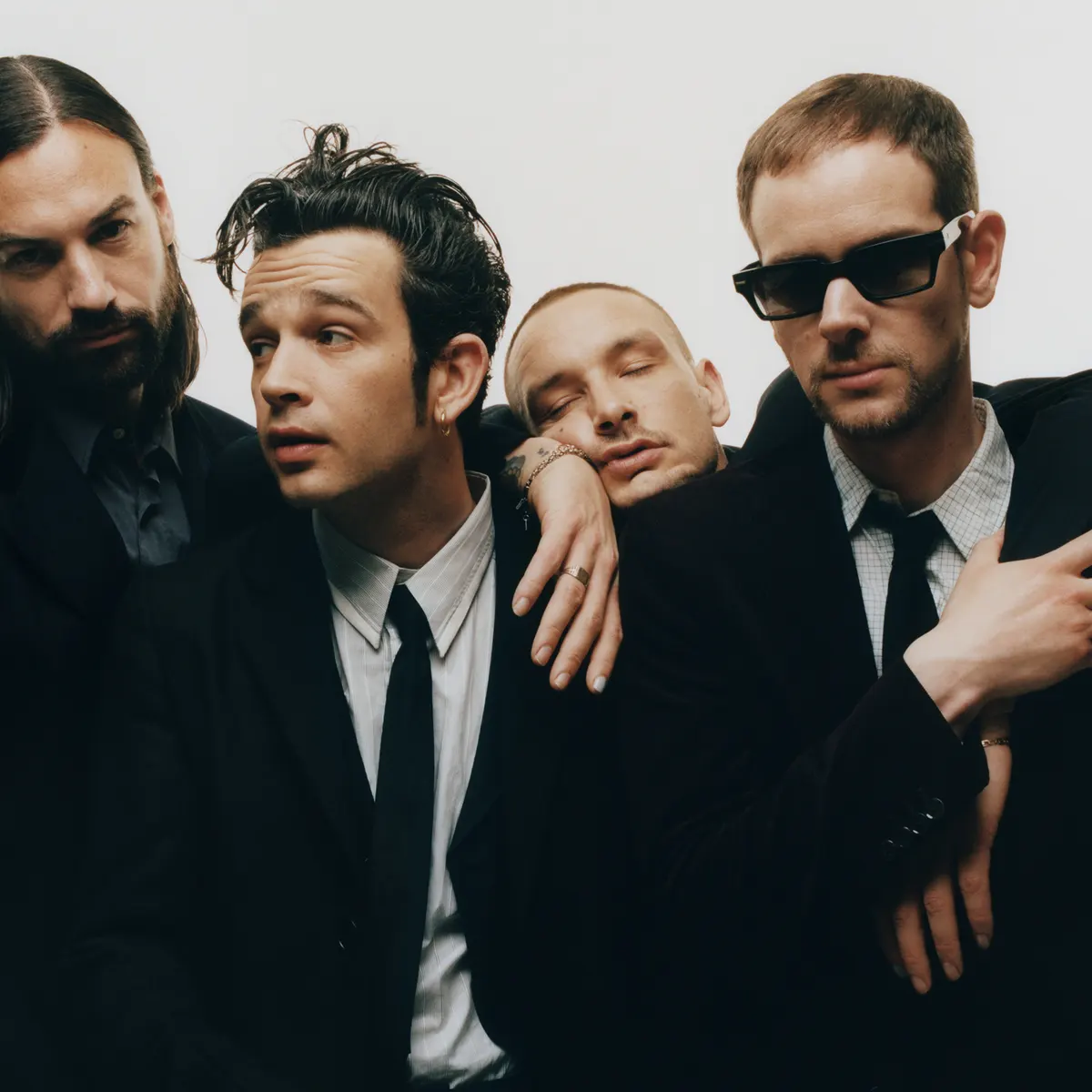
Titled ‘Being Funny in a Foreign Language’, the album marked a return to tighter song structures, warmer production, and a more human, emotionally grounded approach. Produced by Jack Antonoff, it traded sprawling experimentation for emotional immediacy, focusing on intimacy rather than excess. Tracks like ‘About You’ and ‘When We Are Together’ showed the band at their most tender, while ‘Looking for Somebody (To Love)’ and ‘Part of the Band’ retained their signature wit and sonic curiosity. It felt like The 1975 rediscovering their core identity, less digital anxiety, more heart-on-sleeve sincerity, without sacrificing their identity as one of the most interesting and unpredictable bands of their generation.
The album was notable for its brevity, featuring just eleven tracks, making it the band's shortest release to date, yet arguably their most cohesive. Where previous albums sprawled with chaotic ambition, Being Funny in a Foreign Language felt refined and intentional, each track serving a clear emotional or narrative purpose. Matty Healy’s lyrics were as self-aware and sharp as ever, balancing irony with vulnerability in a way only The 1975 can. The instrumentation leaned heavily on rich analogue textures, lush strings, clean guitars, and vintage synths, giving the album a timeless quality that nodded to 80s pop while sounding entirely contemporary. Critically acclaimed and commercially successful, the record reaffirmed The 1975’s place as a band still capable of evolving while maintaining their distinct voice.
Foals would claim the Album of the Year crown with 'Life is Yours', the perfect antidote to the lockdown blues. Written during the pandemic, the album feels anything but confined. It showcases the band letting loose and embracing a joyous, carefree vibe. The record is filled with tales of nights out, holidays, and youthful excess. Something that lifts your spirits the moment you hear it. It’s the modern-day 'Technique', solidifying Foals as one of the UK’s finest while also getting you onto the dancefloor with its infectious energy.
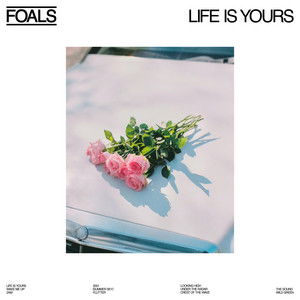
Discussing the record, the band shared, “We were reminiscing about parties, club nights, and those moments of youthful abandon. The excitement before stepping out, meeting up with friends, the wild abandon. ‘Who’s got the pingers? Where are we going?’ It's all about that youthful excess of going out.”
The album is the perfect soundtrack to those feelings; it's full of songs that lead you to the dancefloor.
Talking about one record from 2023: 'Heavy Heavy' by Scottish band Young Fathers. It’s an album unlike anything I’ve ever heard before. Visceral, spiritual, and completely unclassifiable. At its core, it’s pop music, but it embraces influences from across the globe with a kind of fearless inventiveness that feels more like a movement than a genre.
'Heavy Heavy' is the sound of borders dissolving musically, emotionally, and culturally. It's a musical journey that connects you to a global community, echoing West African rhythms, gospel fervour, post-punk urgency, electronic experimentation, and industrial rawness. All these influences are wrapped around deeply human lyrics that touch on identity, love, politics, and survival. It’s music for dancing, for thinking, for letting go. It can punch you in the chest or lift you off the ground, often in the same song.
Tracks like ‘I Saw’ and ‘Geronimo’ showcase Young Fathers’ ability to sound massive and intimate at the same time, chanted vocals, thunderous drums, and swirling production all working together to create something primal yet modern. ‘Tell Somebody’ slows things down and exposes the band’s emotional core with stunning vulnerability, while ‘Rice’ pulses with infectious energy and intricate layering. There are no filler tracks here; every song is purposeful, urgent, and alive, making you feel the importance of each moment.
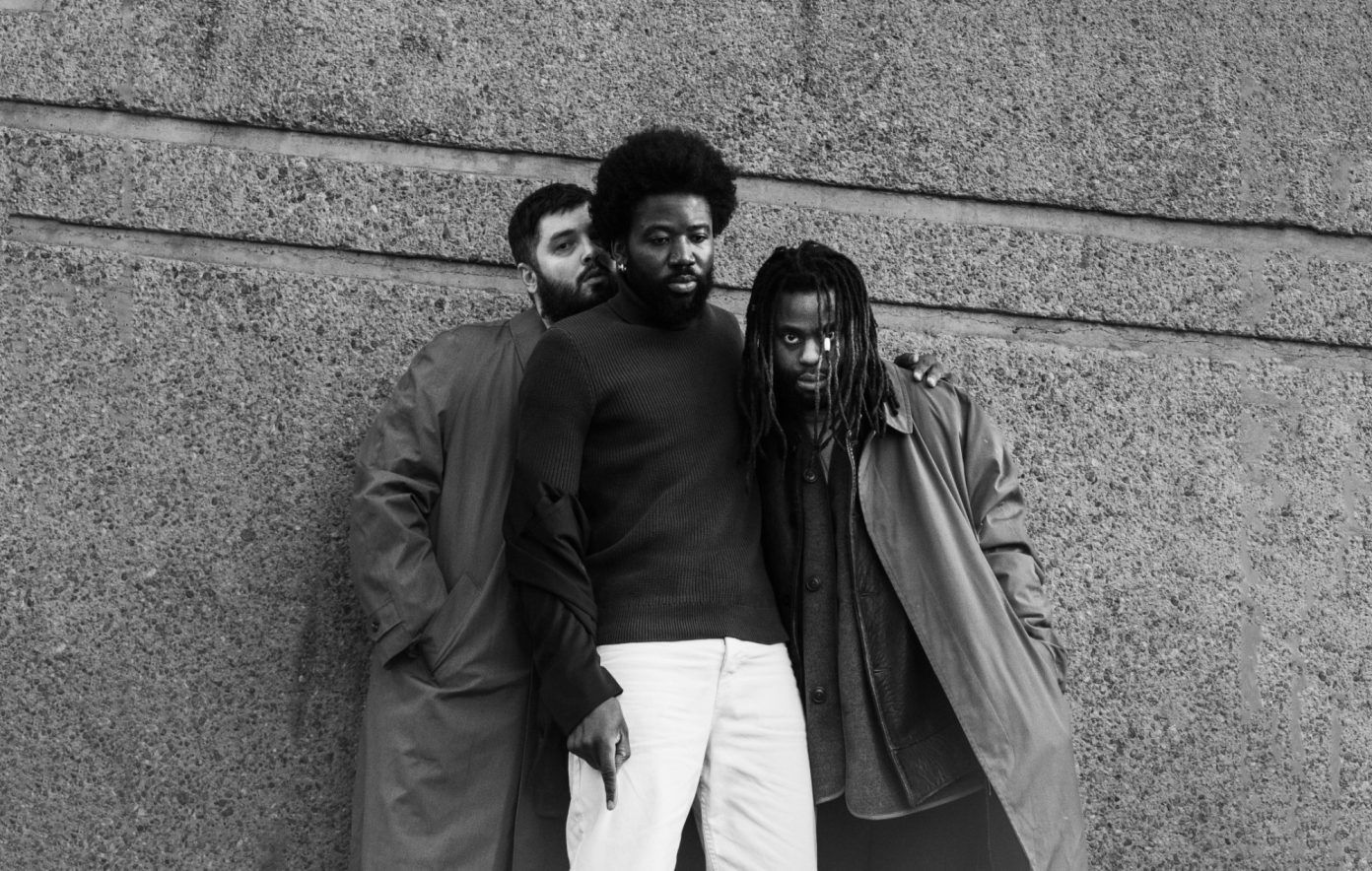
What makes 'Heavy Heavy' so powerful is its refusal to be pinned down. A testament to what pop music can become when you tear up the rulebook and make something that sounds like now and forever at the same time.
It Really, Really, Really Did Happen- 20s Part 2
2023 was a year of monumental reunions, with the resurgence of Britpop at the forefront. Pulp, in a momentous event, reunited to commemorate the 25th anniversary of 'This Is Hardcore', the album that marked a significant shift in the Britpop era. This dark, brooding masterpiece, with its themes of disillusionment, fame’s hangover, and cultural burnout, was the sound of the party ending. Now, 25 years later, this sobering yet brilliant work was being celebrated by a band that has aged like fine wine-older, wiser, but still razor-sharp.
Pulp's return was met with fervent anticipation and excitement from fans. The band embarked on a series of summer gigs across the UK and beyond, performing at massive venues, arenas, and headlining festival bills. For many, it was a dream come true, the first chance in over a decade to witness one of Britain's most unique and literate bands back on stage. And they certainly lived up to the hype. From the euphoric renditions of 'Disco 2000' and 'Common People' to the dramatic sleaze of 'This Is Hardcore' itself, the setlists were carefully curated love letters to both their greatest hits and their deeper, darker gems.
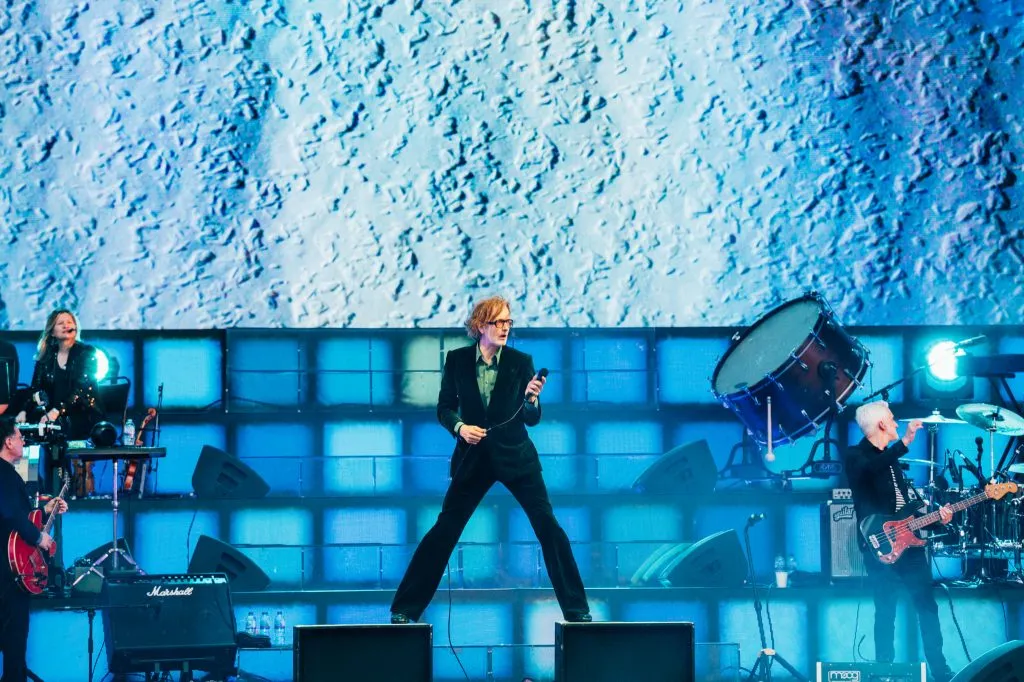
However, the reunion was bittersweet. In March 2023, long-time bassist Steve Mackey sadly passed away after a long illness. He had chosen not to take part in the reunion before his passing, but his presence was deeply felt. The band paid tribute to him in their performances, honouring his legacy not with silence, but with sound playing on in his memory.
Despite the grief, the tour became a celebration of Mackey, of Pulp, and of the strange, brilliant legacy they helped build. Jarvis Cocker proved once again why he remains one of the most compelling frontmen of his generation. Witty, unpredictable, and deeply human, he still had the crowd in the palm of his hand, part rock star, part storyteller, part awkward cultural prophet. It's not the last we hear of Pulp, though. Their resilience in the face of loss is truly inspiring.
Blur also made a triumphant return in 2023, kicking things off with a highly anticipated reunion tour across Europe and Asia. What started as a few dates quickly grew into a significant comeback, with the band playing to packed crowds and proving that their legacy still burns bright. The European leg of the tour featured several landmark moments from their first show in Amsterdam since 1998 (I was there!) to headline slots at major festivals across the continent.
But the real highlight came with not one, but two massive nights at Wembley Stadium, a historic feat that not only marked the band's biggest shows to date but also solidified their place as one of Britain's most enduring and beloved acts. These Wembley performances weren't just nostalgia trips; they were vibrant, emotional celebrations of everything Blur has achieved, powered by a band still firing on all cylinders. From deep cuts to anthems, the setlists were a testament to the strength of their discography and the deep connection they continue to have with fans across generations, making each fan feel truly appreciated.

If that wasn’t enough, on the 18th of May, Blur released new music and announced an album, 'The Ballad of Darren.' It marked the first new Blur record in seven years, and I’m definitely glad to hear them back. Blur is one of those rare bands that remain as important and influential today as they were in their '90s heyday. More than just a reunion, this album and tour feel like a genuine, heartfelt return. They're doing it for all the right reasons, and that sincerity radiates through everything they've done this time around.
The magic is absolutely still there on stage, where the chemistry between the four has never looked more natural, and in the studio, where 'The Ballad of Darren' emerges as some of the band’s most affecting and mature work to date. It’s a short album, but every track lands with purpose. It’s full of feeling, quietly devastating in places, wistful in others. You can feel what the band are going through with each line sung by a more fragile Damon Albarn and every note played by his three best friends. Whatever pain or reflection they’ve brought into the studio, they’re facing it together. That enduring sense of camaraderie, once tested, now feels like the album’s emotional backbone.
"I gave a lot of heart, so did you / Standing in the back row, this one’s for you,” Albarn sings on the final track, 'The Heights', a song that feels like a love letter to those who’ve stuck by the band through decades of change, silence, and comeback. It's not a closing statement, it’s a tribute to the Blur faithful.
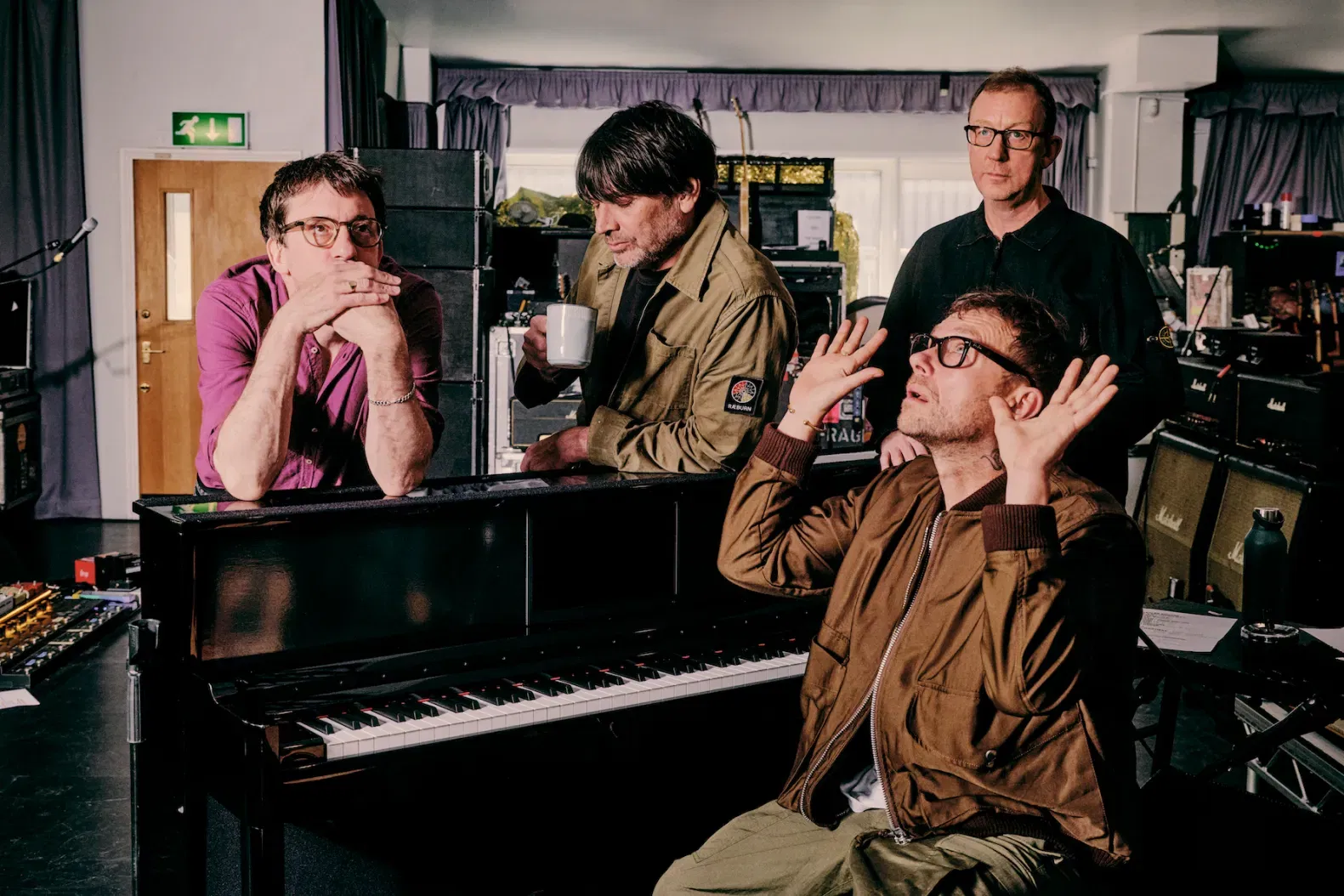
'The Ballad of Darren' was born from the four of them finding their way back to each other, but also from the people they’ve lost along the way. Songs like 'Barbaric' explore the complicated fallout of relationships, its shimmering guitars and resigned lyrics capturing that moment where connection frays but memory lingers. Lead single 'The Narcissist' is a masterclass in restraint, with its melancholic, mid-tempo build and lyrical introspection a mature meditation on ego, longing, and the ghosts we carry. Meanwhile, 'St. Charles Square stands in sharp contrast: paranoid and spiky, it channels post-punk energy through Graham Coxon’s jagged guitars and Albarn’s almost spoken-word urgency. It’s a burst of raw tension in an otherwise reflective album.
This isn’t a record trying to recapture youth; it’s about growing older with grace, loss, and loyalty. And it feels made not for casual listeners but for those who’ve been with Blur for the long haul. That’s reflected even in the album’s title. 'The Ballad of Darren' isn't just a nod to the band’s longtime security guard and everyman Darren “Smoggy” Evans; it’s a quiet homage to the generation Blur came from. “Darren” was a name once so common in working-class Britain that it practically defined an era, but it fell out of the Top 100 boys’ names in 1994, just as Blur rose to dominate the charts. There's something quietly poetic in that.
Glastonbury 2023 saw the ‘Monkeys’ back on the farm for the third time, ten years since Arctic Monkeys’ last headline slot. Although for some it was a lacklustre performance, it showed the new era of the band and Alex’s unique presence as a frontman.
The band played through a career-spanning set, just days after illness had threatened to cancel their headline slot. A set that saw the band play songs from the latest album, 'The Car' and work back through the previous six albums. Giving older tracks a new lease of life. ‘Pretty Visitors’ comes armed with a tense key change towards the end. Full crooner-mode is activated for ‘Cornerstone’, a song that seems to grow with power as it gathers momentum; ‘I Wanna Be Yours’ works in lines of ‘Star Treatment’. The raw power of ‘Body Paint’, perhaps their finest composition, shows how far the band have come.
They stand alone in their field, out of all of the bands that came out of Britain in the early noughties. Arctic Monkeys stand out as true superstars.
A full review of the performance can be found here: The Monkeys Back on the Farm
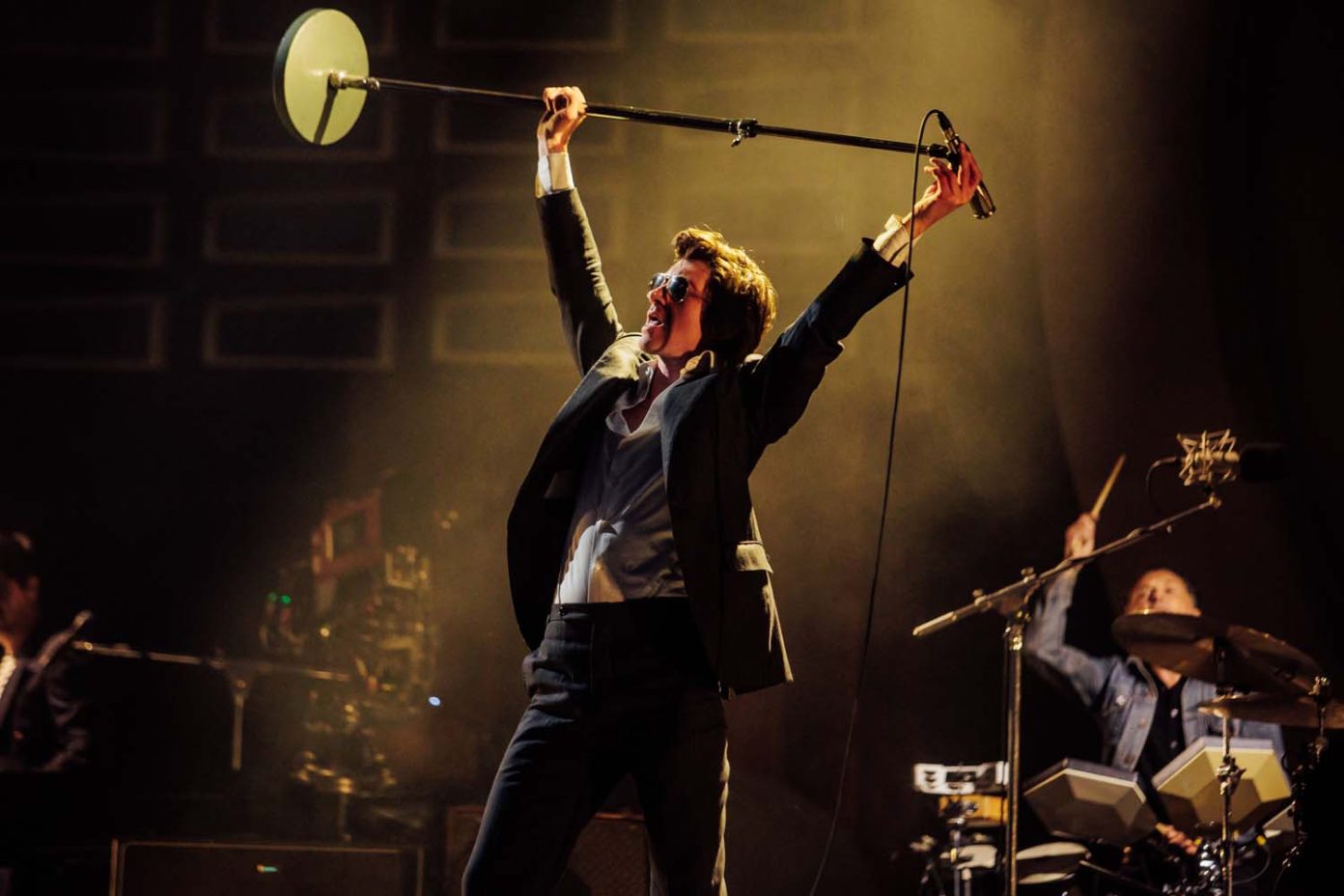
It was quite a good year for guitar music, in fact. Blossoms and Rick Astley became Britain's best tribute band and proved you can still like The Smiths even with Morrissey’s controversial views. It was a mad, unique idea first seen in 2021 with two small gigs, but trying it at Glastonbury was a huge gamble, and it paid off. A 16-song set that contained all of the heavy hitters, played by six huge fans of the band. In a time when being a fan of The Smiths can be seen by some as controversial. Blossoms and Rick allow fans to enjoy and revel in those brilliant songs again.
Again, a full review can be found here: https://www.beyond-the-grooves.co.uk/news/these-charming-men
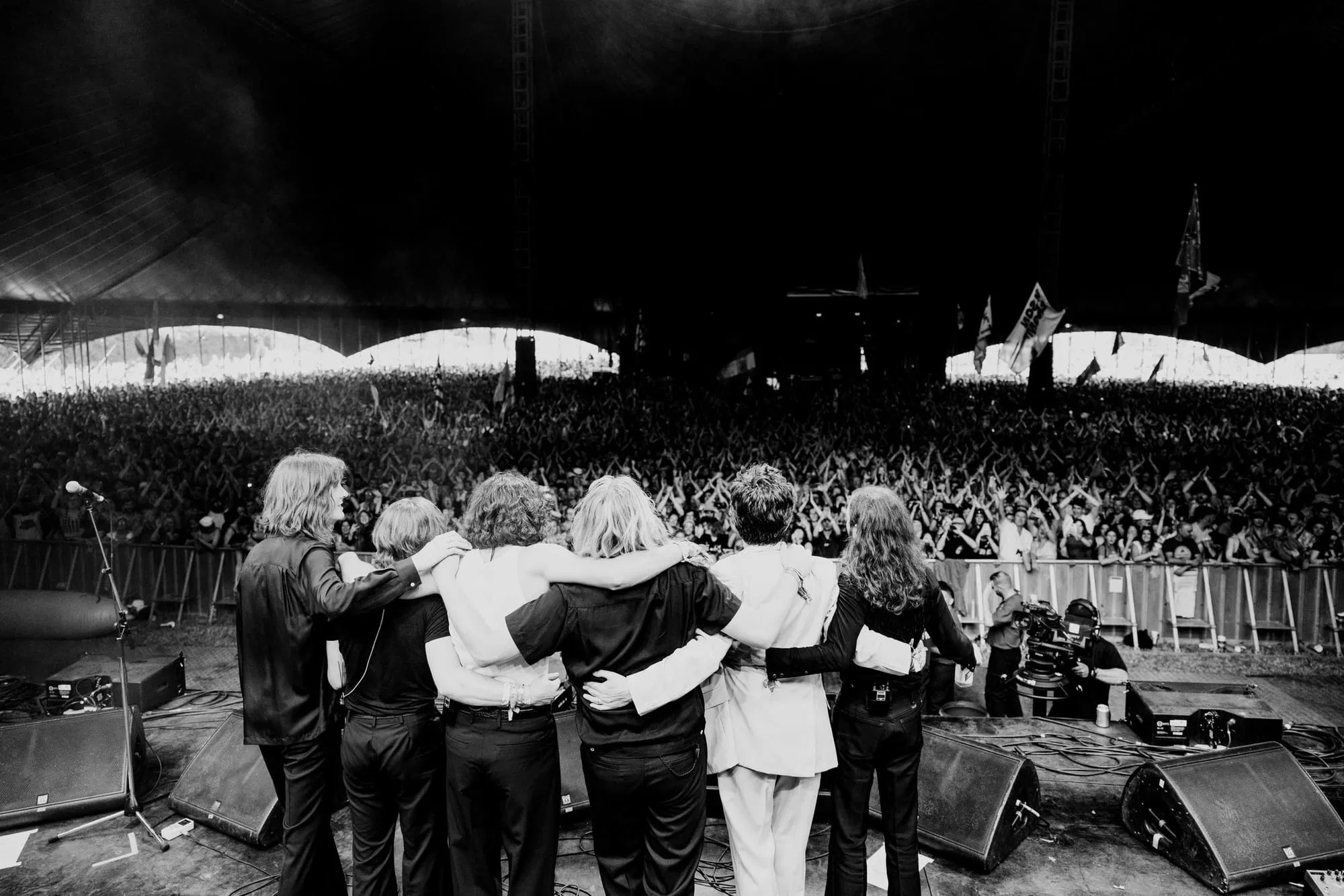
Courteeners played the festival for the 8th time, and it seemed like a return to form. Having seen them live several times, Liam’s voice can be a bit hit and miss, but Glastonbury was a big success for the band. Fingers crossed, 2023 can be the year we see new music from them.
Friday also saw a secret set from ‘The Churnups,’ who we found out to be Foo Fighters. It was the band’s first performance in the U.K. since the tragic loss of drummer Taylor Hawkins. They were given an afternoon slot on the Pyramid Stage, with an hour allocated. Safe to say they smashed it. No gimmicks, no time to stop. They played the hits, and fans were impressed. A true rock masterclass.
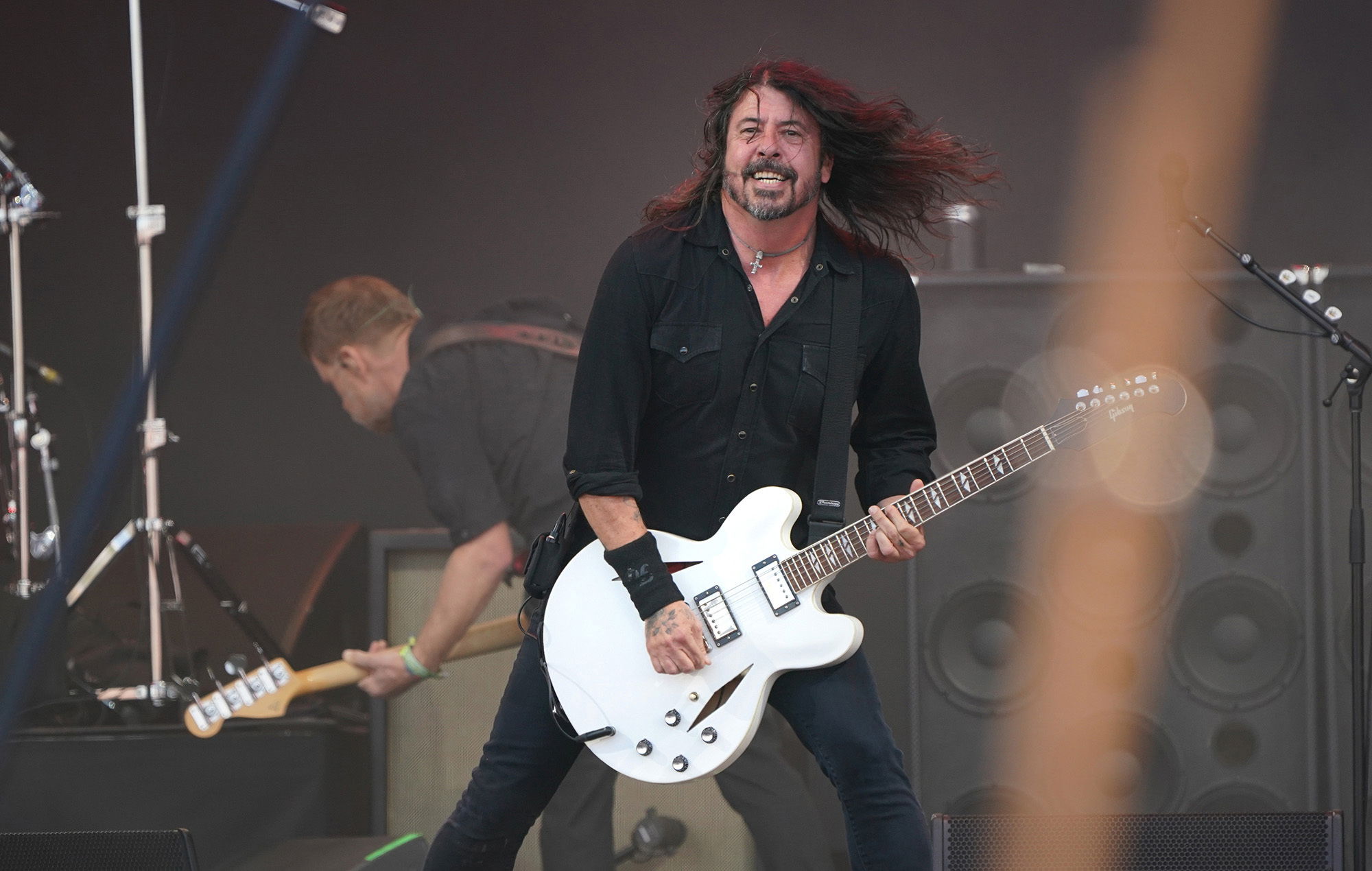
Rounding off Glastonbury in both this post and the festival itself was Elton John. It saw the Rocket Man take his final flight, well, in the UK at least. A performance that didn't let up. It was hit after hit. He knew what he was doing, and he attracted one of the biggest crowds the festival has ever seen! It will go down as one of the best Glastonbury performances we have ever seen.
Celebrating the past, present and future of UK music. Using his set to give a platform to some newer artists, Jacob Lusk from Gabriels lends some sweet soul to 'Are You Ready For Love', Rina Sawayama absolutely slays Kiki Dee's part on 'Don't Go Breaking My Heart'.
Brandon Flowers adds some Vegas glamour to 'Tiny Dancer'. It's Elton's stage presence and the songs fans are here to see, though, and none are missing. It is a set of wall-to-wall bangers. 'Crocodile Rock' is massive. 'Saturday Night's Alright for Fighting', feral. 'I'm Still Standing', the summit. And then, 'Don't Let the Sun Go Down on Me', dedicated to George Michael on what would have been his 60th birthday, a moment that touched every heart in the crowd.
'Candle in the Wind', 'Someone Saved My Life Tonight' and 'Pinball Wizard' all made the setlist, and even the most casual Elton fan was gripped. By the epic firework finale of 'Rocket Man' had finished, there could be no doubt that Elton's performance was not only the best of the weekend but one of the best headline slots for years.
It was not just a standout moment, but a historical one, marking the perfect farewell to one of the greats and etching its place in the annals of music history.
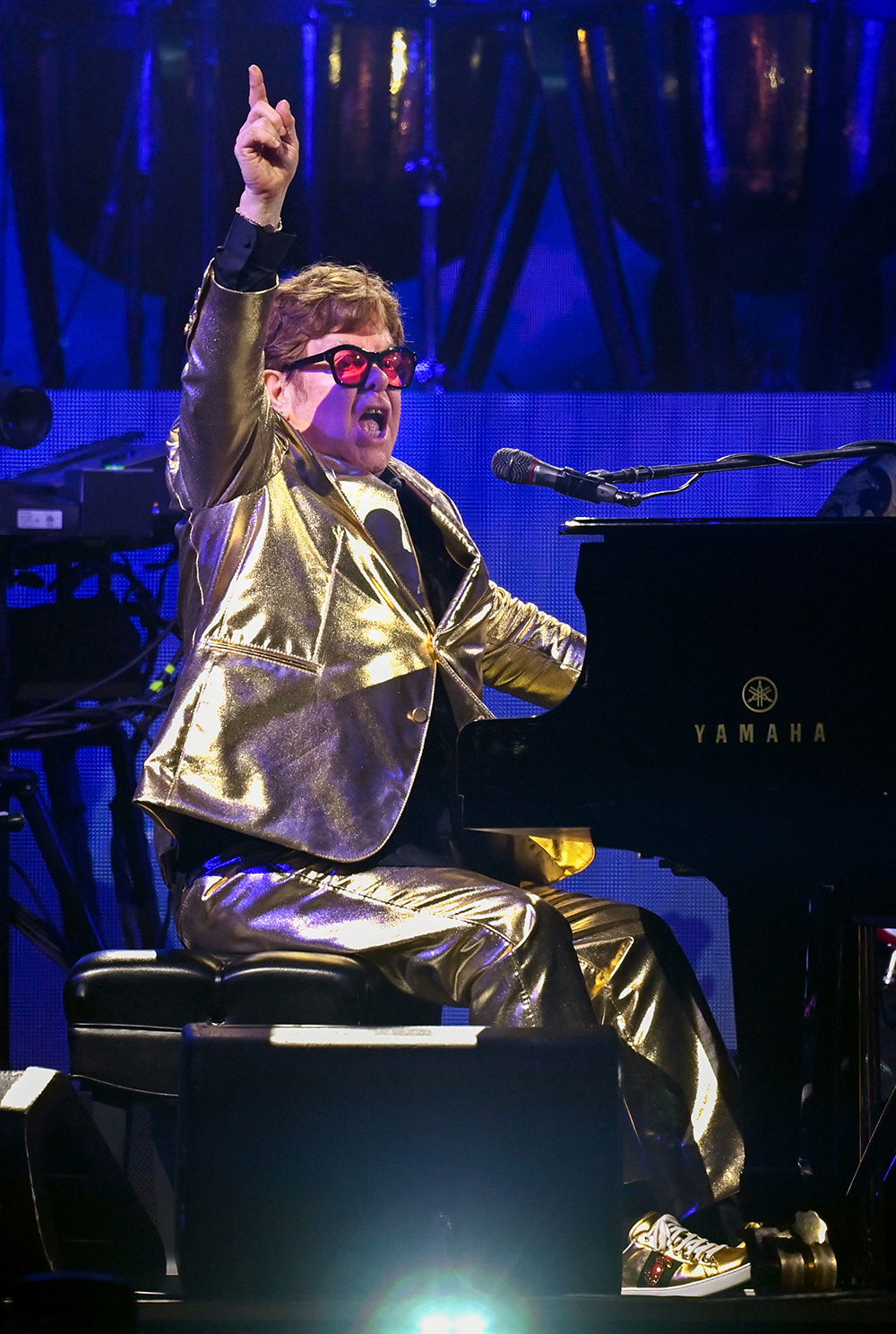
Glastonbury wasn’t the only big gig, though.
Arctic Monkeys would take The Car for a spin on a U.K. stadium tour, playing a career-defining set that celebrated their evolution while thrilling fans with classics. The setlist was a carefully balanced journey through their discography.
London’s Finsbury Park would host Jamie T, Pulp, and The 1975 over one weekend, all of which played some of their biggest headline shows to date. It’s quite telling that these gigs happened at a time when guitar music was supposedly dead!
Manchester saw Sounds of the City make a return, with Bastille and Blossoms representing the guitar bands. Hacienda Classical played too, keeping Manchester's heritage alive. The legends came out to play: Bruce Springsteen sold out two dates in Hyde Park and played a few football stadiums. Billy Joel brought his piano ballads to the capital too, rounding off Hyde Park’s big gigs for the year.
Plus, 2023 delivered some truly brilliant new music from Britain’s best and most enduring artists. I mentioned Young Fathers earlier, who have since become one of my favourite bands. Still, another highlight was the return of Noel Gallagher’s High Flying Birds with their fourth studio album, 'Council Skies'. A deeply reflective and sonically rich record, it found Noel revisiting the sounds and sentiments that first made him great, while still pushing his songwriting into subtly new territory.
At its core, 'Council Skies' is an album steeped in memory and introspection. The title itself references the vast, open skies above council estates, a metaphor for both escape and confinement, and a nod to Noel’s working-class roots in Manchester. Lyrically, the record is one of his most personal to date. There's less bravado and more vulnerability, as he grapples with identity, time, and the quiet weight of middle age. Yet for all its nostalgia, it never sounds like a retread. Instead, it feels like a seasoned songwriter revisiting his foundation with fresh eyes.
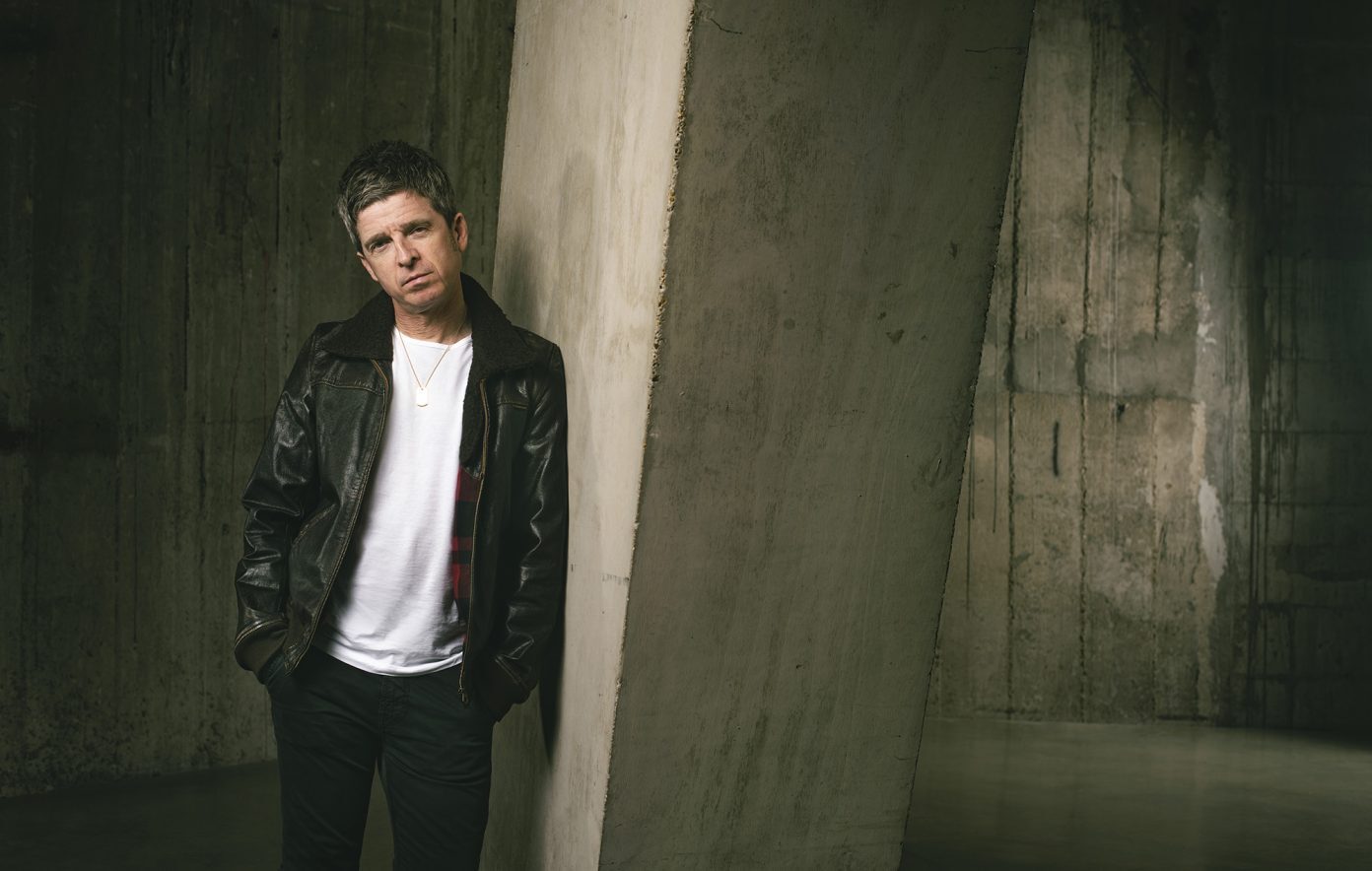
Musically, the album sees Noel revisiting the classic sounds fans love: jangling guitars, crisp acoustic arrangements, and massive choruses. 'Easy Now' is a perfect example; its soaring melody and heartfelt delivery feel like vintage Gallagher, recalling the emotional weight of tracks like 'Stop Crying Your Heart Out' or 'Little by Little'. Elsewhere, 'Love Is a Rich Man' blends a breezy pop sensibility with lyrical sharpness. At the same time, the lush, string-laden title track 'Council Skies' evokes both The Smiths and Burt Bacharach in its melancholic beauty.
One of the album’s highlights, 'Open the Door, See What You Find', stands out not just for its infectious optimism but also for its subtle rhythmic callback to 'Supersonic'. The drum pattern shares a similar laid-back groove, spaced out, swinging, and familiar in all the right ways. It’s a deliberate nod to the past, cloaked in the sound of an artist who has moved on but still understands the power of his legacy. The track’s lyrics speak of rediscovery and connection, making it one of the most uplifting and immediately likeable moments on the album.
But the real emotional centrepiece is 'Dead to the World', a cinematic and slow-burning ballad unlike anything Noel has released before. Introspective, fragile, and orchestral, it shows a level of vulnerability rarely heard in his catalogue. There’s no swagger here, just quiet devastation and composure. It’s not just a standout on Council Skies; it’s one of the best songs he’s ever written.
As with Arctic Monkeys’ 'The Car' in 2022, Noel uses strings sparingly but effectively, adding emotional weight and atmosphere rather than drama for drama’s sake. The result is an album that feels elegant and human, full of soul but never overstated.
Ultimately, 'Council Skies' is a reminder of what made Noel Gallagher such a vital songwriter in the first place. It captures the voice of a man looking back without bitterness, writing songs not to prove a point but simply because he still can. Hopeful, nostalgic, and richly melodic, it’s the sound of Noel settling into himself and doing it with timeless grace.
Red Rum Club released album number four, 'Western Approaches. The title itself is loaded with meaning: Western Approaches refers to the strategic military zone in the Atlantic Ocean just off the coast of Britain, famously crucial during World War II. But it also points much closer to home for the band; it’s the name of a building in Liverpool that once housed British naval intelligence. In this way, the album title captures a blend of local history, global context, and the spirit of watchfulness and resilience, which runs through the album like a steady undercurrent.
This is an album about weathering the storm, whether that storm is personal, political, or emotional. There’s a maturity to the songwriting, a sense of perspective that comes from experience. It still sounds unmistakably like Red Rum Club sweeping horns, cinematic flair, and soaring choruses. Still, there’s more patience, more nuance, more vulnerability.
In many ways, 'Western Approaches' feels like Red Rum Club’s most complete and personal work. It’s rooted in their city, their sound, and their evolution as a band, a Liverpool record through and through, but with its eyes on the horizon.
Damon Albarn has been a busy man over the last couple of years, and his project Gorillaz wasn’t going to take a step back while he was working on Blur material. In fact, Gorillaz have released their best album to date, 'Cracker Island', complete with Stevie Nicks and Tame Impala collaborations and a song that sounds like everything Damon Albarn has ever done in the form of 'Skinny Ape'
A record that shows the band's influence on popular music, past, present and future. There is no complex concept or industry-defining moments. Just a collection of some of the band's best tracks. ‘New Gold’ must now be considered alongside their best work: the latter enlists a catchy vocal hook from Tame Impala’s Kevin Parker. Stevie Nicks and Albarn’s vocals intertwine wonderfully for ‘Oil’, as does Adeleye Omotayo’s on ‘Silent Running’.
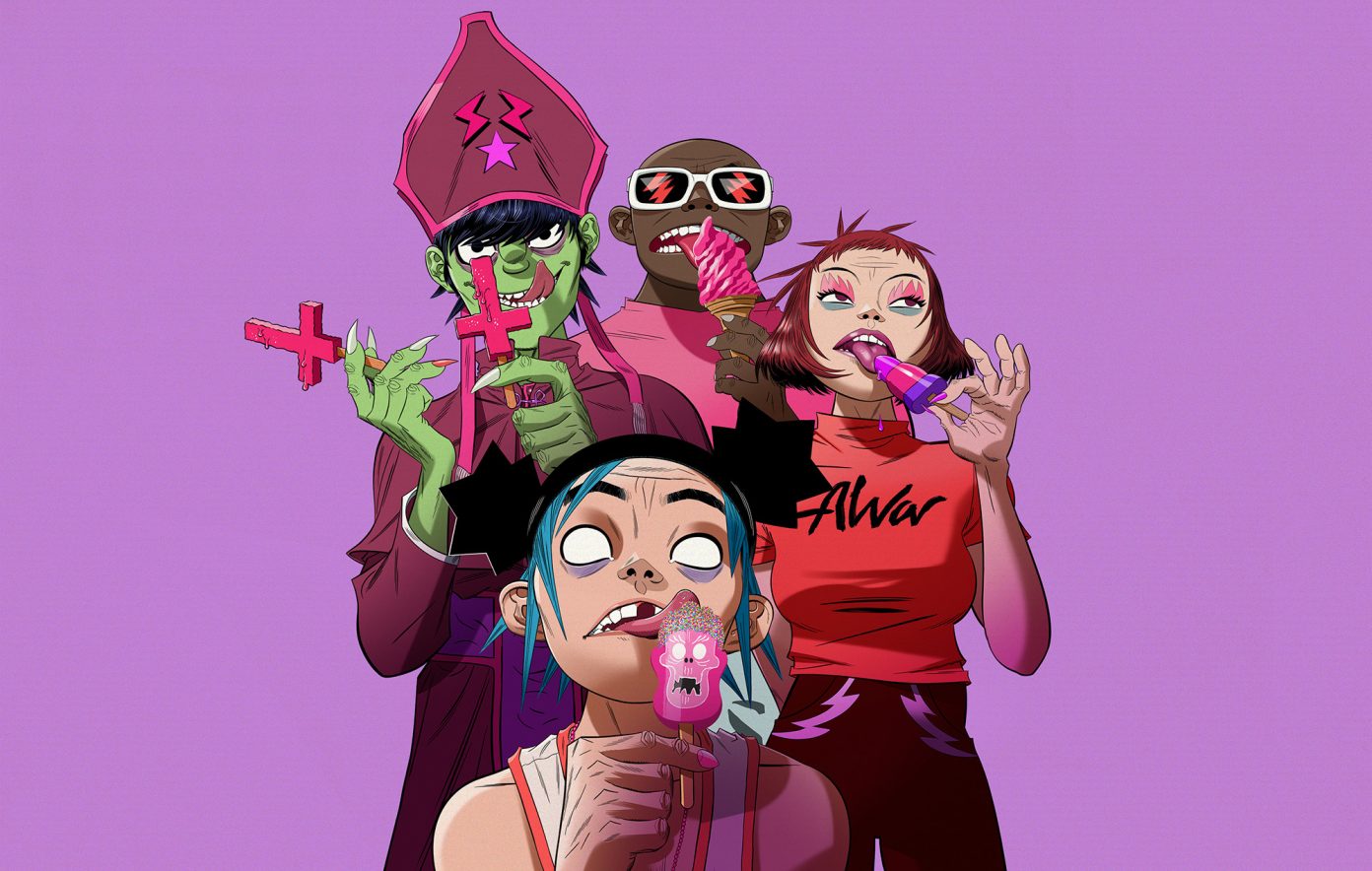
As the NME states."A band that was once considered mucking about on the periphery of pop are now very much defining the present and inspiring the future." You could be doing much worse for album eight, eh?
Sleep Token, one of Britain’s most interesting and intriguing bands, is a group of masked and cloaked musicians whose identity is currently unknown. Don’t let this captivating dynamic deter you, though. Sleep Token has released one of the best albums of the year, 'Take Me Back to Eden'. It’s an album that takes the rock rulebook and rips it up! An eclectic mix of sounds, styles, and songwriting that is simply brilliant. 'Are You Really Ok' is stadium rock, and one of the best songs of the year! Whereas 'Aqua Regia' is almost R&B in sound. It’s a breathtaking listen.
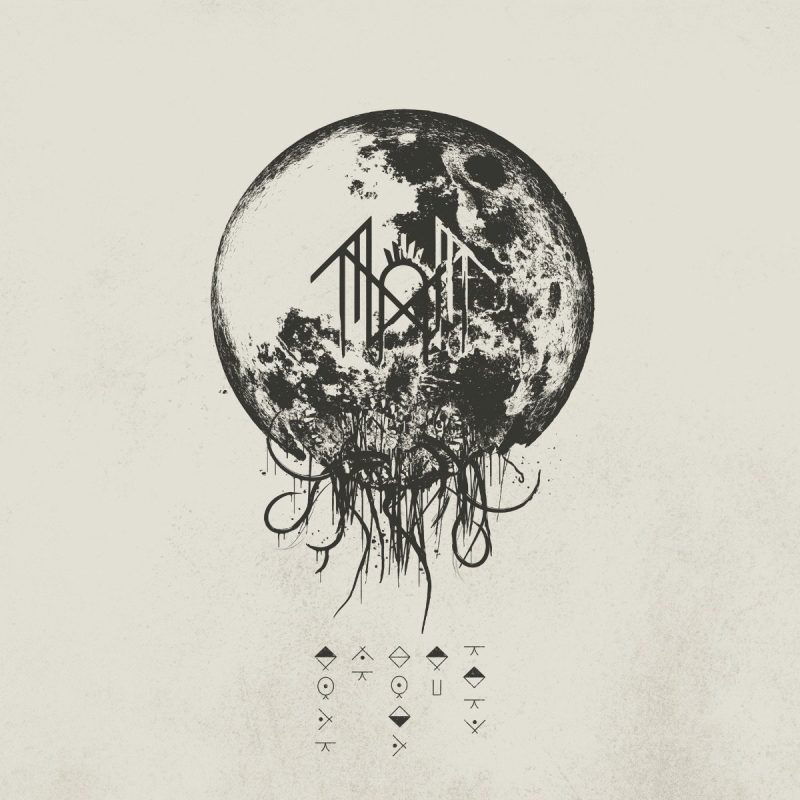
Following on from the band's two previous records, this is the album where the stakes have been upped. They had already written some of the best music of recent memory. Not wanting to be confined to a genre. Sleep Token are continuing to push the boundaries of what's possible. From atmospheric anthems like 'The Night Does Not Belong to God' through to synth pop tinged metal bangers like 'Alkaline' and whatever 'Dark Signs' is. It sounds like a dance tune with an alternative rock, metal sound.
The band are making some of the most interesting music in Britain today, and has now made the jump into arenas. Festival headline slots are just around the corner. It's an exciting time to be a fan of the masked band.
You can read more about the festival here: The End of the Summer, the Beginning of Your Lives.
It was the fitting end to Sam Fender's Seventeen Going Under cycle following his huge dates at St James Park earlier in the year. The 1975 proved themselves to be one of Britain's best live bands and reinforced their self-titled debut as an absolute classic. The Killers are, and always will be, adopted Brits. Although they hail from the fabulous Las Vegas, Nevada, they will always have a place in the hearts of us Brits. Foals played an absolute blinder, again proving themselves as one of Britain's best live bands, delivering a set that could inspire the next generation of headliners.
It was the fitting end to what has been one of the best summers of music in recent memory. From The Monkeys on the Farm to Sam's first headline slot, it was one to remember.
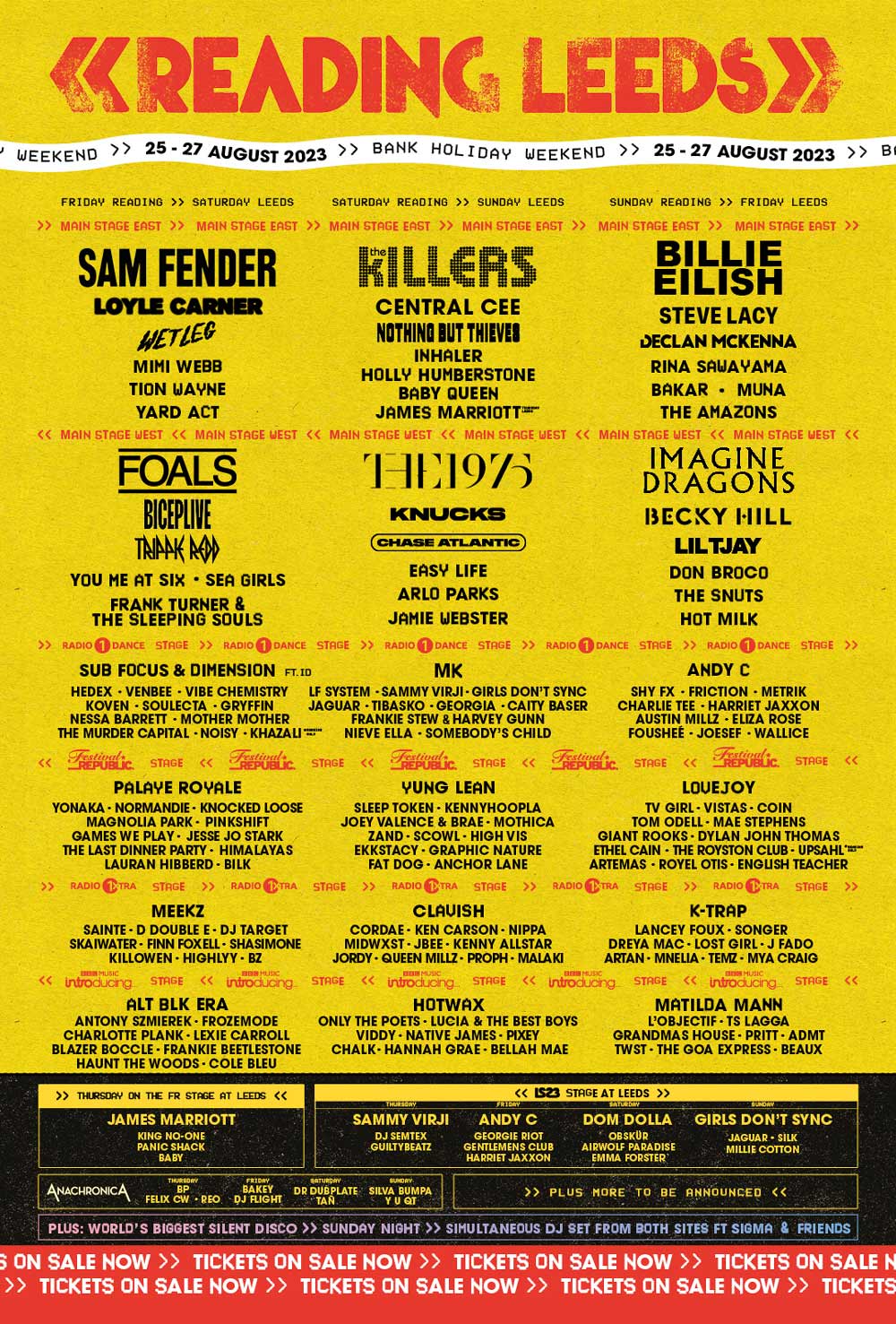
November 2023 marked a significant musical milestone: the release of a new song by The Beatles. 'Now & Then', which the band had initially attempted to record in the 1990s without success, was finally brought to life on November 2nd. This resurrection of a long-lost gem was made possible through the unwavering dedication of The Beatles, aided by Peter Jackson and new vocal isolation technology.
'Now & Then' didn’t just fade into obscurity. As with most things The Beatles did, it took off. Breaking countless records, it became the band’s 18th Number One single in the UK. The band also broke streaming records this century. It became the fastest-selling single of 2023 and the fastest-selling vinyl of this century, too.
The Beatles have etched their name in history once again. They now hold the record for the longest gap between a band's first Number One single, 'From Me to You' (released in 1963), and 'Now & Then' (released in 2023). Their career, spanning over 60 years, is a testament to their enduring influence on the music industry.
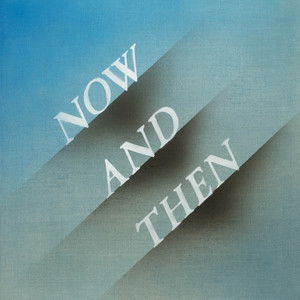
The gap between The Beatles' last Number One single, 'The Ballad of John & Yoko', and 'Now & Then' is also a record-breaking 54 years.
It’s the final chapter in music's most extraordinary story. A story in which four lads from Liverpool took on and took over the world, a story filled with chaos, tragedy, beauty, controversy, sadness, joy, friendship, and soundtracked by some of the greatest songs ever written. Has its final chapter for those who are still here and for those lost along the way.
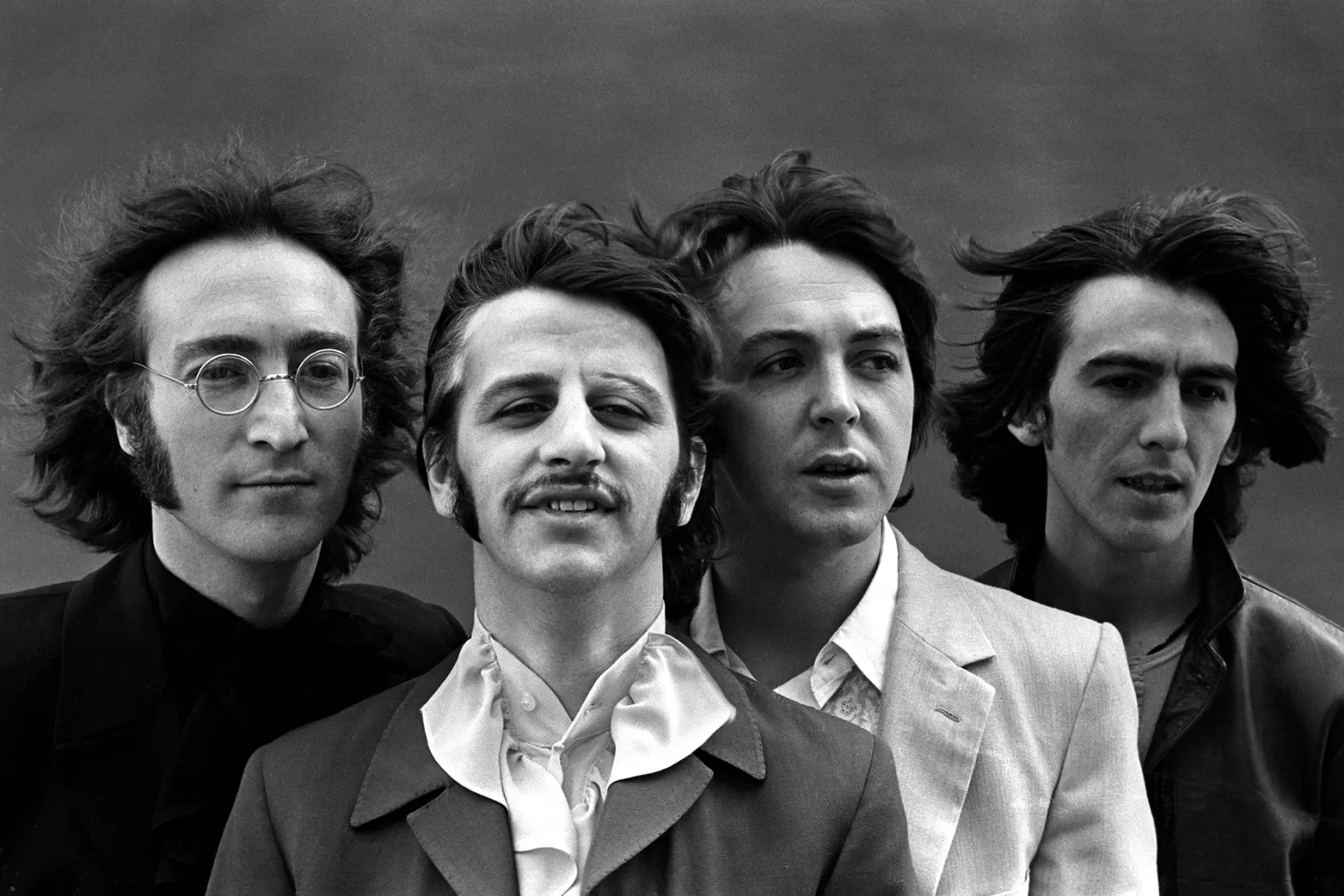
The year 2024 kicked off with a new sensation in the UK music scene. The Last Dinner Party, introduced to the world in late 2023 with their singles 'Nothing Matters' and 'My Lady of Mercy,' left a lasting impression, setting the stage for their highly anticipated debut album.
February 2024 marked the release of The Last Dinner Party's debut album, 'Prelude to Ecstasy.' This boundary-pushing, genre-defining record is a unique blend of cinematic strings, 70s guitars, and Fleetwood Mac-style vocals. 'Caesar on the TV Screen' offers a fresh perspective on the Roman Empire and Soviet-era politics, while 'Burn Alive' stands out as a haunting, epic pop song that lingers in your memory.
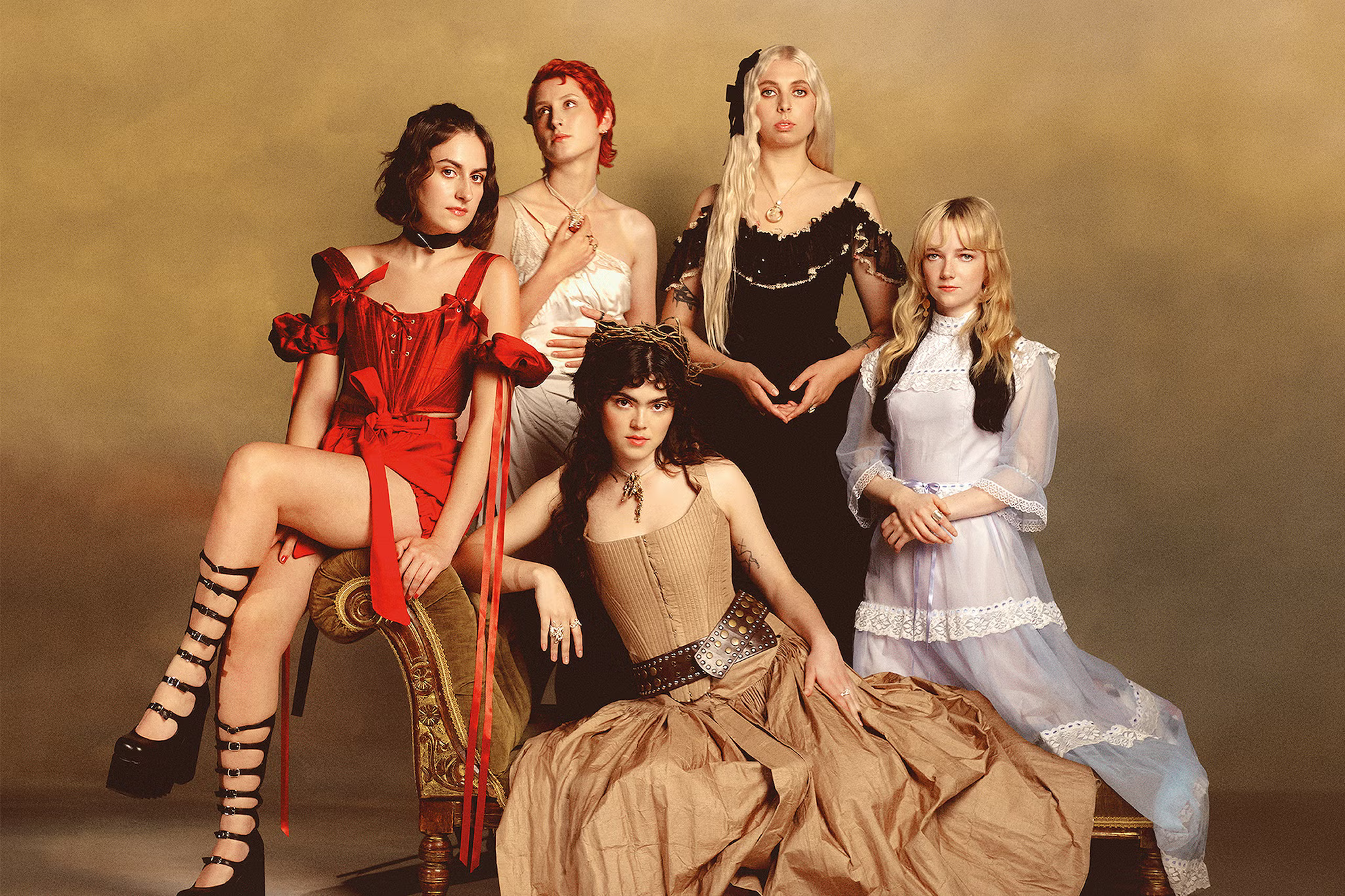
The album would arrive in March 2024, with both legends hitting the road and playing in smaller venues than fans might expect from such icons.
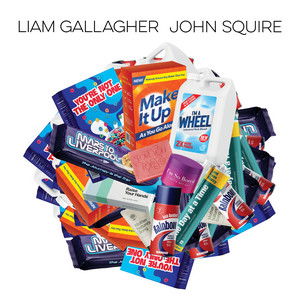
It was an album that received a mixed reception. Some hailed it as the best thing both Liam and John had released in years, while others were left a little disappointed. Of course, there were glimpses of The Stone Roses and Oasis in the songs, but the album was missing something. There are moments of brilliance; 'Mars to Liverpool' stands out as one of the best things either of them has done in a long time. A tribute to the Fab Four by two legends from just down the M62, Squire's guitar work is brilliant, and Liam's vocal has echoes of early Oasis. 'Love You Forever' carries a touch of Hendrix and some snarling lyrics, which may or may not be about a confident Mr Noel Gallagher. While some of the songs are let down by their lyrics, there’s a good variety of tracks here. Oasis and Stone Roses fans will likely be pleased with what’s on offer. Liam has made a record with one of the men who inspired him to form a band. At the same time, Squire rekindled his love for music after an injury that made him fear he might never play guitar again.
The tour that followed the release of this record also received both good and bad press. I find myself firmly in the “bad press” camp for this one. Gallagher and Squire were charging £80+ for tickets, yet they only played a 50-minute set, with no Oasis or Stone Roses songs. Fans were essentially paying to hear the album and a Rolling Stones cover. If you ask me, that’s a little bit ridiculous.
Just as they had done in 2023, The 1975 hit the road in early 2024 with their 'Still At Their Very Best' tour. This tour firmly cemented them as one of the country’s biggest and most important bands. Selling out four nights at the O2 Arena in London is no small feat. Birmingham, Glasgow, Manchester, and Cardiff also got dates, proving the band’s widespread popularity and impact on the UK music scene.
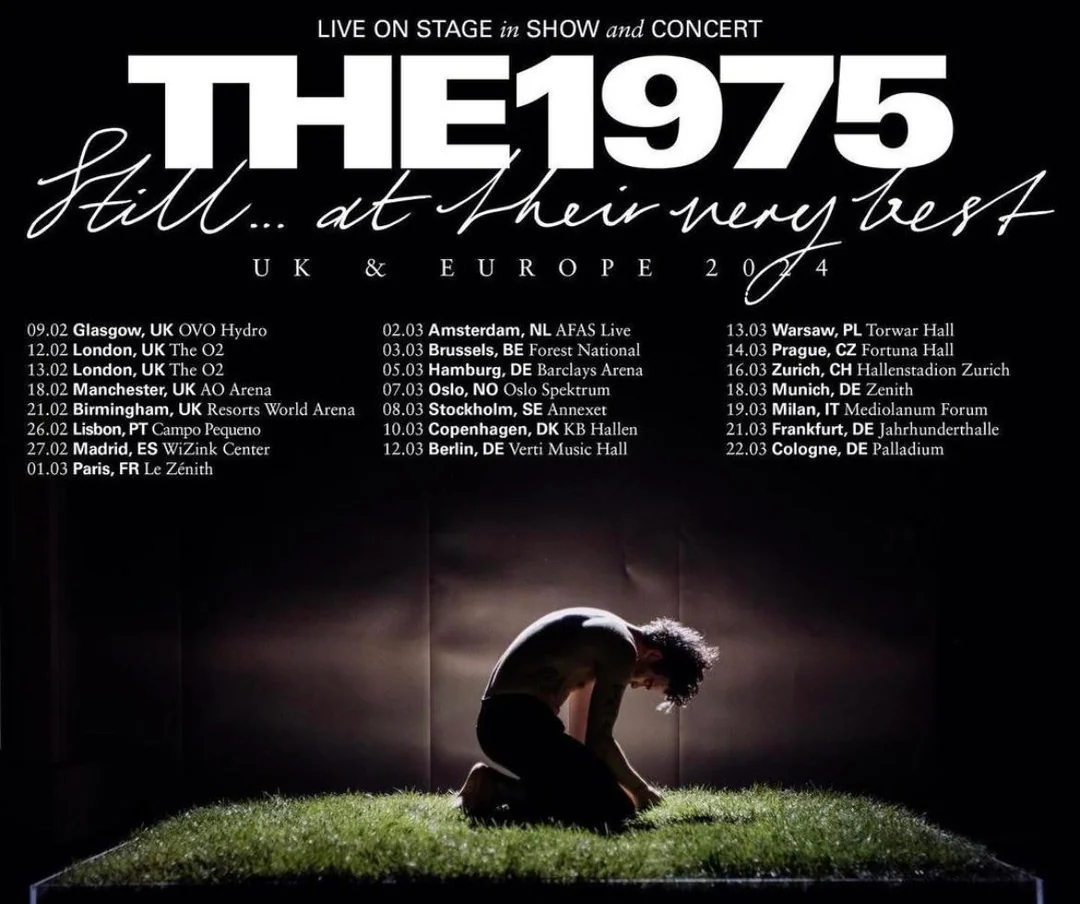
Jamie Webster would release '10 for the People,' his third album. A collection of songs for the people who had gotten him to this stage. 'Better Day' acts as a thank you to the fans who have helped him get this far. All of the songs, however, tell a story of the people. 'Something to Eat' and 'Voice of the Voiceless' see him at his most political, with some hard-hitting lyrics. It's another excellent record from the Liverpool songwriter. He manages to sum up the plight and peril faced by many with a catchy pop tune. The ballads are still there, too. 'Lovers in the Supermarket' and 'Dolly Bird' are some of the most beautiful things Jamie has ever written. The first, in particular, is a tale of an elderly couple who are still absolutely besotted with each other. All these years later, it's wholesome and beautiful, written and delivered with a heavy heart.
Two female-led bands would release two of the best albums of the year. Galway four-piece NewDad released their debut 'Madra' in January, a confident and assured collection of shoegaze bangers. Underneath the shoegaze polish, there are seams of doubt, uncertainty and frustration within the lyrics. It makes for one of the best listens of the year. You can hear nods to Slowdive and Wolf Alice, but make no mistake, NewDad are not merely imitating these bands; they are forging their own sound. 'Sickly Sweet' is one of the year's catchiest singles, and 'Where I Go' is up there with the very best songs released this year. It's a brilliant debut album. Have we found Ireland's next great guitar band?
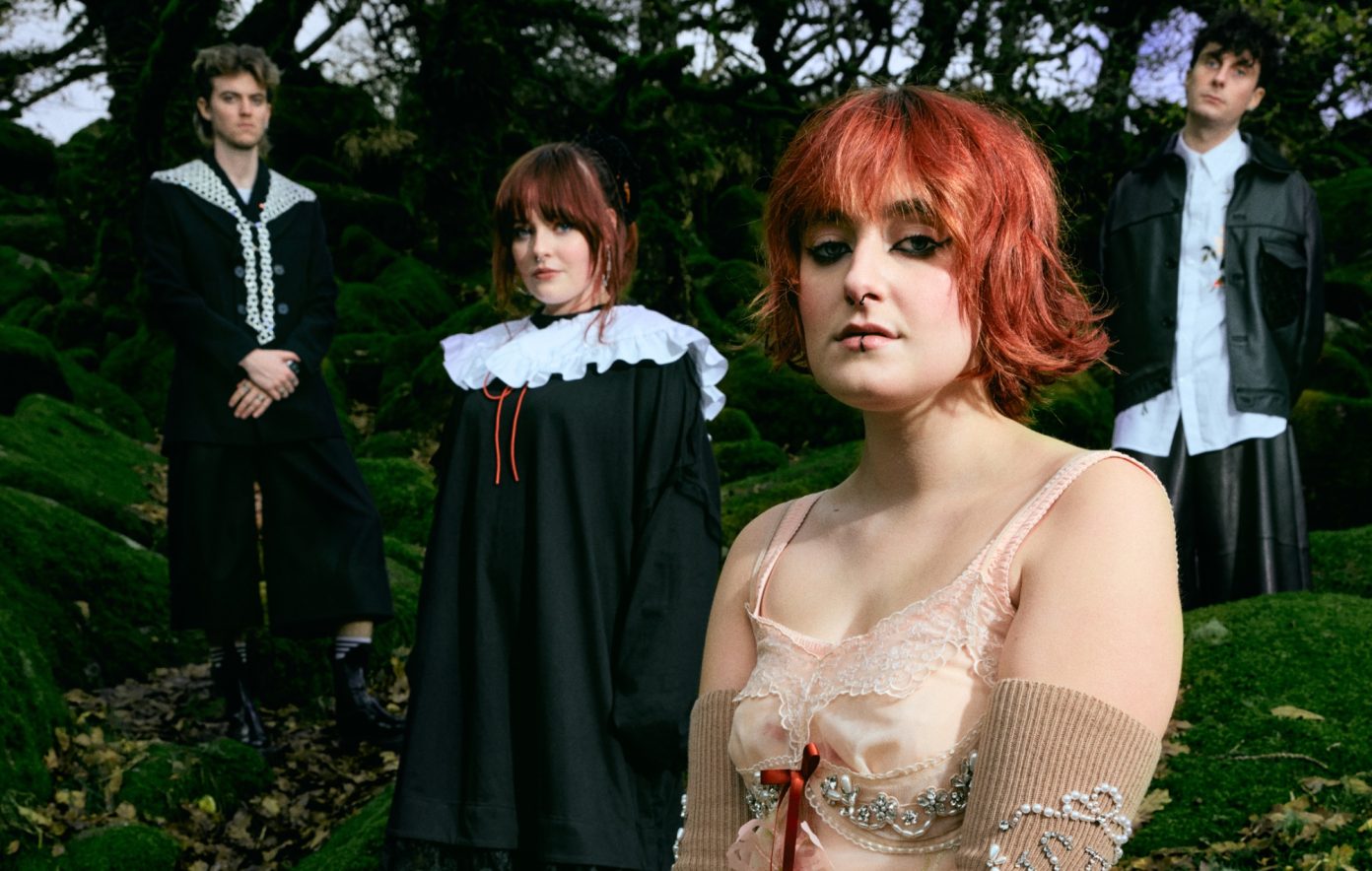
English Teacher blew many of us away this year. With their Mercury Prize-winning 'This Could Be Texas', a collection of brilliant indie songs. It's an album that draws influences from everywhere, blending the surreal with the everyday, from 'The World's Biggest Paving Slab', which delivers an ode to the little people with huge ideas. 'Albert Road' will speak to anyone who remembers bittersweet moments of boredom and frustration, and teenage daydreaming themselves out of the wire in working-class neighbourhoods. 'R&B' sees the band, in particular Lily Fontaine, the front woman, hit back at misplaced stereotypes and presumptions about her place in the industry: “Despite appearances, I haven’t got the voice for R&B”.
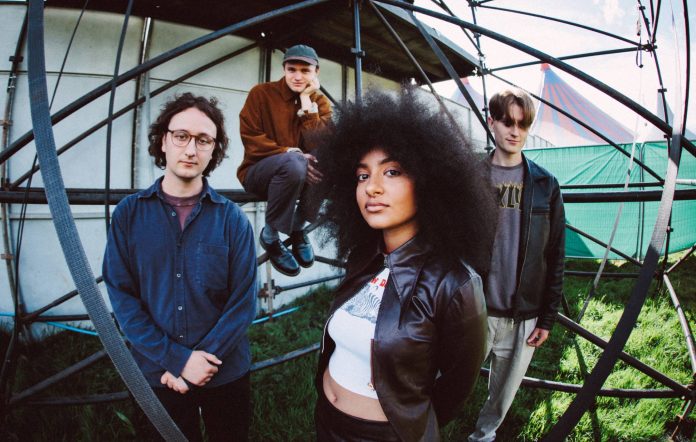
It's a landmark statement by a band poised for big things, a band working with brilliant songs that have dared to dream.
Catfish would also make a return in 2024, nearly three years since their last appearance at 2021's Neighbourhood Weekender. They would drop new music in the form of 'Showtime,' a slight deviation from what we've come to expect from them. Two members down and a point to prove made them deviate a little from the Catfish sound. With some huge summer shows pencilled in, could this see a new era of the band, or will they not live up to the hype?
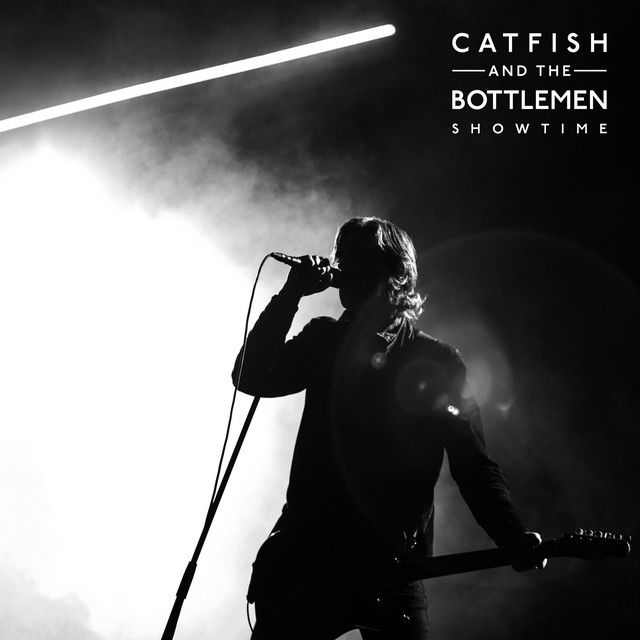
The 2024 Teenage Cancer Trust gigs delivered a stellar lineup, headlined by the legendary Noel Gallagher, supported by Stockport’s finest, Blossoms.
Other headliners included The Chemical Brothers, Young Fathers, The Who, and Squeeze.
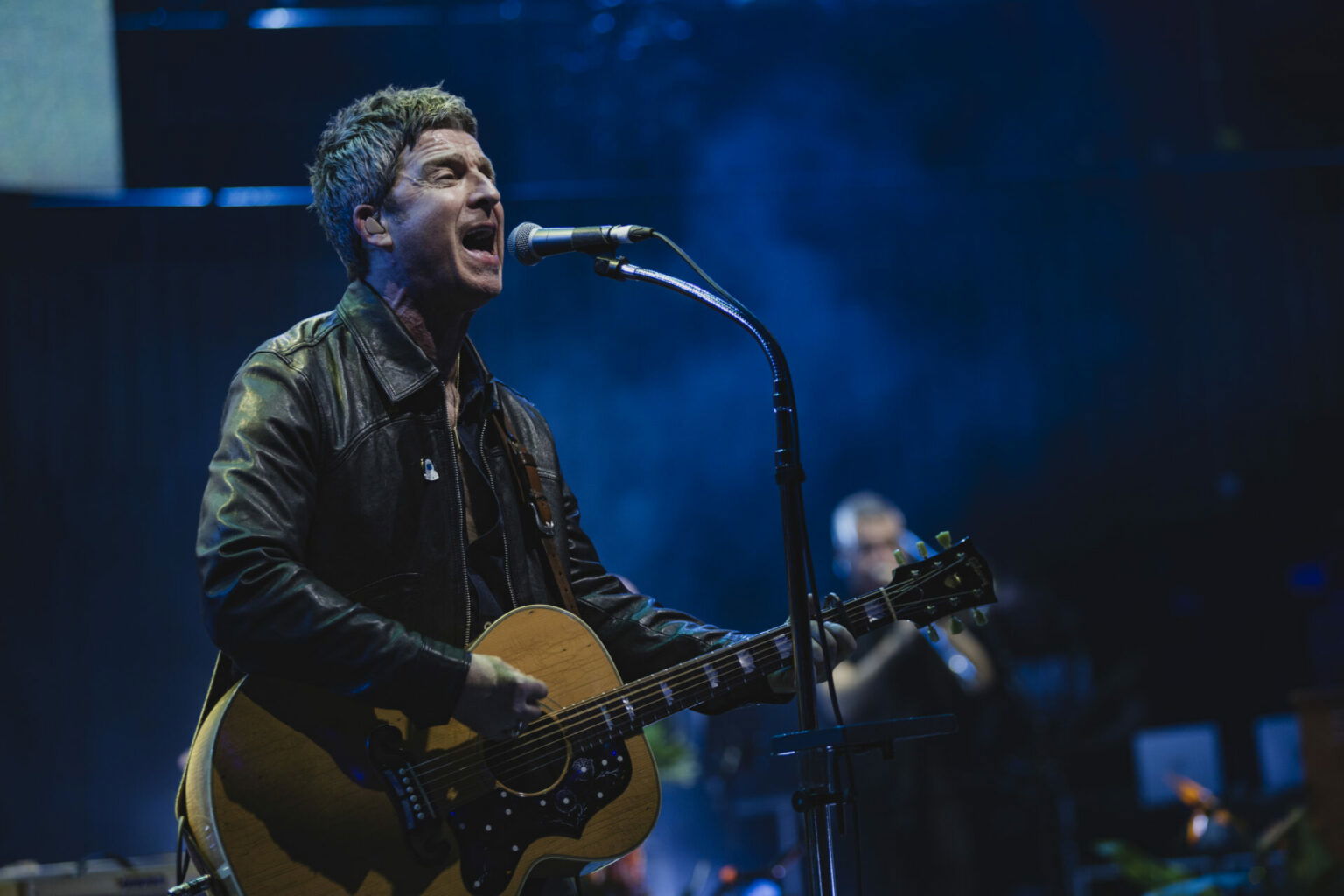
Noel Gallagher’s set was a dream come true for Oasis fans. Among the highlights was the live debut of High Flying Birds’ rendition of 'Stand By Me', a beloved Oasis classic performed for the first time by the High Flying Birds. The setlist also included fan favourites 'Talk Tonight' and 'The Masterplan', transforming the evening into a nostalgic celebration of one of the UK’s most iconic bands. It was a night packed with musical gems, leaving the crowd with memories to treasure for years to come.
Young Fathers have become one of my favourite bands over the last year or so, and the band's Royal Albert Hall performance may have made more people take notice. Reaffirming them as one of Britain's best bands. A night that showcased a rich discography, soulful stage presence, and life-affirming friendship.
That draws ideas and sounds from different genres and movements. Breaking down boundaries with an array of diverse influences.
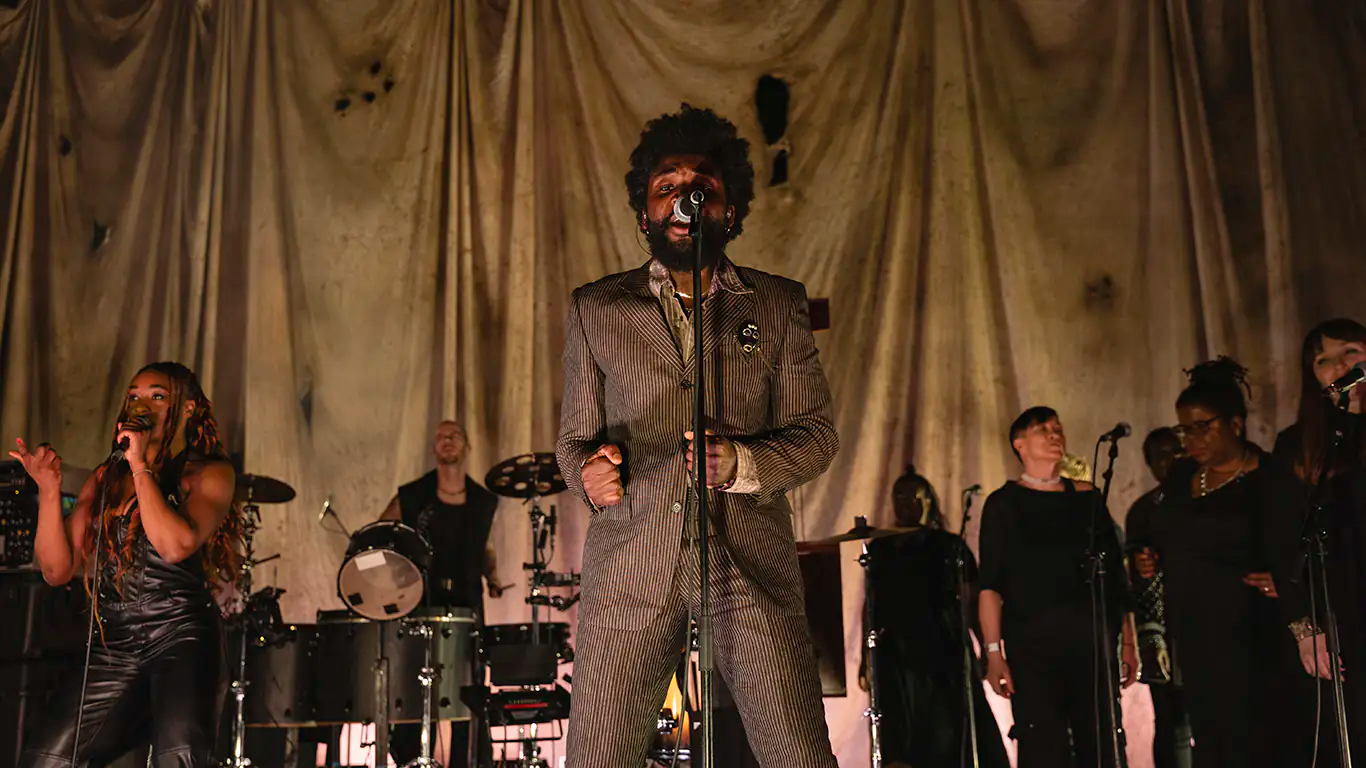
A show that is a testament to the band's underlying brilliance. If you haven't given Young Fathers a listen, I urge you to; you won't be disappointed.
The Ks released their brilliant debut album in April 2024. 'I Wonder If the World Knows'. It felt like a long time coming, having released their first single ‘Sarajevo’ in July of 2017, the band's fan base waited a long time to hear a debut album, but it was definitely worth the wait. It's dynamic, charged and will resonate with listeners. In the same way Oasis and Arctic Monkeys did, The K's turn stories into hits, and they aren't just a one-trick pony.
The album’s opening track, ‘Icarus’, features soft, orchestral strings before coming alive into a snarling, fearful track, with hard-hitting lyrics: “Feathers burn cause I get too high, Icarus falls out of the sky”. The album is full of these hard-hitting moments; the band is not afraid to tackle social or political issues, addressing the world they live in, but also more localised problems closer to home. Self-doubt, identity, and addiction are all covered throughout the album, and its striking lyrics. 'Hometown' tackles life for working class lads in a small Northern Town with dramatic effect "I keep on havin’ all these dreams/No they’re not like other people’s"
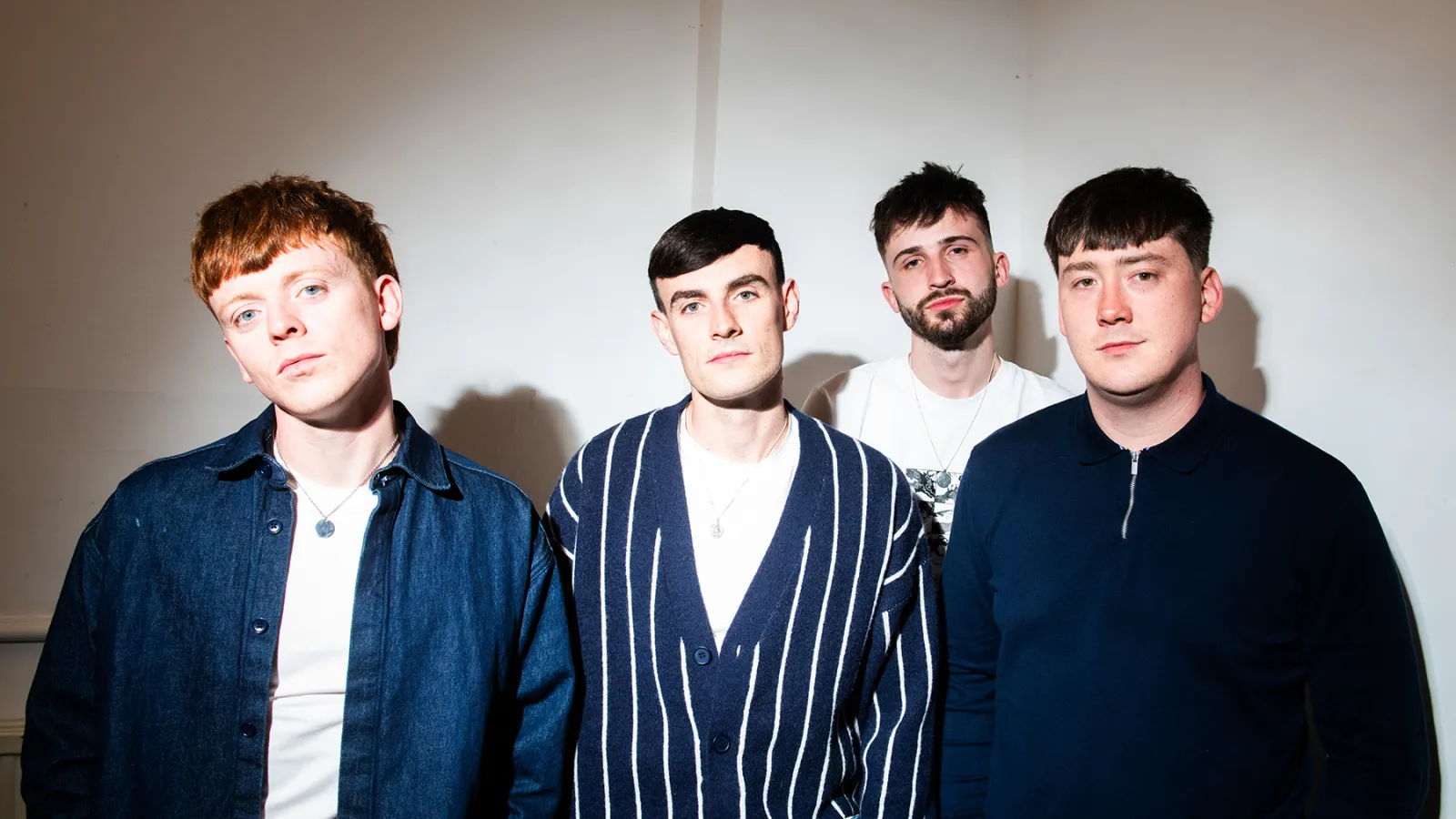
"Oh, how he wept, oh, how he wept, oh, how he wept/‘Cause he’s emptied all his wages/Into the pockets of the boys that he hated". These stories are real and lived in. This isn't fake; the band is writing about things they've seen and experienced growing up in Earlestown.
Two beautiful ballads, 'Hoping Maybe' and 'Lights Go Down', provide a new perspective of the band; the band really stretches their musical legs on these two, it's more subtle, and the lyrics do the heavy lifting. This allows the songwriting partnership of Jamie Boyle and Ryan Breslin to really shine.
This record is an absolute triumph, and the band can only go from strength to strength. These songs are brilliant, and they perfectly capture who the band are and what they are all about.
Glastonbury...
It is the biggest festival in the world, a cultural institution that has delivered countless iconic moments over the decades. From Pulp stepping in as super subs in 1995 to The Killers teaming up with Johnny Marr in 2019, Glastonbury has consistently created unforgettable memories. Stormzy's Union Jack bulletproof vest in the same year redefined what a modern headline set could be. Jay-Z shattered expectations by bringing hip-hop to Somerset in 2008. Beyoncé dazzled with her pop-tastic spectacle in 2011, proving that Glastonbury could embrace all genres.
Yet this year, I can't see another historic moment being made. The 2024 Glastonbury lineup is the worst one in my lifetime.
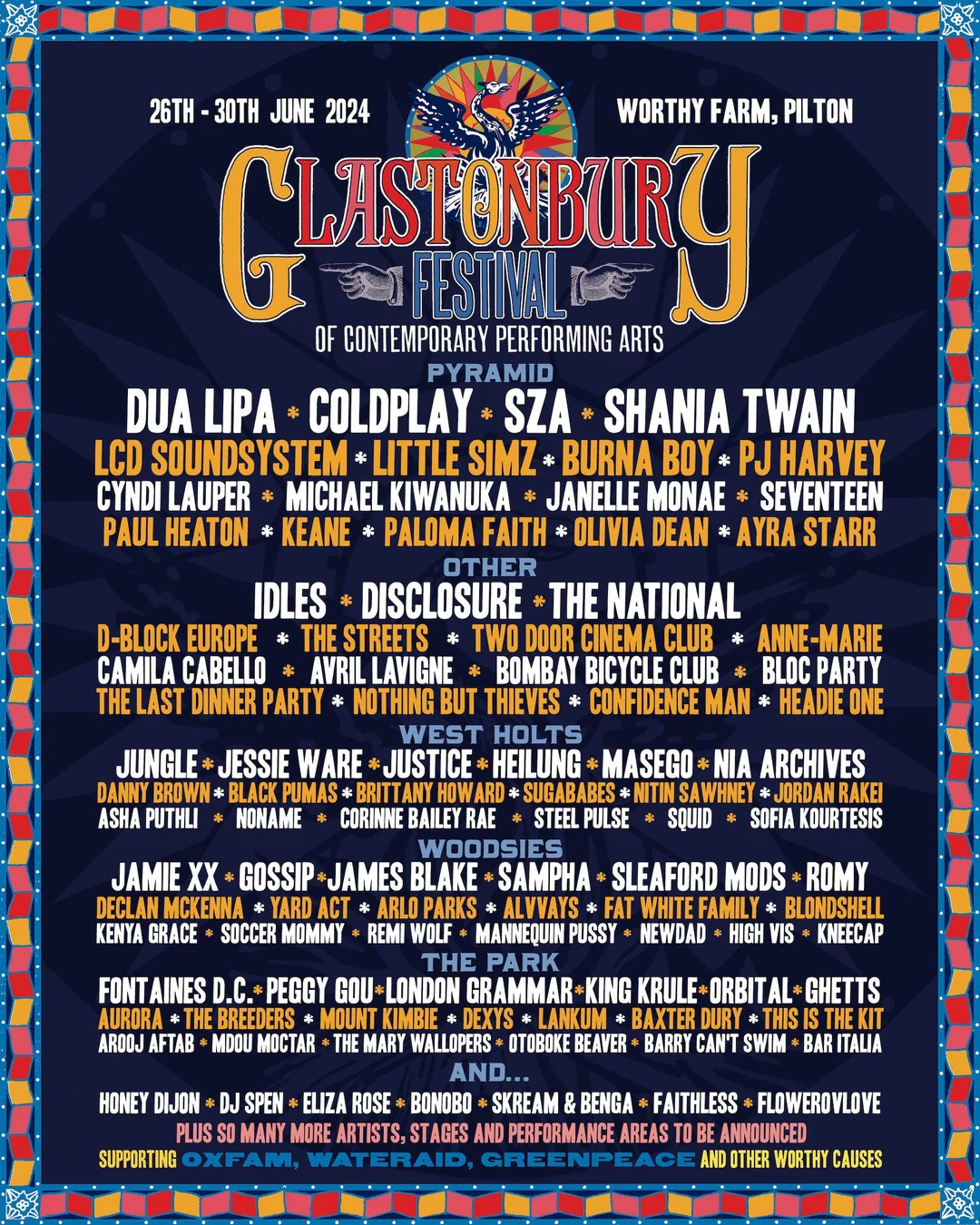
I look at that lineup, and I don't see anything that would make for a special show. There are some good bands and artists on there, from LCD Soundsystem to Jungle. Fontaines DC to The Last Dinner Party. However, as a whole, it is disappointing. Coldplay feels like a lazy booking. They have headlined the famous festival four times, but the band's recent material hasn't been up to much. It is even their only UK festival headline this summer.
Dua Lipa will put on a good show. I don't know much about SZA, but they tried to get Taylor Swift and couldn't. Shania Twain is set to perform as the legends slot, with many hoping it would be Stevie Nicks, who is touring the UK this summer.
In the last two years, we have had McCartney, Arctic Monkeys, Elton John, Sam Fender, Billie Eilish, Lana Del Rey, Haim, Elbow, Kendrick Lamar, Foals, Pet Shop Boys, Olivia Rodrigo, The Libertines, Rick Astley, Blossoms, Jamie T., plus so many more. It just feels like a massive disappointment for Glastonbury. They could have gotten another legend back. Pulp for round two? Or promoted one of the newer artists. Sam Fender, Lana, and even Foals. The 1975 would make for a great headliner, especially over Coldplay, who have played the festival countless times.
Although the festivals in 2024 weren’t the strongest on record, it didn’t stop some of the biggest venues in the UK from being sold out by some huge artists.
The Killers brought their 'Rebel Diamonds' show to the UK with a massive arena tour. Celebrating 20 years as a band with a bombastic greatest hits show.
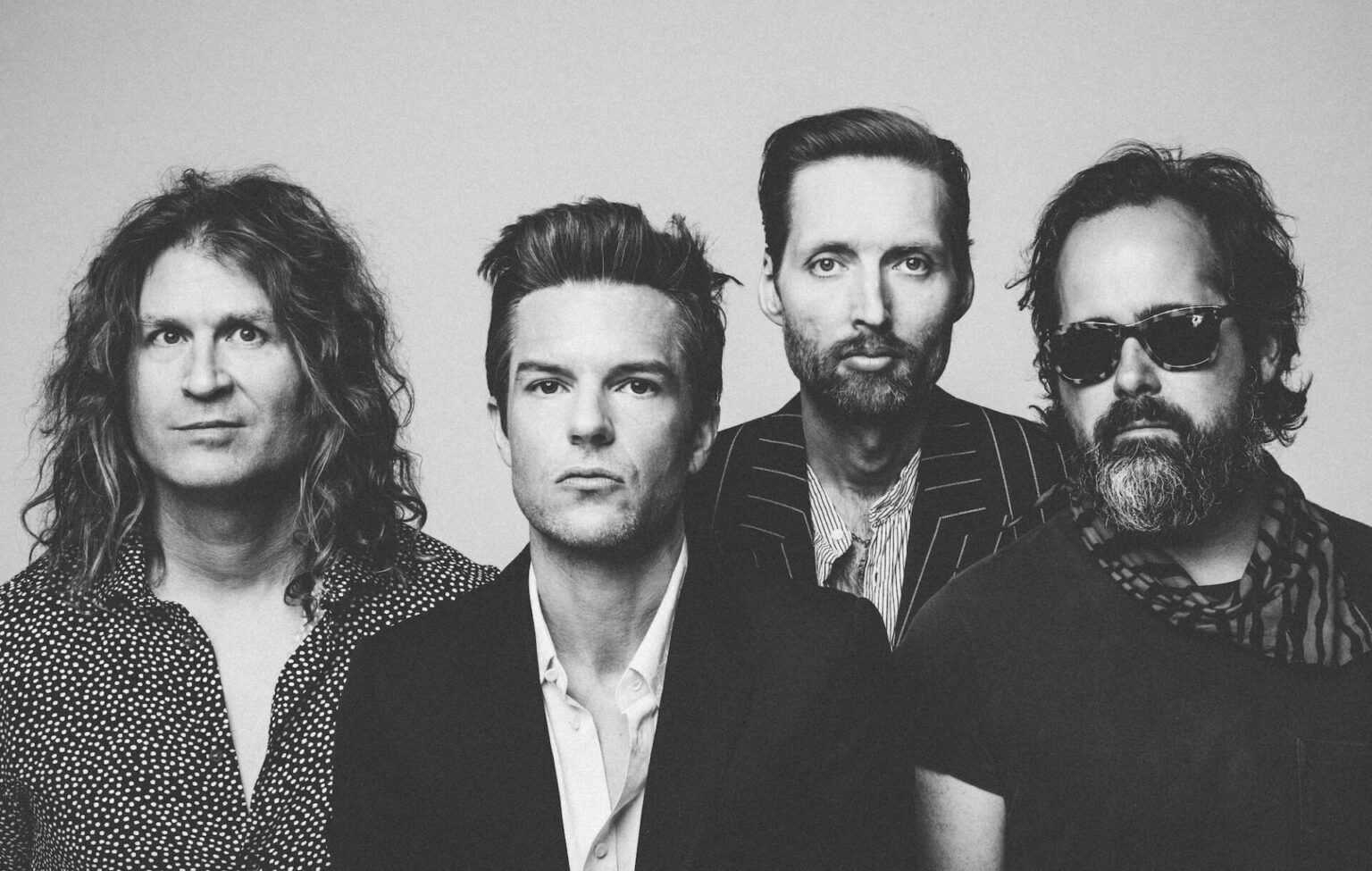
It allowed the band to bring Las Vegas showmanship and a collection of indie bangers to the UK's cities. Changing the setlist every night, fans were left wondering what would be played. Fans would get all of the classics from 'Read My Mind' to 'Spaceman', 'All These Things I've Done' and of course 'Mr Brightside'. They also gave some newer songs a little runout. Despite playing new songs, they did not disappoint.
Having seen the show myself, they reinforced themselves as being on top of the indie mountain. One of the best bands in the world.
With a band with the catalogue of anthems that The Killers have, it was a surprise that the band opted for arenas instead of stadiums!
Liam Gallagher too took to the arena stage to celebrate 30 years of 'Definitely Maybe' with a nostalgia-filled run through of the album and its B-sides.
Getting to hear that album in full was a special moment for any Oasis fan. For many, it is their best work, the sound of a band who were ready to take over the world.
The songs on that record are timeless, from 'Rock n Roll Star' to 'Live Forever'; these songs have resonated with fans for years. Liam gave a new generation of fans a chance to hear them live. He also dusted off some obscure tracks and B-sides for this tour.
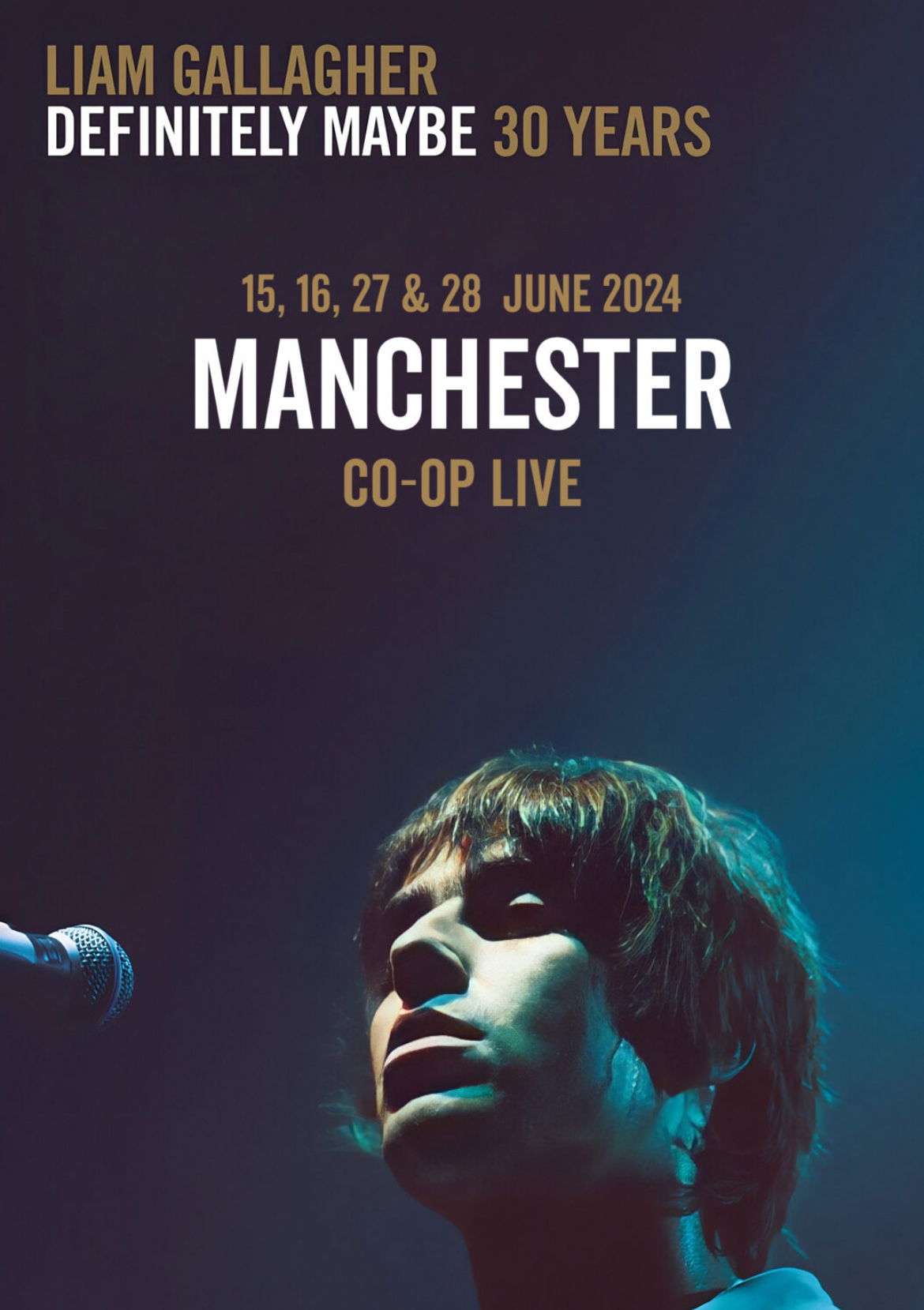
‘Up in the Sky’ was a real highlight, a hidden gem in the Oasis discography. ‘Digsy’s Dinner’ received a good reception, and the chorus was well-executed. ‘Bring It On Down’ is Oasis at their punk best, and you can tell that Liam was enjoying singing this one. ‘Cloudburst’ and ‘I Will Believe’ got a run out in the middle of the set; until this tour, these songs must have only been played a handful of times.
At a time when Oasis are not together, this was the closest to a reunion.
Thirty years later, Liam has taken on the world on his own terms. Yet every word on that record still resonates with him today. All these years on. He's still the defining Rock' n Roll Star.
Bloc Party made a welcome return this year. Celebrating 20 years of 'Silent Alarm' and with a new look lineup. As well as some new music.
A show at Birmingham’s O2 Institute set them up for a summer that would see them take to the stage at Glastonbury and play some sell-out gigs in London, Belfast, and Dublin.
One of the most interesting bands of the 00s, back making music is always a good thing.
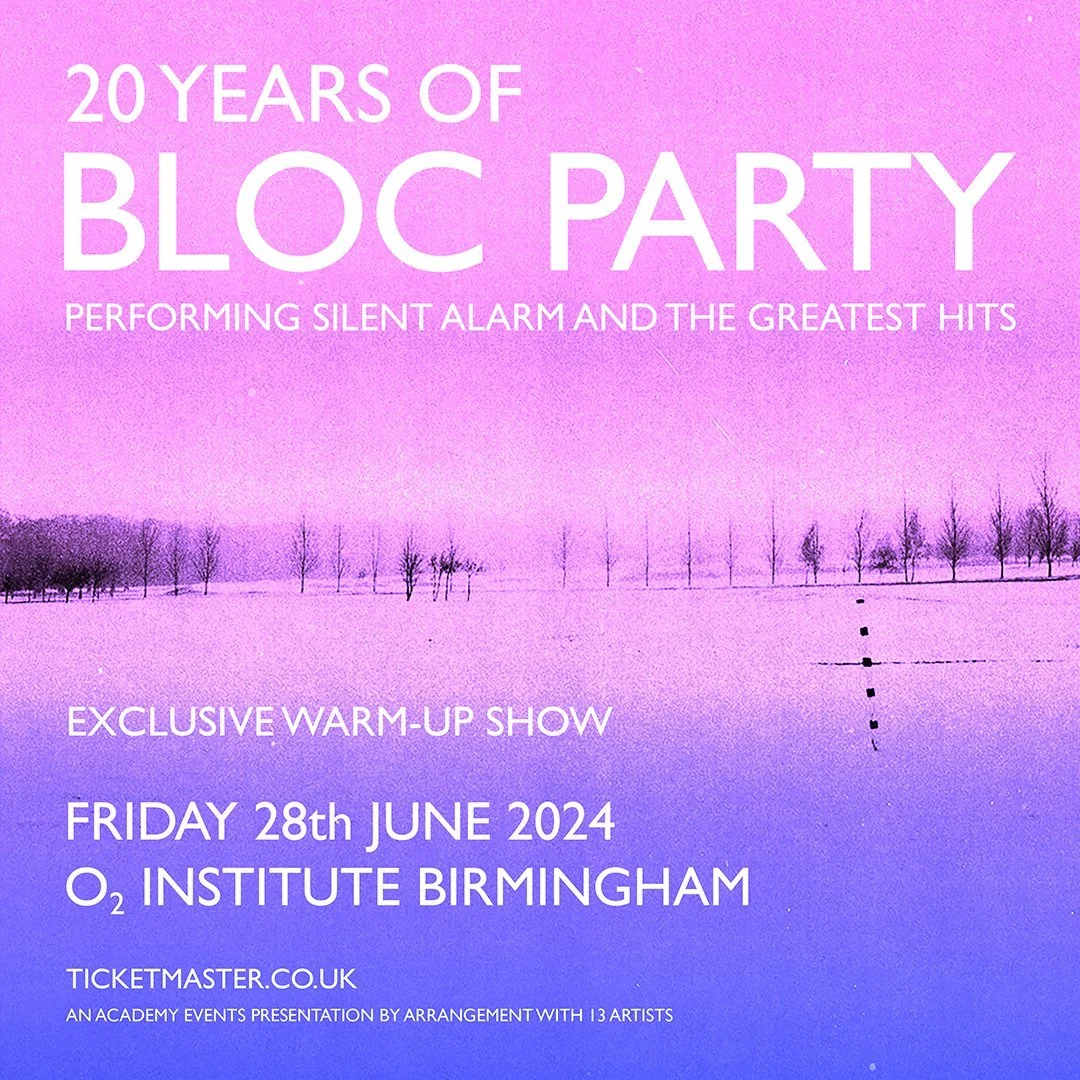
Fontaines DC returned with some brilliant genre-diverse new music. 'Starburster' and 'Favourite' are two songs that are entirely different from each other, and yet are still unique to the band.
'Starburster' is the sound of a band taking a deep breath and starting again. Inspired by a panic attack suffered by Chatten in London's St Pancras station, 'Starburster' captures that shock of trying to grasp reality amidst all the chaos. It's a song that fuses so many different elements, rock, electronica, and hip-hop. The hip-hop element is often more associated with recent collaborators KNEECAP. It was a huge left turn, the band's most daring work to date.
'Favourite' is indebted to post-punk and The Cure. The band's frontman, Grian Chatten, has described the song as having 'this never-ending sound to it, a continuous cycle that goes from euphoria to sadness. Two worlds that are spinning forever. Song about life and embracing the challenges we face. Within the music video, the band honours each other. Showing archive footage of their childhoods intertwined with footage from a recent trip to Madrid. This is where the band's guitarist, Carlos O'Connell, grew up.
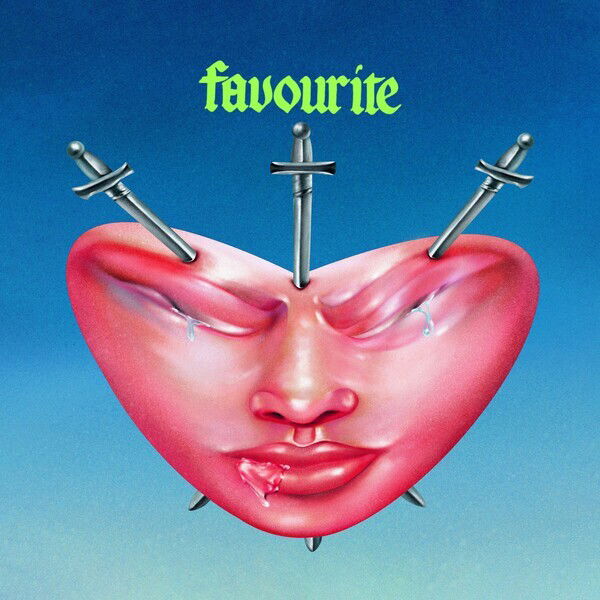
Lyrically, these tunes are a massive step up again. 'Favourite' shines lyrically. Commenting on the fast nature of change. ‘Each new day, I get another year older. ‘Every time you blink, you feel a change.’The mistreatment of the working classes when they painted the town with Thatcher.The gentrification of cities and the resulting homesickness experienced by those who tour and are away from their native Ireland. ‘Cities on return are often strange’.
Fontaines are becoming one of the most important bands out there today.
Blossoms too returned. With two singles, 'What Can I Say After I’m Sorry' and 'Gary' from their forthcoming album 'Gary.' Two songs which see Blossoms evolve their sound again. Taking elements from what they’ve done before and turning them into something new. The band worked with J Lloyd of Jungle on 'What Can I Say After I’m Sorry'. On the music video for the song, the band enlisted help from Everton manager and former footballer Sean Dyche, in probably the most unlikely collab of the year.
With the biggest show of their career still to come in August, it's a good time to be a Blossoms fan right now.
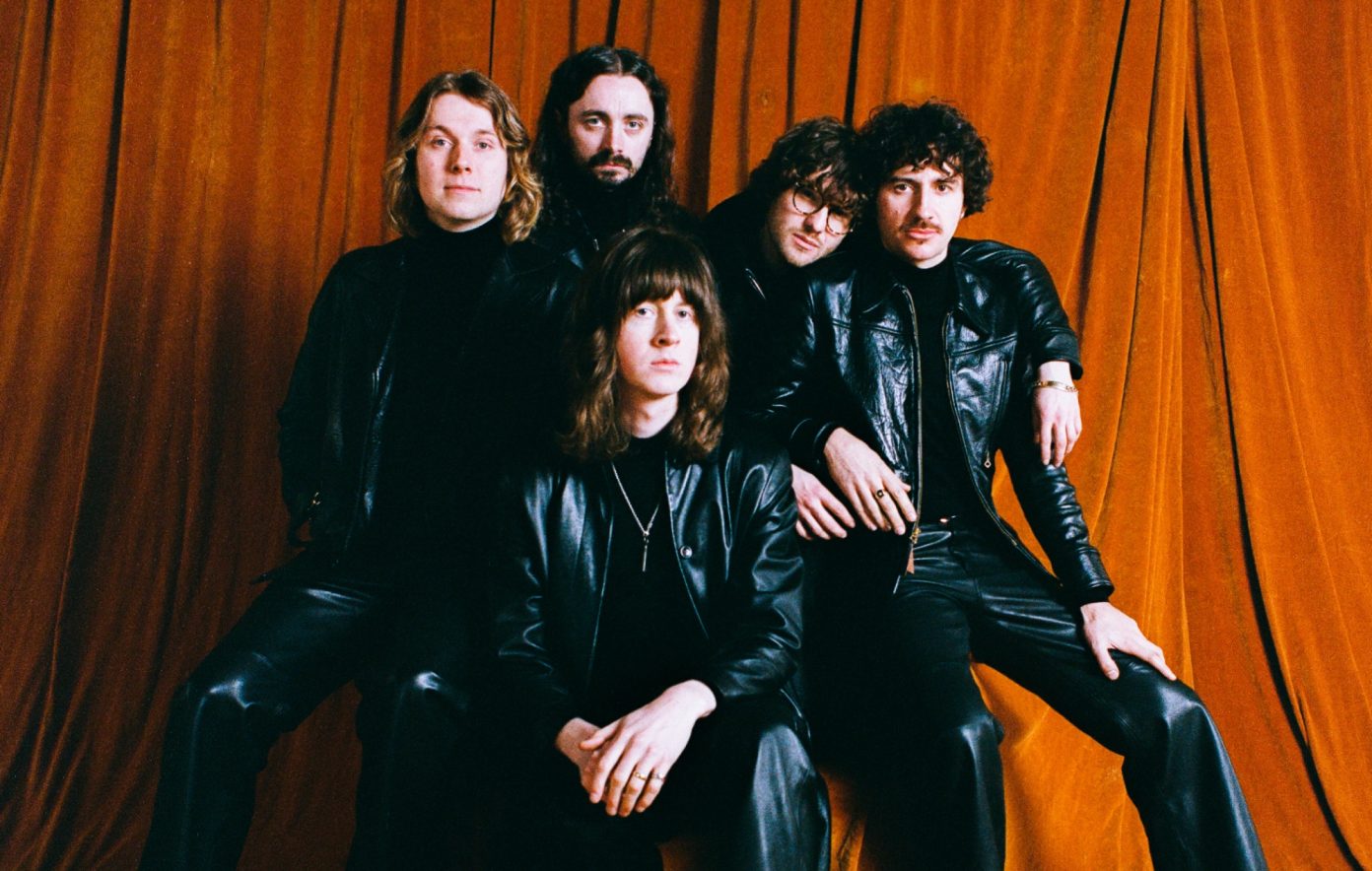
It's been quite the year so far; we’ve had some massive gigs and released some great new music. Here’s hoping for more. We’ve got some good albums on the way. Blossoms, Fontaines DC and Wunderhorse all have records on the way. A new Sam Fender and Wolf Alice record can’t be that far away.
Catfish & the Bottlemen returned in July. Fans had been set up for an optimistic reunion back in February with the announcement of 'Showtime'. However, following the announcement of these live dates, there has been radio silence from the band.

The first show was in Liverpool, playing their biggest headline gig to date. Backed up by The Mysterines and Sundara Karma. With a first outing for the new-look line-up, following the loss of Johnny 'Bondy' Bond and Bob Hall. This gig proved many people's criticisms of Catfish and the Bottlemen correct. It was more of the same.
Before this show, the last time Catfish and the Bottlemen had taken to the stage was in 2021, at Warrington's Neighbourhood Weekender. Three years apart, the band played the exact same setlist. Despite releasing a new single and working on the assumption that the band are releasing a new album, they chose not to play any new music.
Courteeners announced they would be returning this year. This was news that fans had been waiting for. The band's last music release was all the way back in 2020. The rather joyous ‘Solitude of the Night Bus’ was released as the first single from the band's seventh album 'Pink Cactus Cafe.' Liam Fray described the album as the most ‘collaborative and rewarding thing we've done, it's a real melting pot of an album.’
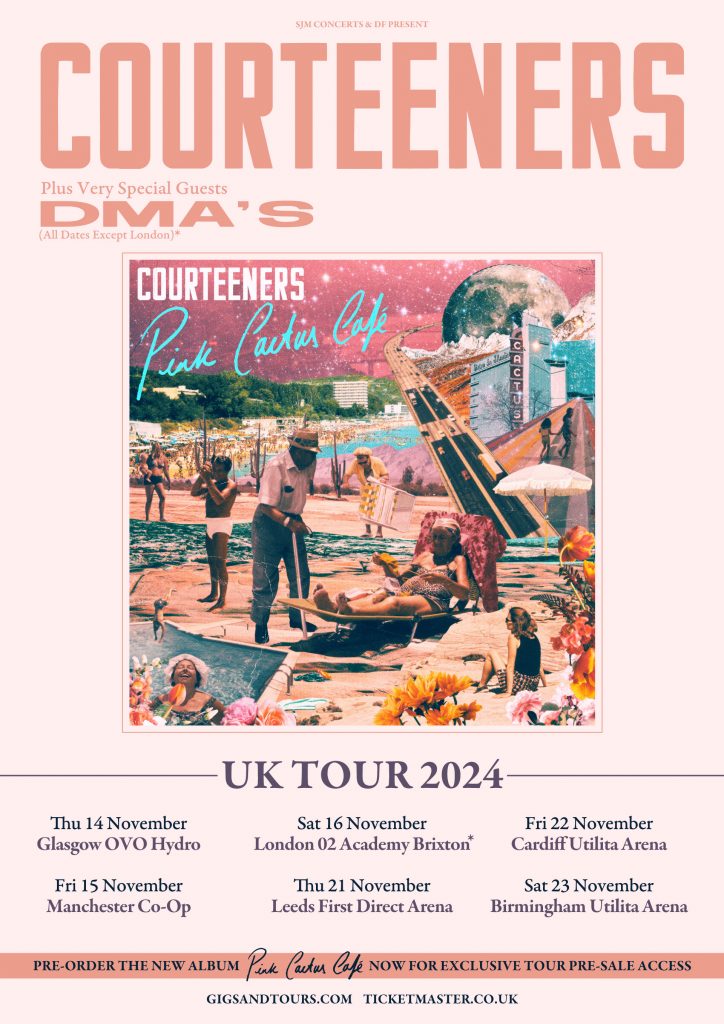
Following the album announcement, the band also announced that tour dates were incoming. Six Arena dates, including a massive show at Manchester’s Co-Op Live. They've made the jump into arenas. It's been a long time coming. I, for one, am glad that Courteeners are back. Four and a half years is a long time.
Wunderhorse released 'Silver', the third single from their upcoming second album 'Midas', and it's a real evolution of their sound. It's arguably the best track we've heard from the album, combining the best elements of their previous work from 'Cub' and adding something new. It's an exciting time to be a fan of the band, and with what we've heard so far, this record is going to be something special.
As for summer gigs, Noel Gallagher has been hitting the road, bringing Council Skies to stadiums, castles, and palaces. Fans have been treated to a mix of his solo material and all the Oasis classics. His outdoor gigs have been a hit, and this tour has seen Noel play in some different towns and cities, with shows in Wigan and Warwick, offering a fresh experience for fans outside the usual stops.
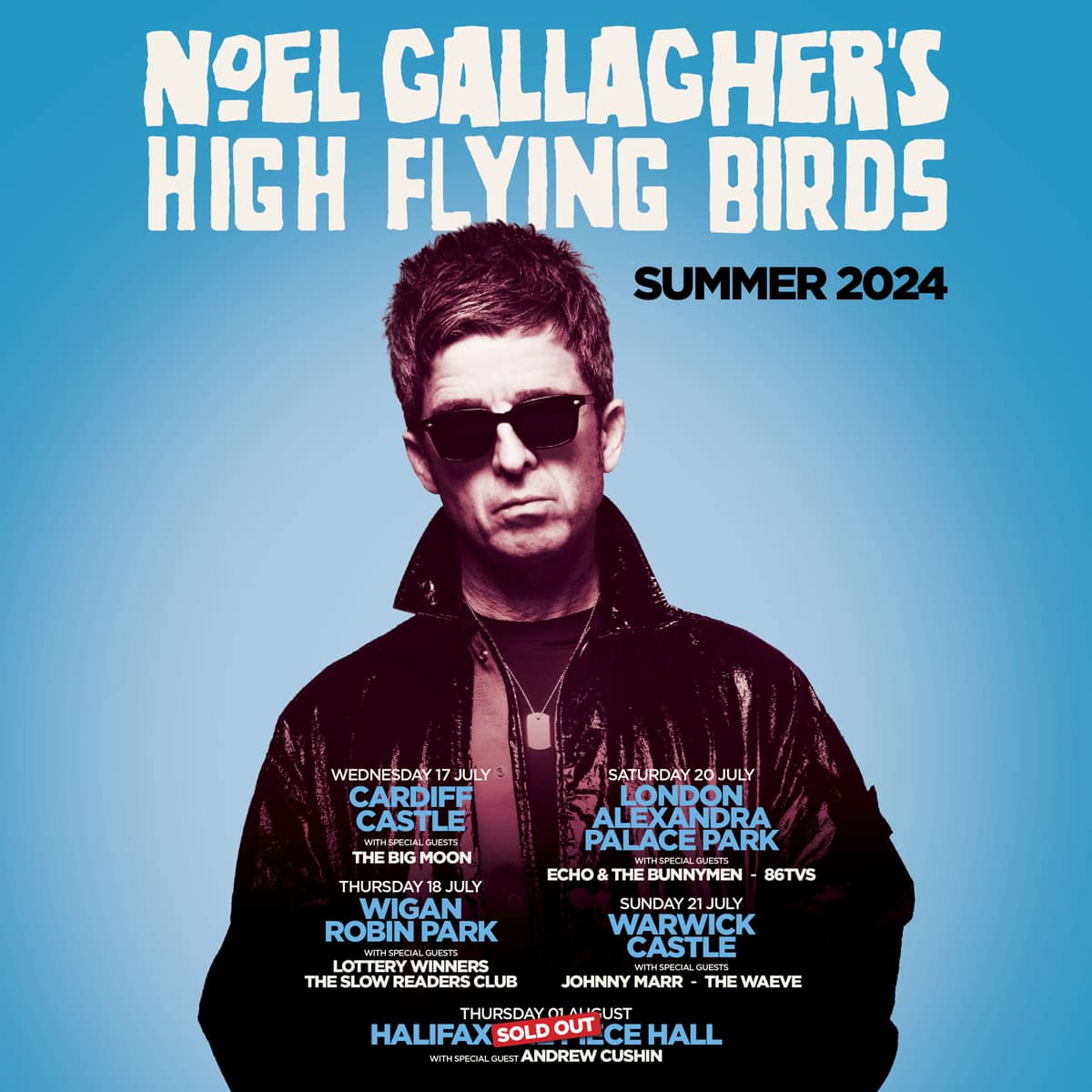
One of my new favourite bands, Jungle, has been out on the road. With four albums under their belt and a Glastonbury performance for the ages behind them, they've been bringing one hell of a party to UK cities. The release of 'Volcano' last year, featuring hits like 'Back on 74' and 'Candle Flame,' as well as a win at this year's BRITs, has only helped grow their fan base.
More and more people are becoming aware of Jungle, which is a great thing. Alongside Young Fathers, they’re creating some of the most interesting and exciting music in Britain right now.

TRNSMT rolled back into Glasgow this year, bringing sets from hometown hero Gerry Cinnamon, Liam Gallagher, and Calvin Harris. It was a real melting pot of acts, featuring seasoned artists like Courteeners, The Vaccines, Blossoms, and Rick Astley, alongside the future of guitar music represented by Nova Twins, Wunderhorse, and The Last Dinner Party. TRNSMT's influence on the music industry was evident, with the festival shaping the future of guitar music.
I've heard mixed reviews, with some questioning the crowd's energy for certain acts. Watching footage of Courteeners, I can see what they meant. Despite that, TRNSMT remains Scotland's premier music festival, not only managing to pull in some of the biggest acts in the world but also celebrating and supporting local talent. Scottish acts received some of the most coveted spots on the lineup, a testament to the festival's commitment to its roots and the local music scene.
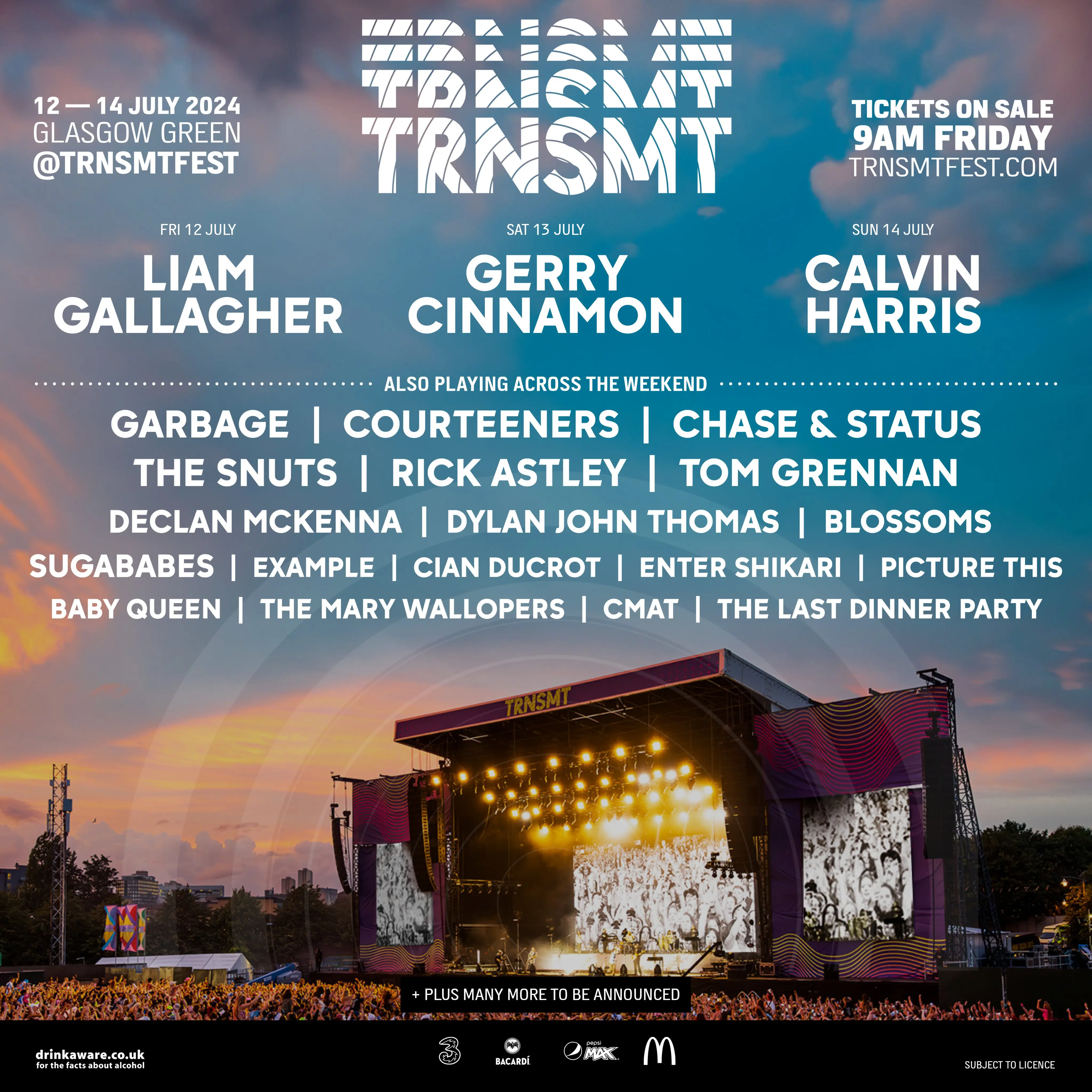
Wunderhorse released 'Midas', their anticipated follow-up to 2022's 'Cub'. An album that saw him go from selling out pub gigs to playing at Glastonbury. 'Cub' was firmly a Jacob Slater project; this second album is firmly a Wunderhorse album and feels like a rebirth in a way. His previous backing band – guitarist Harry Fowler, drummer Jamie Staples and bassist Pete Woodin have all been recruited to the fray. Creating a darker and more raucous sound on this record. It's a much rawer and more emotive affair.
Recorded live at the iconic Pachyderm Studio in Minnesota (the birthplace of Nirvana's In Utero), Midas is brimming with raw edges, imperfections, and unfiltered, unrestrained energy.
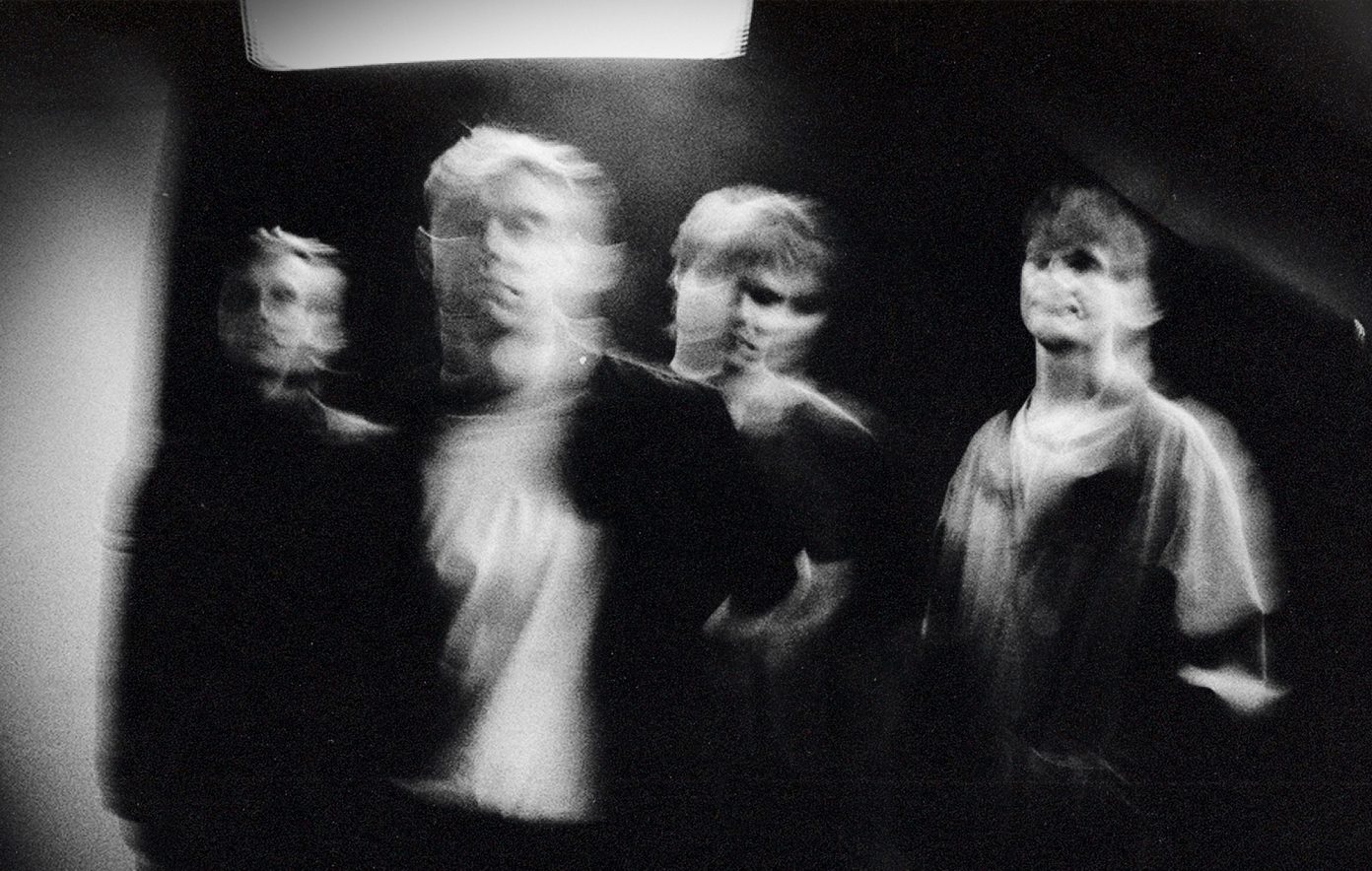
Wunderhorse could be Britain's next great band. With a frontman who is an enigmatic force, a man who was waiting for his moment and his voice. Jacob Slater has found that voice, and a band that can more than back him up. Now watch them flourish.
The August Bank Holiday weekend is always a big one for music fans. In 2024, it was even more exciting than usual, with Reading & Leeds being just one part of the action.
This year’s festival lineup was one of the strongest in recent memory, offering an eclectic mix of acts. Headlining were Liam Gallagher, Catfish & The Bottlemen, Gerry Cinnamon, Lana Del Rey, Blink-182, and Fred Again. A diverse range of huge names.
Catfish returned to the stage after a three-year hiatus. The band's last performance in 2021 had been fractured, but this new-look version of the band is ready to go. Reading & Leeds was the perfect marker for them, setting the stage for next year’s massive stadium gigs.
Liam Gallagher brought his LGDM tour to the masses, performing the full Oasis debut album with some B-sides for good measure. Blink-182 brought high energy, mixing new material with their classic tracks. Fred Again created an unforgettable party atmosphere, while Gerry Cinnamon continued to do what he does best: entertain massive crowds. Lana Del Rey tried to redeem herself after last year’s Glastonbury set, and while she succeeded in some ways, there were still some areas where she didn’t quite hit the mark.
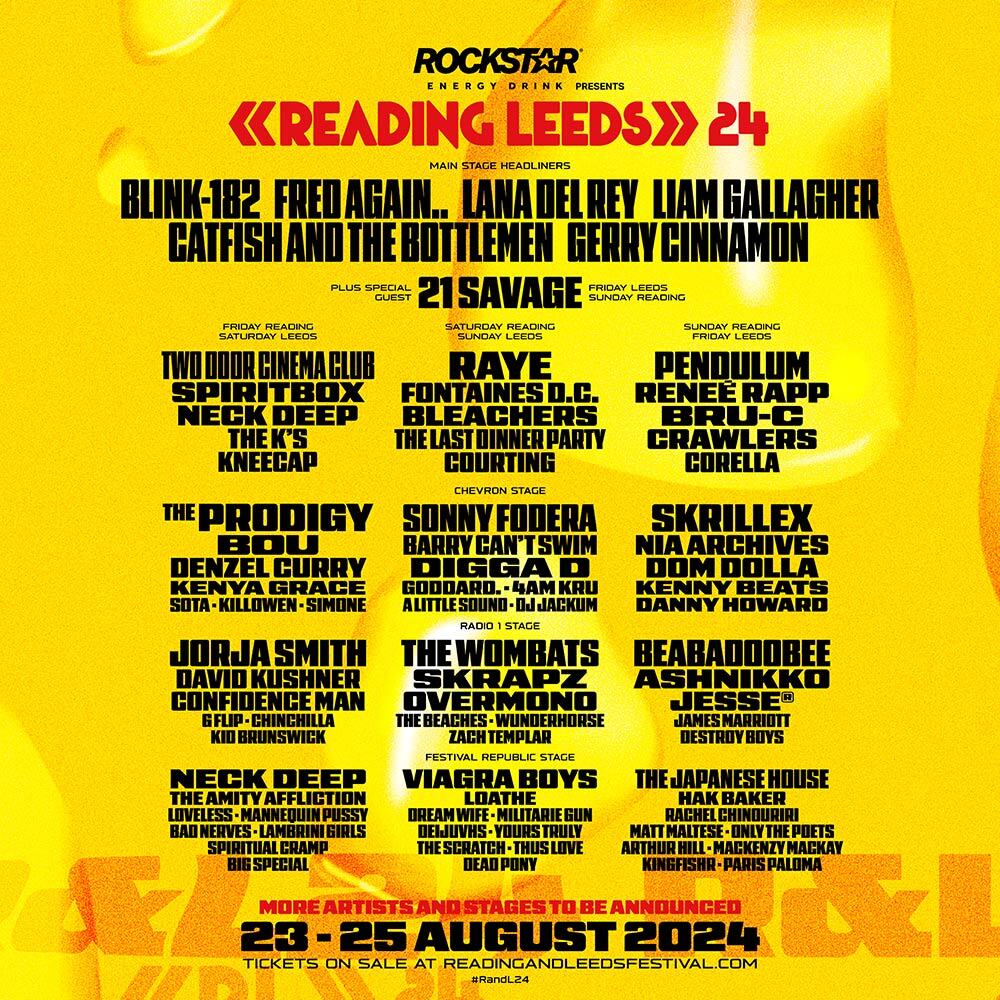
Further down the lineup, guitar music was well-represented. The Ks earned a main stage slot after the release of their debut album, showcasing their rising talent. The Last Dinner Party also made their mark, following the release of 'Prelude to Ecstasy'. Both bands are ones to watch over the next 12 months and are set for big things.
Fontaines D.C. continue their unstoppable rise, delivering yet another unforgettable performance that solidifies their reputation as one of the most exciting bands of the moment. Following the release of their fourth album, 'Romance', it's clear that their trajectory is headed toward headlining major festivals like Reading & Leeds shortly.
Romance is unquestionably the band's most ambitious record to date. It sees Fontaines D.C. embracing a wide array of influences, from trip-hop to 80s indie, without losing their distinctive edge. Many are already hailing it as their finest work. This cohesive yet daringly diverse album cements their place as innovators in modern rock. While the album feels unified, no two songs are the same, showcasing a willingness to experiment that never detracts from the 'Fontaines magic' that defines their sound.
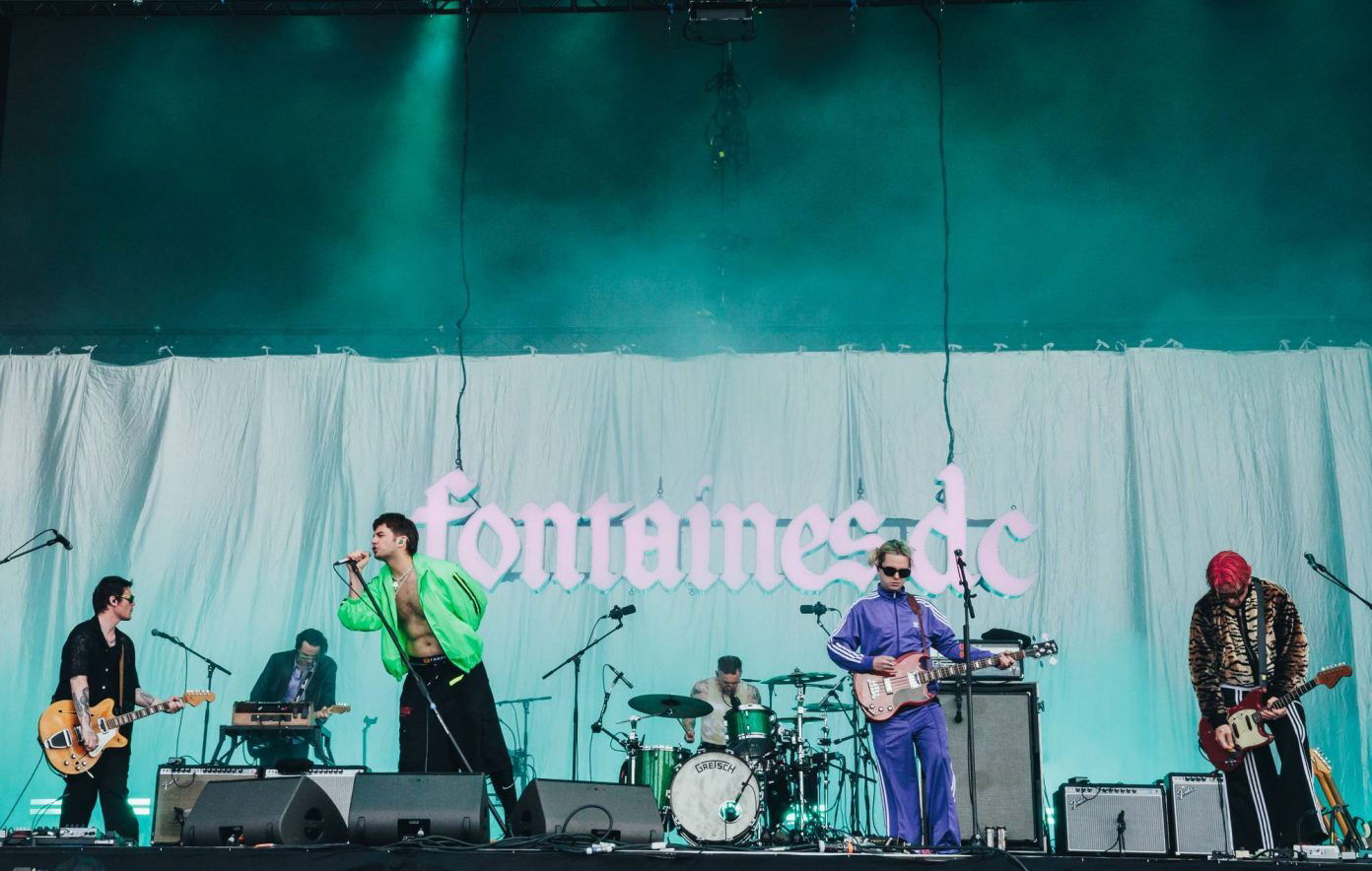
The lead single, 'Starburster,' is a chaotic, breathtaking masterpiece that tears up the rulebook. It’s a track delivered with confidence by a band fully aware of their place on the brink of greatness. Meanwhile, 'In the Modern World,' the album’s closer, reveals a more vulnerable side to Fontaines D.C., blending lush string arrangements with introspective lyricism, surprising even their most devoted fans.
Other standout tracks include 'Here’s the Thing,' a guitar-driven anthem with a razor-sharp riff destined to become a staple of their live shows, and 'Favourite,' an instant classic with echoes of The Cure. This song, brimming with hope and featuring some of the band’s best lyrics to date, boasts a chorus that feels destined to be sung by festival crowds for years to come.
Another Irish band, Kneecap, introduced itself to the world with one of the best performances of the weekend at Glastonbury. Their electrifying set earned them a main stage slot at Reading & Leeds, where they delivered a politically charged display of Gaelic rap. Not shy about making a statement, the band has been stirring up attention since their inception. They’re certainly one of the most unique musical outfits around right now.
The Gaelic rappers have had quite a year, having released their debut album 'Fine Art' full of controversy, brilliant songs, some laughs and even a history lesson. 'Parful' quotes the 90s documentary 'Dancing On Narrow Ground' which tells the story of how dance music helped bridge the divide between Catholics and Protestants in 1990s Belfast. They have a hand from Fontaines Grian Chatten on “A Better Way To Live,” which contains some of the album's most profound lyrics, “the upside of the seesaw”. You gotta come down, too. 'Rhino Ket' is a lot less profound, but it's very, very funny. Written about taking the drug strong enough to put a rhino to bed. It's the band at their hilarious best.
As well as a brilliant debut album, Kneecap released a biopic. Part Trainspotting, part 8 Mile. It's hedonistic but heartfelt. That document highlights both the rise and the struggles of Gaelic speakers in Northern Ireland. It has it all. A brilliant story, with a list of celebs (Michael Fassbender) playing Mogali Bap's IRA father, and it's hilarious. It’s one of the best musical biopics I've ever seen.

Away from the festivals, 2024 also brought new album releases from Fontaines DC, as well as some major gigs. Blossoms played their biggest headline show to date at Manchester’s Wythenshawe Park, supported by an all-star indie lineup. The Ks, Shed Seven, and Inhaler all shared the stage with the boys from Stockport, making it a night to remember.
Another huge milestone for Blossoms, who are now onto their 5th album. This record is the band's first as an independent band. It's some of their best work to date. Full of infectious indie hooks, huge choruses and tales of 8ft gorillas. ' Gary' is an enjoyable record. That takes everything we have come to expect from Blossoms and adds a new dimension. It has heartfelt moments with songs like 'Mothers' songs that make you want to dance 'Nightclub', and monumental live favourites 'Gary' and 'Perfect Me'. This album doesn't hang around, with a runtime of just over 30 minutes. It's the perfect soundtrack to your very own dance floor. One of the albums of 2024
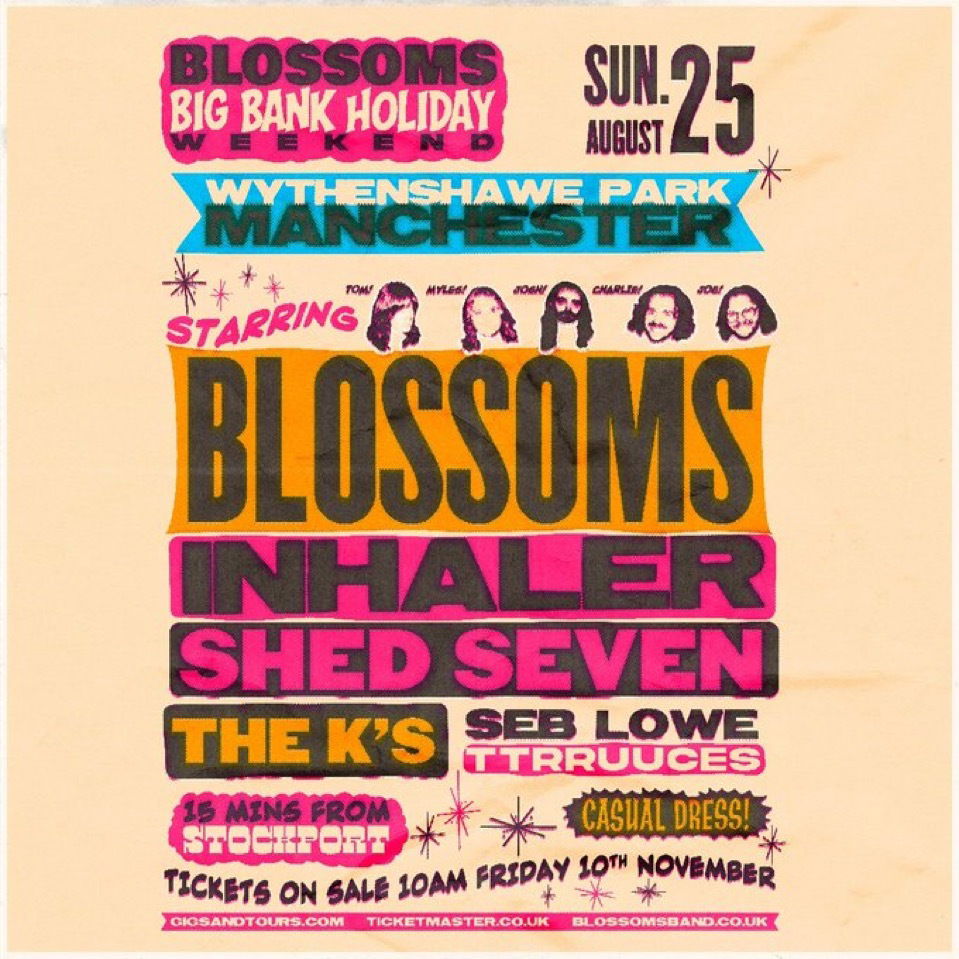
I had the privilege of attending the gig, and it was another brilliant affair. Blossoms have firmly established themselves as a staple of the UK live music scene, consistently selling out venues and being featured on festival bills. Despite their presence in the mainstream, they've always managed to evolve, continuing to release indie pop gems. Their performance at Wythenshawe Park was the culmination of everything that makes Blossoms great.
Although these are significant musical events, they weren't the biggest. At the Reading Festival and at Wythenshawe Park on Sunday, August 25th, 2024, a short video was played on the screens.
That video indicated a date and a time, and it was about a particular band. A specific Manchester band. Oasis.
On the 27th of August, 2024, after a weekend filled with speculation and rumours, after 15 years away, social media spats, no communication, and even the odd vegetable-related insult, Oasis announced...
They were reuniting. For some shows in 2025 in the UK and Ireland.
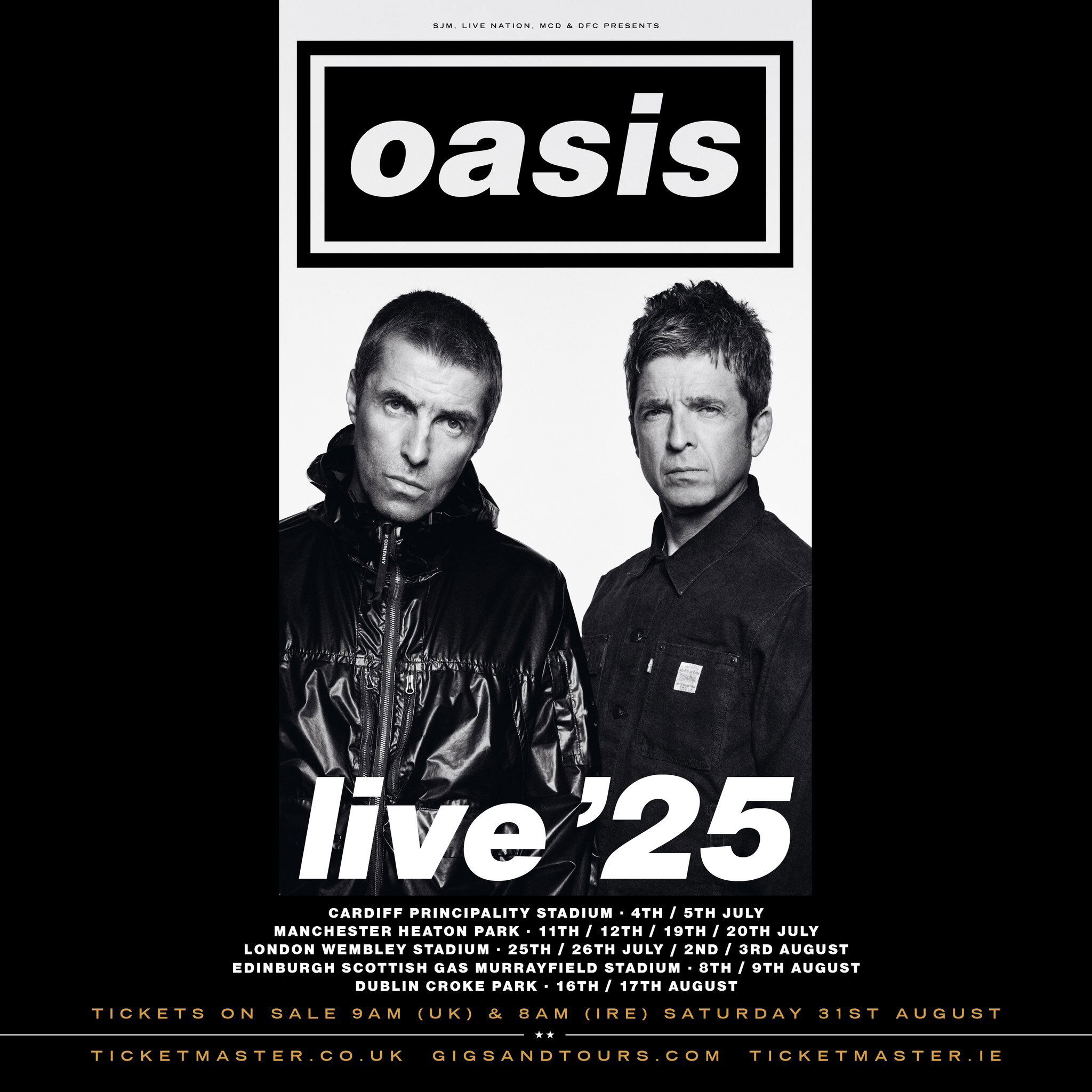
That news is monumental. This isn't just a significant moment in music; it’s more than that. Oasis has transcended generations and ingrained itself as a part of British culture.
It’s one of the most important news stories of this decade.
Another huge British band also announced some stadium shows for next summer. Stereophonics revealed plans for some massive summer shows in 2025. They’ll be playing in huge stadiums and heading out on the festival circuit.
With the band returning to the road after a few years, it gives fans, both young and old, a chance to see one of Britain’s very best live bands.
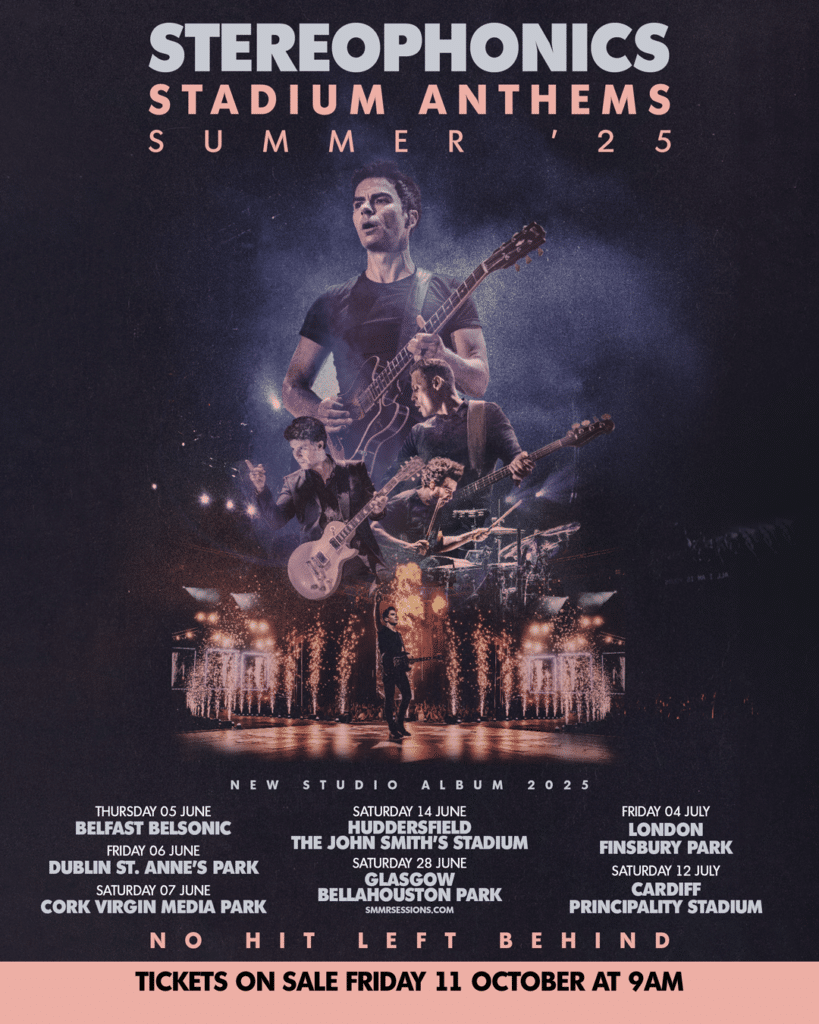
This is the biggest tour the band has ever done, playing in some massive venues. I've got my ticket for next year, and I’m really looking forward to watching them make the jump into these outdoor arenas once again.
The Clause have released a brilliant EP, 'Weekend Millionaire', a 5-song affair that follows last year's 'Pop Culture' EP. The band have upped it again, the EP's title track is one of my songs of 2024.

2023's 'Pop Culture' EP was a real step up, and the band stepped it up again with this one. The title track talks about the escapism that comes with going out on the weekend. Whatever that may be. Musically, the song is a massive jump. Each member has their moment in the sun, and it knits together perfectly. It's been the most I've been gripped by a new song in a very, very long time. I cannot stop playing it.
'Never Ending Affair' sees the band slow things down with an acoustic-led song, about a relationship that is never going to work. It's a beautiful, contemplative song that shows a very different sound to the other songs on the EP, a sound the band has never really shown before. 'Stop the World' offers a social commentary on the current state of the world we live in, backed by some brilliant guitar pop.
'Fever Dream' and 'Take Me Home' are already two fan favourites, with two catchy melodies. 'Fever Dream' has been described by the band's frontman as autobiographical, a battle cry for the procrastinators who seamlessly breeze from one day to another, hoping the world will fall into place. 'Take Me Home' reminds me a lot of the Arctic Monkeys with 80s synths backing them up. Talking about young love, one-night stands, and what happens in bars and clubs every Saturday night up and down the country. It has a throwback feel, yet it also feels firmly like The Clause. It's an indie love song firmly set in 2024.
2025 will be a massive year for the boys from Birmingham. A debut album has to be on the cards, after a sell-out tour including a show at Birmingham's 02 Institute and these two brilliant EPs. Surely the debut album is next.
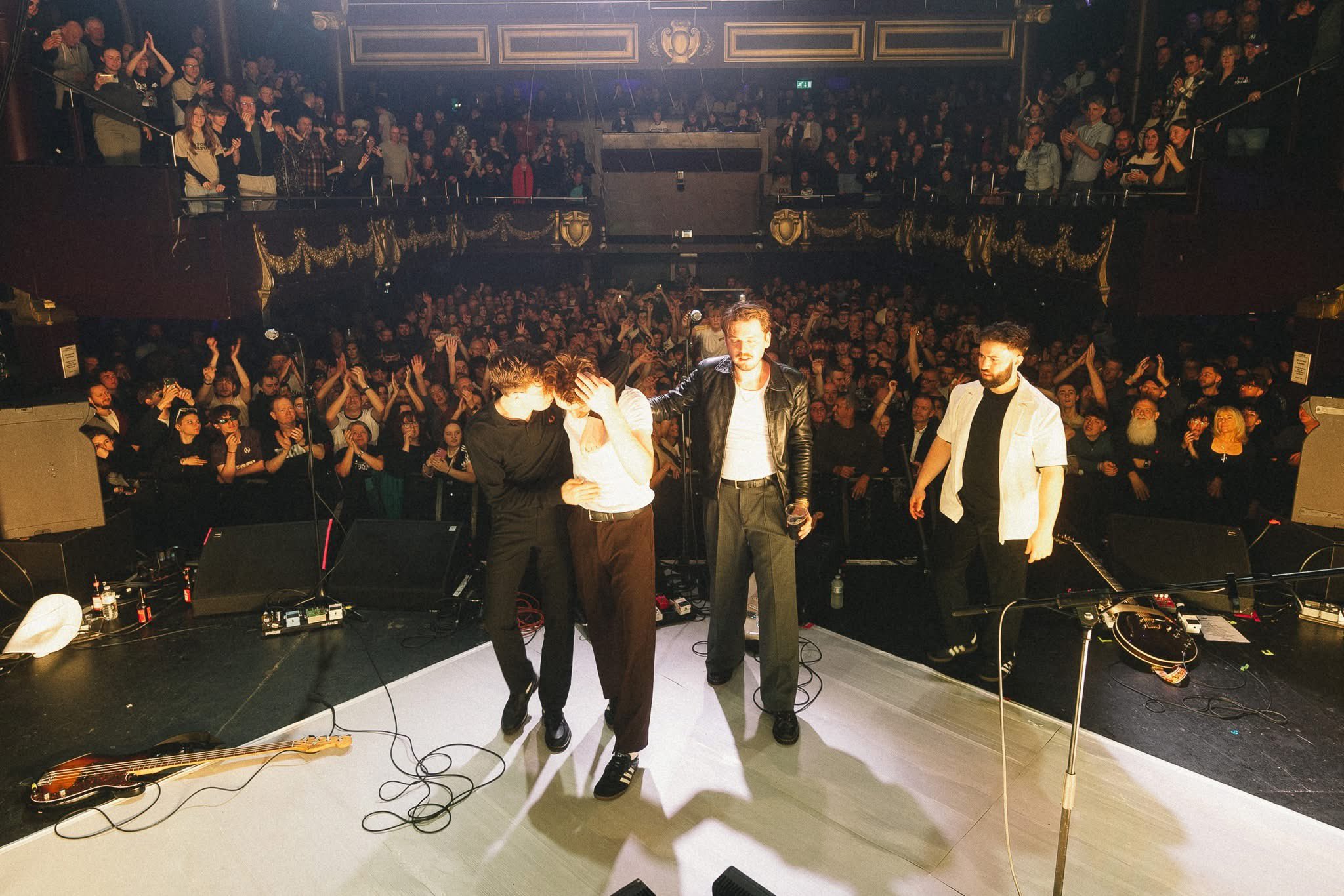
Courteeners released their seventh album, 'Pink Cactus Cafe', a comeback album. Having not released new music since 2020's 'More. Again. Forever'. Upon its release, frontman Liam Fray described the album as sounding like "If a Mancunian joined Haim." The album is a far cry from the landfill that many music journalists used to criticise bands like Courteeners.
The record is a real melting pot of sounds and ideas. The band is collaborating with more and more people. With contributions from the likes of DMAs, Pixey, Brooke Combe and James and Ian Skelly of The Coral. It's a brilliant collection of songs from the indie superground arena crushing 'The Beginning Of The End' with DMA's, to the state of nation address 'First Name Terms' which sees Fray hit back at the class system, as we “lie back and think of England, but when does England ever think of you?”
The album's title track, 'Pink Cactus Cafe', is about the place where we feel safe and at home. Fray commented to the NME. “It could be anything. A café in Marrakesh, the chippy in Cheetham Hill. A night on your own, saying ‘I’m gonna have a bit of ‘me’ time.’ Watching the match with your dad. Your own space, but you have to go and make it."
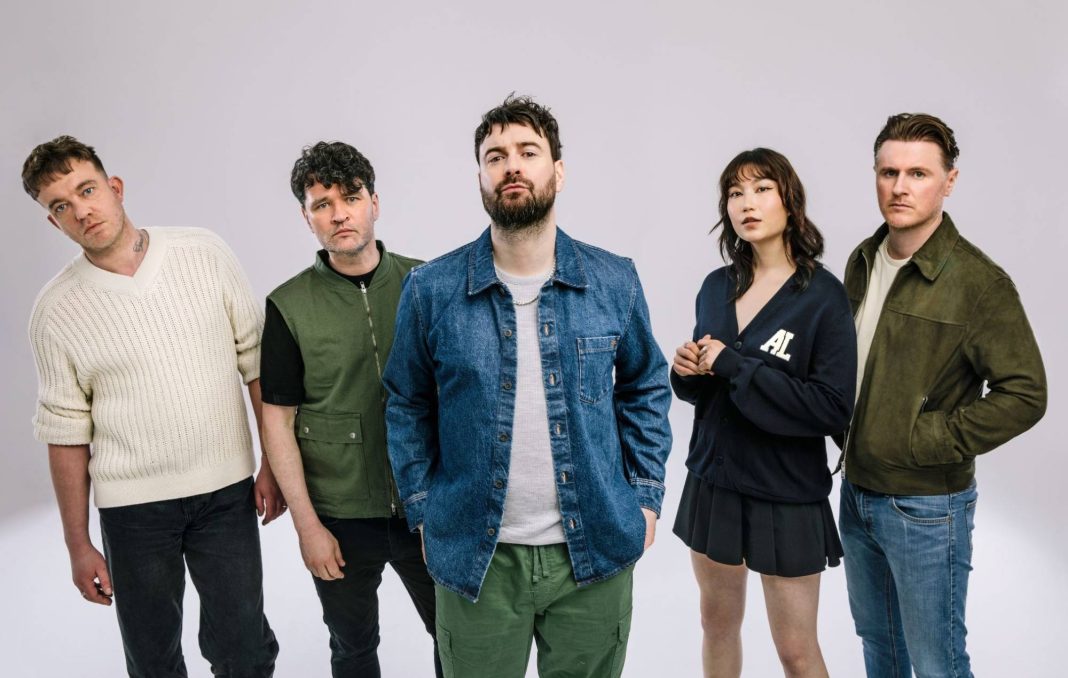
This was the record that saw the band make the jump into arenas, and these songs work really well in that setting. Despite the success of their debut 'St Jude' both at the time, and during its re-release in 2023, the band do not want to rest on their laurels. These songs reflect a new chapter for Courteeners. Where on earth do they go next? One thing is for sure, these are not songs by a band wanting to re-live a Parka Monkey past, they are modern, vibrant affairs that stretch out way beyond Manchester.
We also got some new music this year. Sam Fender released 'People Watching,' the first single from his upcoming third album. It's a euphoric five-minute epic, with Sam revealing that the song is about "somebody who was like a surrogate mother to me and passed away last November. I was by her side at the end, sleeping in a chair next to her. It’s about what was going through my head, to and from that place and home."
He added, “It’s kind of ironic because she was the one who gave me the confidence to go on stage, always saying, ‘Why haven’t you mentioned my name in your acceptance speech?’ But now, an entire song (and album) connects to her. I hope that wherever she is now, she’s looking down and saying, ‘About time, kid.’”
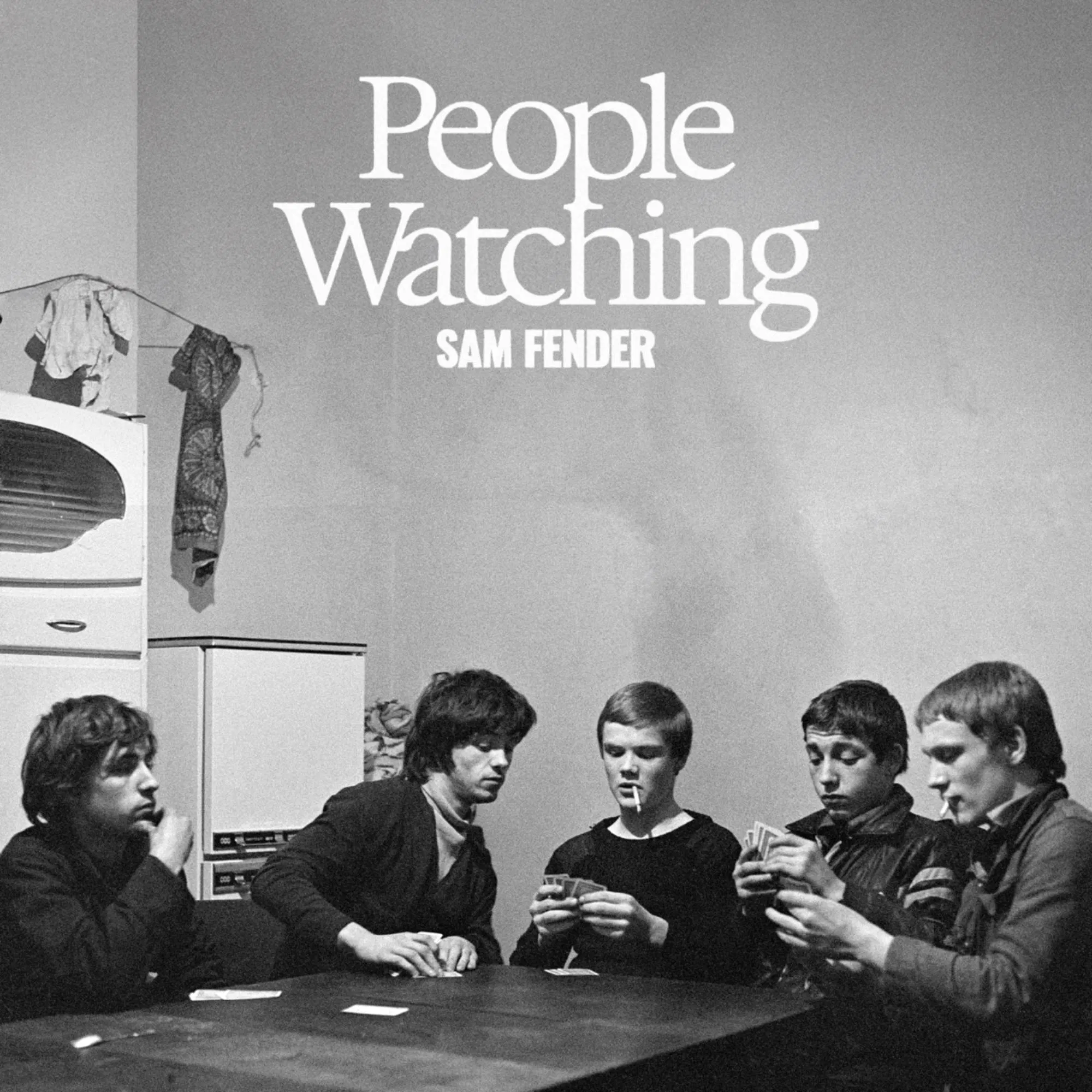
This isn't the first time Sam Fender has addressed grief in his songs. He's done it before with tracks like 'Dead Boys,' 'Spit of You,' and 'The Dying Light,' but 'People Watching' feels much more personal. It's raw, powerful, and a heartfelt tribute to Annie Orwin. Sam opens up about the memories he has with the person he lost and how that loss has left him feeling vulnerable.
It's one of the best musical moments of the year, and it will undoubtedly be heard by thousands of adoring fans on his sell-out UK and Europe tour.
Sam released 'Wild Long Lie' before the year was out, a reflective, acoustic-driven song that sees Sam singing about “that time of year again” when “the past comes home”. Released just before Christmas, he talks about reuniting with the characters from the past. Who are only too ready to dish out some tall tales. Or, as it’s known in some circles, returning to your hometown pub on Christmas Eve.
It juxtaposes the album's anthemic and euphoric title track perfectly, showing a more mellow side to Sam.
Sleep Token made the jump into arenas and to the top of festival headline bills at the back end of 2024, with their sold-out UK arena tour. The band were also pencilled in to headline Download in 2025, alongside Green Day and Korn. Reinforcing themselves as one of the world's best new rock outfits.
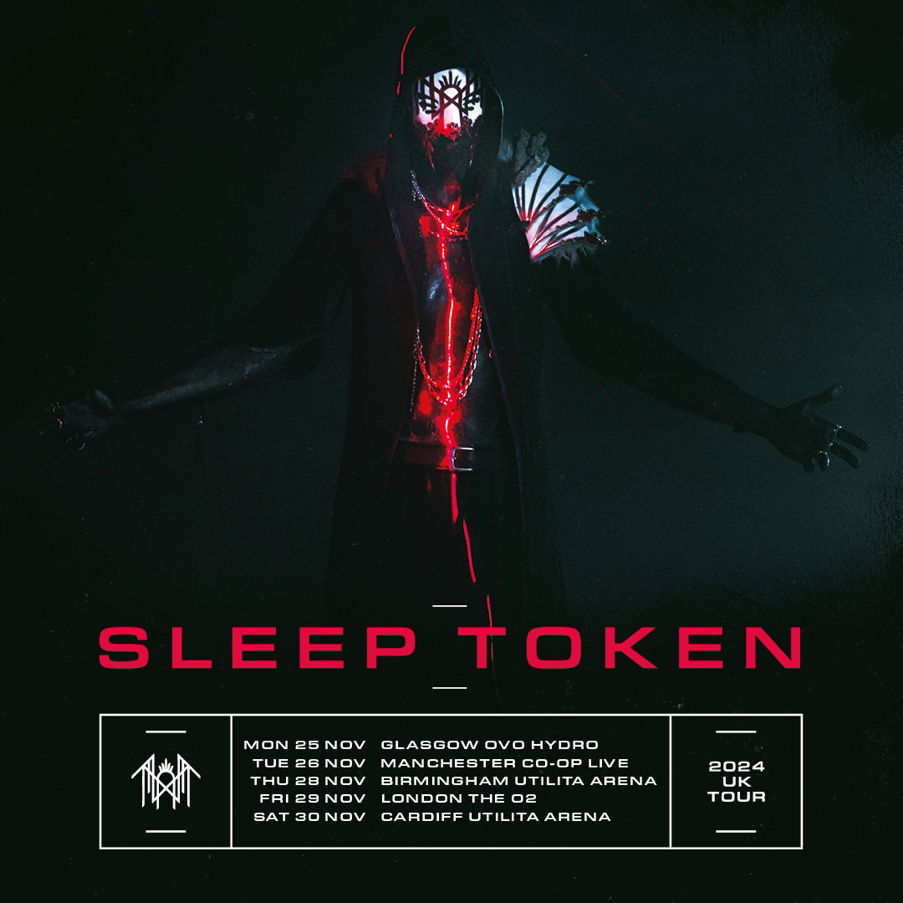
Sleep Token has been on the ascension for a few years now. With the release of the band's third and latest record, 'Take Me Back to Eden', the crowds got bigger, and the critics got on board.
Metal Hammer readers ranked 'Take Me Back To Eden' as the best album of the year, while the magazine's writers ranked it fourth best of the year. Revolver also named it the #1 best album of the year, as did Rock Sound, which also named Sleep Token the best British band of the year. Kerrang! Staff called the album the third best of 2023. Writers for the NME named 'Take Me Back to Eden' their 21st best album of the year, while ranking 'The Summoning' the 18th best song of the year.
No longer the underground outsiders, the band were quickly becoming one of the UK's biggest rock acts. Arena shows are now part and parcel of the band. It's one hell of a story, and they are one hell of a band, for someone not usually gripped by this music. Sleep Token is more than a flash-in-the-pan gimmick. They are exceptional musicians, with some unbelievable songs that blend genres effortlessly.
Because We Need Each Other- 20s Part 3
2025 started with Scottish Indie Legends, Franz Ferdinand, releasing a new album, their sixth record, seven years since 'Always Ascending' and over twenty years after the band's Mercury Prize-winning self-titled debut effort.
Despite this being the third iteration of the band, 'The Human Fear' is a real statement of intent, that is firmly a Franz Ferdinand record. The band's mission has always been to make fans dance and to set themselves apart from the other indie bands of the time. This record is firmly a modern record, but the band's DNA is littered throughout. With glam-pomp and scratchy guitar riffs. Kaparono's vocals shine through.
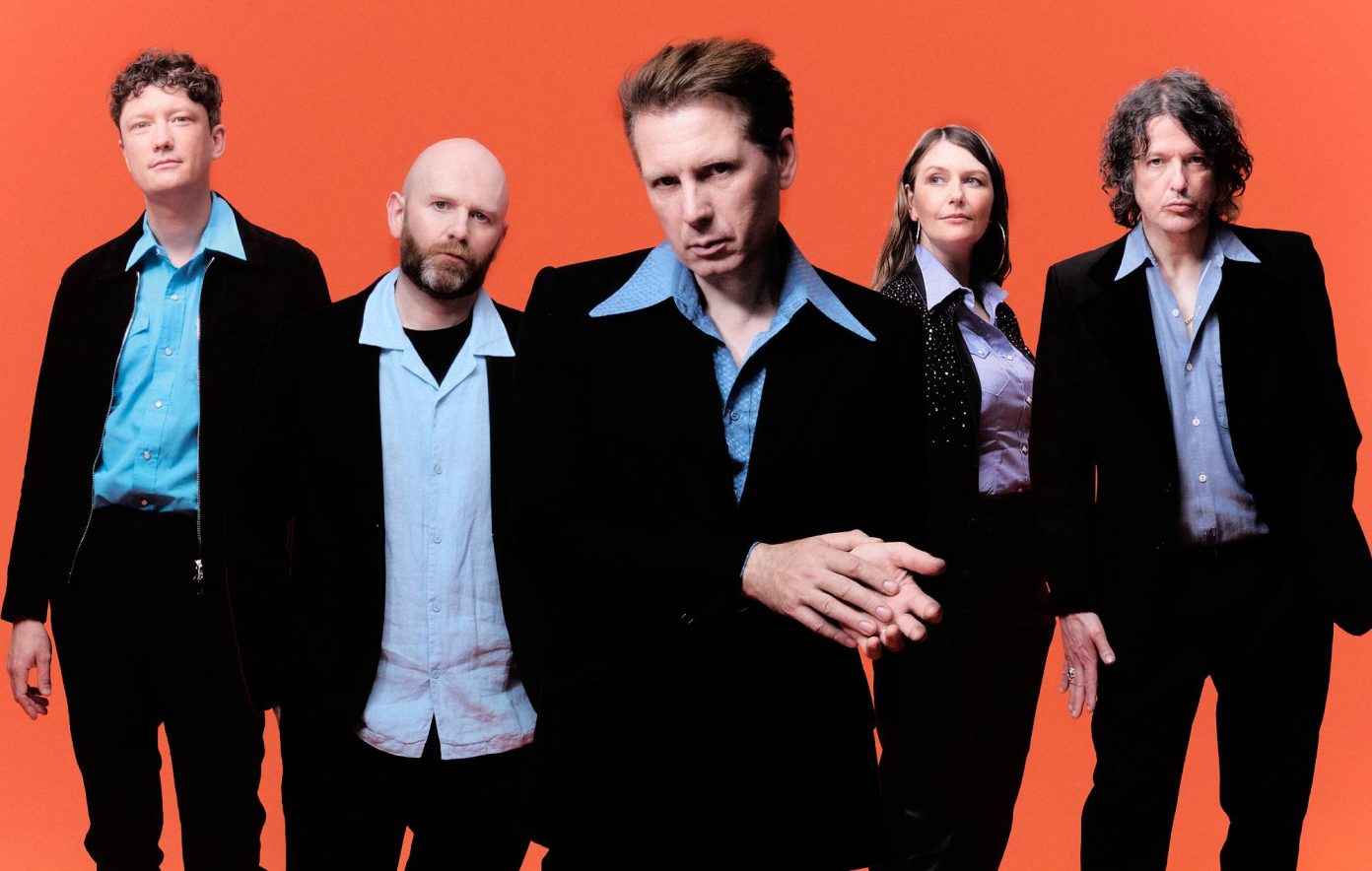
This record isn't perfect 'Hooked' in particular feels like a bit of a misstep. It sees the band try and write a Franz Ferdinand song over a dance beat. It feels a little forced. Yet the rest of the record sees a band embracing innovation, as well as their past. 'Black Eyelashes' draws on Kapranos’ Greek lineage for the first time. 'The Birds', with its post-punk jangly guitars and spiky lyrics, could fit into any of the band's records. Franz Ferdinand know what they are; there's a reason that they have stuck around for this long. As they said themselves in 2005, "You do it oh so well."
In January, Liverpool indie legends Circa Waves released their sixth album. 'Death and Love Pt.1' The band's first album since the front man Kieran Shuddal's emergency heart surgery. He found out that he needed the surgery whilst on the band's last tour. Speaking with the Telegraph, he said, “It was really out of the blue – I started getting insane pains in my heart that the hospital told me was inflammation. So I carried on touring, and I was in agony for months,” says Shudall. “Little did I know that I could have dropped down dead at any moment.” When he eventually went for a thorough scan, he found out there was a blocked artery that required urgent surgery, and he faced a 1 in 100 chance of death; a terrifying, “fucking mad” reality for someone in their mid-thirties who had always been healthy.
After the surgery and recovery period, he promised that he would get back in the studio. He found himself dreaming of a specific place and looking back. He was dreaming about the indie clubs that he used to visit, only now those same places play the songs that he has written. The album is full of more songs that will be mainstays on dark dancefloors in your local indie club, but it is also the band's most emotional effort to date.
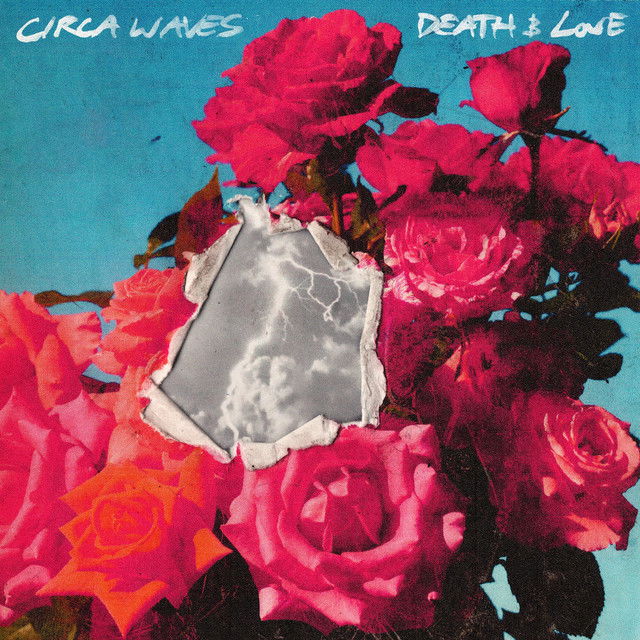
The album's lead single 'We Made It' celebrates the frontman's recovery and creates a punchy anthem that will be a mainstay in the setlist for a very, very long time. Following on from the surgery, Shuddal told the NME that “I thought I might die before I made this record and then I didn’t, and I got to make an album of music that I loved. The shackles were off, in a way, because I had this newfound joy and excitement for being alive.”
This is the sound of a band operating with a new lease of life. 'Le Bateau' celebrates the band's youth in Liverpool, named after a nightclub in the city. It's a nostalgic affair that reminds me a lot of the band's first record; by no means is that a criticism. It's a touching anthem.
'Blue Damselfly' is one of the album's most heartfelt songs, a tribute to Kieran Shuddal's wife and children. Written whilst in hospital. It's a song that portrays the fear that the frontman faced during his surgery and recovery.
Some of the band's best work in recent memory. Circa Waves are not reinventing the wheel, but they don't need to. They have never pigeonhole themselves into one sound or idea. Each song sounds different and unique. This album is no different; it's a showcase of what the band does best with a new fragility and vulnerability. It's a very good record.
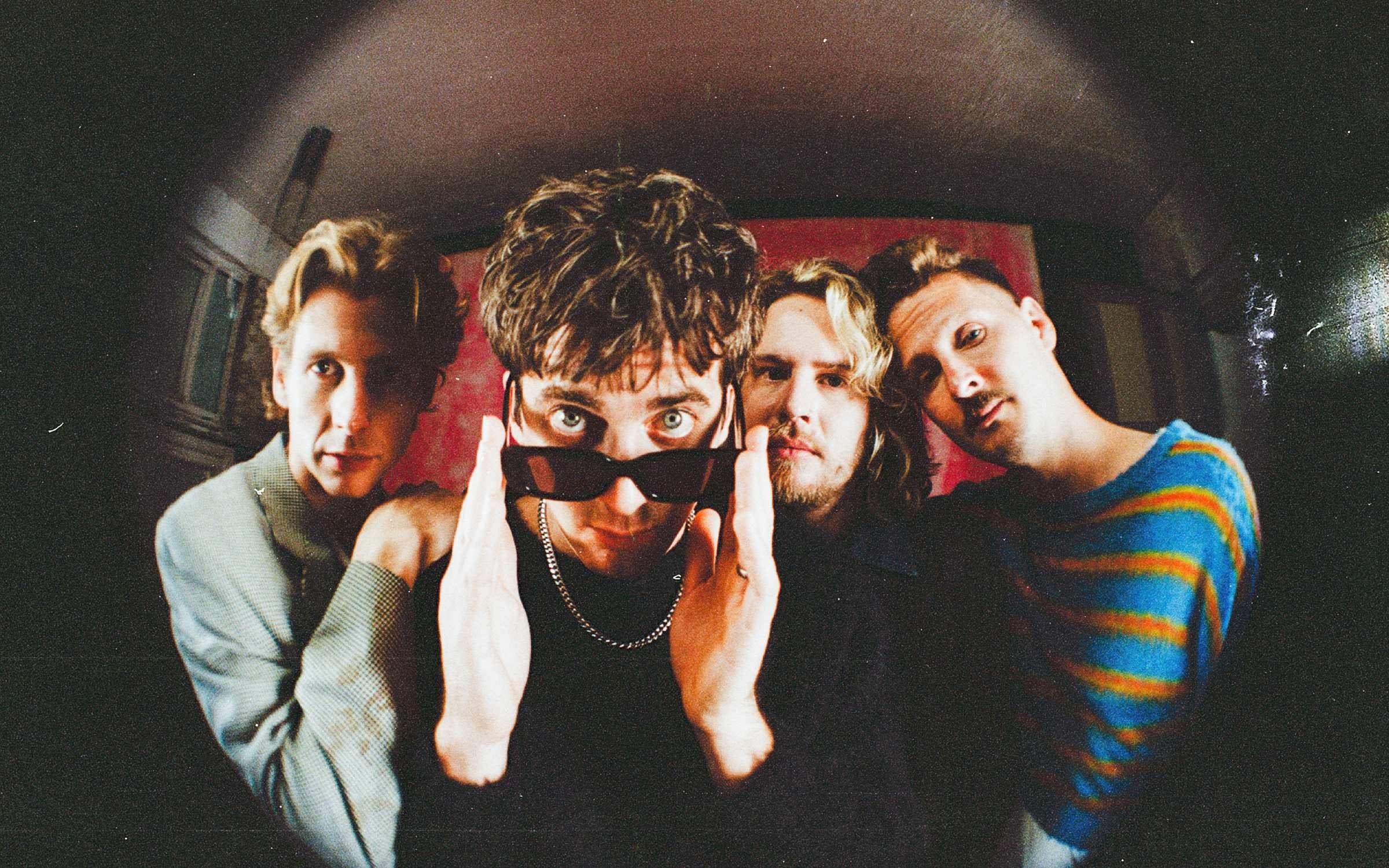
We got one of the biggest and most unexpected gig announcements in February. Heavy Metal fans were greeted with arguably the biggest metal show announcement ever. Black Sabbath and Ozzy Osbourne will take to the stage one more time at a fundraising concert at Birmingham's Villa Park on Saturday, 5th July. This concert will mark the first time that the original line-up of Black Sabbath: Ozzy Osbourne, Tony Iommi, Geezer Butler and Bill Ward have performed together in over 20 years.
The show will mark Ozzy's full stop for playing live. Osbourne, who has largely been forced to stop touring due to a combination of Parkinson's and spinal injuries, will play a short solo set before joining his bandmates.
His wife, Sharon, told BBC News he was determined to put on one final show."He's doing great. He's doing really great," she said. "He's so excited about this, about being with the guys again and all his friends. It's exciting for everyone."
However, she said the concert would definitely be the 76-year-old's final show."Ozzy didn't have a chance to say goodbye to his friends, to his fans, and he feels there has been no full stop.
"This is his full stop."
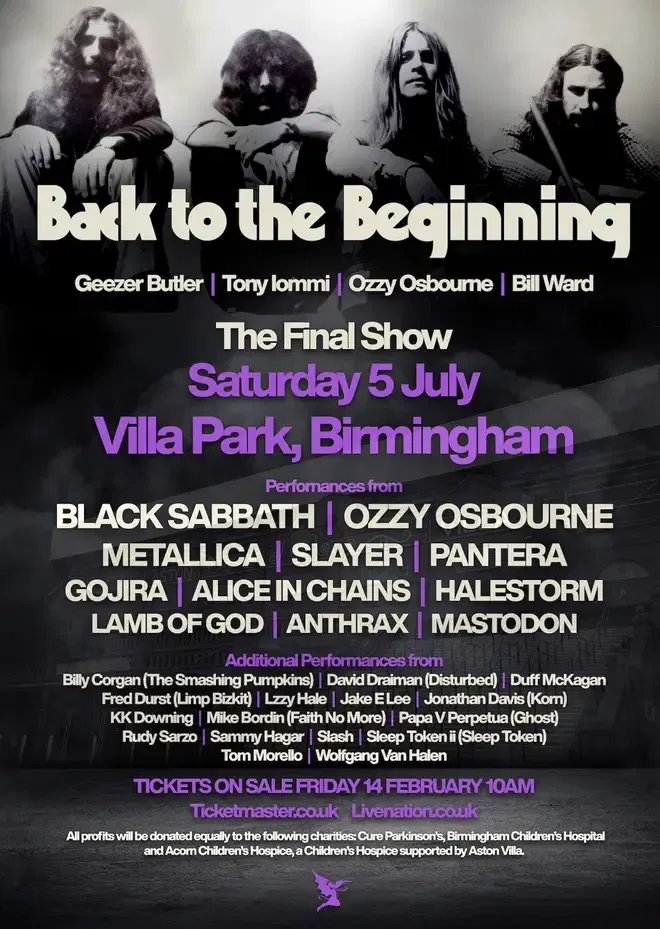
The band will be joined by Metallica, Slayer, Pantera, and Alice in Chains. Among a whole host of other guests, including Smashing Pumpkins frontman Billy Corgan, Disturbed’s David Draiman, Guns N’ Roses’ Duff McKagan, Anthrax’s Frank Bello, Limp Bizkit’s Fred Durst, Sammy Hagar, Papa V Perpetua of Ghost, Wolfgang Van Halen, Zakk Wylde, Korn’s Jonathan Davis, Anthrax’s Scott Ian and Slash.
Proceeds from the show will support Cure Parkinson's, the Birmingham Children's Hospital and Acorn Children's Hospice, a Children's Hospice supported by Aston Villa. This reunion and final show marks a significant end to one of the most important and well-loved bands Britain has ever produced, and where better to end it than where they started.
I'm not the biggest heavy metal fan in the world. I won't claim to be, but even when I looked at this lineup poster, I could tell that it was a huge lineup. With some huge names from all eras of rock and metal.
Inhaler released album number three, 'Open Wide', on February 7th, and it saw the band embrace a more pop sound. A more sleek, evolved version of the band, this record is not the sound of the band playing it safe. They haven't become something they aren't, but they have certainly pushed themselves. Lead single 'Your House' flirted with glam rock and saw the band backed up by a gospel choir.
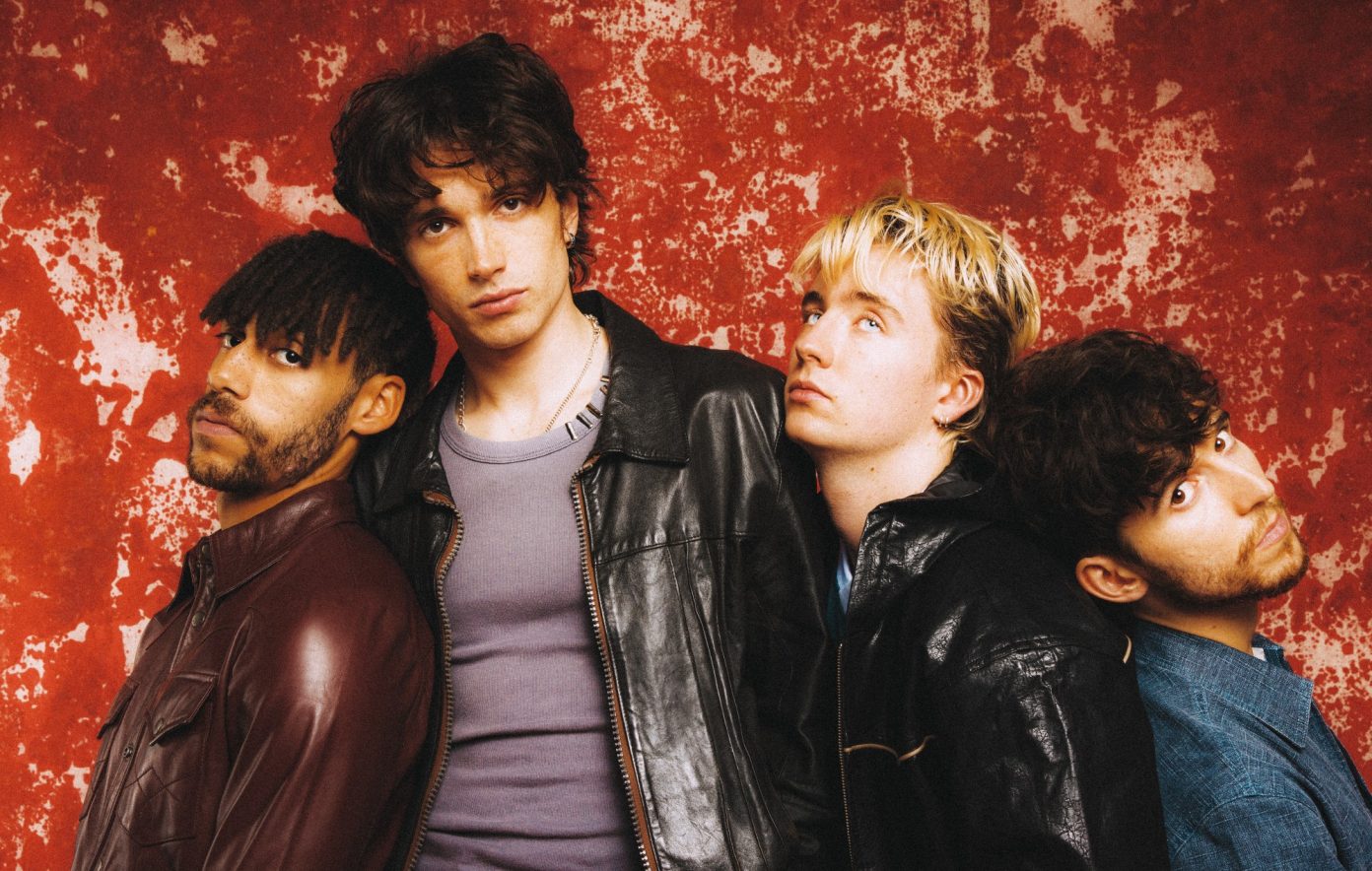
The rest of the record is just as liberating. Sam Fender once called Inhaler 'alternative pop', and with this album, you can really see what he meant. It's a collection of well-crafted songs that see the band enter new realms. Opening track 'Eddie in the Darkness' is a real guitar anthem, with some 80s indebted backing vocals, but it's quickly followed by the electro pop Billy (Yeah Yeah Yeah)’ with a toe-tapping dance beat, and a massive chorus. It's one of the catchiest things they have ever written.
'Open Wide' featured four singles, and the band still tapped into the chaos of muddy festival fields. 'A Question of You' in particular was made for the boozy chants along with your loved ones and mates. There isn't really anything for the swirling fury and glory of the mosh pit, but 'My Honest Face' covers that area of the set.
The album's title track sees the band venture into territory that they had previously tried to avoid. It was a smart decision to avoid stadium rock; the last thing the band wanted to do was have the U2 comparisons. However, they have absolutely smashed. The perfect blend of everything that the band do well. Brilliant instrumentation, in particular the bass playing, which is strong throughout the whole record and a massive chorus.
It's a bold step forward, but it really works. This record will propel Inhaler up to the top of festival line-ups and into arenas. They definitely have the songs for it now.
Sam Fender released his third album, 'People Watching', an album that, within its 48-minute run time, has numerous special moments. A record that sees Sam examine the lives of his friends and peers through the lens of someone who has managed to escape the working-class life he was born into.
It's a record that does not have the urgency of his previous two albums, and yet it does not need to. This collection of songs is the best Sam has written. 'People Watching', the album's title track, is a tribute to Annie Orwin, a woman Sam has called a 'surrogate mother', whilst also examining his surroundings, the place he grew up, in the final days of Annie's life.

'Crumbling Empire' sees Sam explore the poverty he has seen on tour, and relates back to the effects of Thatcherism in his own hometown, North Shields. On this track, Sam also addresses his ability to talk about these working-class struggles. “I’m not preaching, I’m just talking / I don’t wear the shoes I used to walk in.” This is one of my favourite songs Sam has done to date, a perfect encapsulation of the universal and the personal, which sees Sam create something relatable to his fans but also deeply personal to him. With lines about his mom and stepdad, but also more universal lyrics about addiction, homelessness and the destruction of working-class life across the globe.
'TV Dinner' is another high point, a piano ballad that sees Sam address the music industry, poverty, and his own struggles with fame. One of the most poignant lines in this track talks about the death of Amy Winehouse. "Like Winehouse, she was just a bairn/ They love her now but bled her then," Sam commented on how the press treated a working-class singer when she was struggling, and then after her death, the press and public's perspective totally changed.
The album ends as it starts, with a beautiful tribute to someone close to Sam. 'Remember My Name' is a beautiful piano ballad that sees Sam and the band joined by Easington Colliery Band. The song initially emerged with Sam playing it on an out-of-tune piano in a Newcastle pub. It has transformed into a tribute for his Grandmother, written from the perspective of his Grandfather, who cared for his wife whilst she had dementia. Both of these have now sadly passed away. The song is deeply personal, revealing the address of the council house they lived in and where Sam spent time as a child, '11 Wark Avenue'.
It's a soaring effort that sees Sam embrace sonic highs. The perfect tribute to two of his loved ones, and a look back on his family history, and his childhood, a theme he has explored before.
Sam's best record to date, many were worried how we would follow 'Seventeen Going Under', it's safe to say he has done more than follow it. For many, he's bettered it.
A sell-out tour of some huge UK venues, including a return to St James Park, and a massive show in Manchester's Wythenshawe Park.
In the last couple of years, Britpop has made quite a revival. Blur played two sellout shows at Wembley in 2023 and headed out on the road across Europe. Oasis then announced the Live 25 tour in August 2024. With shows pencilled in for the UK & Ireland, North America, South America and Asia.
Pulp, not wanting to be left behind, announced a UK arena tour in February 2025. The band had reunited previously in 2023, playing some huge shows, including a sold-out date at London's Finsbury Park. Following the loss of bass player Steve Mackey. Those shows were in celebration of the band's 1998 album 'This is Hardcore', the shows pencilled in for this summer are to celebrate 30 years of 'Different Class'
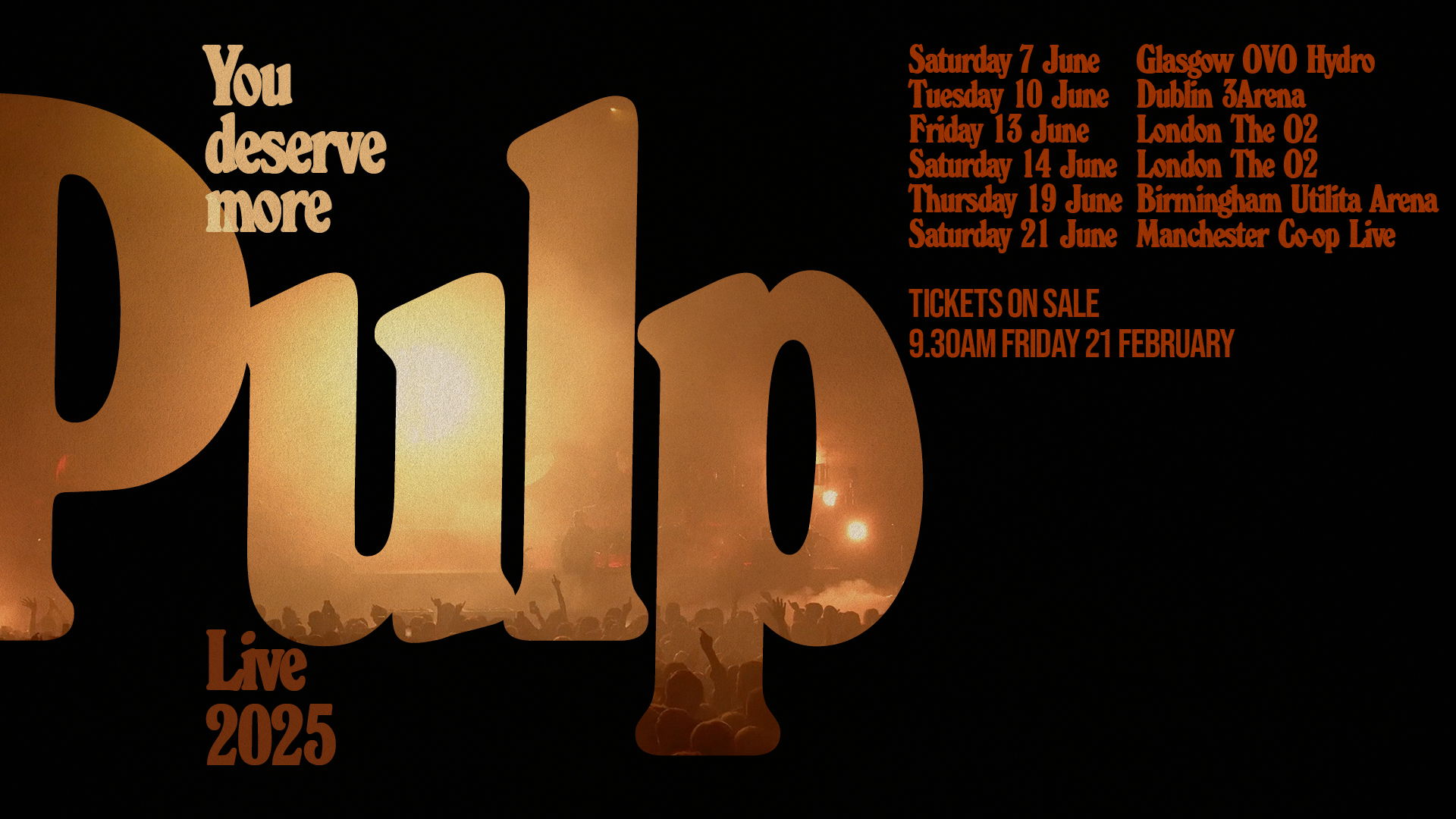
These shows follow on from an announcement of earlier dates. This includes a huge homecoming gig at Tramlines 2025 in Sheffield, and a headline set at Bilbao BKK in Spain.
The Brits 2025, in my opinion, righted some of the wrongs of the previous year. I felt as if the 2024 awards became the Raye show. The R&B star swept up six awards, including song and album of the year. In my opinion, not all of these were deserved.
One artist stole the show. Charli XCX won five Brits this year, including four on the night. Taking home 'Album of the Year' for 'Brat', 'Song of the Year' for 'Guess' featuring Billie Eilish, 'British Artist of the Year' and 'Best Dance Act'. Before the show, she was also named Songwriter of the Year.
What Charli did last year with Brat is nothing short of phenomenal. It gave rise to a cultural movement, 'Brat Summer', and she managed to even infiltrate the American election campaign, declaring that the Democrat candidate Kamala Harris was 'Brat'
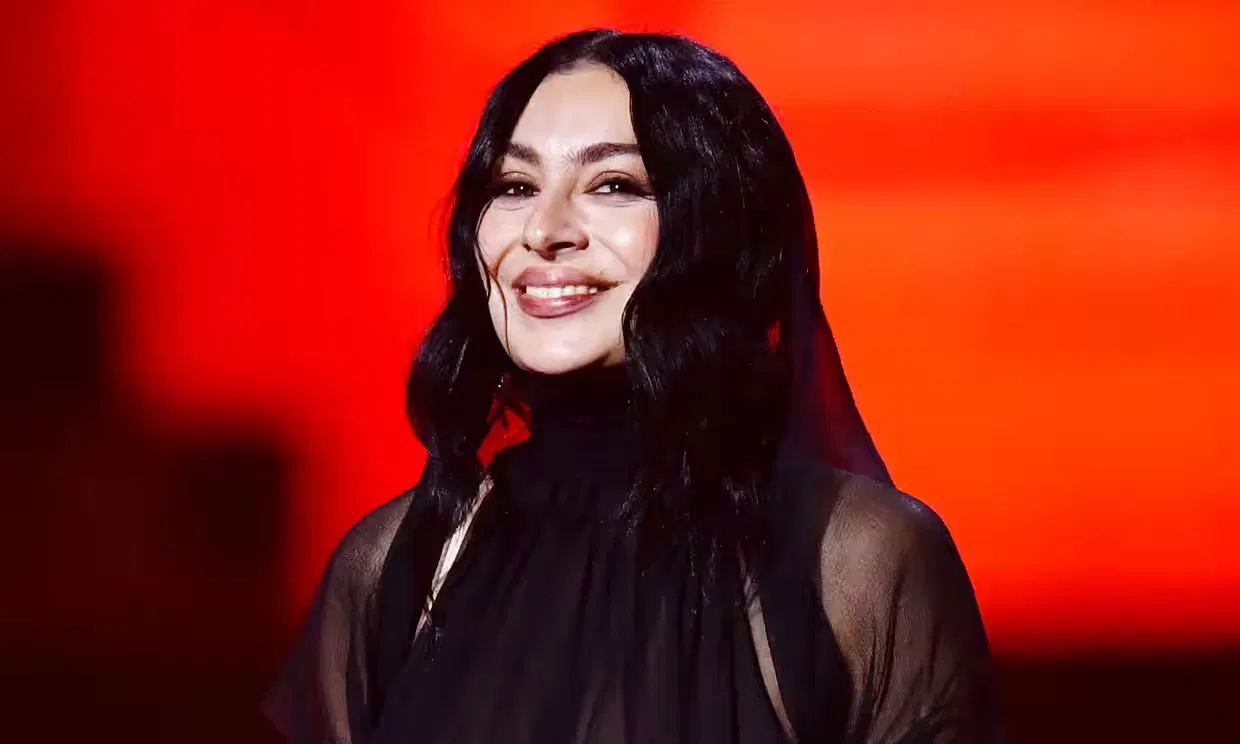
Brat topped the UK chart and has spent 38 weeks in the Top 20, and was critically acclaimed for its range: between the club bangers lay a series of thoughtful, romantic and emotionally raw tracks that laid bare Charli’s anxieties about fame and potential motherhood. It was also a success in the US, reaching No. 3 and winning three Grammys.
The awards allowed some artists and bands to address the state of the current music industry and talk about the importance of Grassroots Music Venues.
Rising Star' Myles Smith, 'British Group' Ezra Collective and 'Best New Artist' The Last Dinner Party used their winning speeches to talk about this subject.
Myles Smith addressed the room with three questions. "If British music is one of the most powerful cultural exports we have, why have you treated it like an afterthought for so many years? “How many more venues need to close?
How many more music programmes need to be cut before we realise that we can’t just celebrate success, you have to protect the foundations that make it?“
My second is to the biggest venues in the country and around the world: If artists selling out your arenas and your stadiums started in grassroots venues, what are you doing to keep them alive?
“And my third, to the industry, to the execs in the room, and to the people behind the scenes: Are we building careers or are we just chasing moments?“Because moments fade and careers take time, so please stick with artists past their first viral hit, please stick with artists past their first tour, because it really matters to us, and moments, they fade, but careers last forever.”

Ezra Collective also appealed for government support, in particular with support for youth clubs and music education, saying: “So many of the problems that face greater society in the UK, we’re unsure of how to fix, but the solution likes with giving a young person a trumpet, a saxophone – because when you do that you give them an aspiration, a goal.”
It was a history-making award for Ezra Collective as they became the first jazz group to win a Brit Award. In 2023, they also became the first jazz act to win the Mercury Prize.
The Last Dinner Party echoed his statement about grassroots venues, asking the bigger, more established venues to support those at the bottom, warning that if we didn't, we would continue to lose them at the alarming rate we currently are. All of the artists on the bill last night had to start somewhere.
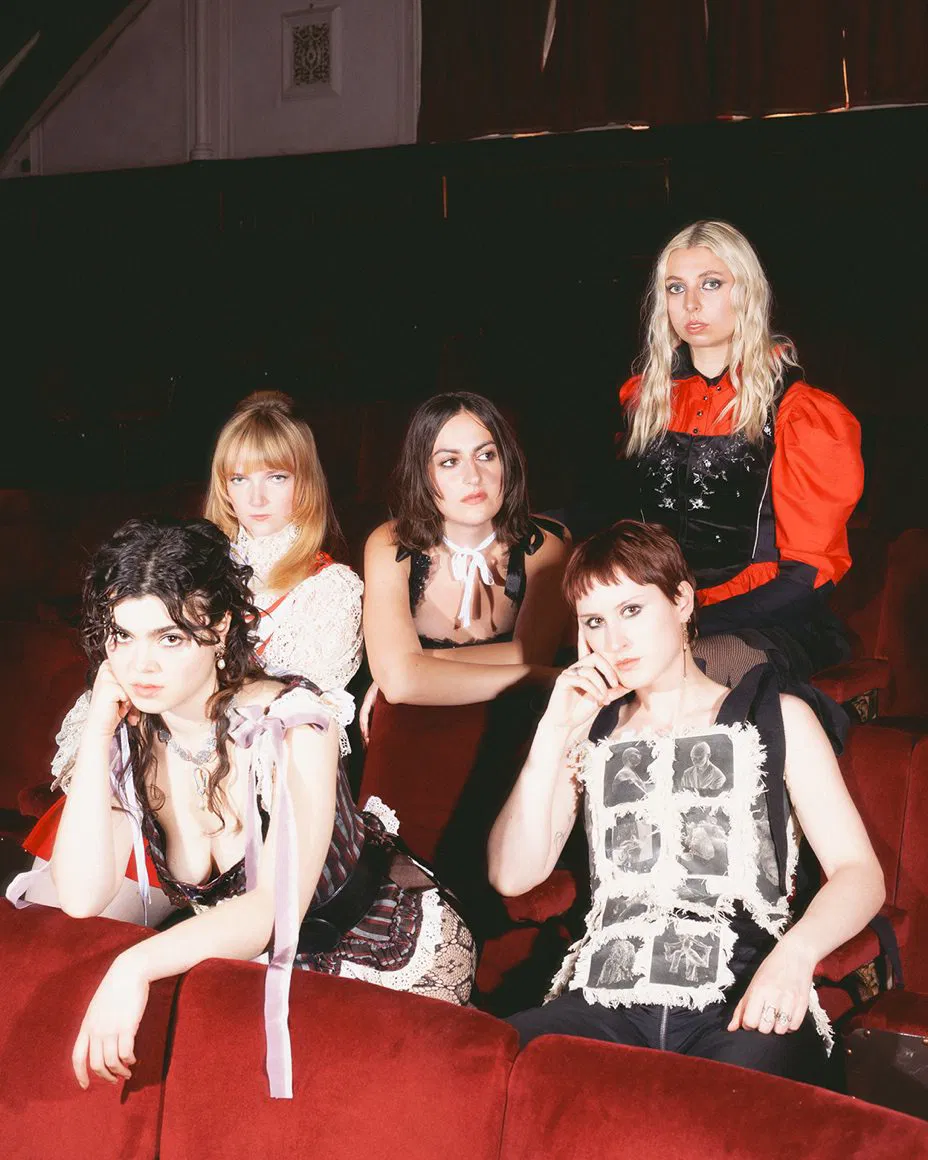
This message was an important one, and one that needed to be said. These artists and bands used the biggest night in British music to try and do something. There has been progress with the grassroots levy, implemented by artists like Sam Fender; however, there is definitely more that can be done.
Talking of Sam Fender.
He collected his third Brit, picking up the award for Best Alternative/Rock Act, following the release of his new album 'People Watching'
During his speech, he thanked his fans, who he claimed were "the best in the world", as well as his band mates, who he said “, without I’m just a mad person shouting at walls.”
Fender also took a moment to pay tribute to his hometown of North Shields.
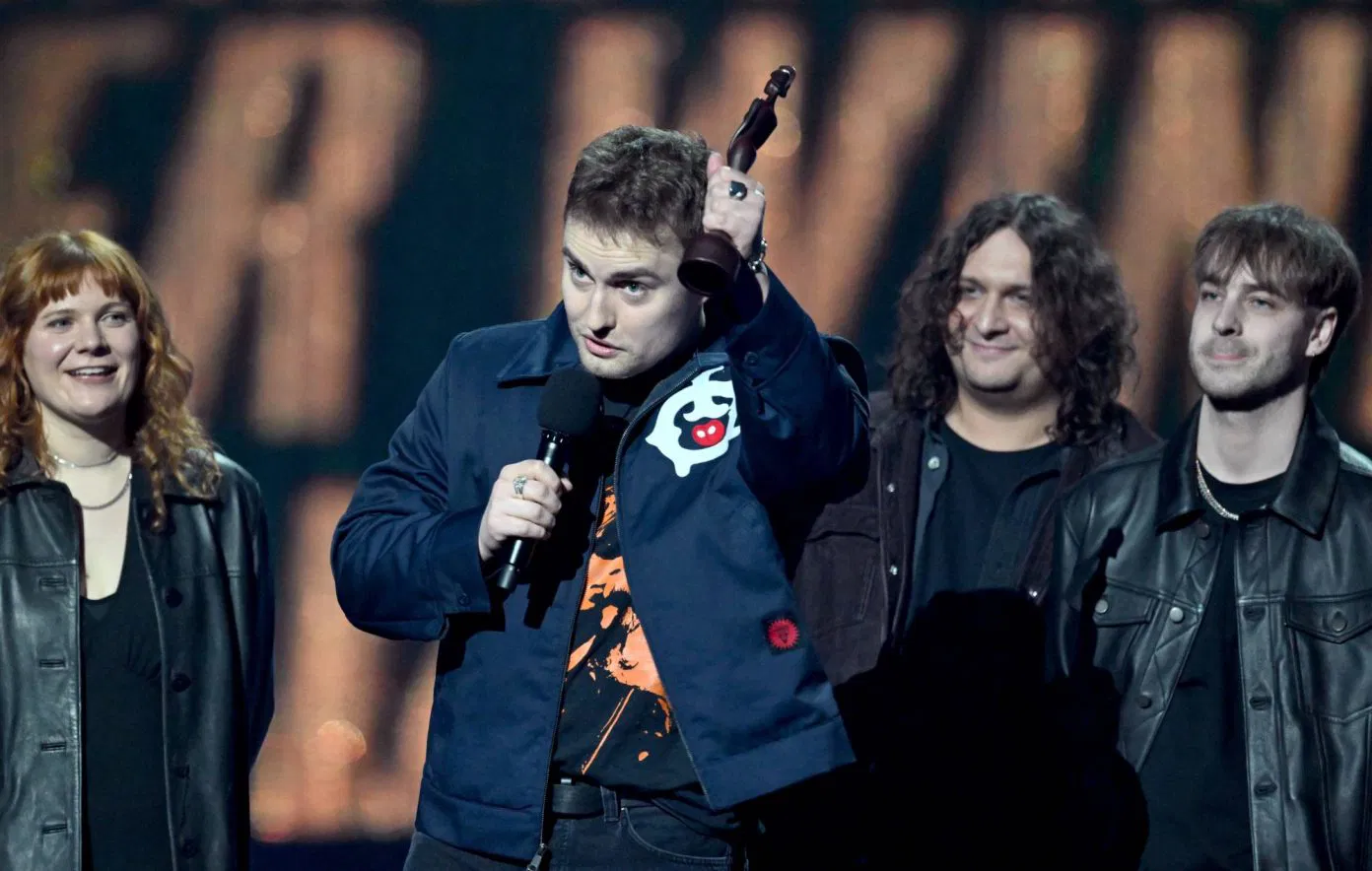
Sam was deserving of the award; he's had quite a manic few months. A sold-out arena tour, announcing stadium shows this summer, and the ever-looming Glastonbury headline rumours. As for his latest album, it landed the biggest UK opening week for a British act since Harry Styles‘ ‘Harry’s House‘. It also marked his biggest ever opening week, selling more units than 2019’s debut ‘Hypersonic Missiles‘ and 2021’s ‘Seventeen Going Under‘ combined.
He joins only eight other artists who have managed 100,000 UK album sales in a week this decade – Taylor Swift, Adele, Coldplay, Ed Sheeran, Harry Styles, Take That, ABBA and Arctic Monkeys. ‘People Watching’ has also become the fastest-selling vinyl album by a British act this century.
Fontaines DC scooped their second Brit Award, winning 'International Group' just as they had done in 2023. The band were unable to attend the ceremony due to being on tour in Australia. The band said in a recorded message, “We weren’t expecting to get it, this year in particular we’re up against some great people in that category. Amyl (and the Sniffers) – one of the most inspiring bands at the moment”.
The Brits, in my opinion, were one of the best in recent memory.
Following the announcement of Rod Stewart and Neil Young. Glastonbury 2025 revealed its first wave of acts in March. Topping the Pyramid Stage alongside Neil Young will be The 1975 and Olivia Rodrigo. The 1975 and Olivia Rodrigo had both been really heavily rumoured. Olivia Rodrigo, in particular, had been the bookies' favourite for several months. Other rumoured artists had been Taylor Swift, Sam Fender, Stevie Wonder and Rihanna (the latter with London stadium shows reportedly on the cards).
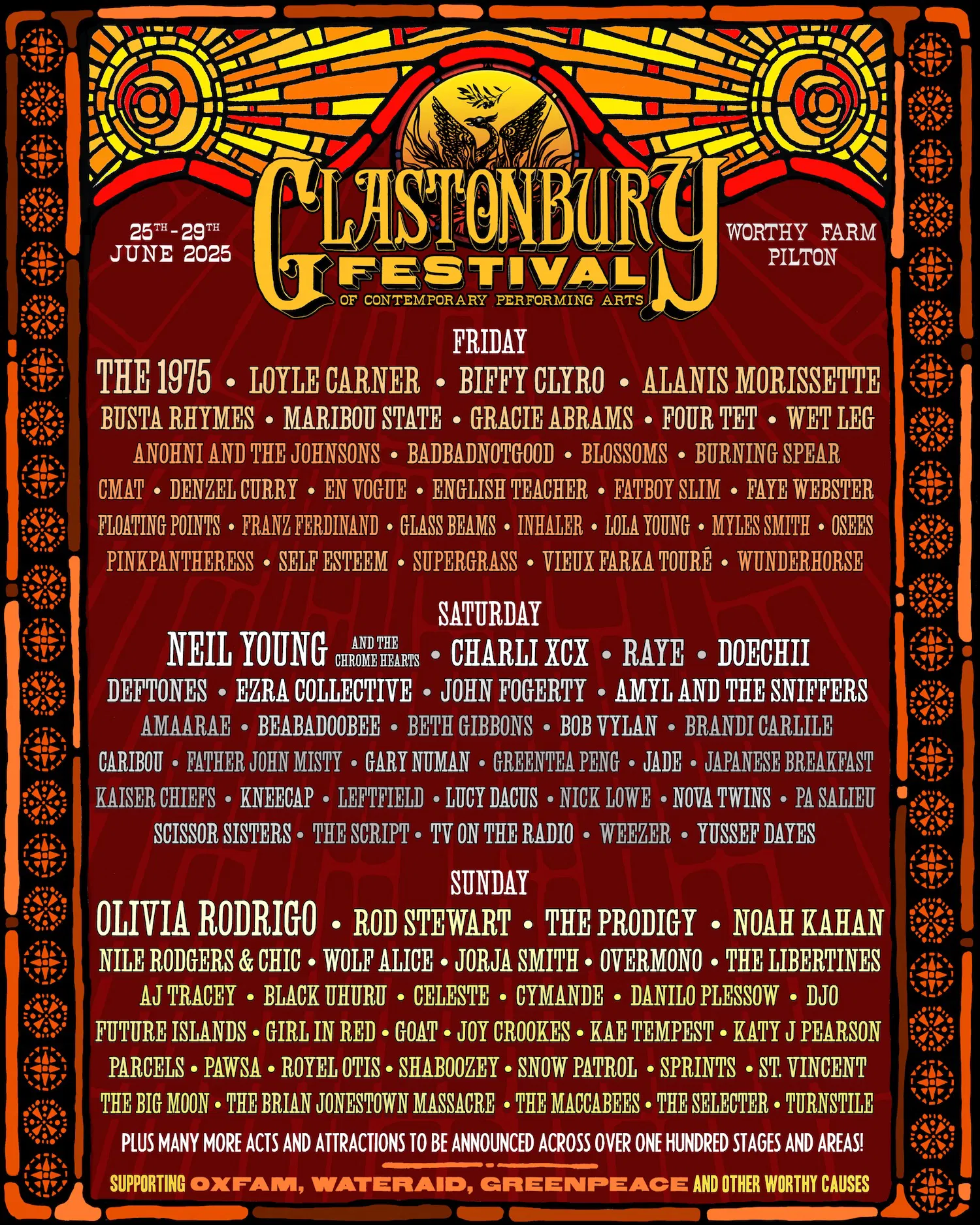
Alanis Morrisette, Biffy Clyro, Noah Kahan, Wolf Alice, The Libertines, Blossoms, Wunderhorse, Franz Ferdinand, Inhaler, Kaiser Chiefs, Kneecap, Royel Otis, Snow Patrol, The Maccabees, amongst countless others, will take to the 100+ stages at the festival in June.
I have seen others say it's the worst. There have been a lot of polarising opinions. I guess I'm in neither camp. There are some brilliant people on the bill. However, after some of the headliners and acts of recent memory, I can see why some may be disappointed.
This is only the first wave of acts, and there will be a lot more to come. More stages will be announced, and there is the small matter of secret sets. Glastonbury has managed to keep some of the biggest artists in recent years secret and watched them deliver some of the best shows, often on smaller stages.
In recent years, we had 'The Churnups' who turned out to be the Foo Fighters on the Pyramid in 2023. The Killers played in 2017, taking to the John Peel stage. Foals played the Park in 2019.
The Libertines were drafted in to fill the empty Friday slot left by Florence and the Machine, who were promoted to headliners after Dave Grohl's broken leg forced Foo Fighters to cancel.
Pulp played the worst-kept secret set in Glastonbury's history in 2011. There have been countless at Glastonbury, Franz Ferdinand in 2008, The Last Shadow Puppets in the same year. Rick Astley & Blossoms doing Smiths covers.
Here's hoping for some big secret sets in 2025.
Wolf Alice have appeared on the Glastonbury line-up. This is the first news we have heard from the band since wrapping up the 'Blue Weekend' tour in 2022. Hopefully, the announcement that the band are taking to the stage at Worthy Farm is just the start. New music from the band has to be around the corner. I've got my fingers crossed.
The last time the band took to the stage at Glastonbury, they delivered one of my favourite Glastonbury performances ever. It was a set that nearly didn't happen; the band became stranded in Los Angeles due to cancelled flights. However, despite making the show by the skin of their teeth. It did not deter them; the band were on fine form. Playing an hour-long set that saw them dip into their three-album discography and reinforced them as one of Britain's best bands.
The 1975, on the day of the Glastonbury lineup, announced a new live album 'Still.. At Their Very Best (Live From the AO Arena, Manchester 17.02.24), the album was made available on music streaming services and is set for a vinyl release in May 2025.
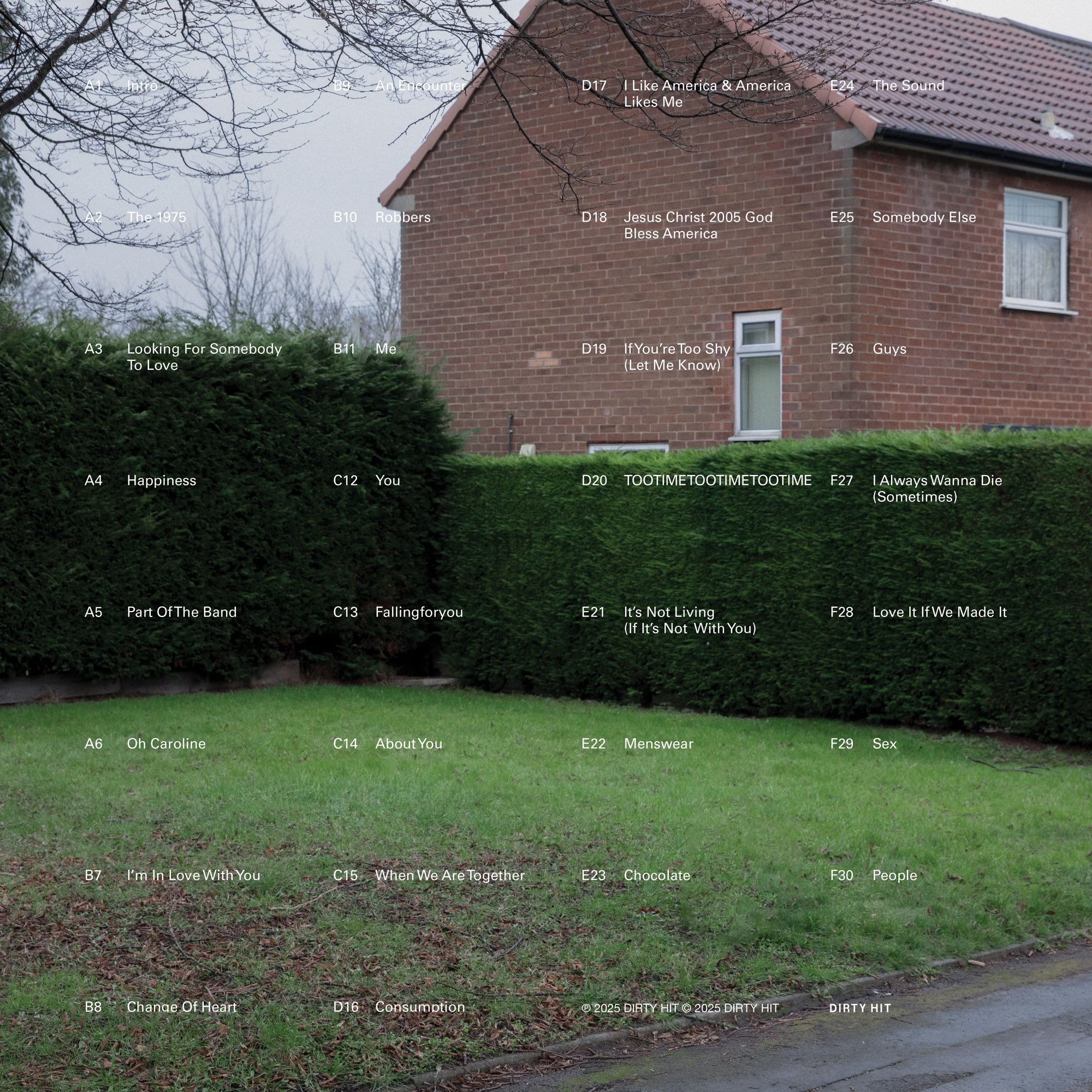
The new album features all of the songs that were played at the band's Manchester Arena gig in 2024. Including tracks from the last studio album 'Being Funny in a Foreign Language'. ‘Looking For Somebody To Love’, ‘Happiness’, ‘Part Of The Band’ and ‘Oh Caroline’. As well as some of the band's loved bangers, ‘Robbers’, ‘Fallingforyou’, ‘Somebody Else’, ‘Chocolate’, ‘I Always Wanna Die (Sometimes)’ and ‘People’
As well as some more obscure old school tunes like 'Me' and 'You'.
The new live album comes after the band shared an ‘At Their Very Best’ tour live album back in 2023, which captured their full live show from Madison Square Garden, New York, on November 7, 2022.
There is still a lot to come, some huge summer shows, and some rumoured new albums. 2025 already looks to be a huge year.
If the last couple are anything to go by, then we will be in for a treat.
In April 2025, following the announcement of a UK arena tour, Pulp announced a new album, 'More', the band's first new album in 24 years.
The band had previously signed a new record deal with Rough Trade in 2024 and had hit the road on a reunion tour in 2023. Whilst out on the road, the band treated fans to some new songs such as ‘Farmer’s Market’, ‘Spike Island’, ‘My Sex’, ‘You’ve Got To Have Love’, ‘Background Noise’ and ‘A Sunset’.
Speaking on BBC 6 Music this morning, the band confirmed that “the record has been done for a while” and the wait between records felt like “a lifetime”, before completing it in three weeks.
“[Playing live] was a big influence on it – that we played and the songs came back to life,” said Cocker. “We did play one new song towards the end of the tour, and no one threw stuff at us or left to go to the bar’
“We chose to do it quickly… it wanted to come out.”
'Spike Island' became the album's lead single and sees the band reflect on life changing. The song's title is a nod to the historic Spike Island gig that The Stone Roses played in Cheshire in May 1990. The show saw The Stone Roses perform to 28,000 fans at the site of a disused chemical plant, becoming one of the most legendary gigs of all time and seen as the precursor to the Britpop era.
Pulp have referred to the Spike Island show in the past – namely in their song ‘Sorted For E’s & Wizz’, which was shared as part of their 1995 album ‘Different Class’
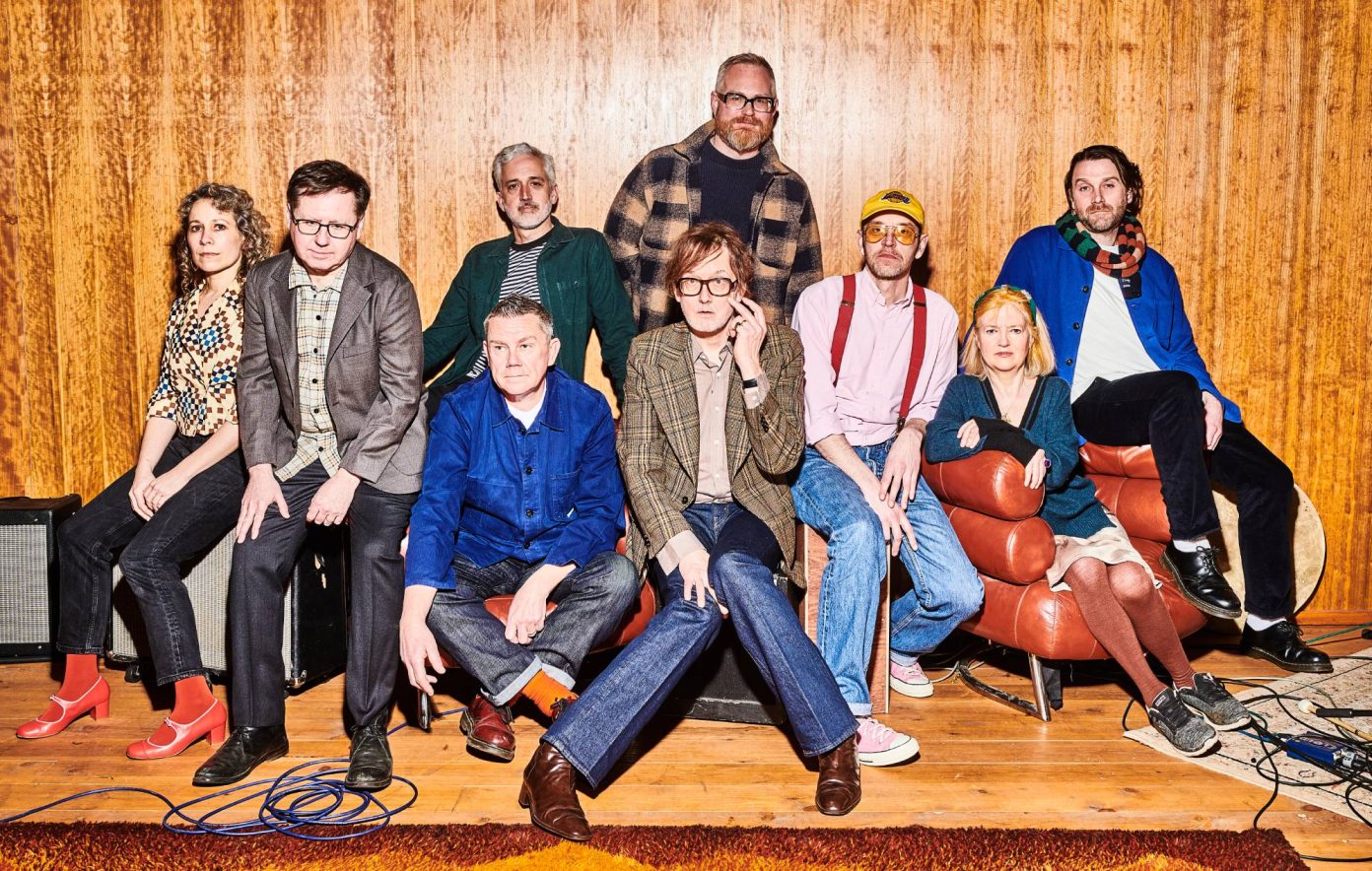
This is not only the first Pulp album for over 20 years, but it is also their first without bass player Steve Mackey, who passed away in 2023. The band have dedicated the album to his memory.
It's been quite a few years for Britpop.
After nearly three years of radio silence. Wolf Alice, 'bloomed' into life. They had previously confirmed a live return after being confirmed for Glastonbury 2025 and BBC Radio 1's Big Weekend.
There were a few cryptic social media posts, where the band seemed to be teasing something. New logos on social media. Then came an email with handwritten lyrics.
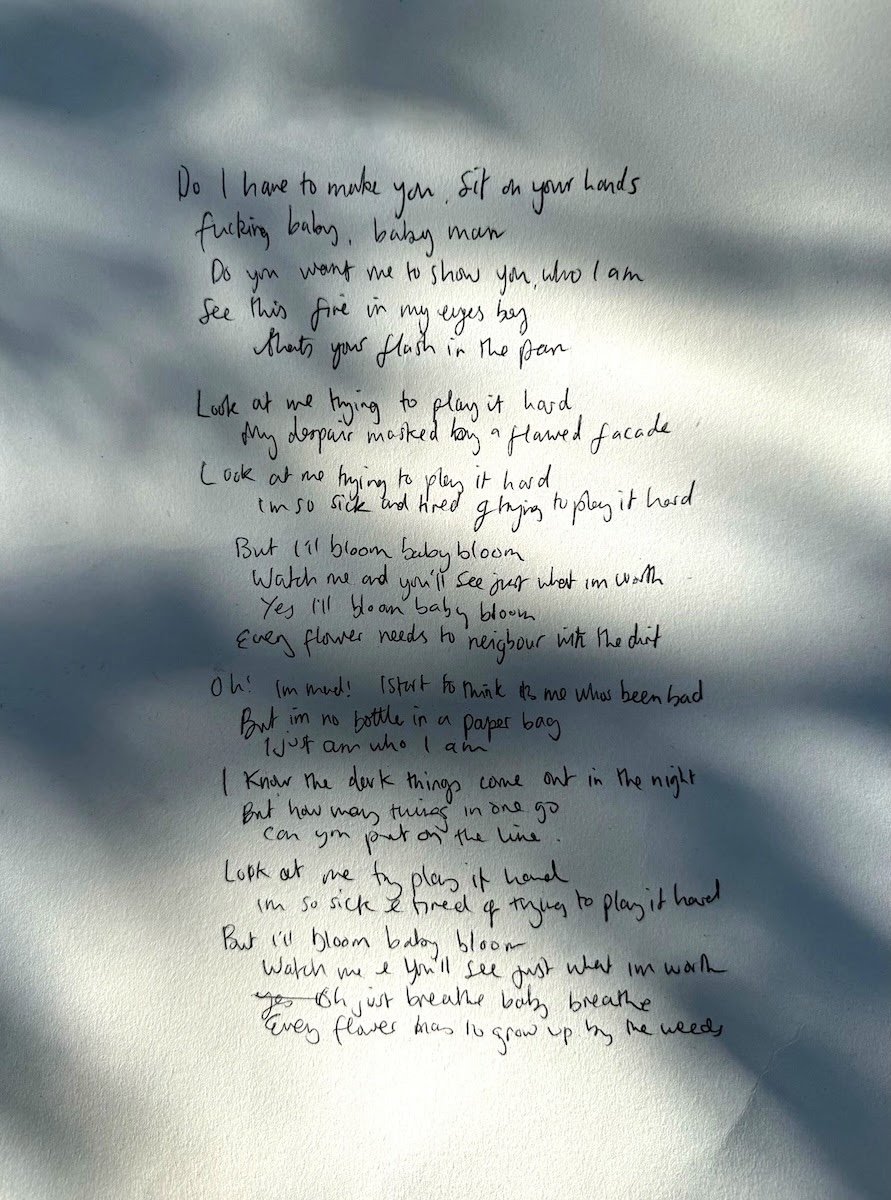
New music is definitely on the way. The band's last record, 'Blue Weekend', is one of the best albums of this decade, and the two previous efforts, 'My Love is Cool' and 'Visions of a Life', were two of the best records of the 2010s.
My hopes are definitely high for this record. They are a band who have yet to disappoint with their releases.
Oh, on Easter Sunday, we had a minor resurrection. Liam Gallagher posted this on X.
Later in the same week, Noel and Liam were spotted arriving at a working men's club in Newington Green in London. Noel then gave fans an update on a talkSPORT radio show, “I'm in the studio, noodling around. We're just getting ready for rehearsals to start now in about three weeks.“And then we'll see what happens.”
Noel then said of Liam, “I was with him yesterday, actually. He's alright. He's on tip-top form. He can’t wait... none of us can wait.”
Across the pond, Haim also announced a new album, named 'I Quit'. The announcement follows the release of two singles, ‘Everybody’s Trying To Figure Me Out’ and ‘Relationships’.
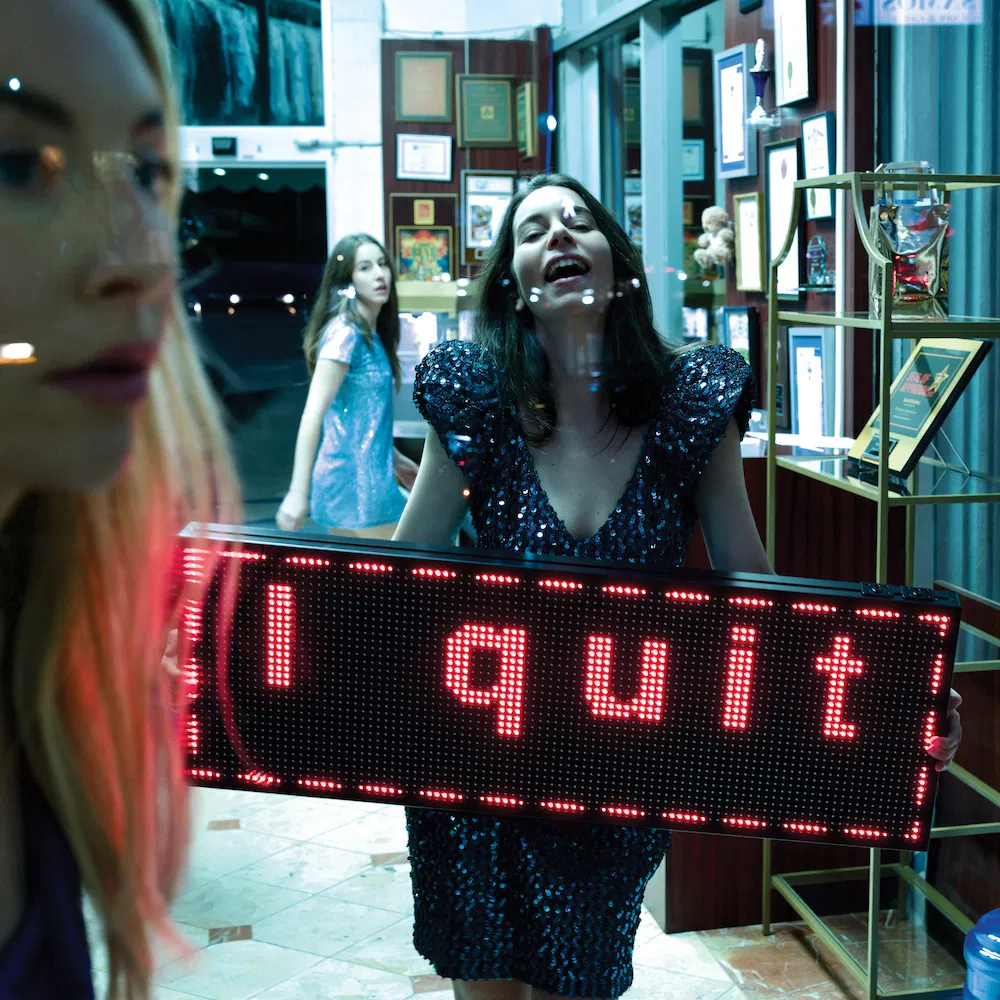
The album's third single'Down to Be Wrong', was also released on the date of the album's announcement, April 24th. It's been nearly five years since the last Haim record, 'Women in Music Pt III'. A Haim album is definitely long overdue. The album arrives on June 20th. Haim also has several live shows planned for 2025, including slots at Radio 1’s Big Weekend 2025 and Primavera Sound in Barcelona and Porto.
Fontaines DC have a huge summer planned with some huge shows across the UK and Ireland. Catch them at Finsbury Park, London, on July 5th, TRNSMT Festival in Glasgow on July 12th, Exhibition Park in Newcastle on July 13th, Cardiff Castle on July 30th, All Together Now Festival in Waterford on August 1st, Wythenshawe Park in Manchester on August 15th.
A Belfast show was announced in April for Belfast Vital at Boucher Road Playing Fields in Belfast on August 29th. Featuring Kneecap as support. All 40,000 tickets were sold in a matter of 35 minutes despite calls from Sarah Bunting, DUP group leader at Belfast City Hall. Who wanted the event's licence, revoked following Kneecap’s controversial performance at Coachella on April 18th. That show included visuals with the phrase “F*** Israel. Free Palestine,” alongside statements accusing Israel of committing genocide, backed by U.S. support.
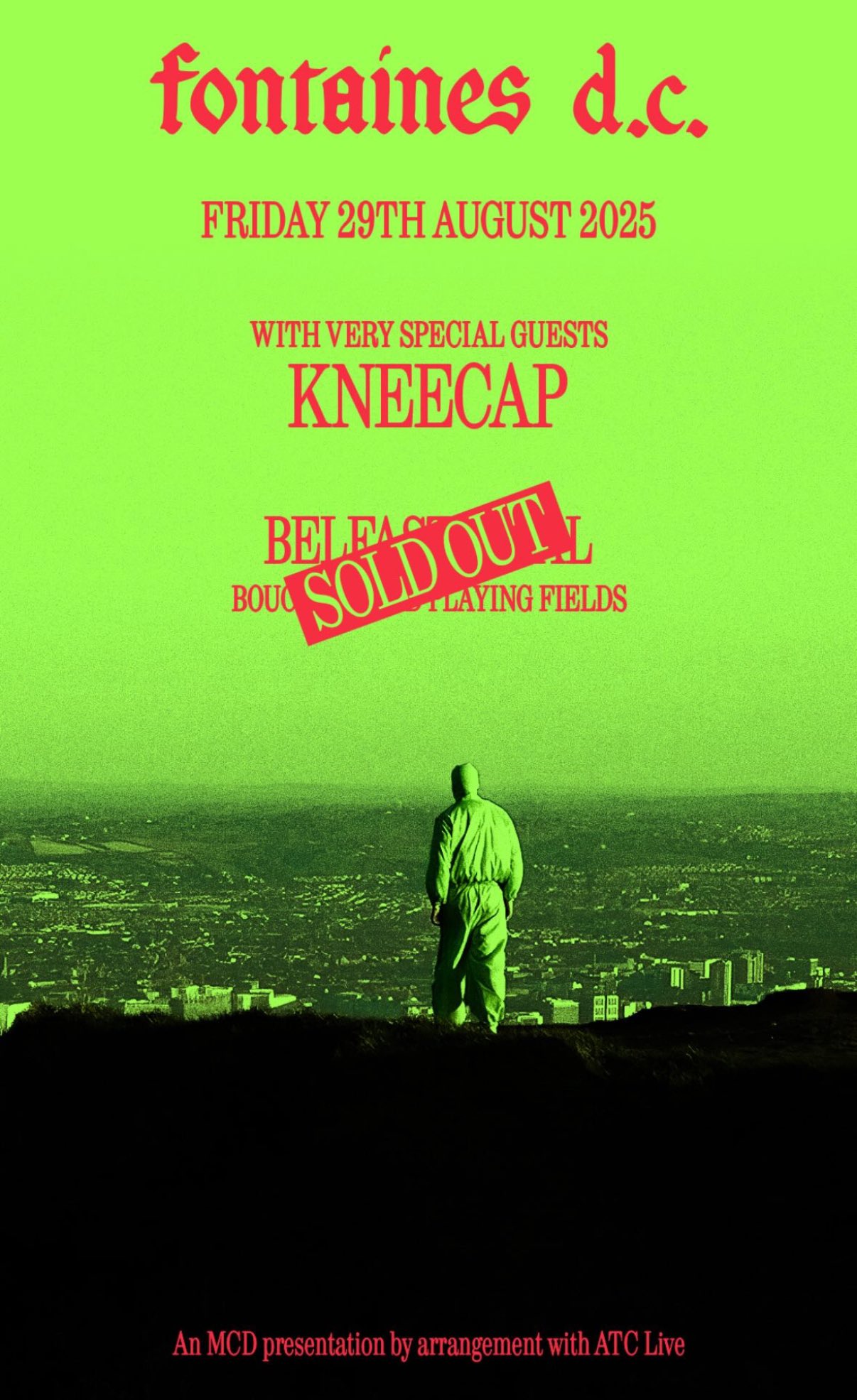
Despite the controversy, it is a big deal for both bands. Fontaines DC have been on an upward trajectory since the release of 'Romance', an album that received both critical and fan acclaim. It presented the band to a whole new audience. Embraced a diverse range of influences, from trip-hop to 1980s indie, 1990s shoegaze, and even 2000s nu-metal. In my opinion, it's the band's best.
As for Kneecap, they're one of the most vital and exciting hip-hop acts in the world right now. No surprise then that Fontaines D.C. have booked them for nearly every summer date on their tour. They have something to say, and that is what for may adds to the appeal.
The Clause teased fans on social media, with pictures of the band in the studio.
This news followed the announcement in March that the band would play their biggest concert to date, a show at Birmingham's O2 Academy on December 19th in front of a 3000-strong crowd.
The gig will see the band perform their biggest headline show, as well as a return to their hometown. It's an extra special one for the band. After their sold-out show at the O2 Institute last December, the Academy seemed like the next logical step.
Sam Fender released the standalone single 'Tyrants' digitally on his 31st birthday (April 25th 2025). The song had previously only been available physically on the ‘Me And The Dog’ vinyl EP, which was released for Record Store Day 2025 earlier in the month. Fender had served as the UK ambassador for Record Store Day 2025.
‘Tyrants’ was also featured on the seven-inch edition of his 2024 single ‘People Watching’, from his third studio album of the same name. As with the full record, the song was co-produced by The War On Drugs‘ Adam Granduciel.
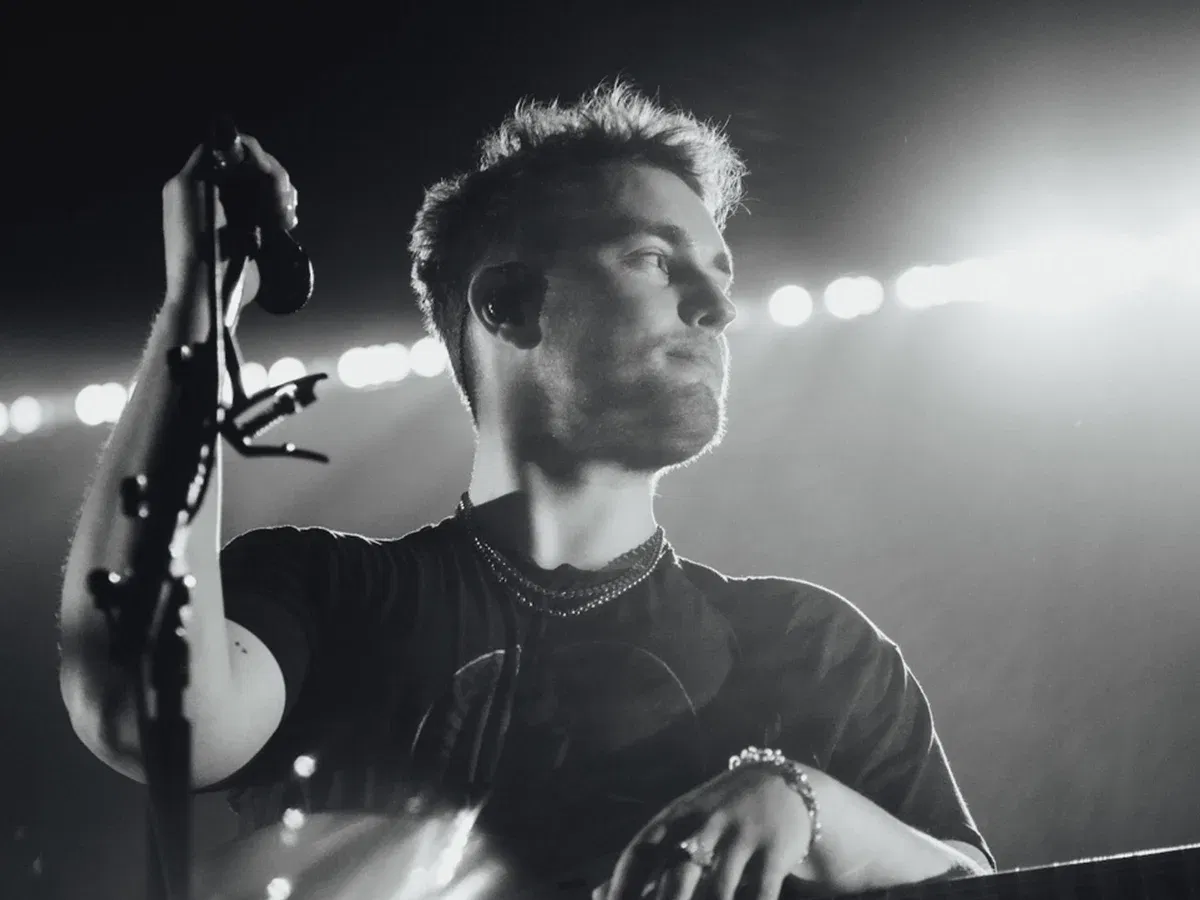
Compared with some of the other songs on 'People Watching', 'Tyrants' is a much lighter affair. Featuring backing vocals from Brooke Bentham and some American heartland guitar, this is very War on Drugs, and Tom Petty, and it sounds very, very good. Lyrically, the song is also very strong, with Sam reflecting on “the hardest lessons that I’ve ever had to learn“, saying that he “let my ego almost kill me“.
Fans are, for the most part, already familiar with the song, which was debuted during the first night of the European tour in Paris, and has featured heavily in his shows in North America. At Sam's show on the second weekend of Coachella, he was joined on stage by The War On Drugs’ Adam Granduciel, where they delivered a joint rendition of ‘Tyrants’
Stereophonics returned with album thirteen Make ‘em Laugh, Make ‘em Cry, Make ‘em Wait' in April. A short, snappy, eight-song album that sees the band embrace different elements from throughout their career. With reflective nostalgic moments, where the band, in particular Kelly, look back, 'Backroom Boys' in particular harks back to his teenage years, being in pubs and bars watching live music. 'There's Always Gonna Be Something' tries to tackle finding a space in today's world. Getting that clear moment, the clear table.
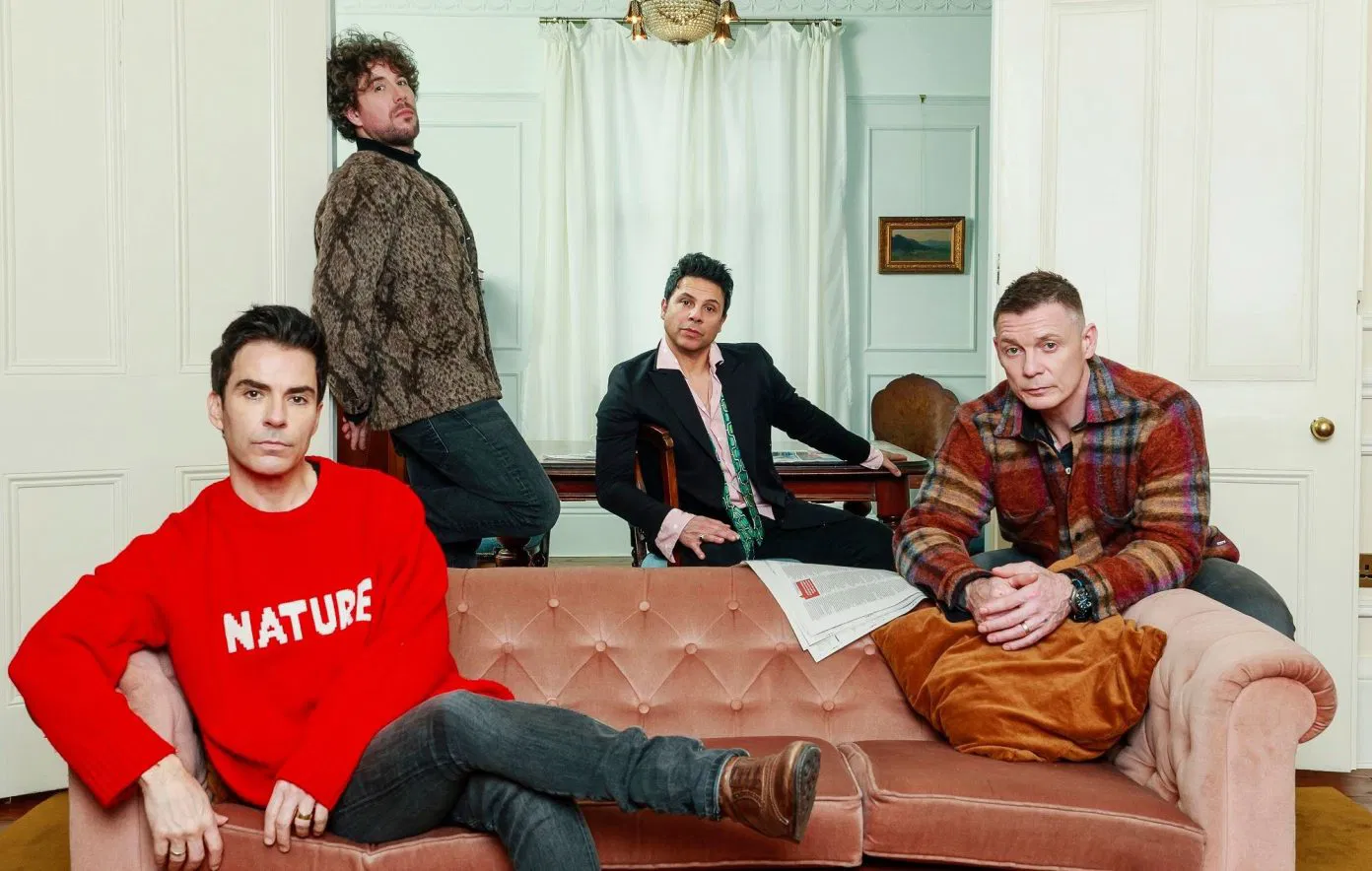
May was a busy month. The Clause announced their debut album 'Victim Of a Casual Thing, which will be released on the 17th of October 2025. The first single from the album was also released in May, 'Nothing's As It Seems'
A brilliant slice of indie pop. The Clause have been on an upward trajectory since the release of the 'Pop Culture' EP in 2023. 'Weekend Millionaire', which was released in 2024, picked up exactly where 'Pop Culture' had left off and then bettered it. After those EPs, a debut album was inevitable. I'm super excited to hear it.
If the first single is anything to go by, it will be brilliant.
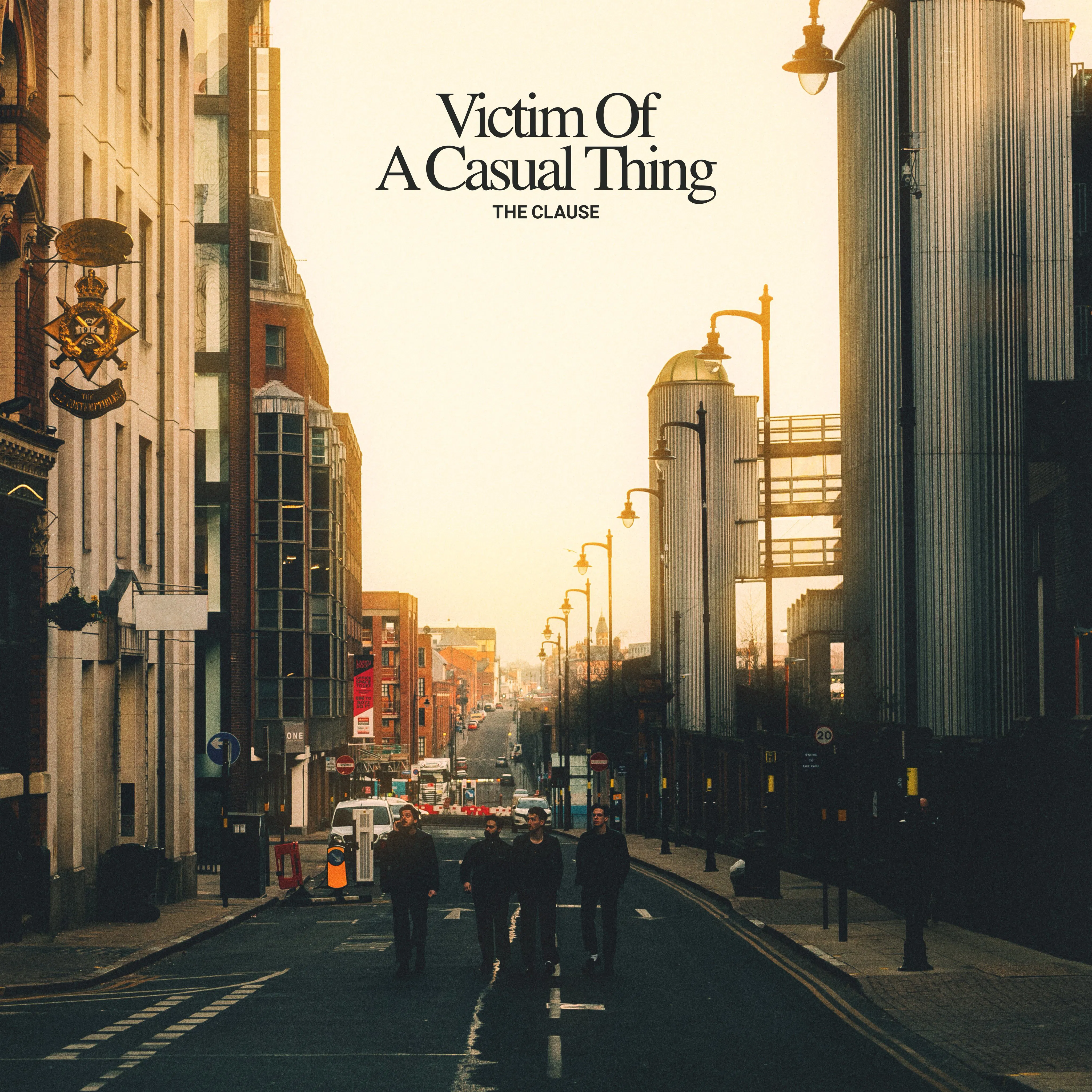
After releasing the deluxe edition of 'Gary' on vinyl and CD last year, and teasing a couple of songs, including 'The Honeymoon'. Blossoms released the deluxe edition of their fifth album on streaming services.
Songs like 'Amsterdam in the Rain' and 'Get Happy', which were previously unavailable to fans, are now available to stream.
There are some good songs in there, and it shows a real mix of the Blossoms' sound. However, I can see why they were left off the main album. Other than 'Amsterdam in the Rain', I can't say that any of them deserve a place on 'Gary'
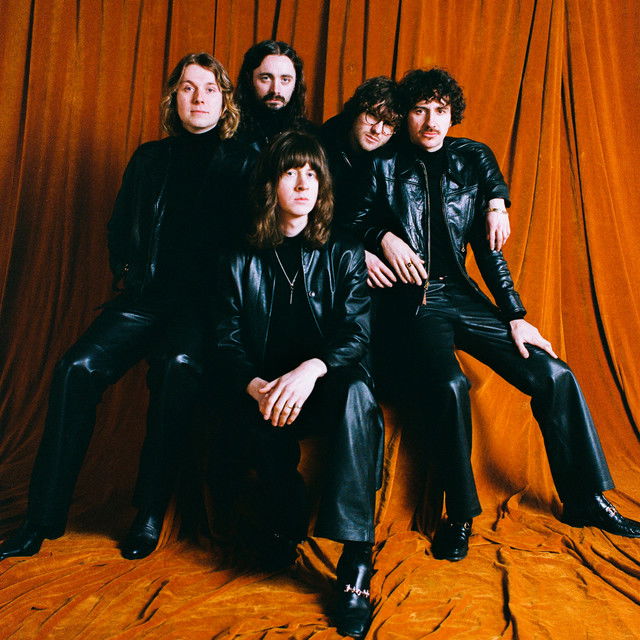
The Amazons released their fourth album, '21st Century Fiction'. Their heaviest effort yet, and definitely the best since their self-titled debut. It's the band's first album since becoming a trio. Founding member and drummer Joe Emmett has gone, but the record does not suffer.
It sees the band embrace a no-holes-barred approach; the results are brilliant. This is The Amazons' most ambitious record to date. 'Night after Night' isn't only one of the best songs by the band, it's one of the best songs of 2025. With its siren-like guitars and urgent drums, and a choir-like chorus.
'Pitch Black' is a standout track, one of the album's singles, and it's easy to see why. The Amazons are really helped on this record by singer-songwriter and label mate Ella McRobb joining on vocal duties; she adds a new dynamic, which is heard best on 'Pitch Black' and 'Night after Night'
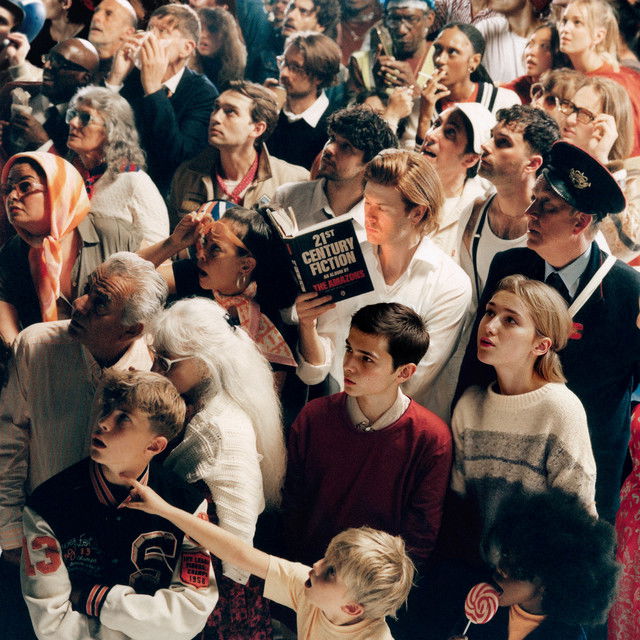
'My Bloods' sees the band receive some help from a band that they have previously supported, Royal Blood. It has the DNA of a Royal Blood song; you can tell it's Ben Thatcher playing the drums, but it still sounds like an Amazons song. It's a really strong song, it's euphoric, dark and menacing. Not all collaborations work, but this one really does.
This album is really, really good. It has some breathtaking guitar work, huge choruses and massive vocals. One of the most underrated releases of the year. A well-crafted collection of songs, this is the album that the band have been striving for, and with this one, they've struck gold.
The next release is anything but underrated, and it's definitely not understated. The type of overnight success that Sleep Token’s 2023 album ‘Take Me Back To Eden’ set in motion simply doesn’t happen to rock and metal bands anymore. In terms of the speed and scale of this phenomenon, they have no 21st-century equal in their genre. Set to headline Download Festival next month, before an autumn US arena tour that sold out instantly, they’ve arguably dethroned new RCA labelmates Bring Me The Horizon as the hottest alternative band in the world right now.
The band had a difficult task of following up that album, 'Take Me Back to Eden' had propelled Sleep Token to the masses and onto arena stages. They were no longer an underground metal group; they were one of the biggest bands in the world.
In early 2025, the band released the first single from this album, 'Emergence'. It felt familiar; it had everything that defined Sleep Token, right up until the end of the song, when the band slapped an extended jazz outro. Reminding everyone that the unpredictability that had gotten them here hadn't gone away. 'Caramel', the second single, gatecrashed into the Top 10 in the UK. In a song where the band show their vulnerabilities and, for the first time, grants us access to the troubled human behind the mask. It's a tale about dealing with fame and the band's sometimes invasive fan base. This theme is echoed throughout the album.

This album continues the band's meteoric rise; they have already become one of the biggest alternative bands in the world. The only way they can go is up. Eight-minute opener ‘Look To Windward’ could be an entire album in itself. It sets up the crossroads ahead with its unbearable, cinematic tension, which is then annihilated by a heaviness that chops through it.
'Past Self' is more indebted to R&B than it is metal, but this isn't a sound new to Sleep Token. Listen closely to the band's discography; it's always been there, maybe not in this form, or as directly as this, but it's in there. This sound carries the whole record, piano melodies and synth line replace the dominant guitar riffs found on ‘Hypnosis’ or ‘The Offering’.
Guitars are still around, though, and they are used in really interesting ways. The album's two final tracks, 'Gethsemane’ and ‘Infinite Baths’, embrace two new sounds, weaving between math-rock, stadium-rock and metal to create something truly spectacular. 'Infinite Baths' even becomes prog at some points with a guitar that sounds very much like 'Shine On You Crazy Diamond'. The album ends with one of the heaviest breakdowns Sleep Token have ever delivered; they've still got that sound, and they are still the best in the world at it.
This album rips up the rule book, shatters any expectations set by fans, and builds on the bravery of its predecessor at least sonically. Meanwhile, the lyrics reveal the most exposed version of the band and frontman we've seen yet. It's a truly special record, the best Sleep Token album yet and one of the albums of the year. It may divide longtime fans, even more than 'Take Me Back to Eden', but it will bring Sleep Token and metal to the masses. You don’t have to like Sleep Token. You don’t even have to understand them. But at this point, ignoring them is no longer an option.
Red Rum Club announced album number five, 'Buck'. With the extremely catchy and brilliant. ‘American Nights & English Mornings’. It's classic Red Rum Club, a short, snappy indie pop gem, with a massive chorus. The band's output, in recent years, has been exceptional. Since 2019, the band have released four albums, has constantly toured, and the music hasn't suffered. In fact, they keep getting better and better.
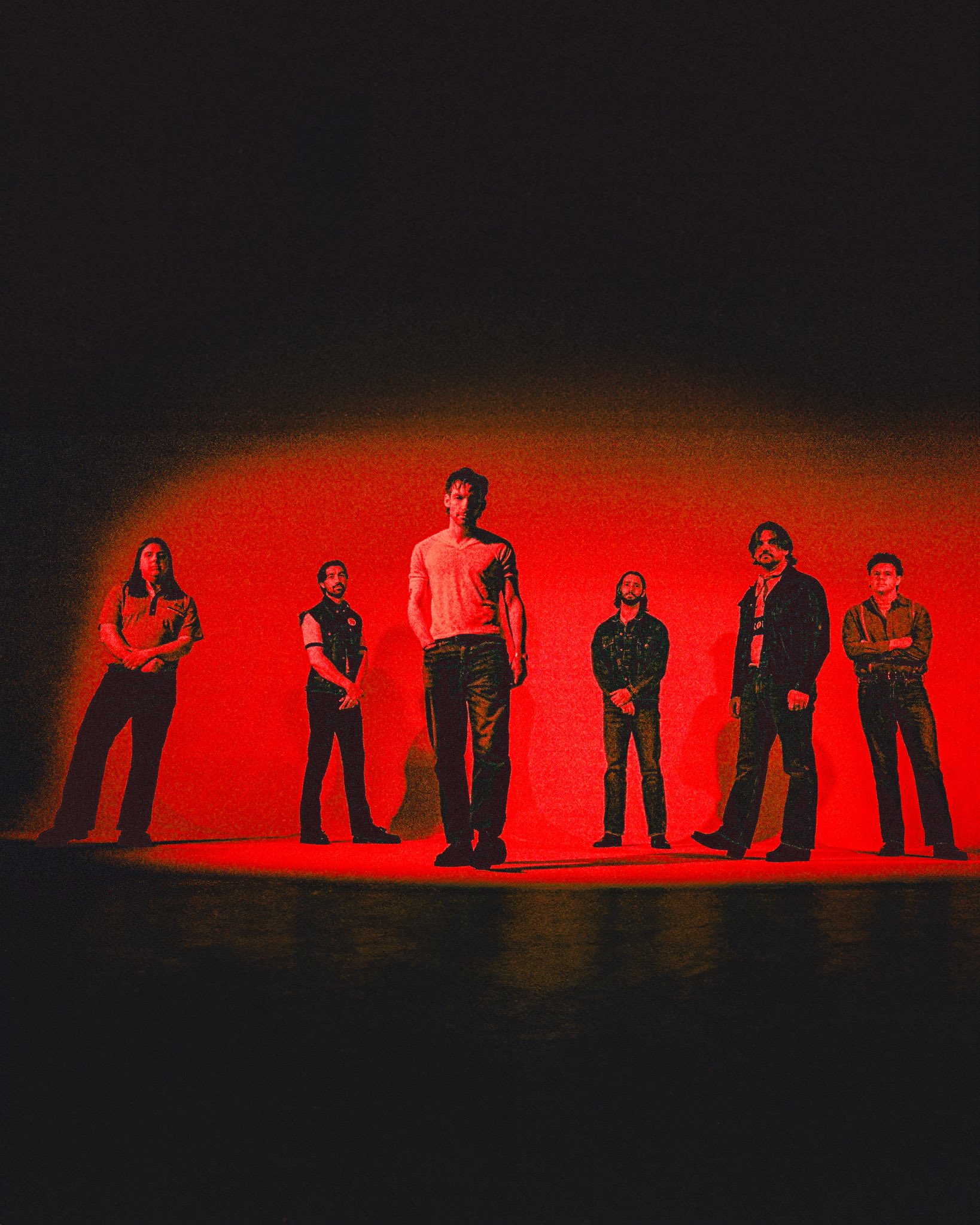
The announcement of 'Buck' happened just two days before one of the band's biggest shows to date. A huge celebration in front of 11,000 fans at Aintree Racecourse, on Friday, 16th May. A return to Liverpool, after a huge headline show in 2024, where the band took to the stage at the M&S Bank Arena.
Red Rum Club will head out on tour across the UK later in the year, playing in Newcastle, Glasgow, Hull, Sheffield, Cardiff, Oxford, Manchester, Bournemouth, Bristol, Brighton and London. The UK headline tour will be followed by another North American tour with The Wombats in October and November, which will be the band’s biggest cross-Atlantic tour to date.
The Royston Club announced their second album, 'Songs for the Spine', with the single 'Glued to the Bed'. Having released 'Shivers' earlier in the year, and 'The Patch Where Nothing Grows' at the end of 2024. Having released their brilliant debut album 'Shaking Hips & Crashing Cars' in 2023, the band have garnered a loyal and devoted fan base.
'Shaking Hips & Crashing Cars' was a brilliant snapshot into being young in the 2020s; they have a knack for writing huge, catchy choruses. This album is full of them. As well as some brilliant lyrics that explore youth, lust, love and excess. The opening track, 'The Deep End,' is full of charm and youthful joy. “Tragedy, one more indie band/ Played by both the egos of a dеsperate man”.
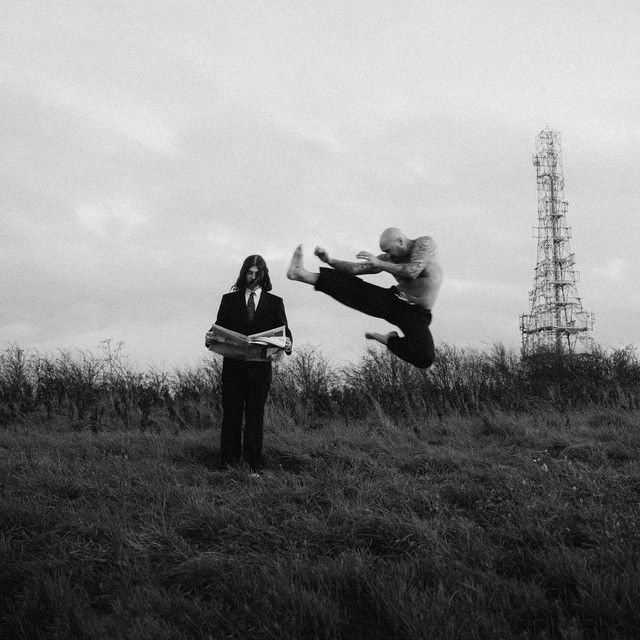
It's an album full of great songs, catchy riffs, and unbelievable instrumentation. This album is one of the best debuts in recent memory. Full of massive choruses, meaningful lyrics and confidence from a band who know just how good they are.
These new songs have seen the band up their game, taking what they have learnt both in the studio and out of the road. 'Songs for the Spine' will be a standout album in 2025.
Wolf Alice also announced album number four, 'The Clearing,' and returned with new music. After quite a lot of teasing on social media, 'Bloom Baby Bloom' was released on May 15th. It's the band's biggest statement to date, confident, expressive and electrifying. Wolf Alice seems to return with a more elevated version of themselves with every record release.
The core of the band is the same. However, this time around they arrive with a new set of ideas, a new record label, and an intent of being the biggest band in Britain. These new ideas, levels of confidence and ambitions lead us into'Bloom Baby Bloom'. It's such a larger-than-life record, in terms of sound and also in ambition. You get the sense that the band are not holding anything back this time around.
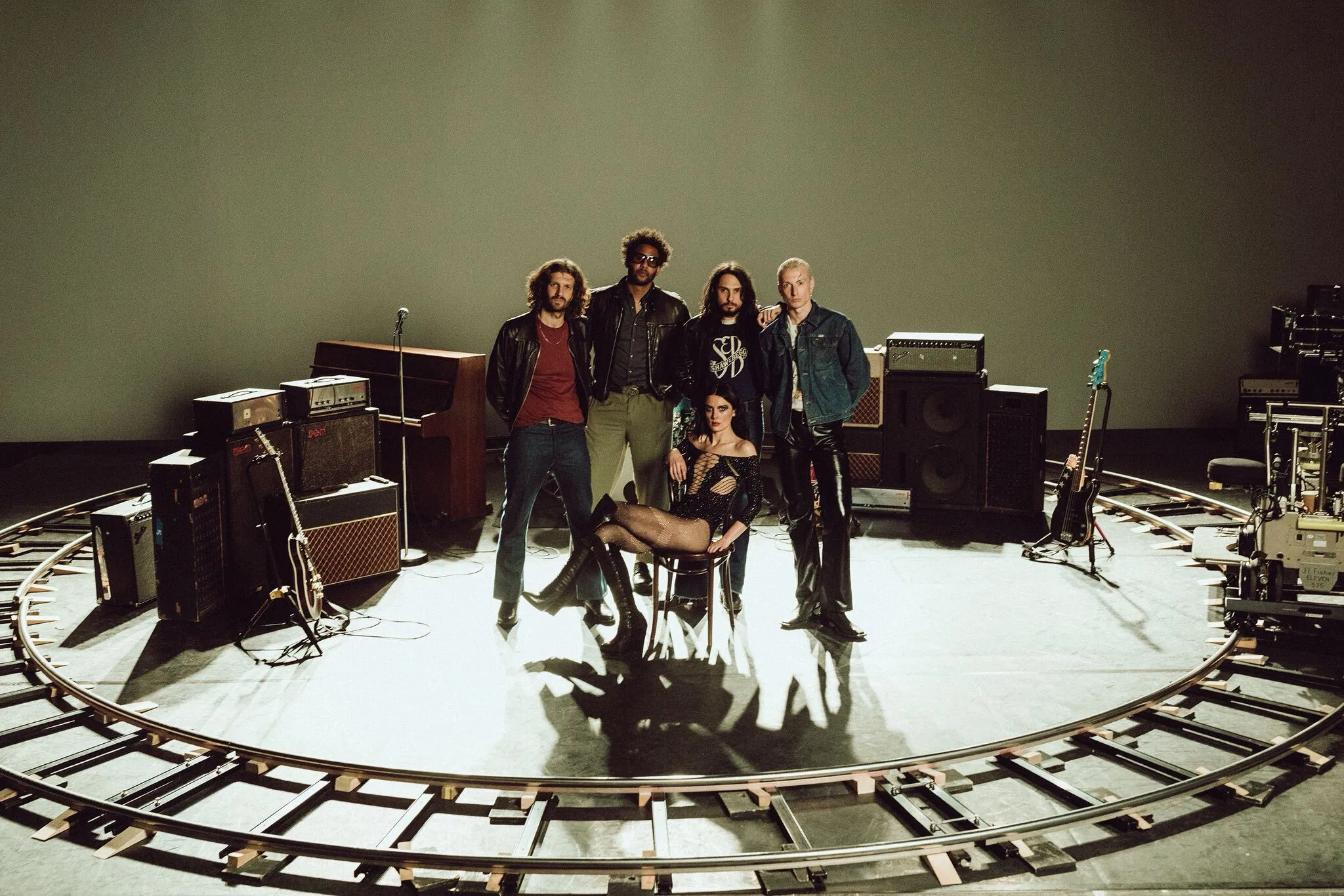
We’ve heard Wolf Alice go full-pelt into rock bangers before, but ‘Bloom Baby Bloom’ takes a different tack compared to the sludgy ‘Visions Of A Life’ or the brittle, breakneck punk of ‘Play The Greatest Hits’. Here, they pull from the ’70s palette of russet and harvest gold-hued sounds, warm and rich, even when Ellie Rowsell is giving us her raspiest yell over the top. It’s splashy and full of little flourishes: Joff Oddie’s twiddling guitar solo, a brief drum splatter from Joel Amey, and Theo Ellis’ bassline that pierces through the pre-chorus.
It's a band operating at the peak of its powers; nothing is wasted, everything fits into place. Rowsell has never sounded more incredible. Her voice has some of its most delicate moments, and then some of its most raspy and dark the next.
This was the perfect song for the band to return with; it speaks of coming into your own and emerging from whatever life throws at you, maybe not unscathed but definitely sure of who you are. “But I bloom, baby bloom / Watch me and you’ll see just what I’m worth,” Rowsell declares, serenely self-assured. “Yes, I bloom, baby bloom / Every flower needs to neighbour with the dirt.” After three albums of building and expanding their world, and experiencing the ups and downs of the music industry, it feels like the band is ready to stake their claim as one of their generation’s most important acts.
Alongside the announcement of 'Bloom Baby Bloom' and 'The Clearing', Wolf Alice have announced their biggest tour to date. Hitting the road later in the year, the tour sees them play in arenas within the UK & Ireland, a whole host of shows across America, and some massive shows in Europe. This is comfortably the band's biggest set of shows to date.
The dates kick off with a North American leg of shows and launch with an opening night at Buckhead Theatre in Atlanta on September 10. Other dates throughout the month include stops in Washington, Philadelphia, Boston, Brooklyn, Ohio and more before wrapping up with a stop in Austin, Texas, on September 30.
European tour dates kick off the following month and begin with a show in Sweden on November 5. From there, more shows take place in Denmark, Poland, Italy, France and Germany, before the UK leg of the tour starts at the end of the month.
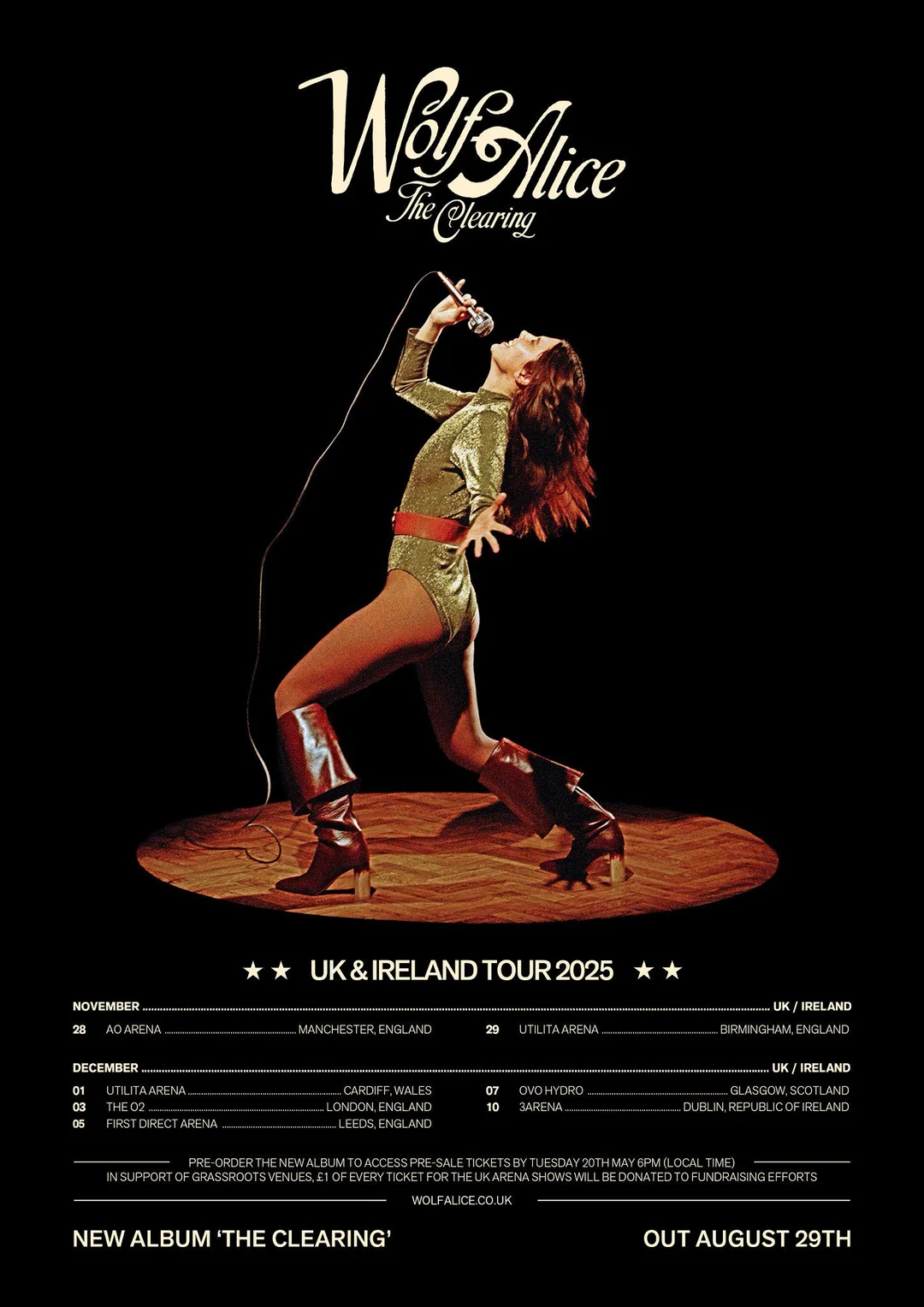
UK dates include shows in Manchester and Birmingham on November 28 and 29 respectively, before continuing into December with shows planned in Cardiff, London, Leeds and Glasgow. The tour concludes with a final night at the 3Arena in Dublin, Ireland, on December 10.
£1 from all UK tickets sold will be donated to help support grassroots venues in the country. The £1 ticket levy to support grassroots venues comes as the band’s guitarist, Joff Oddie, made an appearance in Parliament recently to help save local music spaces and highlight the struggles faced by emerging talent.
“It’s costly to build a career, and the build a career you need to go on the road. Once you get past a point, there is money to be made in the industry. Music is big business, but if we don’t fund that from the beginning, then we aren’t going to get big artists.”
The band join other artists like Pulp and Sam Fender in implementing the ticket levy at their shows.
Kneecap had quite a mad couple of months. Alongside many other acts, including The Murder Capital and Wolf Alice, they have been quite vocal about the genocide that is happening currently in Gaza. The trio have been vocal on the subject for a rather long time, but since the Coachella festival, where the group condemned America's involvement in the genocide through a series of messages on the screen.
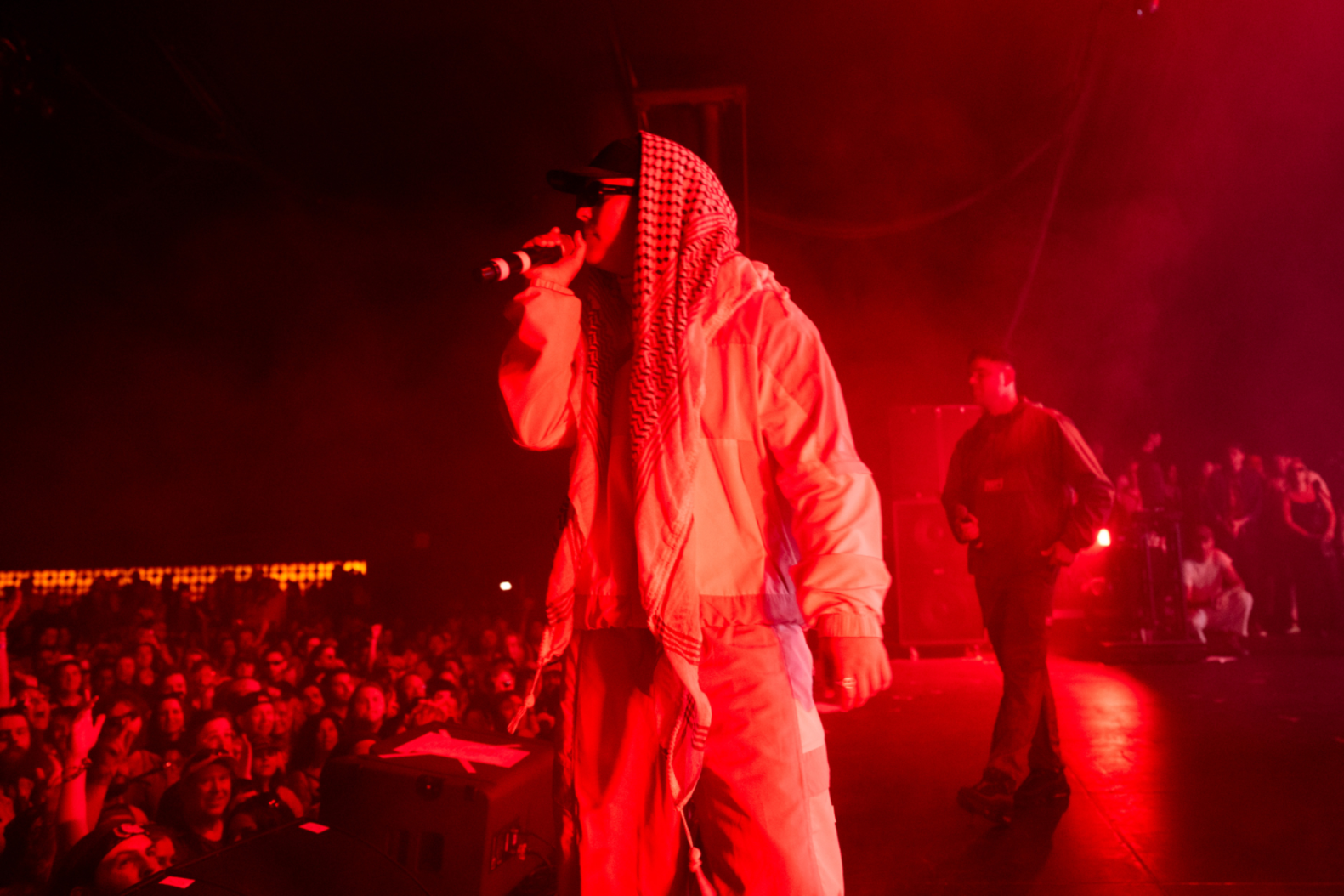
These messages caused uproar for certain individuals, and an old video of the trio began to circulate on social media. The footage was from one of the group's London gigs in 2024, recorded at the 02 Kentish Town. The video appears to show a member shouting “up Hamas, up Hezbollah”, as well as a Hezbollah flag being displayed.
Counter Terrorism Police began to assess the footage, as Hamas and Hezbollah are both proscribed terror organisations, and it is an offence under the Terrorism Act 2000 to “invite support for a proscribed organisation”.
The band have since denied supporting either Hamas or Hezbollah and has stated they would not incite violence against any individuals. They have also argued that the video footage was taken out of context.
“Let us be unequivocal: we do not, and have never, supported Hamas or Hezbollah. We condemn all attacks on civilians, always. It is never okay. We know this more than anyone, given our nation’s history,” they said on April 28.
However, the Metropolitan Police still charged Mo Chara ( Liam O’Hanna) with terrorism offences. With a court appearance set for June 18th 2025.
Despite the charge, Kneecap continued to perform. First with a surprise show at the 100 Club in London. The gig had only been announced earlier in the day (May 22nd 2025). Mo Chara arrived at the venue with his mouth covered in tape, before joking about being careful with what he said.
“I need to thank my lawyer,” he told the audience. “He’s here tonight as well.”
The performance served as a warm-up to the group’s headline set at Wide Awake 2025 in Brockwell Park, the band's biggest performance to date.

As well as the band's biggest headline show, the band has released their first new music since the release of their debut album 'Fine Art' in 2024.
A new politically charged single called 'The Recap' featuring Mozey. The band dedicated the song to Kemi Badenoch, Badenoch, the current leader of the Conservative Party, who recently shared the footage from Kneecap’s show in London last year, which was being investigated by police, and led to Mo Chara’s terror offence charge this week.
“In government, I blocked Kneecap getting taxpayer funding,” she wrote. “Labour didn’t contest the legal case the band brought, and they walked away with £14,250 of OUR money. Perhaps now Labour see Kneecap openly glorifying evil terror groups, they will apologise for rolling over. But I doubt it.”
Last November, Kneecap said Badenoch had “acted unlawfully” in her attempt to block the group’s funding, after originally accusing the government of trying to “silence” them, following a last-minute block. “This is now a fact,” they added, in response to a court ruling.
Kneecap went on: “They don’t like that we oppose British rule, that we don’t believe that England serves anyone in Ireland, and the working classes on both sides of the community deserve better; deserve funding, deserve appropriate mental health services, deserve to celebrate music and art and deserve the freedom to express our culture.”
As I said, it has been a mad few months for Kneecap.
Inhaler played their biggest gig to date. A huge homecoming show at St Anne's Park in Dublin. With a little help from Blossoms, Gurriers and Scustin.
Fans were treated to 17 17-song setlist that saw the band dip into all three albums. There were fan favourites like 'My Honest Face', 'These Are The Days' 'It Won't Always Be Like This' and 'Love Will Get You There', as well as a host of songs from the latest album 'Open Wide' including 'Billy (Yeah Yeah Yeah)’, 'A Question of You' with 'Your House' bringing an end to proceedings.
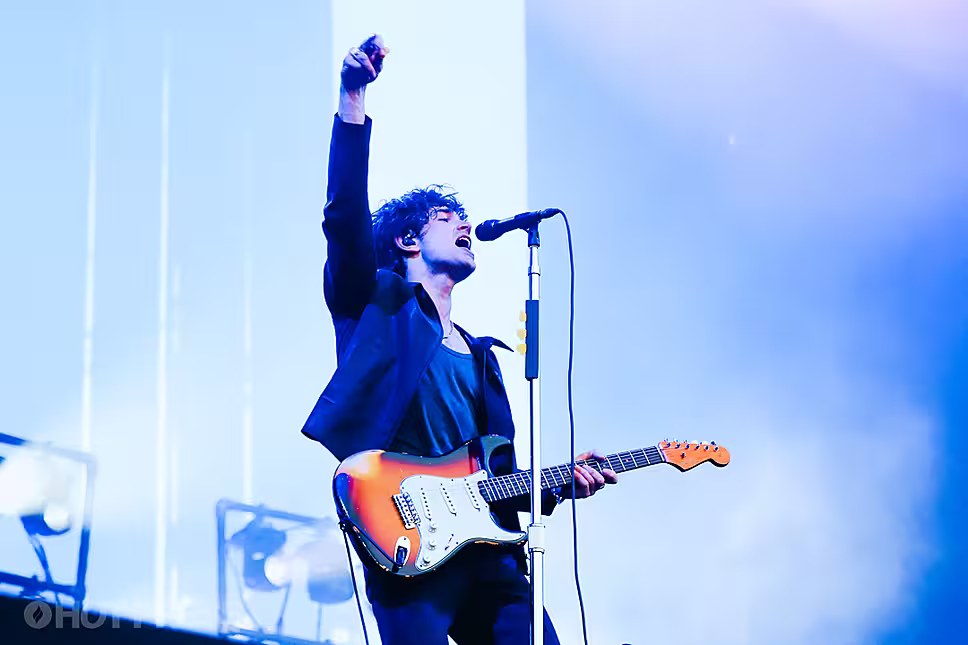
Inhaler's latest record is the most free and evolved that they have ever sounded. The stages will only get bigger for the band from here on in. The NME said this of 'Open Wide'
"Throughout ‘Open Wide’, Inhaler display a powerful confidence that’s impossible to resist. Comforting, cathartic and heaps of fun, it’s the sort of record that sounds brilliant on headphones but will really come to life, say, as the sun sets on Glastonbury’s Pyramid Stage."
I'm inclined to agree, these songs are the best the band have written, embracing stadium rock, 70s glam, 80s synths, folk, The Smiths, Britpop and taking in everything they've learnt from their numerous support slots with Harry Styles, Blossoms, Noel Gallagher, Arctic Monkeys, Sam Fender, and it's safe to say it's worked.
Wunderhorse departed ways with bass player Pete Woodin, headed out on a sold-out UK tour and released their first new music since their second album 'Midas.
'The Rope' was recorded at RAK Studios with Loren Humphery just a few weeks before the band took to the road, and does brilliantly to capture the urgent, frenetic live sound of the band.
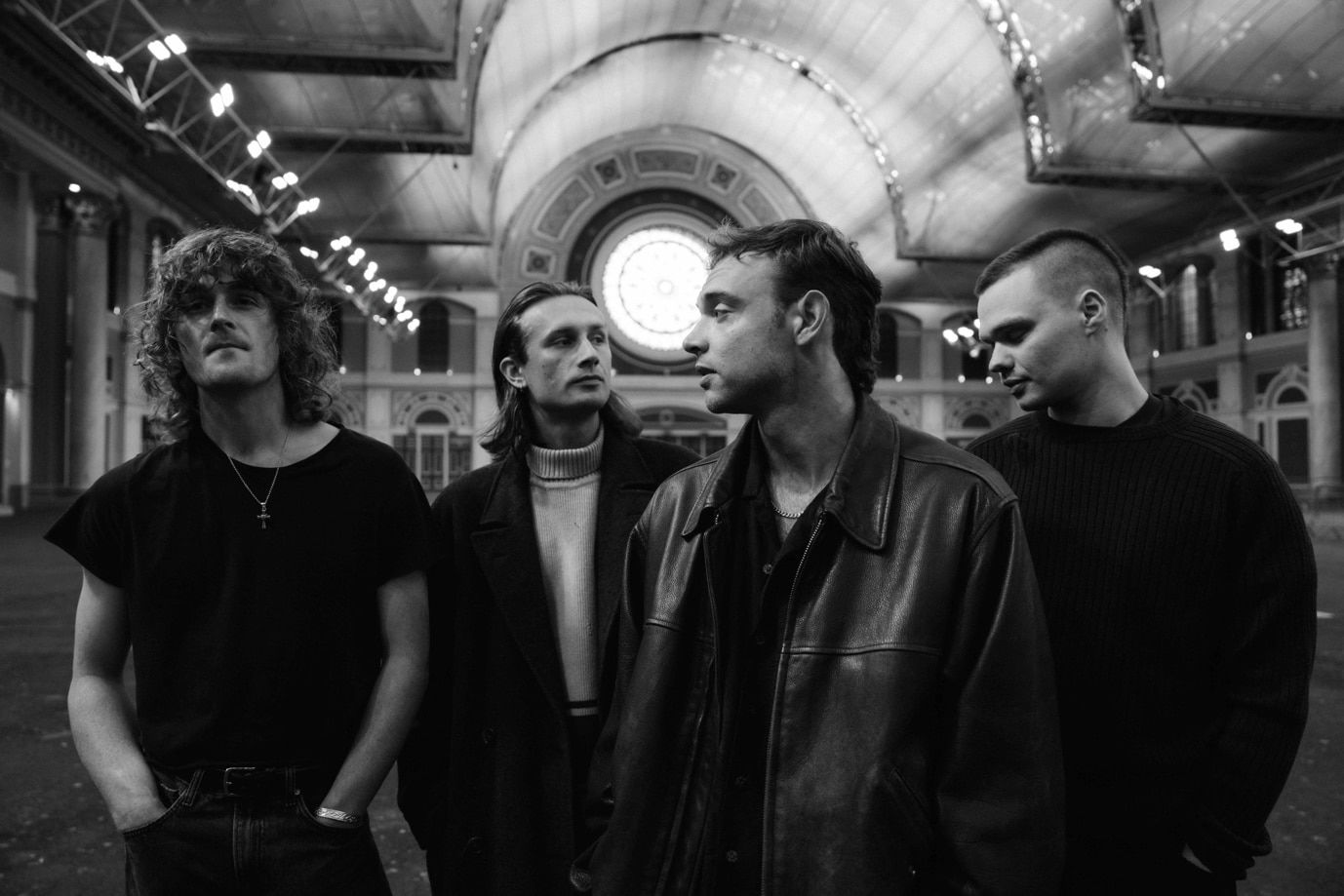
In terms of sound, it picks up where the title track from their second record left off. The song feels as if it could fit on that record and shares a lot of similarities in structure and sound with 'Midas'.
The band debuted the single on Jools Holland before it became Radio 1's 'Hottest Record in the World.' I can see the next Wunderhorse album not being too far away.
I just hope that they don't continue to use a formulaic approach. This song is a good one, but the similarities are glaringly obvious. The sound the band were hoping to achieve on 'Midas' is a good one; however, it has moments that really don't work. 'July' just sounds like a wall of noise; the band's strength is in the melody and songwriting. The songs from 'Cub' really show this, and there are definitely moments of brilliance on 'Midas', I just hope this is a side that they don't neglect.
Oasis finally began rehearsals for their Live 25 tour, with Noel, Liam, Bonehead, Mike Rowe, Gem Archer and Andy Bell heading to a rehearsal studio in London.
Liam Gallagher took to X to comment on the rehearsals, stating that there is "No time to get emotional, we have a lot of catching up to do"
Things are finally starting to feel more real for Oasis fans. I've got tickets to the Live 25 tour, and theirs still a little bit of me that doesn't think it will happen. However, the more we hear from the Oasis camp, the more confident I become.
I am well aware that there is a video doing the rounds, a recording that has been captured of the band rehearsing. However, I will not be giving that rag any time on this page. There have been a lot of questions around the authenticity and creditably of the video online, with many not believing it's real. So I won't waste your time.
After releasing the singles 'Spike Island' and ‘Got To Have Love' earlier in the year, Pulp returned with their first album in 24 years, 'More'. It also marked the band's first new music since the death of bassist Steve Mackey in 2023.
With the lead single, Jarvis Cocker declared, “I was born to perform, it’s a calling.” This reunion and subsequent new music felt as if Pulp had something to say. This self-confidence matches the band in their heyday, when in 1995 they became the poster boys and girls of Britpop. Yet soon he’s reducing his standing as one of the most iconic frontmen of the last 30 years, recognisable by mere silhouette, to simply “shouting and pointing”. The band's confidence was quickly echoed by a shy shrug of Sheffield wit and humility.
Pulp were never a band to do things by the norm, they had been around for a decade, and Cocker was into his thirties before they had their success with their fourth album ‘His N’ Hers’ and then 'Different Class'.
'More' feels like an accomplished record that doesn't try to replicate those records, but there are moments of 90s Pulp in there, 100%. Second single 'Got to Have Love' harks back to ‘F.E.E.L.I.N.G.C.A.L.L.E.D.L.O.V.E’ and ‘Slow Jam’ makes nods to their 1998 album 'This is Hardcore'.
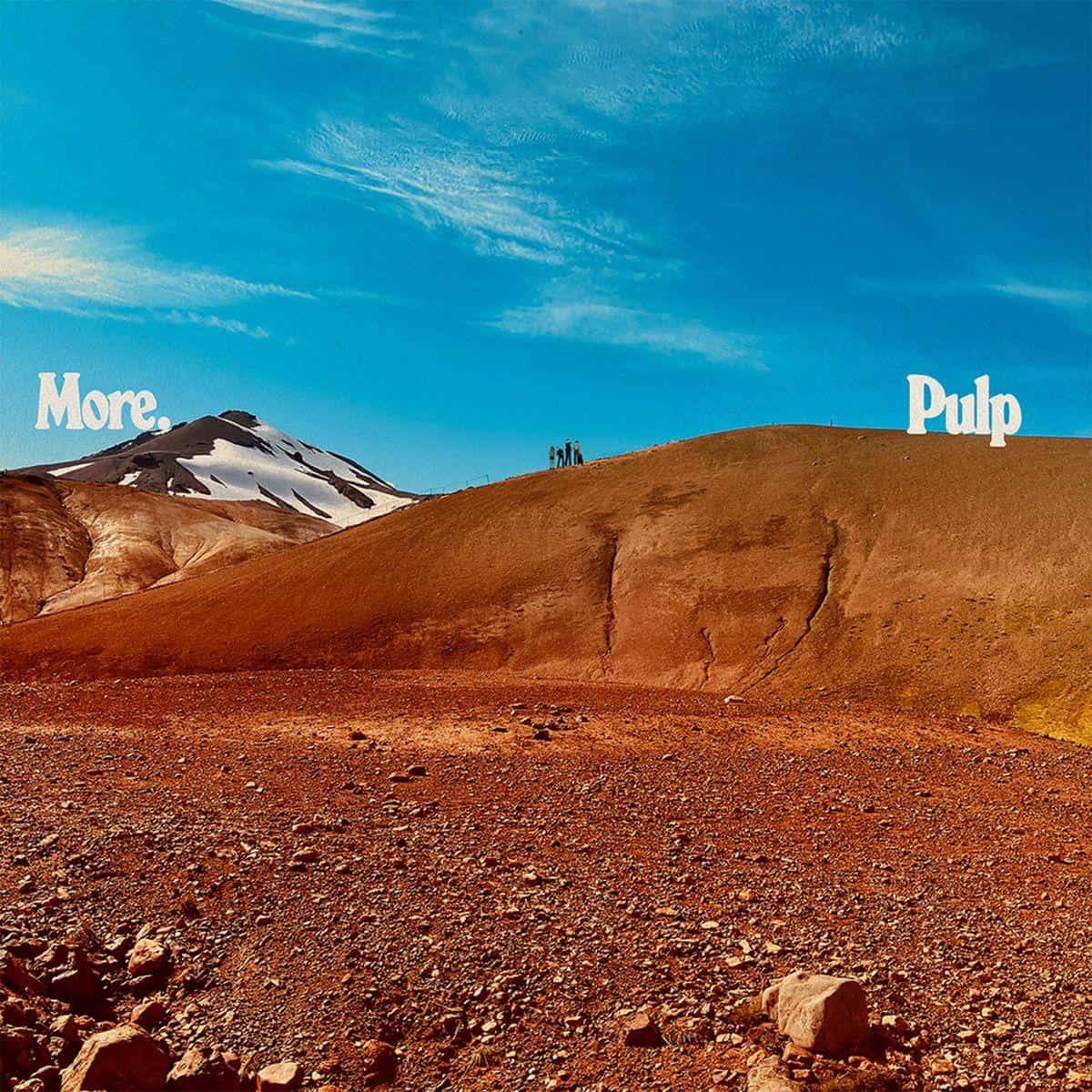
There's a lot here, though; this is firmly the sound of Pulp in 2025, not 1995. 'Grown Ups' is a career highlight, with quirky lyrics about getting older. Travel sick from his rocket ship from youth to now, having moved from Camden to Hackney and “stressing about wrinkles instead of acne”. It's firmly Pulp, but it's from a band older and wiser.
'The Hymn of the North' is a love letter to the Steel City and never forgetting where you have come from. This song was the catalyst for the album and is one of the highlights. When making this album, Pulp were assisted by producer James Ford, and with his knack for making the music sound more alive, he brilliantly used synths and strings. 'More' is everything Pulp fans should expect from the band, but also some things that you wouldn't. Just as Ford did with 'The Ballad of Darren' for Blur, he makes this album sound modern and contemporary, but also keeps the soul and heart of the band. It's brilliant.
Sam Fender began his UK summer shows with his biggest gig to date, a sold-out show at the London Stadium. A real celebration of where he's come from and where he's going. Fender has become a bastion of working-class music. Following his discovery in the Low Lights Tavern in North Shields, he has gone on to become one of Britain's biggest musical exports.
His songs are working-class anthems; he sings about domestic abuse, male suicide, money problems, escaping your hometown, drugs, and so much more. Despite the nature of his songwriting, Fender has managed to ensure that they still have anthemic choruses, and crowds have lapped it up. They just keep getting bigger.
Despite knowing that stadiums were the next logical step. He'd already played two sell-out nights at St James Park in Newcastle in 2023, and there are plans for three more this year. The songs on 'People Watching', his last record, are not stadium rock songs; they work in huge venues. His fanbase is devoted, and these songs are timeless. People know what Sam can do, and he keeps delivering.
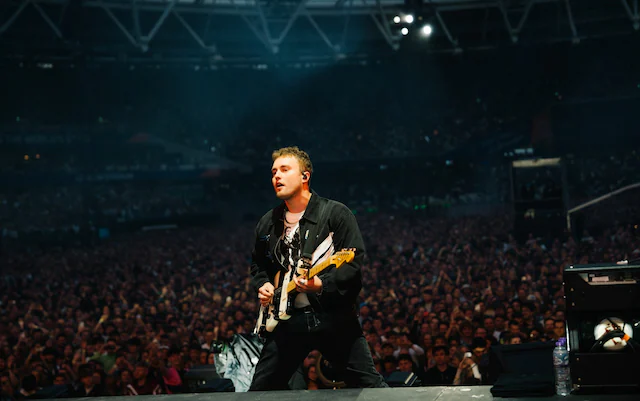
In a career that is full of highlights, Sam just keeps making more. He has become a cornerstone of British music over recent years; he's won Brit Awards, had three Number One albums, broken the Top Ten with two singles and inspired a new generation of fans to pick up guitars. His impact cannot be understated.
He's also conquered playing in stadiums on his own terms, compared with most other stadium shows. Fender’s show was a relatively stripped-back affair; there was only a smattering of fireworks and a giant video screen to enhance the gig. But with songs as good as these, who needs light-up wristbands or a hundred and one costume changes?
Sam also joined a list of musicians, including Fontaines D.C., Kneecap and Wolf Alice, to come out and speak against what is going on in Palestine. Stating at the end of the show, just before performing 'Hypersonic Missiles', that despite "writing the song in 2018, it has more relevance now". Before then, celebrating “real heroes” Doctors Without Borders and the work they’re doing in Gaza, before telling the crowd how they can get help out.
It's the first of a series of huge shows this summer, including dates in Belfast, Edinburgh, Newcastle and Belfast. Glastonbury isn't happening next year, but Sam has to be nailed on for 2027.
Stereophonics headed out on their Stadium Anthems tour, with support coming from Blossoms.
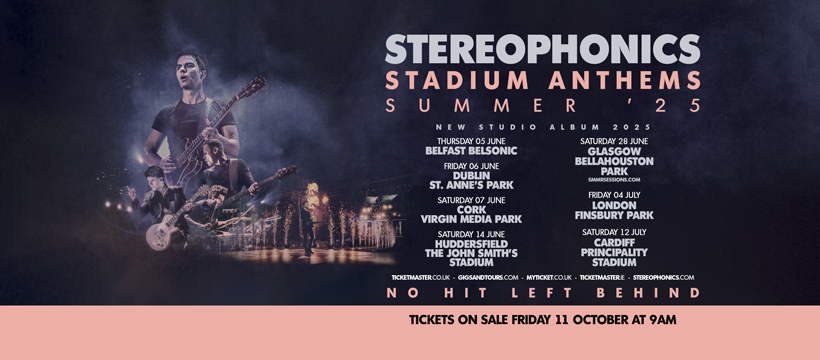
Performing songs from their new album 'Make 'em Laugh, Make 'em Cry, Make 'em Wait' as well as their greatest hits from a now 28-year-long career. These shows are some of the band's biggest to date, with huge shows in London, a couple of homecoming shows in Cardiff and some dates in Ireland.
They've got an arsenal of songs that were made to be echoed around stadiums. With decades of iconic songs behind them, this feels like a true victory lap, a celebration of a career built on powerhouse choruses, gritty storytelling, and a catalogue stacked with undeniable anthems.
From the punch of 'Dakota' to the soaring yet melancholic anthem 'Maybe Tomorrow' and the heartbreak of 'Local Boy in the Photograph', these songs have soundtracked people's lives, and continue to do so. These shows will be spectacular.
Haim returned with their first album in five years and sees the band at a crossroads. On their previous record, 'Women in Music Pt. III, the band made huge leaps, bringing their songwriting to the forefront whilst also embracing many genres, from folk to 00s garage.
With 'I Quit', the band's fourth album, Danielle, Este and Alana have dug deeper than ever before. Despite being the band's quietest album, they still have plenty to say. It's the longest gap between albums and is the band's first without Ariel Rechtshaid, who was not only a collaborator but also Danielle's ex-partner of nine years.
The sound on this record is different; this is a band comfortable with their place in the world. Drums and guitars crunch, rather than bloom with reverb, and the opening track shows a band not taking any shit. “You can hate me for what I am / You can shame me for what I’ve done / You can’t make me disappear / You never saw me for what I was!” If those lyrics don't reveal everything, the band throws in a brilliant sample of George Michael's 'Freedom 90' to really hammer the point home.

The band still blend genres effortlessly, though 'Lucky Stars' has nods to 90s shoegaze, and is one of the highlights of the album. Lead single 'Relationships' is an arena anthem, and shows a new standpoint from the three sisters after breakups and dealing with grief. A band who once sang ‘If I Could Change Your Mind’ and ‘Want You Back’ show with 'I Quit' that they now handle the idea of the end of a relationship differently.
There's a lot to unpack here, though. 'Spinning' sees the band embrace disco, and 'The Farm' has a real intimate country feel, led by acoustic guitars and sees the band get to grips with personal difficulties. The biggest compliment I can give this album is that it sounds like the bands' record collections, but they do not merely imitate; they innovate. There are so many different elements here. Slowdive, George Michael, U2, Madchester, Taylor Swift, Alanis Morrisette, Oasis. It's one of the best albums of the year.
Initially, I was a little apprehensive of this record, 'Women in Music Pt. III' is one of my favourite albums of recent memory, and I was worried how the band could follow it up, but they've more than followed it up. They have released 15 exceptional songs. This isn't the same band that released 'Days Are Gone' in 2013. The songs are darker and more menacing. In many ways, they've evolved, but in others, they remain unchanged. The band's warmth and the strength of their sisterhood still form the heart of their sound. They never dwell in despair. The painful memories are present, still echoing, but they've been shaped into lessons. Through it all, hope continues to reign.
The build-up to the Oasis Live 25 tour had been quiet. Fans had been promised an Adidas advert featuring both brothers early in the year. On June 19th, the advert premiered on Channel 4 and on the Adidas Originals YouTube channel. It was the first time a photo of both brothers had been seen together since the initial announcement in August 2024.
Described by Adidas as "a tribute to two brothers, two icons, one band, and a brand that’s been with them every step of the way".
The advert sees new and old footage of both brothers wearing the famous brand, as 'Live Forever' plays. Throwback clips of iconic moments like Knebworth and Heaton Park play throughout before the two brothers appear together at the very end of the video.
The band have partnered with Adidas to release merchandise for the Live 25 tour, including t-shirts, jackets, and bucket hats. Alongside the Adidas collaboration, the band are launching a series of pop-up stores across the UK and Ireland ahead of the tour. With the first already open in Manchester, in Spinningfields. Stores are being planned for Cardiff, London, Edinburgh, Dublin and Birmingham.
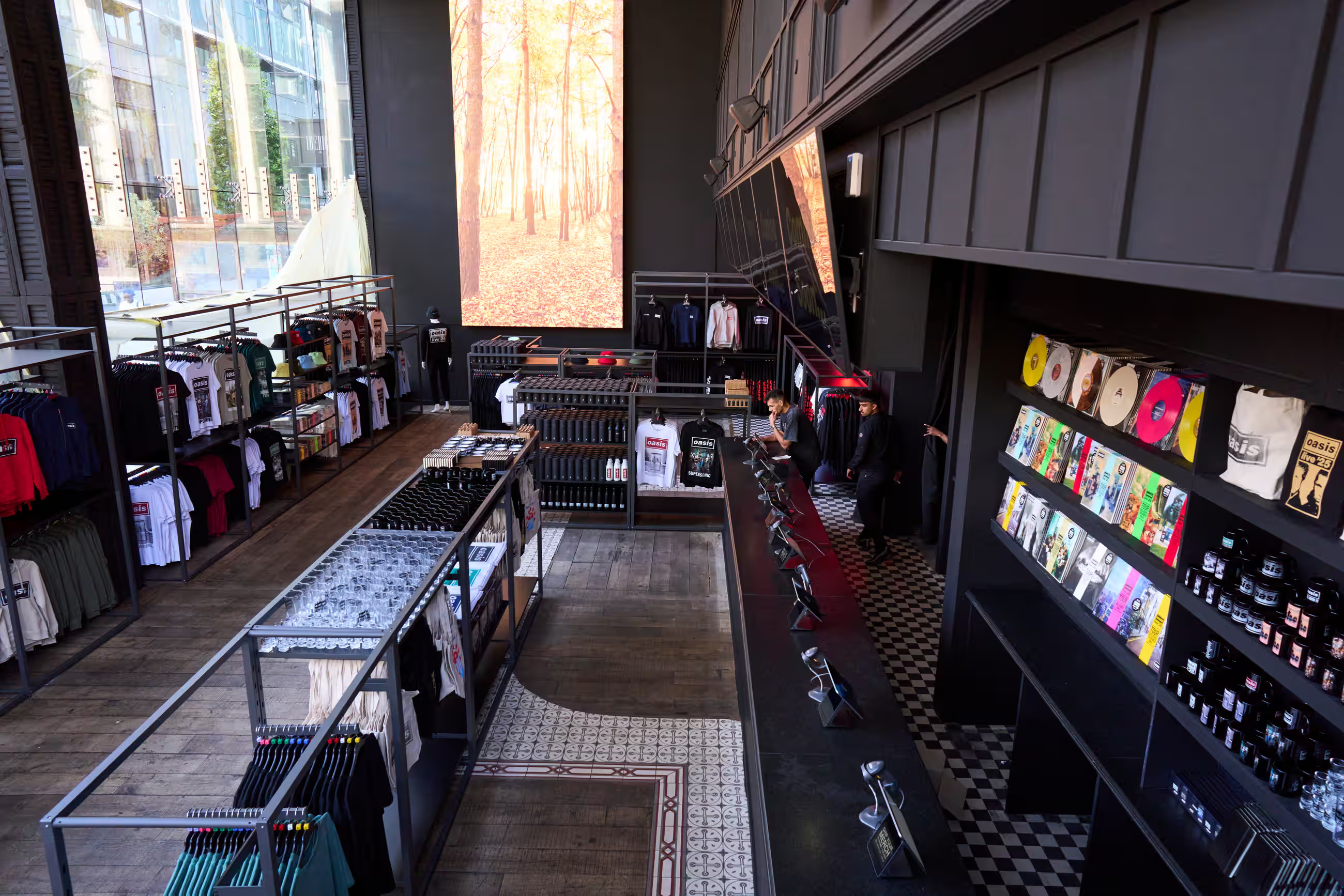
The Oasis Live 25 pop-up shops are set to become must-visit destinations for fans throughout the tour. Beyond offering official tour merchandise and limited-edition vinyl releases, these stores will showcase exclusive items from the much-anticipated collaboration with Adidas. Many of these products are unique to the pop-ups, making them the only places where fans can get their hands on rare collectables and apparel. The pop-up shops also aim to create a nostalgic atmosphere, celebrating Oasis’s legacy while giving fans a chance to connect with the band’s history through specially curated displays and interactive experiences.
Glastonbury rolled around, and it was one of the best in recent memory. With some great headline slots, some bands bidding for a future headline spot. The legends came out, too. Even the secret sets were brilliant.
From Lorde opening the festival with an album release party for her new record 'Virgin' to Franz Ferdinand drafting in Peter Capaldi to sing 'Take Me Out'. Friday was chaos.
Lorde's set was one of the sets that could only happen at Glastonbury. A really brave choice from Lorde, most of the people at Glastonbury would never have heard most of the record due to already being on Worthy Farm. Yet she keeps the crowd gripped throughout her set.

"At one point, she admits to the crowd, 'This record took a lot out of me — I honestly didn’t know if I’d ever make another one. But now I’m back, completely free.' That sense of freedom shines brightest in the final two songs of the set, ‘Ribs’ and ‘Green Light’, which bring the moment to a euphoric close. Lorde, summer is officially on."
Franz Ferdinand performed one of the most underrated sets of the weekend, and it's worth mentioning that the rest of the set, though, wasn't all just special guests and surprises. The set saw Franz Ferdinand blend the old and the new effortlessly. A fourteen-song setlist, that included five songs from their latest effort 'The Human Fear' alongside their other indie bangers such as 'This Fire', 'Do You Want To' and 'Jacqueline'. Not wanting to just play the hits, but also never forgetting the brilliant songs that got them here in the first place.

Wunderhorse proved that they are one of the most exciting bands in Britain at the moment. Playing to a packed audience at the park stage for just under an hour, the band managed to meet the pre-show expectations with a set that showed the best of both albums, as well as a potential nod to the future with an airing of the latest single, 'The Rope'.
The set was nearly an even split of 'Midas' and 'Cub', with the second album getting six songs from the twelve-song set, 'Cub' getting five, with the new single 'The Rope' also featuring. 'Purple' garnered one of the best sing-alongs of the weekend so far, and set up the second half of the band's set perfectly.
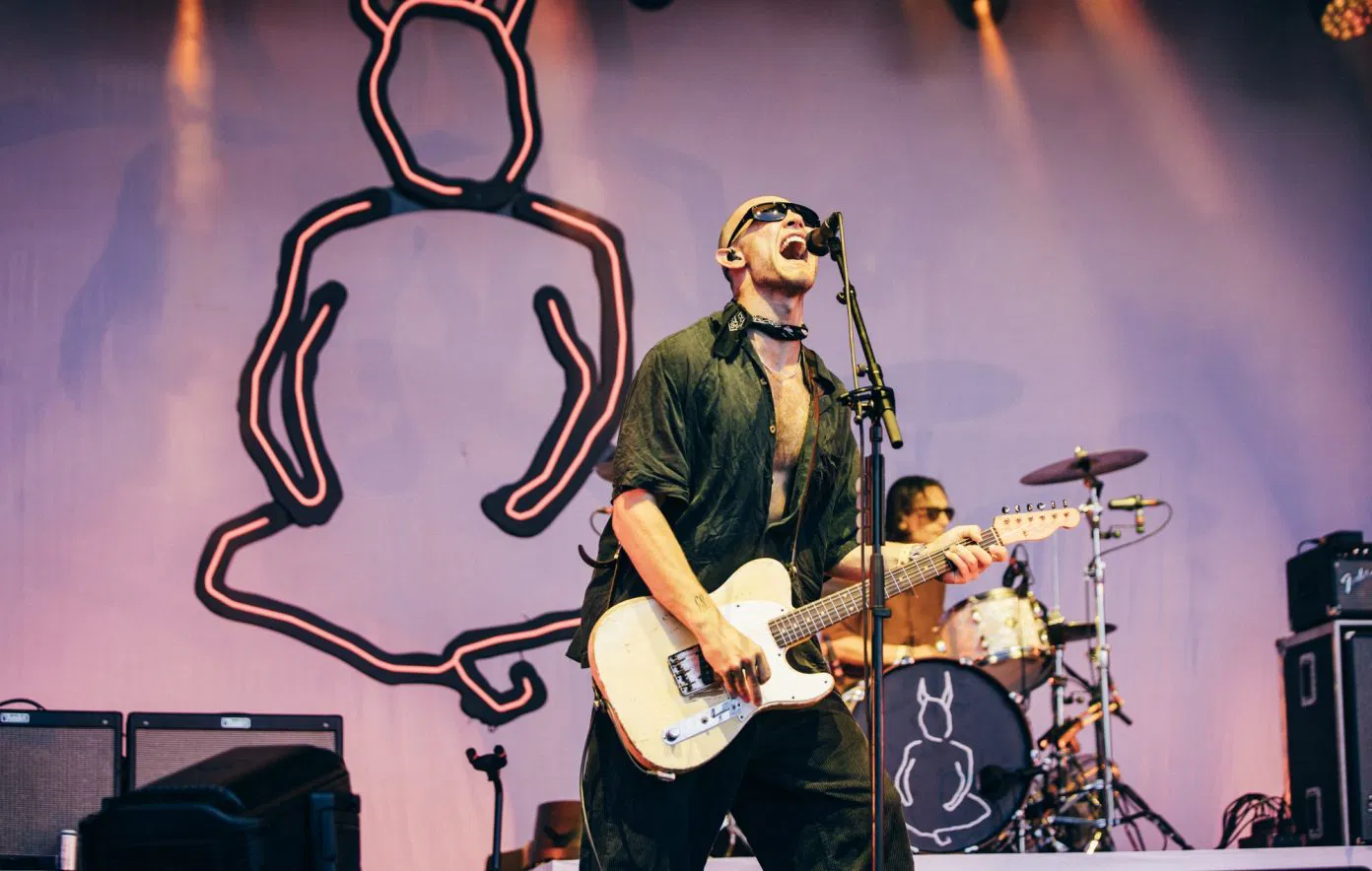
The second half upped the ante; 'The Rope' set off by green flares in the audience, feels like it's been around for years, and the Glastonbury faithful sing every word. You wouldn't think it's the band's latest single. 'Teal' may just be one of the best songs of the decade, and again, live, it becomes a whole lot more visceral and raw. The roar that the Glastonbury crowd proclaims from the opening chords is something biblical. Wunderhorse are having a Glastonbury moment, notice I said a and not the, these boys will headline one day.
Blossoms took to the Woodsies Stage at Glastonbury at 6 PM on Friday, 27th June 2025. The band are no stranger to the festival, having played several times before, most notably in 2023 on the very same stage, where they performed with Rick Astley, covering songs by The Smiths.
This time, there was no Rick, and no covers either, but there was a special guest appearance. More on that later...Blossoms delivered a 15-song set, featuring six tracks from their latest album, 'Gary'.
Tom Ogden has truly grown into his role as a frontman, commanding the stage with confidence and charm. Joshua Dewhurst remains a criminally underrated guitarist,
Joe Donovan is an exceptional drummer, and Myles Kellock expertly holds the songs together with his keyboards and synths. It was also great to see Charlie Salt back on bass after a long absence due to a hand injury.
Despite the set being cut by the BBC, the band proved themselves as one of Britain's best live bands; next time they play at Worthy Farm, they definitely need to be further up the bill.
Friends of Blossoms, Inhaler played a blistering set on the Other Stage with a new fan watching. During the set, Paul McCartney was caught on camera, in the on-stage balcony, watching the band.
Within the hour slot, the band played 11 songs, including 5 from their latest record 'Open Wide'. The band have become a well-established live outfit and have worked their way up festival billings, proving themselves as a reliable and compelling act. Their newest record provided the perfect songs for shows like these, combining catchy hooks with moments of raw emotion that resonate with a massive crowd.
'Open Wide' provided the perfect arms aloft moment, with thousands in attendance joining in unison, and Elijah Hewson, the band’s frontman, had the crowd completely in the palm of his hands from start to finish. The atmosphere was electric, showcasing how far Inhaler has come since their early days. ‘Dublin in Ecstasy’ has long been a fan favourite and was warmly received by the Glastonbury faithful.
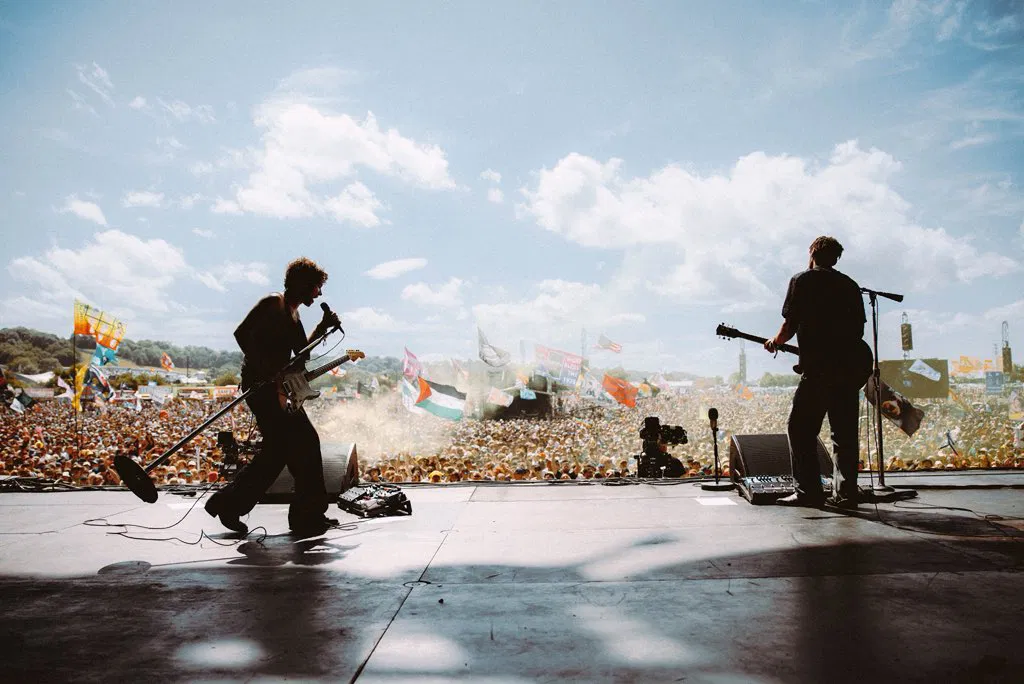
During the performance, frontman Eli Hewson used the set to take a poignant stand with Palestine. He declared, “I’d like to dedicate this next song to the people of Palestine, to any innocent people being starved or bombed, or genocide for the sake of some lunatics.” continuing saying “I feel like we have to say that because our greatest strength is freedom of expression, and there’s no better place for it than right here at Glastonbury. So, be kind to each other, and have a great time.” before launching into the band's debut single, 'It Won't Always Be Like This'.
He wouldn't be the only one to express solidarity with those in Palestine at the festival.
Another of Irelands brghest musical sparks made her Pyramid Stage debut. CMAT and "very sexy band" sashayed out in front of thousands at Glastonbury, and into the living rooms of many more. Resplendent in "International Blue" (a nod to the aesthetic of her third album, Euro-Country) and sporting a jacket emblazoned with ‘The Dunboyne Diana’, she was a high-kicking, rootin’-tootin’ force of nature. By her own admission, she is a mix of “middle-child syndrome, an amazing ass, and the best Irish rock’n’roll country band in the world.” From the full-band line-dancing to her effortless crowd control, she became the everywoman people’s champion that 2025 desperately need.

Two months later CMAT returned with new music, her third album 'Euro Country', the record was much more than viral dances and TikTok anthems like ‘Take A Sexy Picture Of Me’.
This record is profound; it’s a collection where conviction and catharsis finally sit as equals alongside the chuckles. The title track is an astonishing piece of social commentary, coining a term for her continental take on the genre while reflecting on Ireland’s place in the EU. “I was 12 when the das started killing themselves all around me,” she sings, a devastating line that anchors her kitsch aesthetic in the harsh reality of the post-Celtic Tiger financial crash.
The album balances this weight with flashes of brilliant, surrealist humour. ‘The Jamie Oliver Petrol Station’ is a five-minute psych-country therapy session regarding her irrational hatred for the celebrity chef. With a chorus that screams, “OK, don’t be a bitch / The man’s got kids, and they wouldn’t like this,” it’s a hilarious exploration of how we project our own frustrations onto the mundane.
Meanwhile, ‘Take A Sexy Picture Of Me’ is the perfect pop song for a toxic era. Written in response to fat-shaming comments on her BBC performances, it subverts the male gaze with razor-sharp wit: “I did schoolgirl fantasies / I did leg things and hand stuff... Now tell me what was in it for me?” Yet, the album’s true soul lies in its quietest moments. ‘Lord, Let That Tesla Crash’ is a heartbreakingly personal tribute to her late friend and collaborator, Jo Rose. Using a gentrified Tesla parked outside an old house-share as a symbol of loss, she reckons with the messy reality of grief: “I’d kill myself to find out if you think this song is good.”
CMAT has entered a new era with 'Euro-Country'. It is a roiling sea of charm, chaos, and piercing insight. Ciara Mary-Alice Thompson has never sounded more like herself: a superstar who can make you line-dance through the ruins of late-stage capitalism.
Headlining the Pyramid on Friday was The 1975, a set that was long overdue in my opinion. Nine years since their last appearance at Worthy Farm, and the band's only show of 2025, it was a special one. Preceded by some rather interesting rumours, figures around the pricing of their staging had already been leaked (apparently four times their fee).
However, by the time they stepped onto the stage, some of the online rumours had been squashed. Matty hadn't shaved his head; instead, he arrived with boot cut jeans, a leather jacket, a roll-up up and a pint of Guinness, complete with a pre-split G. The budget clearly hadn't gone on the outfits, but it was clear that they'd put a lot of work and money into various other areas.
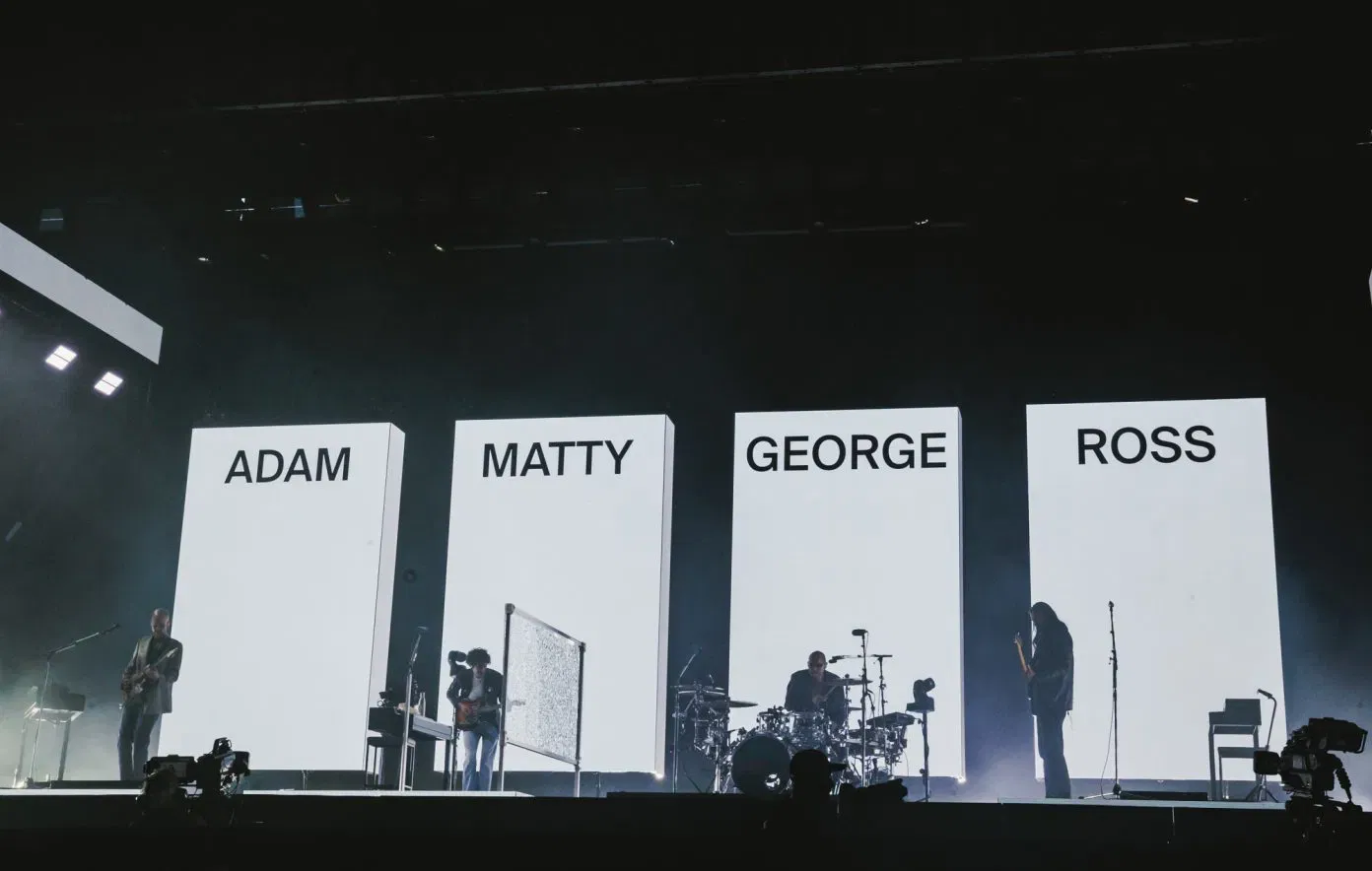
The band is a mixture of excitement and nervousness. George Daniel had admitted to the BBC that he was extremely nervous and had thrown up before they walked onto the stage. Healy was half bravado, half uncomfortable truth. Still in shock at how they'd got there. His talent as a frontman shines through. Switching from a tormented pop star with a straightforward “Glastonbury-are-you-with-us?” and then into something more earnest, highlighting that the member's friendships are central to the success of the band, and then when the lights come on and see the Glastonbury crowd, he mutters, "Oh Jesus." The band jumps between irony, self-deprecation, strange behaviour, and popstar gesturing throughout.
Opening the show with ''Happiness' from their latest record 'Being Funny in a Foreign Language, the band shows that they're not here to make up the numbers. It's a confident opening track, perfect for festival settings. They then segue into their past era's first into 'If You're Too Shy' just after his Glastonbury address, "It's the hip-shaking, headline-making, have an emotional stake in. It's The 1975."
'Love Me' and 'She's American follow, unfiltered pop brilliance that shines through the Glastonbury crowd. These songs haven't been played throughout the band's previous two tours, only getting sporadic appearances. So to play them at their biggest show to date was quite something.
Online critics have claimed that the show wasn't a Glastonbury headline show. I disagree that the band deserves their moment in the sun. It seemed that people just like to moan; everyone is allowed an opinion, of course, but some of the online discourse I saw was just downright silly. "All their songs sound the same." In a set that saw the band play 'Be My Mistake' and 'People. I defy people to tell me they sound the same.
The set was exactly what The 1975 is all about. With a performance full of humour, with lyrics flashing up on screen as Healy sings them, a touch that works especially well during 'Part of the Band', which features some of the group's funniest lines. In 'Chocolate', the band fills the screens with playful, nonsensical gibberish that somehow perfectly matches Healy’s delivery. "Oh mah hez smell like chocolate" Just before the band launched into 'Chocolate', a fan favourite, but not their most lyrically complex, Healy declared to the audience. "I am the greatest songwriter of my generation… a poet."
A line that the armchair critics quickly misunderstood, Healy is constantly being ironic, and this line perfectly sums him up.
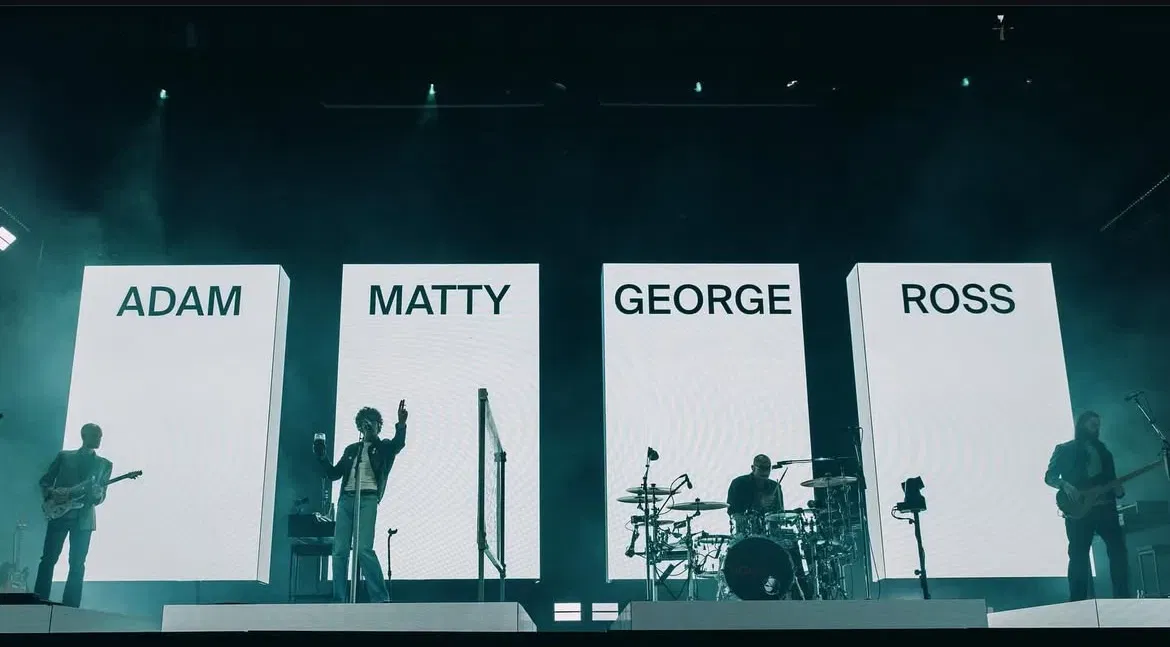
One piece of online discourse that I've heard echoed a lot, and that I agree with, is that the band played it safe, but that's a good thing. Instead of chasing headlines and inviting controversy, the band celebrated the music and, more importantly, their friendship. The 1975 have been together for over 20 years; they met at school. This was their moment; they didn't want it to be overshadowed by a statement, a line taken out of context or to be defined by one moment.
The heavy hitters are littered throughout the set. 'Love It If We Made It' is the band's most political track and one of the sharpest critiques of the post-modern world. Echoed throughout the field, and through TV screens just minutes after Healy vowed to make the show politics-free. 'Give Yourself a Try' is another live classic and one of the best moments of the show, with nods to Joy Division and some of Healy's best-ever lyrics, that sum up the band's relationship with the world they live in, and some nods to the fans to "she was a girl with a box tattoo on her arm."
'Robbers' provided fans with one of the biggest sing-alongs of the night, 'People' gave punk a Pyramid slot, and the devastating Britpop, meets Radiohead banger 'I Always Wanna Die (Sometimes)' is always a set highlight. 'Sex' is a mainstay in the setlist, and details backseat car sex, minutes after the band critiqued the world that we are all living in. Blending horror and humour, authenticity and artifice, let's remember this is a band that once said 'Sincerity is Scary'.
‘About You’ and its sweeping epic balladry bring the show to a close. Healy leaves the crowd with a poignant parting message: “It’s cool to be mysterious, but it’s cooler to be honest. We’re not going anywhere. Everything will be alright.” It’s a heart-stopping confession for a band that means so much to people. A band that has just headlined the world’s biggest festival on their own terms.
Just before the song kicks in, he makes his final speech. “We’re The 1975 from the internet, we love you guys. This song’s About You.” Delivered with such heavy emotion, for a band often surrounded by controversy. This performance, their biggest to date, felt different. The music did their talking for them; all four of them got their moment.
As the set comes to an end, the band leave the stage quietly. One word is presented on the screen; the same word that has been on George Daniel’s kick drum all evening. Dogs. It’s the perfect ending, so enigmatic, playful, so unmistakably The 1975. What does it mean? Is it the start of their next chapter? Maybe?
Saturday had a lot to follow, and it started with one of the most talked-about festival sets ever. I can't remember another set at a festival being discussed as much before this one. Now we've had two in the same week. It's just a year since their last performances, first at Woodsies on Saturday lunchtime, and then a second show at 1:30 am, which featured Grian Chatten and was attended by Noel Gallagher. Two sets that garnered the band widespread acclaim from fans and critics alike.
Despite the circumstances Kneecap found themselves in, West Holts had to be closed nearly an hour before the band walked on stage.
Leaning into the controversy, the band opened with a video showcasing news footage proclaiming them as pathetic, anti-Semitic, and terrorist sympathisers. The clip ends, showing Sharon Osbourne telling Piers Morgan that Glastonbury “has been destroyed by one pathetic band”.
In terms of the music, it's a typical Kneecap set; the build-up to the event doesn't take away from just how good Kneecap are at what they do. Mo Chara and Móglaí Bap are impressive rappers – raw-throated but dextrous, far funnier than the mass media would have you believe. Opening the show with 'Better Way to Live' with Grian Chatten's vocals played over the PA. However, you can barely hear them because the 30,000-strong crowd are drowning it out.
'Your Sniffer Dogs are Shite' sees the band encourage the crowd to open up the pits for the first time of many in the hour-long show, and the crowd obliged. The energy within the crowd was impossible to suppress. The band used the energy of those in attendance to their advantage, mosh pits opened, flares were lit, and the lyrics, both in English and Gaelic, were chanted back to the three on stage like a tidal wave.
'Fine Art' receives a rapturous response, and 'Rhino Ket' is still one of their funniest songs. A band who have been targeted as public enemy number one by the British Government, singing about ketamine strong enough to send a rhino to sleep, is very funny.
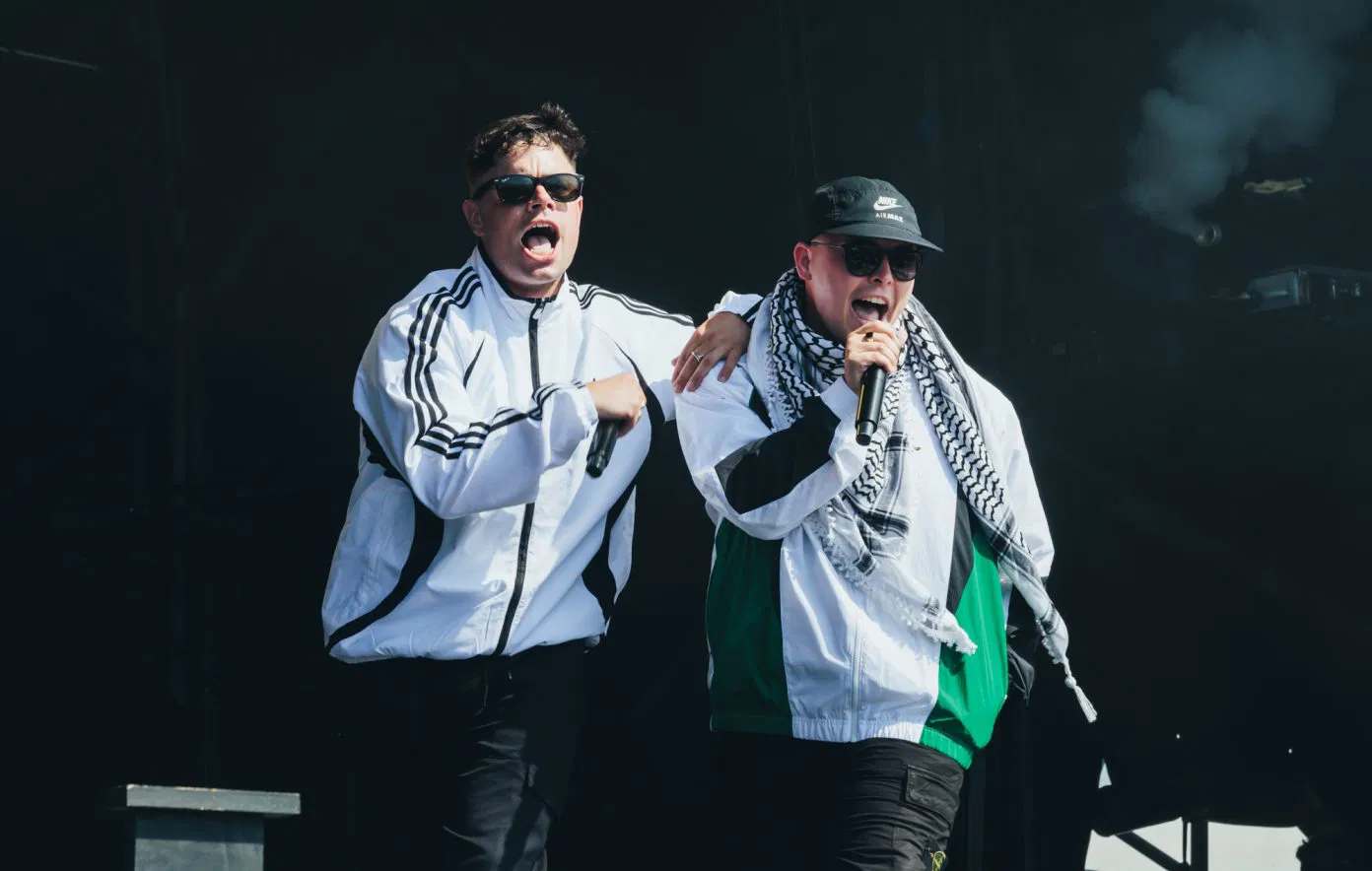
By the time 'Get Your Brits Out', 'H.O.O.D' and the latest single 'The Recap' are played, this is no longer a festival show, it's a victory lap, a clap back at the doubters, the haters and three absolute bangers for the 30,000 faithful in attendance. The band are extremely confident, in fine voice and understands the power of the show.
Kneecap has become one of the most talked about groups in recent months, for what they have described as a "trumped up terror charge.". What we really should be talking about is their stance on what is going on in Palestine, what good they are doing for the Palestinian people, their brilliant semi-autobiographical film, and their music.
Kneecap drew their biggest crowd ever at Glastonbury, and one of the biggest crowds West Holts has ever seen. It was a feral and feel-good rave of defiance against all odds and unity with each other. At a time when it seems like the world is out to get them.
Hip-hop has always been a genre that's forceful and urgent and was often seen as a symbol of the counterculture, in the same way punk was. This performance will be remembered for a very, very long time.
After that, we got the worst-kept secret set ever. Patchwork, aka Pulp, took to the Pyramid stage, to one of the biggest and best crowds. Declaring 2025 a "Pulp Summer", they launched into ‘Sorted for E’s & Wizz’, wasting no time in pleasing the enormous crowd. Song number two? Another classic from 'Different Class', ‘Disco 2000’. Two of Pulp’s most iconic tracks opened the set, making it clear they weren’t here just to make up the numbers.
Pausing briefly, Jarvis Cocker asked the crowd, “Did you know we were going to play?” The resounding "Yes!" from Glastonbury confirmed the worst-kept secret of the weekend. He then took a moment to reminisce, reminding everyone that both opening songs had debuted at Glastonbury back in 1995. That headline slot had originally come about because The Stone Roses were forced to pull out after John Squire fractured his collarbone.
Pulp followed with ‘Spike Island’, a track named after the iconic Stone Roses gig and the lead single from their most recent album. It was well received by the massive crowd gathered at the Pyramid.
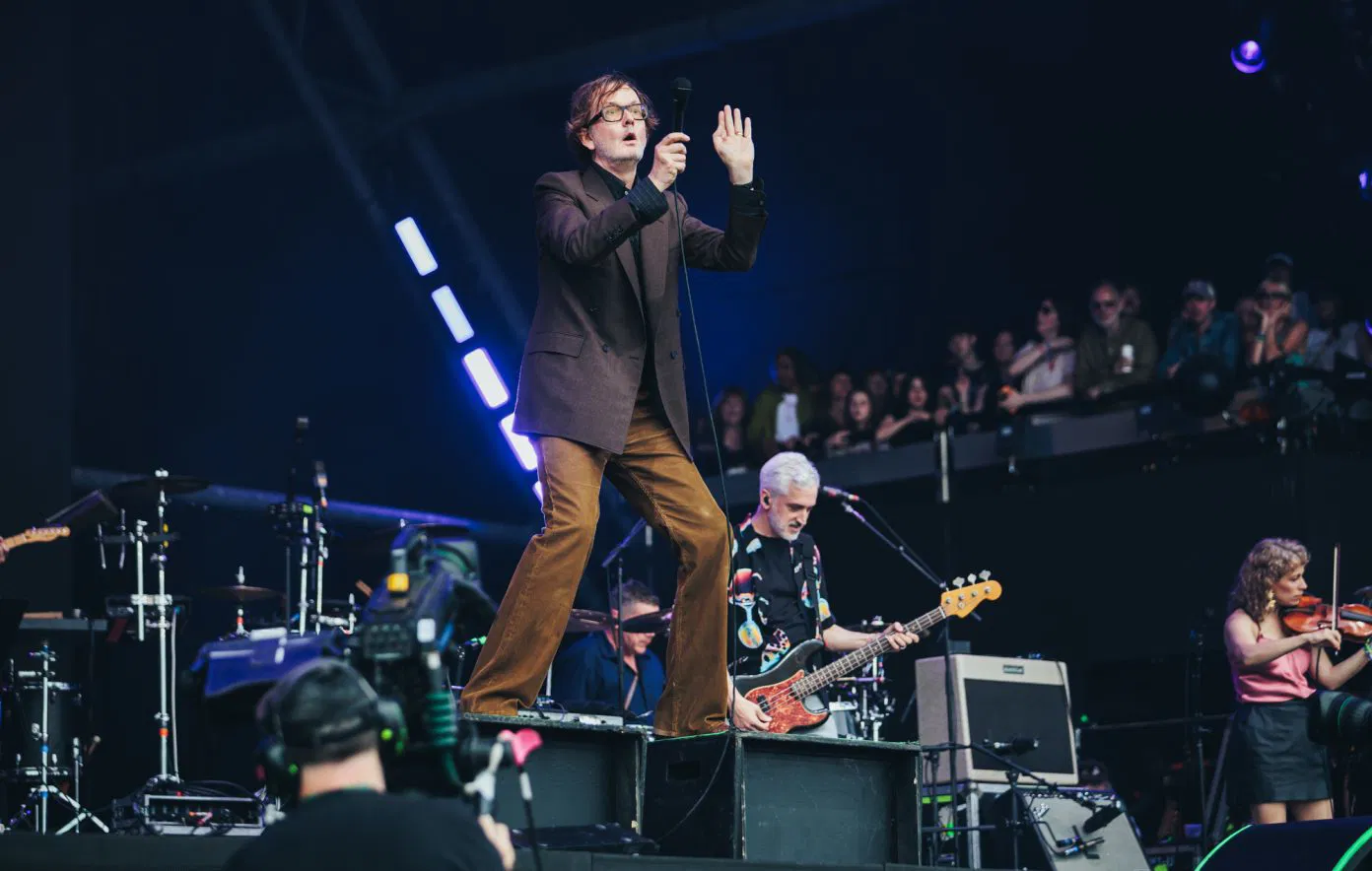
What followed was a masterclass in why Pulp remain so beloved: a beautiful acoustic rendition of ‘Something Changed’, the His 'n' Hers classic ‘Do You Remember the First Time?’ where Cocker recalled his first time at Worthy Farm, asking the crowd if they remember theirs. It was a less-than-ideal first time. “The first time I came to Glastonbury, I couldn’t handle it," regaling us with an all-too-familiar tale of losing his tent and having a bad time. “You have to submit to it,” he says of the festival. “It’s bigger than all of us.”
‘Mis-Shapes’, he dedicated to the Glastonbury faithful. “You might get called these things (misfits and mis-shapes),” he said, “but I’d still want to spend time with you.” After all these years, Cocker remains an exceptional frontman, and Pulp are still phenomenal musicians.
Of course, they closed with ‘Common People’, the definitive Britpop anthem about supermarkets, cockroaches, cigarettes, pool, and those who’ll never truly understand. As the band reached the song’s euphoric climax, a Red Arrows flypast tore across the sky, perfectly punctuating the moment.
Haim were another of the secret sets on the Saturday. 13 years, and 3 albums later, they returned to the park stage as one of the most established indie pop bands in the world.
Playing a mix of songs, some from their brilliant new album 'I Quit' and of course some classics, like 'Want You Back' and 'Summer Girl'.
“Glastonbury,” Alana began, before being interrupted by a roar of sustained cheers that made all three sisters hold their hands to their heads in disbelief. “My fucking god, this is crazy!” she laughed, visibly overwhelmed. “When our first album came out, we played the Park Stage at Glastonbury, and it was the best show I had ever played, but this tops everything. Look at all of you! Every time we get to play Glastonbury, it’s a complete honour. We love you so much.”
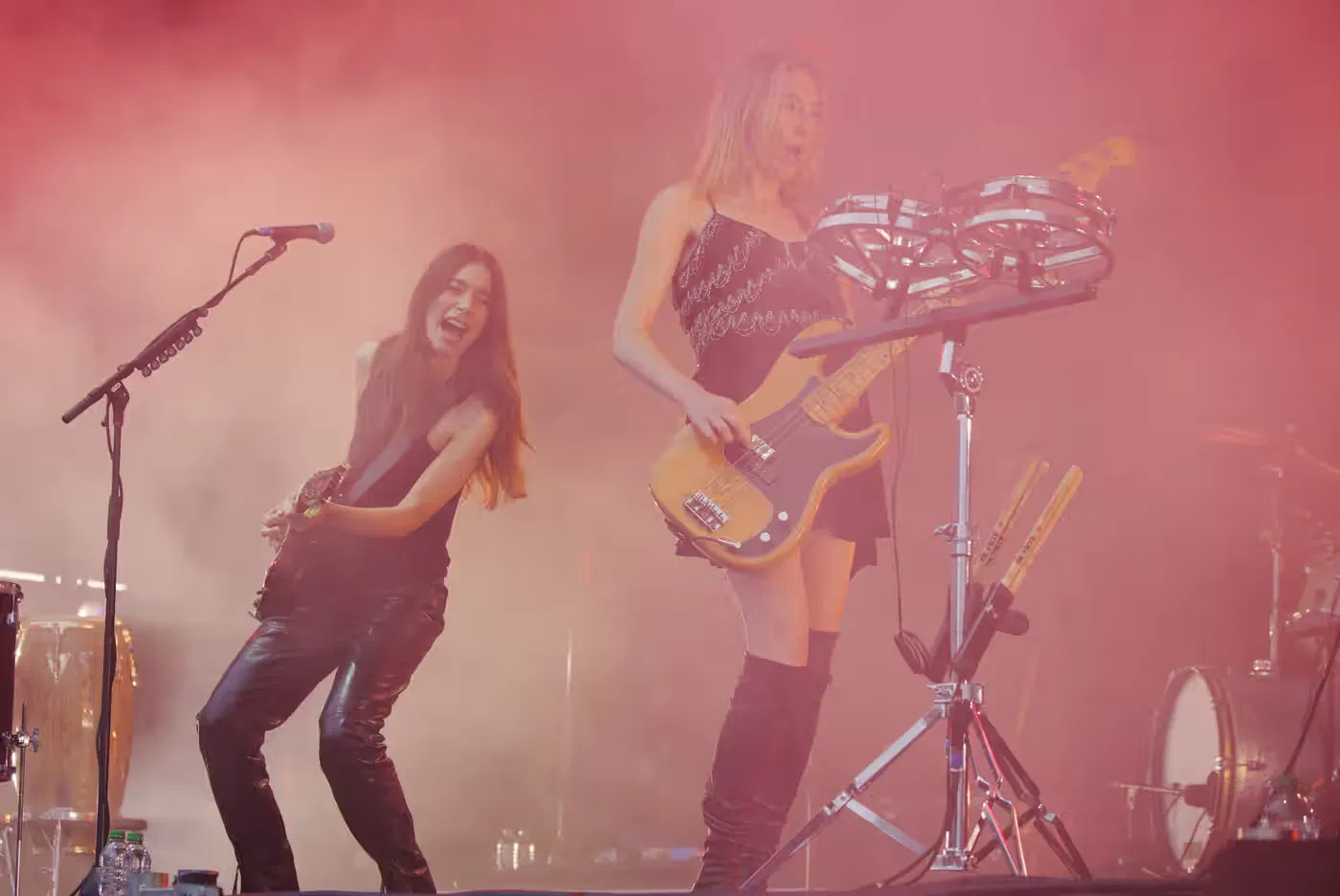
The new stuff went down really well and provided a snapshot of the band's evolving artistry from 'Relationships' with its sleek, slow-burning groove blending ’90s R&B with modern pop through to 'Everybody’s Trying to Figure Me Out' which has a more folkly country feel, and some hard-hitting lyrics.
Down to Be Wrong' brought a mid-tempo shift with direct, bold choruses about self-empowerment had an extra element live and was used to close proceedings. This song is one of the best from their latest record, with all three sisters sharing vocal duties.
But as always, it was the classics that really ignited the crowd. 'Want You Back' was a definitive peak of the set, sparking one of the loudest sing-along moments of the evening, while the laid-back groove and flawless saxophone of 'Summer Girl' felt like it was written specifically for golden festival sunsets. With the three sisters encouraging the 'Summer Girls' in the audience to get on their friends' shoulders.
Neil Young may have headlined the Pyramid Stage on Saturday, but whether you were at the festival or watching from home, all eyes were on one person: one PARTYGIRL. Just a year after hosting her now-iconic PARTYGIRL DJ night, Charli XCX took over the Other Stage, commanding a crowd of around 70,000 people.
Rumours of special guests had been rife all weekend 'Brat and It's Completely Different but Also Still Brat' featured a whole host of special guests performing on remixes of the songs, some of which played Glastonbury (Lorde, The 1975). Could they have featured? Maybe.
This show was powerful enough with just Charli, though. This was her moment, after a decade of bubbling under and then after her biggest year to date, Glastonbury was the crowning moment. Her fiancé, George Daniel, had his the night before. When The 1975 topped the Pyramid stage
Production was minimal, as was the on-stage chat from Charli, but the energy that transcended from her and the crowd more than made up for that. When she did speak, it was a very sincere moment between the artist and her fans: “I’m known to have a heart of stone, but this is very fucking emotional.”
The songs from 'Brat' have become cultural behemoths. She made an album that saw her step away from the pop world and become one of the biggest stars in the world.
Many thought that this would be the show to end the 'Brat' era after a one-two of the ‘365’ remix and ‘360’, the stage backdrop goes up in flames.

This banner has been with Charli for the whole tour. Throughout her live performances, it has become ever more tattered, with the album title gradually being scrawled out. Charli played most of the songs from the album, and they all were received well. 'Girl So Confusing’ received some pantomime boos when fans realised they weren't getting a guest performance.
The whole set was expertly conducted by a now bona fide superstar. Visually, a masterpiece, the stage show perfectly complemented her set. Charli didn't really need to say or do anything; fuelled by her music and charisma, she commanded the crowd with an enormous glass of wine. A true Brat. She opened with the 100mph remix of “365”, but the original would make a reappearance later; even as she played album hits like '360', 'Sympathy is a Knife' and 'Club Classics', it felt less like a set list and more like an all-encompassing experience. 'Apple' received all of the hype it has received on the rest of the tour, with Gracie Abrams as the 'Apple Girl'.
'Von Dutch' was probably the definitive moment of the whole set, with Charli commanding not only the audience but the BBC cameras to do as she asks. The crowd lapped it up, and for those watching at home. It made for a compelling watch; you were watching a genius superstar at work. It wasn't just the songs from 'Brat' that pleased the crowd; her older material, in particular 'Vroom Vroom', 'Unlock It', and her brilliant collaboration with Icona Pop, 'I Love It ', caused huge sing-alongs, flares to be lit, and 70,000 people to collectively lose it.

Despite burning the Brat banner, Charli made her true declaration at the end of the set. As the final strains of 'I Love It' rang out across Worthy Farm, a departing message was displayed on the big screen. “Thank you so much, Glastonbury. So we burnt it down – does that mean Brat is finally over?? Maybe it is. But probably NOT. But we had to do it. And it looked cool. I think you all have proven to me that Brat is forever <3. I don’t know who I am if it’s over. It wasn’t just a summer thing…it’s a forever thing xx”
Charli had her superstar moment on her terms. A bold, stark Glastonbury set that acted as a victory lap for one of music's most innovative pioneers, who has always been one step ahead. Who no longer has a point to prove.
Onto Sunday...
The Libertines made a triumphant return to Glastonbury’s Pyramid Stage after a decade, bringing a piece of home with them. Performing in front of a projection of the Albion Rooms, their hotel, studio, and bar in Margate. Widely regarded as one of the defining bands of the noughties, they continue to ride high on the success of their 2024 album, 'All Quiet on the Eastern Esplanade', drawing an impressive crowd.
Their 15-song set spanned their entire career. Kicking things off with the title track from their debut album 'Up the Bracket', they wasted no time, diving straight into The Delaney' and 'What Became of the Likely Lads'.
The afternoon's big sing-along moment came with 'Music When the Lights Go Out', as Doherty and Barat shared vocals in a way that felt like 2004 all over again. 'Run Run Run' stood tall among the band’s finest work, setting off a four-song streak that could rival any performance of the weekend.
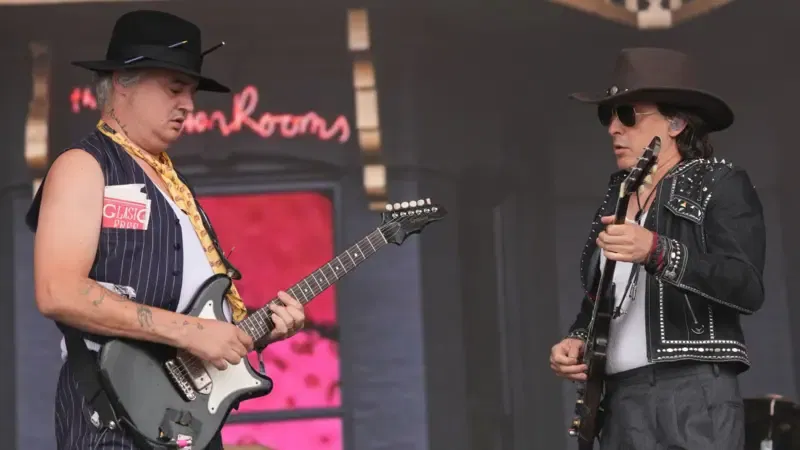
'Time for Heroes' followed, still as sharp and timeless as ever. Even after 23 years, its lyrics might just be the best the band has ever written. The penultimate track, 'Can't Stand Me Now', hit with a particular weight. Watching Barat and Doherty trade verses in 2025 felt cathartic, knowing the band is stronger now than they've likely ever been. They're playing it for the love of the song, not out of old resentment.
The set closed with 'Don’t Look Back into the Sun', sparking a euphoric finish. Shoulders were climbed, flares lit, and even the die-hard Rod Stewart fans down the front, whom Doherty had playfully teased earlier with an impromptu chorus of 'Do Ya Think I’m Sexy' during 'The Good Old Days', couldn’t resist joining in for one last raucous singalong.
Wolf Alice delivered one of the standout sets of the weekend, their fifth time gracing Glastonbury. Three years on from their last Pyramid Stage appearance, where they famously made it by the skin of their teeth, and ten years on from their debut album, the band returned stronger than ever. This time, they took the penultimate slot on the Other Stage on Sunday evening, just before The Prodigy, drawing a huge and devoted crowd.
Each album has propelled Wolf Alice further up festival lineups, giving them space to evolve, experiment, and cement their reputation as a genuinely formidable live act. Their forthcoming fourth album, 'The Clearing', promises to be their best yet, and this set felt like the start of something special.
They opened with 'Formidable Cool' from their second album 'Visions of a Life', a gritty, grungy number that let Ellie Rowsell showcase her incredible vocal range and gave the band the perfect chance to blow the crowd away right from the start.
'Delicious Things' followed, its hazy, shoegaze vibe tailor-made for sun-drenched festival evenings. Another Blue Weekend gem, 'How Can I Make It OK?', came next despite a few nervous moments from Ellie; the performance soared. Her voice, full of raw emotion, carried the song beautifully. In recent shows, Ellie has grown into her role as a frontwoman, and tonight she was more electrifying than ever.
The band then surprised the crowd with a cover of Fleetwood Mac’s 'Dreams', which went down an absolute storm with the Other Stage faithful, a perfect festival moment to cap a set that confirmed what many already knew: Wolf Alice are one of the UK’s finest live bands.

The newest single, 'Bloom Baby Bloom', lights the blue touchpaper, and the crowd absolutely loves it. One of the band’s most bombastic songs to date, it sparks huge sing-alongs and sends dozens of fans onto their friends’ shoulders. That euphoric energy flows seamlessly into 'Bros,' the indie anthem of friendship. Now celebrating its tenth birthday, Bros has soundtracked countless moments between best friends, and tonight at Glastonbury, it added countless more.
In the days leading up to the festival, bassist Theo Ellis posted on Instagram about flares impressed by other bands’ crowds lighting them up; he hoped to see the same at Wolf Alice’s set. And at 'Bros', the Glastonbury crowd delivered. As plumes of multicoloured smoke rose into the night sky, Theo smiled and declared, “Whoever got the memo about the flares, I love you.”
'Don’t Delete the Kisses' brought the show to a magical close. Ellie’s voice and lyrics took centre stage, heightened by the sight of over 40,000 festival-goers throwing their arms around friends and partners, some perched on shoulders, flares lighting the night sky, all singing every word in perfect unison. It wasn’t about desperation but celebration. A pure Glastonbury moment, where everyone felt part of something bigger than themselves. And for Wolf Alice, it was their Glastonbury moment.

They're all exceptional musicians, and in this new era, a lot more people are going to get to see it. With a new album on the way and a subsequent arena tour, dare I say it, the next time we see the band at Glastonbury, they'll be headlining. Michael, Emily, you know what to do.
Sunday night on the Park Stage saw a real emotional return. 12 months ago, The Maccabees playing together seemed like a distant memory, the break-up in 2016 seemed like it was final. All five bandmates immersed themselves in new projects. However, 9 months ago, the band announced they would be reuniting and playing some shows in the run-up to their biggest gig to date, a headline slot at London's All Points East.' However, before then, there was the small matter of Glastonbury.
After a charity gig and a series of intimate European warm-up dates, they were given the task of headlining the Park Stage on Glastonbury 2025's final day. A heaving crowd is ready to welcome them back with open arms as they close out the hillside stage for the weekend.
The band wasted no time kicking things off ‘Latchmere’ opened the set, quickly followed by the punky rush of ‘Lego’, which sent the energy soaring. “Hey, Glastonbury, guess what? We’re The Maccabees!” guitarist Felix White announced to the crowd, an obvious fact to anyone paying attention, but still an electrifying moment to hear in 2025. “It’s a long time to hold your nerve, to believe in a band, and then climb a hill to find out if you were right,” the band reflected after a blistering rendition of ‘No Kind Words’.
This could go down as one of The Maccabees’ most euphoric shows. There are few things more joyful than witnessing Felix White grinning ear to ear as he hypes up the crowd between songs. Frontman Orlando Weeks, meanwhile, looks happier than ever, joining his bandmate in some rare instances of geeing up the crowd and looking truly appreciative of the moment.
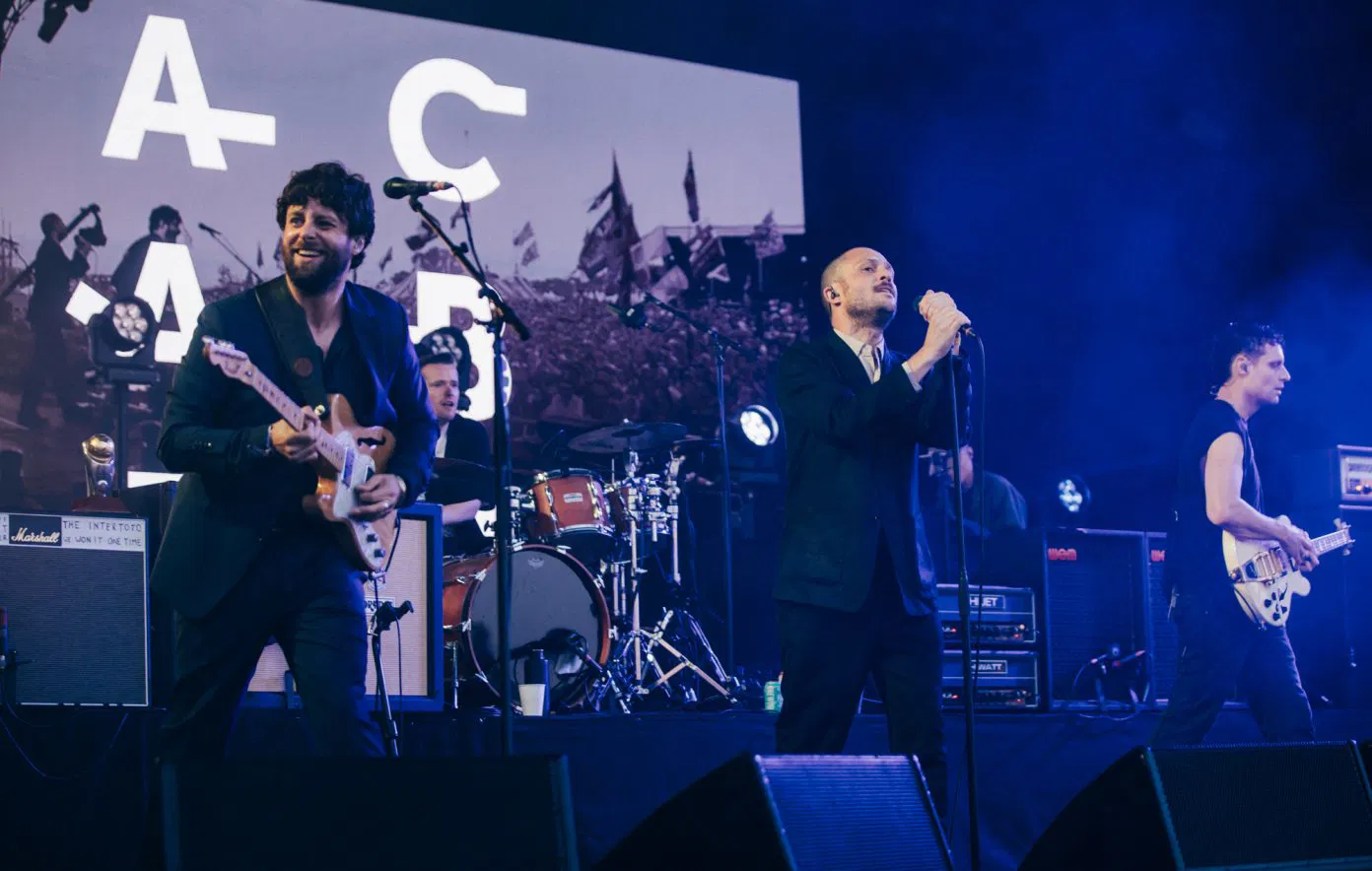
The setlist felt perfectly tailored for a golden-hour Glastonbury slot. ‘Marks To Prove It’ burst into life with White’s searing opening scream, crackling with raw energy, while ‘Toothpaste Kisses’ sounded sweeter and more tender than ever. Tracks like ‘Spit It Out’ and ‘Something Like Happiness’ rolled gracefully across the hillside, their emotional weight magnified as the sun sank behind the crowd.
‘Something Like Happiness’ carried a special resonance. The last time The Maccabees toured, the song marked the beginning of the end. This time, I can’t help but hope it signals a brand new start.
The band have a surprise up their sleeves before the encore, inviting their friend and collabrator Florence Welch to the stage for guest vocals on ‘Love You Better’ before taking to cover Florence & The Machine‘s ‘Dog Days Are Over’ “Do we have any Maccabees super-fans in the audience?” asked Welch, “because you definitely have one on stage.”
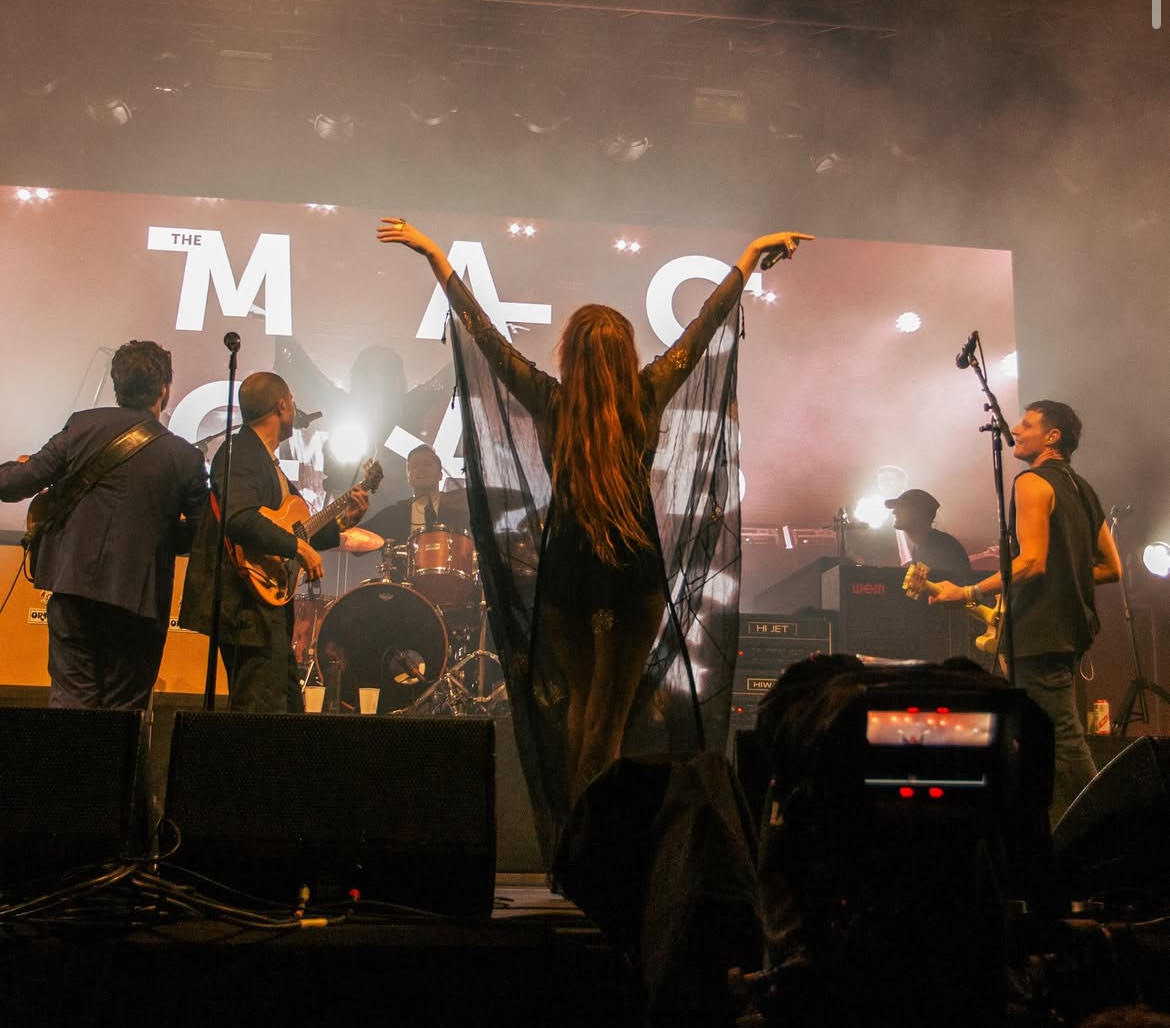
'Pelican' brings the show to an end, and it almost feels too soon. This has been one of the sets of the weekend. After being away for so long, their moment on stage feels fleeting but perfect. Now, their reunion rolls on to more UK dates and their big day out at All Points East. Start praying now that they decide to continue beyond that, too.
Headlining the Pyramid on Sunday night was Olivia Rodrigo. Glastonbury gave her a difficult task; closing out the Pyramid in the year before a fallow year is not easy. Add to that she's 22 and it's only her second time at Glastonbury. Yet she pulled it off, and she made it look easy. The next headliner planned for 2027 had better start planning their set now if they want to top this.
She pulled probably the biggest crowd of all three Pyramid headliners and ran through one of her best shows. Navigating through punk numbers like ‘Brutal’ and ‘All American Bitch’ and then playing one of the most heartfelt and tender break-up anthems ever in 'Drivers Licence' all the way through, letting her emotions shine through authentically.
The California songwriter has always worn her alt-rock influences on her sleeve. In Dublin before Glastonbury, she covered 'I Love You' by Fontaines D.C., and many suspected another cover, but she's not one to do things by halves. Introducing him as “probably the greatest songwriter to come out of England”, Robert Smith took to the stage for unforgettable duets of The Cure classics ‘Friday I’m In Love’ and ‘Just Like Heaven’. It was electric, and closing Glasto in style is something the godfather of goth knows plenty about.

She proved a lot of naysayers wrong and won over some new fans. Including me. With a brilliant voice, great songs, and a stellar backing band. Who all adds something to the show? The crowd are quickly gripped and those of us watching at home soon follow. One moment that proves Rodrigo's love of Britain, and its people, comes just before the brilliant 'So American', where she talks about British pubs “where no one judges you for having a pint at lunchtime” – and M&S confectionery legend Colin the Caterpillar.
The whole show was loud, brash and brilliant. This headline slot will be remembered for a very long time.
After Glastonbury came Cardiff.
On the 4th July 2025, Oasis rolled into Cardiff for their first night of their reunion tour. The first time the brothers Gallagher had performed with each other since V Festival in 2009. "THIS IS NOT A DRILL" are the first words Oasis fans are greeted with in Cardiff. After 16 years apart, very public spats and even the odd vegetable-based jibe. Even for those in the stadium last night, it doesn't feel real.
'Fuckin the Bushes' blares out over the PA, and fans are told “, The guns have fallen silent. The stars have aligned. The great wait is over.” This really is happening. Ever since that night in Paris, where Noel called it quits, the idea of seeing the brothers again on stage seemed like a long-lost memory or a distant fantasy.
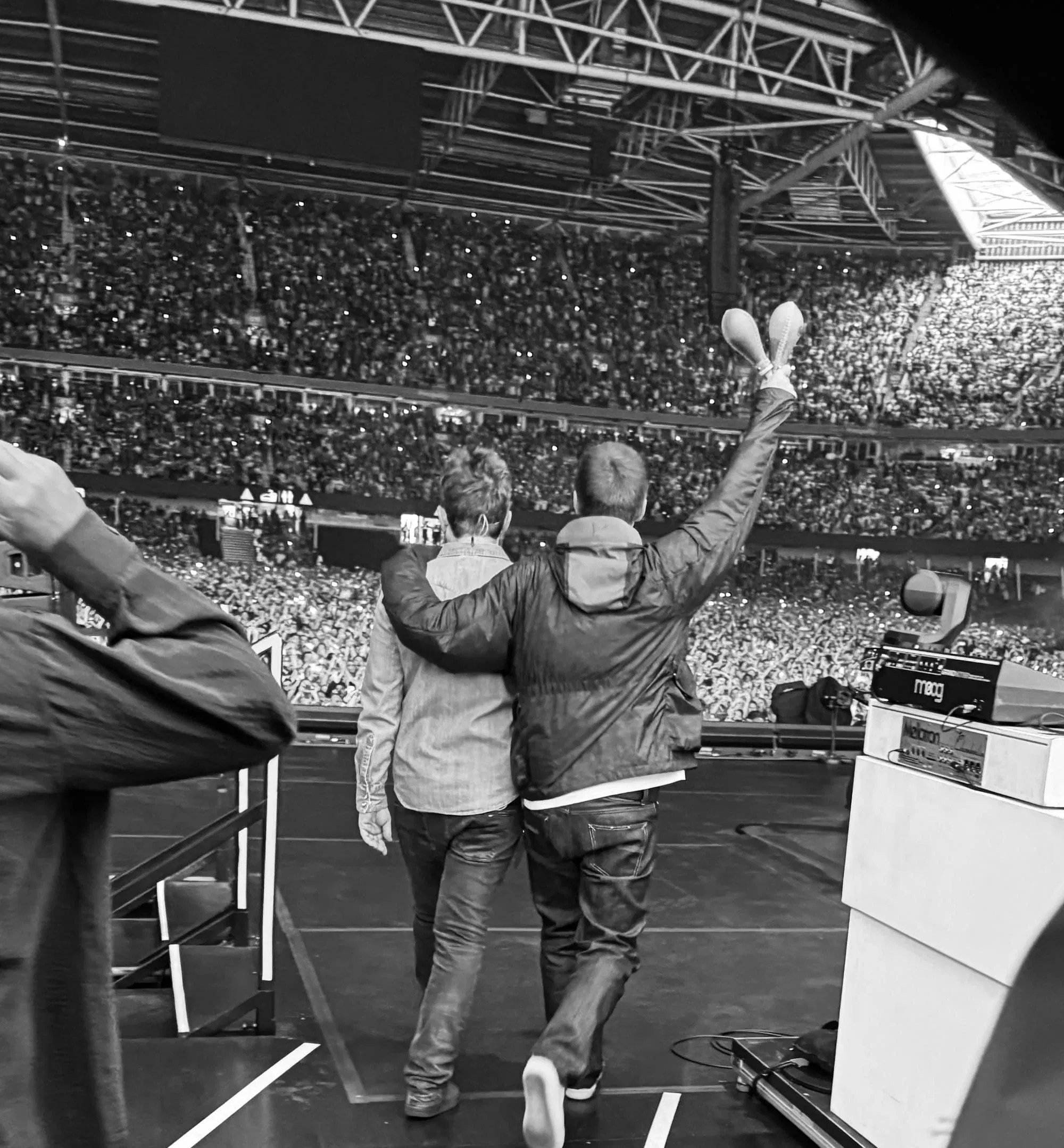
Both brothers walking out arm in arm just wasn't feasible at all. Yet it happened.
With a semi-new lineup, Joey Waronker on drums, Andy Bell on bass, and Gem Archer and Bonehead sharing guitar duties. Oasis knew exactly what they needed to do.
Across a 23-song setlist, they played just one post-2000 track: ‘Little by Little,’ sung by Noel. With no new album to promote and no obligation to play anything recent, the songs they chose were timeless. These weren’t just tracks, they’ve become woven into everyday life: echoing from football terraces, spinning at wedding discos, soundtracking quiet funerals, and ringing out in the final moments of all-nighters.
They kicked off with ‘Hello’ and charged straight into ‘Acquiesce.’“Because we need each other, we believe in one another,” Noel sang back to Liam, and it had been far too long.
The momentum never dipped: ‘Morning Glory,’ ‘Some Might Say,’ ‘Bring It On Down,’ ‘Cigarettes & Alcohol,’ ‘Fade Away,’ ‘Supersonic’ all delivered at pace, hit after hit.
This is exactly what we needed. The band sounded sharp, the songs still immense, and watching the footage back, it’s clear: they wanted to be there. Noel had his moment too, delivering three absolute classics: ‘Talk Tonight,’ ‘Half the World Away,’ and ‘Little by Little, ’ each landing with as much weight as the night’s other high points, even without Liam’s signature rock’n’roll sledgehammer of a voice.
A majestic, Bowie-honouring ‘Stand By Me,’ adorned with visuals of family snapshots, stood out as a real highlight. ‘Cast No Shadow’ quickly followed, regaining sublime ground with both brothers sharing vocal duties. The song, written in 1995 and dedicated to then-Verve frontman Richard Ashcroft, gained an extra layer of poignancy, especially since Ashcroft was supporting the band that night.
From there, it was a historic closing run: a thunderous ‘Slide Away,’ the crowd soaring with the orchestral refrain of ‘Whatever.’ These songs still resonate powerfully, many of them written by a young, disillusioned Noel Gallagher in Manchester, giving voice to the frustrations of a working-class generation under Tory rule. Sound familiar?
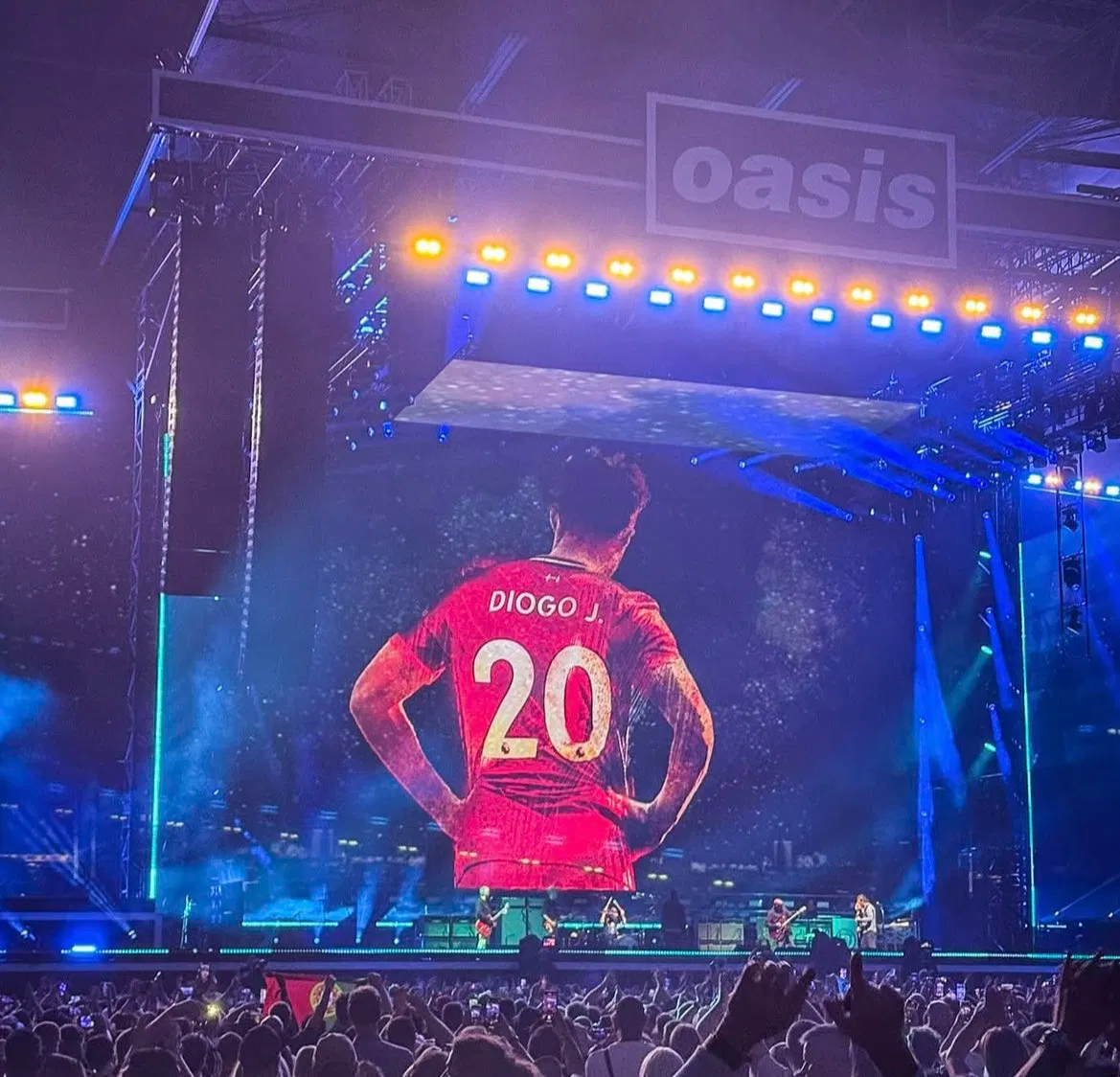
‘Live Forever’ became the night’s most emotional moment. The band paid tribute to Diogo Jota, who tragically passed away in a car accident alongside his brother André earlier this week. As the song ended, Jota’s shirt appeared on the screen, a moving, heartfelt gesture that felt like the band’s most significant moment in years. It was a beautiful tribute to a brilliant footballer and, as countless tributes have made clear in the days since, a much-loved husband, father, brother, and son.
The band knew exactly who they were playing to. Noel dedicated fan-favourite 'The Masterplan' to “all the people in their twenties who’ve never seen us before and have kept this shit going for 20 years.” They understood the weight of the moment and just how much these songs have transcended time.
The show closed with the holy trinity the songs that are now part of life’s soundtrack: 'Wonderwall', Noel’s defiant anthem 'Don’t Look Back in Anger', and the swirling, glorious epic 'Champagne Supernova'. They’re back, and they’re the best they’ve been since the late ‘90s.
For those who were there at the start, and for those seeing them for the first time, this was Oasis at their very best. Sure, you could have caught most of these songs across both brothers’ solo tours over the past decade, but hearing them together again, side by side, is what makes these shows special. It’s what makes them matter.
And right now, as a nation, we need this. The Gallagher brothers stepped up.
As NME put it perfectly in their review: "Lord knows we needed a taste of that halcyon ‘90s hope and abandon in 2025 – especially for the raving and craving Gen-Zers. The world is a rotting shitty bin-fire and tomorrow never knows, but tonight, you’re a rock’n’roll star."
In the same weekend, Fontaines D.C took to the stage in London's Finsbury Park to play their biggest show to date. With some stellar support coming in the form of Amyl and the Sniffers, Kneecap, Been Steelar and Cardinals.
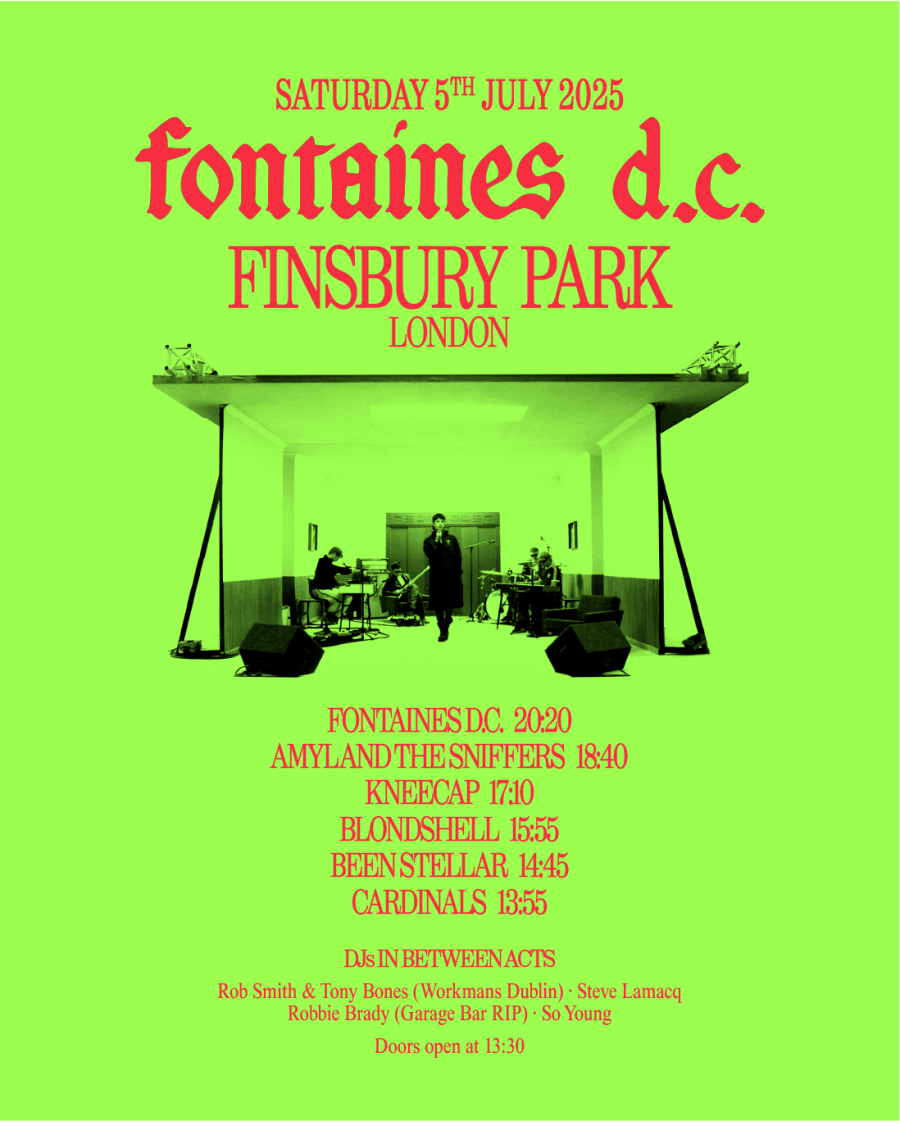
Fontaines D.C., Amyl and the Sniffers, and Kneecap have all been outspoken about the situation in Palestine. Kneecap, of course, have made front-page headlines. At their most recent show, Fontaines D.C. invited a pro-Palestine activist group on stage to lead chants in both English and Arabic and to speak out against media censorship surrounding the conflict. Meanwhile, Amyl and the Sniffers used their high-profile Glastonbury slot to condemn both Israel's actions and the media’s coverage of what is happening in Gaza.
Would this event become a political rally, or would it remain a celebration of great music? It turned out to be the latter. Whilst also making sure that the message was portrayed.
Kneecap delivered a stellar set, bringing Fontaines frontman Grian Chatten on stage to join them for vocals on the song 'Better Way to Live'.
Fontaines D.C. have a special connection to the Finsbury Park area. Their first London gig took place just a few hundred yards away, in the Finsbury pub, a fittingly named venue. Those early days are long behind them now. Fontaines are destined for stages like this: bigger, bolder, and unapologetically forward-moving. They refuse to stand still, always evolving, always reaching for the next thing. They last played this park in 2022, supporting Sam Fender. This time, it was their name at the top of the bill.
Now four albums in, Fontaines D.C. have built an eclectic catalogue and, on this night, they came to play the very best of it.
They open with 'Here's the Thing' and quickly roll into 'Jackie Down the Line'; there’s no time wasted. 'Boys in the Better Land', the track that made many fans fall in love with Fontaines D.C., lands just three songs in.
The set is peppered with classics; 'Hurricane Laughter' finds its place, and 'Liberty Belle' returns to close out the main set. New tracks 'Before I Forget' and 'It's Amazing to be Young' are given their moment, holding their own among the fan favourites.

‘Favourite’, beautifully dedicated to Grian’s fiancée, is a highlight, a burst of light against dark skies. It remains, in my opinion, the best thing they’ve ever done.
The encore leans heavily on 'Romance', with the title track, 'In the Modern World', and 'Starburster' all cutting. They also deliver their love letter to home, 'I Love You', each one a spectacular moment from a band operating at the absolute peak of their powers.
The most remarkable thing? They just keep getting better.
Surely a major festival headline slot is on the horizon. Reading & Leeds 2026? Glastonbury 2027? It feels inevitable.
Ozzy Osbourne and Black Sabbath would perform a final show at Villa Park on July 5th 2025. Just a stone's throw away from where the band formed and all of the members grew up.
'Back to the Beginning' was a celebration of heavy metal, and a farewell to the frontman and the band who created the genre. Fans travelled from all over the world in the hope that they would get to experience the atmosphere around the stadium and the city of Birmingham. For those 40,000 who had tickets, it was set to be one of the most ambitious live shows they'd ever seen.
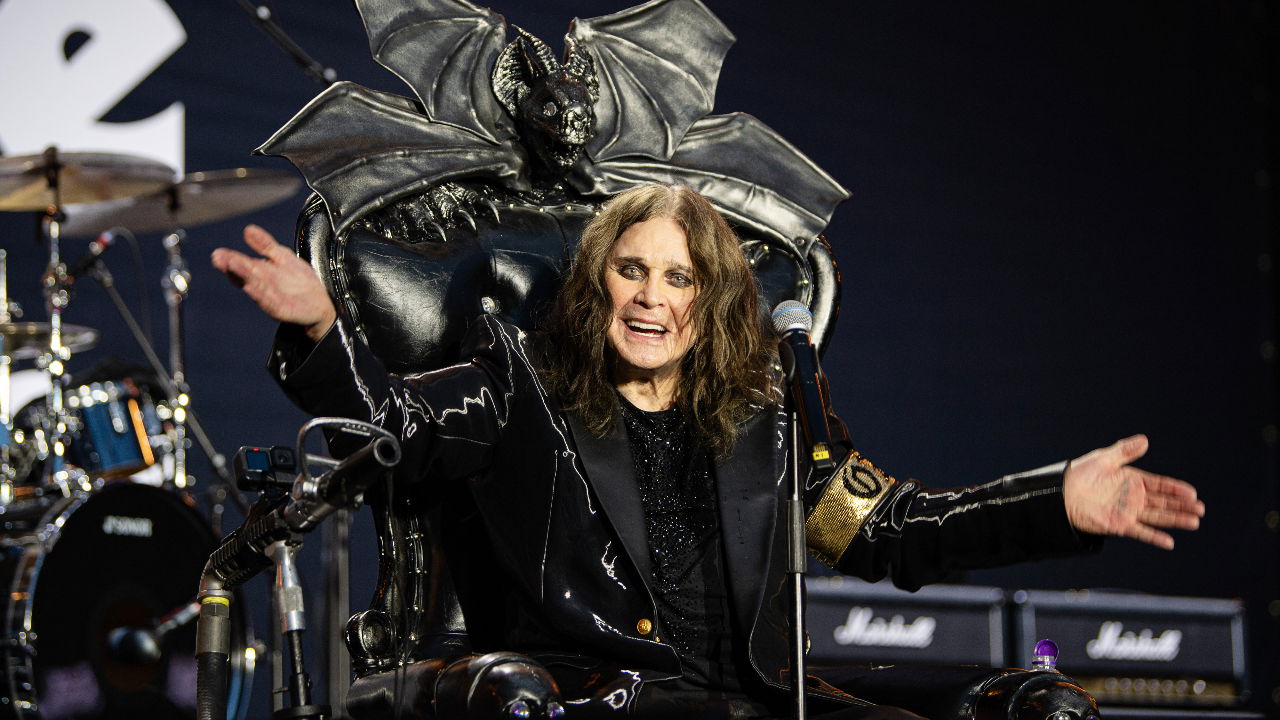
With some of the biggest bands in the world, including Metallica and Guns N' Roses, alongside two separate supergroups which featured a rotating line-up of musicians. From Disturbed’s David Draiman, Blink 182’s Travis Barker, Megadeth's Dave Ellefson, Red Hot Chilli Peppers' Chad Smith, Aerosmith’s Steven Tyler, Ronnie Wood of the Rolling Stones and many more.
Ozzy and Black Sabbath took to the stage to bring the show to a close. After a short video was played from the sister of Ozzy’s former legendary guitarist, the late, great Randy Rhodes and a brief introduction, out rose Ozzy on a black armchair detailed in skulls. The greetings were kept to a minimum as the band started the 1980 Blizzard of Oz track ‘I Don't Know'. For many, seeing Ozzy was a reminder of the purpose of the show, which was to raise money for local charities and Cure Parkinson's. He was unable to stand, but looked comfortable and content despite seeming to make efforts to reach forward as if he was attempting to stand and using a throat spray in between songs. The prince of darkness sang remarkably in tune, and although his voice was not as strong as it once was, the crowd was gladly able to help out.
A sombre rendition of 'Mama, I’m Coming Home' rang out as lighters and phone torches were held aloft. He closed his solo set with the infamous 'Crazy Train', while encouraging the crowd to “Get those f*cking hands up” multiple times.
Despite it being 9 hours after the show had started, the long-awaited Black Sabbath finally took to the stage, in their hometown for one final time. Although there have been previous Black Sabbath farewell tours, none have seemed as definite as this one. This was also the only farewell show to feature fan favourite drummer Bill Ward, who rolled back the years sitting shirtless on his drum stool just behind Ozzy’s chair, which had returned to the stage.
As an air-raid siren rang out around Villa Park and the red stage lighting was beamed into a darkening sky, it was Bill’s hi-hat that introduced 'War Pigs' to the elation of everyone in and around the stadium and those watching at home. Despite featuring only 4 songs, the setlist featured the perfect selection of songs that hadn’t yet been covered by any other bands, each song giving each of the 4 members a chance to demonstrate their innovation in their craft and show why they’ve inspired millions to learn an instrument and, at the very least, appreciate music.
Before the day, everyone knew there was only one closer suitable to a show of epic proportions, and that of course was 'Paranoid'. The audience, although weary from standing for beyond an average workday, gave it everything for this last moment, the final farewell. It was elation, there were tears, people were hugging, singing, moshing, throwing horns and fists and everything they could towards the sky, each of them feeling the privilege of being part of something so legendary.
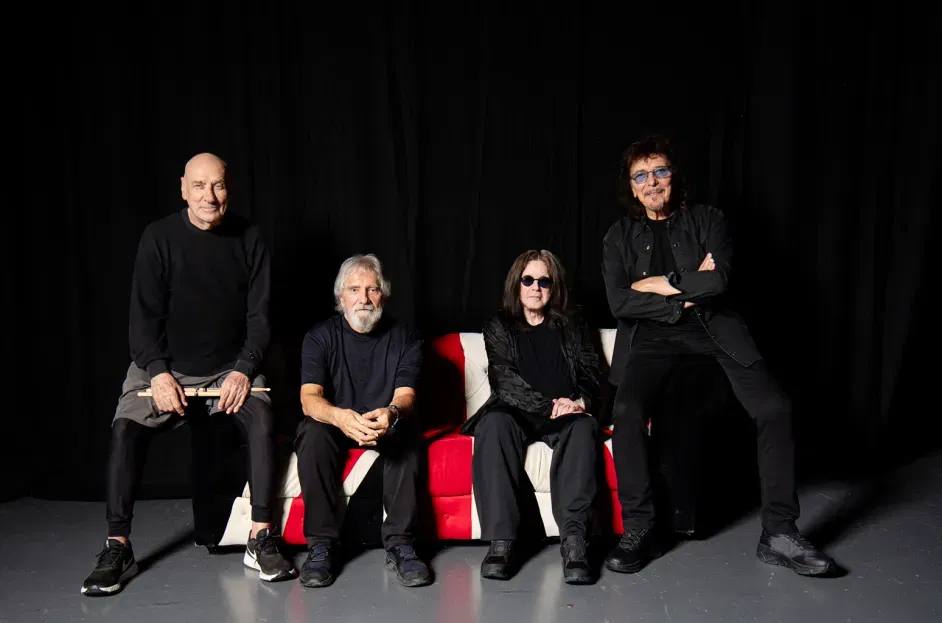
As fireworks lit up the sky around Aston, it was a moment to try and take in everything that had just happened. 68 songs between 14 bands and a slew of other musicians, it had been a true and proper celebration of Black Sabbath. As many of the musicians said on stage, it’s a night that was all about Ozzy; he’s been the mascot of heavy metal and an inspiration to all metalheads to be themselves, serving as a guiding light to a subculture of people who often feel alienated.
A full review of the Back to the Beginning gig can be found here.
More than just a tribute to one of Britain's best frontmen and the inventors of metal. The show did a lot of good. All proceeds from the show would be split equally between three charities: Cure Parkinson’s, Birmingham Children’s Hospital and Accorn's Children’s Hospice. A concert for good, a moment for the city, and a moment for all of those who in some way feel connected to the man, and the band to pay tribute.
On July 22nd 2025, Ozzy Osbourne would pass away alongside his family members. In a statement released by his family, it says, "It is with more sadness than mere words can convey that we have to report that our beloved Ozzy Osbourne has passed away this morning. He was with his family and surrounded by love. We ask everyone to respect our family's privacy at this time.
The world has lost a musical icon, and Britain has lost a national treasure. Ozzy defined what it was to be a frontman, and alongside Tony Iommi, Bill Ward, and Geezer Butler, he helped to create a new genre of music. His legacy cannot be understated.
Following their shows in Cardiff, Oasis played five sold-out nights at Manchester's Heaton Park. Over 400,000 people saw them perform, along with tens of thousands who watched and listened to the shows from outside the perimeter fence, on a hill aptly named Gallagher Hill.
The shows in Cardiff may have kicked things off, but it was in Manchester where the band truly raised the bar. A return to home soil was always destined to be special. Though the setlist remained unchanged, the nerves were gone, and the band hit the stage each night with confidence and nothing left to prove. The Manchester crowd undoubtedly played a huge role in that.
I was there for the final night, and both Noel and Liam addressed the crowd separately, each expressing how proud they were. Liam offered his thanks early in the set, saying:
“It’s been amazing being here the last fucking ten days. You’ve actually blown whatever brain cells I had left; they’re well and truly gone.”
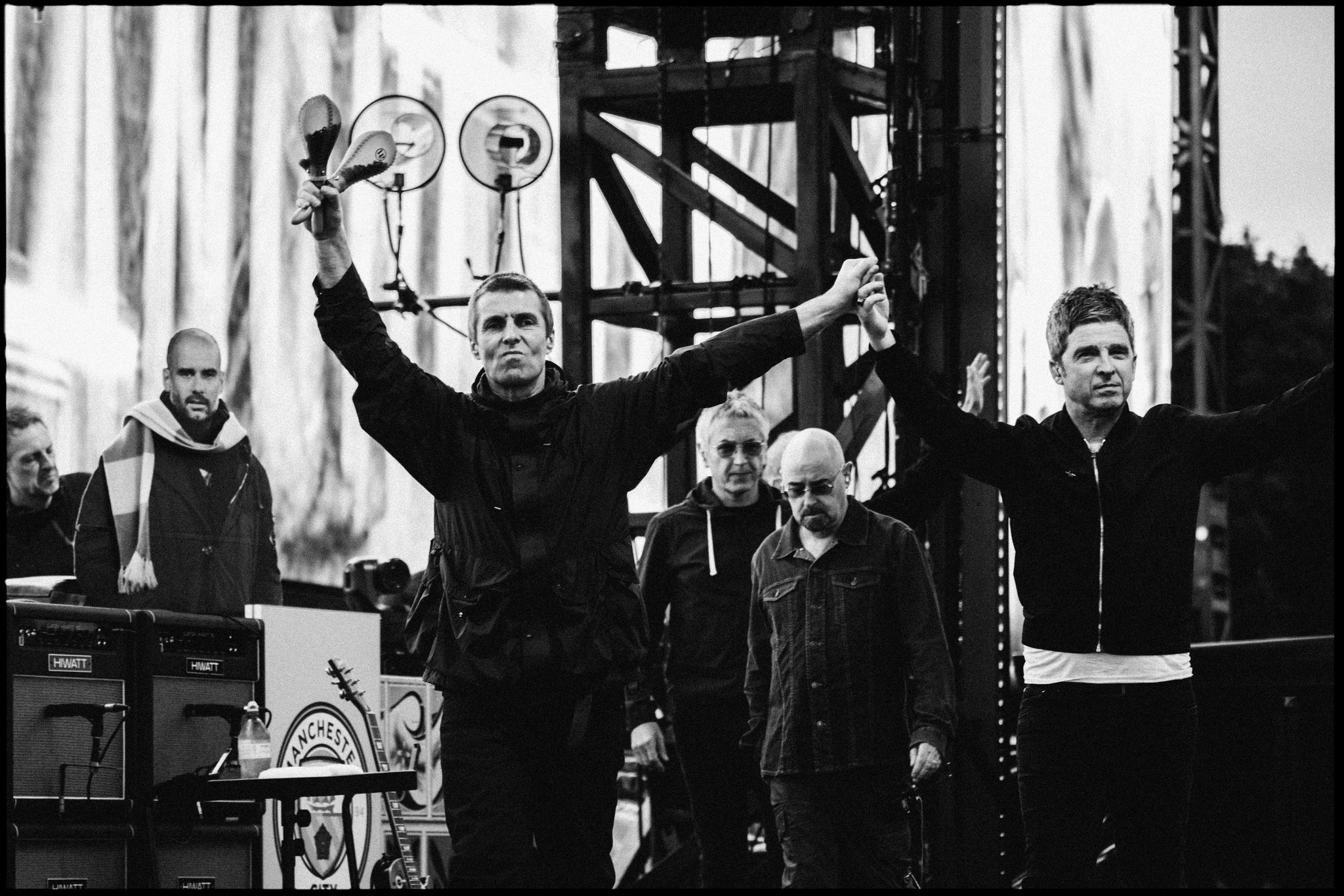
Noel addressed the crowd just before launching into 'Don't Look Back in Anger':
“For the last ten days, the eyes of the world have been on this city of Manchester, and I just want to say to all Mancunians, you’ve done yourself fucking proud. We’ve got people coming in from all over the world… what I can say from staying in the city is you’ve still fucking got it, Manchester.”
All five nights were exceptional, but they were always going to be. Oasis performing live again for the first time in sixteen years was already a culturally significant event. Add to that a run of hometown gigs, the atmosphere on Gallagher Hill, and the countless events happening across the city, and the whole thing felt like a perfect storm.
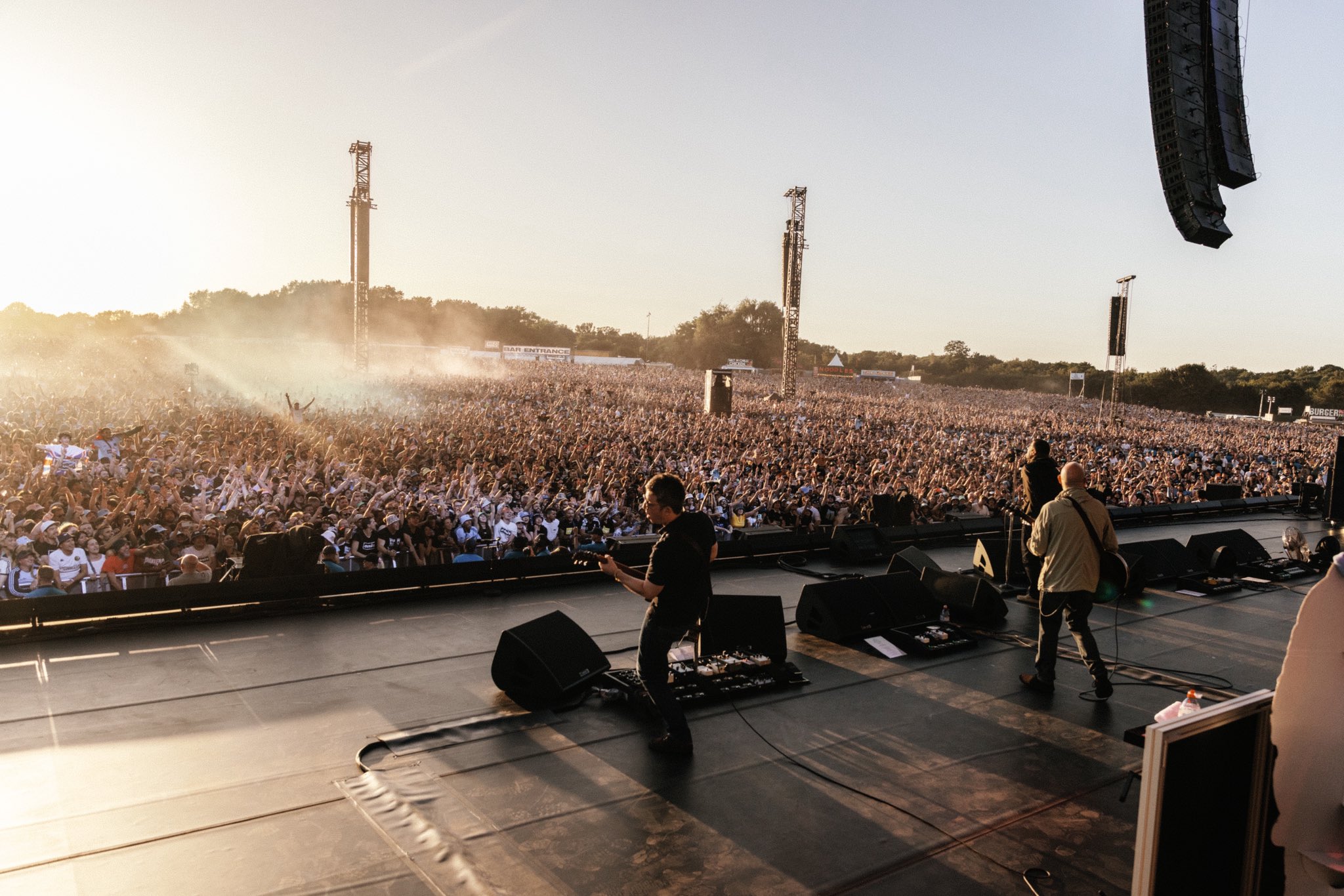
The brothers, along with the rest of the band, were in top form, delivering all the classics alongside deeper album cuts and B-sides, reminding everyone just how great they were, and still are. Only a band as incomprehensibly popular as Oasis could return after two decades away, compile a setlist, and still leave out five No.1 singles.
This version of Oasis is arguably the best we’ve seen since the 1990s.
Being in the crowd for that final Manchester show was surreal. Seeing Liam and Noel share the stage again was one thing, but turning to look at the crowd was just as powerful. The demographic was all over the place: people of all ages and backgrounds, young and old, teenagers, twenty-somethings, mums, dads, aunties, uncles, grandparents. It wasn’t just a gig, it was a genuine celebration of the music and what it means to people.
No disrespect to Cardiff, London, Edinburgh, or Dublin, but these Manchester shows mattered. They were always going to be the heart of the tour, and they’ll likely be remembered as the standout nights. Even though none of the band members live in the city anymore, Manchester is still home. Its people are still their people. Their departure all those years ago was a celebration of how far they'd come. They became the biggest band in the world, and in 2025, they returned, still holding that crown. Of course, the concept was perfect. Like Noel’s beloved Beatles and The Jam, it was about going out on top, leaving the legacy untarnished, never risking the slow fade of diminishing returns. But now, the story has taken an unexpected turn.
By coming back, Oasis have somehow become the biggest band in the world again. They've achieved what The Beatles never did, reforming and, in doing so, writing a new chapter that somehow makes the myth even bigger.
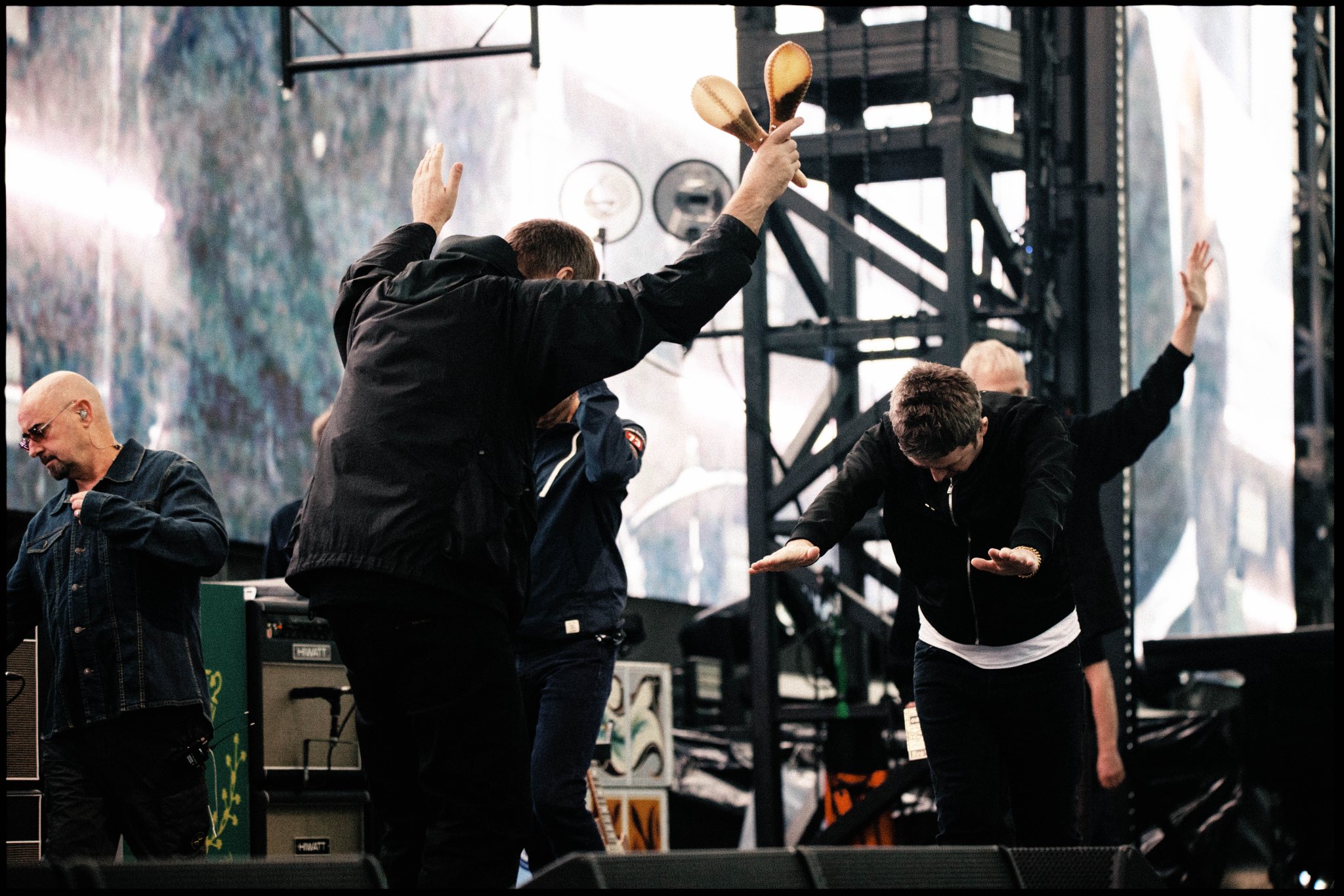
Oasis knew how important these shows would be. It wasn’t just a homecoming; it was a moment to prove themselves once again to the city that first believed in them back in the early ’90s. The same city that gave us Joy Division, New Order, The Smiths, and The Stone Roses before giving us the Gallagher brothers.
Manchester received a lot of love throughout the run. The brothers’ beloved Manchester City were honoured during 'Cigarettes & Alcohol', with players Rodri, Jack Grealish, and Phil Foden all getting dedications, as well as manager Pep Guardiola. 'Fade Away' was dedicated to the people of Manchester, and 'Half the World Away' to the beloved sitcom The Royle Family.
Like many younger Oasis fans, I never thought I'd hear these songs performed live by both brothers. I was very lucky that I got to. For those of you who want a full review of my experience at the gig. Click here
Alongside the huge live shows. Two of the best bands in Britain released new music. The Last Dinner Party returned with their first new music since 2024. The first single from their forthcoming second album 'From The Pyre'.
'This Is The Killer Speaking' sees the London band push their songwriting and explore different avenues.
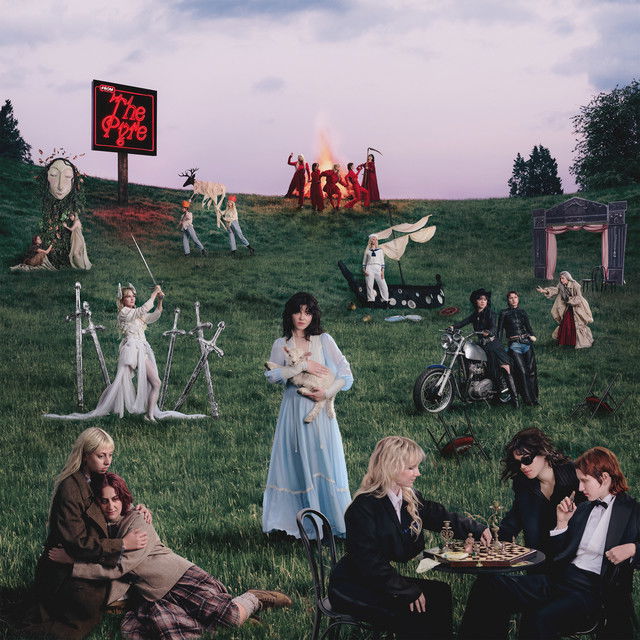
Describing the album, the band said: “This record is a collection of stories, and the concept of album-as-mythos binds them,” the band explained. “‘The Pyre’ itself is an allegorical place in which these tales originate, a place of violence and destruction but also regeneration, passion and light. “The songs are character-driven but still deeply personal, a commonplace life event pushed to pathological extremes. Being ghosted becomes a Western dance with a killer, and heartbreak laughs into the face of the apocalypse.”
They continued: “Lyrics invoke rifles, scythes, sailors, saints, cowboys, floods, Mother Earth, Joan of Arc, and blazing infernos. We found this kind of evocative imagery to be the most honest and truthful way to discuss the way our experiences felt, giving each the emotional weight it deserves.
“This record feels a little darker, more raw and more earthy; it takes place looking out at a sublime landscape rather than seated at an opulent table. It also feels metatextual and cheeky in places, like a knowing look reflected at ourselves.”
Wolf Alice also released new music, the second single from 'The Clearing', the contemplative track 'The Sofa', a far cry from the bombastic nature of 'Bloom Baby Bloom'.
The Ellie Rowsell-penned piano ballad grapples with unrealised dreams and accepting life’s quieter moments: “Didn’t make it out to California / Where I thought I might clean the slate / Feels a little like I’m stuck in Seven Sisters / North London, oh England / And maybe that’s ok.”
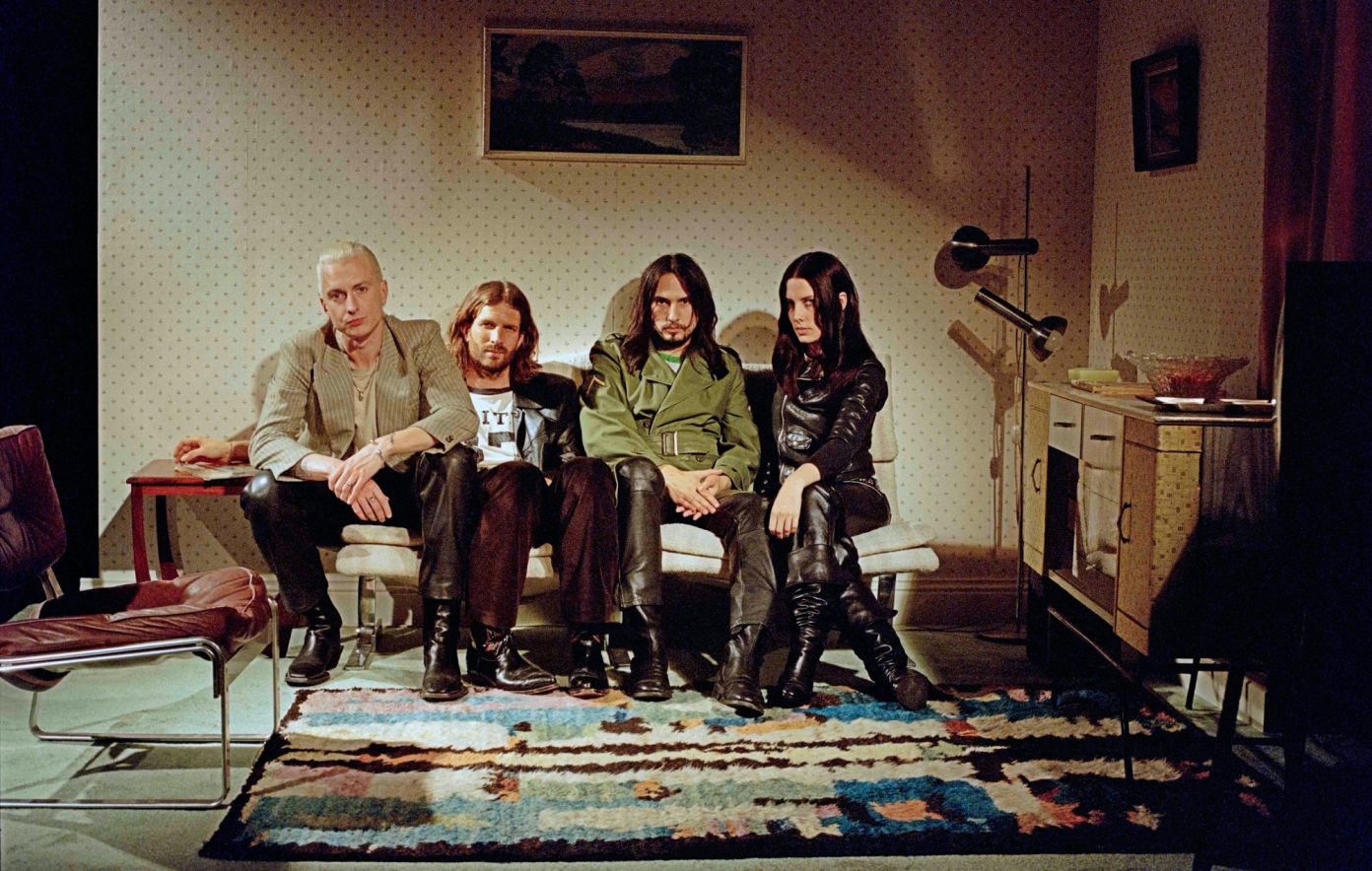
Discussing the song, Rowsell said it was about “not trying so hard to figure everything out”, as well as reflecting on ageing and attempting to get to grips with “things that have or haven’t happened in your life”.
“It’s also about trying to get to grips with the polarising aspects of one’s life when you’re in a band,” she added. “You’ve just played a huge tour – and you come home, and you have your dinner on the sofa.
For me, it’s summed up in how I treat TV. I used to never watch the same thing twice because I thought I had so much to discover! And now I’m like, it’s okay if I just want to rewatch Peep Show for the thirteenth time.”
Wolf Alice are riding the biggest wave of momentum they have ever had, after two brilliant single releases, a sold-out arena tour, signing with a major label and a world-beating Glastonbury performance that propelled Britain's best band into people's living rooms. It's a truly exciting time to be a Wolf Alice fan.
The Ks and The Royston Club both released second albums. 'Pretty on the Internet', the second album from The K's, hit the top spot. Released just a year after their debut, 'I Wonder If the World Knows?'. The band pick up virtually where they left off.
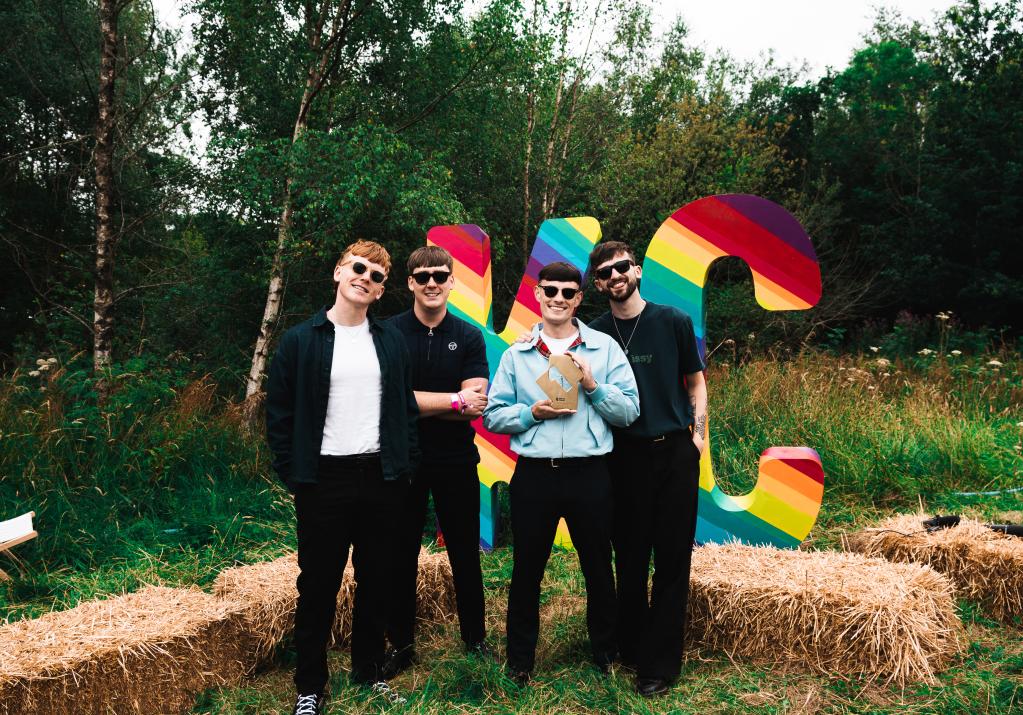
It's a record that is full of indie bangers and vibrant riffs, which definitely juxtapose a lot of the album's lyrical themes. The album feels really well produced, Jim Lowe is in the hot seat, and he has worked with some huge bands in his career, most notably Stereophonics, on their hit track 'Dakota. When the record is good, it's really good. 'Helen Oh I' acts as this record's ballad, just as 'Hoping Maybe' did on the debut. 'Me and Your Sister' has a massive chorus, and 'The Bends (Here We Go Again' is a real contender for song of the year. However, in the second half of the record, the tracks begin to blend into one, and it feels a little rushed. It's still a very good album, though, and The K's have navigated the difficulties that often come with a second album.
The Royston Club have excelled with their second record, the band's debut 'Shaking Hips and Crashing Cars' was a real statement of intent, and contained some of the best guitar anthems of recent memory. The second effort, 'Songs for the Spine,' is a shift up in songwriting and maturity. From the opener 'Shivers', which is the darker answer to the debut album's closing track, but instead of asking for it, the band are begging. It's comfortably one of the best songs of this year, a statement I echo for two more tracks on this record.
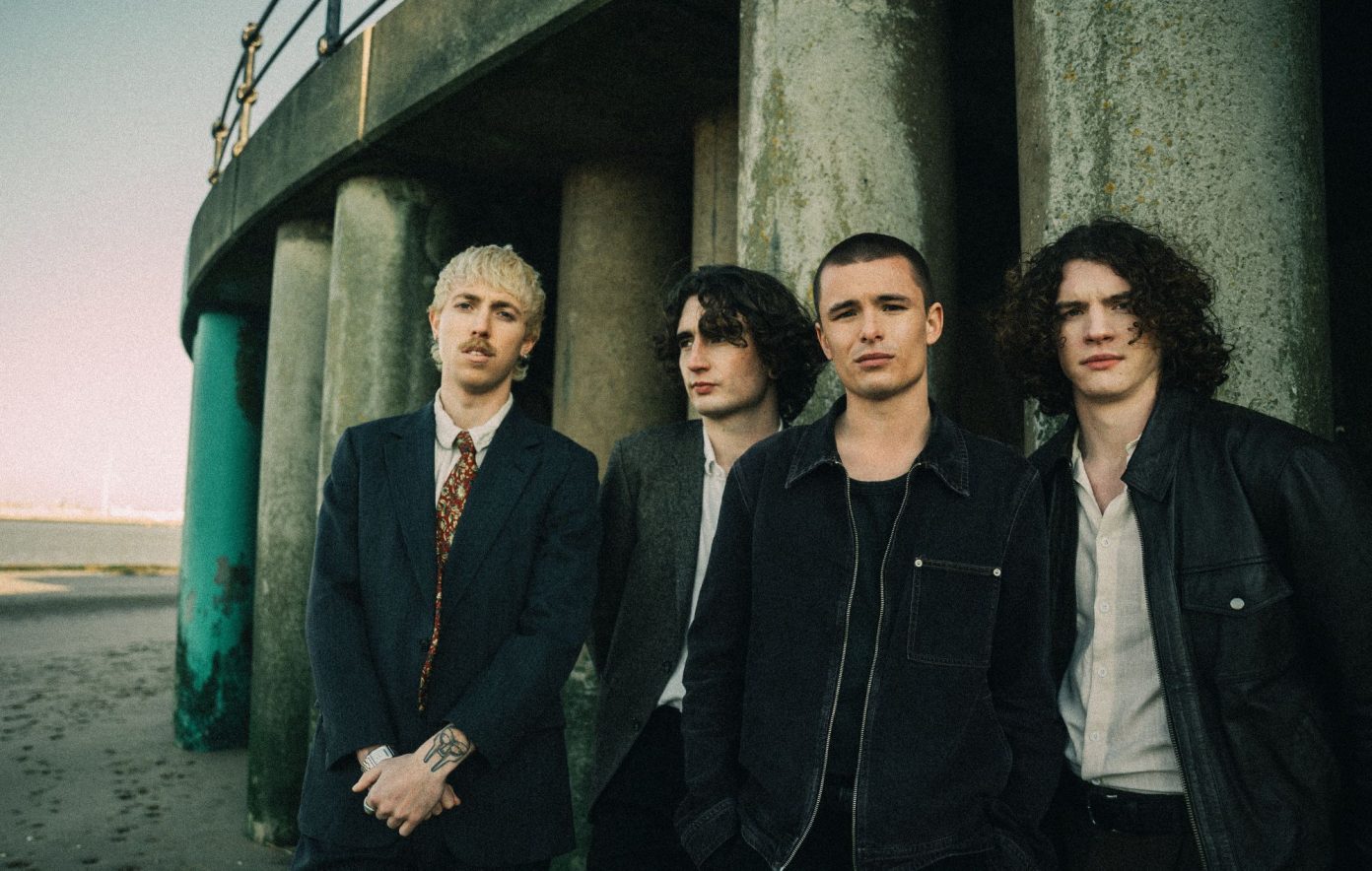
'Cariad', the album's third single, is majestic and a show of the scale of the band's ambition. This introspective song marks the first shift in the record, trading the punchy riffs and drums from the first two tracks for a more ballad-like moment. It's about a lost love, ‘Cariad’ being a Welsh term of endearment. “All of these pictures of you and I / Plastered on the hallways of my mind,” Tom sings. It’s a softer, more vulnerable shade to the band: “I’m not a lucky man / But, darling, you had me fooled.”
'30/20' is an indie banger carried by a riff that dips in and out, cutting through the lyrics and then letting the chorus glide. This one will be a live staple for years.
'The Ballad of Glen Campbell' is an emotional masterpiece, reflective and poetic. It builds up, comes down, it's packed with passion, pain and joy, for six minutes. This record is nothing short of a triumph, anthemic, powerful and emotional. Full of musical excellence and brilliant songwriting. A real contender for album of the year. In the last few years, we've had Fontaines D.C., Blossoms, and Wunderhorse emerge out of the shadows to become the torchbearers for guitar music. I think it's The Royston Club's turn.
After a run of three excellent singles, Wolf Alice released 'The Clearing'. The feeling around this record is that the band are comfortable within themselves, and their music is a theme that runs through the record. Settled is the word I'd use to describe Wolf Alice now. A band who have navigated through the madness of three albums, Brit Awards, winning a Mercury Prize, sell-out tours and most importantly, the madness of life that happens in your twenties.
Embracing everything they have done on their musical journey, and moving forward into a new chapter in an assured and accomplished way. With more nuance and a slower tempo. The band that blew us away with 'She', 'Yuk Foo', 'Smile' and 'Fluffy' have turned their guitars and drums down, but the songs on 'The Clearing' still leave a lasting impression.
‘Thorns,’ the opening track of the album, plays like a companion piece to ‘Blue Weekend’s ‘The Last Man on the Earth,’ echoing it in both sound and theme. While the 2021 track reflected on society’s narcissism and the protagonist’s fixation with finding themselves in the culture they consume, this time, Ellie Rowsell turns the gaze inward. “Did it help to take the thorn out / Telling the whole world you’d been hurt,” she pointedly asks.
'Bread Butter Sugar Tea' has the hallmarks of a live classic, and will definitely be getting an airing on the band's winter tour. A song about embracing flaws, it doesn't gloss over them; it's instead about acceptance. (“Don’t want a dish without salt / Bread without butter / If it’s bad for me, good, I feel bad suits me better.”
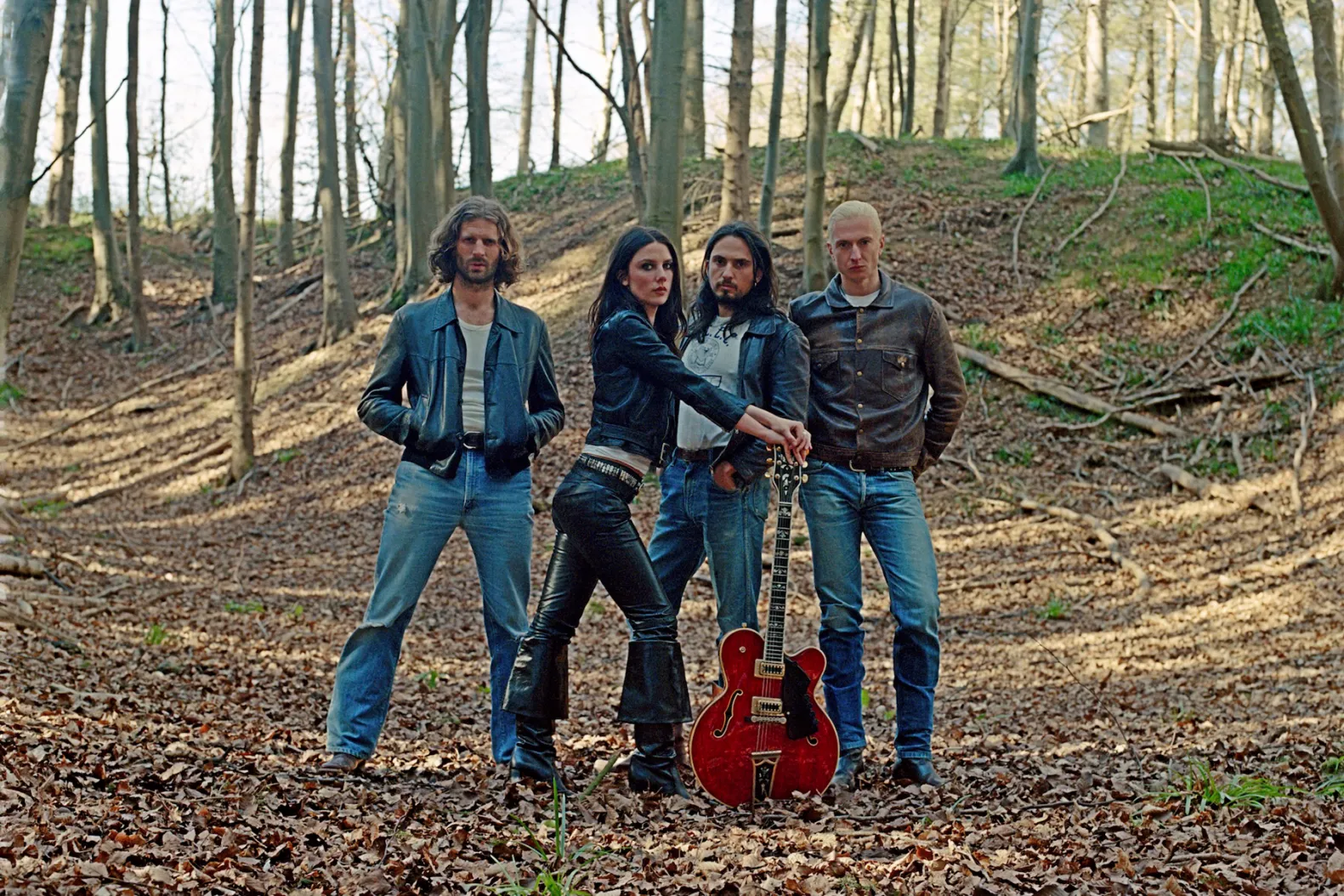
'Passenger Seat' shuffles with an Americana, meets Haim-like feel. With subtle hints to the band's earlier song 'Leaving You'. 'Just Two Girls' shines with a folk-like delivery but also an almost disco-inspired backing track. Imagine Joni Mitchell meets the Bee Gees. It really works.
One of the album's best moments comes in the form of the penultimate track, 'White Horses', where drummer Joel Amey takes lead vocals for the first time since ‘My Love Is Cool’’s ‘Swallowtail’. A heartfelt reflection of heritage, identity and family. With crisp rustic instrumentation, and one of the album's biggest choruses. It's a song that has been on heavy rotation since its release. A confident and celebratory affair, when the questioning quiets down and he chooses to be content with his family and who he is.
'The Sofa' brings the album to a close. The Ellie Rowsell-penned piano ballad grapples with unrealised dreams and accepting life’s quieter moments: “Didn’t make it out to California / Where I thought I might clean the slate / Feels a little like I’m stuck in Seven Sisters / North London, oh England / And maybe that’s ok.”
Discussing the song, Rowsell said it was about “not trying so hard to figure everything out”, as well as reflecting on ageing and attempting to get to grips with “things that have or haven’t happened in your life”.“It’s also about trying to get to grips with the polarising aspects of one’s life when you’re in a band,” she added. “You’ve just played a huge tour – and you come home, and you have your dinner on the sofa. For me, it’s summed up in how I treat TV. I used to never watch the same thing twice because I thought I had so much to discover! And now I’m like, it’s okay if I just want to rewatch Peep Show for the thirteenth time.”
It's the perfect metaphor for the album, and for where Wolf Alice find themselves. The dust has settled, and they know who they are, flaws and all. 2025 has the potential to be the biggest year for the band yet. Having ended their record deal with Dirty Hit, and signed with major label RCA. An arena tour is pencilled in. It's a great time to be a fan of the band.
After one of the performances of the weekend at Glastonbury, The Maccabees headed into London, to a dust-filled Victoria Park for All Points East, with a lineup of friends old and new.
A lineup that featured noughties indie heroes The Cribs, The Futureheads, and Bombay Bicycle Club, alongside the next generation of UK indie, Divorce, brought their country-tinged sounds to a rapturous crowd in the same tent that Black Country, New Road continued their fascinating evolution later in the day. Westside Cowboy will, by rights, be remembered as indie legends in future decades too, alongside the rabble-rousing Man/Woman/Chainsaw, who both provide exciting examples of the future amongst the rose-tinted looks into the past.
The Maccabees' breakup in 2017 was different to other band breakups; they had not had a fallout, and there were no legal cases. In fact, it was quite the opposite; they'd done the near impossible, calling it quits whilst at the peak of their powers. After the release of 2015's 'Marks to Prove It', the band had hit the top of the charts, and a sold-out tour, the band went their separate ways.
It wasn't over, though. The Maccabees themselves thought there was unfinished business. Felix White said before the announcement of the show.
“In the intervening years, we’ve been to All Points East a lot, separately. It’s become a bit of a landmark festival for us, always checking who’s on the line-up. I’d go and have a great time throughout the day, but there was always this pinch of regret watching headliners that we could’ve done it ourselves one day too. I thought that moment had passed, and it was something I was prepared to come to terms with that I was always going to miss. I think we’re all kind of shocked and excited that we get to do it together again.”

All eras of The Maccabees were revisited. Early cuts 'Latchmere', 'Lego' and 'X-Ray' transport many fans back to 2007 with their earnestness and energy. Frontman Orlando Weeks thanked the 50,000-strong crowd for "getting the band back together" before rifling through 'Kamkura', and 'Wall of Arms', 'First Love' received one of the biggest songs of the night.
'Love You Better' was interrupted by the dust, but fans didn't let it ruin the moment, whilst the band cut out, a 50,000-strong army of backing vocalists rose up to the occasion.
Not shy about bringing out special guests: Glastonbury got Florence Welch, All Points East got Jamie T. He joined the band on stage for 2015's 'Marks to Prove It' and his own songs 'Sticks n Stones'. There's something quite beautiful about seeing the survivors of the indie scene on stage together.
'Something Like Happiness' brings the main set to a close, and the band returns for an encore of 'Toothpaste Kisses', a song which has soundtracked many an indie romance, the criminally underrated 'Grew Up at Midnight', and of course, fan favourite 'Pelican'.
That was that; the band left the stage, leaving the thousands in attendance wondering. What's next? No further shows have been announced. Is new music on the way? Or will the band disappear again?
On the festival circuit, the August Bank Holiday weekend sees thousands of music fans descend pm Richfield Avenue in Reading and Bramham Park in Leeds. The lineup this year wasn't one I was enamoured by, with only a couple of acts sticking out for me.
There were a few bands on the lineup that I was intrigued to see in front of a young Reading & Leeds crowd. The first of those bands was Bloc Party, a band that had been billed as the festival's first icon set. 20 years since they headlined the NME/BBC Radio 1 Stage off the back of their immaculate debut ‘Silent Alarm’.
The band attracted a huge crowd on the main stage and showcased their multi-generational appeal, with the majority of the audience likely not even born when the London band first broke through with 2005’s ‘Silent Alarm’.
Bloc Party played a set that focused heavily on their debut and the 2007 album 'A Weekend in the City', but they still found time for recent songs, including 'Traps' from the band's most recent album.
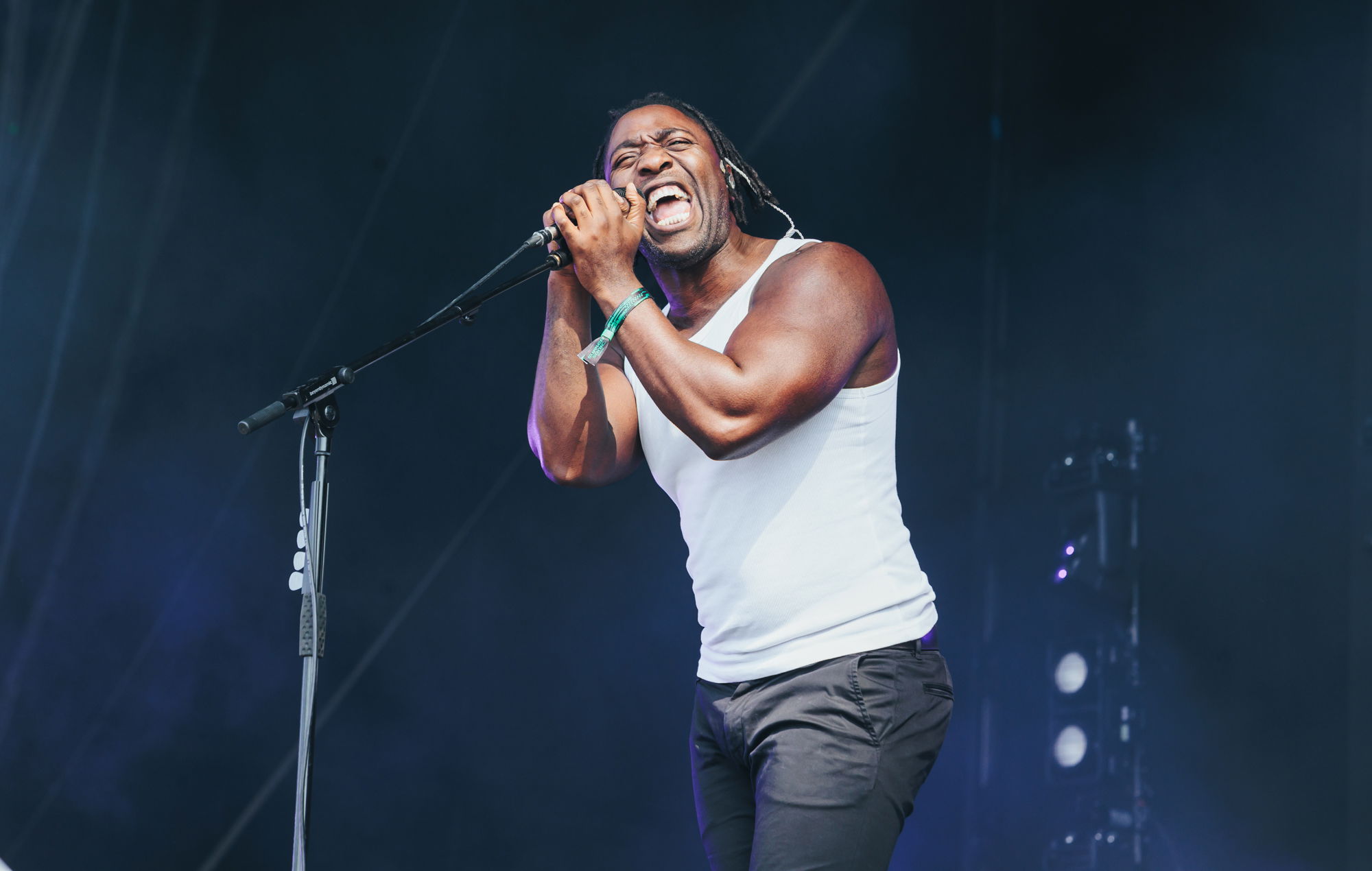
Even the most casual fan would have been impressed: 'Helicopter', 'Banquet', 'Like Eating Glass', 'So Here We Are', 'Mercury', 'Song for Clay (Dissappear Here)' were all played under the sun. In the penultimate song of the set, 'This Modern Love' frontman Kele Okereke shouted out “anyone who got their results, prompting another big cheer, and said: “I remember coming to Reading after I got my exam results and it was a wild time, so look out for each other.”
The new ‘icons’ slot looks set to be a regular feature of the festival, in the vein of Glastonbury’s famous ‘Legends’ performance.
Another band I was intrigued to see was The Kooks, another indie group from the 2000s. It's safe to say they took a different approach to Bloc Party. Rumours of a guest joining the band on stage had been floating around for a few hours before the band's set. What happened next may take the award for the most mental thing to happen at a British festival this year.
The band were joined on stage by Rebel Wilson, and they performed a cover of the 1995 song 'Gangsta's Paradise'. Yes, you read that right!

Fans went berserk as Wilson took to the stage. Approaching the microphone to rapturous screams, she joked to the audience, “What’s up, Reading? Seeing as I’m out here, I thought I should sing a classic Kooks song… so I don’t know about you guys, but I was thinking about Gangsta’s Paradise…“. The band members looked at each other in faux confusion before firing up an uncanny rendition of the Coolio hit, with Rebel rapping every verse seamlessly and Pritchard joining in for the choruses, belting out the track’s hook, “Livin’ in a Gangsta’s Paradise“.
The band played a collection of tracks from their 2006 debut 'Inside In Inside Out', including 'Naive', 'Ooh La ', and 'She Moves in Her Own Way'. Despite many of the crowd not being born when the album was released, all of the songs were lapped up by the thousands in attendance.
Alongside classics from the debut album, The Kooks played some more recent cuts, including 'Bad Habit' and 'Sweet Emotion'. Another good showing for the 2000s at Reading and Leeds.
However, it wasn't just heritage acts at the festival. Wunderhorse took to the Chevron Stage, this year reserved for hip-hop, grime and dance and went off like a rocket. Last year, the band drew the biggest crowd ever seen in the BBC Introducing Tent. A bigger stage was necessary for this performance. I was looking forward to this one, the band's set at Glastonbury was one for the ages, but the rest of the summer had been a mad one for Jacob Slater and band, cancelled shows, broken equipment and chaos on stage. Thankfully, they let the songs do the talking. 10 songs in total. Opening with 'Midas' and closing with 'Rain'. Featuring the best songs from both 'Cub' and 'Midas' from the punk-tinged Americana of 'Leader Of The Pack' to the emotional catharsis of 'Arizona.'
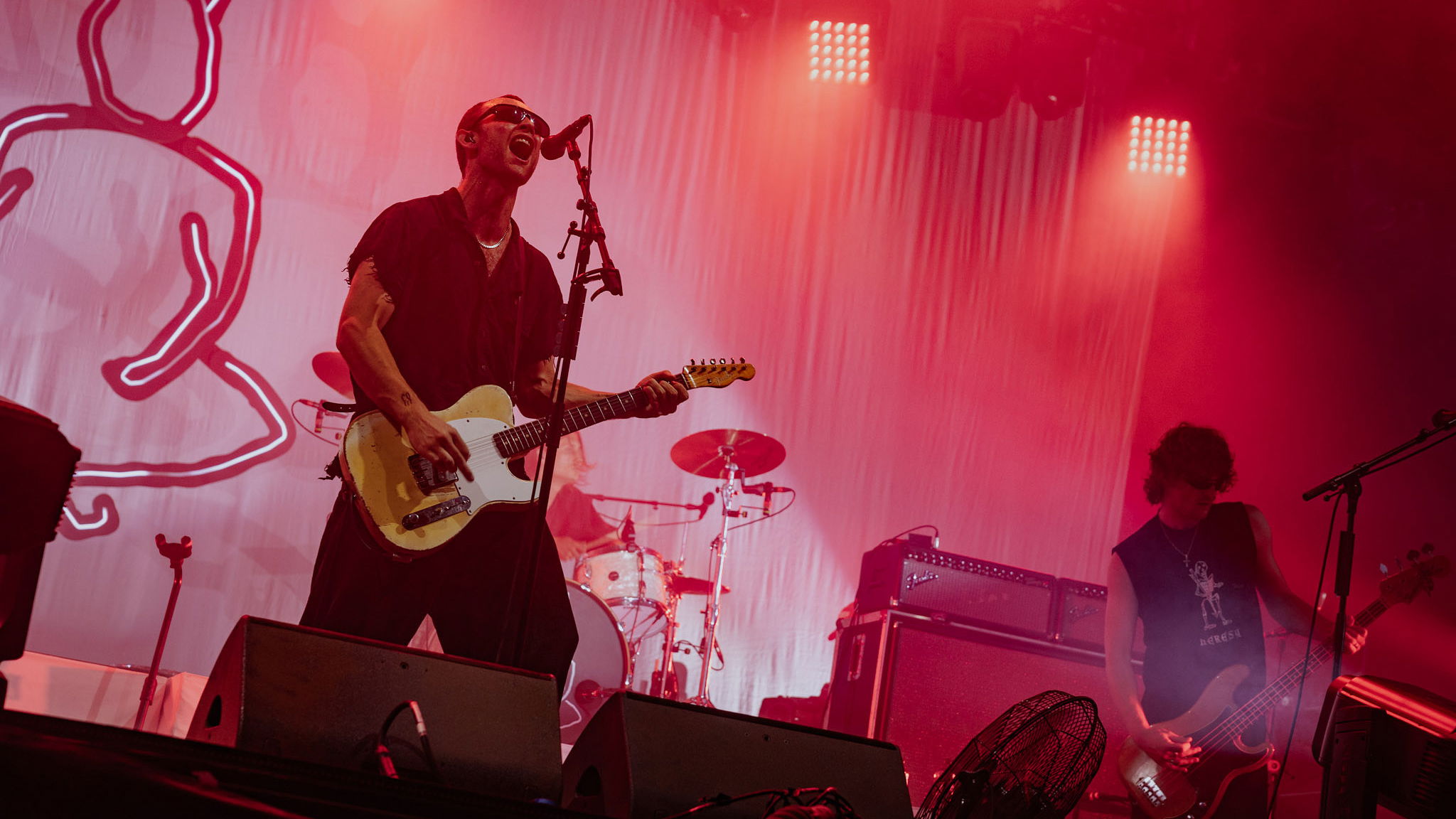
'Purple' garners the biggest singalong of the whole show, though. Not only one of the band's best efforts, but one of the best songs of the decade.
Wunderhorse proved why they are one of the brightest sparks in British music at the moment and managed to regain control of what has been a turbulent summer. The band need to rest and regroup before album number three, I think.
The Royston Club were given a slot on the main stage. Following the release of their second album, the brilliant 'Songs For The Spine'.
Opening the set with the brilliantly catchy 'The Patch Where Nothing Grows', the lead single from 'Songs For The Spine'. In an eight-song setlist, the band's second record gets five songs. 'Glued to the Bed' will be getting many more festival outings; it's already a ready-made festival anthem.

'52' from the band's debut album 'Shaking Hips and Crashing Cars' is already a classic and received a rapturous response from the young crowd. 'Cariad' ends the set and shows a new side to The Royston Club, more melancholic and melodic. Think acoustic Arctic Monkeys, even acoustic Oasis, this may be the best thing the band have ever done, and it will be in the set for a long time.
It was a festival full of guest moments, Royel Otis had their own. Sophie Ellis-Bextor popped up on stage to play 'Murder on the Dancefloor' with the boys. For around three minutes, the set was transformed into a full-on, impromptu disco inferno. What could’ve been another buzzy indie slot suddenly became one of Reading’s most joyous crossover moments – proof that escapist pop anthems never really die, they just wait for the right stage to make us lose our minds all over again.
It was Sophie Ellis-Bextor's first time at the festival since 1998, and she pointed that out to the young crowd. “It’s good to be back, it’s been a few years. I don’t think any of you were born when I was last here… you’re looking good though.”
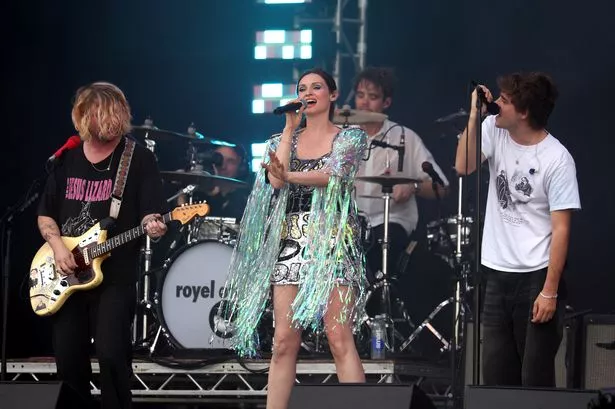
Alongside the cover, Royel Otis broke out fan-favourite tracks such as ‘Kool Aid’ and ‘Oysters In My Pocket’, along with newer singles like ‘Moody’ and ‘Car’.
Bring Me The Horizon headlined the festival for the second time, after their show in 2023, which saw them share the bill with Arctic Monkeys. The band have become the biggest metal band on the planet alongside label mates Sleep Token. It marks a stark change from the first time the band played the festival, where they were met with a barrage of bottles. This time, they throw a petrol bomb and prove that they are more than capable of headlining the biggest stages.
From the opening 'DArkSide' through to 'Throne', every song feels like a finale. Complete with pyro, branding, iconography and lore of a cult. This is the band's defining moment.

“Can I see a real fucking moshpit?” pleads the frontman in his thick Yorkshire drawl. “The ones you were doing for Limp Bizkit were fucking wank.” Cheeky, but it’s heartening to see Sykes and his old schoolmates at their most comfortable and confident.
The band even have time for a cover, the Liam Gallagher-approved cover of 'Wonderwall', but in what would have been most bands' set highlight, it's just another moment for Bring Me the Horizon. ‘I Will Follow You’ (a ‘Wonderwall’ of their own), The Prodigy-meets-metal nightmare rave of ‘Kingslayer’, the pure bop of ‘Lost’ and mass crowd anticipation of ‘Can You Feel My Heart’. There’s no Ed Sheeran this time, just a very special guest in the form of superstar fan Lily being brought up from the crowd for a riotous rendition of ‘Antivist’.
Taking to the crowd to shoot selfies for the almighty ‘Drown’ before they wave Palestine flags from the stage for the closing ‘Throne’, the transformation is complete. Those scrappy skinny jean metal kids from Yorkshire have become one of the biggest bands in Britain.
I want to talk about one of the other headliners. Not Hozier, and definitely not Travis Scott, but Chappell Roan. Someone who has had quite a dizzying year, becoming one of the world's biggest pop stars.
Her stage resembles a castle, which looks as if it has just been pulled from Beauty & the Beast. The big screens show a dark fairytale animation as dramatic orchestral music prepares the humongous audience for the pop star of the moment to appear, and when she does, she does so in black and deep purple lace – part Prince, part Maleficent.
There's no doubt that Roan can perform to huge crowds; she has made it clear that she will be topping festival bills for a very long time.
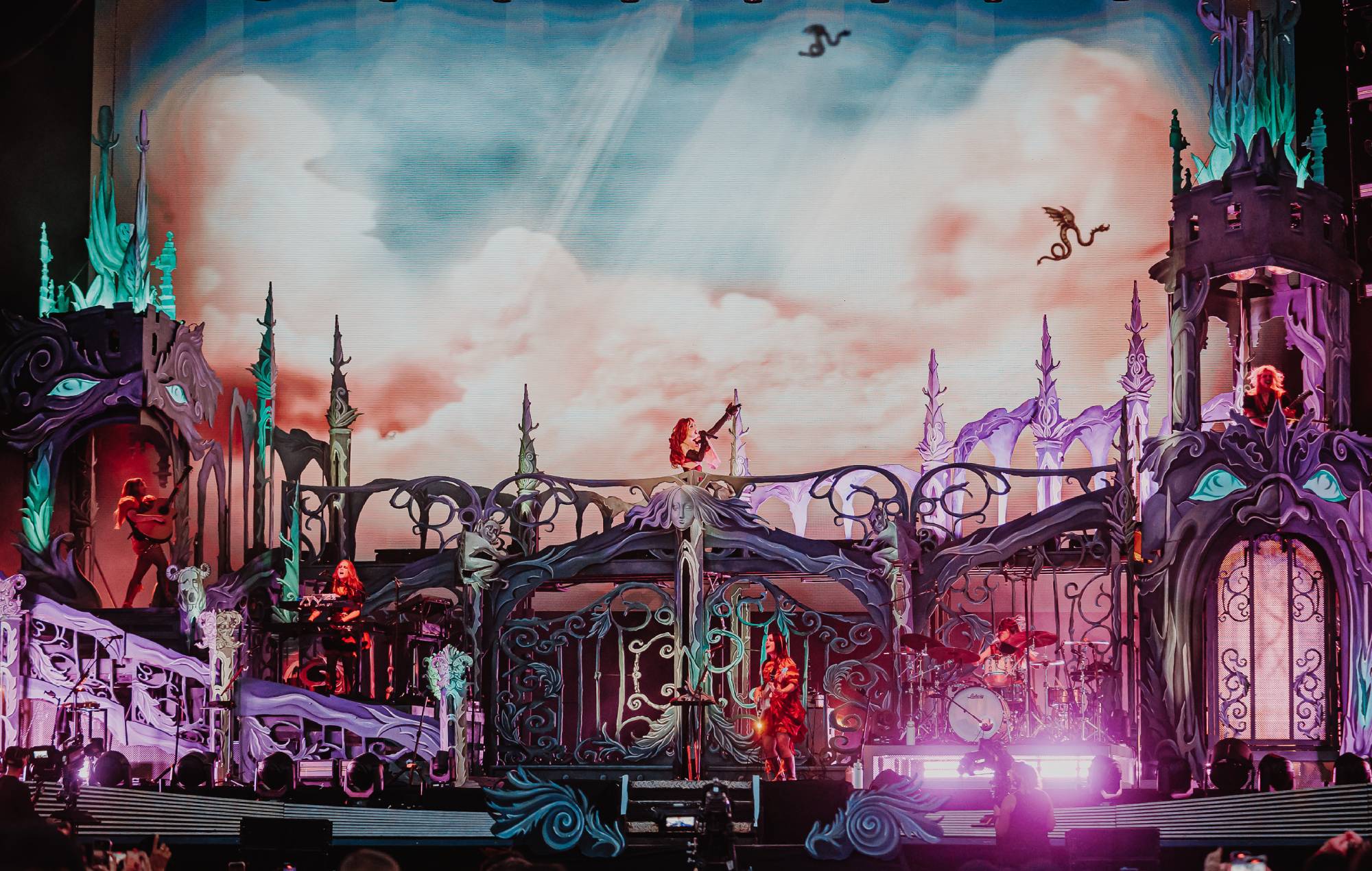
She’s only one EP, one album and a handful of singles deep right now, but her setlist is already an embarrassment of riches when it comes to crowd-pleasing pop epics.
Throughout the performance, there’s a feeling of camaraderie and community in the crowd. Strangers become new acquaintances, the ‘Hot To Go’ dance unites everyone in clumsily trying to remember the moves and in the right order, and before ‘Red Wine Supernova’, everyone raises pink cowboy hats and pink bandanas aloft. It feels like tens of thousands of like-minded people who’ve all got the same memo and have been brought together with the same intentions.
“Thank you for loving me and standing with me. I’m truly so grateful.” After she wraps things up with a euphoric trifecta of ‘Good Luck, Babe!’, ‘My Kink Is Karma’ and ‘Pink Pony Club’, she struts down the runway to get closer to the crowd, waving and blowing kisses to them, a big grin on her face. She might be getting used to seeing scenes like the one in front of her now, but the impact has not been lost on her yet.
As a performance, it was exceptional. Similar to Olivia Rodrigo's Glastonbury show earlier in the year, she will have earned a lot of new fans with that performance.
On August 21st 2025, The Beatles announced Anthology 2025. Thirty years after the original 1995 release, the classic 90s documentary series 'Anthology' will be remastered by Peter Jackson and set for release in November. As well as digitally enhanced versions of the original eight episodes, there will also be a brand new ninth episode written and directed by Oliver Murray, created from previously unseen behind-the-scenes footage of Paul McCartney, George Harrison and Ringo Starr coming together around the release of the original series.
The series, which was first broadcast by ITV in 1995, was hailed as the definitive documentary on the Beatles thanks to the way it reunited the surviving three Beatles with their producer George Martin, former press officer Derek Taylor and one-time road manager Neil Aspinall to tell the tale of their career in their own words. Its release was accompanied by the single, 'Free As a Bird', the first new piece of music put out by the scouse quartet since their disbanding.
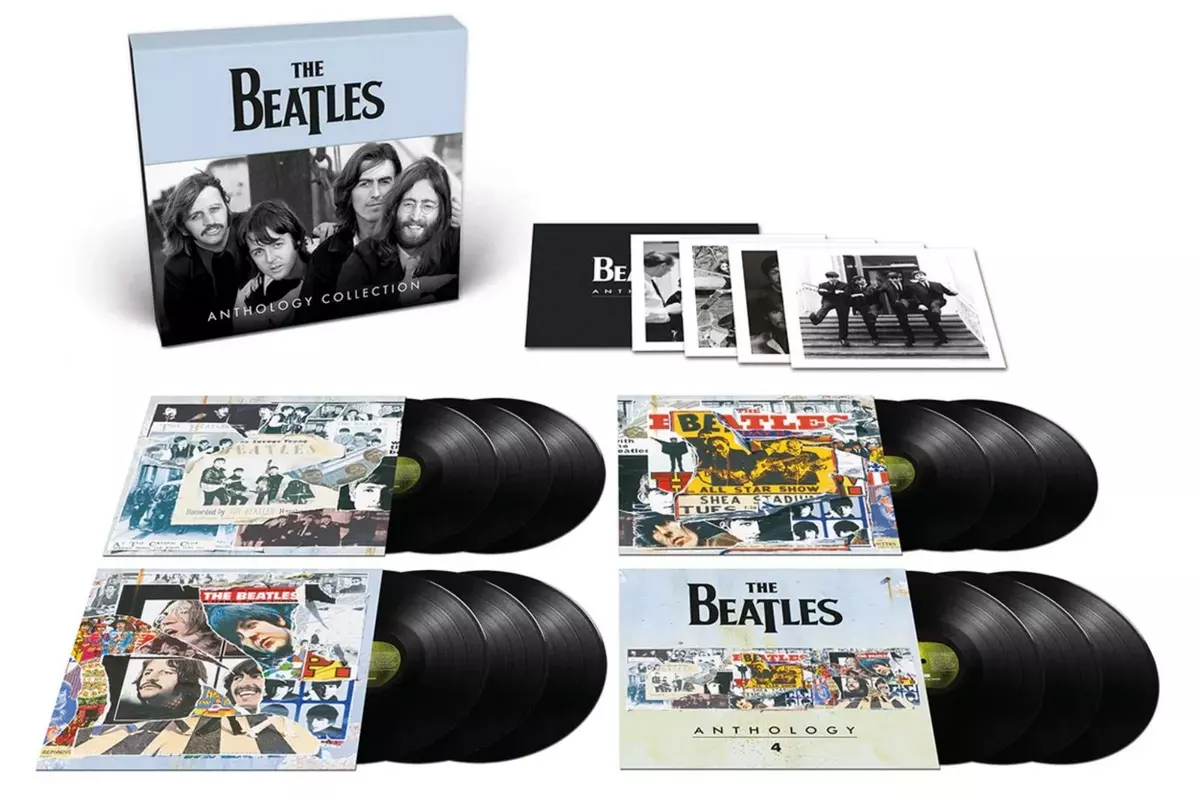
As well as the documentary, ‘The Anthology Music Collection’ – originally curated by George Martin – will be re-released as three double albums, remastered by Giles Martin. This will include a new ‘Anthology 4’, with 13 previously-unreleased demos and session recordings, as well as new mixes of ‘Free As A Bird’ and ‘Real Love’.
As well as 'Anthology 2025', four films about The Beatles are in the works, with each member getting a biopic to share their side of the story of the band that changed the world.
The project marks the first time Apple Corps Ltd and The Beatles - Sir Paul McCartney, Sir Ringo Starr, and the families of John Lennon and George Harrison - have granted full life story and music rights for a scripted film.
Coming from each band member's point of view, the four theatrical feature films will intersect to tell "the astonishing story of the greatest band in history."
The four biopics, focusing on each member of the Fab Four, will be released in cinemas in April 2028 – with Paul Mescal playing Paul McCartney, Harris Dickinson playing John Lennon, Barry Keoghan playing Ringo Starr, and Joseph Quinn playing George Harrison.
British filmmaker Sam Mendes, known for the Oscar-winning American Beauty, as well as 1917 and the James Bond film Skyfall, conceived the "daring" idea and will direct all four films.
"I'm honoured to be telling the story of the greatest rock band of all time, and excited to challenge the notion of what constitutes a trip to the movies," Mendes said in a statement.
Keeping it in Liverpool, Red Rum Club released album number five, 'Buck'. Released just over eighteen months after their brilliant fourth album 'Western Approaches', it picks up where they've left off and then some. Riding the momentum from the last record, a sell-out tour and some massive festival slots including Glastonbury and Reading & Leeds. It's a record full of confidence, from the opening track of 'Crush, TX' which sees frontman Fran Doran exclaim, "Give the people what they want," a classic Red Rum indie banger.
First single ‘American Nights & English Mornings’ harks back to their earlier sound, a captivating look into the difficulties of long-distance relationships, which is sure to go down when performed live. Upon its release, I was hooked. This band have a knack for creating groove-tinged earworms, and this one is one of their best
The title track continues the band’s exploration into a heavier, more rock-influenced style. With thumping drums, satisfying guitar riffs, and captivating vocals, it’s clear that this album is the band experimenting with their sound and enjoying every moment of it.
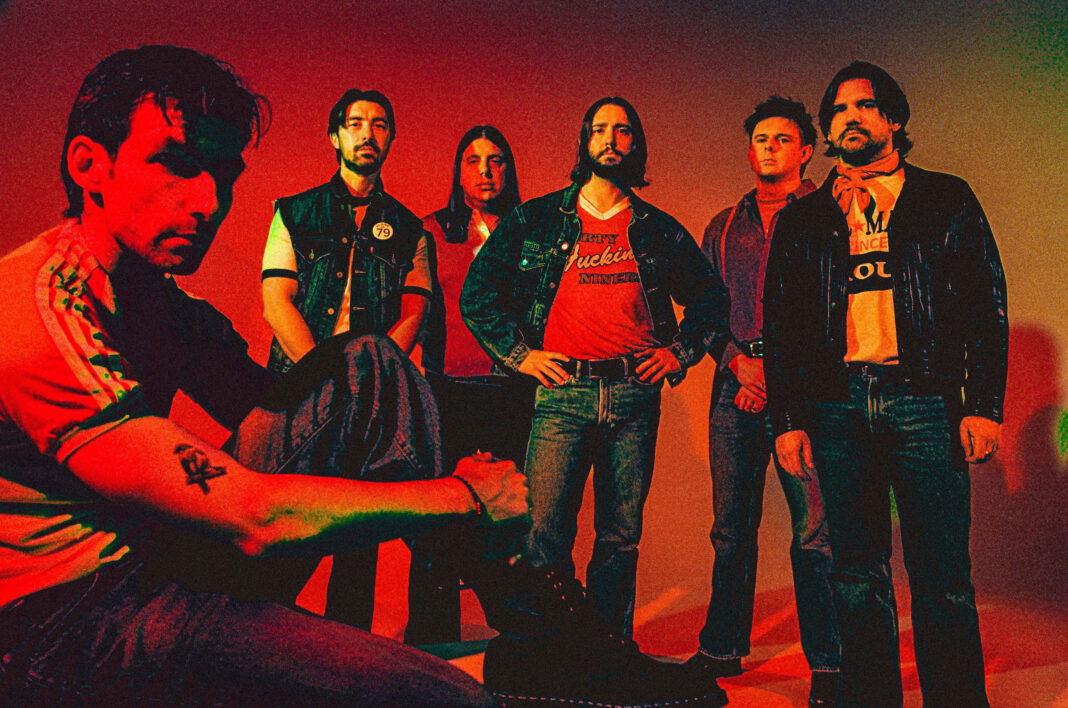
Fan favourite 'Vanilla' has been given a re-work for the album, with a slightly bolder sound than the original mix; Doran's vocal in particular feels a lot more prominent.
The variety of songs and themes on this record is nothing short of exceptional. With a run time of just 31 minutes, it doesn't hang around, but you don't feel shortchanged. 'Animal', for example, feels like the next stage of Red Rum Club, the stage that sees them head into bigger rooms. Dare I say it, this is an arena-ready anthem. 'Wish I Was Here' sees the Scousers head into mariachi terrorites, with pop-tinged vocal stylings. It is daring to pivot from their usual sound, but a sense of confidence bleeds through the track, making it impossible to ignore.
Another brilliant record from the lads. They are making some of the best guitar music at the moment. Five albums in six years is some going.
Kevin Parker announced album number five, 'Deadbeat', in September. After first returning in July with the house-inspired 'End of Summer'.
'Loser', the second single, feels more like a traditional Tame Impala, with the instrumentation sounding like a cross between 'The Slow Rush' and 'Currents', with the lyrical themes of the song coming straight from the 'Lonerism' era.
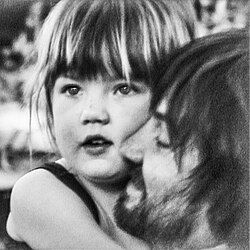
The description on the album’s pre-order store describes the fifth LP as “a collection of wickedly potent club-psych explorations as a vehicle for some of his most direct, brain-wormy songwriting to date, recasting Tame Impala as a kind of future primitive rave act in the process.”
It continues: “’ Deadbeat’ sounds like the work of an artist with a levelled up mastery and bristles with a revitalised energy for experimentation. 12 songs crafted with a newfound embrace of spontaneity for the renowned perfectionist. How that manifests is a distinct minimalism and crunch to many of the tracks, with a clutch of crucial details, timbres and textures that add an ineffably new dimension to the sound, as well as a richer, more playful vocal range than ever.”
Gorillaz announced their return. First with the announcement of an album 'The Mountain' set for release in 2026, and then a new single 'The Happy Dictator' featuring Sparks. 'The Mountain' is the band's first work since 2023's 'Cracker Island' and marks the first release on the band's own label, KONG.
Described as an “expansive sonic landscape” produced by Gorillaz, James Ford, Samuel Egglenton and Remi Kabaka Jr., plus Argentine producer Bizarrap, The Mountain follows the story of what happens when the animated band of Murdoc Niccals, Russel Hobbs, 2D and Noodle, relocate to Mumbai with the help of four fake passports.
Whilst the animated band embark on a fictional journey, Damon Albarn and Jamie Hewlett say that the album – recorded in locations such as London, Devon and various places in India – was particularly informed by their joint travels to the “gloriously technicolour” country, but also the personal loss they both experienced during that time.
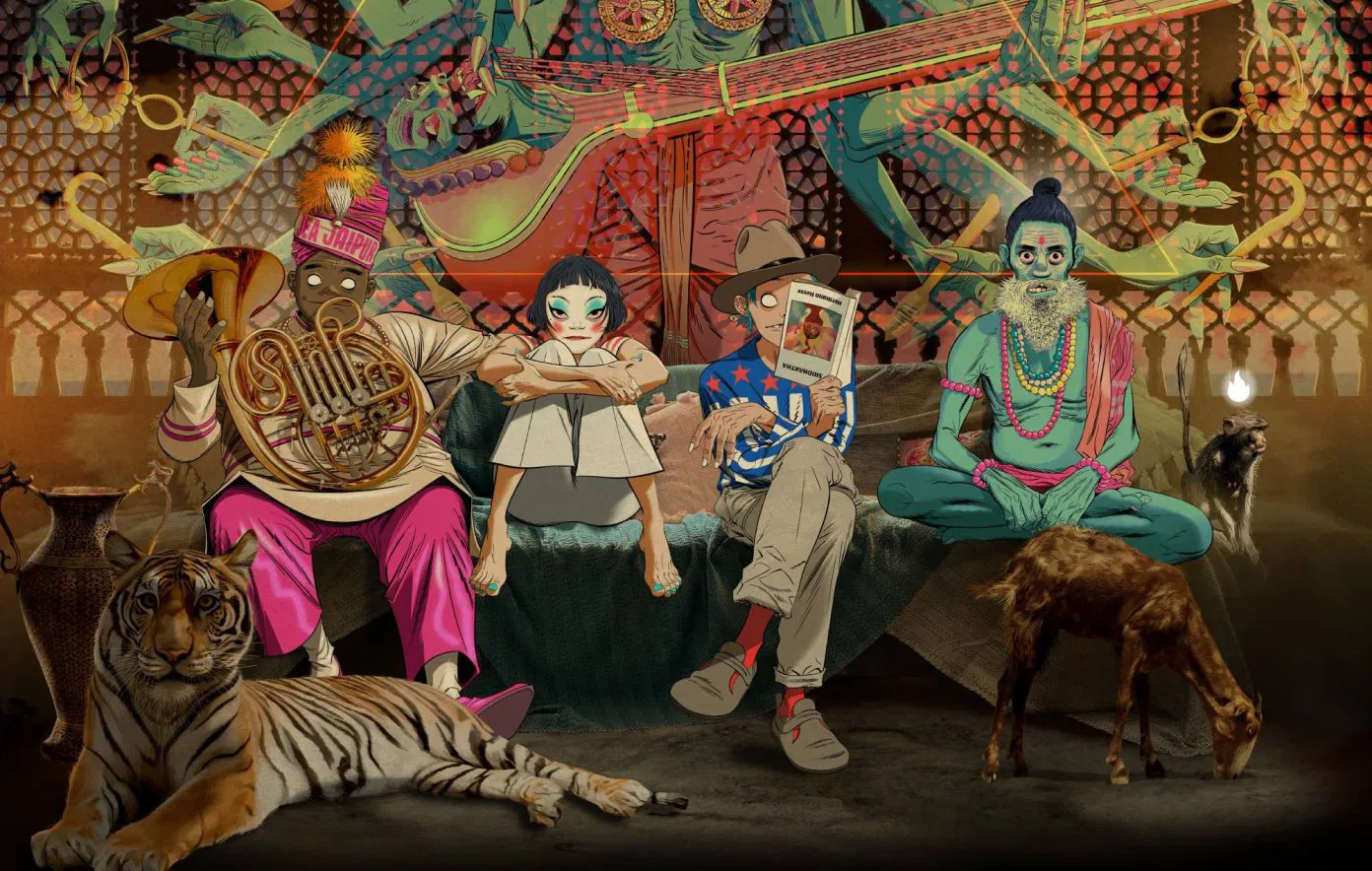
As ever with Gorillaz, collaboration is front and centre on 'The Mountain' and the tracklist features an extraordinary list of artists – with performances in five languages – from the likes of IDLES, Paul Simonon, Jalen Ngonda and Johnny Marr, to Ajay Prasanna, Omar Souleyman and Anoushka Shankar. The latter is the daughter of sitar virtuoso Ravi Shankar.
Elsewhere on the album, the multi-generational nature of Gorillaz is also addressed. It was “important to include all the people who died that we’ve known,” explains Albarn. As such, voices of departed collaborators from previous sessions have been woven into the narrative, including Bobby Womack, David Jolicoeur, Dennis Hopper, Mark E Smith, Proof and Tony Allen. “I wanted to bring them into the conversation so that the record carries everybody and the whole history of the band,” he continues. It’s almost like they’re “talking from the other side,” Hewlett adds.
Following on from the short residency at London's Copper Box Arena in recent weeks, fans will not have to wait too long to see the band again. A UK and Ireland tour has been announced for Spring 2026. Beginning in Manchester on March 21st and then culminating with the band's biggest ever headline gig in June at the Tottenham Hotspur Stadium in London.
Tame Imapla released the third single, 'Dracula', from his forthcoming album 'Deadbeat', which is set for release on October 17th. Alongside the new single, Tame Impala announced details of a UK and European arena tour for the spring of 2026.
Dates kick off in Portugal on April 4, and continue throughout Spain, France, Italy, Switzerland, Germany, Sweden and more across the remainder of April and May. After a slot in Belgium on May 5, Parker will head over to the UK for five shows.
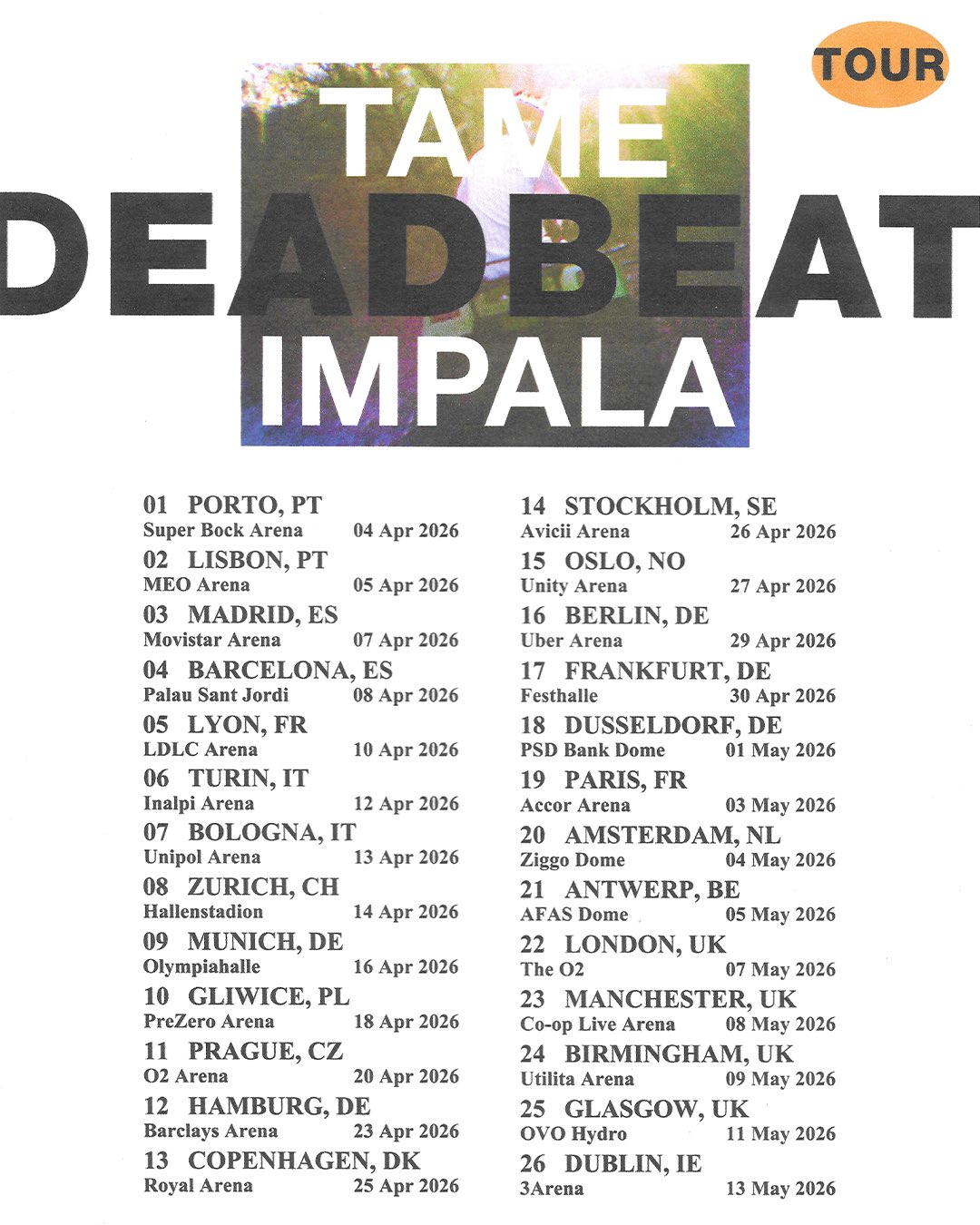
These include a night at The O2 in London on May 7, followed by shows in Manchester, Birmingham and Glasgow. Dates wrap up with a slot at the 3Arena in Dublin on May 13.
Oasis returned to Wembley on September 27th for the first of two final gigs at the London venue. Liam Gallagher added fuel to the fire that Oasis could be playing more dates next year. Speculation is already high with fans believing that the band will be celebrating the 30th anniversary of the landmark Knebworth and Maine Road gigs.
The last Oasis show in the UK is September 28th 2025, and further dates in Japan, Australia, Argentina, Chile and Brazil. Rumours of more dates have been flying around all summer, and Liam added to the speculation at the end of 'Champagne Supernova' in London on the 27th. He thanked Oasis fans for “keeping the faith” and said, “See you next year.”
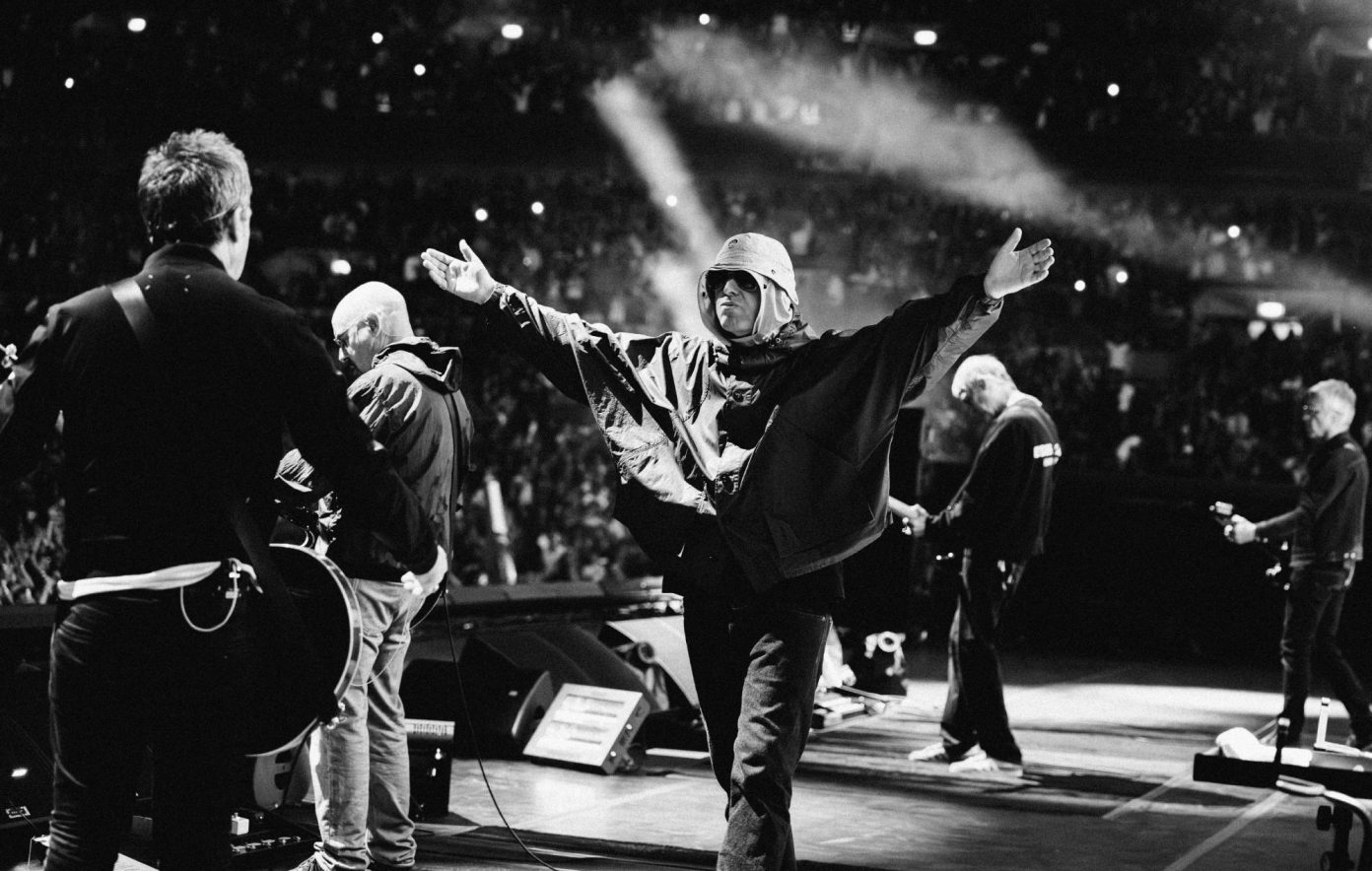
Away from the live rumours, more details have been revealed about the forthcoming documentary. Once the tour was well underway, Peaky Blinders director Steven Knight was announced to be working as a producer on the reunion tour film, which is being directed by Dylan Southern and Will Lovelace, known for the LCD Soundsystem documentary Shut Up And Play The Hits.
Footage of Noel and Liam Gallagher’s landmark first meeting after years of fighting is said to feature in the upcoming film charting the Oasis reunion. For the documentary, Knight’s crew were allowed access to the meetings and rehearsal rooms that preceded the historic comeback, and sources have now claimed that Oasis fans will be “spellbound” by watching the brothers work through their feud.
Earlier this year, submissions were opened for Oasis fans to share their stories relating to the band’s music for the forthcoming film.
Geese have been a band on peoples radar for a while now and I'm definitley late to the party. Since the arrival of their 2021 debut 'Projector', the band have steadily become one of the most respected of their generation. They’ve built a fierce reputation for experimental indie bangers that nod to their influences, New York heroes like The Strokes and The Velvet Underground, alongside the swagger of The Rolling Stones, yet the music Geese make sounds unmistakably like Geese.
Their rise has largely been fuelled by word of mouth, but it was a recent detour into the mainstream that truly ignited their 2025. During a session for BBC Radio 1, the band performed a frantic, high-energy cover of 'You Get What You Give' by New Radicals. The clip went supernova online, eventually catching the eye of New Radicals frontman Gregg Alexander, who publicly praised the band for capturing the song's "original, chaotic spirit." The cover took on a life of its own as a digital anthem, notably going viral across social media as the unofficial soundtrack to the election of Zohran Mamdani as the new Mayor of New York, a fittingly bold moment for a band so deeply rooted in the city's soil.
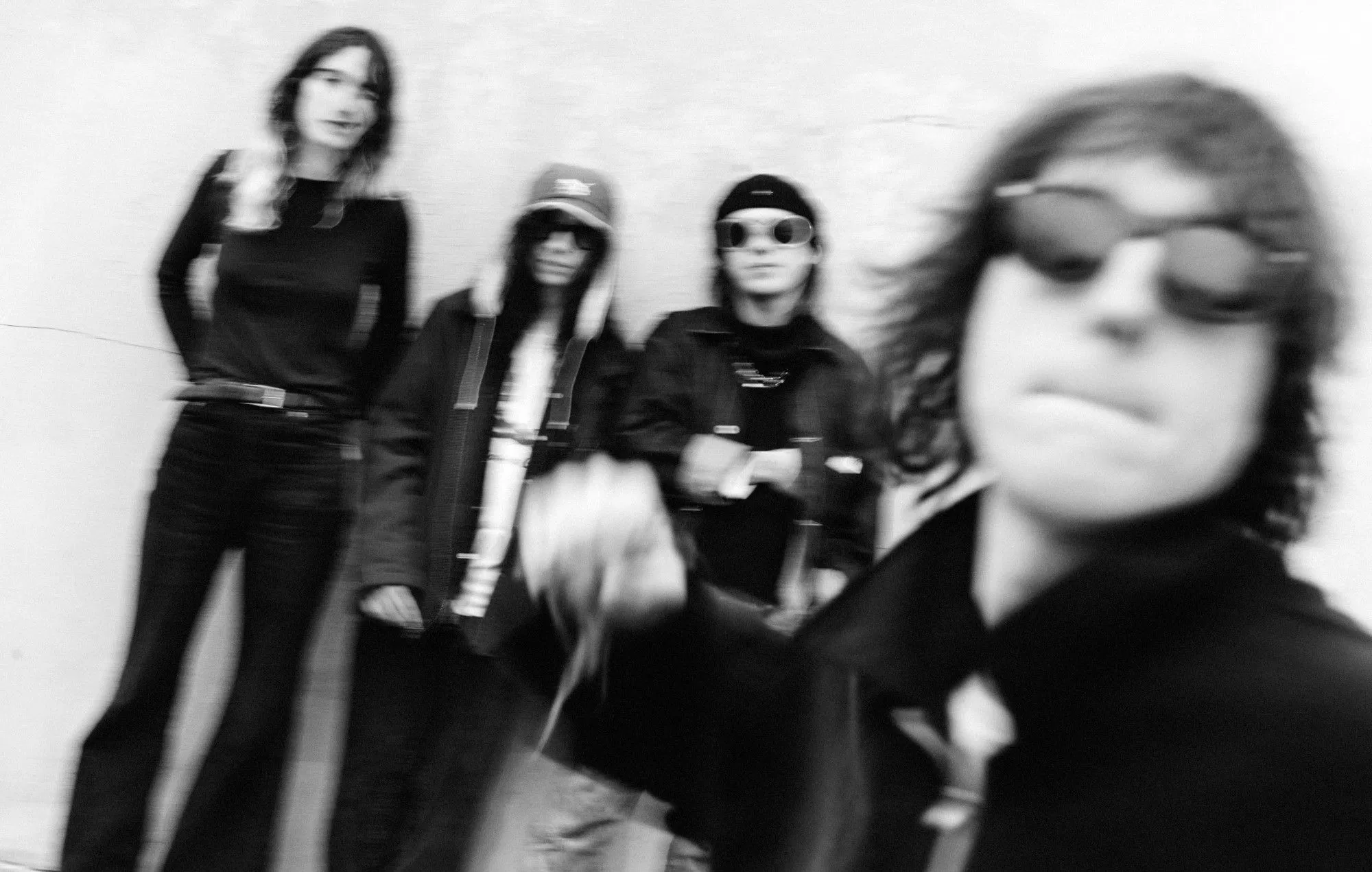
'Getting Killed' finds the band on the brink of superstardom. Frontman Cameron Winter’s solo record, 'Heavy Metal', carved out space for his magnetic presence, and here he reunites with Geese to double down on experimentation and ambition. The result is a record brimming with ideas, confidence, and spectacle. Geese aren’t reinventing the wheel for novelty’s sake, and there’s a comforting familiarity running through the album. Still, something larger looms within the songs themselves. At times, it surfaces through Winter’s vocal delivery, which can feel like that of a wandering yet captivating preacher, sermonising to an attentive congregation.
Elsewhere, it emerges in his vivid lyrical imagery, particularly on 'Taxes', where he laments, "I should burn in hell / But I don’t deserve this," before issuing the warning: "If you want me to pay my taxes / You better come over with a crucifix / You’re gonna have to nail me down." Ahead of the album’s release, Geese told Rolling Stone that during one recording session, they became so fixated on choosing a handclap sample that they forgot "to make the song." Given how much is packed into 'Getting Killed', it’s easy to imagine the five-piece getting lost in the details. Yet despite its sharp turns and meticulous construction, the album never feels cluttered. Instead, it captures a band fully embracing their exhilaratingly free-spirited identity, not so much trying to justify the fervent praise surrounding them, but boldly insisting upon it.
An overwhelming amount is happening across the record. From the shrieked, metal-like scream of "there’s a bomb in my car" on the opening track 'Trinidad', to the surreal and sardonic '100 Horses', where Winter deadpans, "All people must smile in times of war." On 'Taxes', syncopated percussion and a chiming guitar topline feel as though they could have been lifted from a Stone Roses record. 'Getting Killed' is brilliant and manic, performed by a band who know exactly how good they are. As the album closes with the declaration 'Long Island City Here I Come', it’s clear Geese have already travelled much further. They’ve propelled themselves onto album-of-the-year lists and into record collections everywhere. I hadn’t even heard of them six months ago, and now I've proclaimed them to be the next big thing to far too many people!
Tame Impala released 'Deadbeat' in October, which saw Kevin Parker take a diversion to the dancefloor but still kept the downbeat nature that has flowed through his previous four records. It's full of melancholia, self-loathing, and disjunction. This record is full of some of the most unsettling lyrics of Parker's career. Confused, painfully honest, and it leaves the listener wondering if the man who made it is ok.
Parker has had quite the 15 years. With his debut album, he took elements of the great psychedelia of the 1960s and made something unique. Critics quickly saw him as the saviour of modern guitar music. The follow-up 'Lonerism' saw Parker turn The Beatles' most trippy moment 'Tomorrow Never Knows' it a floaty ode to a solitary life. He bathed listeners in the warm psychedelic sounds of loneliness.
'Currents' took what Parker had done before, ripped up the rule book, and dragged millions along for the ride. He'd not made a great rock album; he'd made one of the best albums of the 2010s. Parker wasn't interested in sticking to a script. This album had more in common with 'Thriller' and 'Saturday Night Fever' than 'Revolver', 'Forever Changes' or 'The Piper at the Gates of Dawn'.
He'd made the jump into the world of pop. 'The Slow Rush' would see Parker continue that journey. Before that record, he'd step into the studio to collaborate with ikes of Lady Gaga, Kanye West, and The Weeknd. The lysergic grooves of ‘The Slow Rush’, though less immediate than anything off ‘Currents’, were energised by these collaborations, along with the heartbeat of ’90s house music. In the same period, he got married, bought the seaside shack where he recorded ‘Innerspeaker’, won a Grammy, and worked on a full album with Dua Lipa.
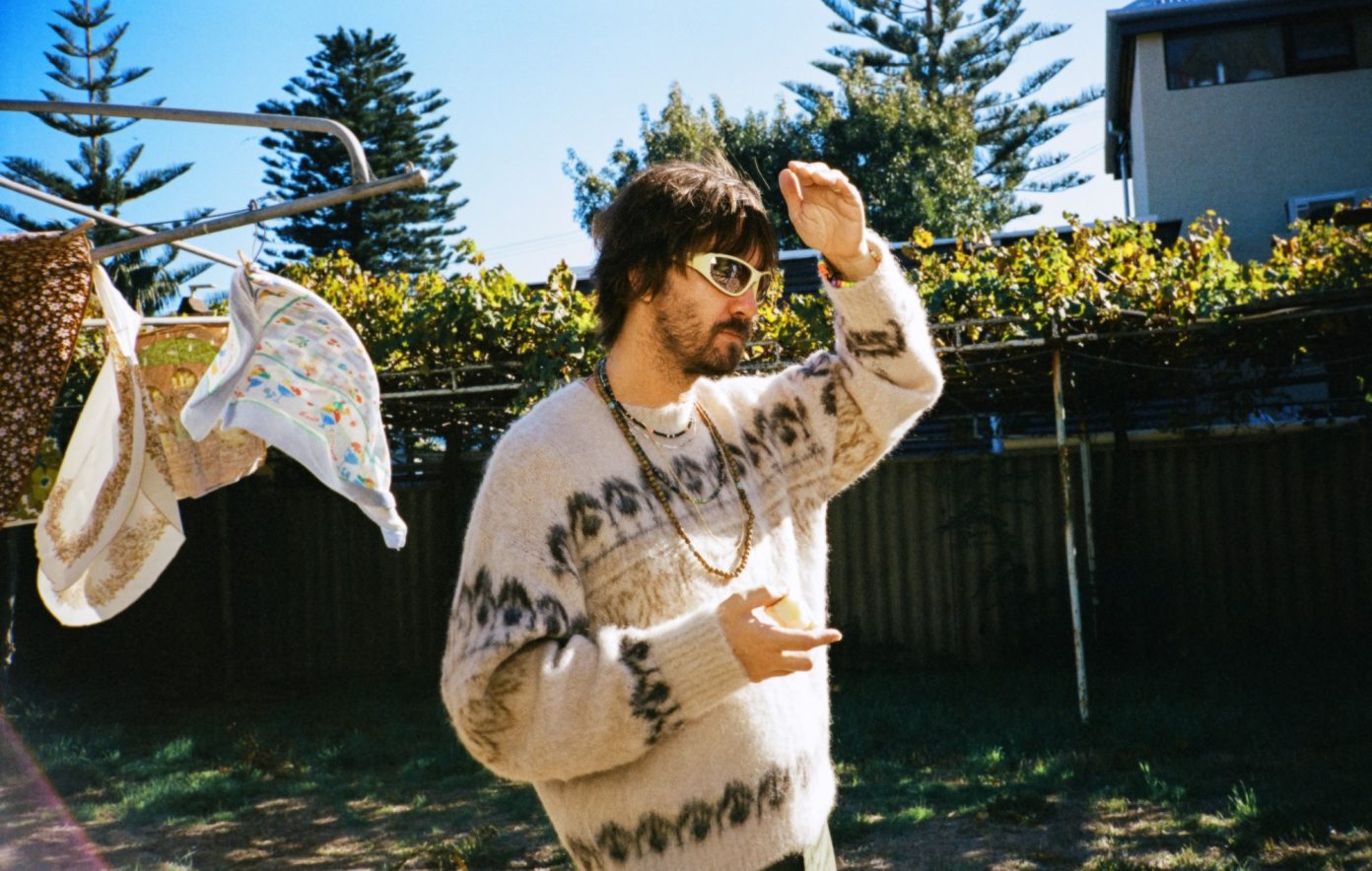
Parker had addressed his insecurities and himself on previous records. 'Lonerism' in particular spelt out his introverted nature and slow self-esteem, in a velvet syrup of psychedelic pop. 'Deadeat' though this is a whole different thing entirely. It's Parker fully embracing his insecurities as a part of his DNA and human makeup.
The more success that I have, the more I feel like I’m living a lie. It’s a sham,” he offered to GQ, later adding that naming the album “felt so warm and comforting for the world to know that’s how I see myself."
It contains some of his hardest-hitting lyrics. The opening track ‘My Old Ways’ has Parker crooning “I tell myself I’m only human” over a piano loop, which builds into a sumptuous house rhythm, where he confesses he’s “barely coping” while “always fuckin’ up to something”.
In the dramatic disco of ‘Dracula’, inspired by Quincy Jones’ work on ‘Thriller’, Parker likens himself to a shut-in who finds solace in darkness: “I run back to the dark, now I’m Mr Charisma, fucking Pablo Escobar”. By its fourth track, ‘Loser’, the album’s second single, his insecurities are hammered down to the listener.
This can sometimes get in the way of the songs and arrangements. I felt in the middle of the record, the songs begin to blend and melt into one. Luckily, Parker finds his groove again on ‘Piece of Heaven’; this is one of the best things Parker has ever recorded, not just one of 'Deadbeat's' finest moments. An ethereal, ambient-house track that feels like a spiritual successor to ‘Posthumous Forgiveness.’ It’s a moment of weightless reflection amidst the heavy beats, capturing a rare sense of peace.
There are some great moments on this record, but they just happen less than they do on Parker's previous record. In my opinion, this is the weakest Tame Impala to date. It has songs that don't go anywhere, where the dance-inspired backing tracks drown out what he's trying to say. 'Ethereal Connection' is the biggest example of this. It feels forced, like he's tried to create a song for a Berlin nightclub rather than for a Tame Impala record.
The 2025 Mercury Prize was won by Sam Fender. For his album 'People Watching'. He beat the likes of Fontaines D.C., Wolf Alice, Pulp and CMAT to the prize.
The judging panel said of Fender: “This year proved that the album remains the format of choice for artists to best present a body of work. That, however, made our job as judges of the 2025 Mercury Prize for Album of the Year…more challenging than ever.
“All 12 records on the shortlist worked so well on their own terms, ranging from ancient ballads to futuristic electronics. After much discussion, however, we all decided on one album that stood out for its cohesion, character and ambition. It felt like a classic album, which will take pride of place in record collections for years to come. ‘People Watching’ by Sam Fender is both melody-rich and expansive, marrying heartland rock with the realities of everyday life and the importance of community.
“These are thoughtful songs with broad appeal, as cinematic as they are intimate, making ‘People Watching’ a worthy winner of the 2025 Mercury Prize for Album of the Year.”
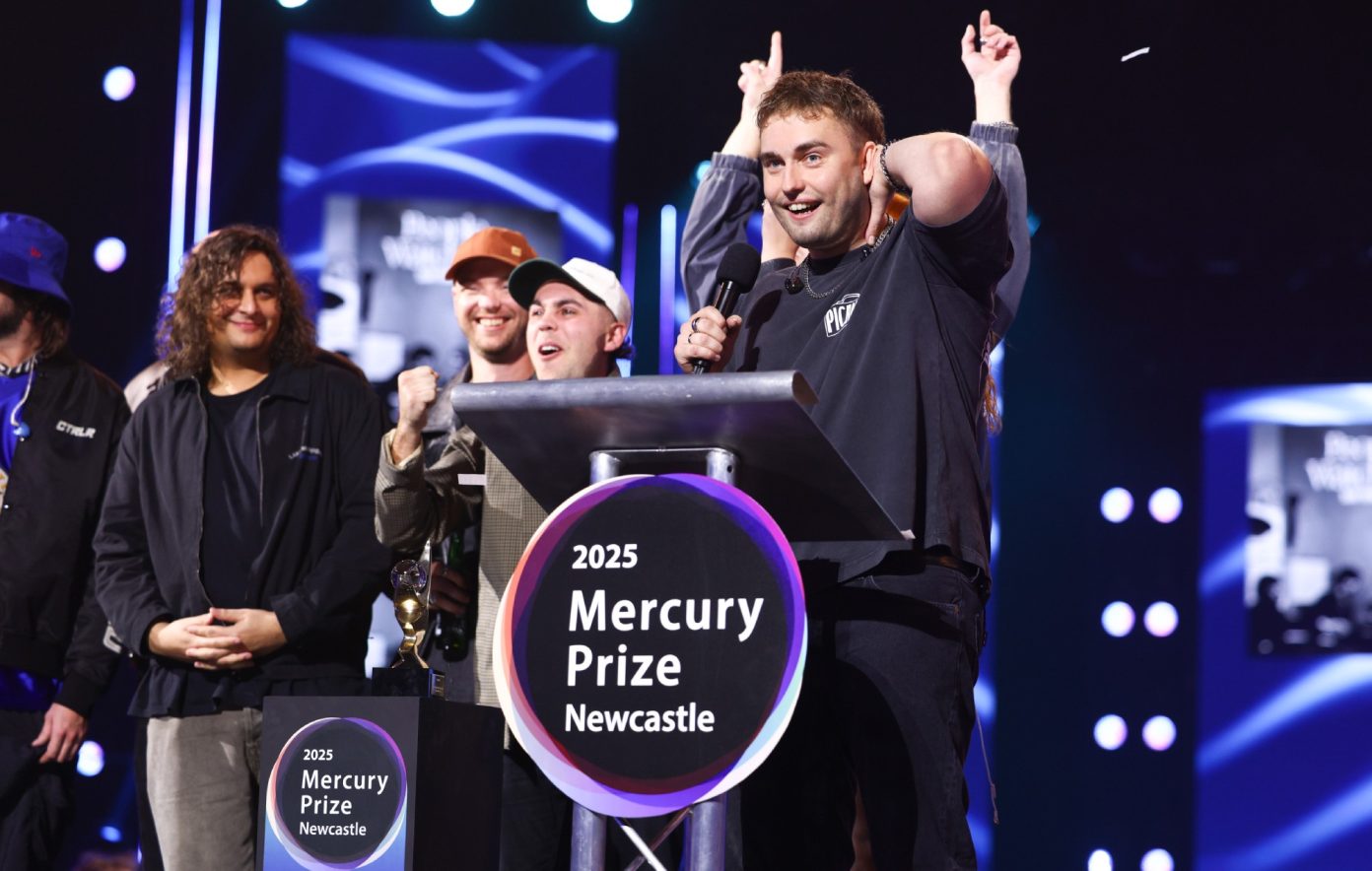
Accepting the award, Fender led the audience in a chant of “Toon Toon”. He said, “We didn’t expect this at all…I can’t think!” He then went on to thank some of his “very good friends among the nominees tonight”, including CMAT and Fontaines DC adding that he was in “great company.” He also dedicated the award to the late Annie Orwin, who inspired ‘People Watching’.
Following the Mercury Prize win, Sam shared the soothing new single 'Talk To You' which features Elton Jon on the piano.
“‘Talk To You’ was written during the People Watching sessions at British Grove,” said Fender via a press release. “It’s a song about the end of a long relationship – about the regret, the mistakes and the lessons that come with it. It’s that feeling of losing your best friend and coming to terms with that.”
He continued: “I was playing around with the riff and thought what I need is a really good pianist, and then hmmm, I wonder who I can call? And of course, who better than Elton John?”
John added, “Sam was writing and recording in a studio in West London and called to say he’d written a song with a piano riff that he thought would sound great with me playing it. I couldn’t resist, and it was so much fun playing it for him.
“I truly love Sam. He’s been a friend for many, many years, and it’s incredible to see him grow into being a truly world-class artist.”
The song is a taster from the deluxe version of ‘People Watching’, which is released on 5th December. The record features eight extra tracks, including the four tracks that appeared on his Record Store Day vinyl EP ‘Me And The Dog’.
Along with the Elton John collaboration, the album also includes two more previously unheard tracks – ‘Fortuna’s Wheel’ and ‘The Treadmill’. The extra recordings also feature the song ‘Rein Me In’ with Olivia Dean.
Death, taxes, Courteeners announcing a huge outdoor show in Manchester, some things are just inevitable. These huge gatherings in the city have been a thing for over a decade, with the first being Castlefield Bowl, and the most recent being a third time at Middleton's Heaton Park.
The Manchester show for 2026 marks a debut for Courteeners, though. A first time playing in Wythenshawe Park, a venue that in the last few years has hosted Noel Gallagher's High Flying Birds, Blossoms, New Order, Sam Fender and Fontaines D.C., with three shows next year coming from Lewis Capaldi, The Cure, with Slowdive and of course Courteeners.
Joining the band will be a host of special guests, including The Vaccines, who will play their 2011 debut album ‘What Did You Expect From The Vaccines?’ in full, The Coral, Getdown Services and Girl In The Year Above on Saturday, August 29.
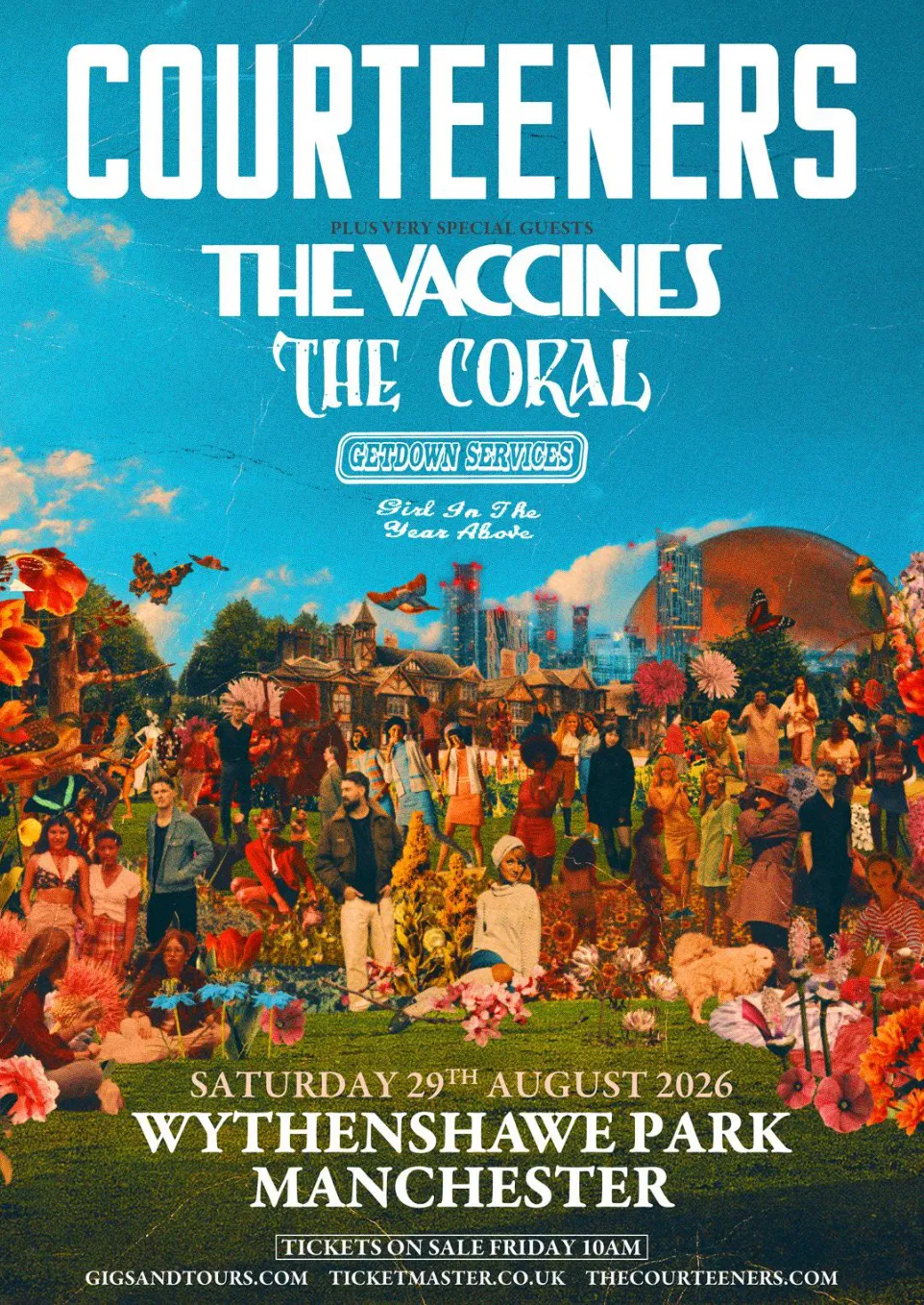
Every ticket sold will also see £1 going directly to the Music Venue Trust to support new artists on tour and invest in the future of live music. Courteeners become the latest artists to support the trust following Wolf Alice and Sam Fender.
Next year is looking very good for gigs. Alongside Tame Impala, Courteeners, Gorillaz and the heavily rumoured Oasis dates at Knebworth, there are a couple of huge anniversary tours.
DMA's have announced a UK Tour to celebrate 10 years of their debut album 'Hills End'
They’ll be playing ‘Hills End’ in full, as well as tracks they’ve never performed live, and a selection of fan favourites from across their career. The band said about the anniversary and upcoming tour plans, “The UK has always felt like a second home for us. ‘Hills End’ was where our story really began overseas, so it feels right to come back and celebrate it with the fans who’ve supported us from day one.”
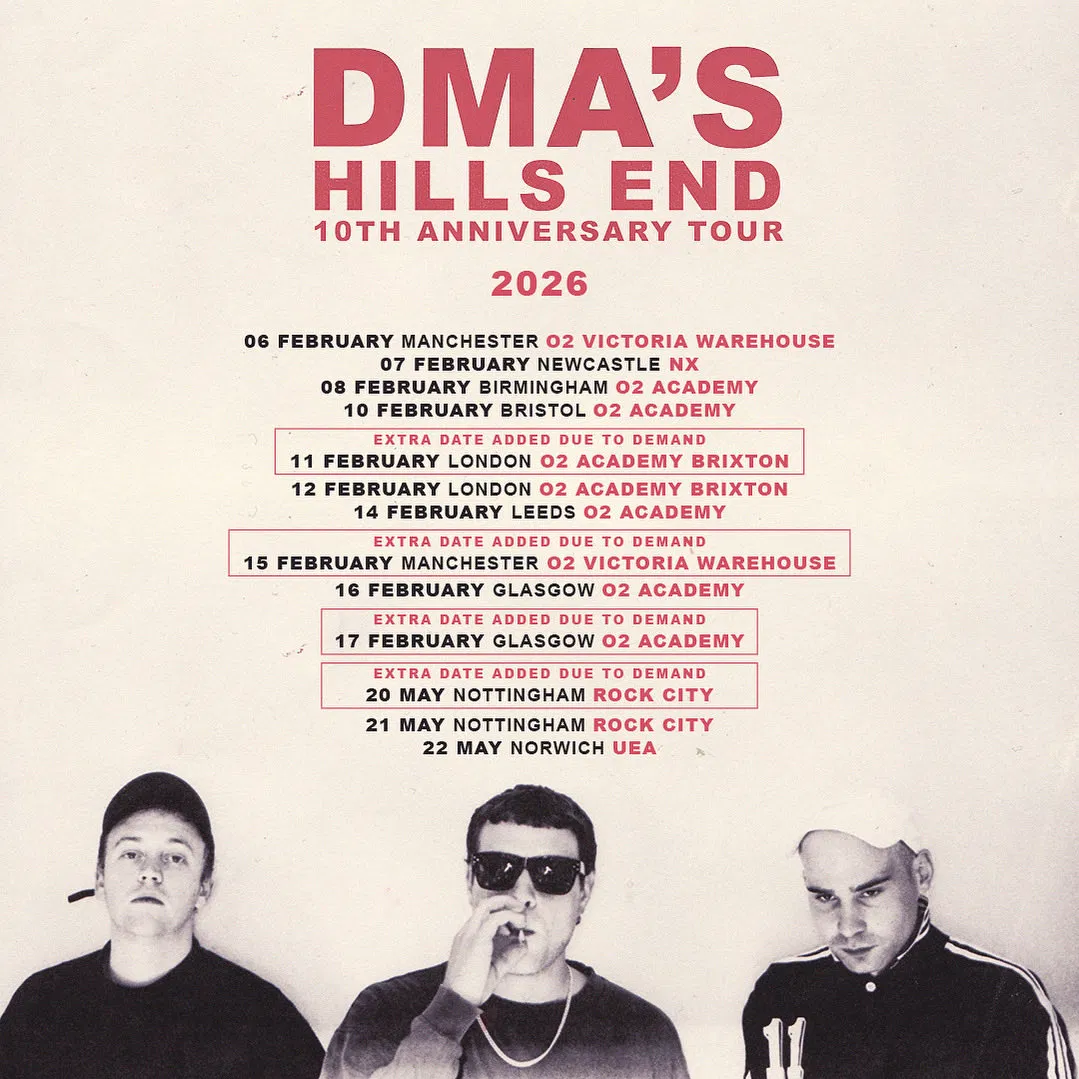
The Australian trio will kick off the tour in Manchester on 6th February at O2 Victoria Warehouse. The itinerary includes performances at London’s O2 Brixton Academy on 11th and 12th February, among other locations across the UK.
Extra dates were added in Norwich and Nottingham in May due to exceptional demand. The band also announced a further show in London, Manchester and Glasgow to cope with the demand set by UK fans.
For many fans, ‘Hills End’ is still the band’s defining statement. From the upbeat arena anthem ‘Lay Down’ through to the soberingly haunting ‘Delete’, it’s one of the finest debuts of the 2010s, a record that captures both raw energy and emotional vulnerability in equal measure. Tracks like ‘Too Soon’ and ‘In the Moment’ pulse with a restless intensity, while ‘Step Up the Morphine’ and ‘So We Know’ reveal a more reflective, melancholy side to the band. Elsewhere, songs such as ‘Melbourne’ and ‘Blown Away’ showcase their knack for atmosphere and melody, balancing grit with heart. It’s the sound of a band wearing their 90s influences on their sleeves, yet crafting something timeless through sheer conviction, huge choruses and an ear for unforgettable hooks.
Ocean Colour Scene have announced a 2026 UK tour to mark 30 years since the release of ‘Moseley Shoals’.
Released at the height of the Britpop era, ‘Moseley Shoals’ propelled Ocean Colour Scene to mainstream success upon its 1996 release, spawning massive hit singles such as ‘The Riverboat Song’, ‘You’ve Got It Bad’, ‘The Day We Caught The Train’, and ‘The Circle’. Blending soulful vocals with blues-infused guitar work and mod-inspired energy, the album cemented the band’s place alongside contemporaries like Oasis and Blur, becoming one of the defining records of mid-1990s British rock.
To mark the 30th anniversary of the album, they’re set to play career-spanning sets in Glasgow, Manchester, Cardiff, London and Birmingham next year.
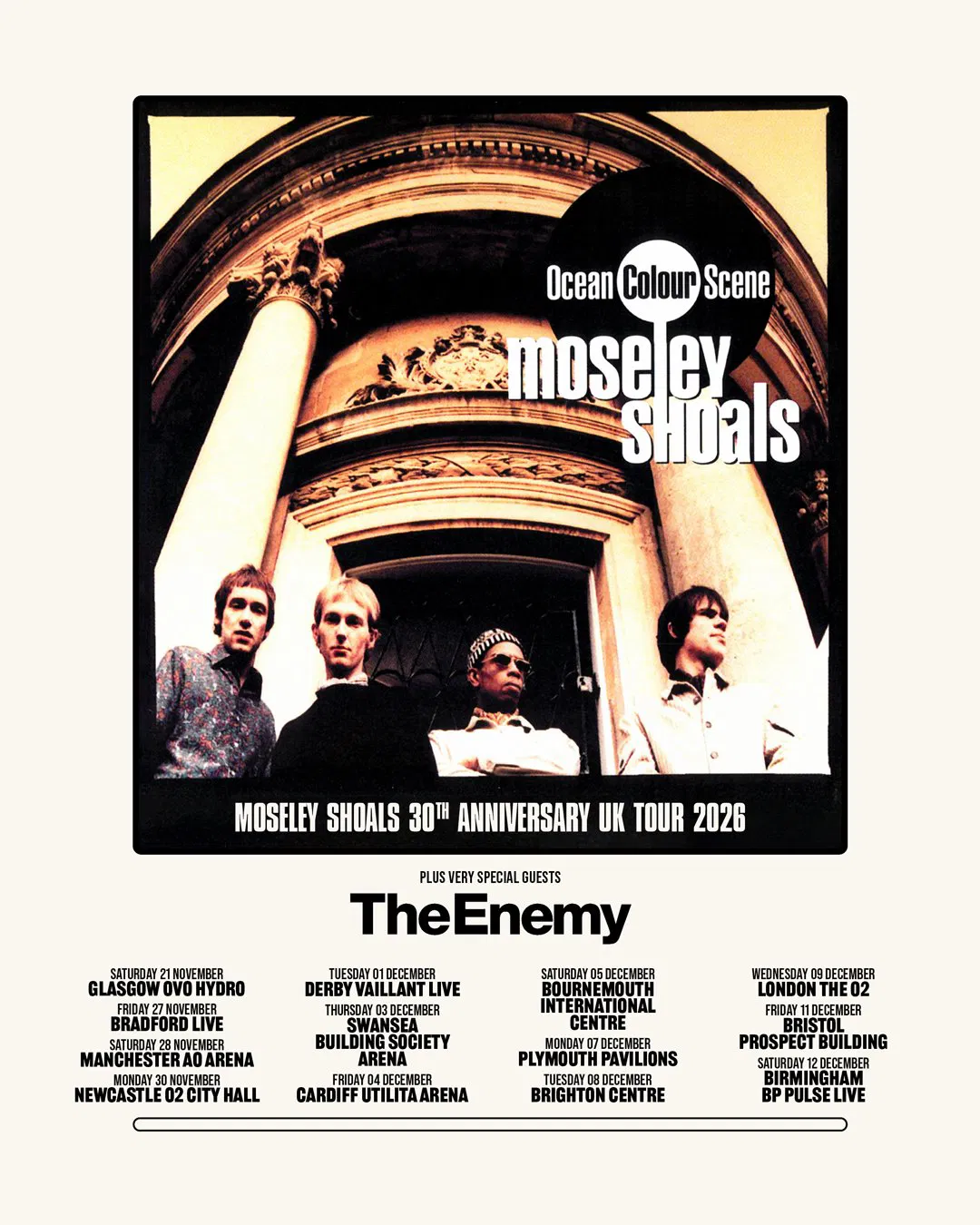
On all dates, they’ll be supported by The Enemy, whose lead singer, Tom Clarke, said the first song he learned to play on his first guitar was ‘The Day We Caught The Train’, with Fowler’s signature on the headstock.
“In twenty years of touring with other artists, I’ve never asked for another musician’s signature,” he said. “That’s the only one I needed. Every time we share a stage with them, it’s a childhood dream come true. They’re still the greatest band I’ve seen live, and they’ve got more hit songs than most bands have had hot dinners. So yeah, I’m looking forward to supporting OCS at some of the biggest rooms in the UK. It’ll be amazing to play songs from the new record we’re currently recording, as well as all the old favourites.
The Last Dinner Party returned, with 'From the Pyre', a record that sees them evolve on the sound of their debut 'Prelude to Esctasy', there's no radical about turn or change here, this is a natural progression.
Recorded in spring 2025 with Markus Dravs, ‘From The Pyre’ in part captures the aftermath of the five-piece being thrust into the spotlight and the toxic effects of suddenly being some corners of the internet’s most heavily debated topics. Rather than let the online comments drag them down, though, The Last Dinner Party have returned renewed and in supremely confident form. Their second album is driven by character-led stories.
‘This Is The Killer Speaking’ is a murder ballad about being ghosted, while the seething ‘Rifle’ puts the band in the position of a mother whose child has gone to wage war on the world, the band wondering if they could have stopped it. The warm piano pop of ‘Hold Your Anger’ positions them in the world of parenthood once more, but this time, pondering if they’d be fit for the role.
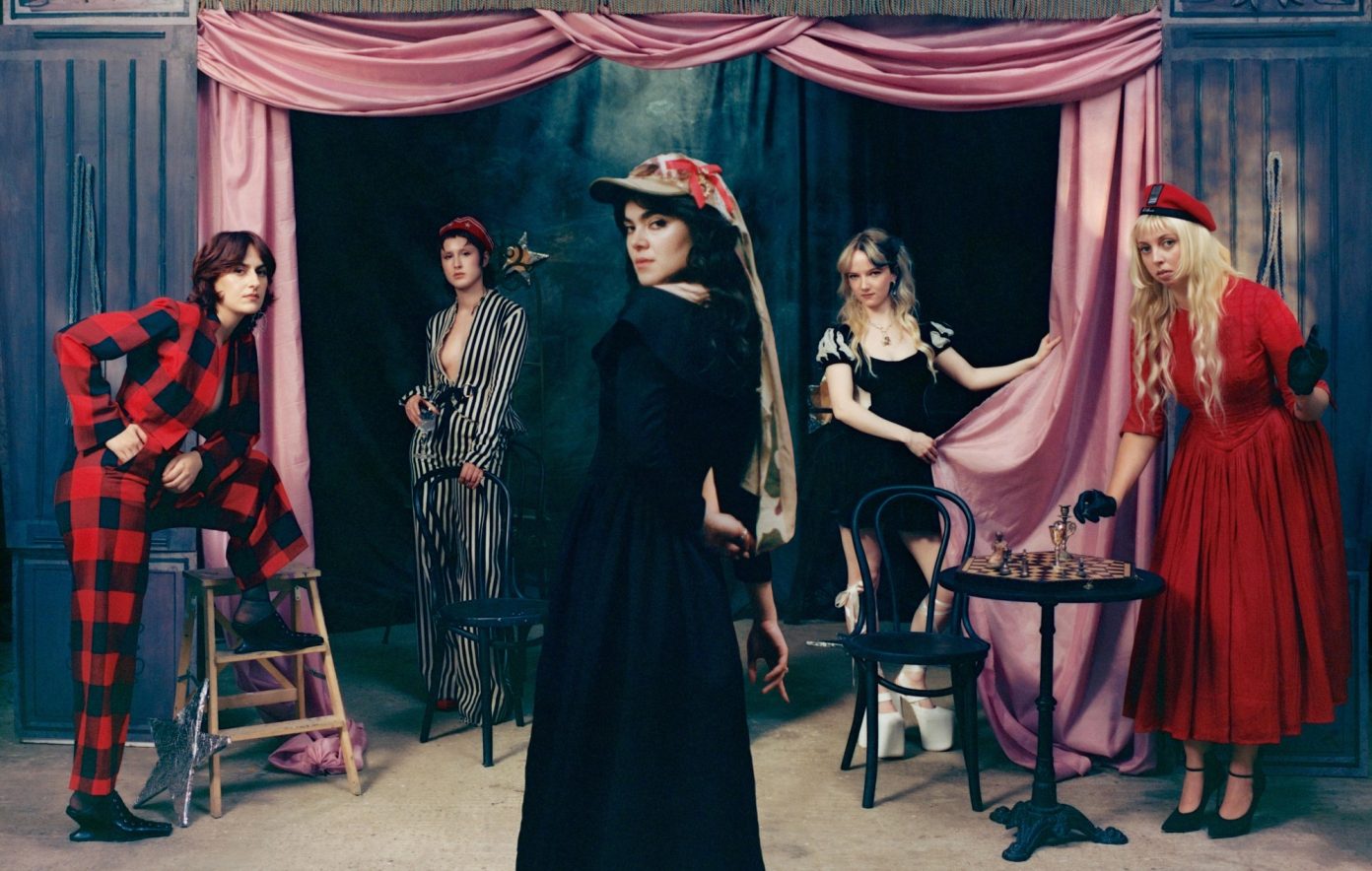
The personal is still in plentiful supply, even if packaged in these vignettes. ‘The Scythe’ is ‘From The Pyre’’s most affecting moment, Morris intertwining the twin themes of a breakup and the death of her father. “Don’t cry, we’re bound together / Each life runs its course / I’ll see you in the next one,” she sings solemnly over a gently sparkling chorus. It's one of the band's best efforts to date and a real standout as one of the best songs of 2025.
The Last Dinner Party are one of the most unique bands of the last decade, and with this second record, it feels like an accomplished offering and as dramatic as their debut. There's no indication that this record has been hurried to seize on the momentum that the band had gathered from their debut. A great album.
The Clause released their debut album 'Victim of a Casual Thing' eight years after their debut single 'Sixteen'
The band's debut record has been described as "the soundtrack of four mates growing up together." A nifty little sentence that, in my opinion, perfectly sums up this record. It's full of self-confidence, youthful chaos, heartbreak, broken dreams and late-night hedonism.
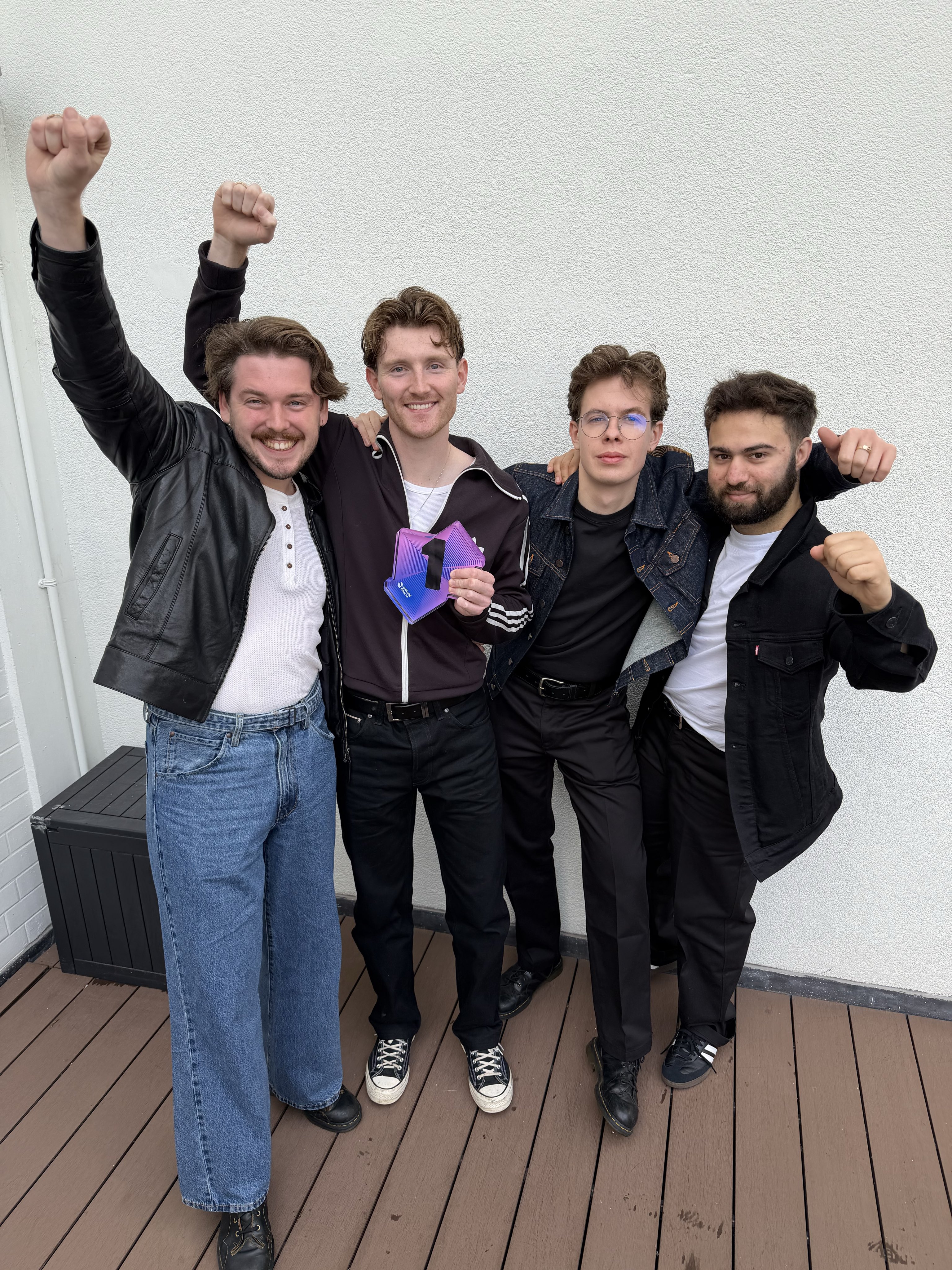
This record is a statement of identity and intent, proof that the band can craft arena-ready anthems, lovestruck bangers, and songs destined to soundtrack a new generation of indie kids. It's a brilliant debut from a band who aren't here to make up the numbers; they are here to take over.
I know it's not guitar music, but I want to give a little nod to 'The Boy Who Played the Harp' the latest record by Dave. A commanding record that sees Dave open himself up more than ever. Throughout the album, Dave explores the biblical power of his namesake, King David from the Book of Samuel, who played the harp to soothe troubled spirits. This record's purpose isn't to lift spirits, though; its purpose is to capture the snapshot in time that speaks to his generation.
The album is more muted than the previous releases, but it suits the themes that it tackles. 'Fairchild' with Nicole Blakk is a spoken word track that gives a voice to women silenced by rape culture and femicide, sharing the bleak reality of those left unheard. Dave provides a nuanced male perspective: disgusted by red-pilled counterparts yet questioning his own complicity: “All know a victim, don’t know a perpetrator / Am I one of them? The men of the past.”
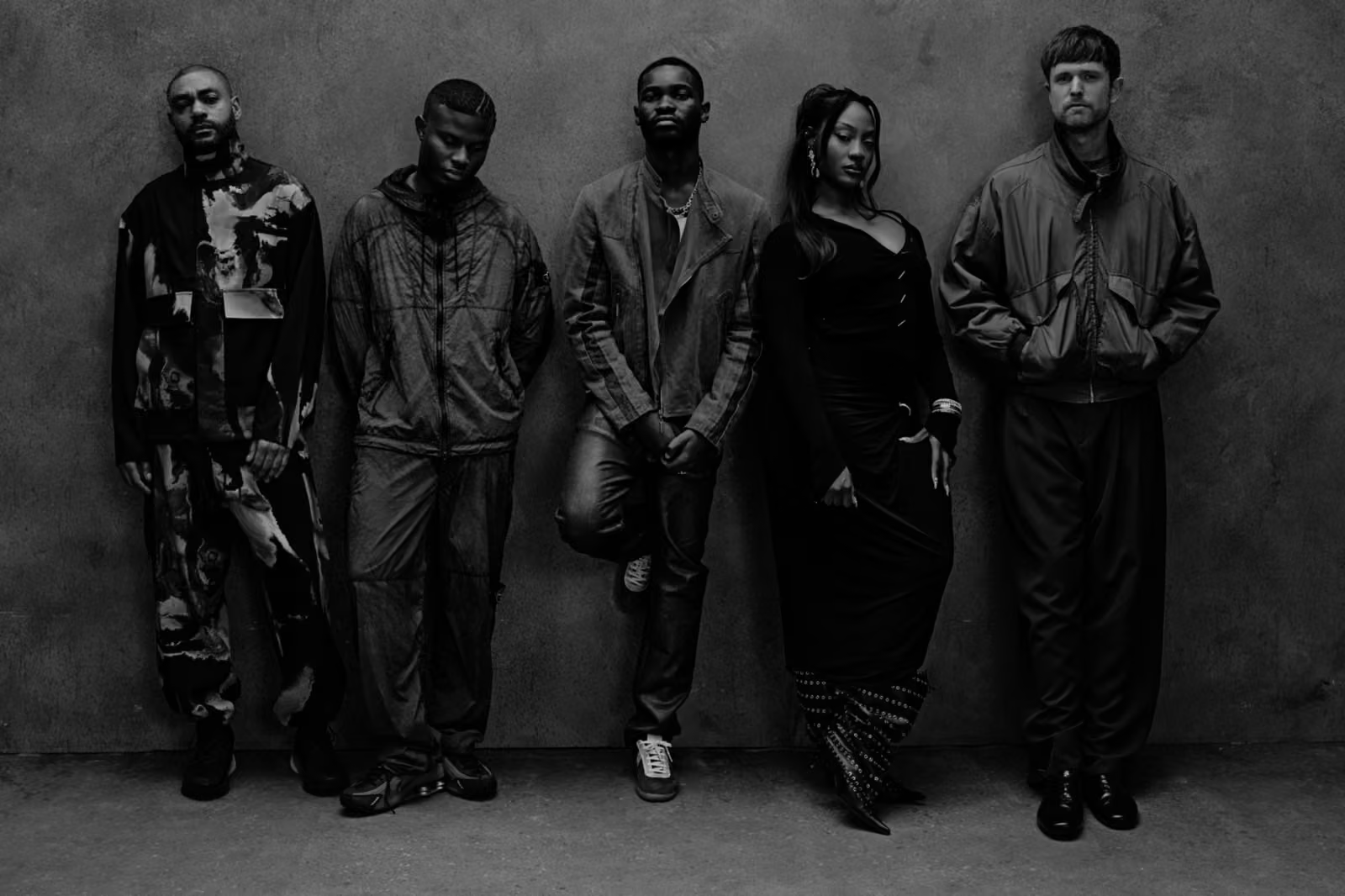
‘Chapter 16’ is a crowning moment, too. In the biblical story referenced throughout the album, King David is chosen by God through the prophet Samuel, and on this record, Kano takes on a role similar to the latter. Over a debonair instrumental, the two generations of UK rap sit across a dinner table trading fears like old friends – one wrestling with legacy, the other with longevity.
Kano even anoints Dave as “the rap messiah” while sharing his observations of UK rap’s evolution, making the track a spiritual handover where the old guard blesses the new generation.
It's an exceptional record that launches the listener into cinematic vignettes that paint vivid scenes with the rawest words. I think it's his best record to date.
Florence & the Machine returned with album number six, a record that sees her embrace horror and magic to embrace hope. Weeks ahead of the album’s release, Welch revealed to the Guardian that the catalyst for writing had been an ectopic pregnancy that had threatened her life while she was on tour. She underwent an emergency surgery and only 10 days later, in spite of the mental trauma and physical toll of miscarriage, resumed performing, adamant not to cancel two final shows.
The album dwells on mortality, often resembling both an homage and a prayer to generations of women who came before and will come after. It’s an album that aches and pulses with a sense of urgency – catharsis perhaps too plain a word to define the frenzy that runs through it.
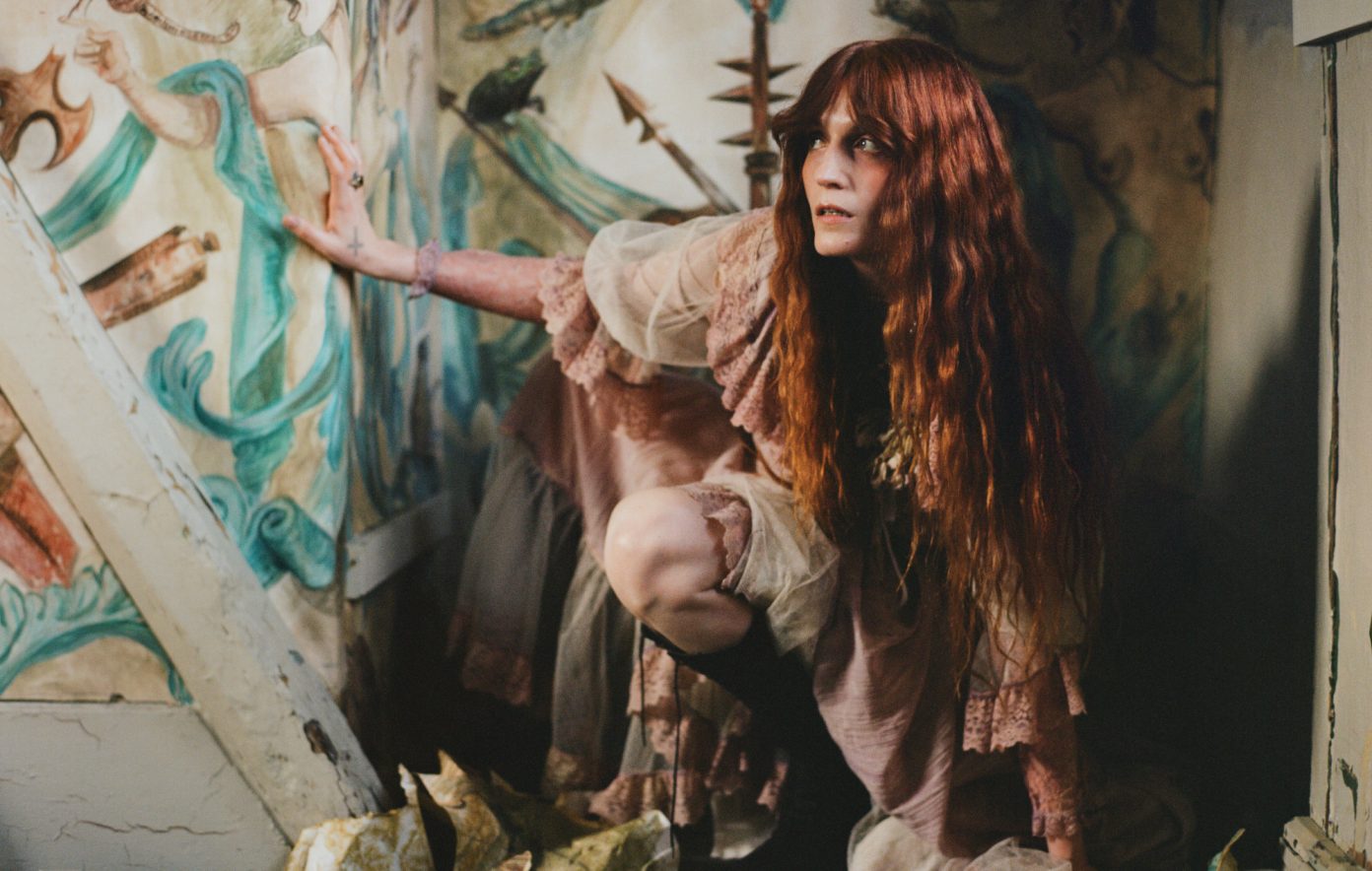
Florence discusses a lot on this record, but the album's central theme is the push-and-pull dynamic of fame. In 'Music for Men', she talks about life off stage, and she notes ruefully, is that “there’s not much applause”.
It’s a relationship that Welch is well placed to examine. Seventeen years on from the release of her debut single, Kiss with a Fist, she could reasonably claim to be the most consistently successful British alt-rock artist of her era, with the possible exception of Arctic Monkeys. At least in terms of influence over modern pop, she dwarfs Alex Turner: being sampled by Kendrick Lamar and Drake; tapped as a collaborator by Taylor Swift and Lady Gaga; hailed as an inspiration by Beyoncé; and her sound clearly in the DNA of Ethel Cain, Chappell Roan and the Last Dinner Party. It’s a position from which Welch can look back at the equivocal critical response to her early work with a degree of I-knew-I-was-right relish: on One of the Greats, she blames her early lukewarm reviews on sexism. Responding to your critics in song is a fraught business – there’s a danger of coming up with something so indignant it makes the listener wonder if they may not have had a point but 'One of the Greats'' does it with a smart, spiky humour that feels particularly effective given that a certain high seriousness about her wilfully OTT theatricality was among the criticisms laid at Welch’s door: “I’ll be up there with the men and the 10 other women in the hundred greatest records of all time / It must be nice to be a man and make boring music just because you can"
There’s no easy, radio-friendly hit here, nor a euphoric finale, with the album instead departing on a small exhale. Album closer ‘And Love’, then, is her final embrace, fluttering away in a haze of classic Florence + The Machine harp and distant murmurs of “peace is coming”
It's a record that has all of the elements of classic Florence & the Machine, both in lyrical content and musically in sound. It's always good to have Florence back.
Florence was also announced as one of six headliners for Reading & Leeds 2026. She would be topping the bill alongside Dave, Raye, Fontaines D.C., Charli XCX and Chase & Status.
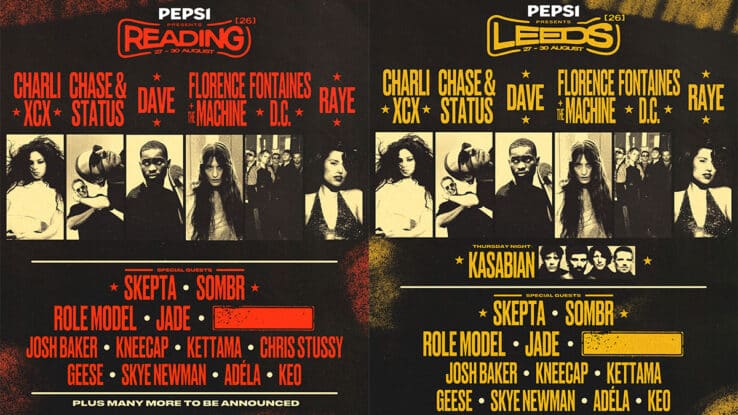
The music world lost a true icon on 20th November 2025, Gary 'Mani' Mountfield passed away. With the news being broken by his family.
Best known for his role in the seminal Manchester band The Stone Roses. His bassline is the first thing you hear on the bands debut record, gliding across the cosmic plain of 'I Wanna Be Adored' and on the albums last track 'I Am the Resurrection' he gives a nod to arguably the most iconic band ever, by playing 'Taxman' backwards before shifting into loose limbed funk, working around the chiming guitar of John Squire, the pulsating drums of Ian 'Reni' Wren, and the otherworldly statement of intent vocals from Ian Brown.
He'd help defy a scene, cause his hometown to get a new name, Manchester became Madchester, and his basslines led indie kids to the dancefloor. A childhood growing up to Northern Soul and Funk gave The Roses their groove, alongside Reni, they formed arguably the greatest rhythm section of a British band ever.
“When Mani joined, it almost changed overnight,” Ian Brown said. “It became a totally different groove…Straight away, everything just fell into place.”
Both weighty and melodic, Mani’s bewitching basslines became the bedrock and, often, the driving force of The Roses’ breakthrough tracks ‘Elephant Stone’, ‘Made Of Stone’, ‘She Bangs The Drums’ and 'I Wanna Be Adored'. He would become the main reason guitar bands would become obsessed with making kids dance.
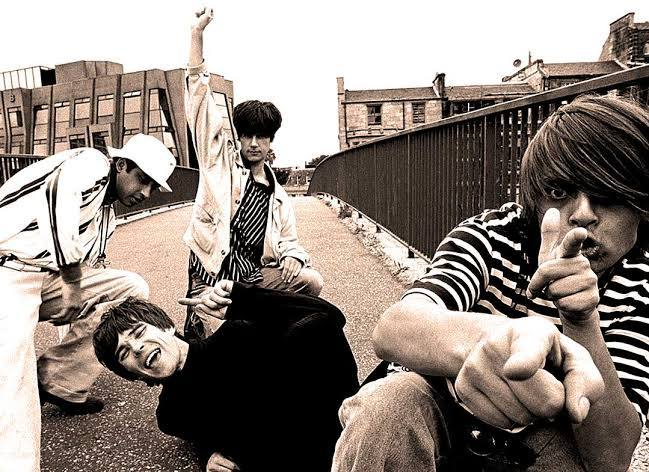
Following the debut album’s Top Five success came The Stone Roses’ cultural coronation: the so-called “baggy Woodstock” at Spike Island in 1990.Spike Island itself was a reclaimed chemical waste site in Widnes. To outsiders, it may have seemed an odd, even reckless choice. But within the context of Britain’s burgeoning rave culture, it made perfect sense. This wasn’t just a concert; it was a celebration of music, of a culture, of a moment suspended in time. It hinted at the end of Tory rule, heralded the rise of rave culture, and gave those now-iconic songs an almost mythic platform.
Thirty thousand fans descended on the windswept banks of the Mersey Estuary that windswept bank-holiday weekend, each paying £14 for the chance to witness what had been hyped as the gig of a lifetime. The setlist overflowed with fan favourites, and the air crackled with anticipation. For some, the experience was transcendent, an almost spiritual convergence of sound, youth, and rebellion. For others, the open-air acoustics and swirling wind dulled the impact.
But the details hardly mattered. Spike Island was never about flawless sound or technical precision; it was about what the event meant. It was the merging of worlds: indie and acid house, guitars and turntables. A euphoric stance against the fading grip of Thatcherism
Following Spike Island, the band would become entangled in legal wrangles with label Silvertone, which kept the band from releasing any new material for several years following the 1990 ‘One Love’ single. It was Mani’s dense, funky bass which provided the major through-line to their second album ‘Second Coming’ in 1994: a record otherwise dominated by Squire’s more blues rock tendencies.
In the fallout which followed, culminating in a notoriously poorly-received headline set at Reading Festival in 1996, Mounfield was Brown’s only permanent ally in the band as Squire and drummer Alan “Reni” Wren departed.
After leaving The Roses following the bands split in 1996, he'd go on to join Primal Scream, one of just three bands he’d claim to be willing to join (the others being The Jesus & Mary Chain and Oasis), becoming the core of the bands highly acclaimed and influential future rock rejuvenation with 1997’s ‘Vanishing Point’ and 2000’s ‘XTRMNTR’. Mounfield’s upbeat attitude and musical energy have been credited with reviving the band, amid talk of splitting after the disheartening and drug-heavy experience of ‘Give Out But Don't Give Up’.
Across 15 years and five albums with Primal Scream, Mani acted as Bobby Gillespie's right-hand man, and even found time to for stints with bass-player supergroup Freebass alongside New Order’s Peter Hook, The Smiths’ Andy Rourke, and Haven’s Gary Briggs, tours with Ocean Colour Scene, and guest appearances at Ian Brown solo shows.
In 2011, he reunited with The Stone Roses, playing huge festival shows and stadiums. Continuing to do this until the bands break up in 2017. The reported reason for the reunion had been Mani, who met up with Brown and Squire at his mother’s funeral in 2011. He commented that the event was “the cloud that gave us the silver lining” to patch up their differences.
Musician deaths have hit me before; Ozzy Osbourne, for example, was a cultural phenomenon, and I remember having a feeling of sadness aged sixteen when I found out Bowie had passed.
This one felt different, though. The Stone Roses are one of the most important discoveries in my life; those songs mean the world to me. The band's debut record remains a cornerstone of my record collection. As Clash Magazine put it, the album remains “an overwhelming statement of working-class pride.” It wasn’t music for the elite or the critics; it was for the dreamers, the ravers, the disillusioned youth looking for meaning and escape. The impact that the band had on me cannot be understated. Without The Stone Roses. I'm not writing this post; Beyond the Grooves does not exist.
2025 seemed to be the year when bands reunited. Pulp released new music, and Oasis reunited with Live 25. Radiohead's resurrection was a lot more understated. After seven years of mystery and solo side-quests, Radiohead finally stepped back into the light for a run of residency shows that redefined what a legacy act can be. Eschewing the traditional "hits" tour, Thom, Jonny, Colin, Ed, and Phil performed in the round, encased in a circular box of semi-transparent screens that rose and fell like a digital lung.
The November residency at The O2 was a masterclass in tension, prompting the Evening Standard to hail it as "their most gleeful, hit-packed set in memory." Opening with a weightless, TikTok-rejuvenated version of ‘Let Down’, the band proved that they haven't just aged; they’ve become more "telepathic." The setlists were a fever dream for die-hards, whittling down 30 years of music into a 25-song nightly ritual that felt both "greatest hits" and "avant-garde." Watching Ed O’Brien take the lead on a transcendent ‘Arpeggi’ or Thom Yorke jigging across the stage to the industrial funk of ‘The National Anthem’ was a reminder that while they might be "grey-bearded sea dogs" now, their ability to channel cultural anxiety into communal ecstasy remains unmatched.

The main sets were anchored by a rotation of heavyweights, with a rare, soaring rendition of ‘Fake Plastic Trees’ blowing the roof off the arena. ‘Climbing Up The Walls’ made a haunting tour debut that saw Thom’s vocals pushed to their distorted limit, while staples like ‘No Surprises’, ‘Paranoid Android’, and ‘Karma Police’ provided the kind of massive, spine-tingling sing-alongs that once felt impossible for a band this experimental. They didn't need a new album to be one of the most important bands in the world; they just needed to be in the same room again.
After one of their biggest years to date. Wolf Alice rounded it out with some arena shows, including two sold-out nights at the O2 in London. Now four albums in Wolf Alice have never been more ready for arenas.
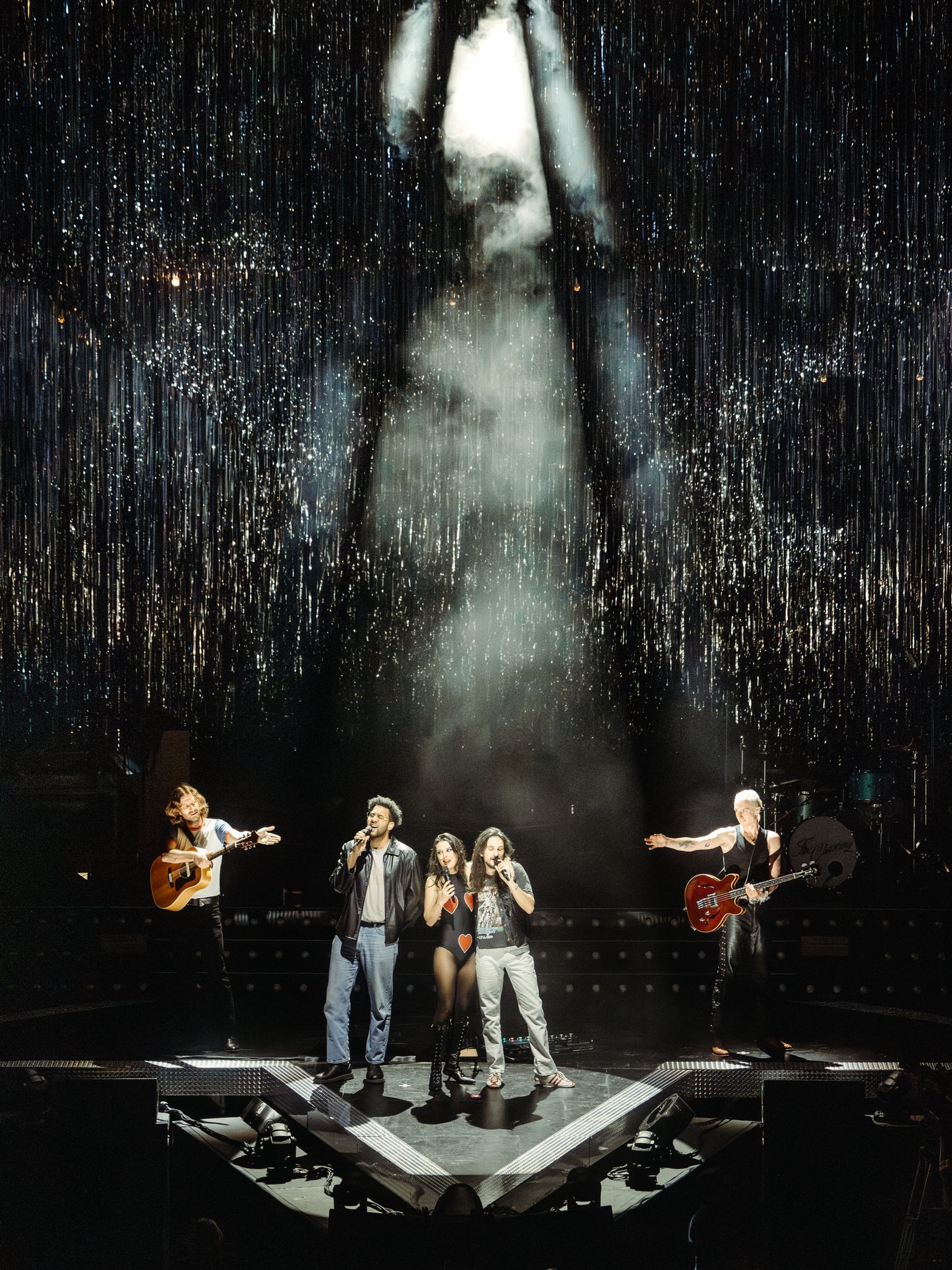
They are a band who have embraced reinvention throughout their fifteen-year career, and offer so much on stage. Ellie Rowsell is one of the greatest frontwomen ever. Her voice croons and snarls within minutes of each other. The band are exceptional at perfectly slotting songs from the band's latest effort, 'The Clearing,' into the set alongside the classics.
These shows act like an eras tour for the band from the indie loved-up romance of 'Bros' through to the bass-driven groove of 'Formidable Cool' and the snarling punk aggression of 'Smile'. The offering of the songs here puts the band alongside former labelmates The 1975 and the Arctic Monkeys for sheer genre variety. Fans get so much, folk, 90s shoegaze, 70s glam, punk, indie bangers. The show felt balanced, despite nearly all of the new record being played, the band found time for the old bangers 'You're a Germ' featured just before 'Safe From Heartbreak' with an encore of 'The Last Man on the Earth' and quite possibly the greatest indie love song ever, 'Don't Delete the Kisses'.
In a decade, Wolf Alice has achieved so much; these arena shows feel less like a trial run and more like a victory lap. The band know it too. Ellie Rowsell's stage presence has evolved, and her vocal ability is ridiculous; she does not falter at all. Hitting the high notes on 'Bloom Baby Bloom' and the primal screams on 'Yuk Foo', it's spectacular to watch. It would be unfair to single Ellie out, though; each of the band plays their part, drummer Joel Amey showcased not only his drumming skills but also took the lead on 'White Horses', the unbelievably heartfelt reflection on heritage and identity.
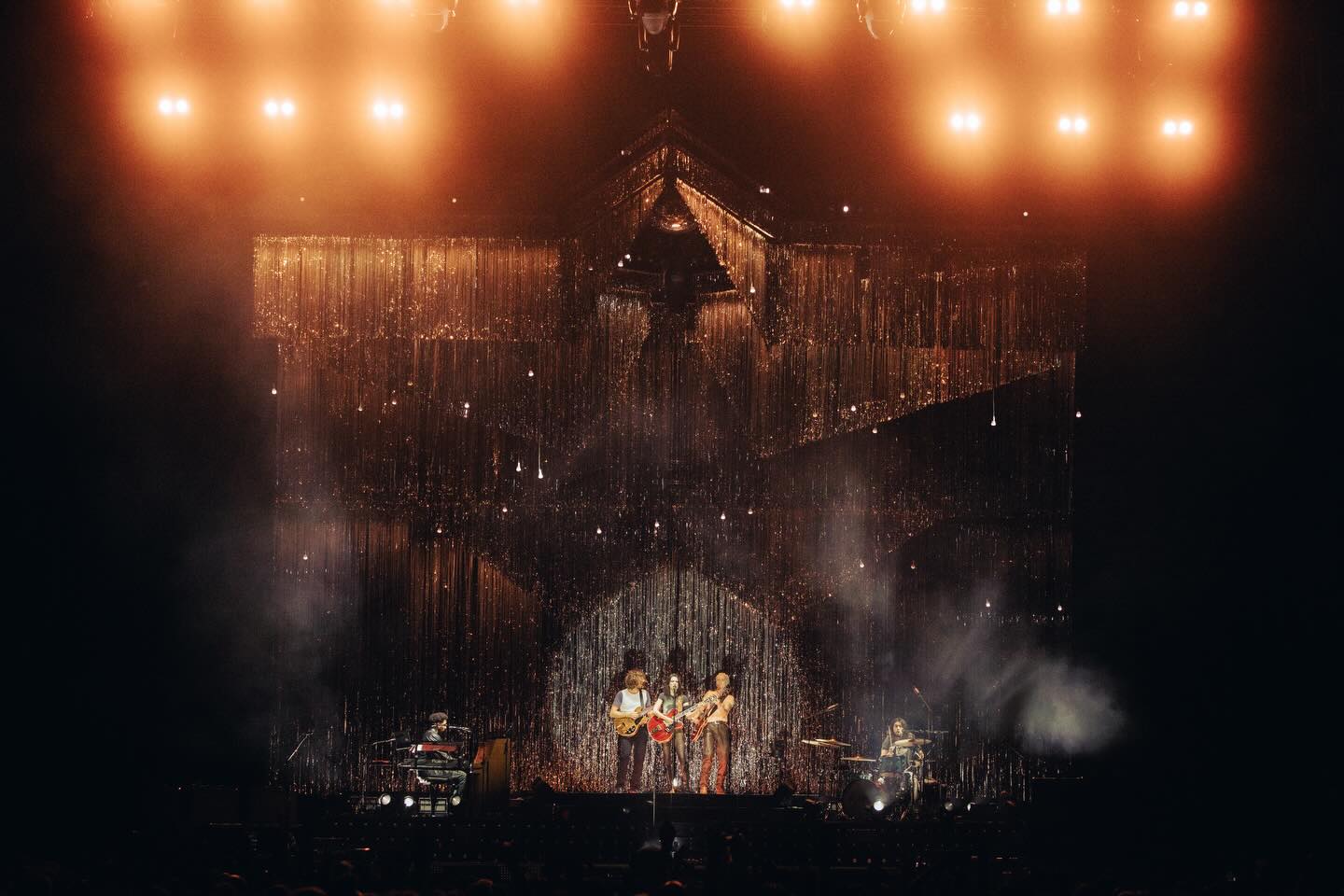
Theo Ellis holds things down with his bass playing and also acts as the band's unofficial cheerleader, reminding the crowd how much this means to them and encouraging mass sing-alongs, mosh pits, and swaying arms. Joff Odie is criminally underrated as a guitar player; he keeps things moving with his playing, perfectly complementing Rowsell when needed and, at other times, completely commanding the stage.
Wolf Alice are in a rich vein of form now, and long may it continue.
The first big piece of news for 2026 came in the form of an Instagram announcement. British charity War Child has sparked massive online buzz after teasing a potential new star-studded record. Rumours are flying that Arctic Monkeys are involved, alongside heavyweights like Fontaines D.C., Damon Albarn, Graham Coxon, Young Fathers, Wolf Alice, Foals, Pulp and English Teacher.
War Child, an organisation dedicated to protecting and supporting children in conflict zones, has a legendary history of musical collaborations. It all began in 1995 with the iconic album 'Help', which famously united Britpop rivals Oasis and Blur on a single tracklist. That record, featuring the likes of Radiohead and Portishead, raised over £1.25 million and set the stage for future releases like 'Hope' and 'War Child Presents Heroes'.
On January 7th, a new Instagram account @WarChildRecords was set up. The first post revealed that “there is a group of artists who are working on something important in support of War Child.
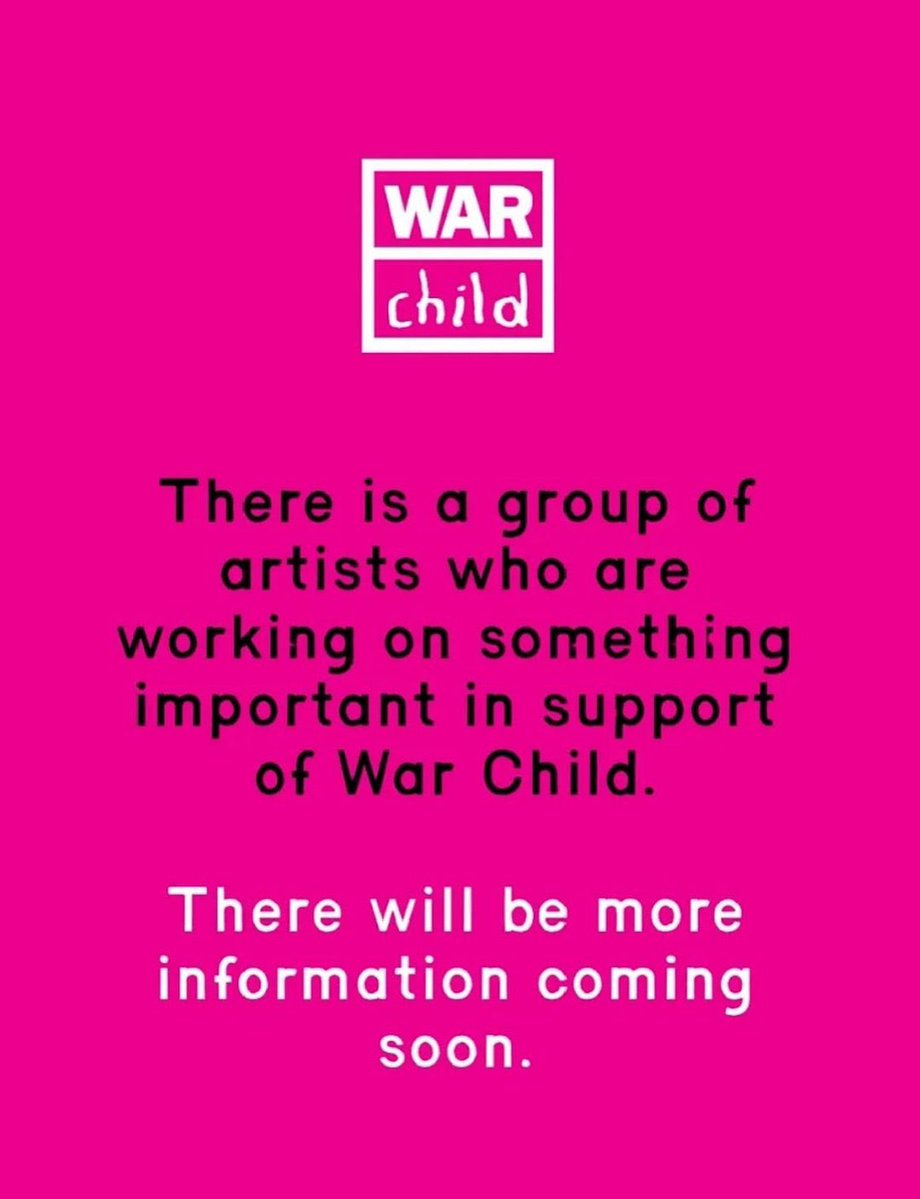
While official details remain under wraps, all signs point to producer James Ford helming the project. Ford shared the War Child announcement on his own account along with a sign-up link for fans.
Best recognised for his career-defining work with Arctic Monkeys, Ford has become one of the most sought-after producers in the world. Over the years, he has shaped the sound of Gorillaz, Florence + The Machine, Depeche Mode, Blur, Pet Shop Boys, Fontaines D.C., Pulp, The Last Dinner Party, Foals, Geese, and many more.
Could we see a contribution from Oasis, especially following their massive reunion? Would The 1975 lend a track? If we're continuing the theme of honouring the best of this generation. Sam Fender, Wunderhorse would be perfect fits.
On January 15th, after a couple of days of cryptic posters appearing in major cities worldwide, Harry Styles has officially confirmed his return with a new studio album titled ‘Kiss All The Time. Disco Occasionally’.
The rollout began with a series of minimalist adverts featuring the phrase "We Belong Together," which were spotted by fans in locations ranging from London and Paris to New York and Sydney. The teaser campaign shifted gears when Styles sent a lo-fi voice note to fans via WhatsApp, featuring a brief snippet of him singing the phrase over a muted melody.
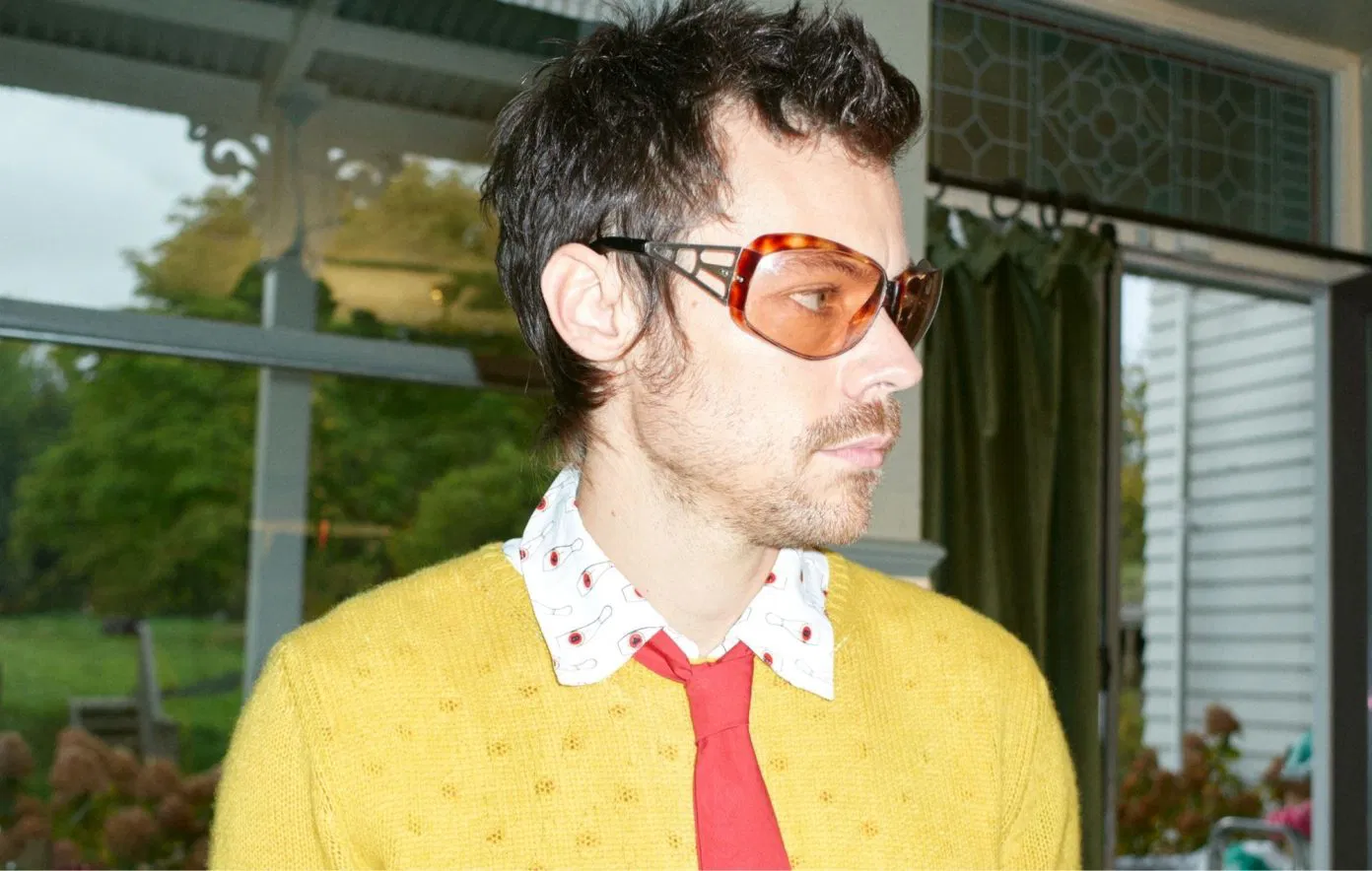
Scheduled for release on 6 March, the album sees Styles reuniting with long-time collaborator and producer Kid Harpoon.
Looking further ahead, bookmakers have already tipped him as a frontrunner to headline Glastonbury 2027, following the festival’s scheduled fallow year.
This project marks Styles’ first release in four years, following the monumental success of ‘Harry’s House’. That album, which featured global hits like ‘As It Was’, ‘Late Night Talking’, and ‘Music For A Sushi Restaurant’, earned him Album of the Year at both the Grammy and Brit Awards. To date, ‘As It Was’ remains his most successful solo venture, surpassing 4.2 billion streams on Spotify.
‘Kiss All The Time. Disco Occasionally’ also represents a new chapter for Styles following the tragic passing of his former One Direction bandmate, Liam Payne, in October 2024. Reflecting on their time together in a statement last year, Styles noted that it was an "honour" to perform alongside Payne, whose "greatest joy was making other people happy."
Following some rumours on Instagram, War Child records announced 'HELP (2)' a follow up to the 1995 'Help' album.
Produced and stewarded by James Ford, the record was captured during an intensive, high-energy week at Abbey Road Studios in November 2025. The process was a deliberate homage to the 'Instant Karma' philosophy of John Lennon, who famously believed the best records were "recorded on Monday, cut on Tuesday, pressed on Wednesday, packaged on Thursday, distributed on Friday, and in the shops on Saturday."
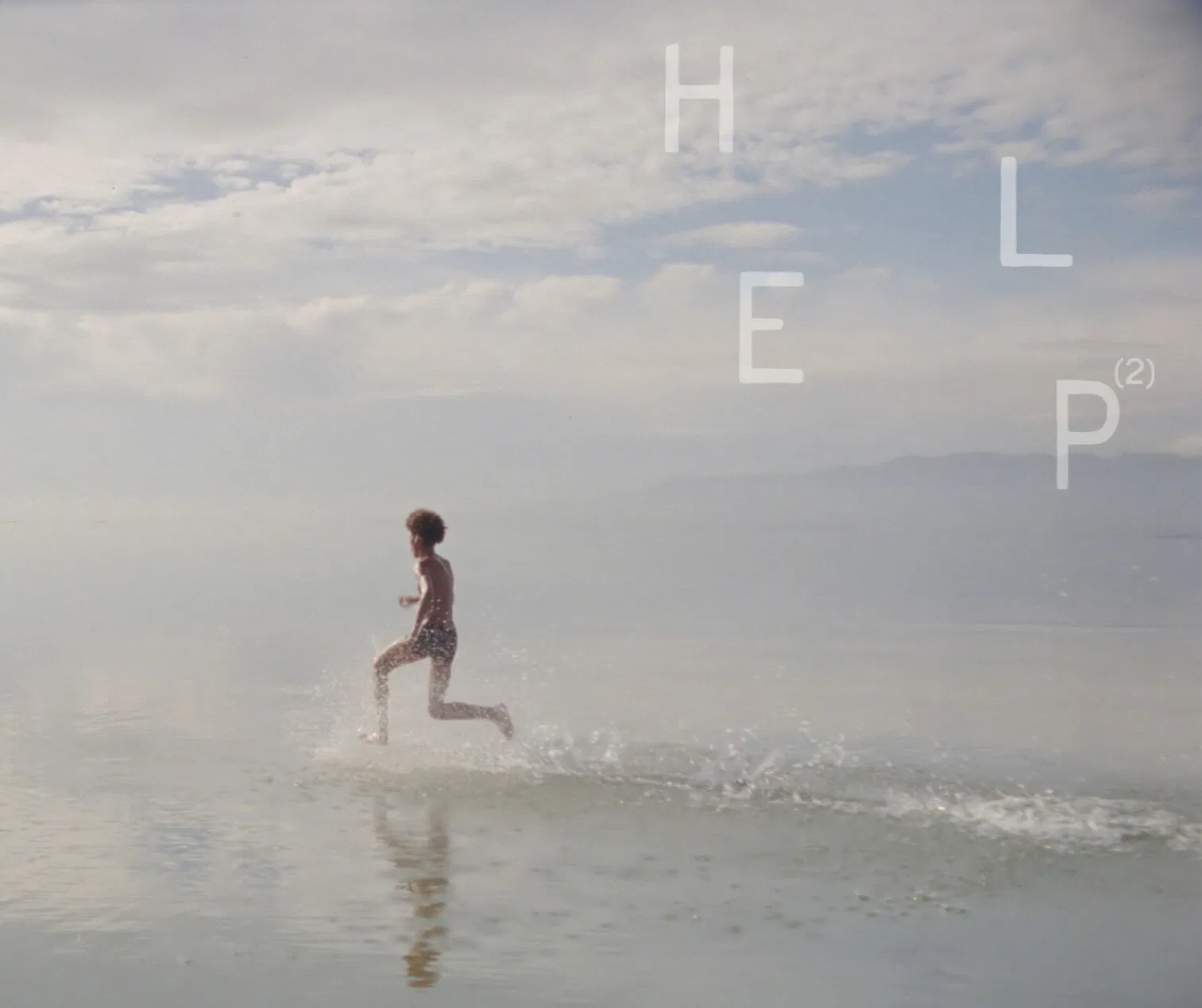
It is a breakneck pace that mirrors the urgency of the cause. In 1995, the original ‘Help’ made history by being recorded on Monday, September 4th, and hitting shelves just five days later on Saturday, the 9th. For ‘HELP(2)’, the music industry has once again mobilised with that same frantic, vital energy to ensure these songs reach the public while the need is most dire.
The tracklist is a testament to the album’s ability to unite the pop world with indie-rock royalty. One of the most anticipated highlights, ‘Flags’, sees Damon Albarn joined by Johnny Marr, Kae Tempest, and Grian Chatten of Fontaines D.C. (who also contribute a haunting cover of Sinead O’Connor’s ‘Black Boys On Mopeds’).
The surprises continue with Foals, who offer their first new material since 2022’s ‘Life Is Yours’ with ‘When The War is Finally Done’. Elsewhere, the record bridges generational divides with a standout pairing of Olivia Rodrigo and Graham Coxon for a cover of ‘The Book of Love’, while Depeche Mode provide a sombre, electronic reimagining of Buffy Sainte-Marie’s ‘Universal Soldier’.
Anchoring this massive project is the lead single, ‘Opening Night’, the first new material from Arctic Monkeys in four years. By stepping out of their hiatus to lead such an urgent collection, the band sets a sophisticated tone for a record that refuses to look away from the global crisis.
Sonically, ‘Opening Night’ is a fascinating synthesis of the band’s evolution. It certainly doesn’t share the polished, leather-jacket swagger of ‘AM’. Instead, it opens with wiry, robotic percussion and fingerpicked, clean guitar, low-key and intimate.
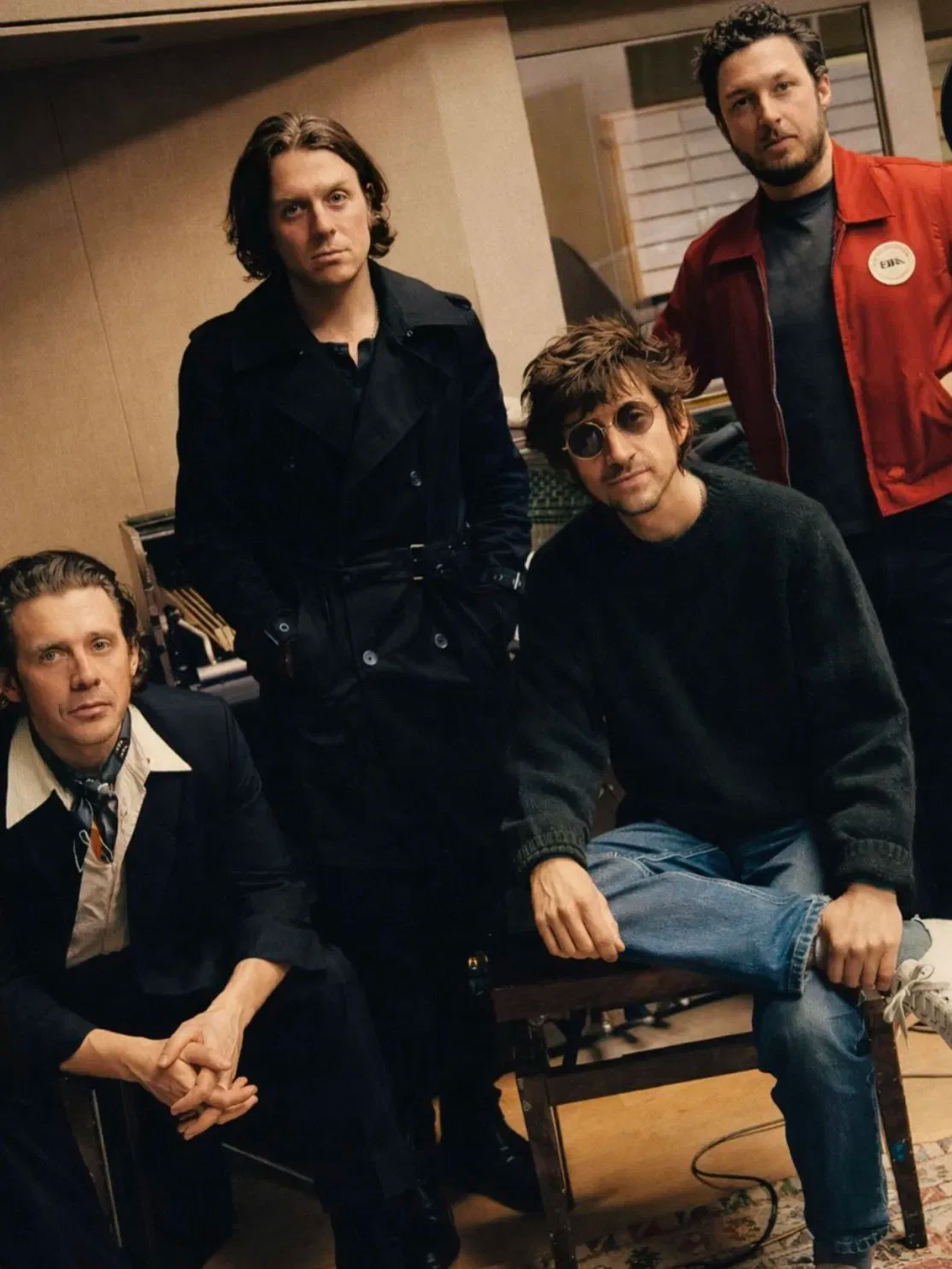
As the track unfolds across its four-minute runtime, it begins to harken back to the lush, cinematic orchestration of ‘The Car’, with sweeping strings that add a sense of grand drama. Yet, beneath that elegance lies a grit we haven't seen in years. There are flashes of murky, sinister guitar work that feel pulled straight from the ‘Humbug’ era, providing a dark counterpoint to the orchestral swells.
The sheer scale of the talent involved is best captured by the official billing itself. From the heavyweights of the '90s to the defining voices of the 2020s, the full lineup represents a rare moment of total industry alignment.
This sprawling 23-track collection serves as a definitive map of modern alternative music. While each artist brings their own distinct signature, the project remains a cohesive statement of solidarity, moving from stripped-back acoustic covers to high-octane studio collaborations, and of course a few new songs.
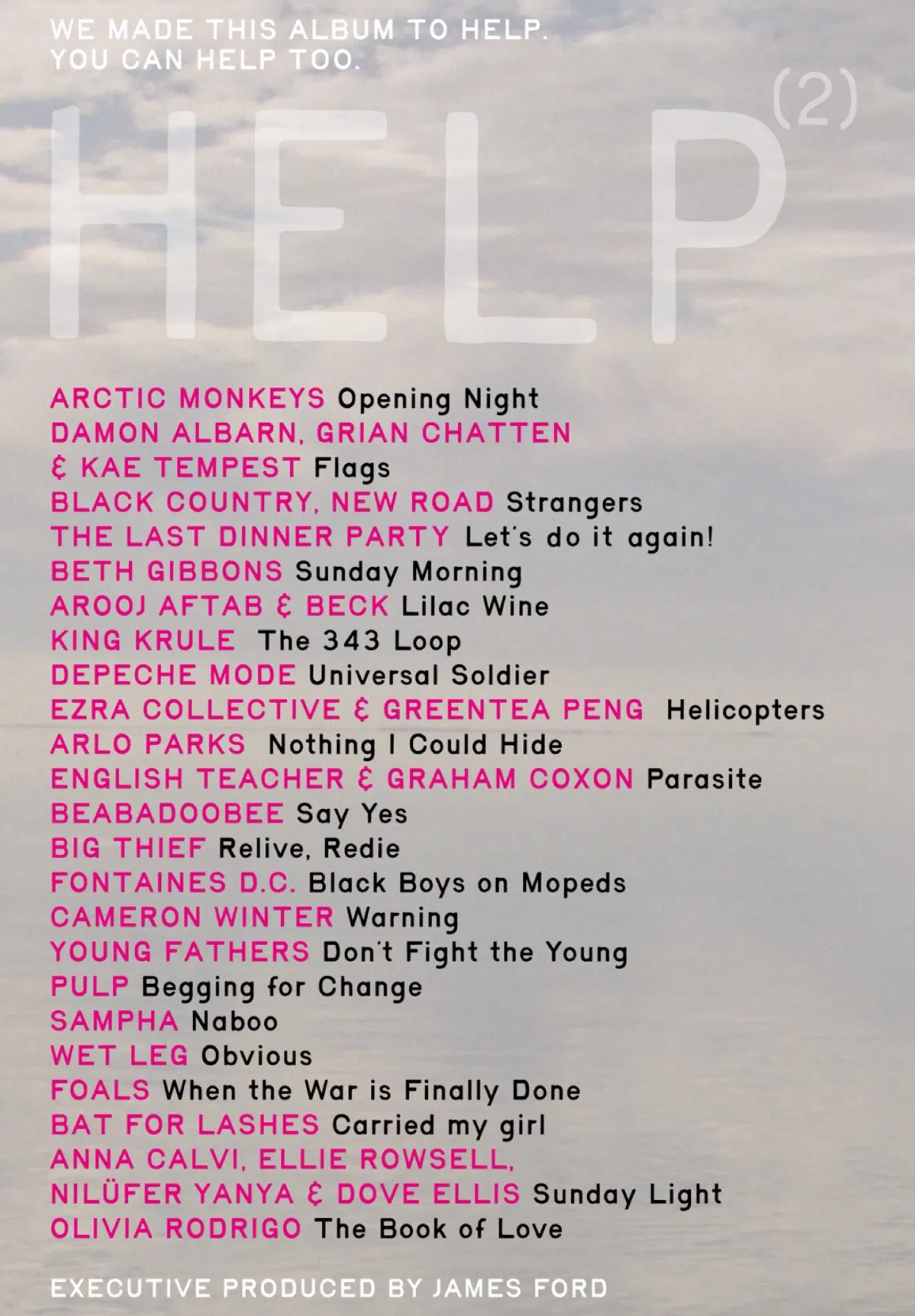
The project’s impact extends far beyond the audio, thanks to a haunting visual identity overseen by Academy Award-winning filmmaker Jonathan Glazer (The Zone of Interest). Acting as Creative Director for the filming and art direction of ‘HELP(2)’,
Glazer partnered with acclaimed composer and collaborator Mica Levi to execute a concept that is as simple as it is profound: “By Children, For Children.”
In a move that stripped away the traditional artifice of music videos, Glazer’s team handed cameras directly to children, inviting them into the studios to film the artists, including Arctic Monkeys and Damon Albarn, without restriction.
HELP(2)’ is more than just a snapshot of the current musical landscape; it is a vital intervention. By reviving the breakneck urgency of the 1995 original and centring the voices and lenses of children caught in the crossfire, War Child has created something that transcends the typical charity compilation.
The necessity of this project is underscored by a sobering reality. In a statement regarding the record's importance, the charity noted that when the original ‘HELP’ was released, roughly 10% of the world’s children were affected by conflict. Today, that figure has nearly doubled to 1 in 5, representing 520 million children worldwide, more than at any time since the Second World War.
“With conflicts escalating and funding cuts hitting hard, War Child’s work has never been more urgent,” the charity continued. “The need for these artists to carry forward the original album’s spirit of collective action could not be more vital.
Rich Clarke, Head of Music at War Child UK, added: “‘HELP(2)’ is more than an album. It’s a powerful example of what can happen when the music industry comes together around a shared purpose. We are immensely grateful to all the artists and teams who have donated their voices, talent, and time. We hope this record not only raises vital funds, but also awareness of the urgent need to turn compassion into action.”
Whether it’s the long-awaited return of Arctic Monkeys with ‘Opening Night’ or the surprising alchemy of a Rodrigo-Coxon collaboration, every note on this record serves a singular, urgent purpose.
Following the announcement of his fourth studio album, 'Kiss All The Time. Disco Occasionally. Harry Styles has announced his return to the stage, announcing a massive global comeback tour that will see the superstar perform exclusive multi-night residencies in seven major cities.
The ‘Together, Together’ tour is designed as a series of homecoming celebrations rather than a traditional travelling circuit.
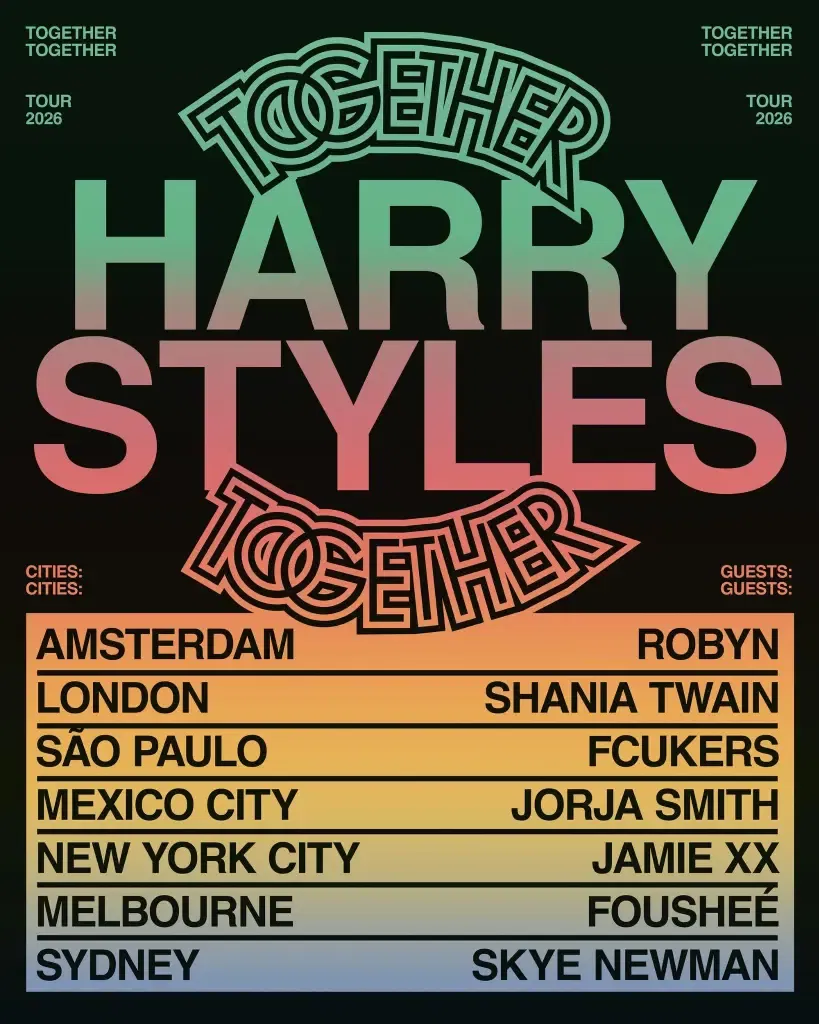
Styles has curated a diverse and high-profile lineup of "special guests" to join him across various legs, including:
Pop icons: Robyn and Shania Twain
Electronic pioneers: Jamie xx and Fcukers
Soul and R&B standouts: Jorja Smith, Fousheé, and Skye Newman
While ‘Love On Tour’ saw Styles championing the indie-rock sensibilities of acts like Wolf Alice, Wet Leg, and Inhaler, the ‘Together, Together’ lineup signals a pivot toward the dance-floor energy of the new record. Styles has curated a list of special guests that reflects the eclectic, "disco-infused" DNA of ‘Kiss All The Time. Disco Occasionally’
Continuing his commitment to philanthropy, Styles has integrated a charitable component into every ticket sale. £1 from every Wembley ticket will be donated to LIVE Trust, an organisation dedicated to protecting grassroots music venues in the UK. Furthermore, the entire tour has partnered with Choose Love, the humanitarian aid organisation Styles has championed for the last decade.
Alongside the tour announcement, the first single of the new era has arrived, and it signals a seismic shift in direction. 'Aperture' marks a bold departure from the warm, mid-century textures of 'Harry's House', arriving instead as a sprawling, five-minute alternative-pop odyssey.
What starts as a skeletal, LCD Soundsystem-lite throb, reminiscent of the jittery rhythmic tension found in James Murphy’s finest work, soon accumulates dense, flickering layers. There isn't a softly stroked acoustic guitar in sight. Instead, electronic textures bleed in from the track's edges, evoking the experimental glitch-pop of 'Notes on a Conditional Form'-era The 1975. In particular, the track shares a sonic DNA with 'Bagsy Not in Net'
The influence of Styles’ recent listening habits is written all over the production. You can hear:
- Charli XCX: In the aggressive, metallic sheen of the synths.
- Radiohead: In the claustrophobic, anxious percussion of the opening verses.
- Tame Impala: Specifically the sun-drenched, psychedelic yearning of 'End of Summer', which seems to inform the track's hazy, nostalgic glow.
However, any fears of Styles drifting too far into the avant-garde are extinguished as the song blossoms. A sunlit pre-chorus gives way to what is arguably one of the biggest, most undeniable choruses of his career, a towering, communal chant of "We belong together." It is a quintessential Styles call for unity, designed to be shouted back by eighty thousand people in a stadium.
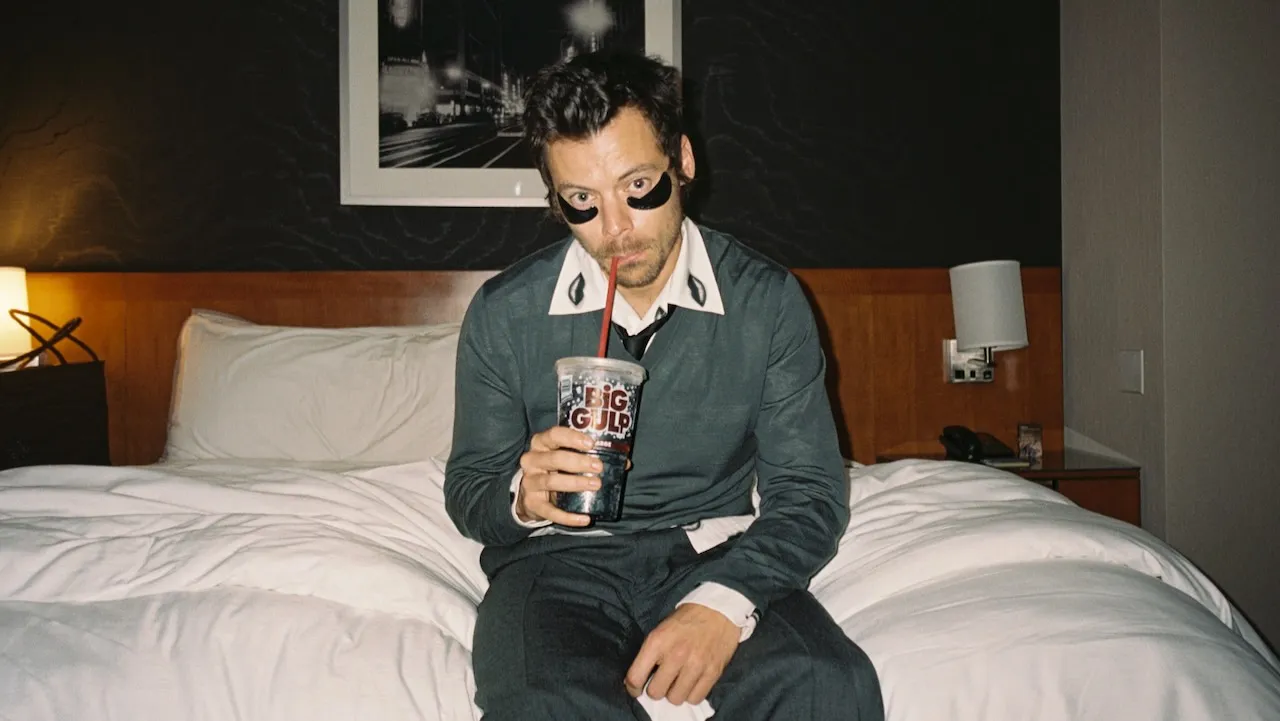
Talking about the forthcoming album on Radio 2, Styles noted that he used his downtime to go out clubbing more, to be in a crowd rather than just playing to one. At times, 'Aperture' carries a Berlin aesthetic; the lyrics paint a picture of peak-time euphoria where people are elevating, others are "going on clean," and the strobe lights turn every stranger into a best friend.
But there is a grounded, endearing vulnerability beneath the pulsating beat. By the song’s excellent bridge, as house-inflected piano chords begin to swell, Styles suddenly sounds strikingly small. "I wanna know what safe is," he sings, his voice cracking slightly over the electronic production, "I don’t know these spaces." It’s a reminder that even in the middle of a career-defining banger, Harry Styles is still searching for a place to land.
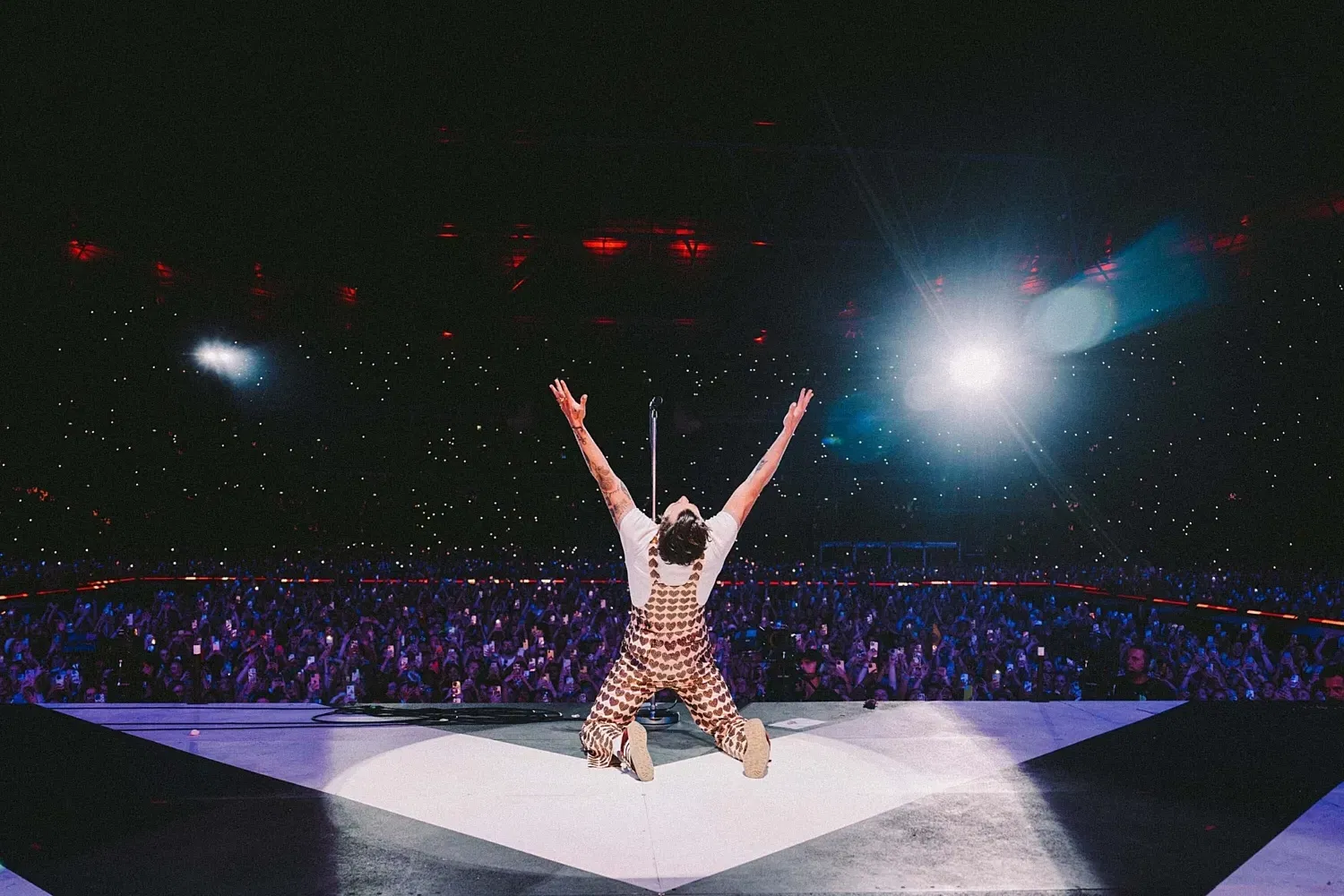
With this announcement, it is becoming increasingly clear that Harry Styles has ascended to a level of stardom shared by only a handful of icons in music history; he is, quite simply, the biggest artist in the world right now. His ability to command 30 nights at Madison Square Garden while simultaneously dominating the global charts speaks to a cultural gravity that few can replicate.
Yet, for a fanbase that has waited years for this return, these 50 shows feel less like a finite schedule and more like the opening movement of a massive new chapter. As the world prepares for the release of ‘Kiss All The Time. Disco Occasionally’ and the release of ‘Aperture’ , these residency dates are likely just the beginning of a global celebration that will define the year in music.
Chilli Jesson, the former bassist and occasional vocalist of 'Palma Violets', was once the effortlessly cool mouthpiece for a group that the NME famously crowned "the best new band in Britain." But behind the youthful bangers and artfully dishevelled hair, Jesson’s adolescence was tumultuous. At 14, he lost his father to drug addiction, a grief that, almost 20 years later, the musician finally addresses with his new venture, 'Dead Dads Club'.
You’d be forgiven for thinking a project with such a title would be relentlessly gloomy, but the work is a surprisingly life-affirming listen. Granted, one shouldn't be entirely fooled; the album is rooted in profound loss and the chaos that followed, so there is plenty of darkness and soul-searching on display. Yet, much of the hedonism that defined his formative band has here been transformed into something altogether more cathartic and inspiring.
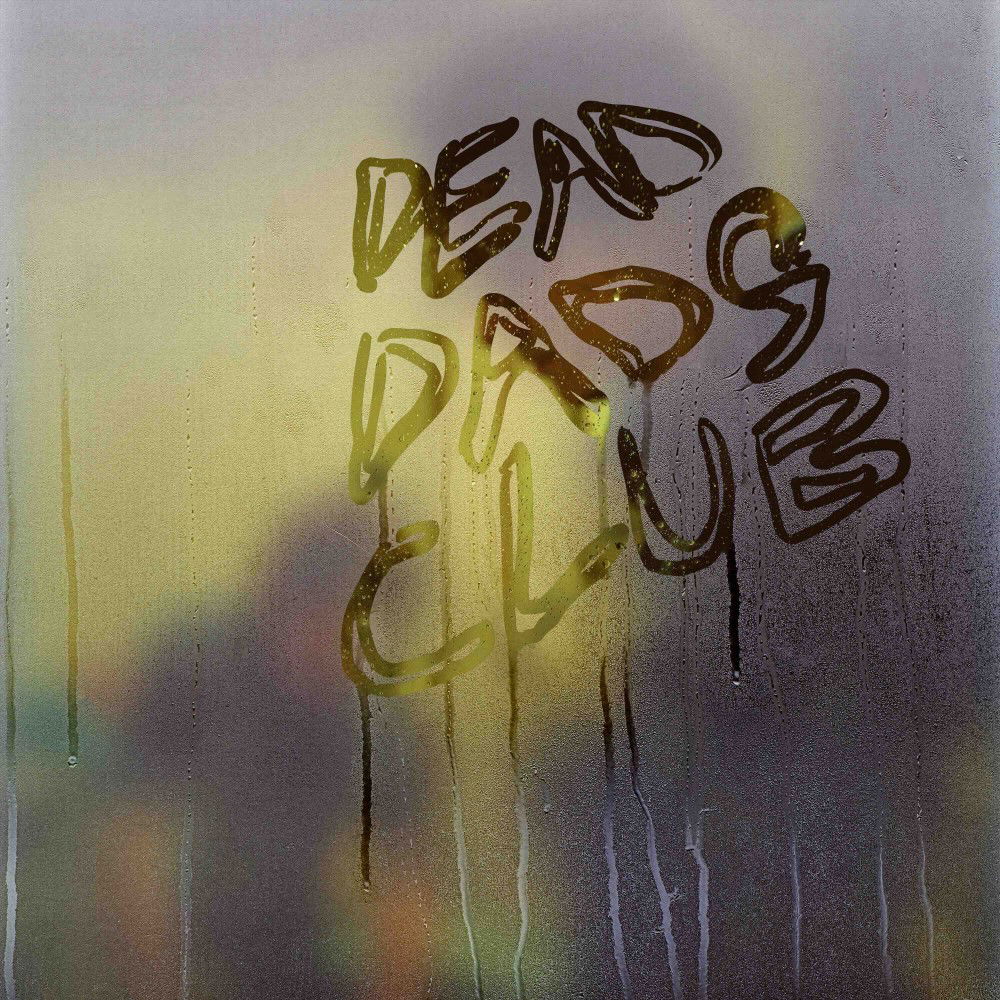
The record sees Jesson embracing a vast sonic palette: the garage-rock urgency of 'Is This It', Bowie’s 70s experimentation, the sharp, percussive instrumentation of 'Arctic Monkeys', 'Parachutes' era 'Coldplay', and the grit of 'Fontaines D.C.' (whom Jesson has been touring with for several years). Sonically, the album refuses to sit still, shifting from the indie swagger of 'Volatile Child' to the ominous electronica of 'Humming Wires', via the tender, scrappy 'Running Out Of Gas', and into the 60s surf-pop of 'Junkyard Radiator'.
The fingerprints of collaborator Carlos O’Connell are felt throughout, with a musicality that echoes the breadth and expanse of 'Fontaines D.C.', albeit through a more lo-fi lens. The production strikes a delicate balance between the raw and the refined.
By the time the heady chorus of the closing track, 'Need You So Bad', takes flight, it is imbued with a genuine sense of healing and closure. It’s an album that doesn’t just ask for your attention; it earns it by being uncompromisingly honest. By the time the final notes fade, you realise that while the 'Dead Dads Club' was born from a place of absence, the music itself is incredibly present.
Jesson has steered himself firmly back on course. No one ever wants to join the 'Dead Dads Club', but if you find yourself there, at least you have a brilliant soundtrack.
Wolf Alice announced the biggest show of their career, a massive homecoming show at London’s Finsbury Park.
The band will return to the capital on Sunday, July 5th, in support of their Mercury-shortlisted and BRIT-nominated latest album, last year’s 'The Clearing'. The performance serves as a victory lap for an era that has seen them cemented as one of the most vital acts in British guitar music.
Support for the show comes from The Last Dinner Party, Lykke Li, Rachel Chinouriri, Keo and Florence Road.
Wolf Alice follow in the footsteps of Arctic Monkeys, New Order, Oasis, Pulp, Liam Gallagher, Sam Fender, Fontaines D.C. and more in topping the bill at Finsbury Park in their home of north London.
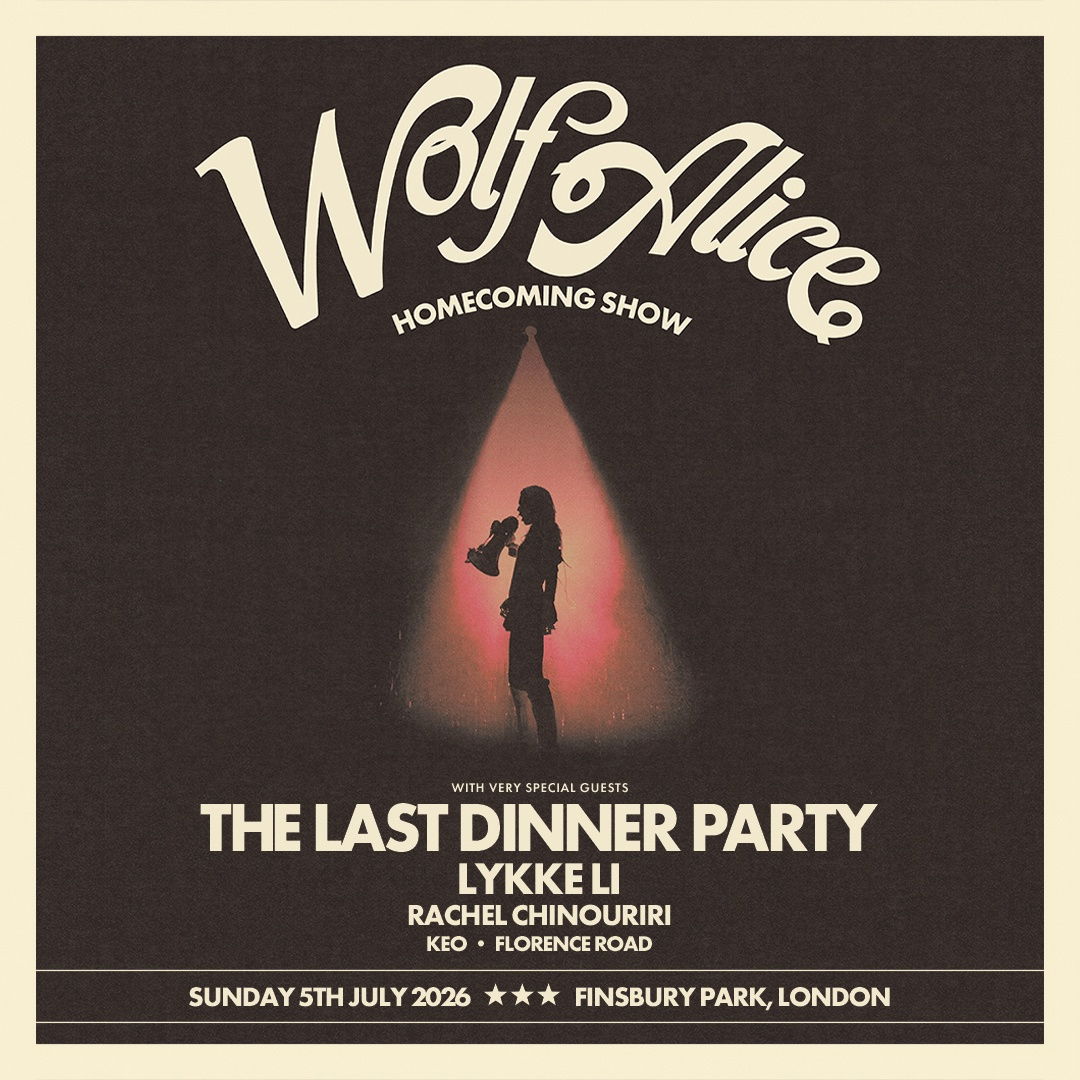
The big gig follows Wolf Alice’s 2025 UK and Ireland arena tour, which wrapped up last month after a successful run of dates across Europe and North America. Before they hit the park, fans have plenty of chances to catch them:
March: They will play the 'Trans Mission' charity show at London’s OVO Arena Wembley.
March: They are set to headline the prestigious Teenage Cancer Trust series at the Royal Albert Hall.
Summer Festivals: Their 2026 schedule includes bill-topping slots at 'Tramlines Festival', 'Kendal Calling', and 'Eden Sessions', alongside major appearances at 'TRNSMT', 'Mad Cool', and 'NOS Alive'.
Beyond the band’s collective triumphs, frontwoman Ellie Rowsell has become a pivotal figure in the year's biggest humanitarian and pop projects. She is a core contributor to the star-studded 'Help(2)' charity album for War Child, a landmark 23-track collection produced by James Ford. Aiming to capture the urgency of the 1995 original, the album was recorded over an intensive week at Abbey Road Studios while Ford, remarkably, oversaw sessions remotely from an ICU bed.
Rowsell’s involvement in 'Help(2)' sees her joining a modern vanguard that includes Arctic Monkeys, Olivia Rodrigo, and Fontaines D.C. The project serves as a vital intervention for the 520 million children worldwide currently affected by conflict, a figure that has nearly doubled since the first 'Help' album was released thirty years ago.
Most notably, Rowsell’s ethereal vocals are a centrepiece of Harry Styles’ massive comeback single, 'Aperture'. The track, a sprawling, five-minute "alternative-pop odyssey", signals a bold departure for Styles, leaning into a "neon-lit intersection of dancefloor euphoria and late-night introspection."
Kneecap announced their second album 'Fenian', which will be released on Heavenly Recordings on April 24th.
It follows their critically acclaimed 2024 album, ‘Fine Art’ and will feature 14 tracks including collaborations from Kae Tempest, Radie Peat and Fawzi.
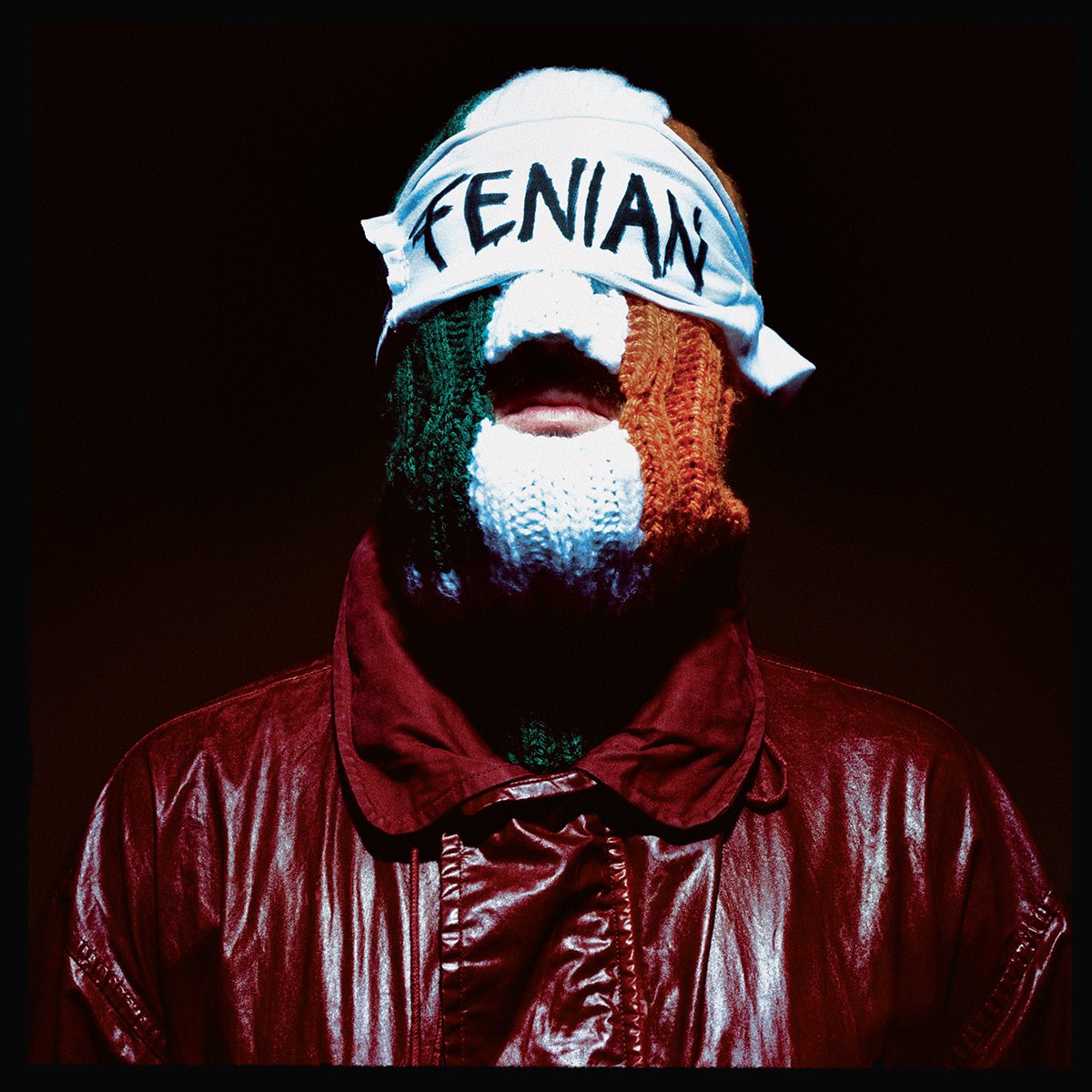
In a social media statement, the band said.
"They tried to stop us by branding Kneecap 'terrorists', with cancellations, with statements from the Prime Minister himself.
We had all the motivation we needed…this isn't a swift reaction, but a considered response to those that tried to silence us. And failed.
Inspired by, and proudly named 'Fenian', who were warriors in Irish folklore, and later a derogatory term for the Irish.
Now we're using it to name everyone speaking truth to power.
After 800 years of colonisation, they thought the Irish language would die, it didn't.
Thanks to Muintir na Gaeltachta, and all the Gaels who refused to let their culture and language be destroyed.
And KNEECAP is much the same…we haven't gone away.
The Paddies are back."
The first single, 'Liars Tale' is a harsh trackthat sees rave meet punk, that takes aim at the establishment, and directly takes aim at Keir Starmer:
"Fuck Keir Starmer/Netanyahu’s bitch and genocide harmer,” later likening him to a Tory “in Labour clothing” and adding that they’d “never seen a c**t so boring.”
“Starmer is a scumbag, don’t accept it. There’s no good in their politics, and the belly of the beast is feeding overseas,” the band said.
It's quite a bold statement of intent to come back with, and I'm interested to see where the rest of the record goes, having looked through some of the artists Dan Carey has worked with in recent years, including Fontaines D.C., Foals, Geese and Wet Leg. Could we see Kneecap embrace a new sound?
Record Store Day 2026 announced its list of releases for 2026. With some huge bands and artists dropping some huge albums, singles, live albums and even some bootlegs.
Returning on Saturday, April 18, the 19th instalment of RSD arrives as a global celebration of independent record shop culture. In the UK and Ireland alone, over 300 shops will participate, joining thousands of indie retailers worldwide. Fans are expected to queue early for the chance to snag exclusive physical releases, which remain strictly first-come, first-served, and to enjoy one-day-only in-store events.
The 2026 list features a significant charitable edge, with several high-profile artists dropping records to benefit RSD’s official partner, War Child. Key contributors to this initiative include
- The Cure and Fleetwood Mac
- Primal Scream and Bring Me The Horizon & Sigrid
- The Snuts, Nilüfer Yanya, and Divorce
- James Dean Bradfield and Nicky Wire of the Manic Street Preachers
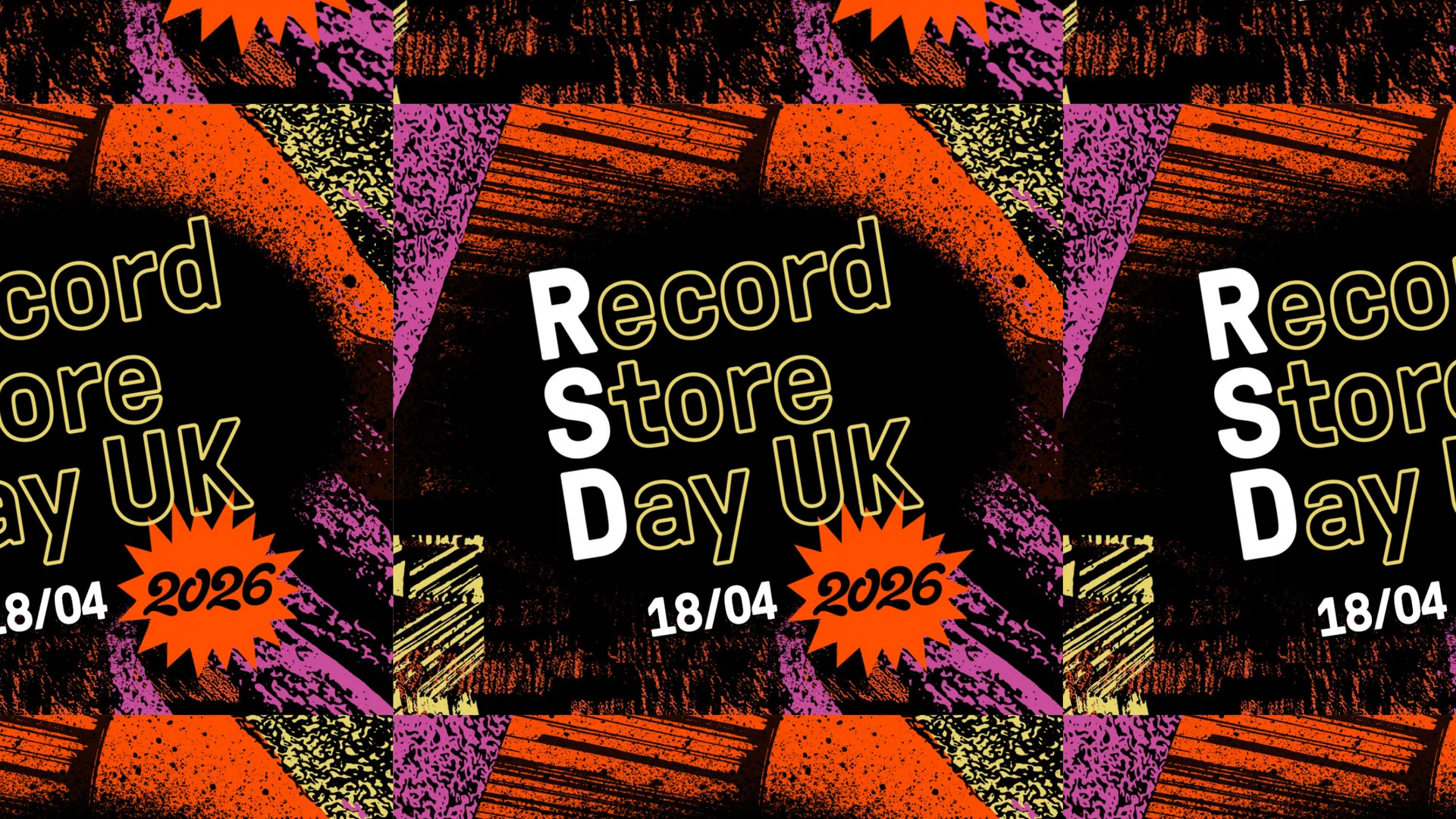
The broader list is equally impressive, featuring a diverse range of talent including Blur, Pink Floyd, CMAT, Gigi Perez, Air, HAIM, Olivia Dean, Self Esteem, Sleep Token, The Last Dinner Party, and Wolf Alice.
The 2026 event takes place against the backdrop of a massive vinyl resurgence. According to the Digital Entertainment and Retail Association (ERA), vinyl sales have hit a 20-year high. Last year, the market grew by 18.6%, with over 7.5 million discs sold, generating a staggering £238 million.
Following the monumental success of the Oasis reunion, Noel Gallagher is set to attend this year’s BRIT Awards to collect the ‘Songwriter of the Year’ prize. In a historic move, the ceremony will be held at Manchester’s Co-op Live arena, marking the first time in the event’s nearly 50-year history that it has ventured outside of London to honour Gallagher in his own home
A press statement from the BRITs described Gallagher’s influence as "permeating the fabric of British culture for over 30 years," citing both his "seminal work with Oasis" and his "ambitious and acclaimed solo albums" with High Flying Birds. The award, which recognises "exceptional songwriting." The committee noted that his work "spans generations," continuing to resonate with global audiences in a way few modern songwriters can match.
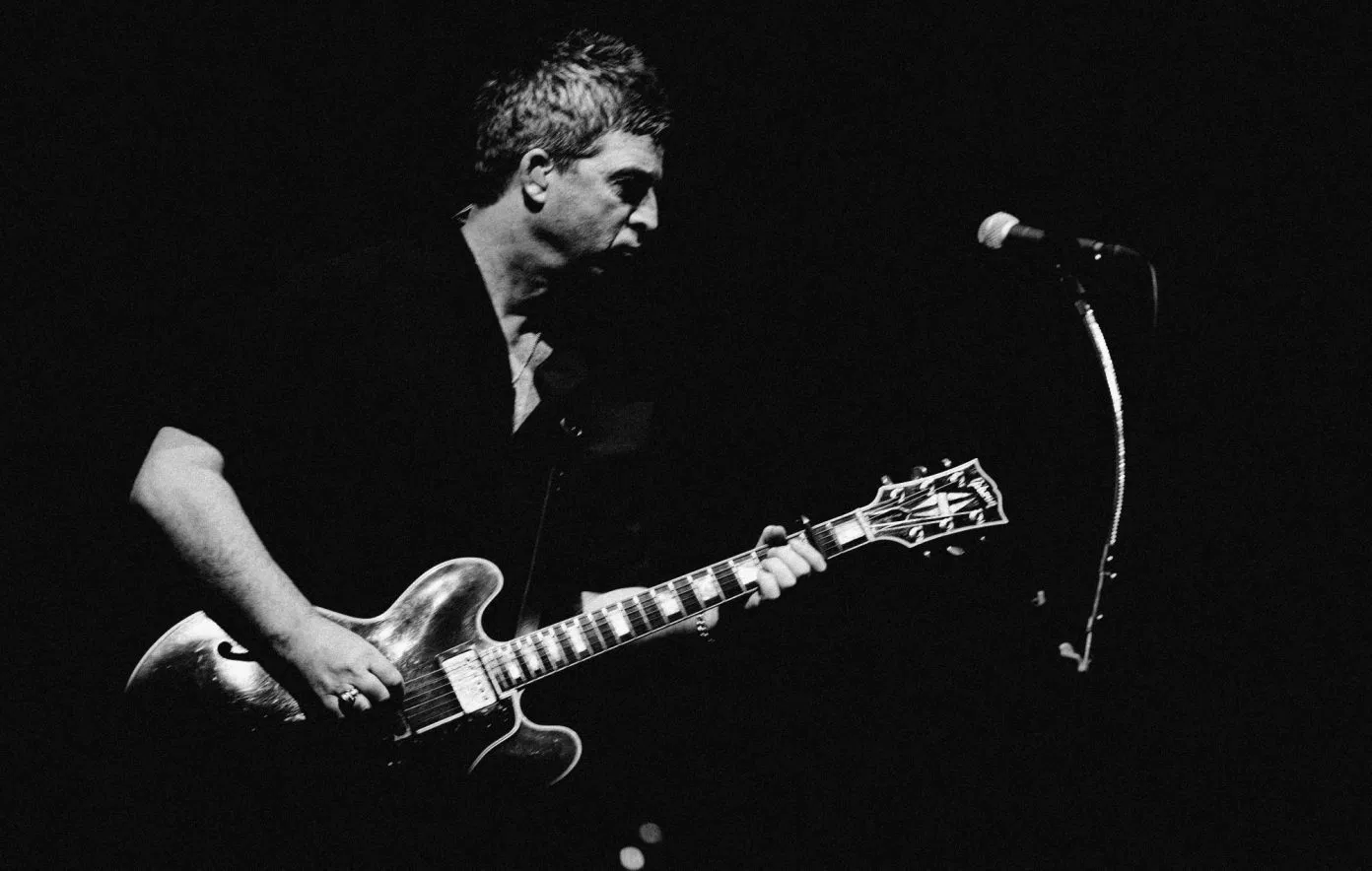
The award follows a 2025 that redefined the scale of British rock. After ending 16 years of speculation in August 2024, the 'Oasis Live ‘25' tour became a global phenomenon, spanning 41 sold-out dates. From the opening night in Cardiff to five legendary homecoming nights at Manchester’s Heaton Park and a staggering seven shows at Wembley Stadium, the tour saw a new generation of fans devouring a setlist of era-defining anthems.
This "Oasis fever" was mirrored in the charts; at one point, the band held three of the Top Five spots on the UK Albums Chart with 'Time Flies… (1994-2009)' at Number 1, '(What’s The Story) Morning Glory?' at 2, and 'Definitely Maybe' at 4. By selling in excess of one million albums in 2025 alone, Oasis became the only UK artist to achieve such a feat within the calendar year.
Following the surprise return of Arctic Monkeys with 'Opening Night', the anticipation for the 'Help (2)' charity compilation has reached a fever pitch; that momentum continues with the release of the album's second single: the captivating and atmospheric 'Flags'.
Credited to the powerhouse trio of Damon Albarn, Grian Chatten, and Kae Tempest, the track serves as a centrepiece for the upcoming album, scheduled for release on March 6th.
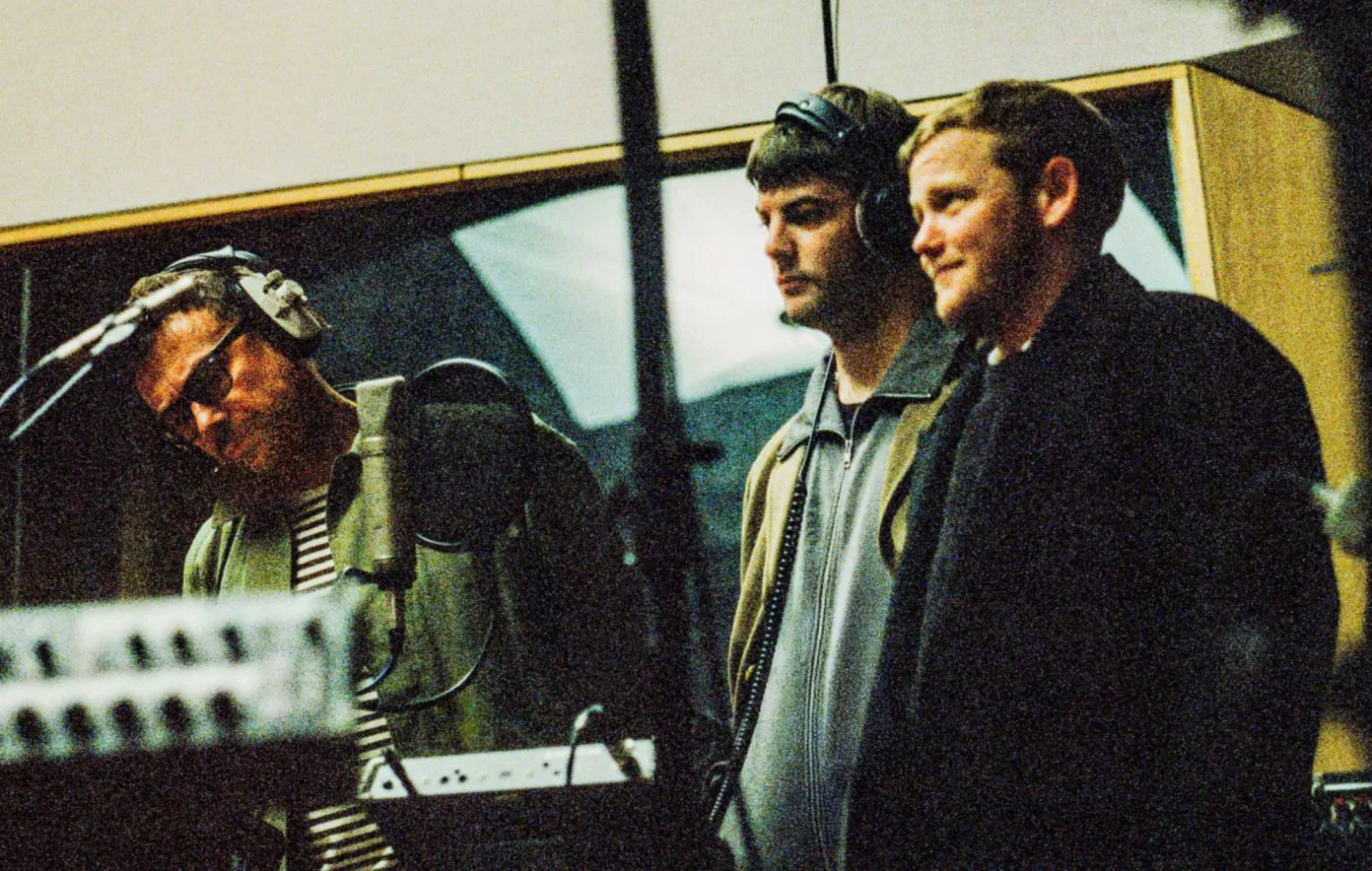
The song is driven by an upbeat, yet slightly melancholic piano melody, and opens with Albarn’s signature vocals. “Now you left yourself there on the wall/ Looking up, painted on teeth, powdered concrete/ Here on earth, the sun in the sky, between my teeth/ Looking down, shaking some hand, older than mine,” he sings, before Chatten takes over vocal duties.
“The sun cries tears/ And they land inside ya/ You feel the fear where you once felt pride.”
The production credits are as heavy-hitting as the vocalists, with Albarn, James Ford, Marta Salogni, and Toby L at the helm.
The sonic landscape is further enriched by:
- Guitars: Johnny Marr and Adrian Utley (Portishead)
- Rhythm Section: Seye Adelekan (Gorillaz) and Femi Koleoso (Ezra Collective)
- Instrumentation: Dave Okumu
- The Choirs: A 43-piece children’s choir joined by an "all-star" ensemble including Jarvis Cocker, Carl Barât, Declan McKenna, and members of Black Country, New Road.
For the artists involved, the session was about more than just the music. Damon Albarn reflected on the unique atmosphere of the recording:
“Recording ‘Flags’ was a genuinely joyful two days, with a strong sense of purpose throughout the building,” Albarn shared. “I was particularly struck by the decision to employ children to do all the filming in the studio; it felt inspiring and directly reinforced the point we were trying to make about communicating with kids, by involving them in the process itself.”
“I feel honoured to be a part of this project. I loved writing this song and collaborating with the other artists; it was like a fever dream that day at Abbey Road. Couldn’t believe how good it felt and the sheer force of will that shepherded all those energies together and directed them towards this beautiful conclusion,” Tempest added. “It was a true collaboration. It’s a great album, and I hope we can raise lots of funds and energy. For the children.”
Grian Chatten also added that “to be gifted the chance to collaborate with such talented artists as Damon and Kae in aid of such an important cause was really special, and that “it’s a rare occasion that you feel the energy for change in such a tangible way and from so many, but that is exactly how it felt in the room that day.”
February 2026 also marked ten years since the world lost Viola Beach.
The history of rock ’n’ roll is littered with untimely deaths, but few have seemed so monstrously unfair as those of Viola Beach and their manager, Craig Tarry. The young band’s nascent career was cruelly cut short when their car crashed into a canal on the journey back from a Swedish music festival in the early hours of Saturday, February 13th 2016.
The band never lived to see the full magnitude of their impact, but the world made sure their voices were heard. Following a massive fan campaign supported by icons like Liam Gallagher, Kasabian, Paloma Faith and The Stone Roses, the single 'Swings & Waterslides' soared to the top of the iTunes chart. The song eventually reached Number 11 on the official charts, with all proceeds going to the families of the band and their manager.
Determined to keep their memory alive on the road, Blossoms vowed to play a recorded version of Viola Beach’s live set at every venue where the boys were originally due to support them.
When their self-titled debut album, ‘Viola Beach’, was posthumously released in July 2016, it reached Number 1. As the NME noted at the time, the album became a vital document of who the band were. While the old maxim says you have a lifetime to write a debut, these four young men were denied that time. The album, a "posthumous patchwork" of recordings, is tempered by the knowledge that they were only just getting started.
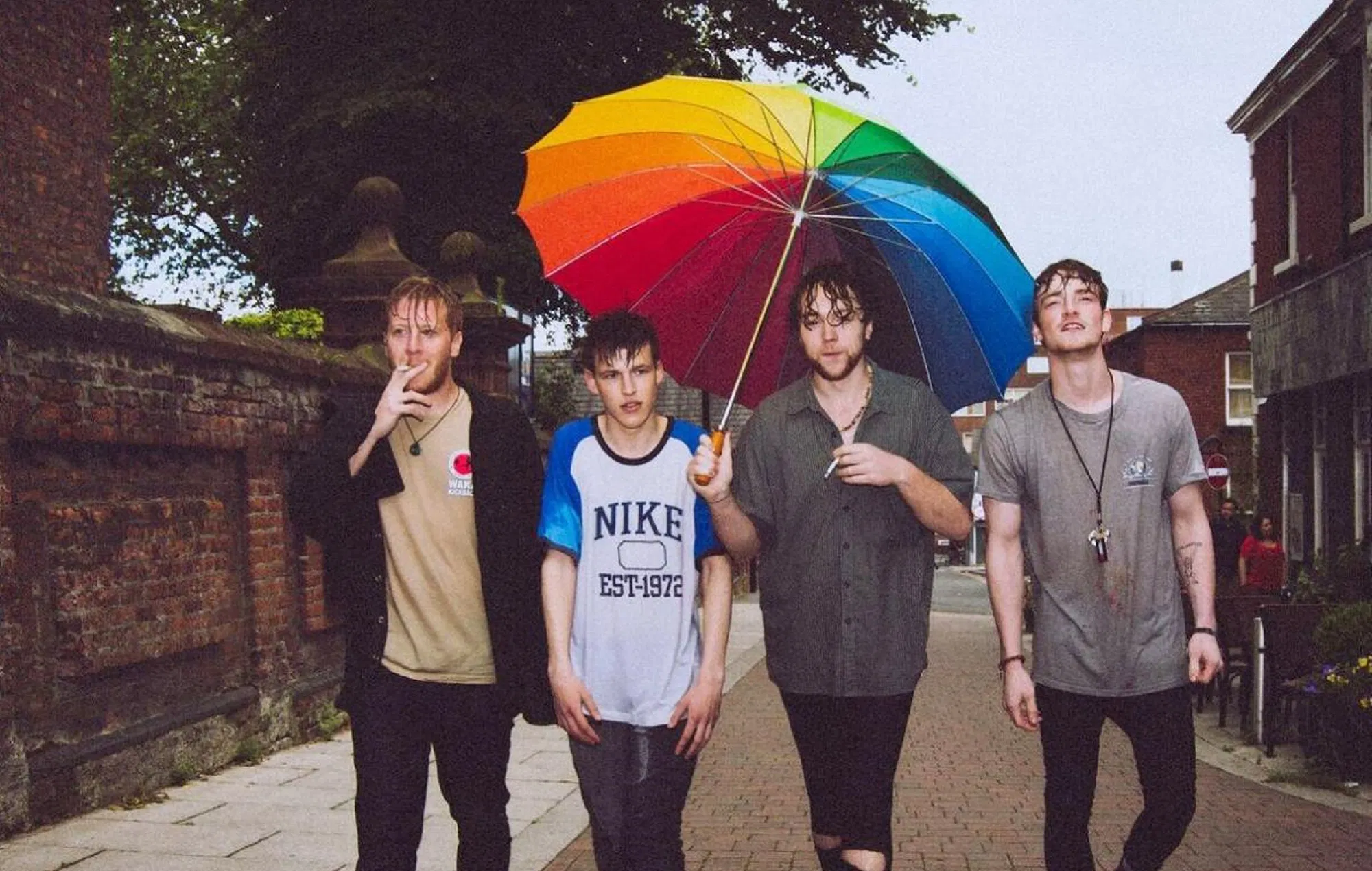
It is a collection that balances high-energy indie anthems with tracks like 'Call You Up', a winsome, late-night lament that hints at hidden depths and a burgeoning songwriting maturity that was cut tragically short.
Viola Beach’s name may be synonymous with a tragedy that happened ten years ago today, but through their music, they remain frozen in a state of eternal, youthful exuberance. They are, and will always be, the boys that sing.
And in The End, The Love You Take is Equal To the Love You Make.
Here’s where we wrap things up. At least for now. Thank you all so much for reading. This post has been one of the most fulfilling projects I’ve worked on for Beyond the Grooves. It’s something I’ve dreamed of doing for ages, and to see it so warmly received truly means the world.
A few special shoutouts to Archie, Dylan, Em, Grace, Hattie, Jasmine, Joe, Katie, Luke, Lauren, Liam, Noah, Sean, and Zoe. Thank you for being there for me in so many ways. You’re all absolute heroes. To everyone who’s liked, shared, and read these posts, thank you. Your support has been invaluable, and I appreciate every bit of it. Here’s to hoping that 2026 brings even more exciting moments to add to this story.
If you’ve enjoyed this post and want to dive into some of the music mentioned, check out this playlist: Spotify.
Jack x
